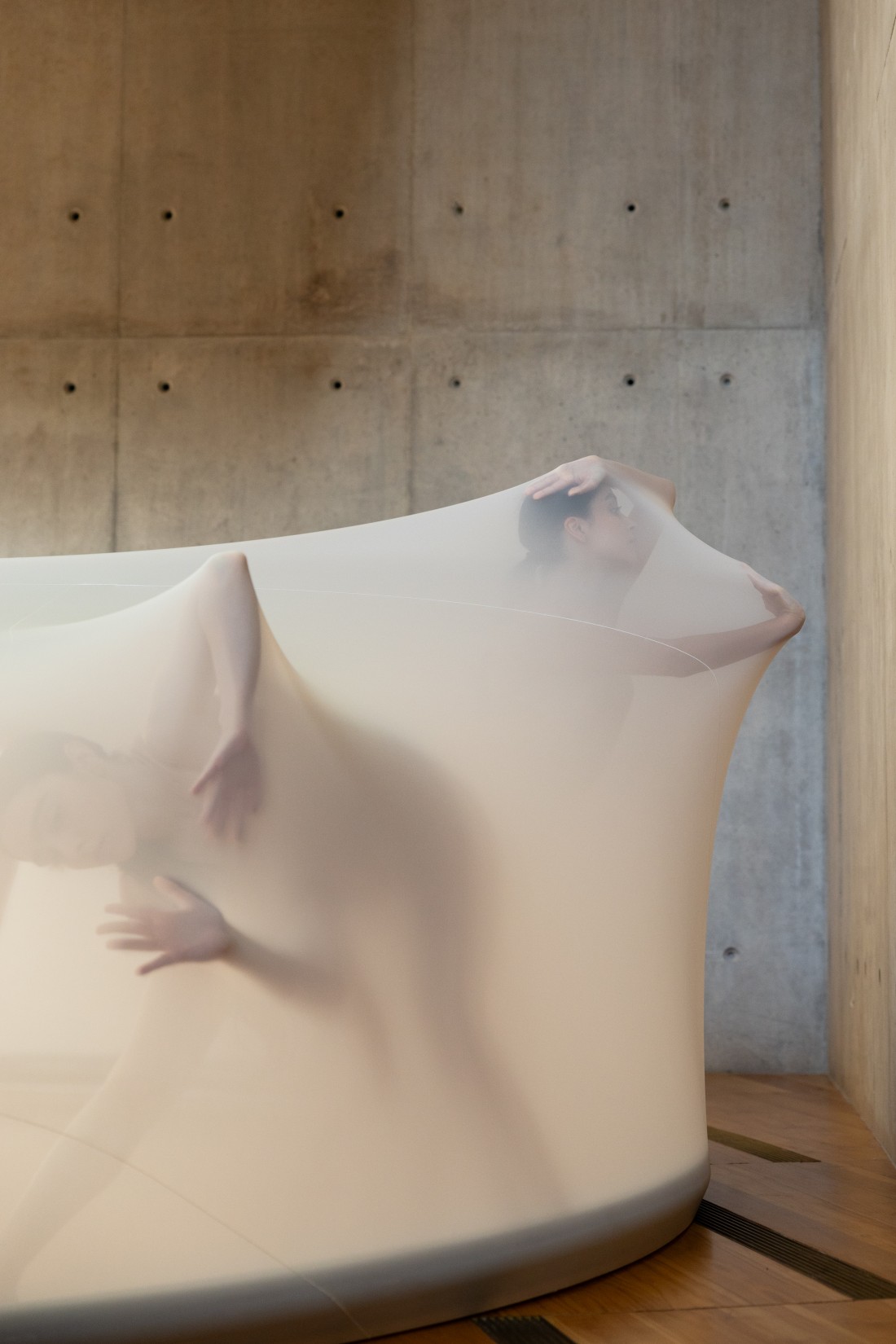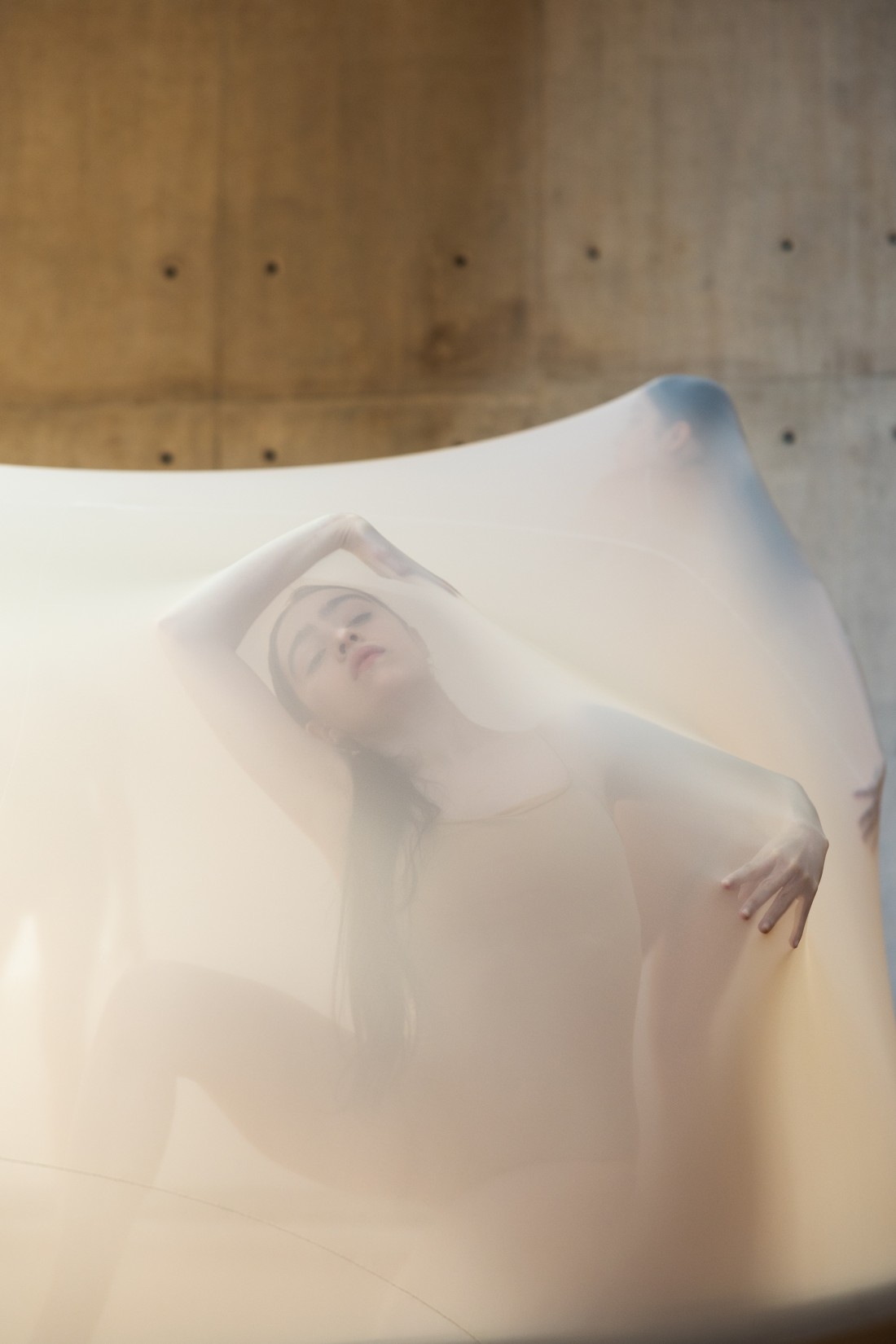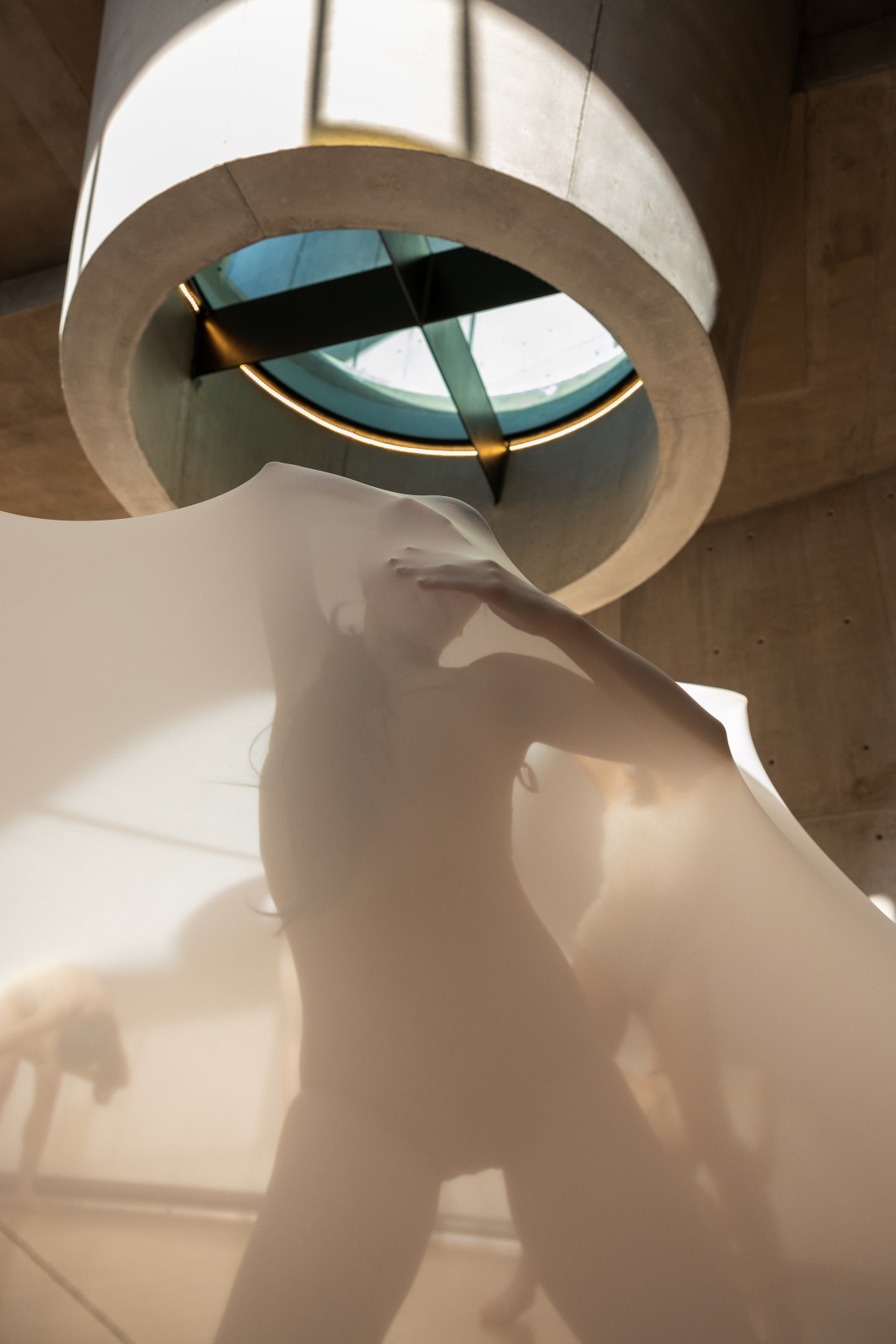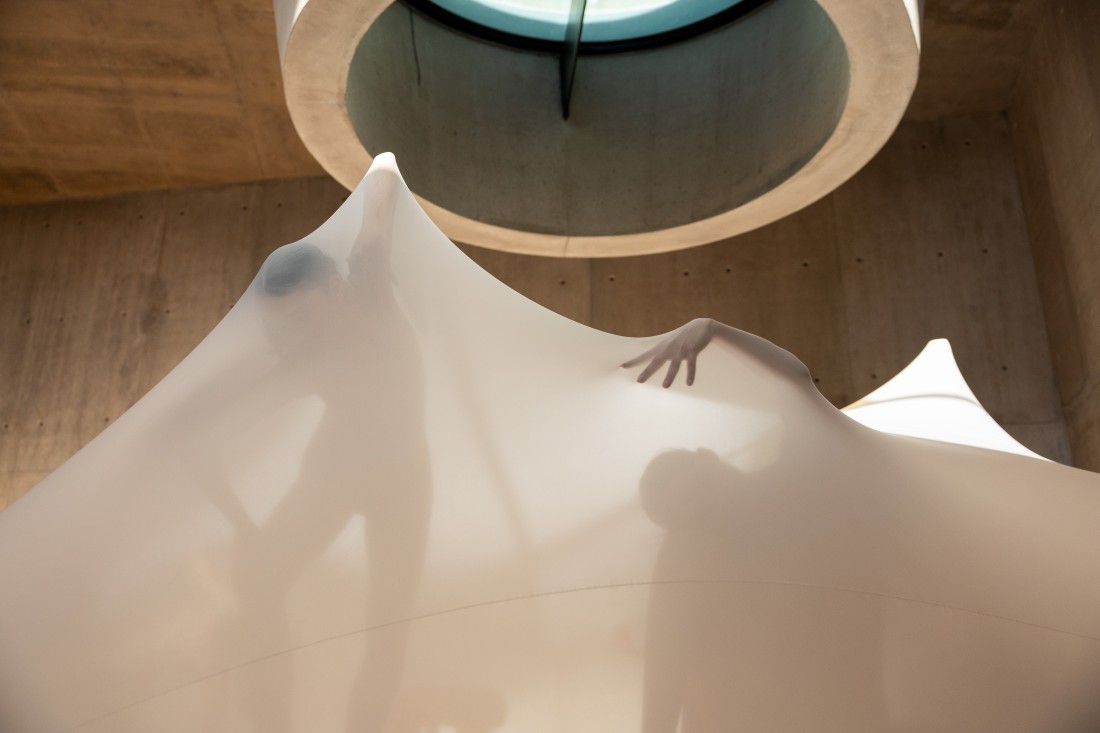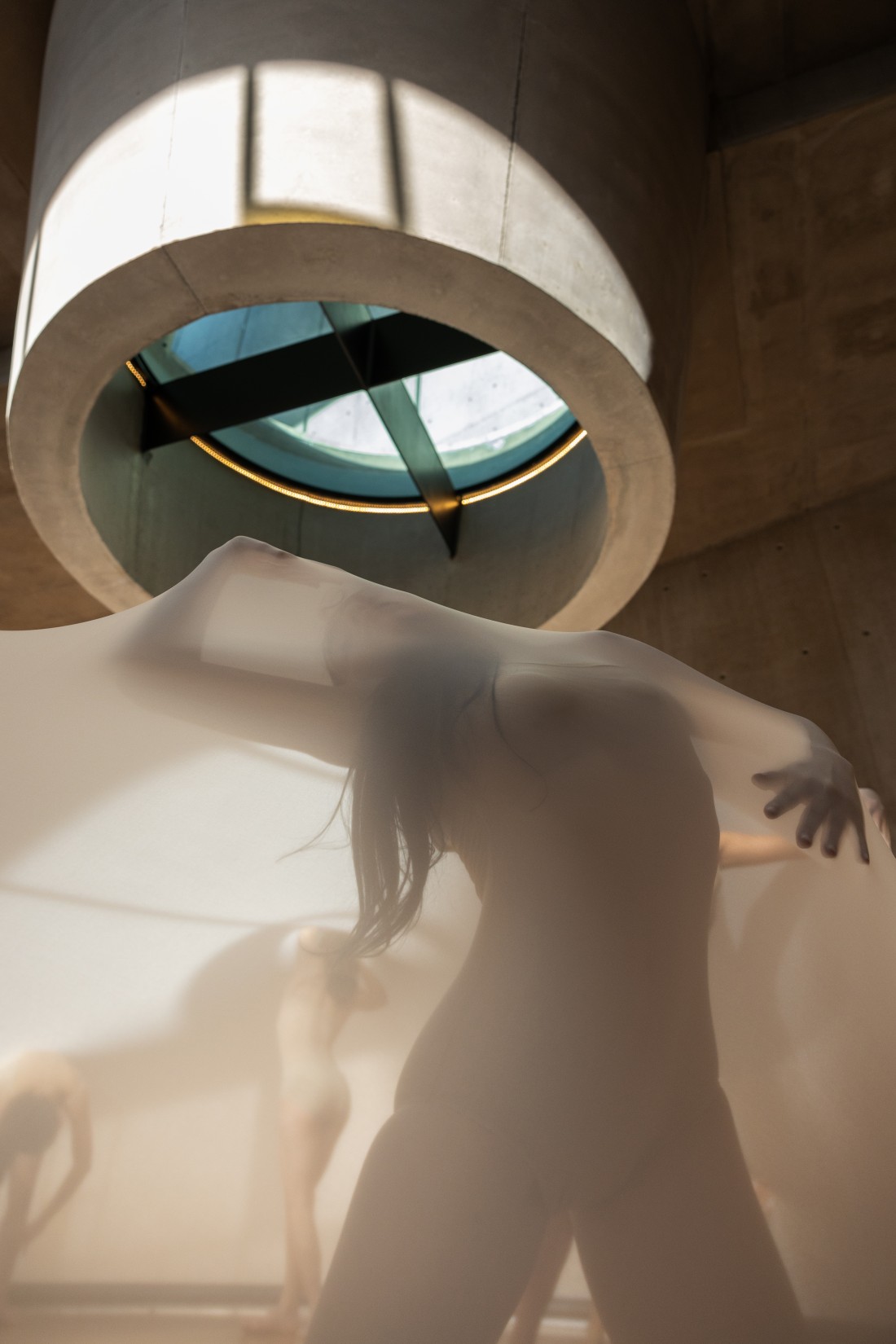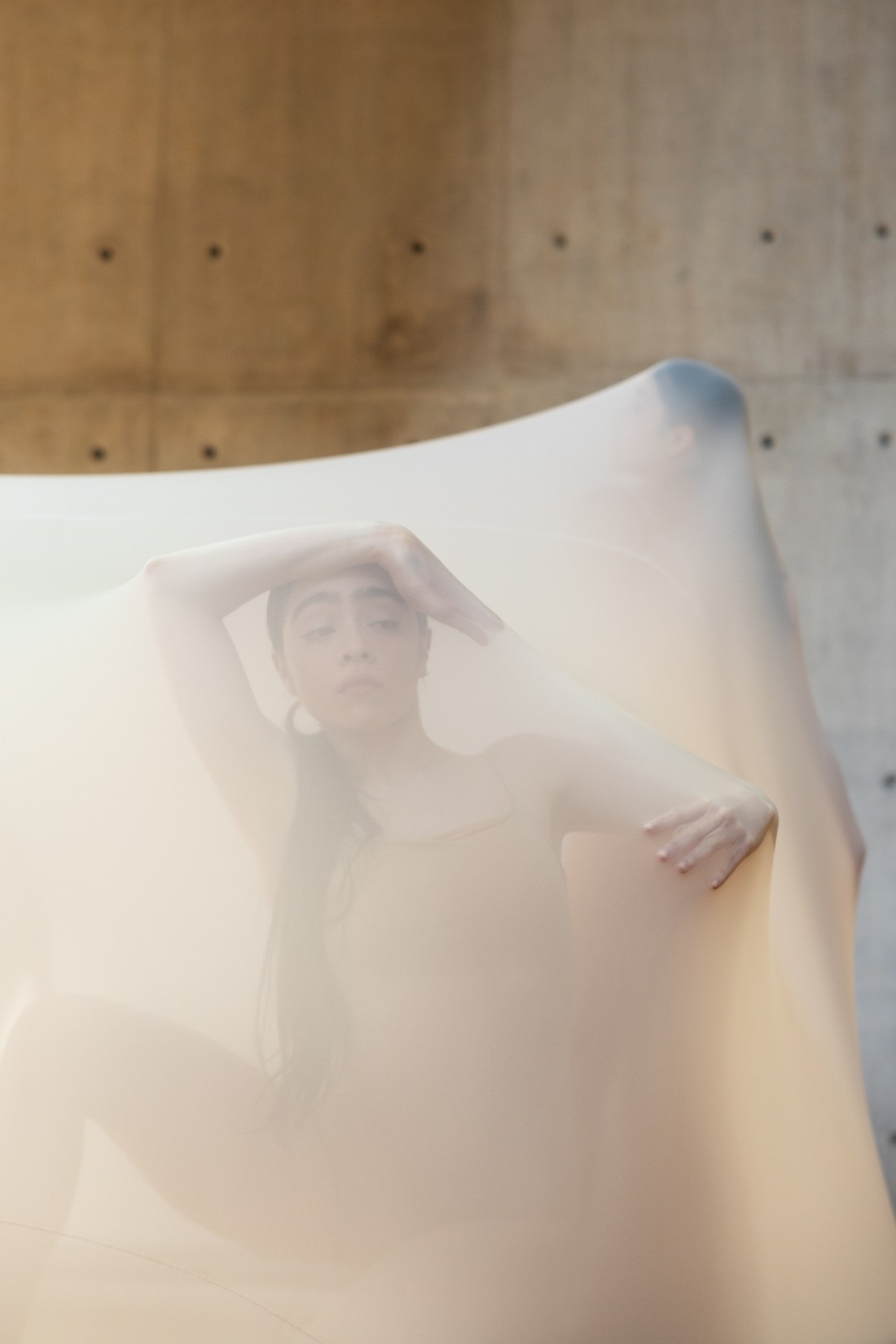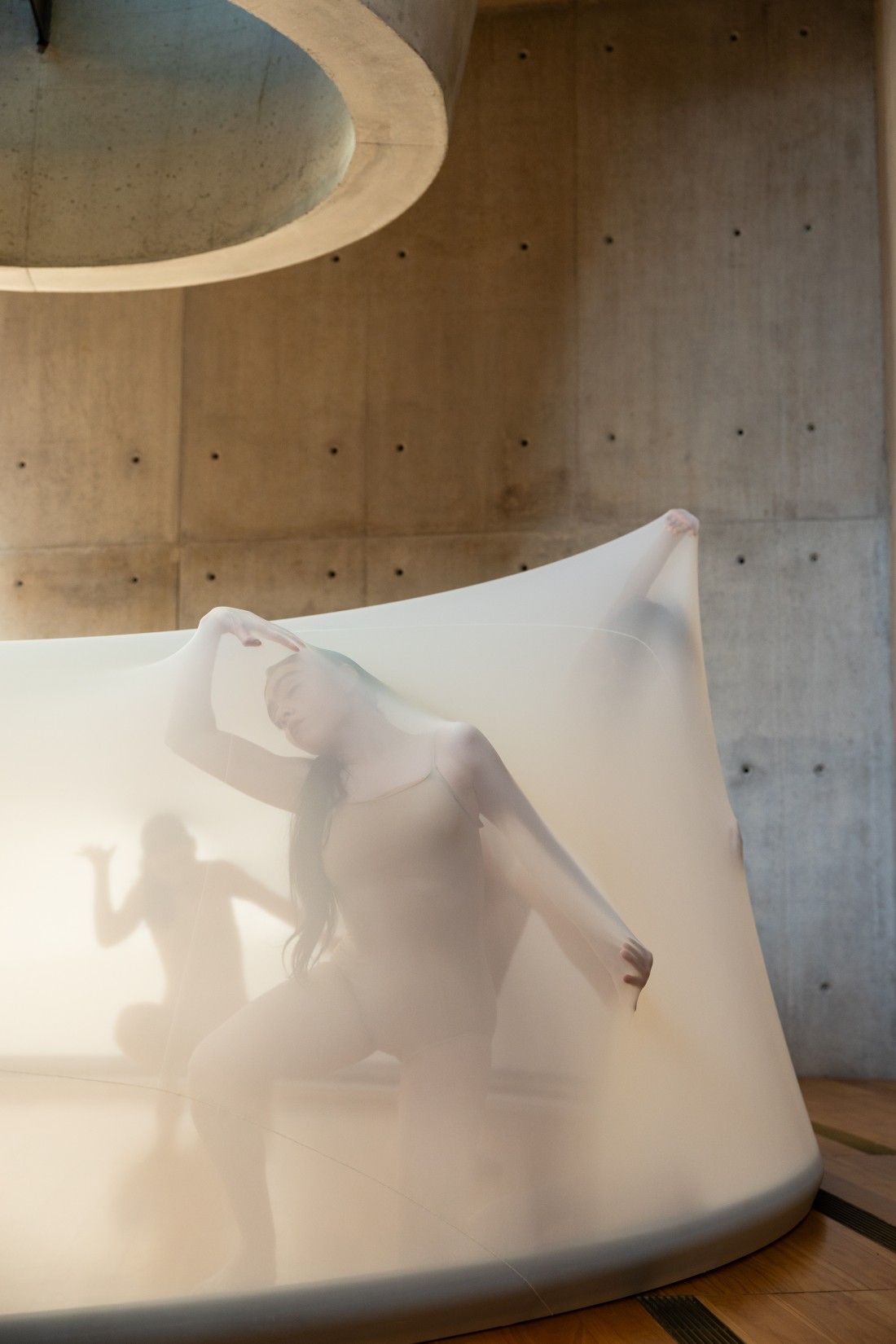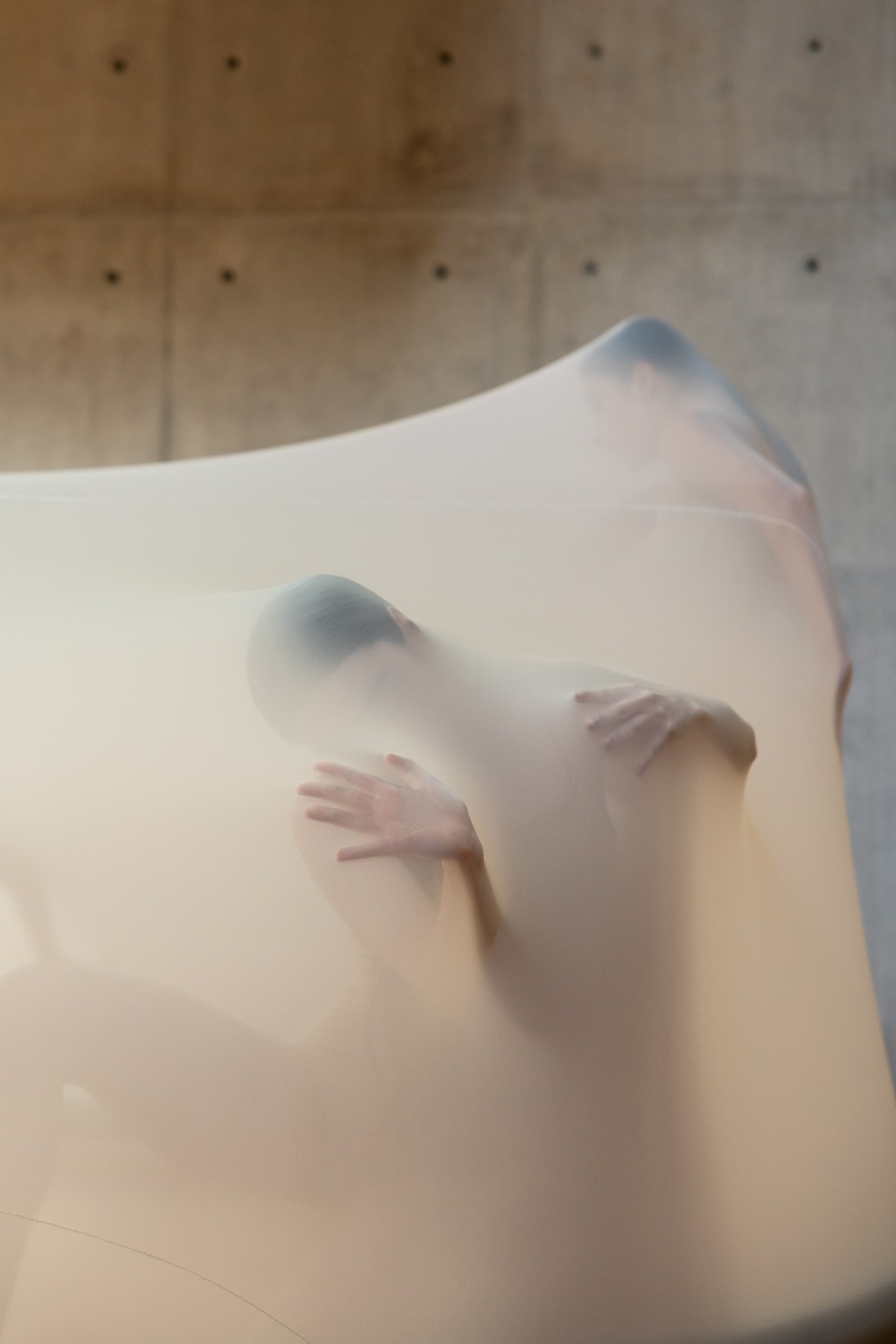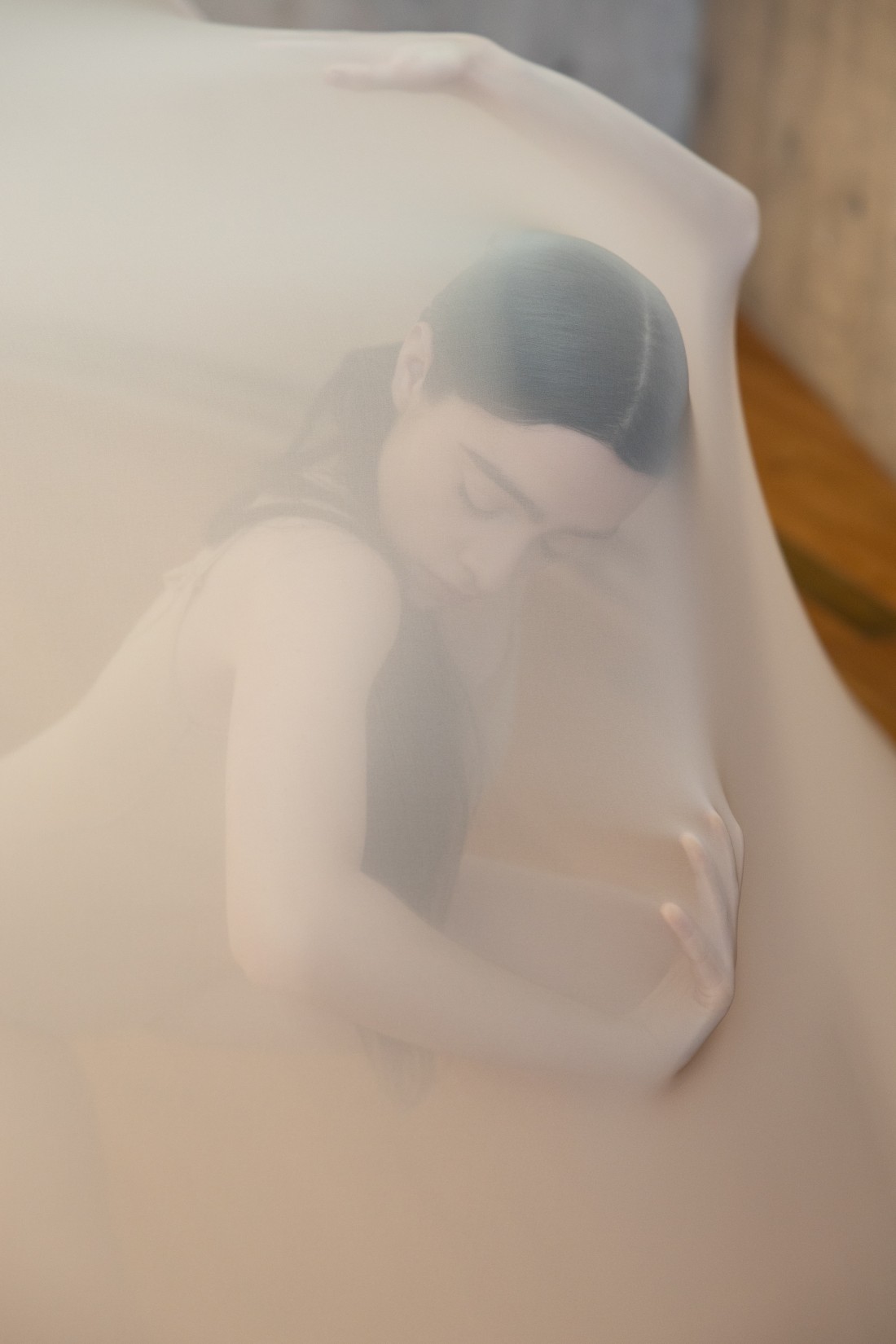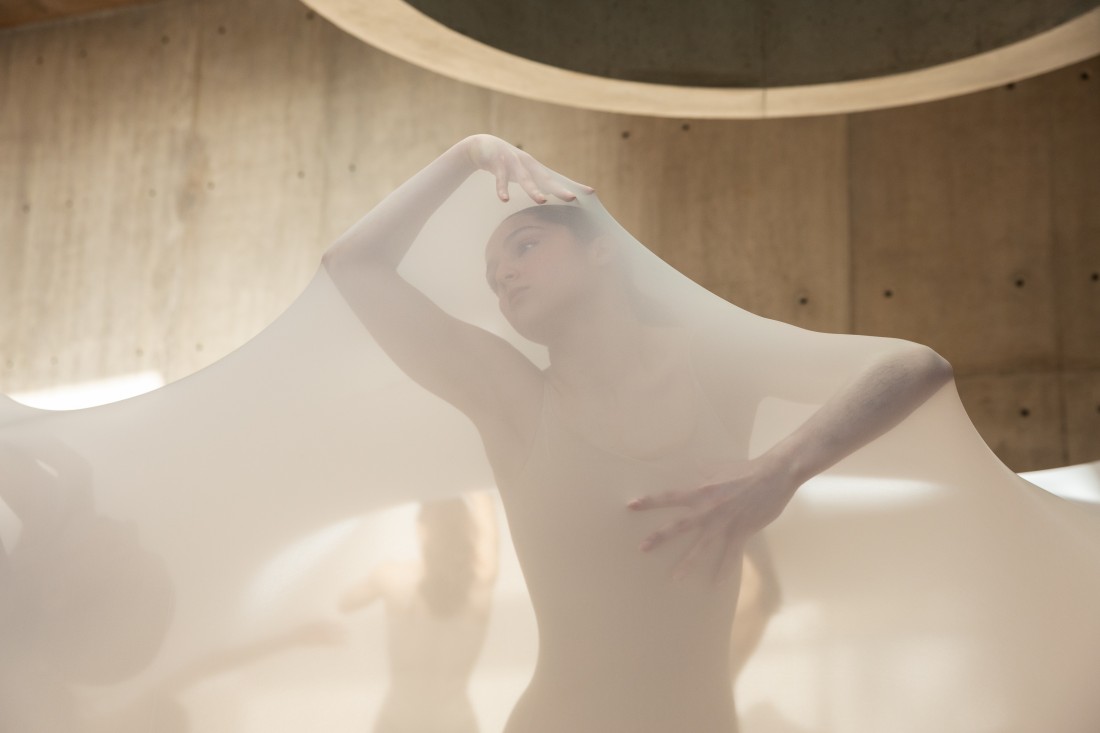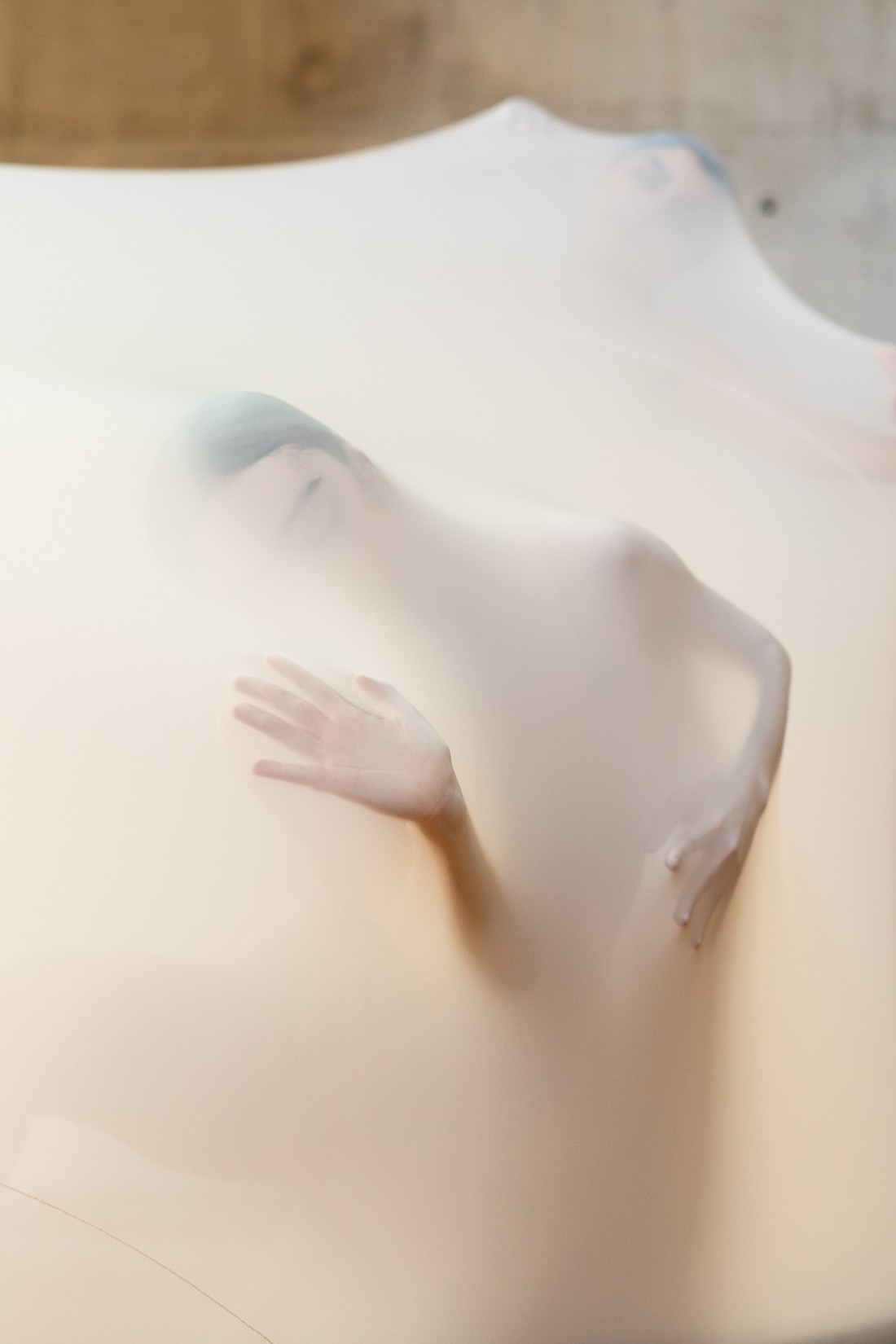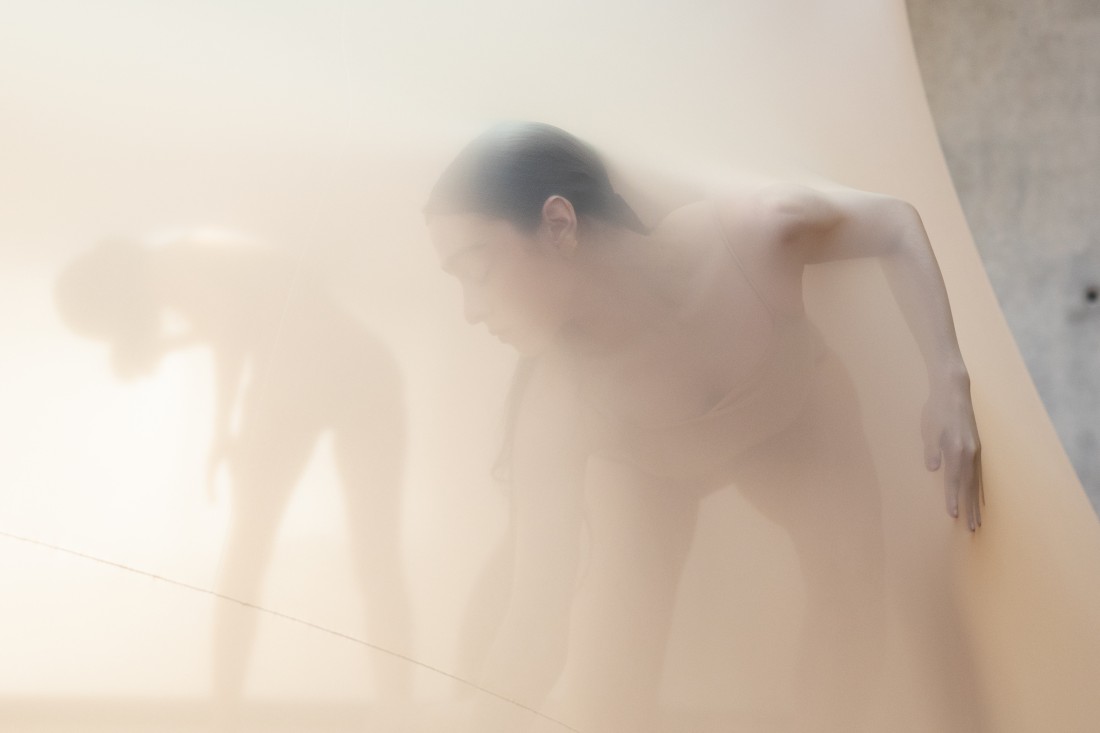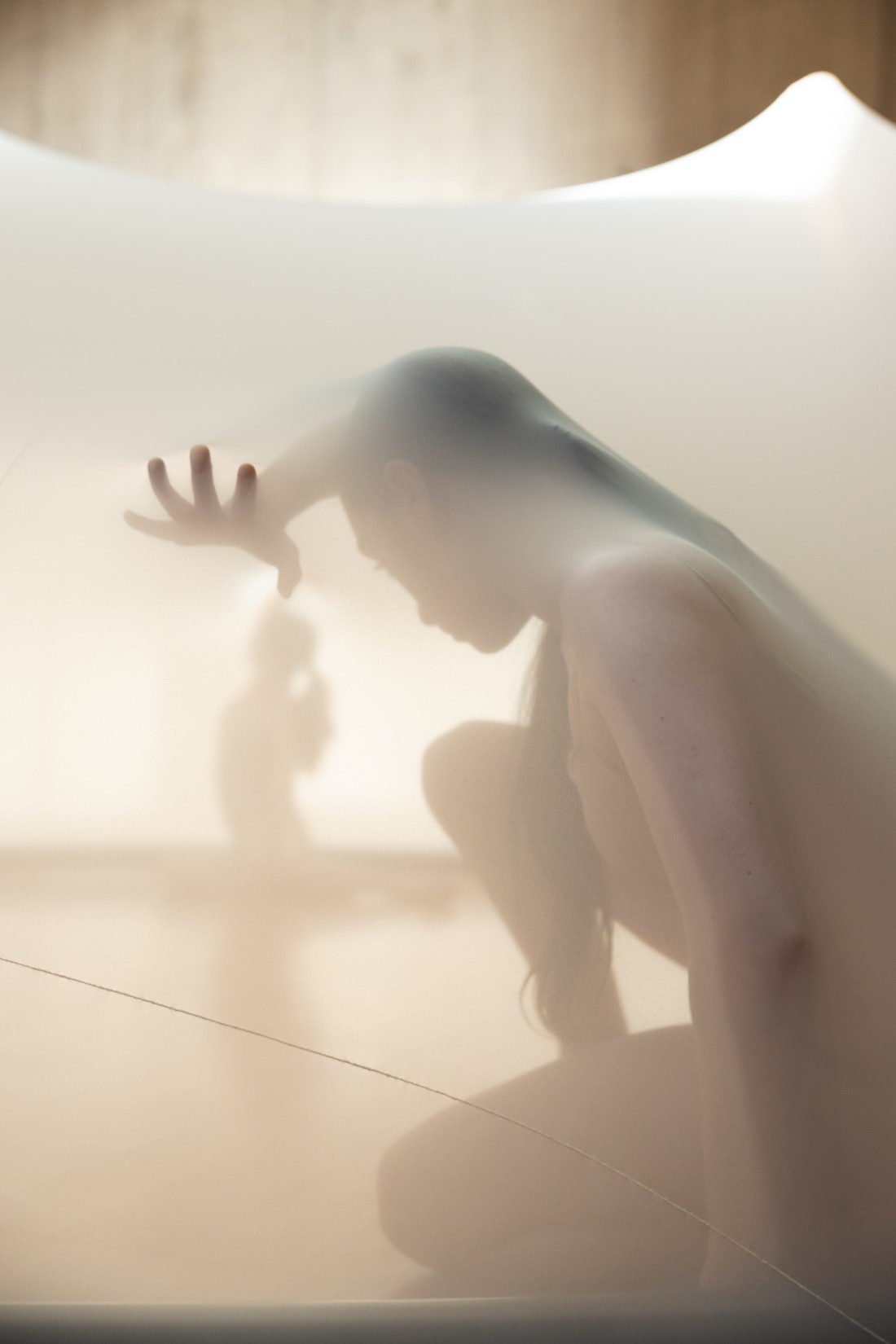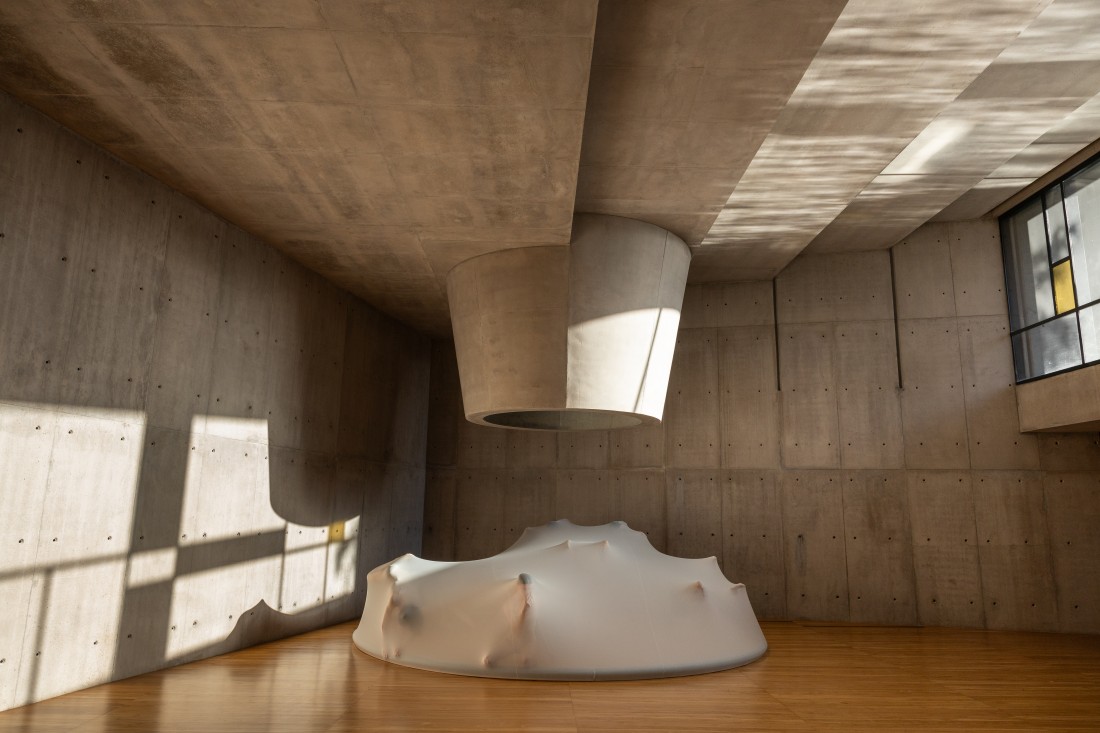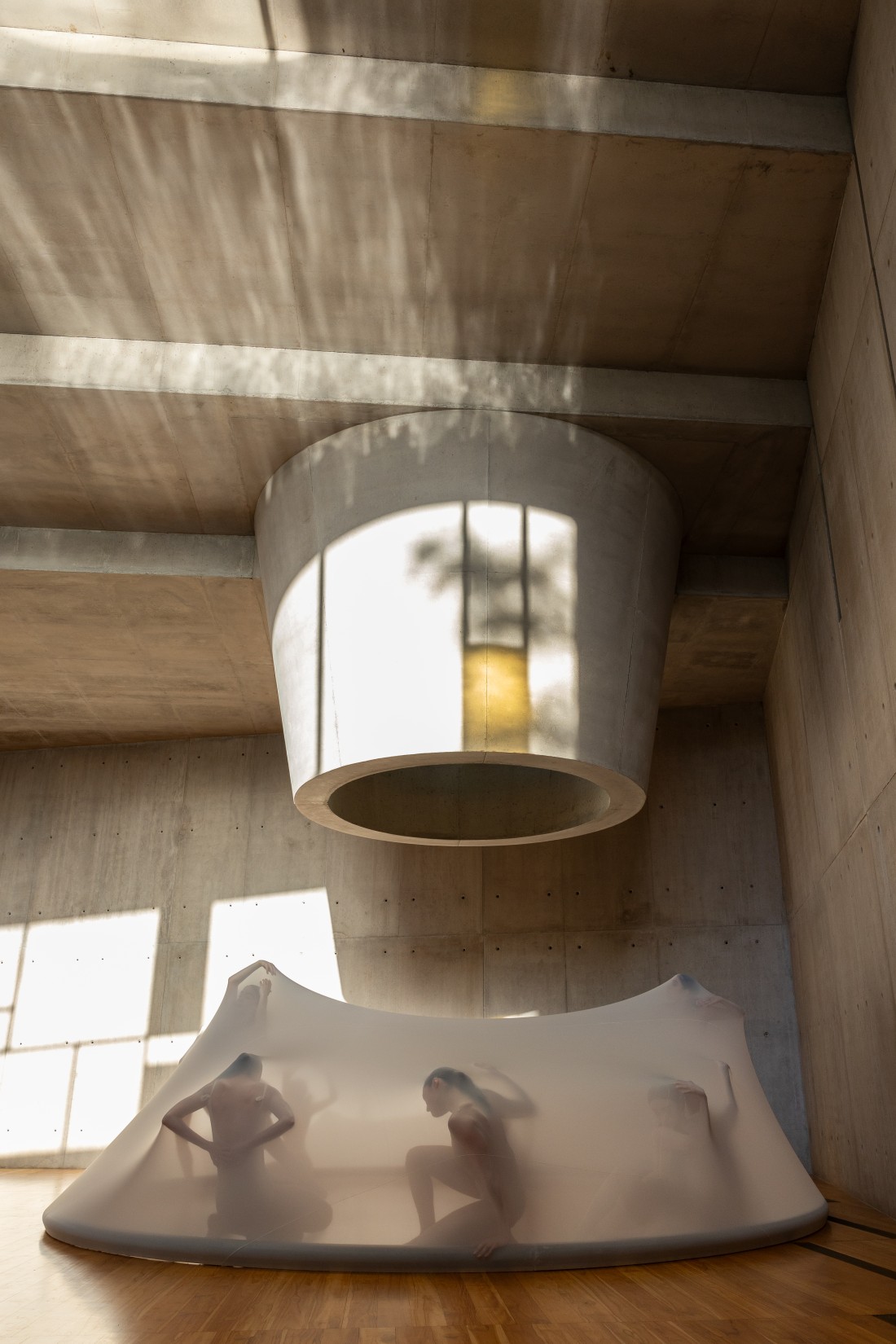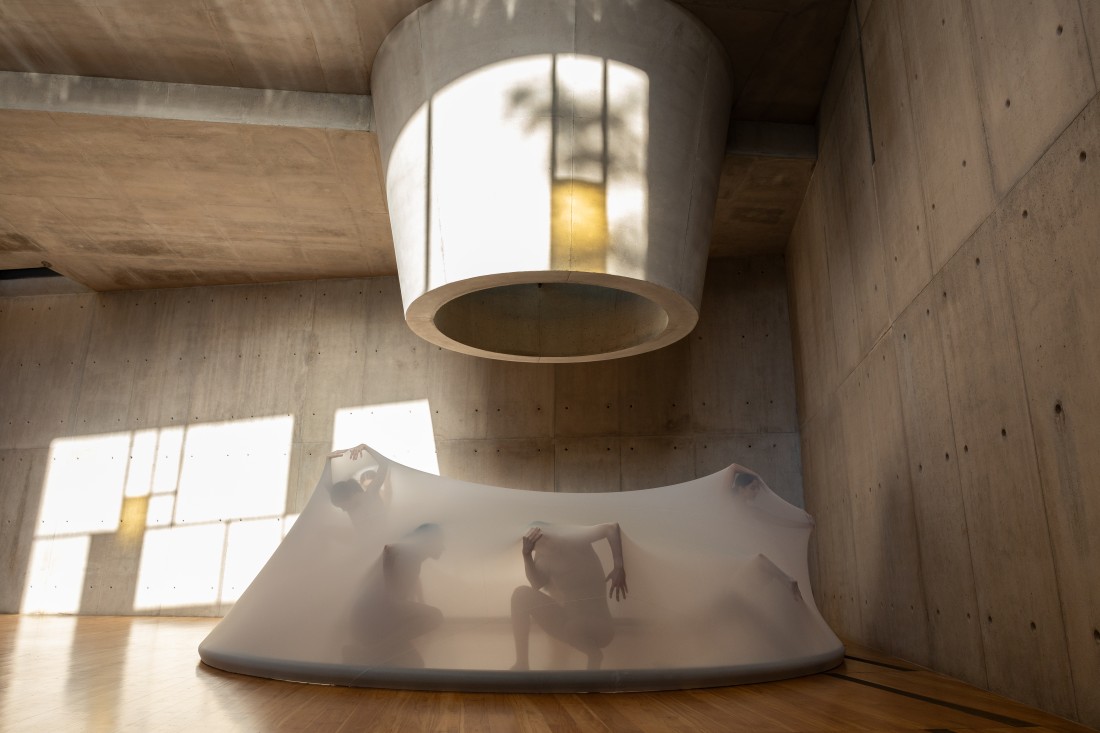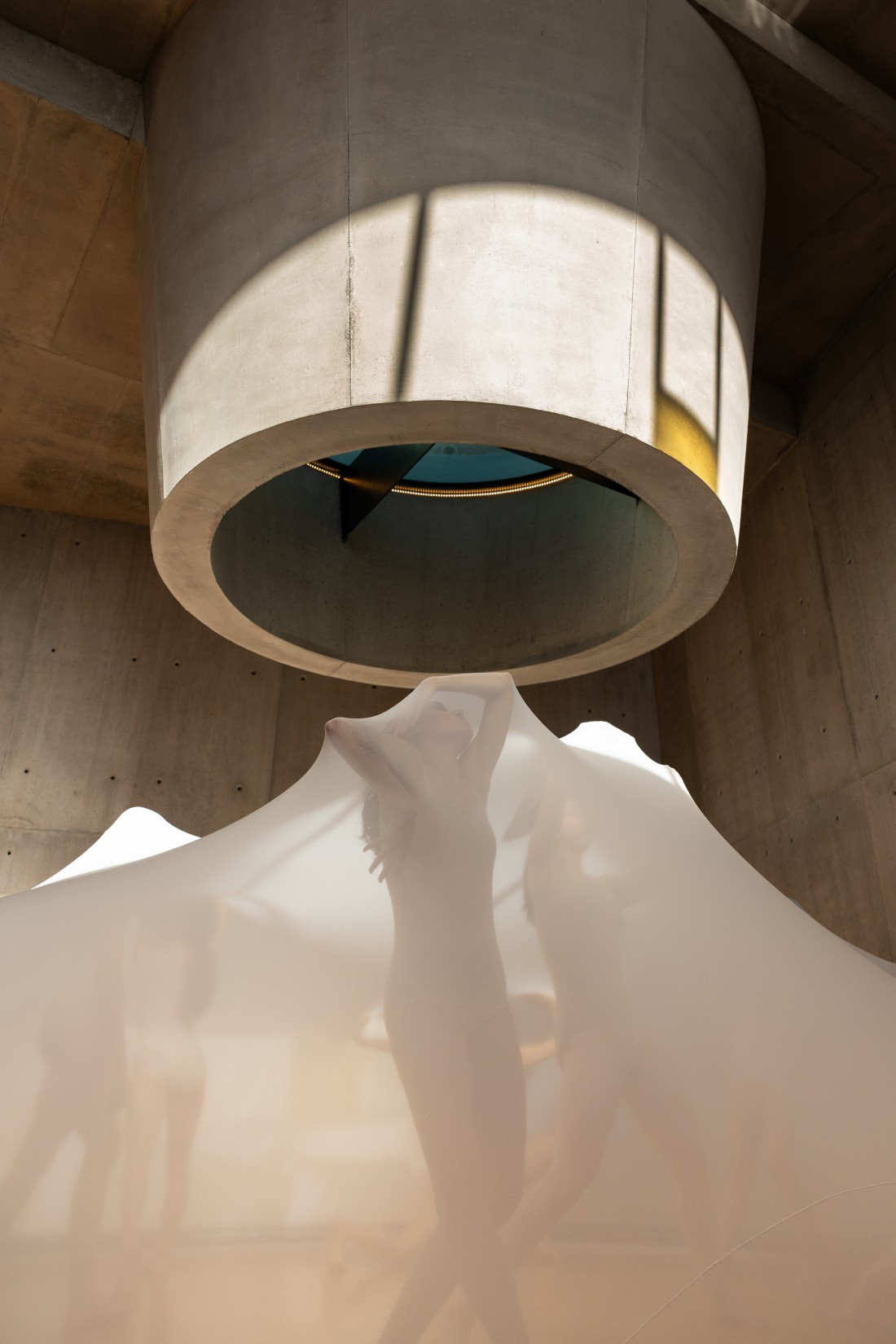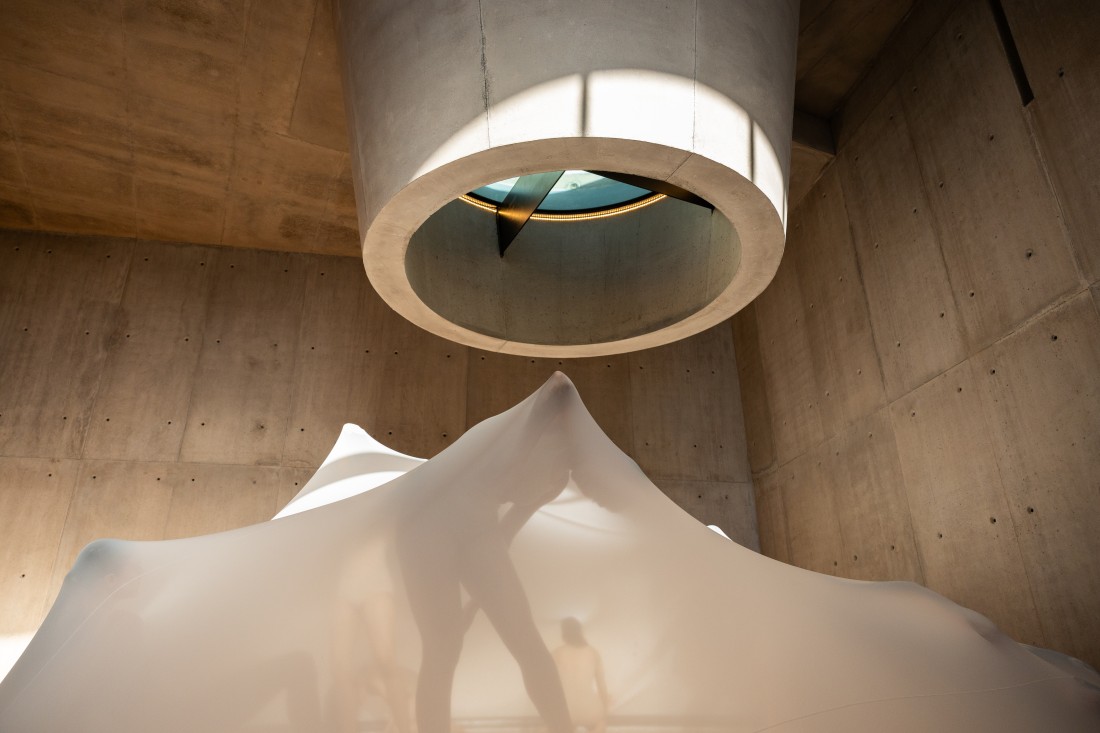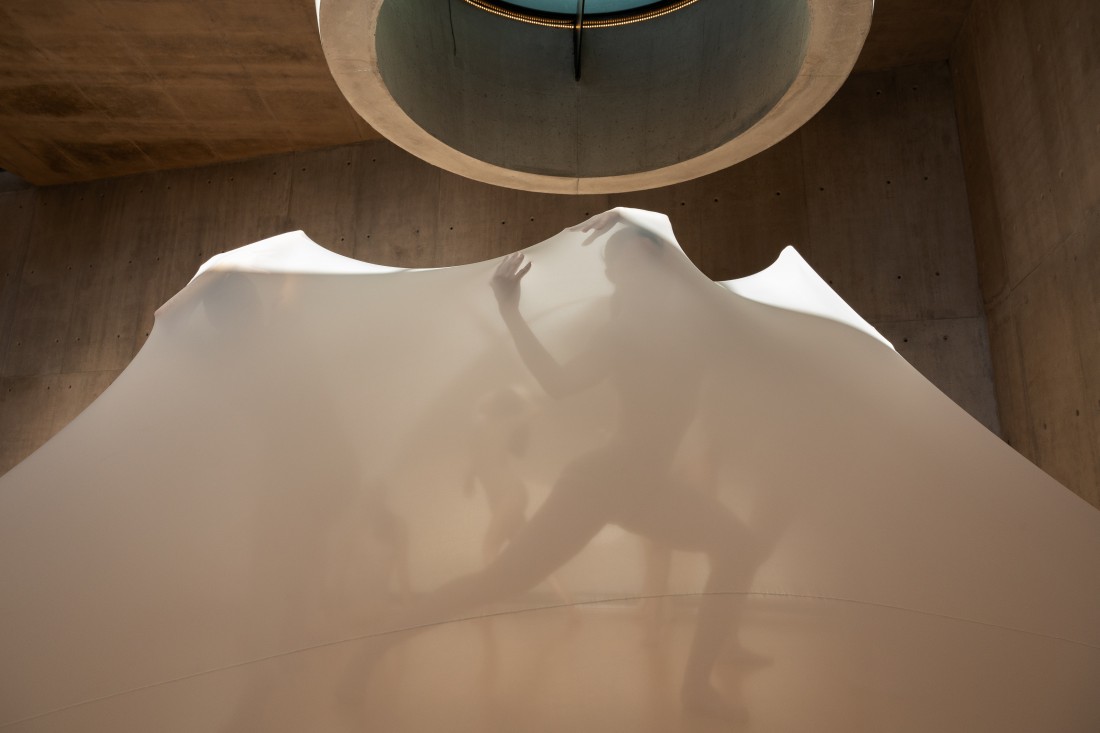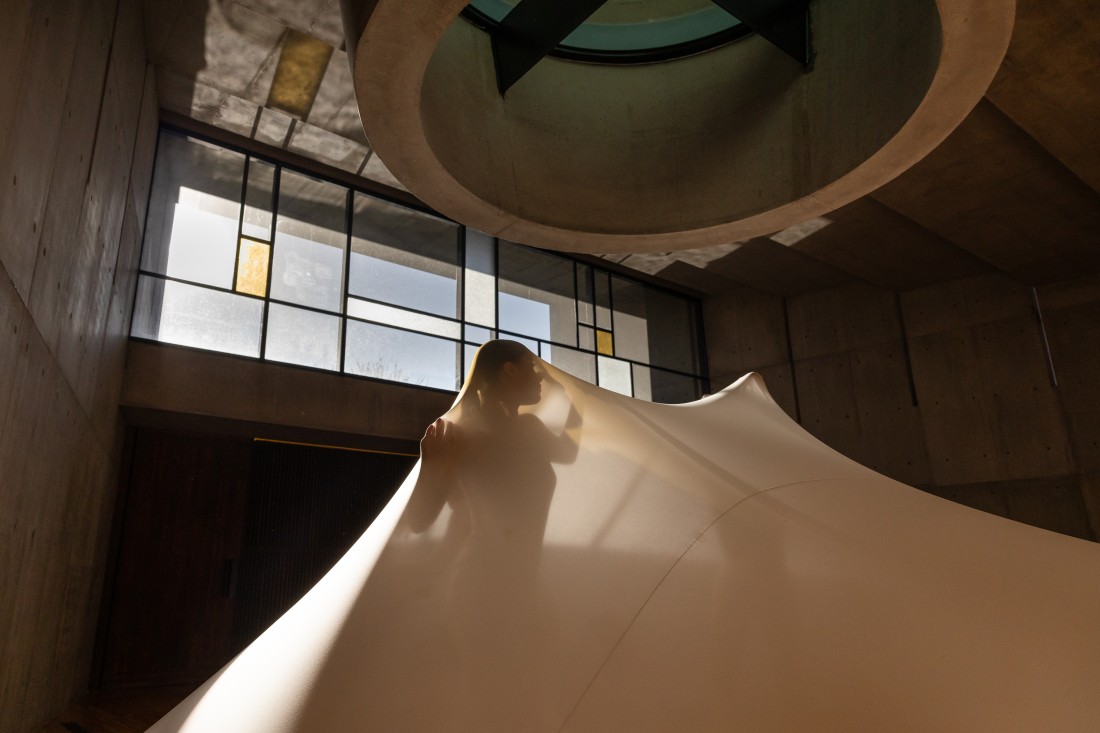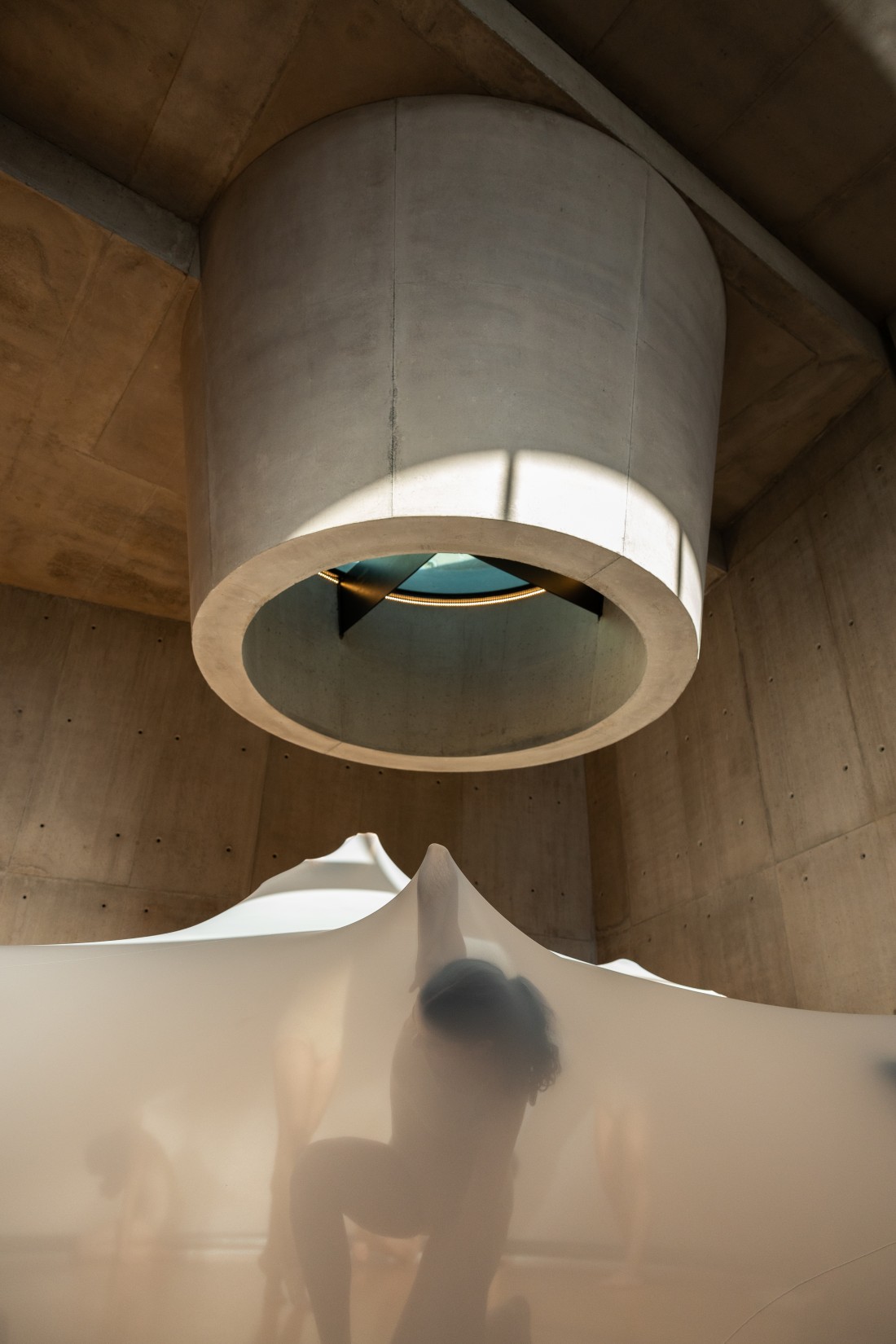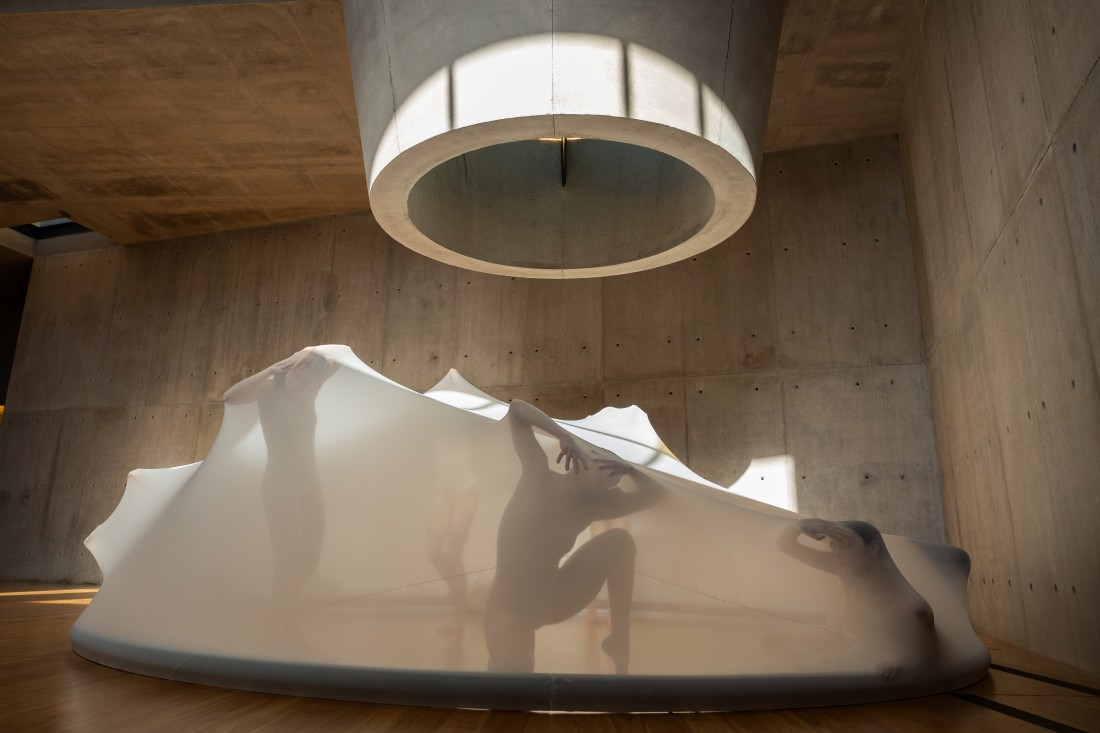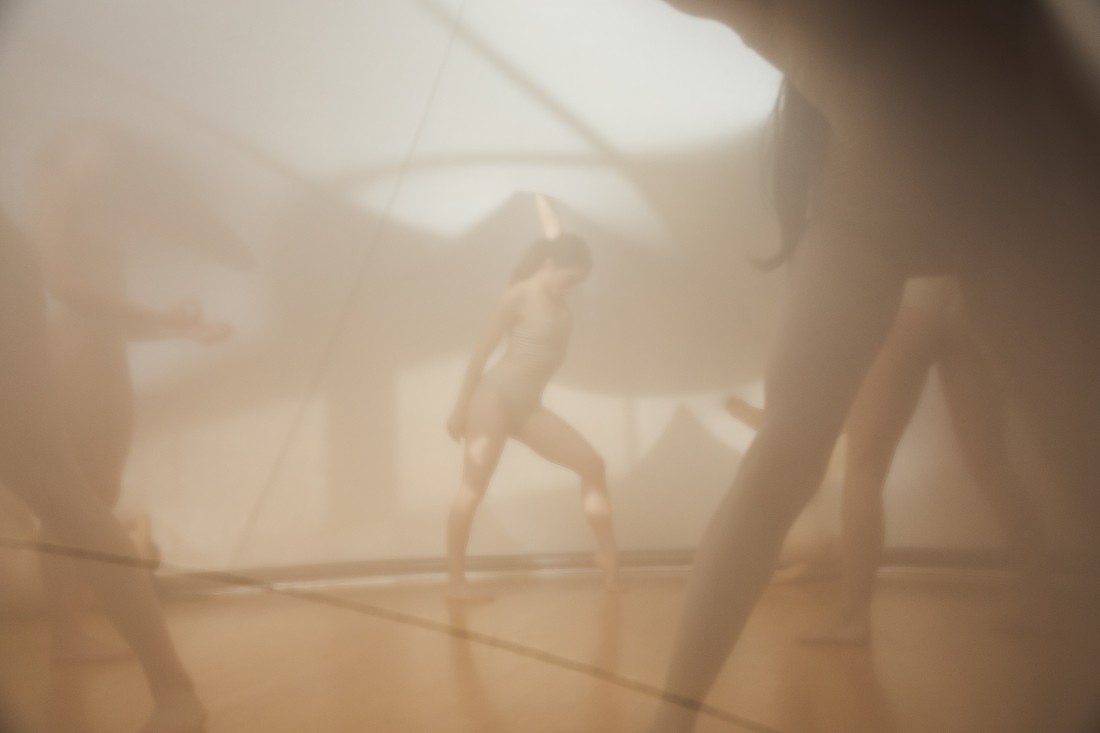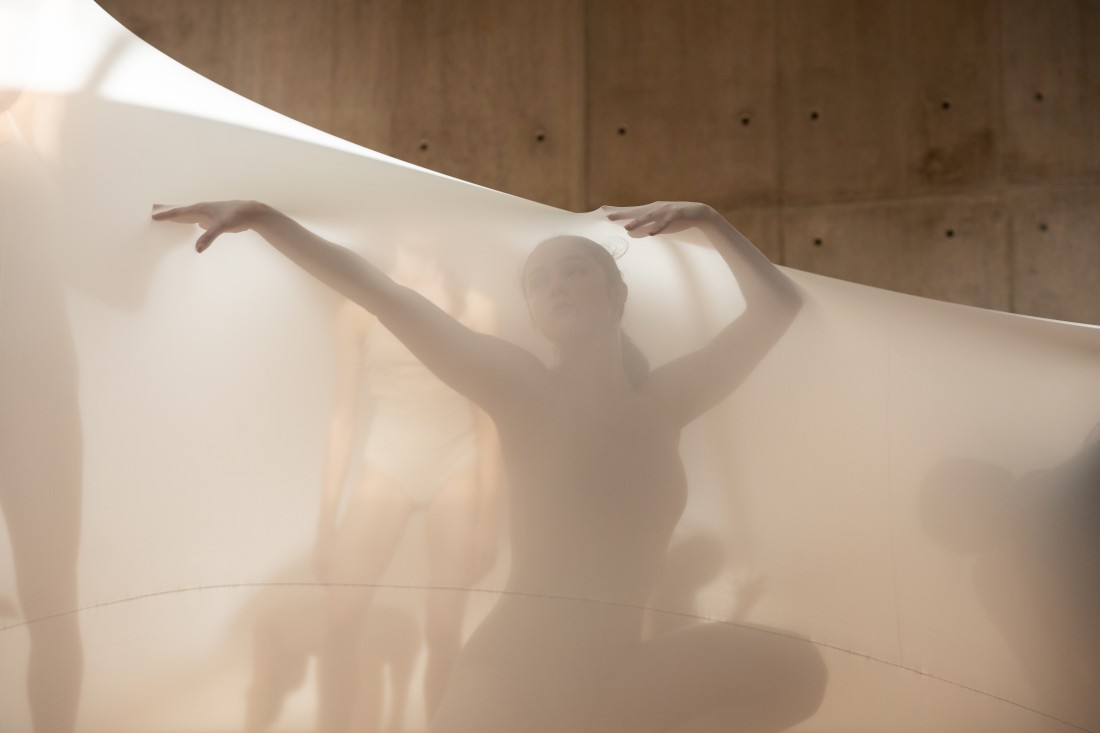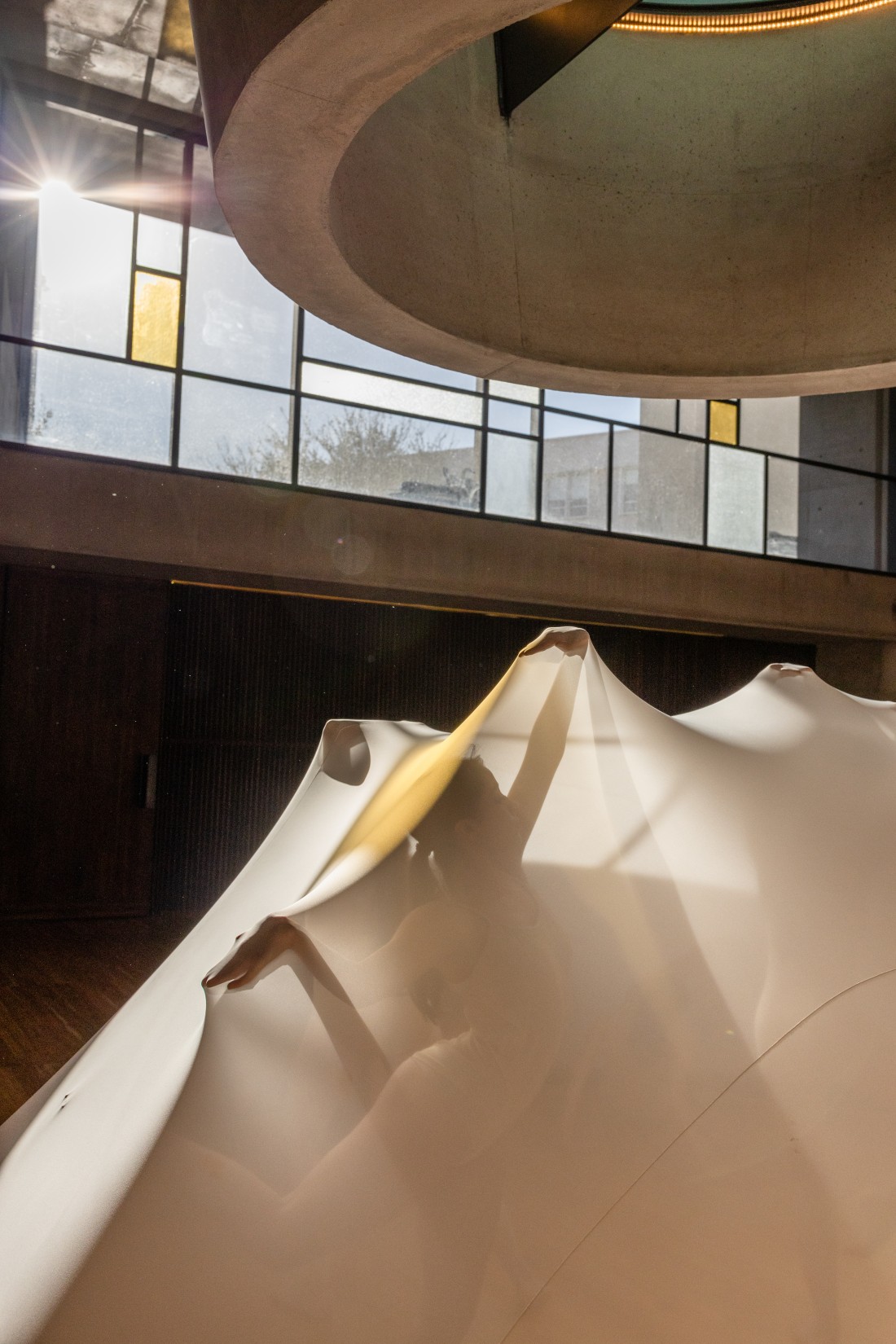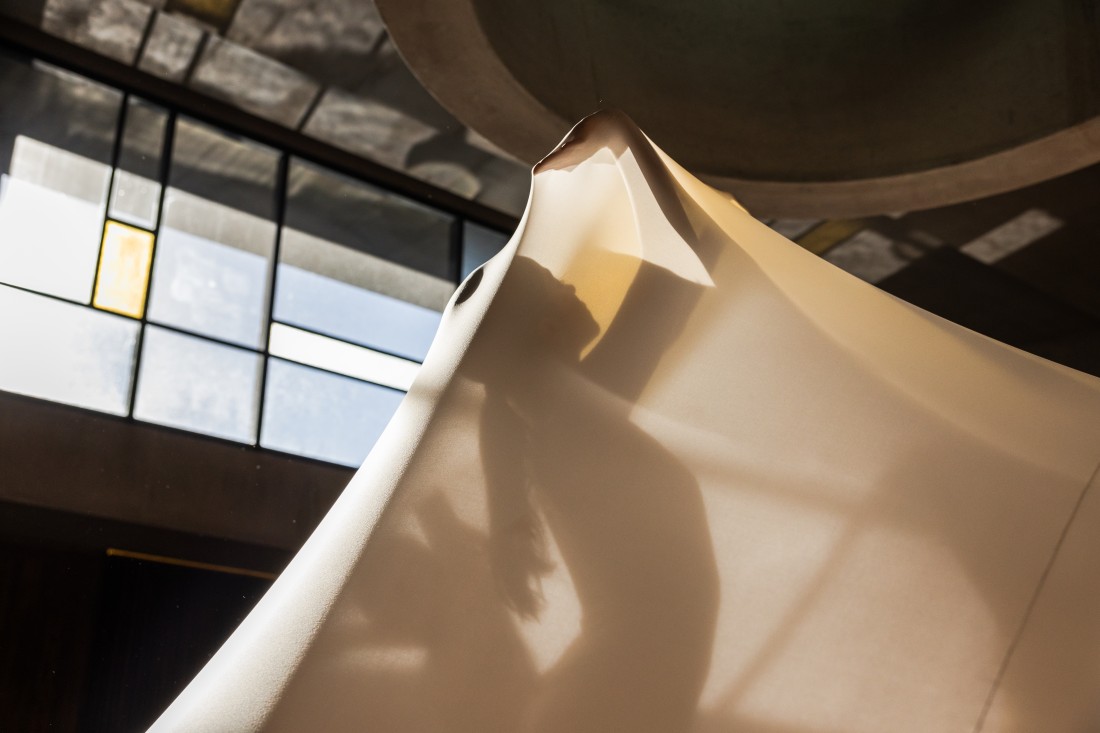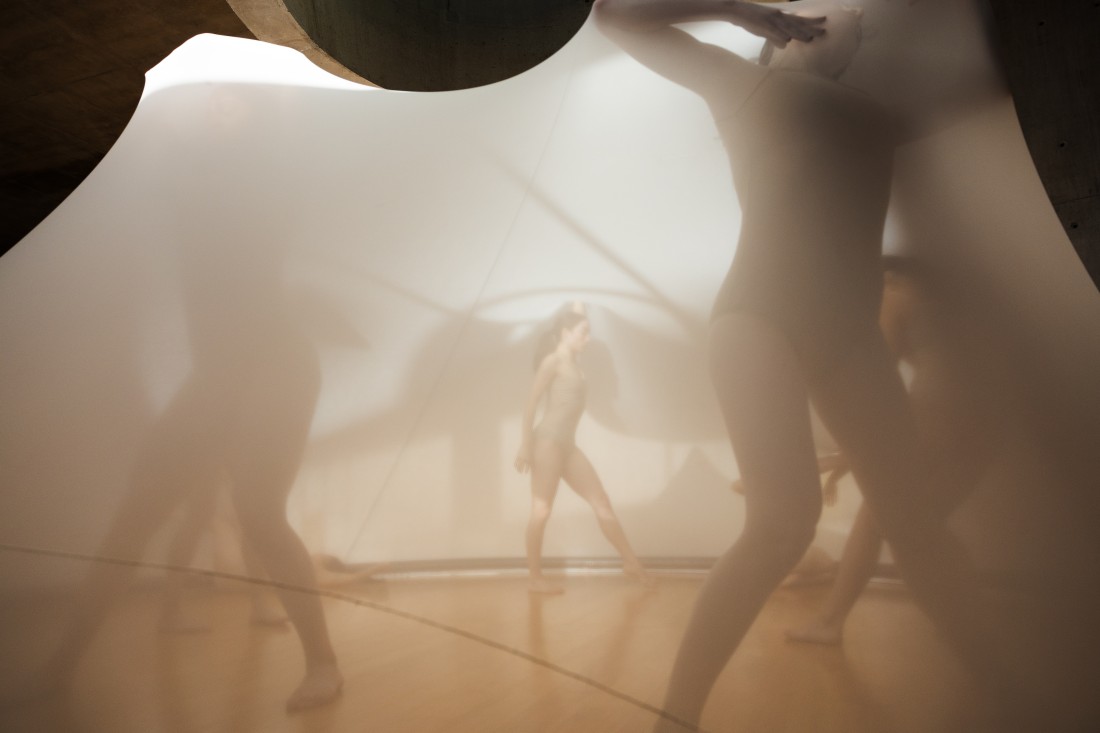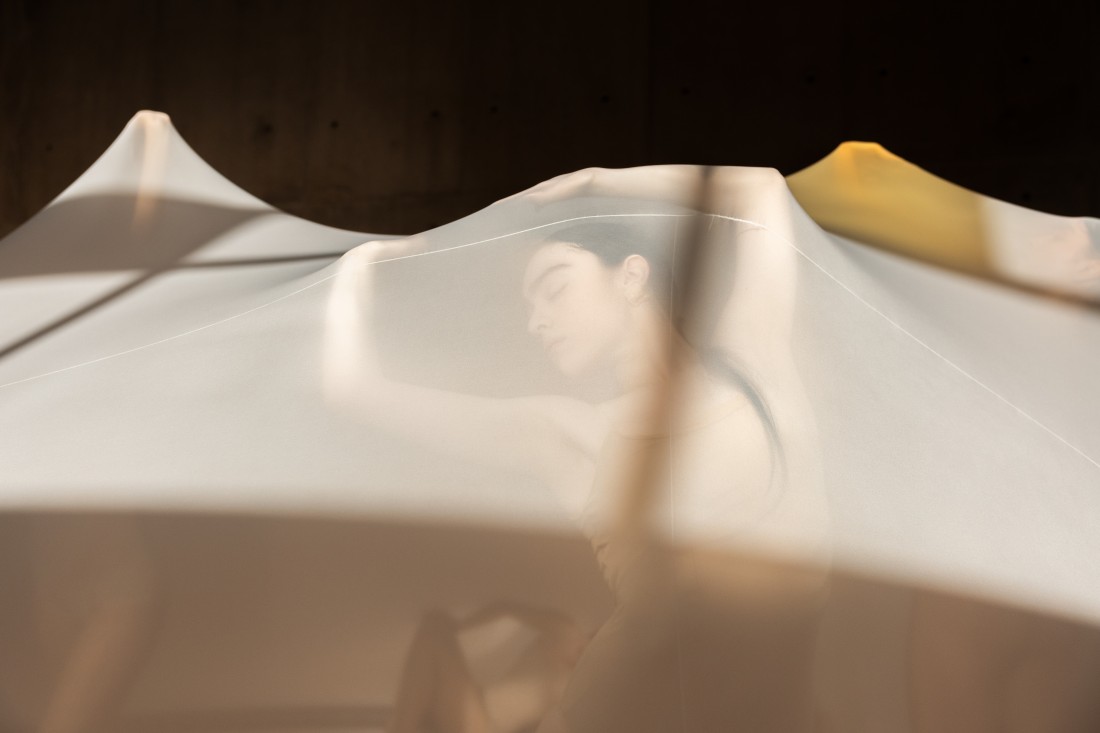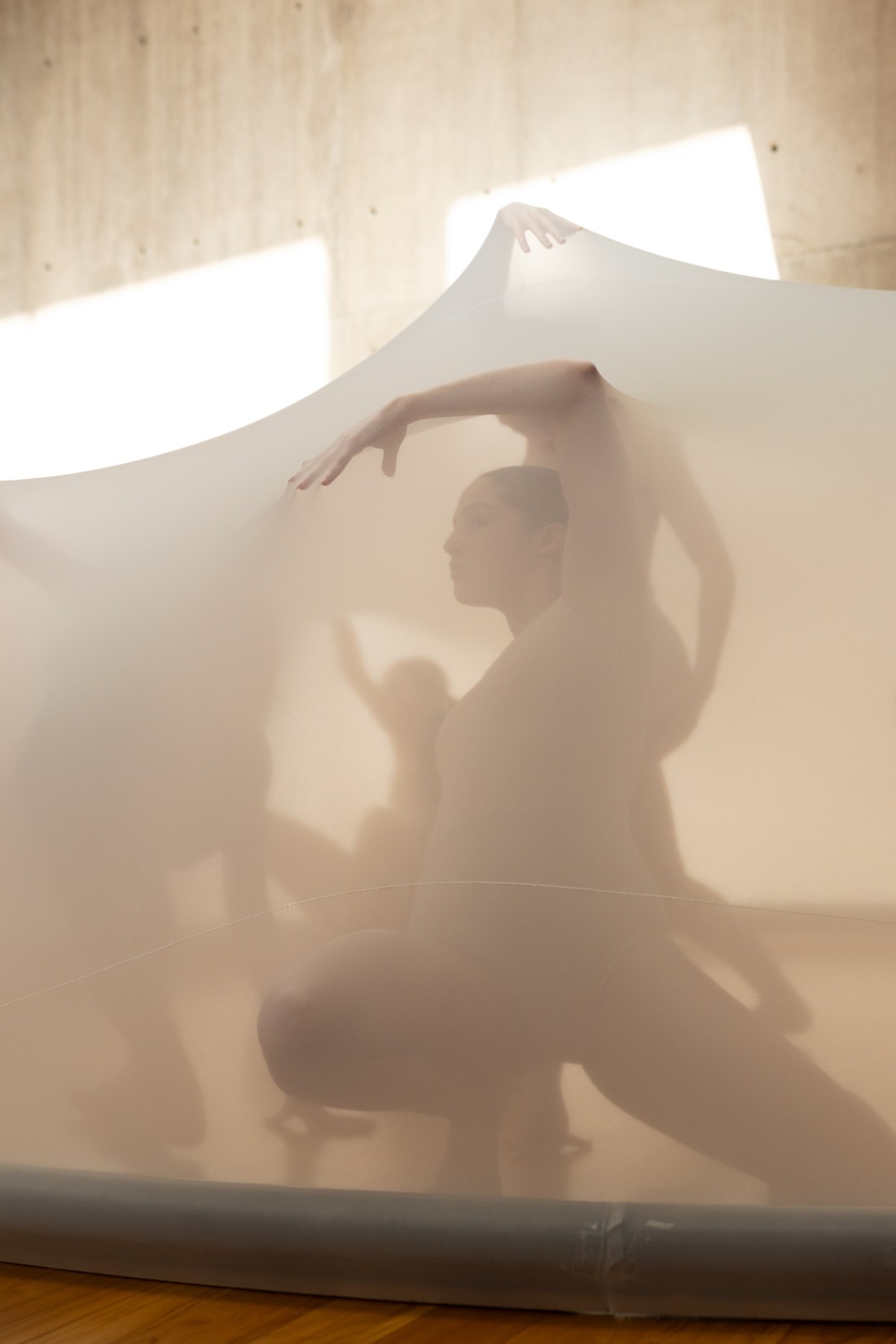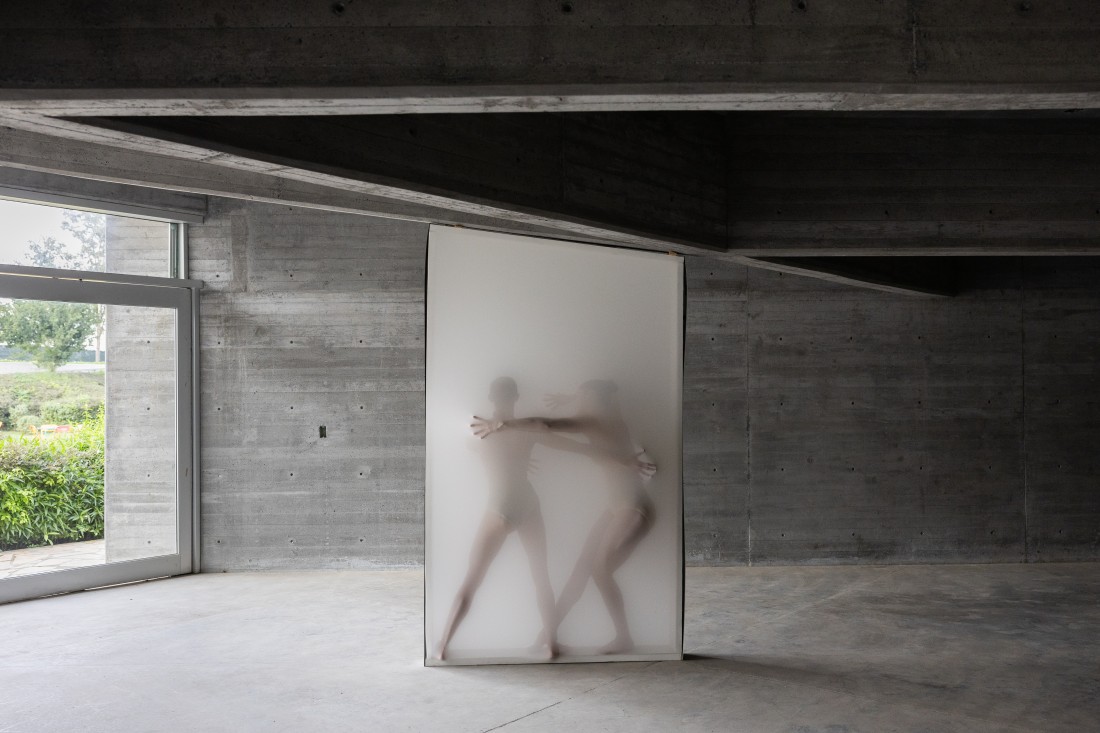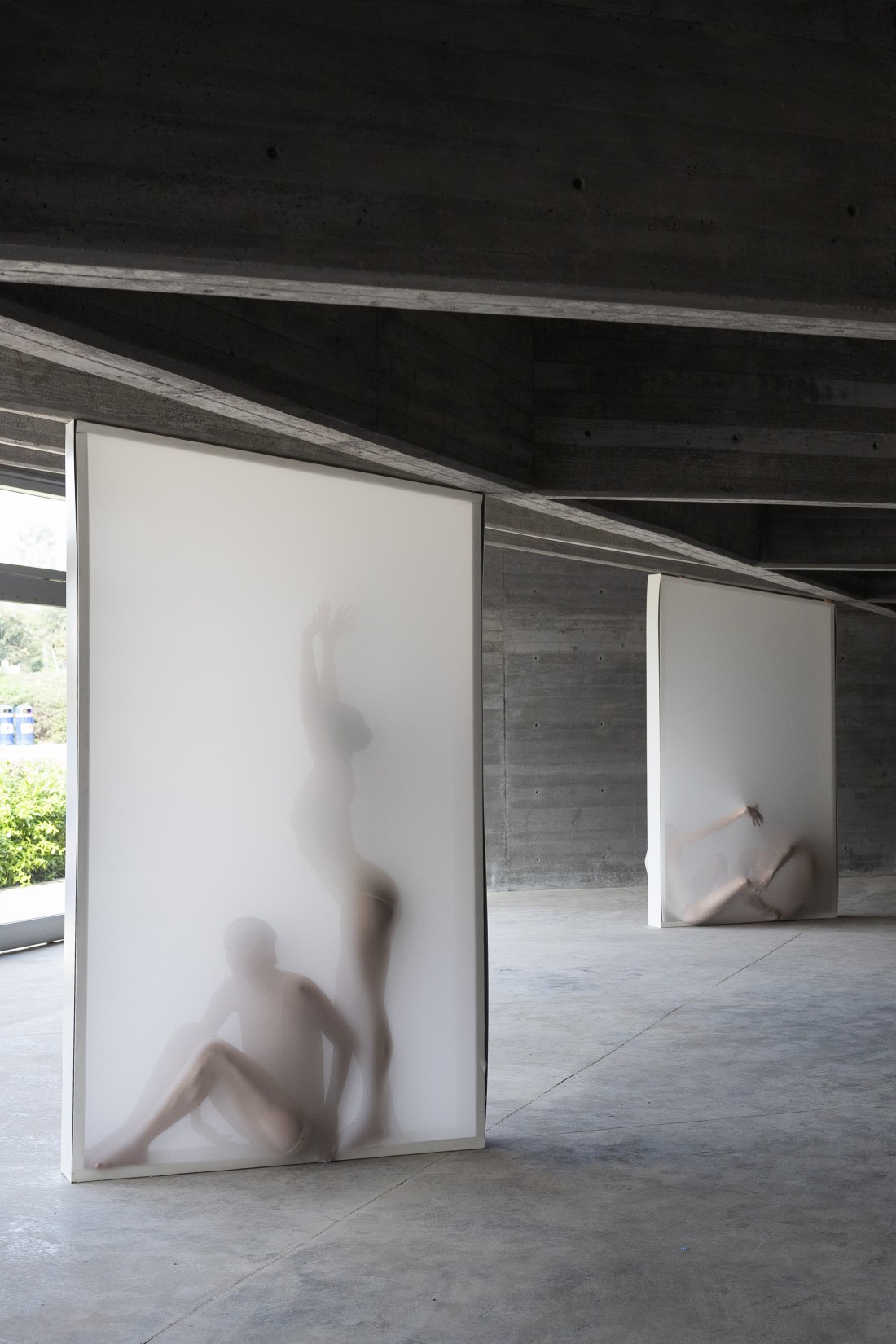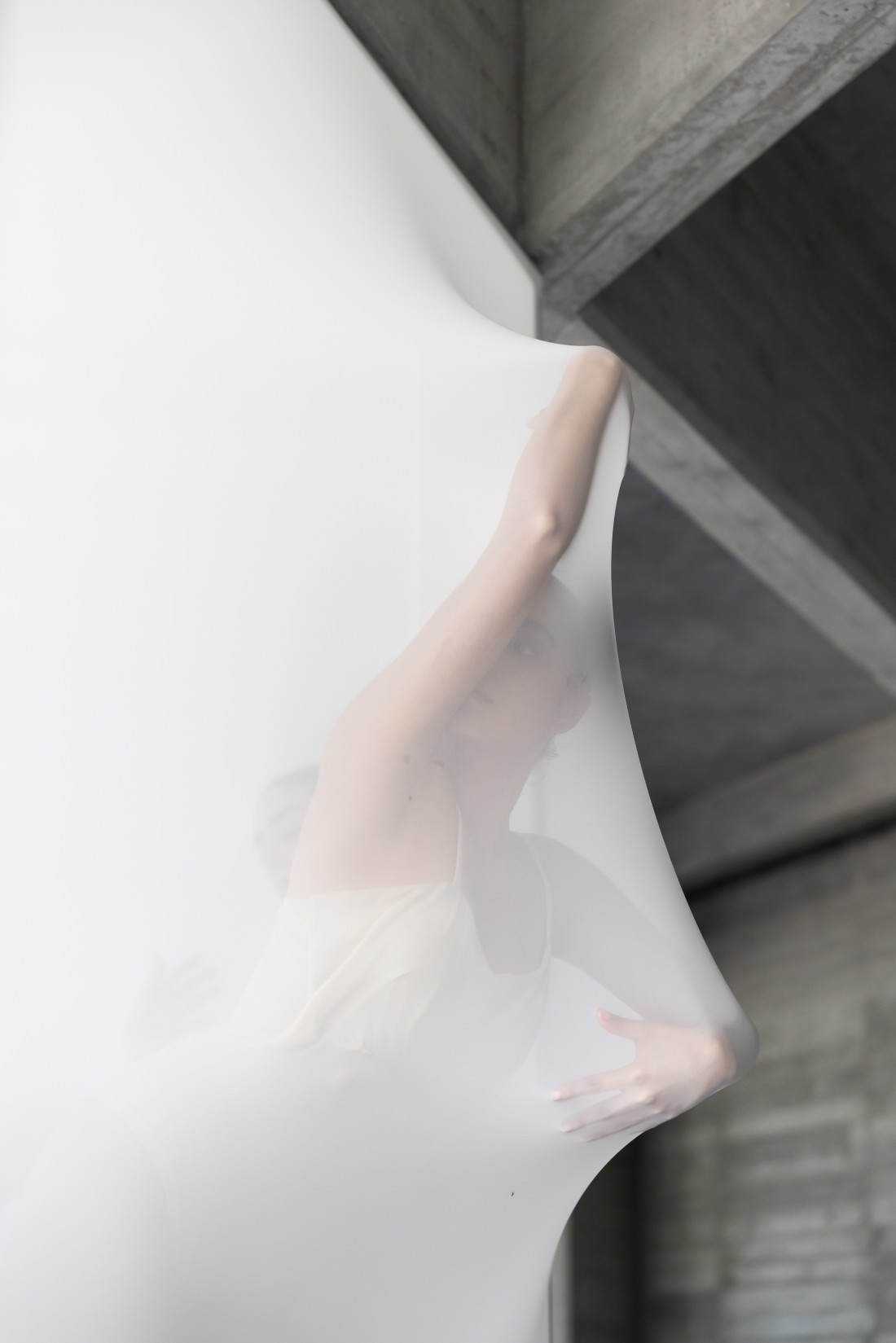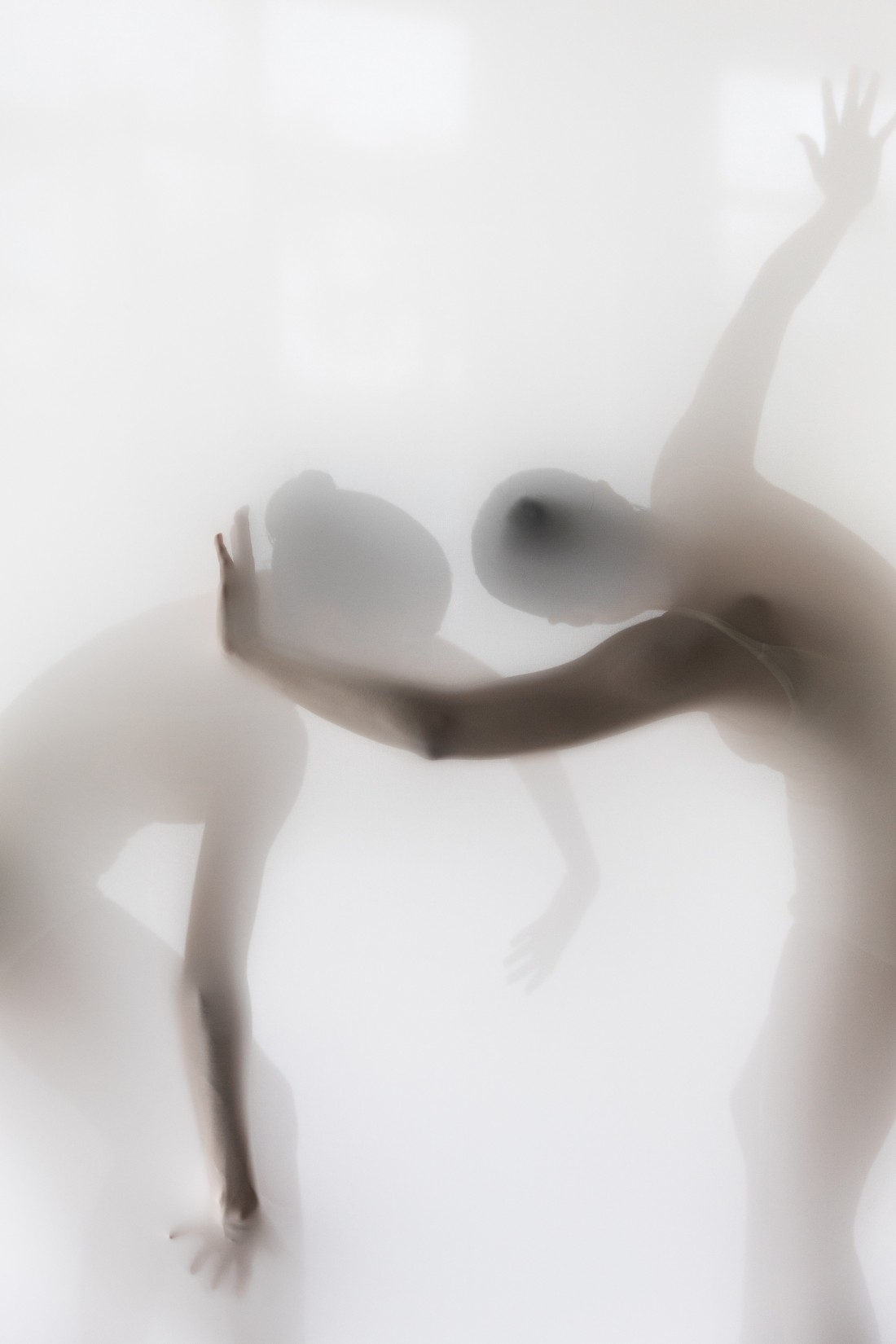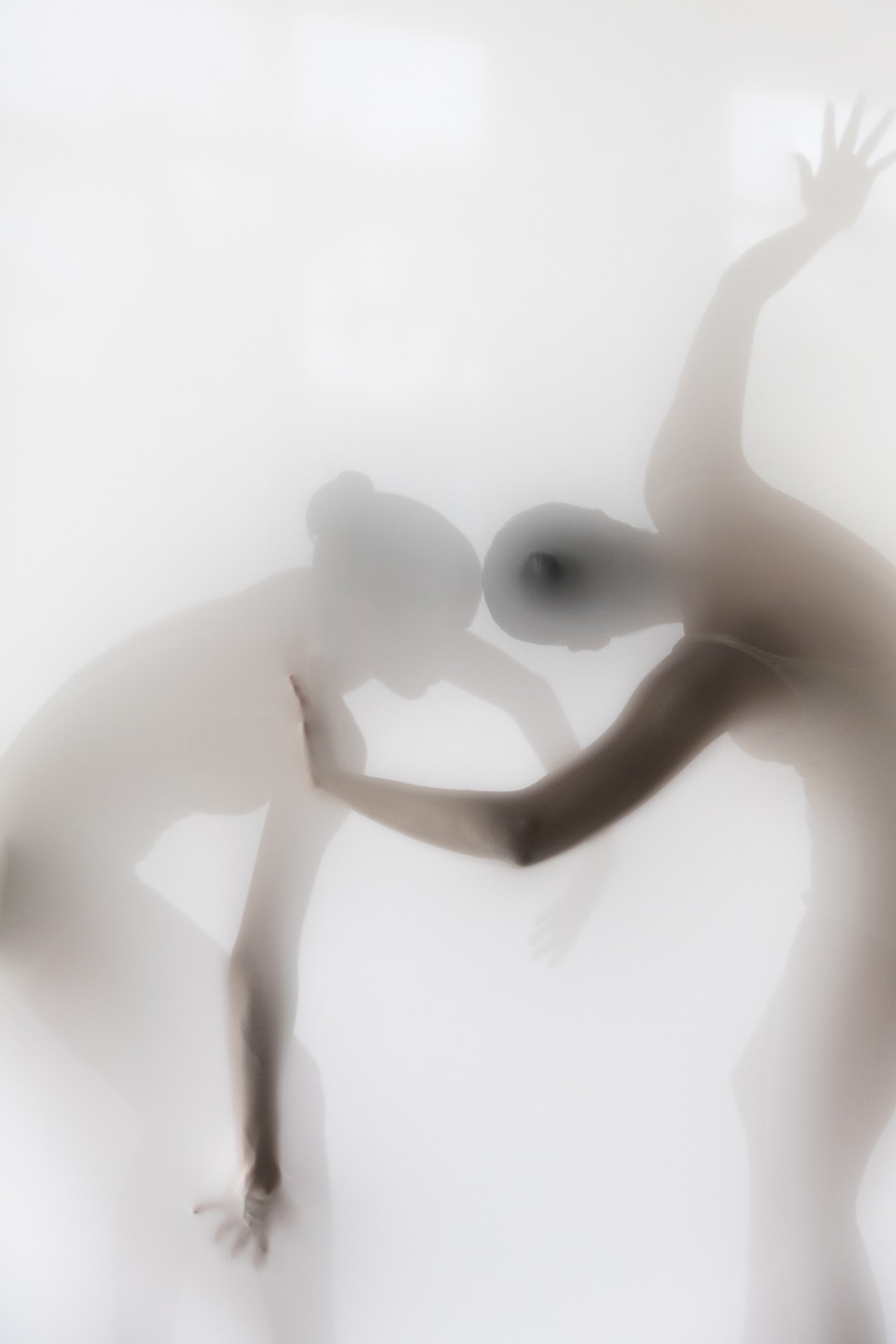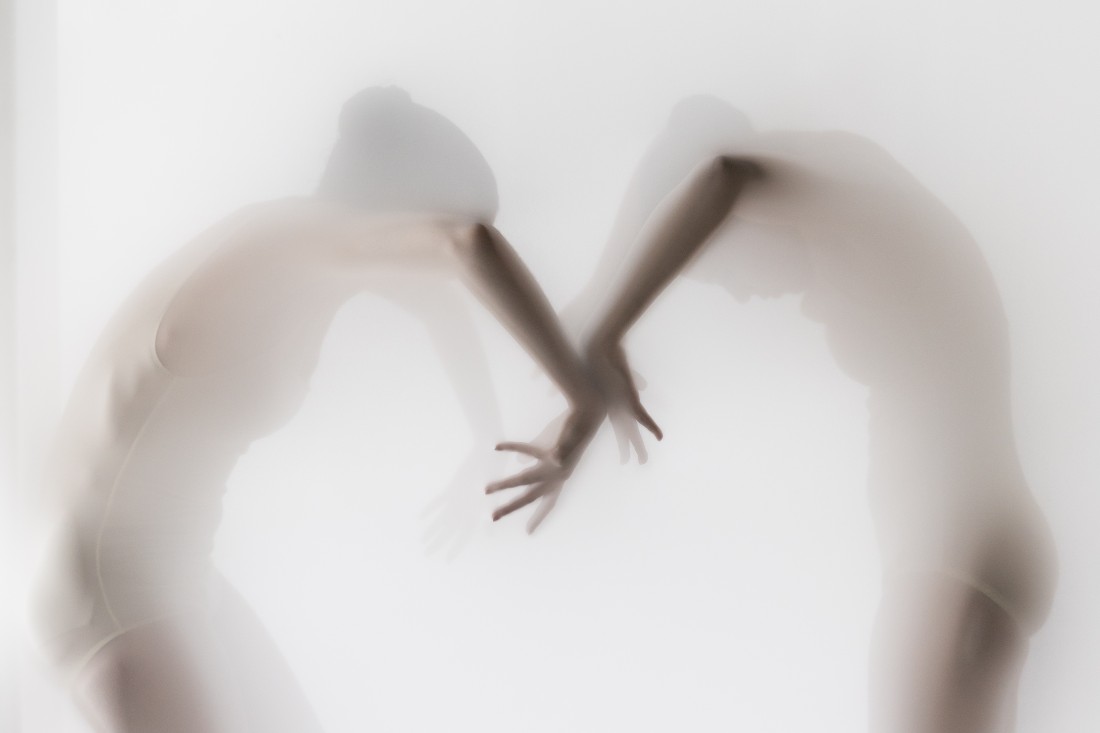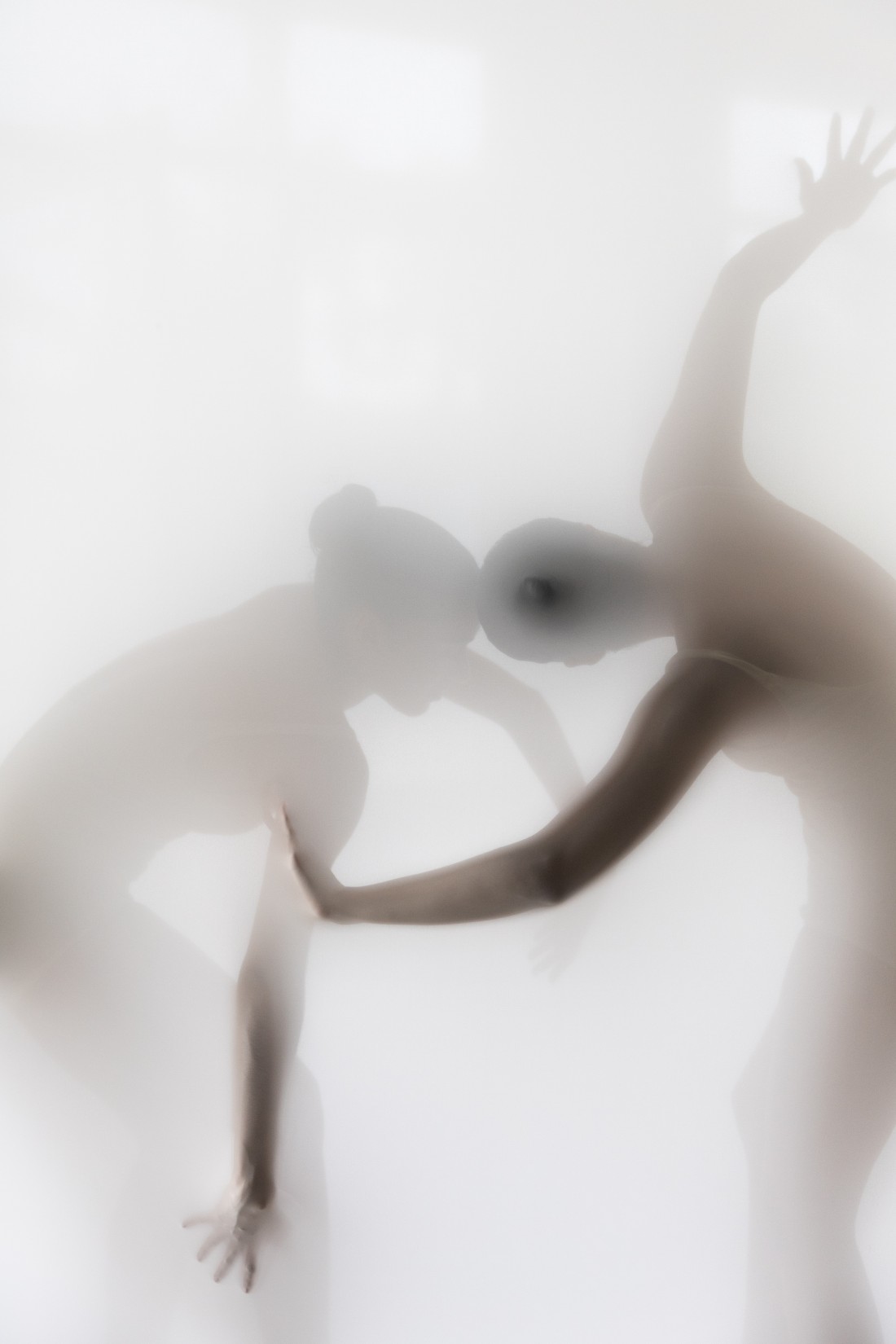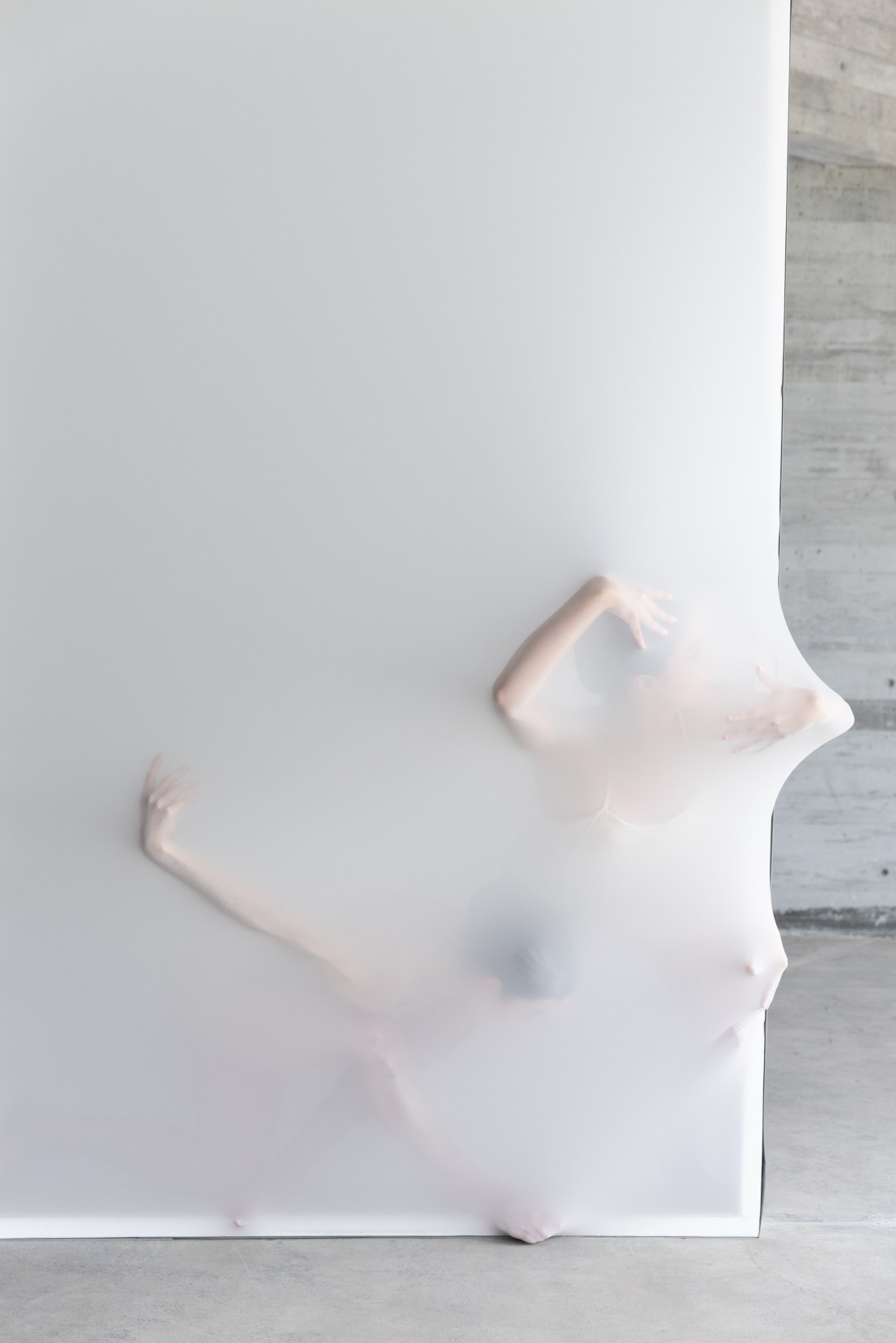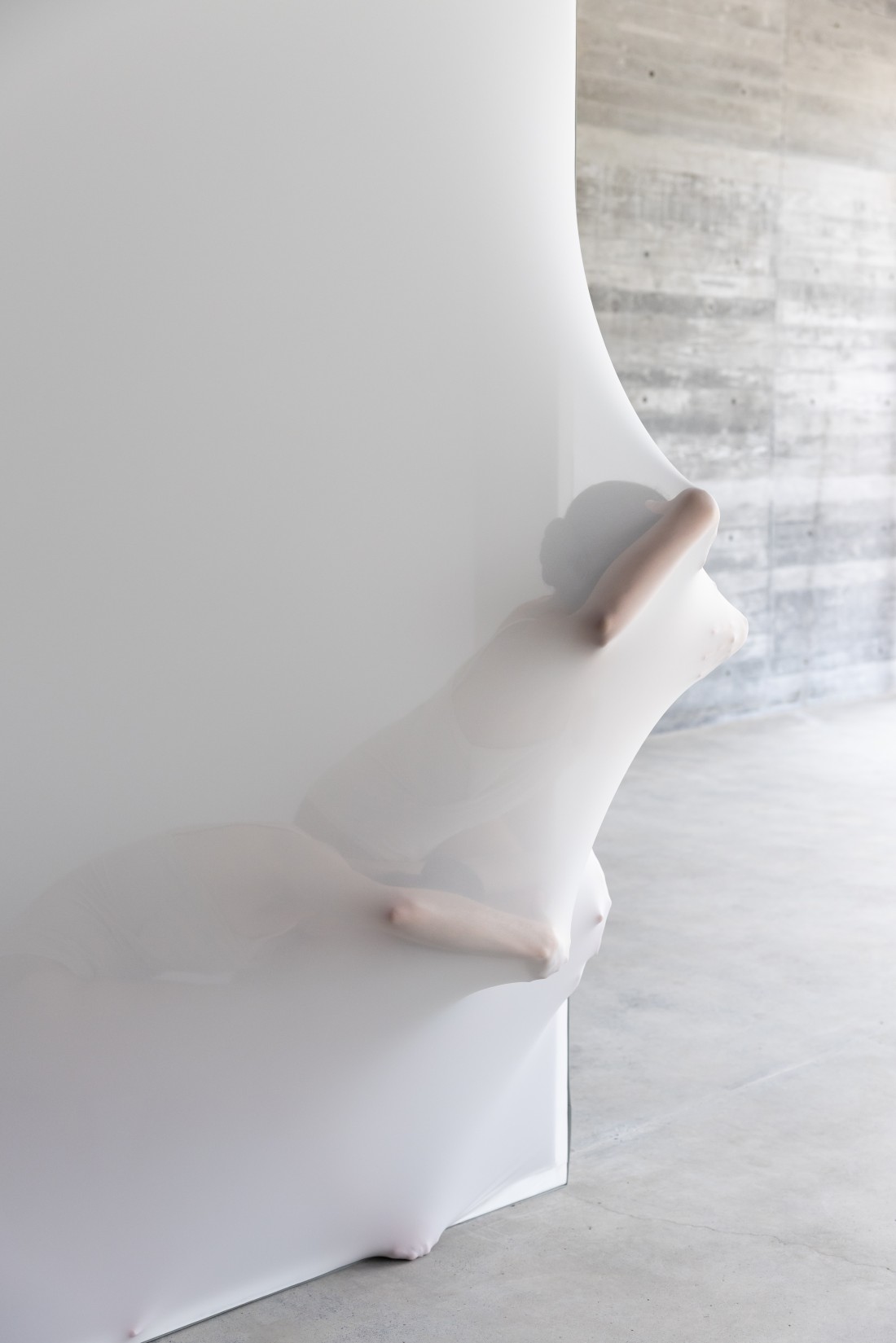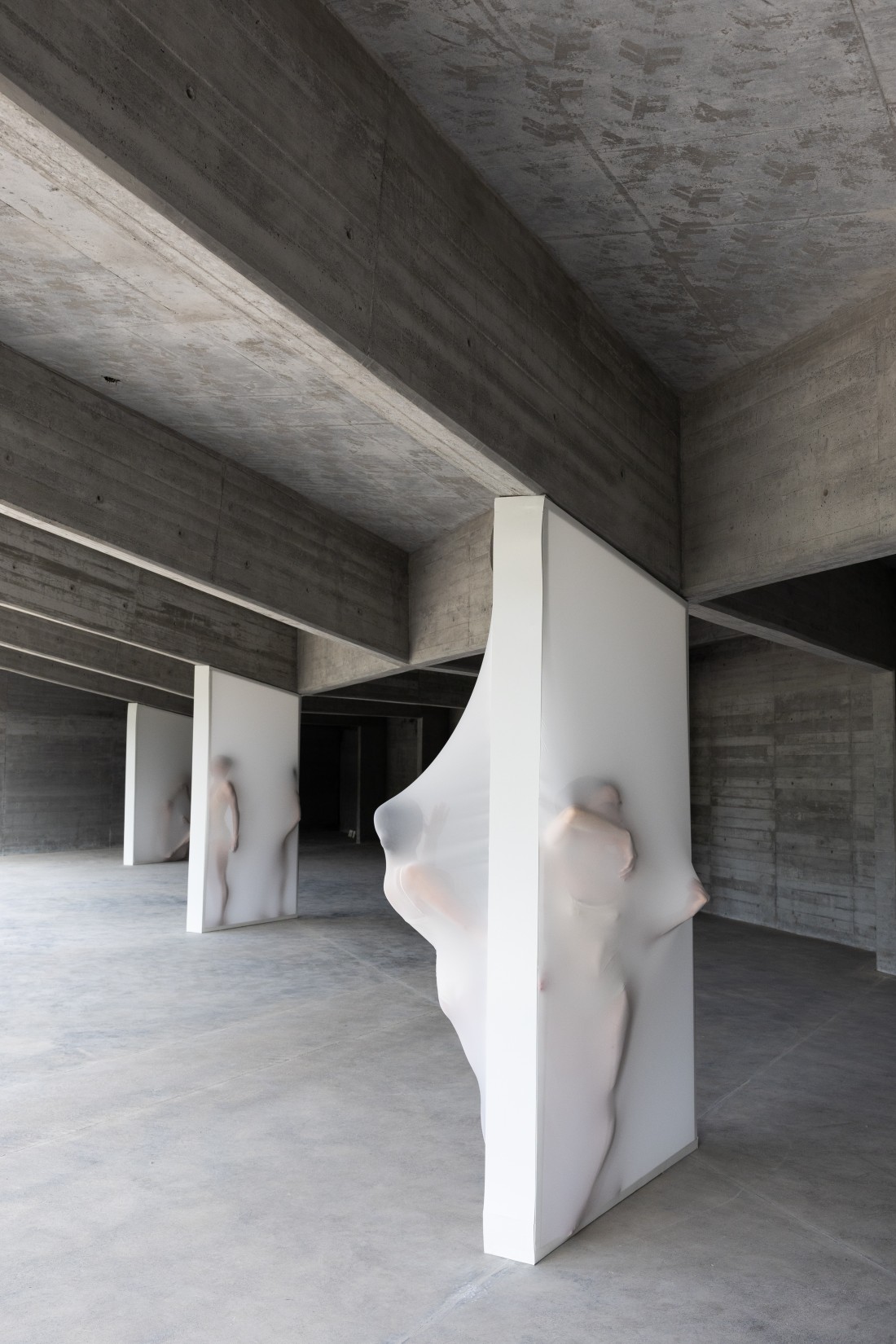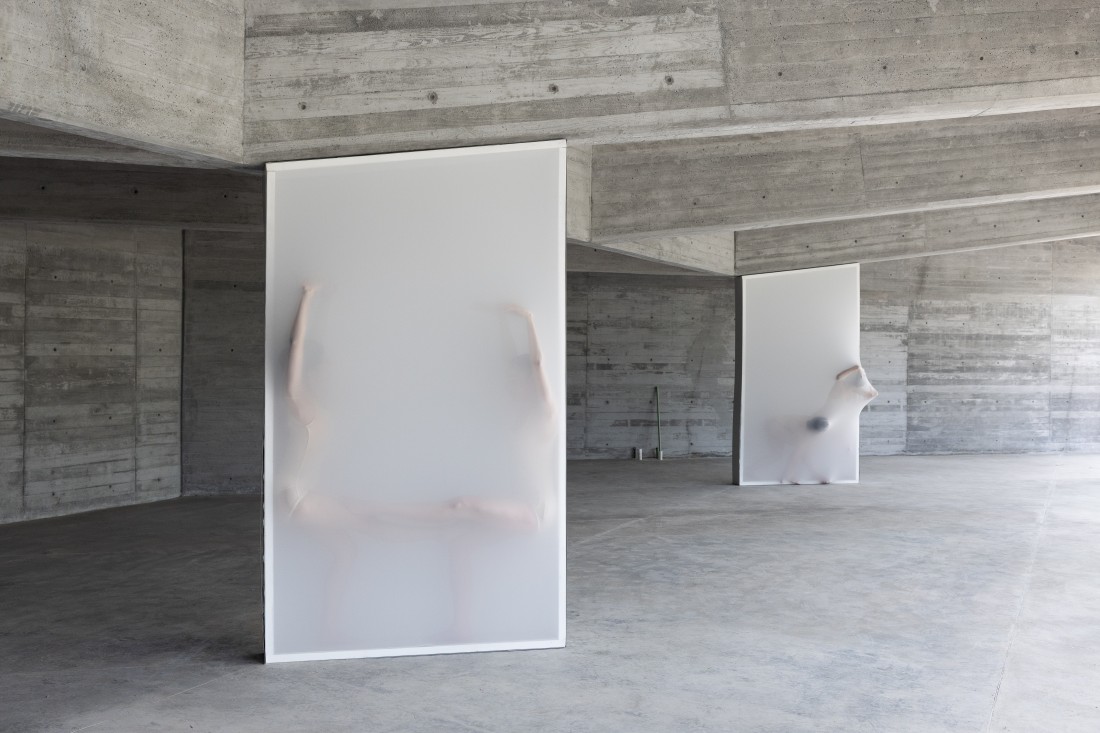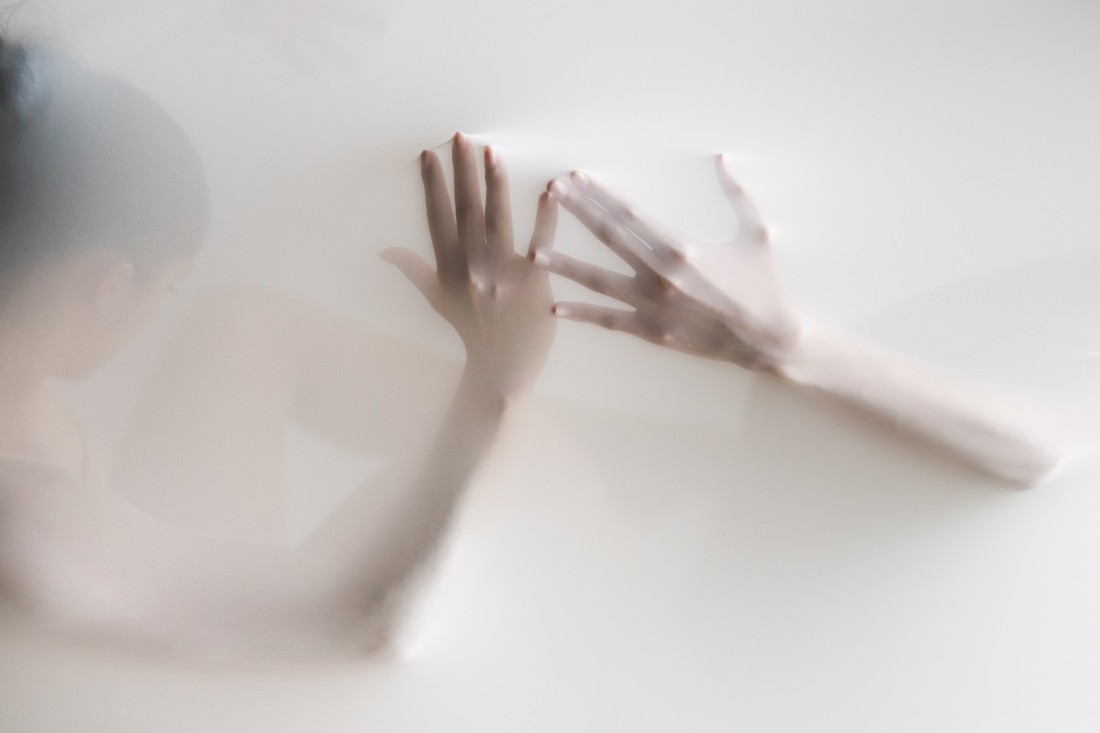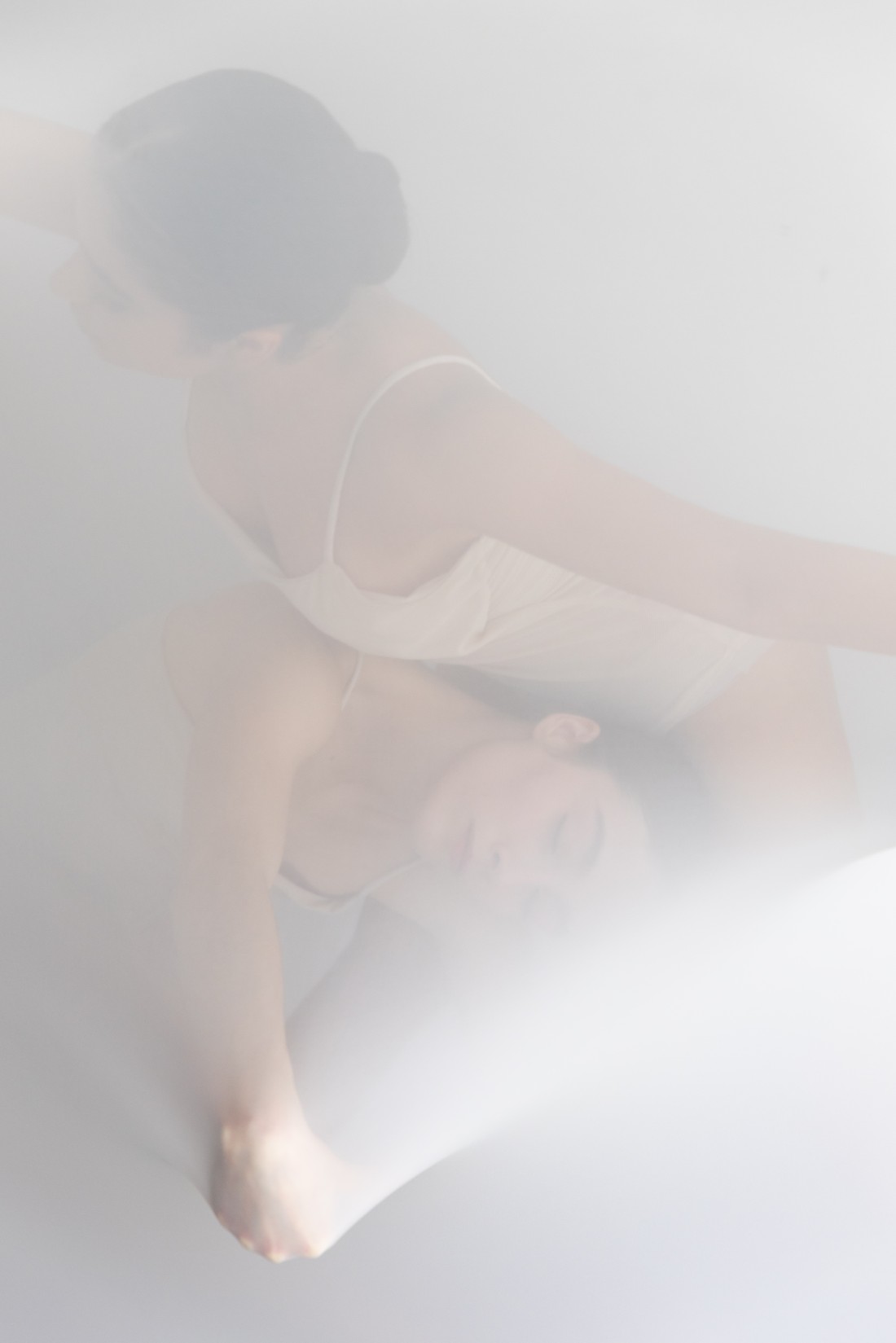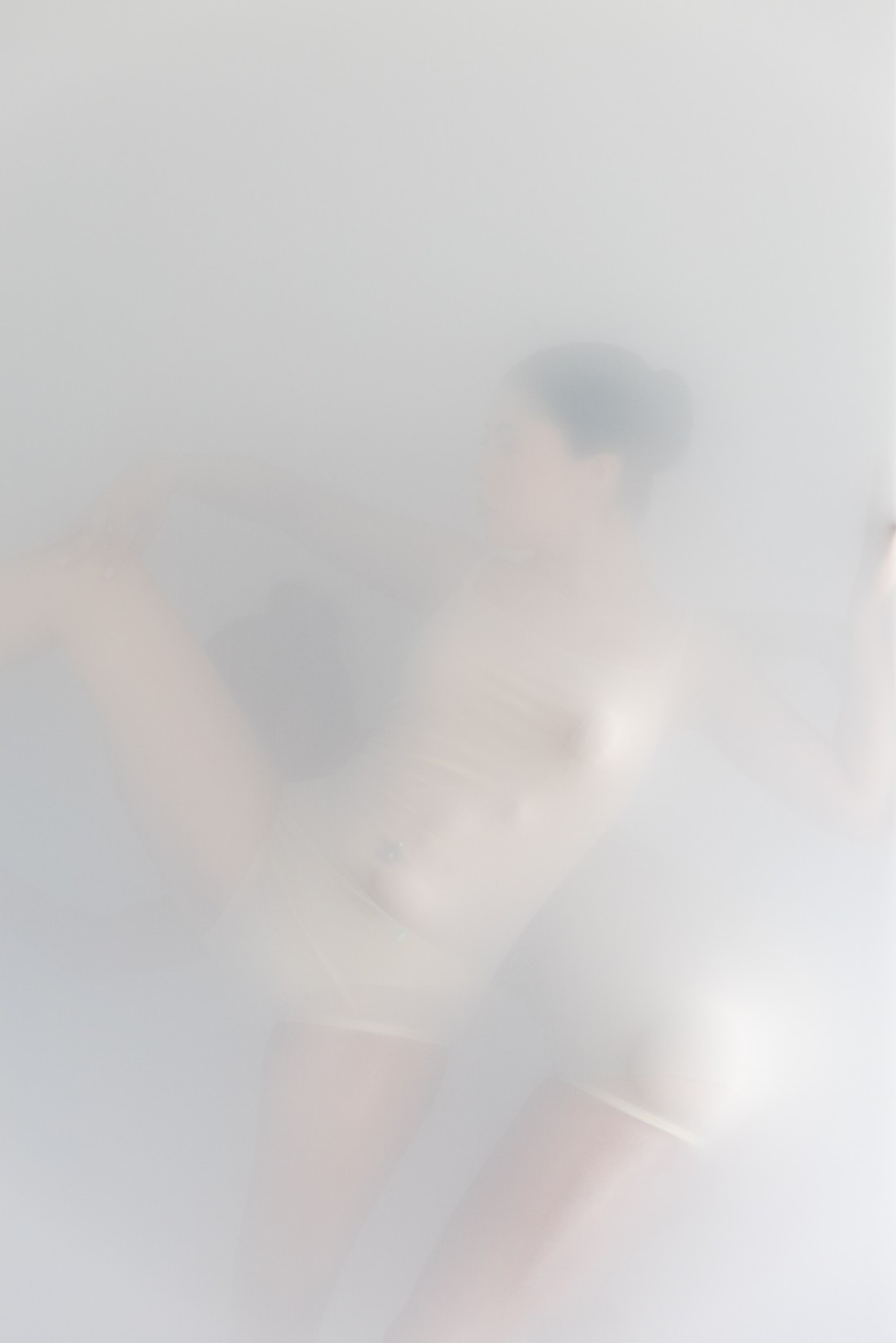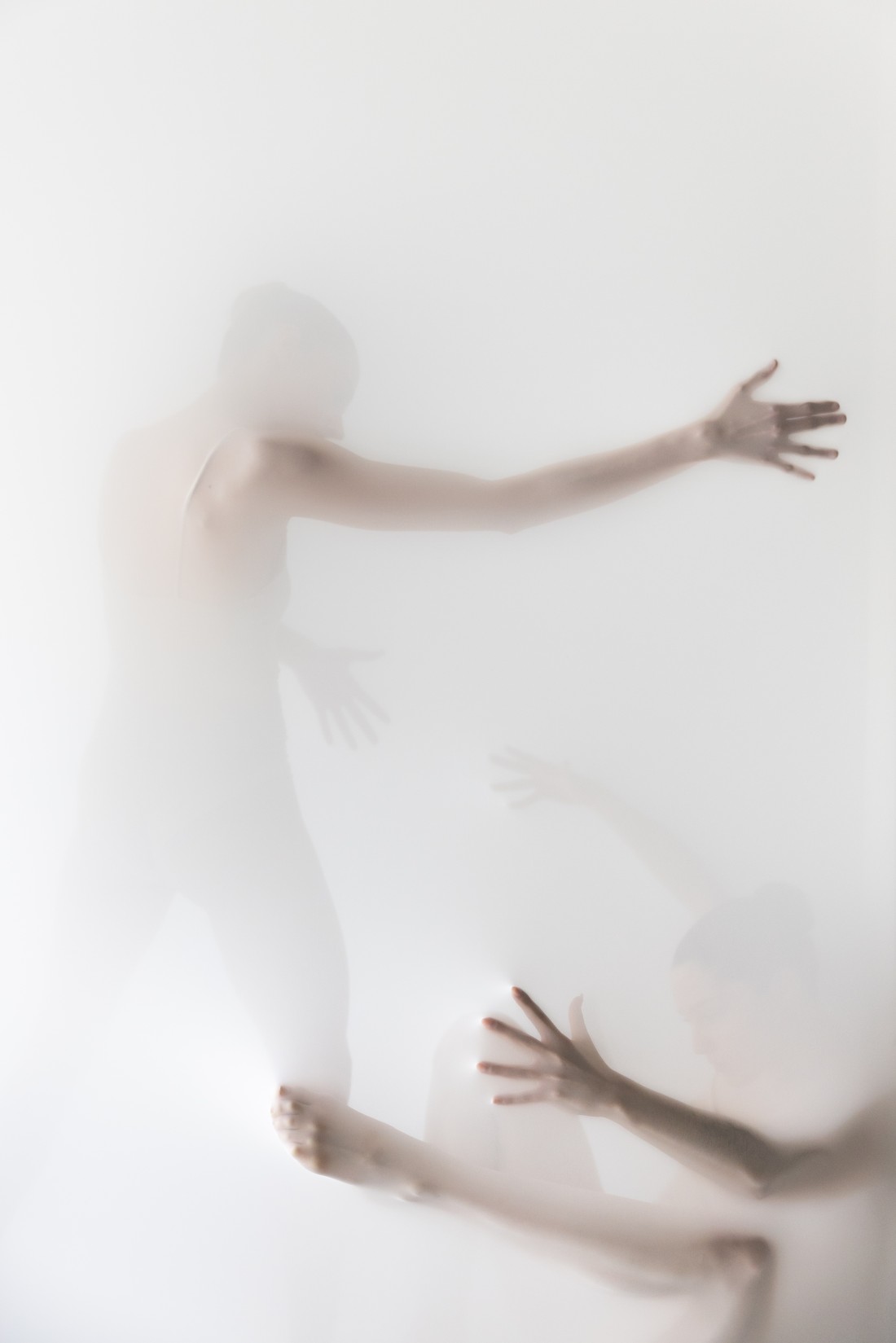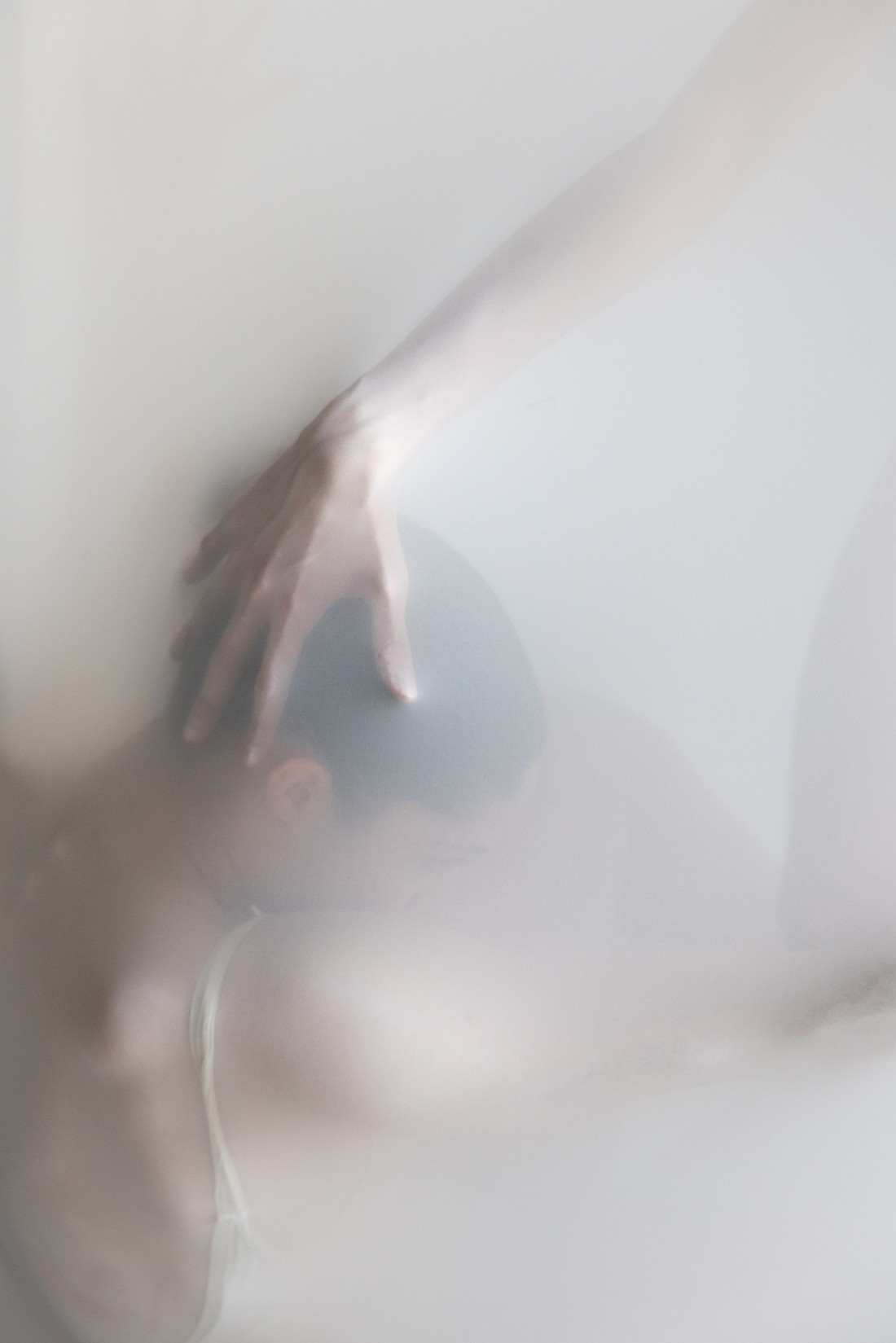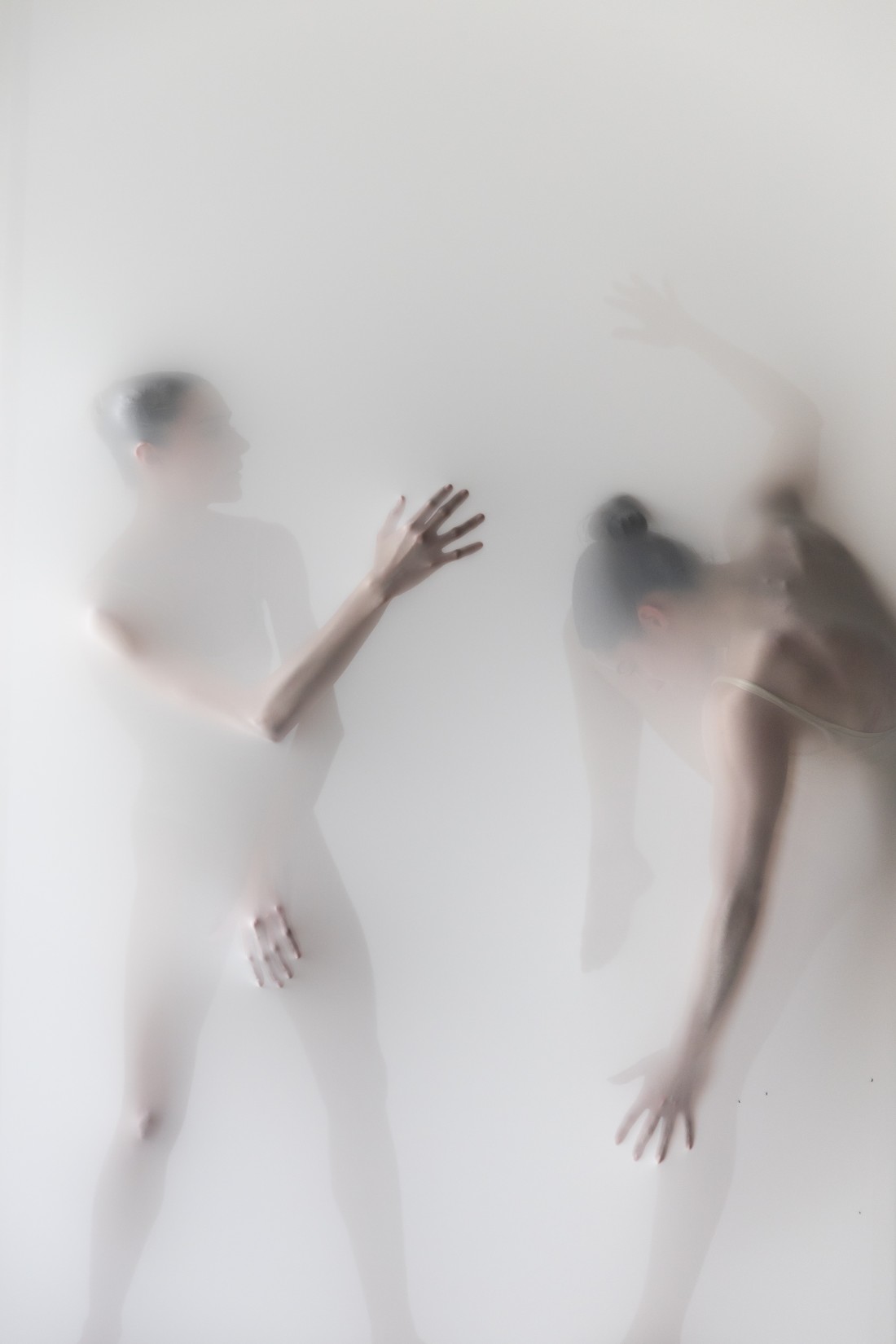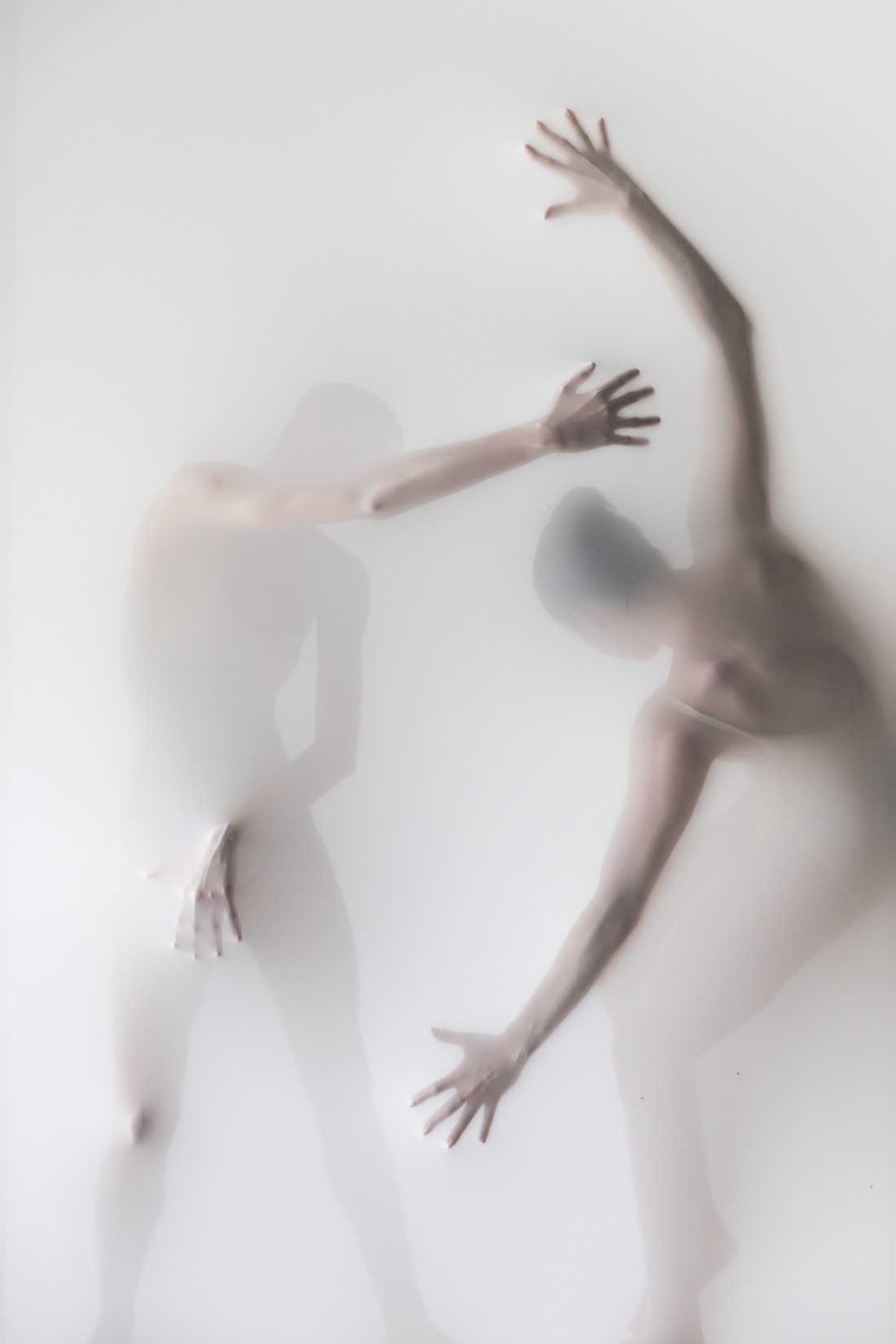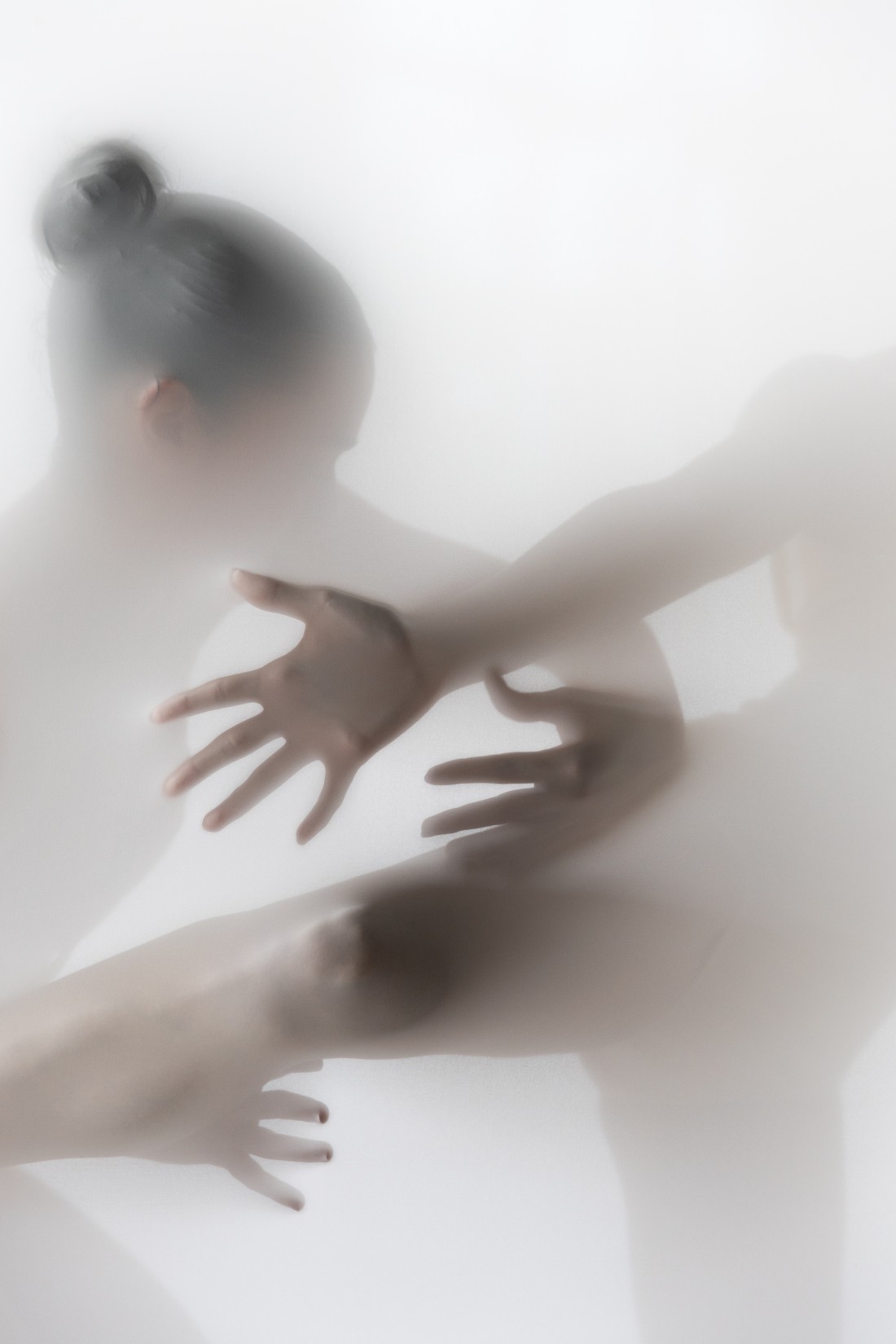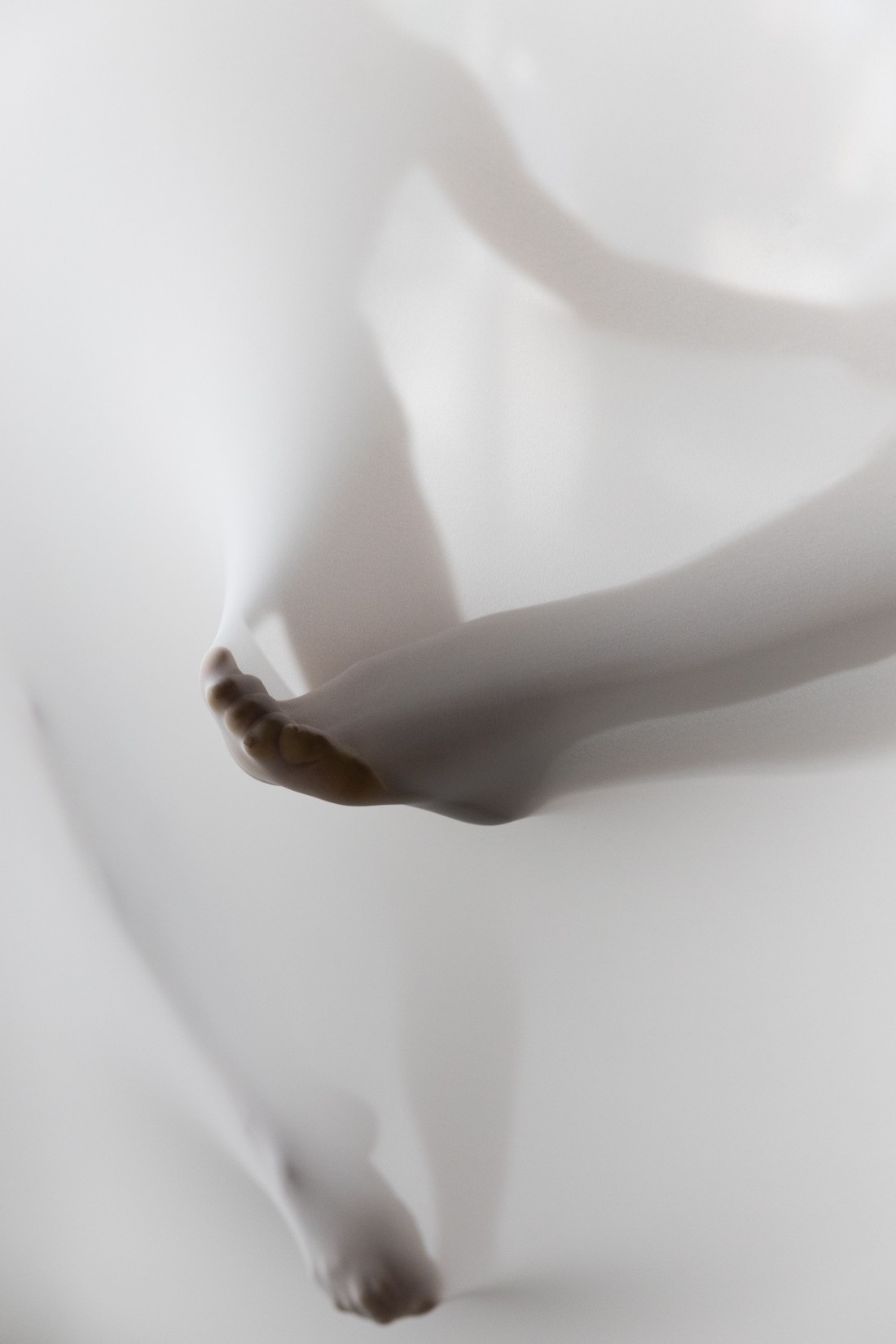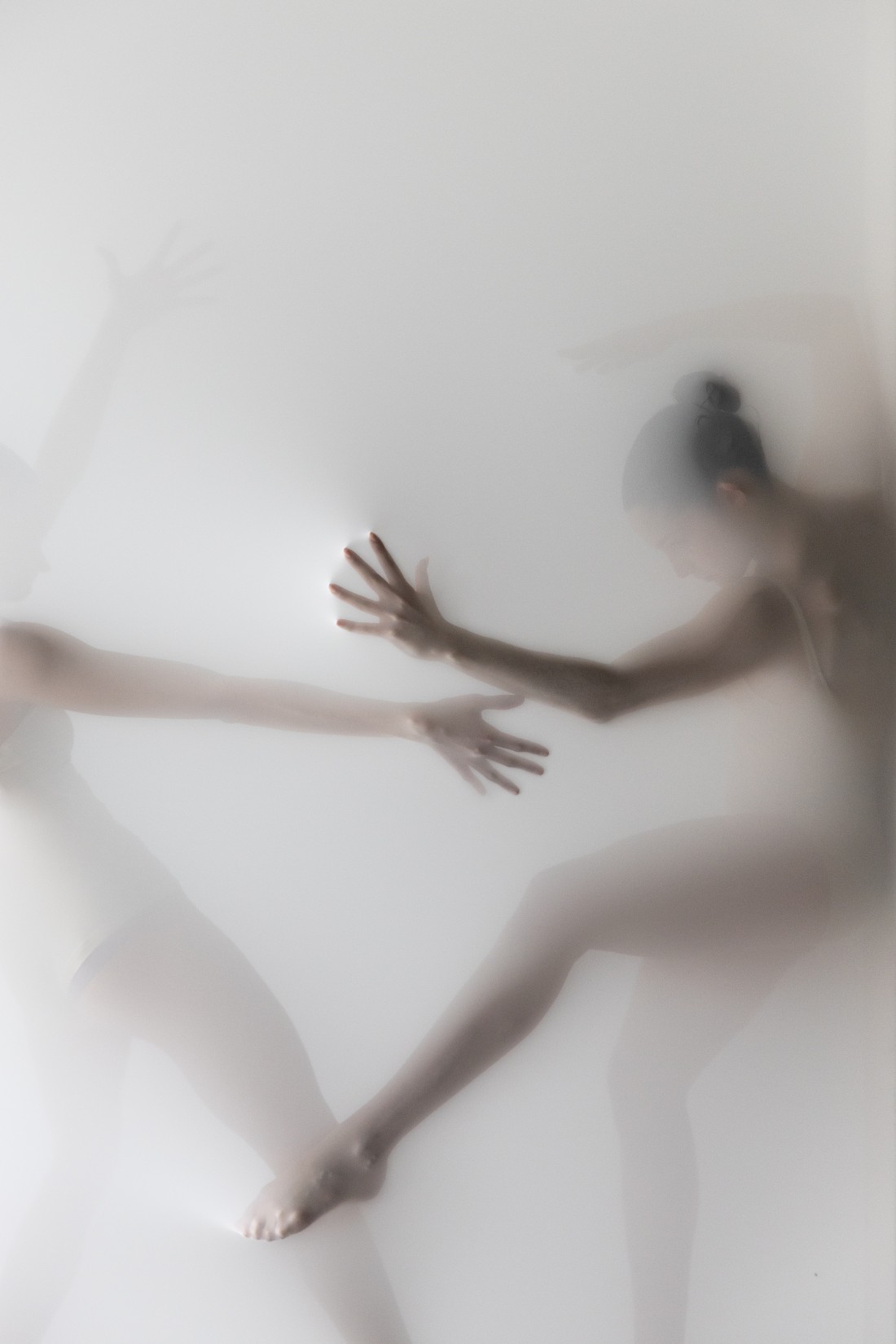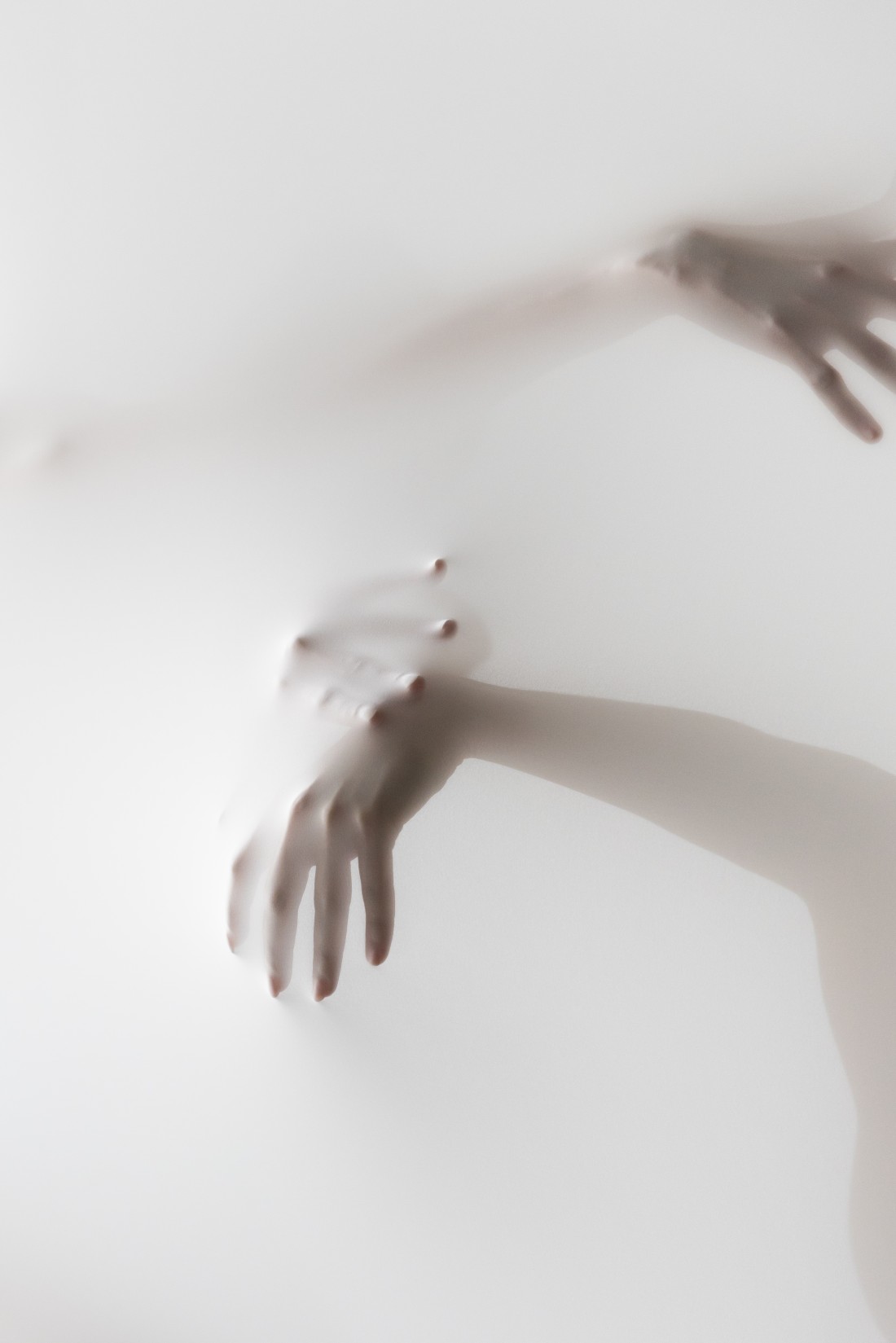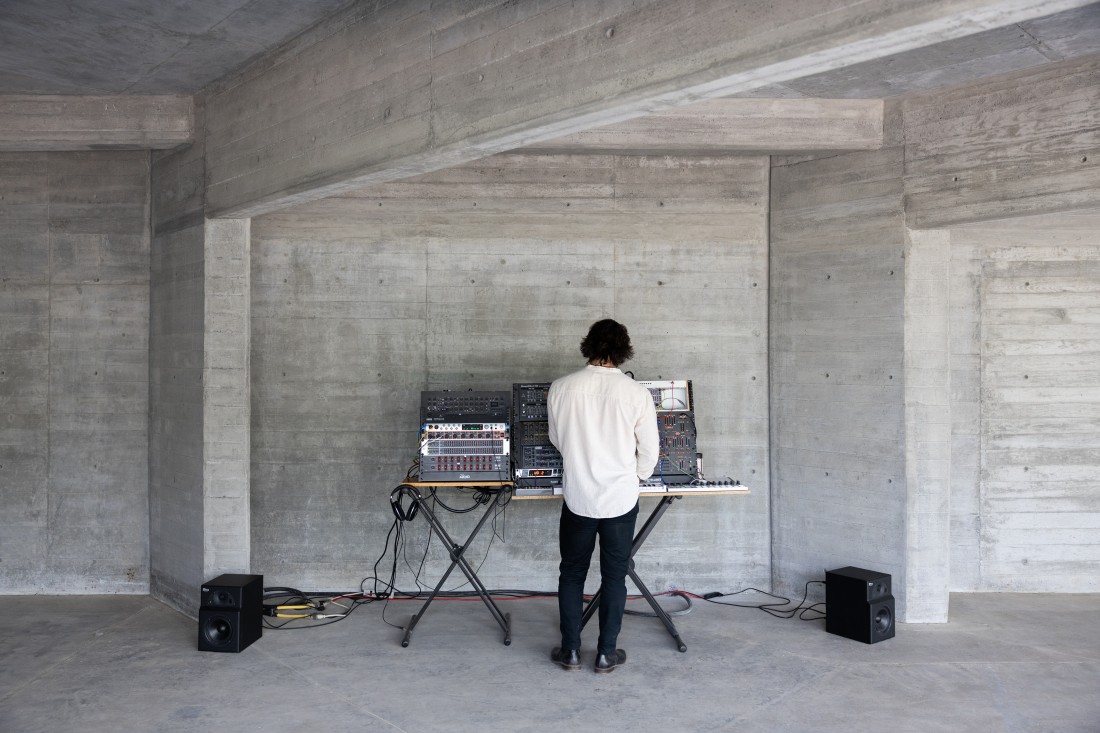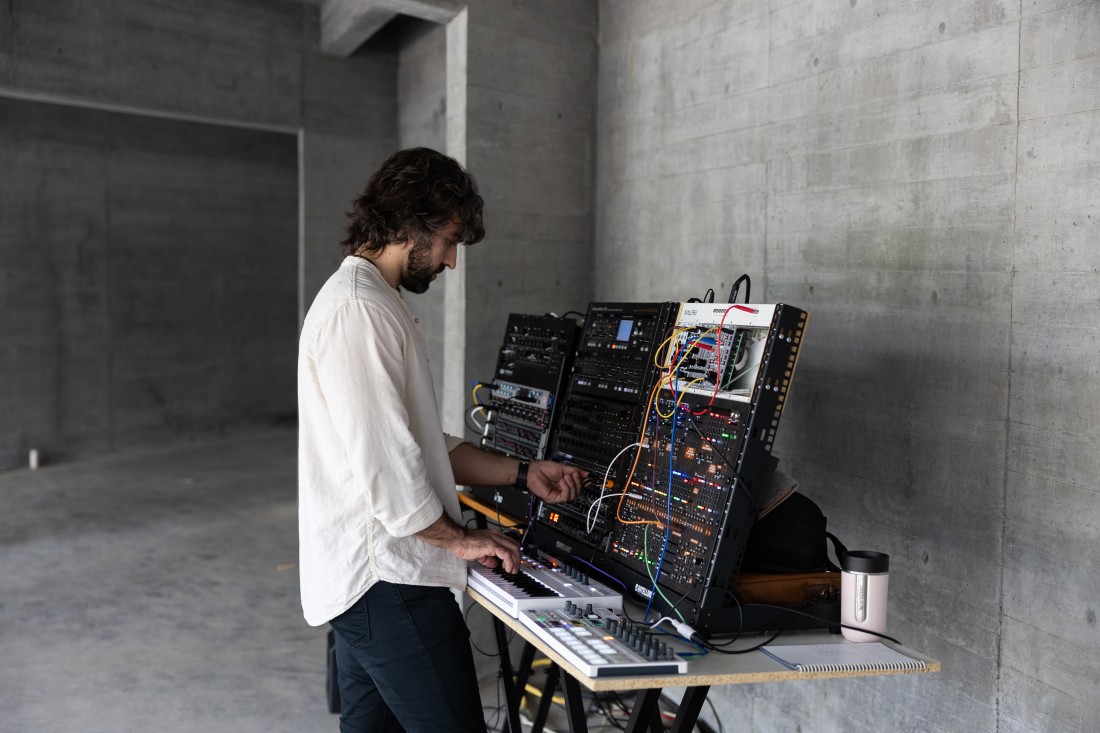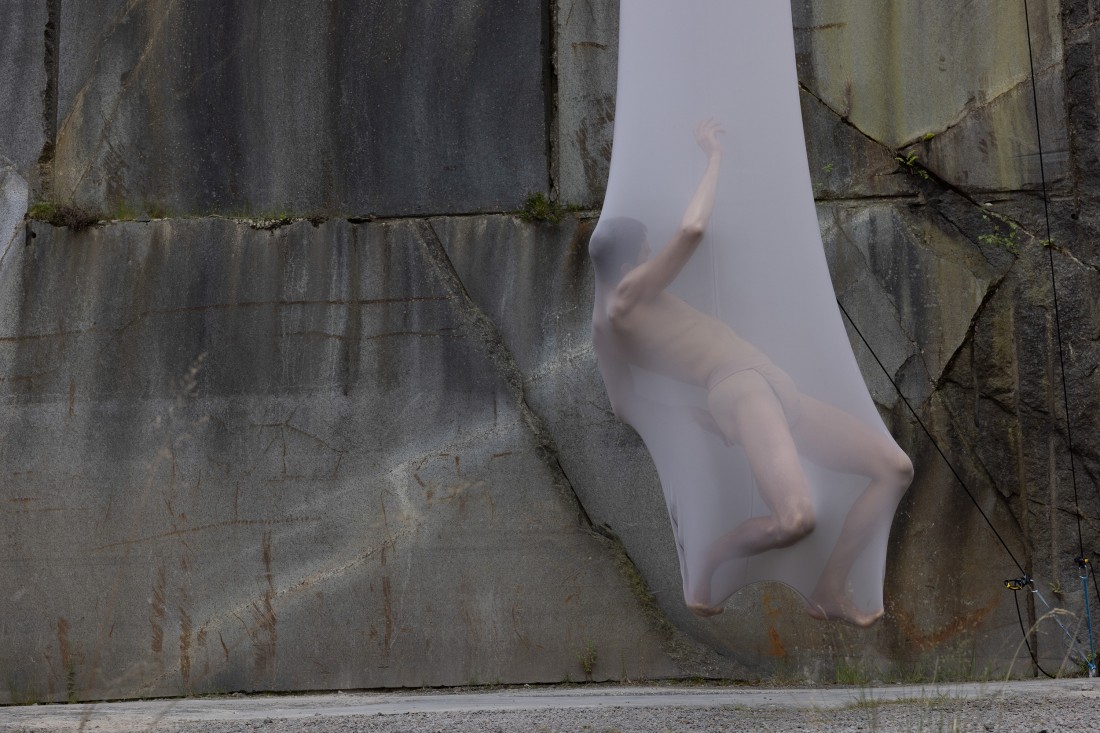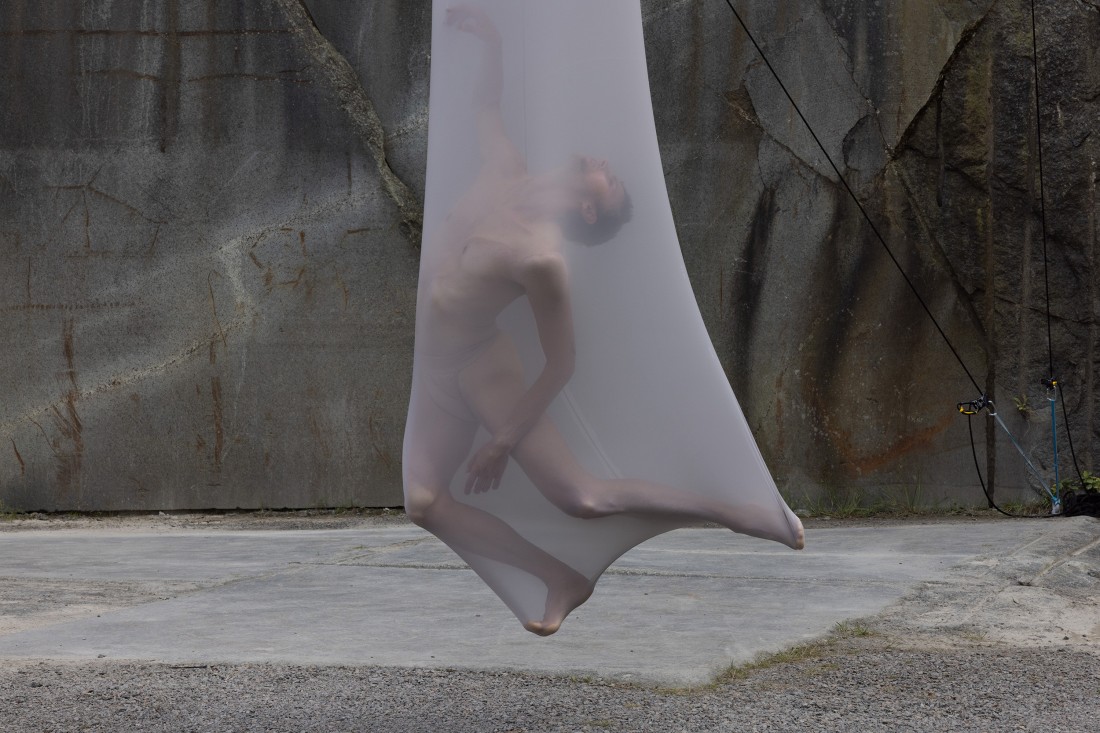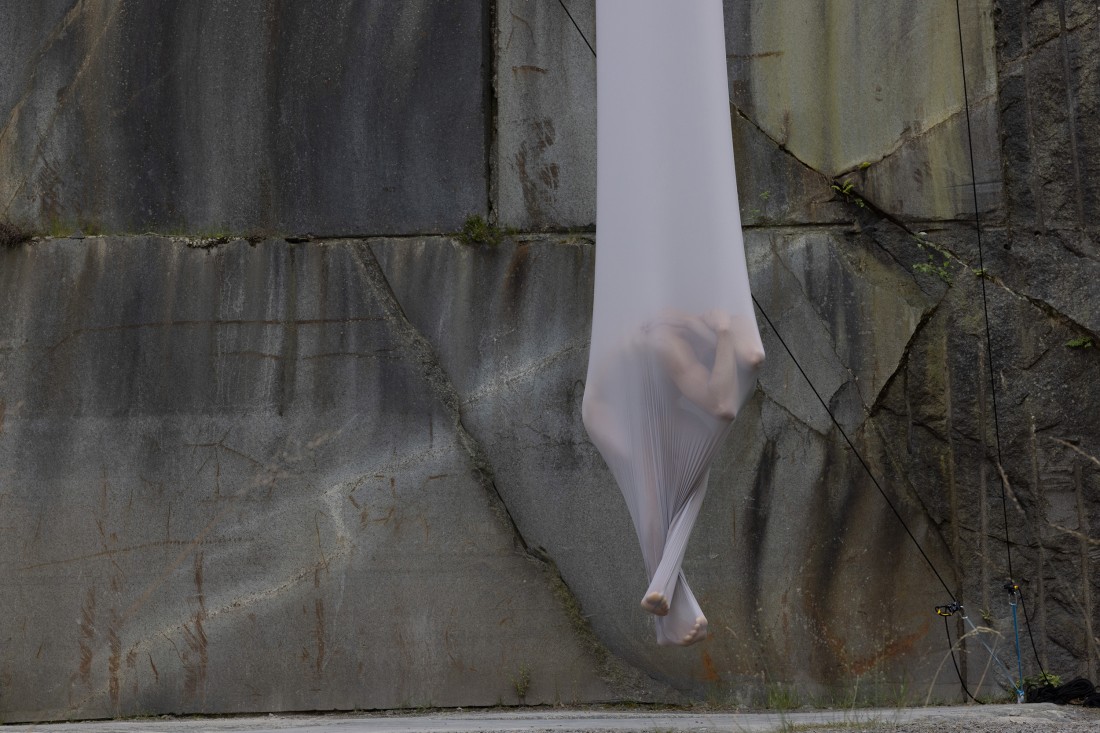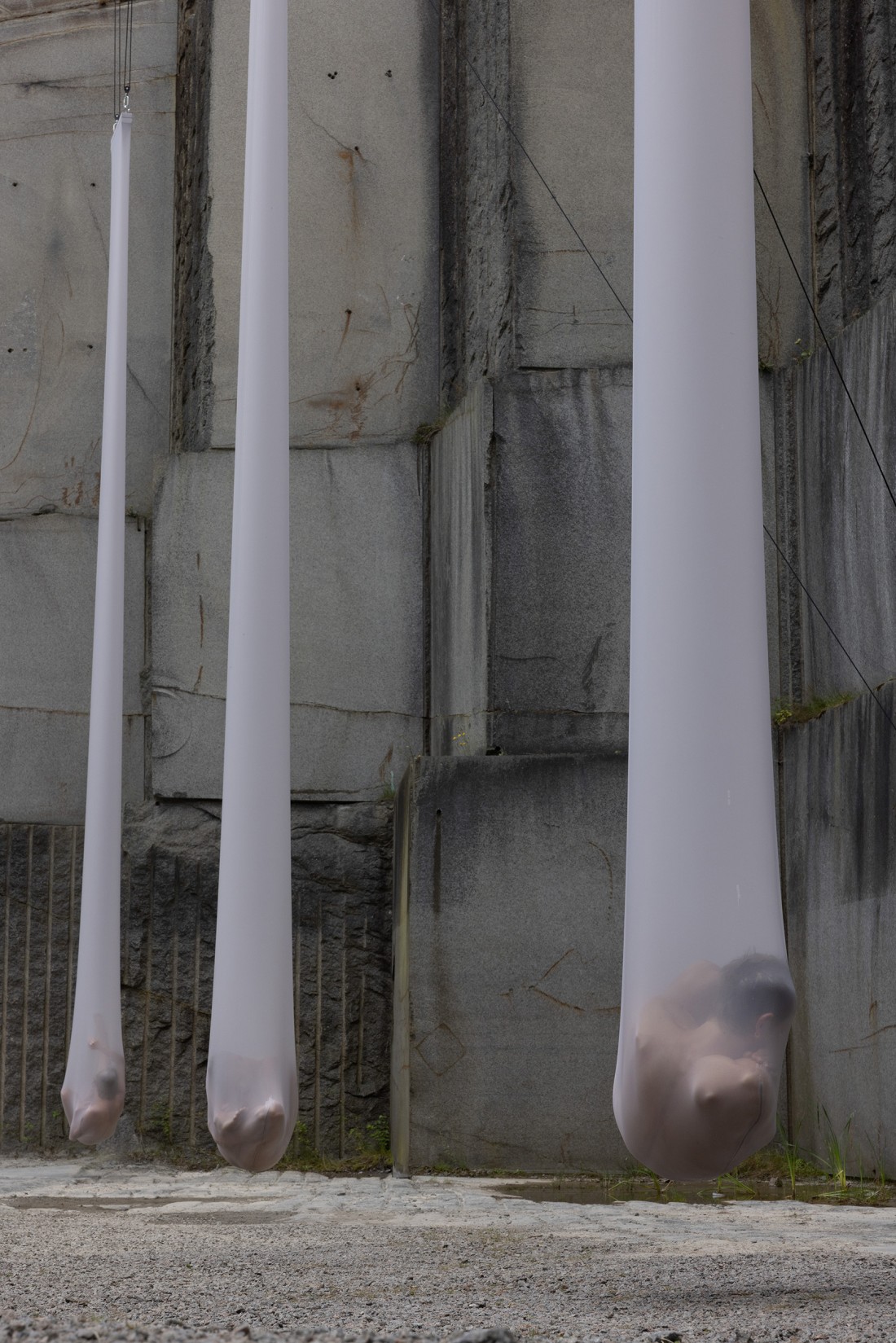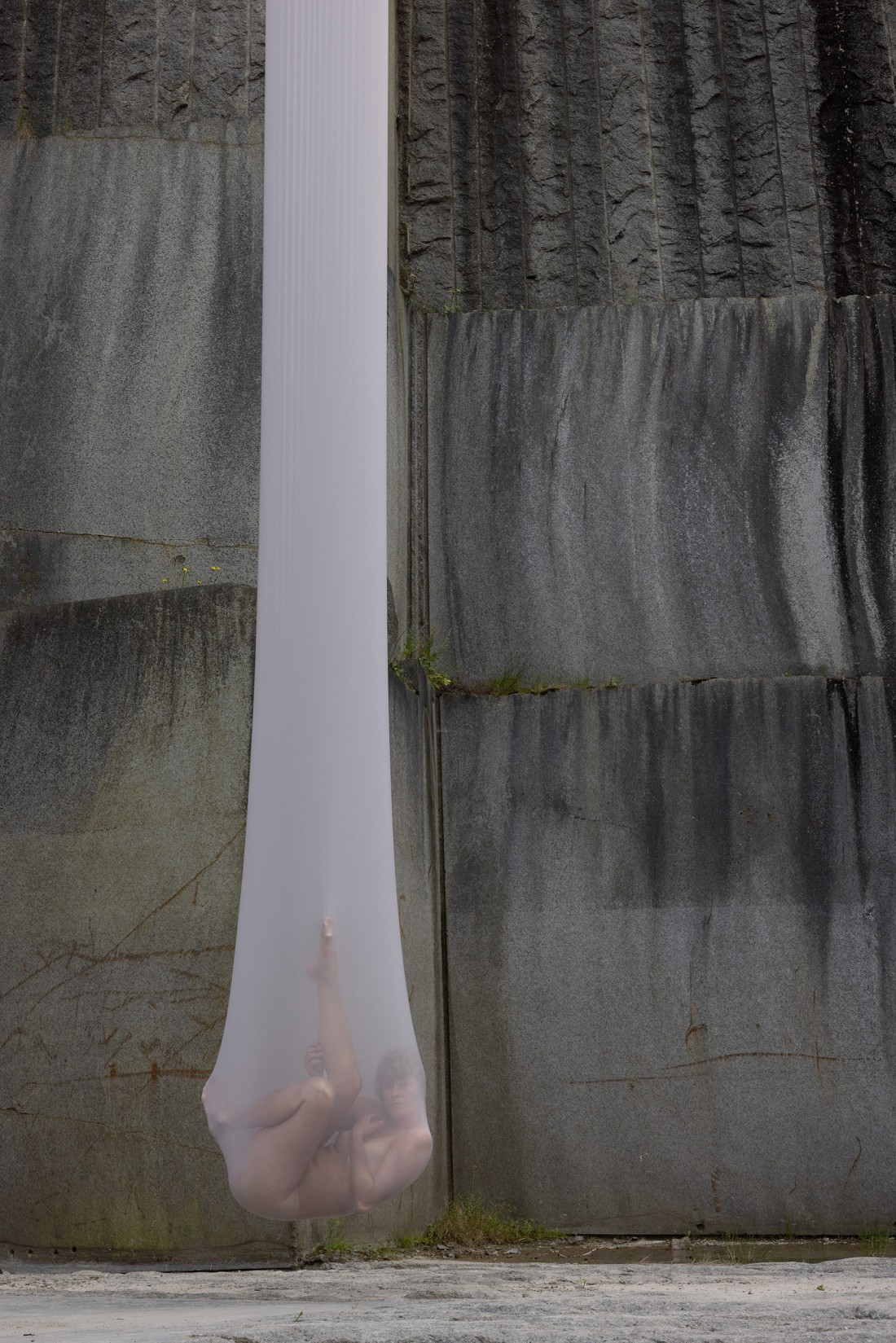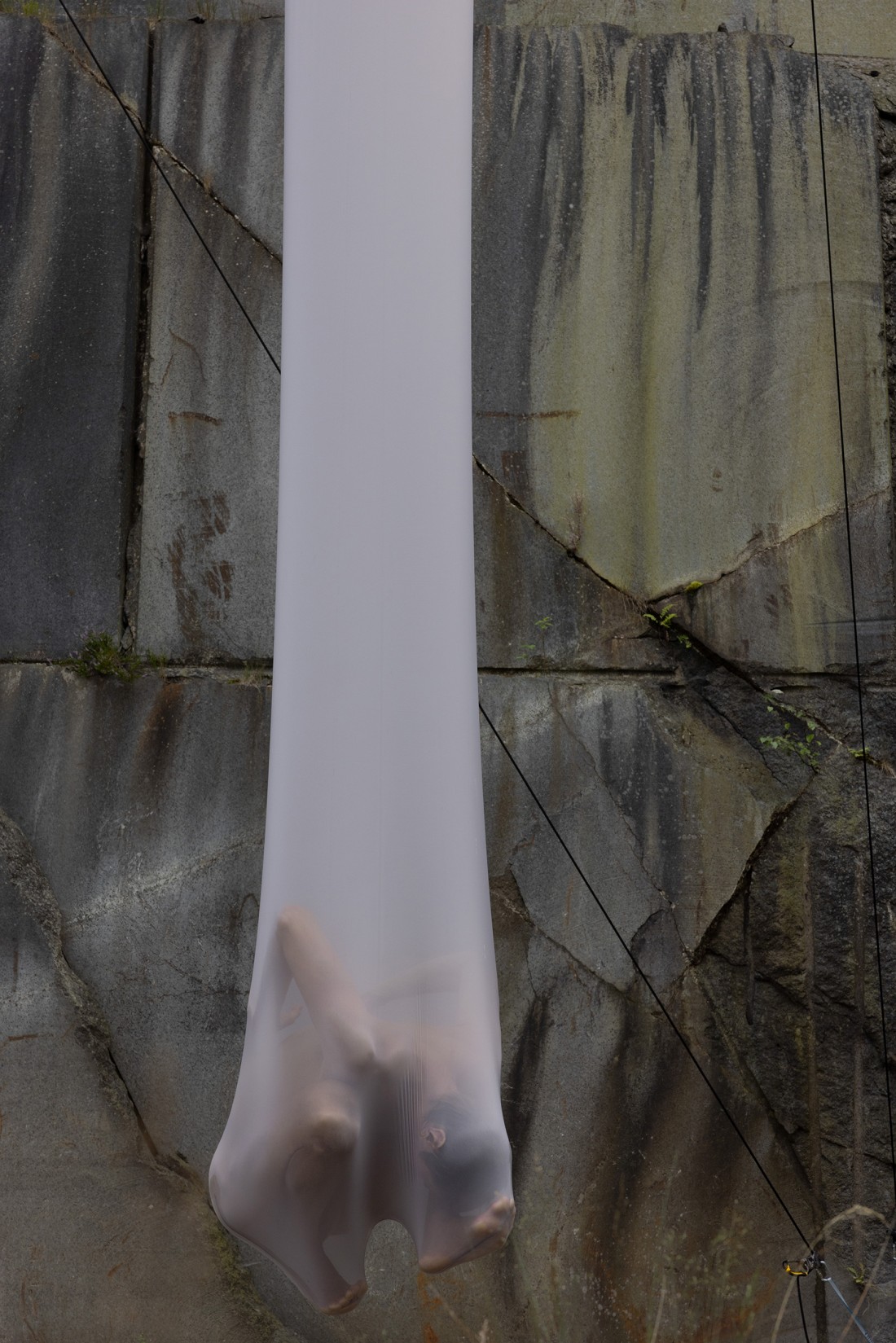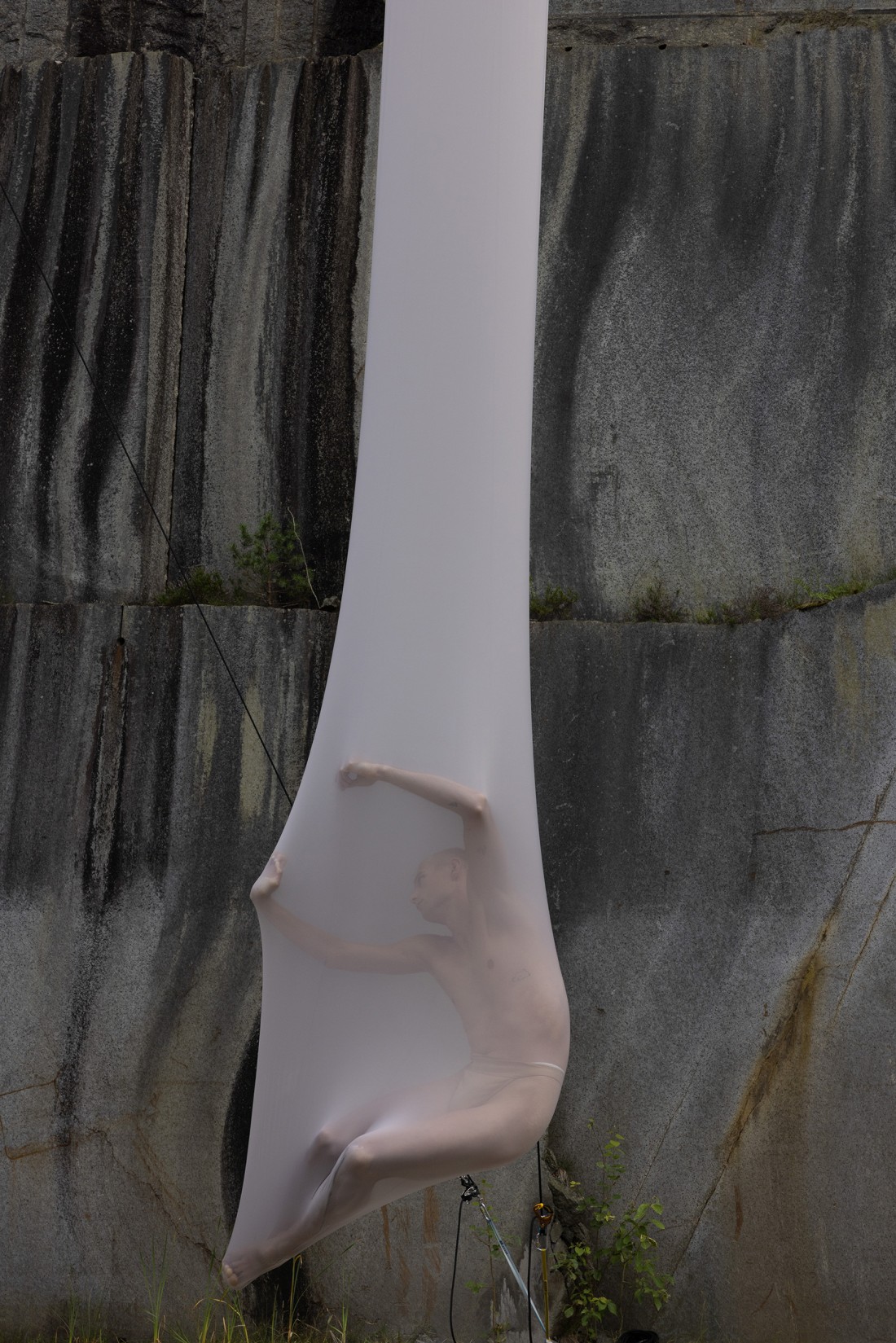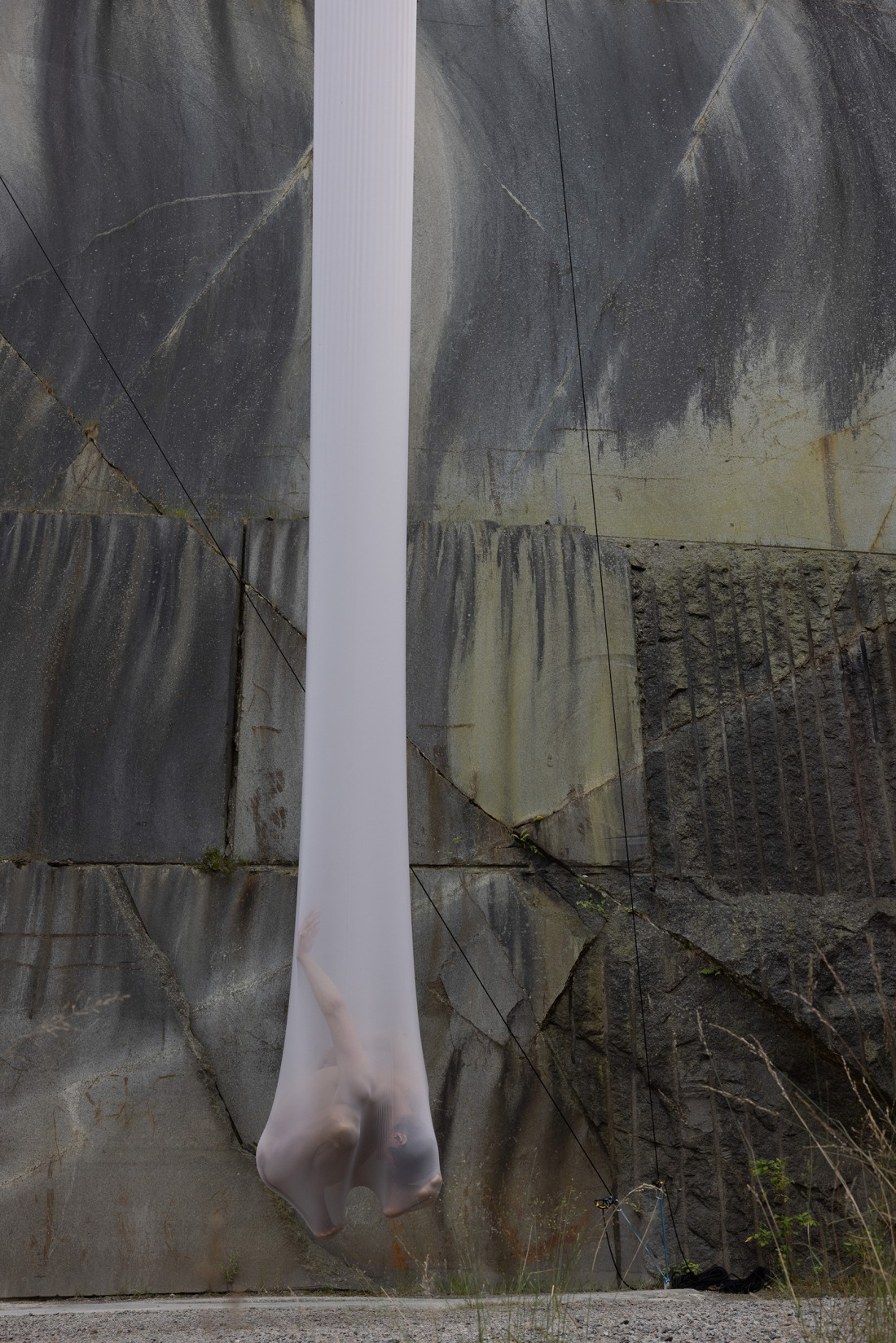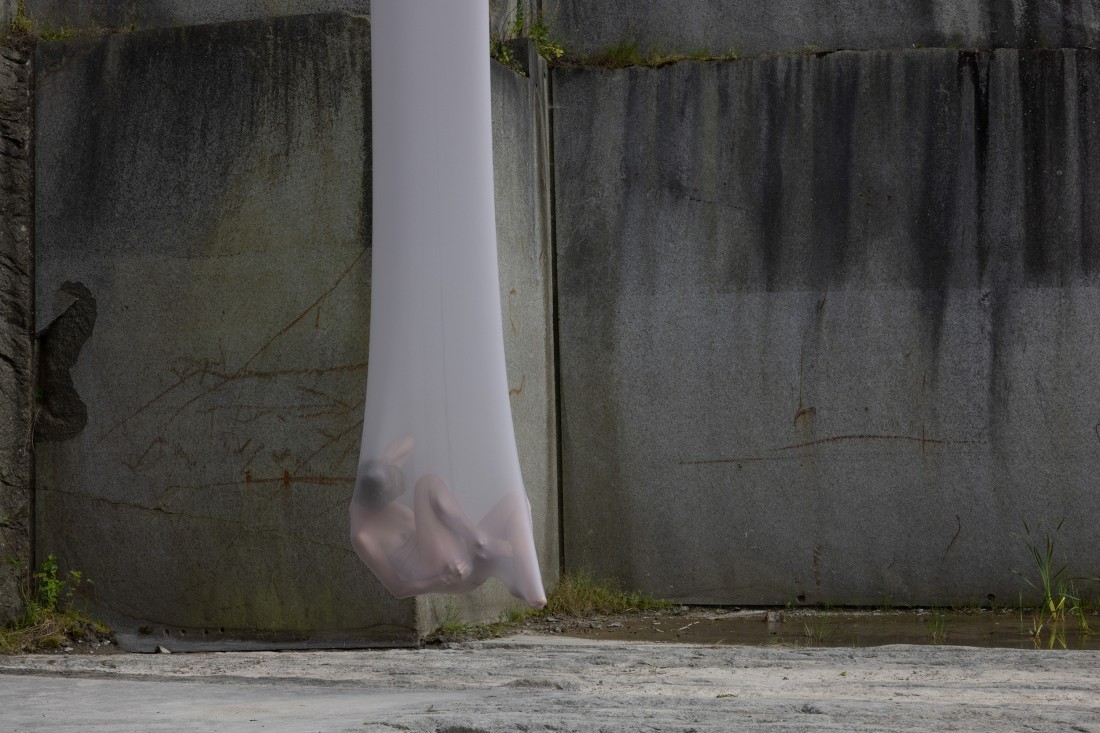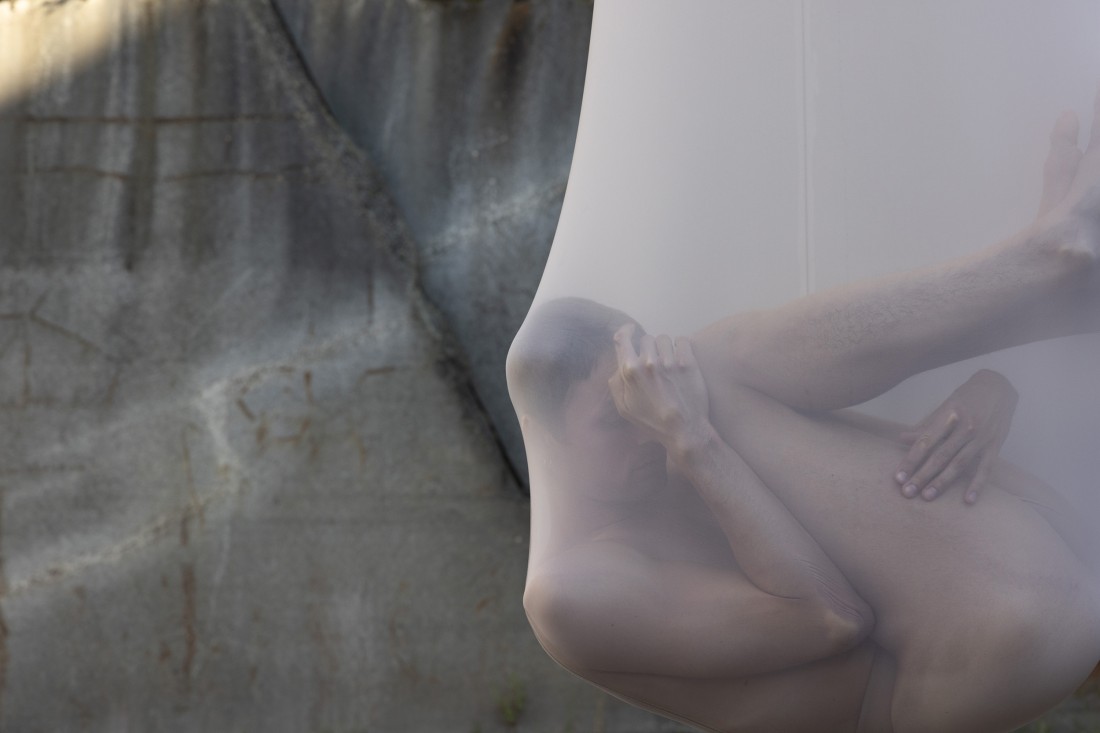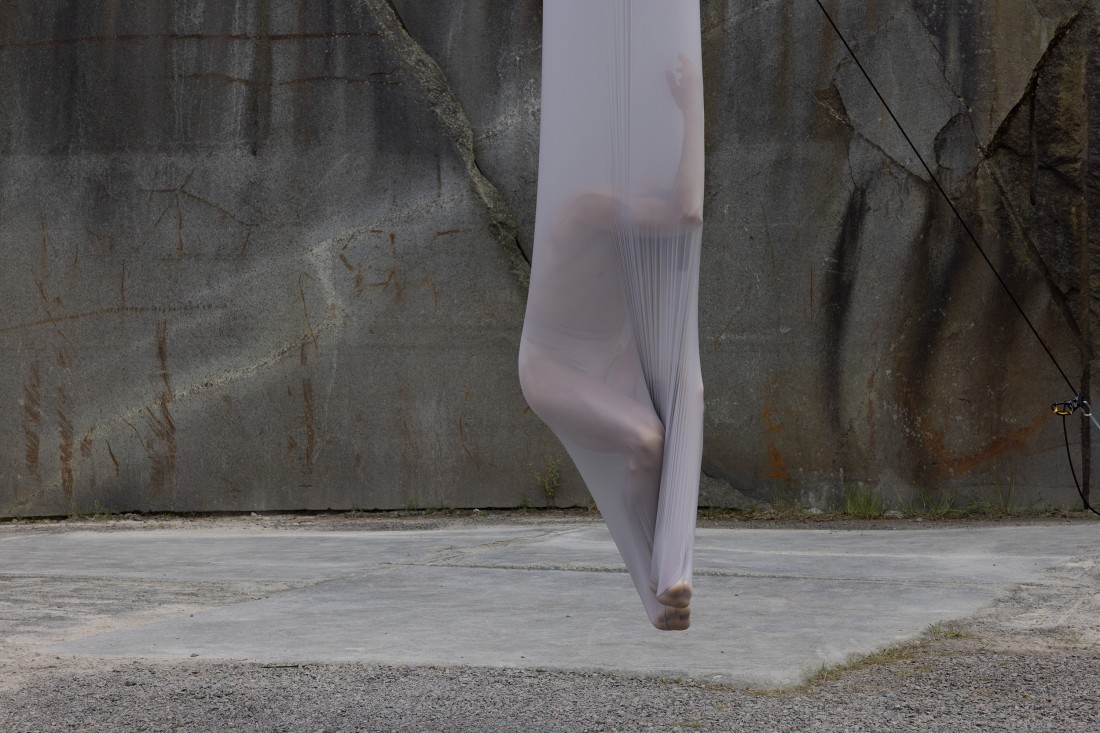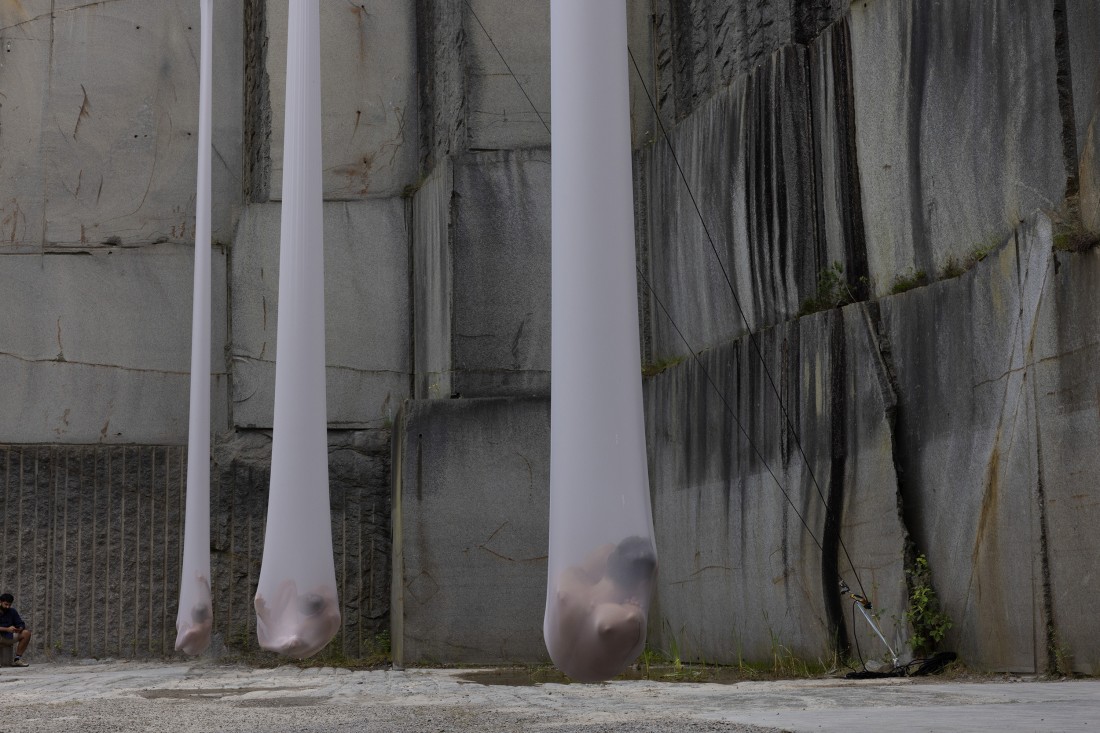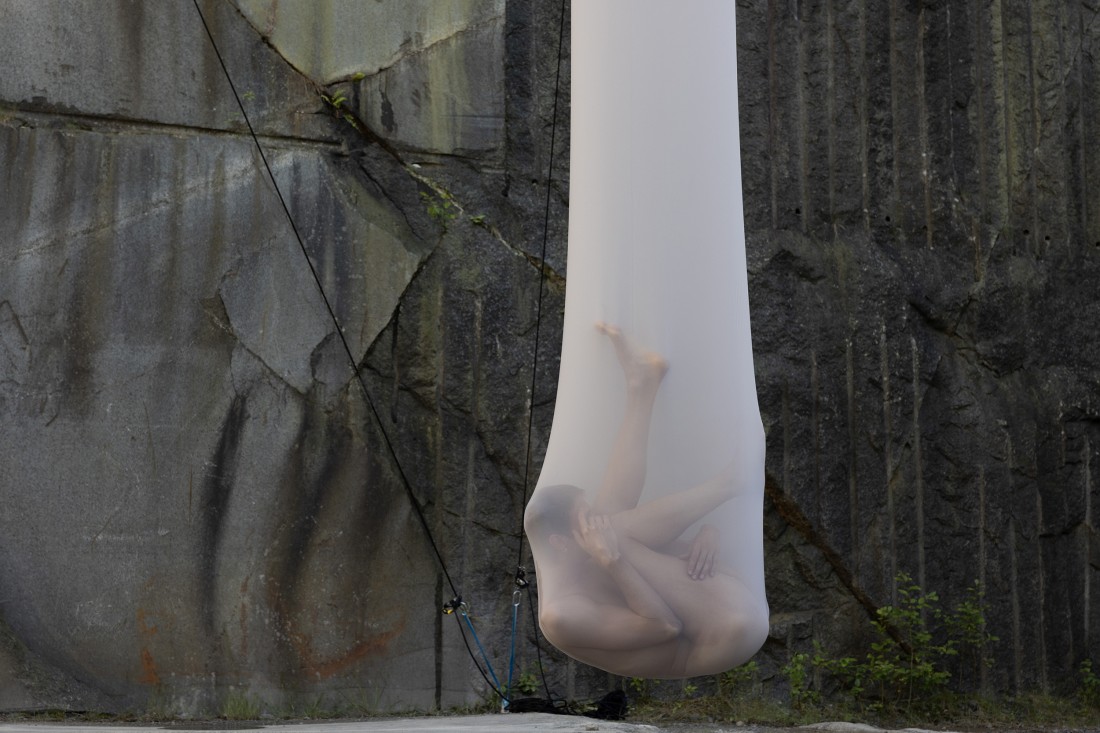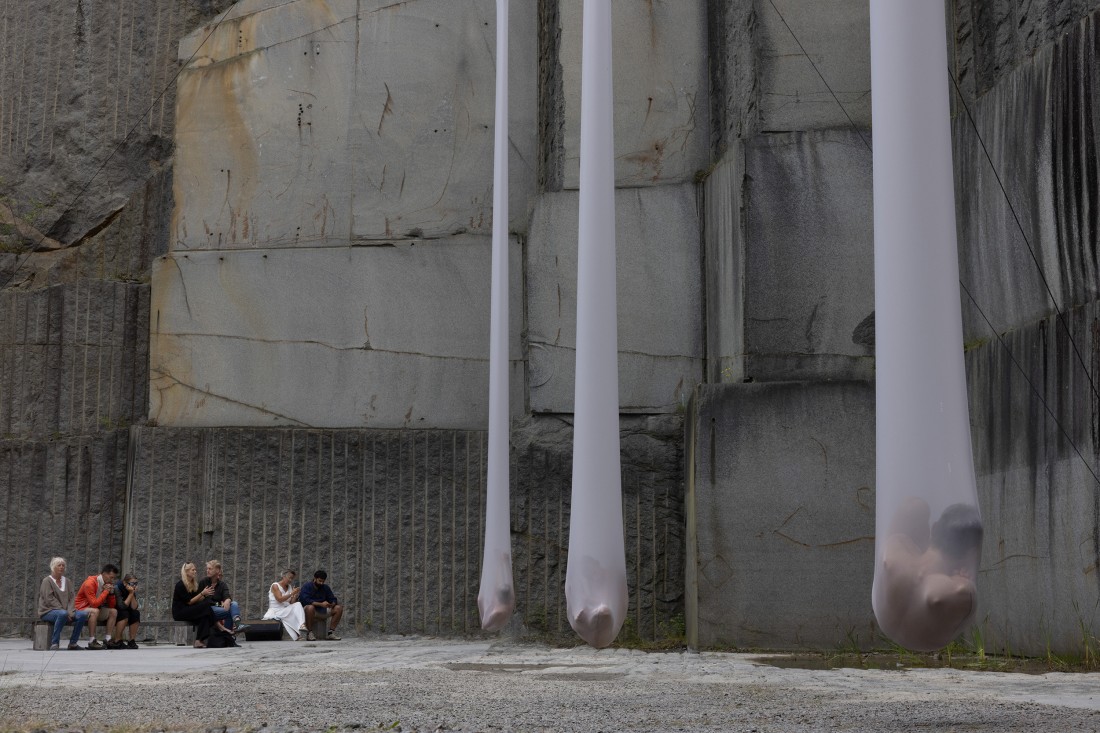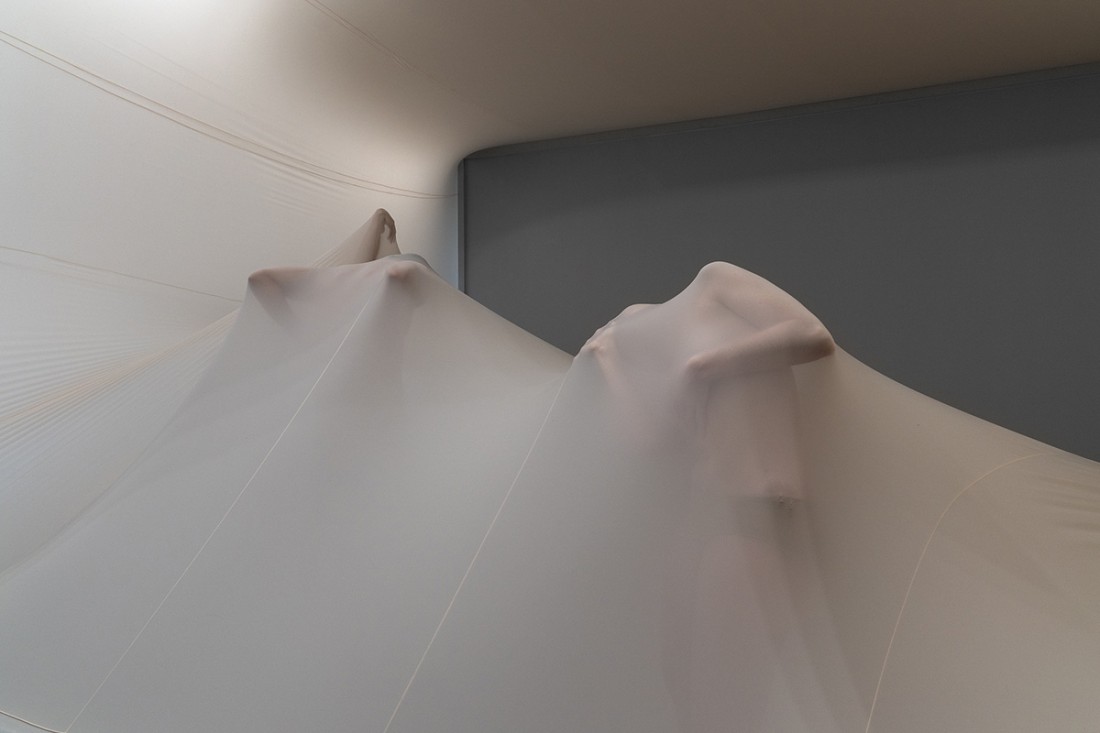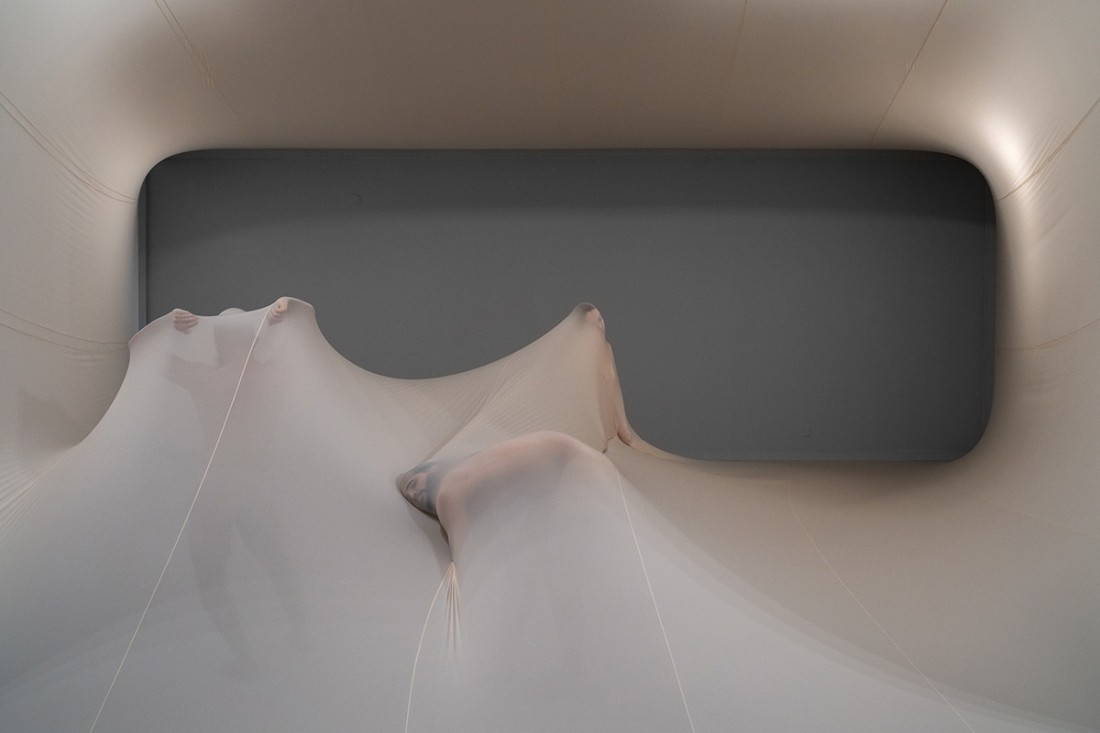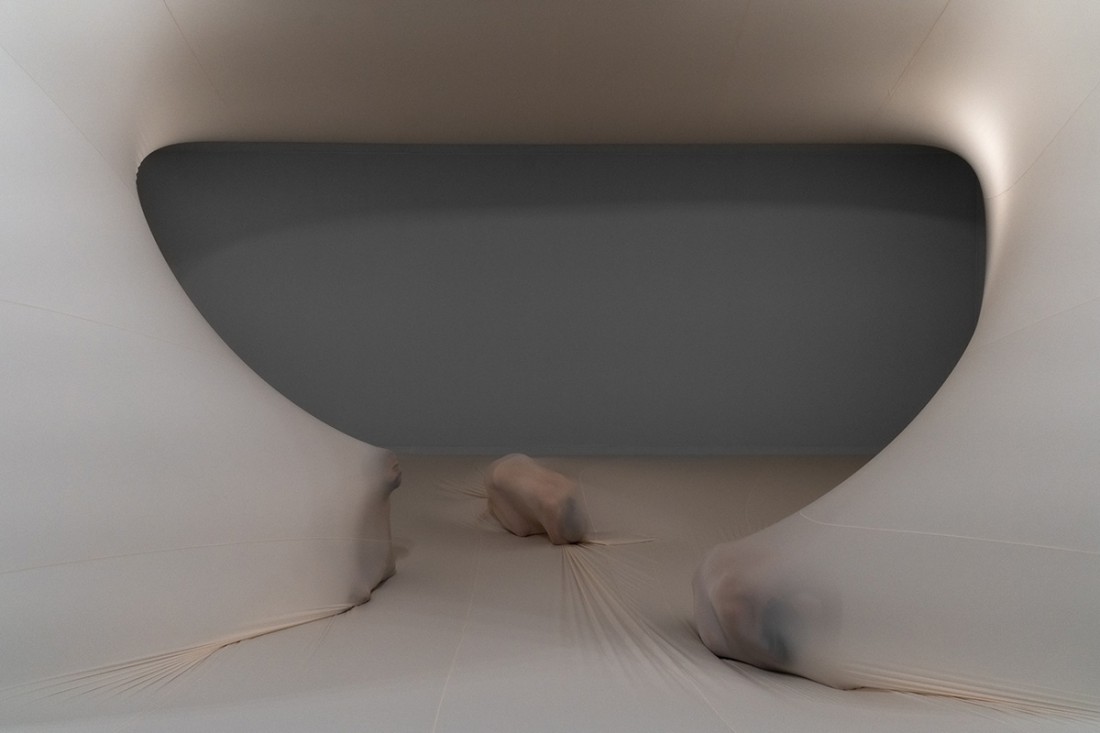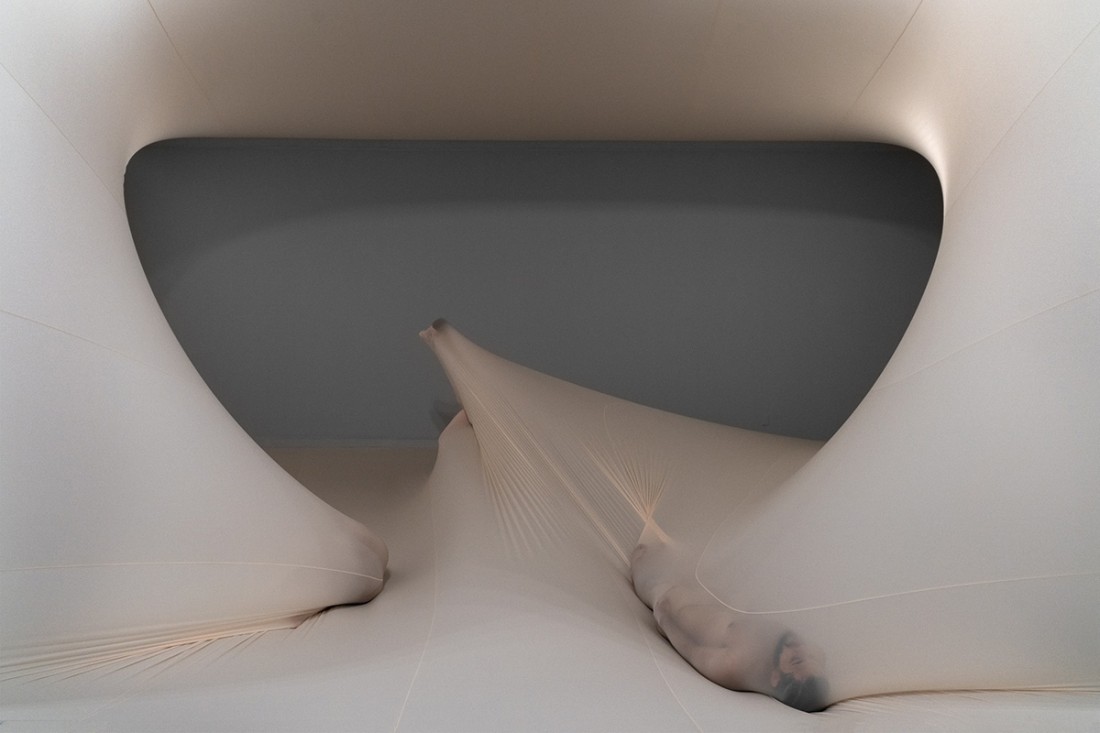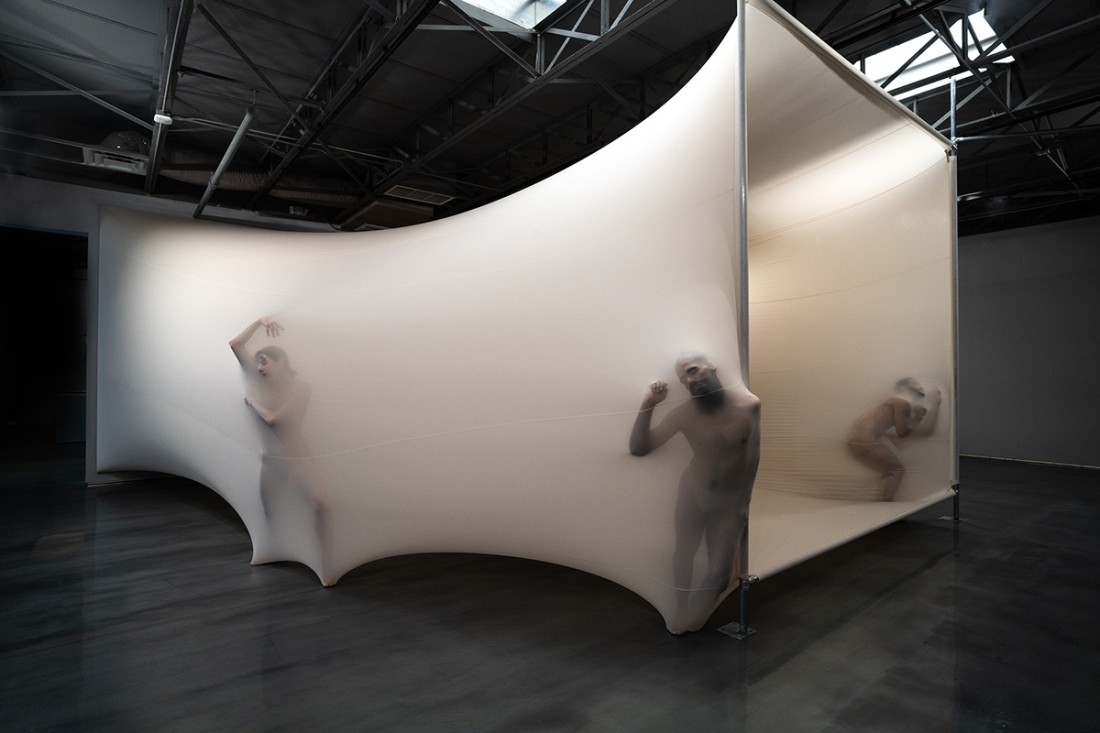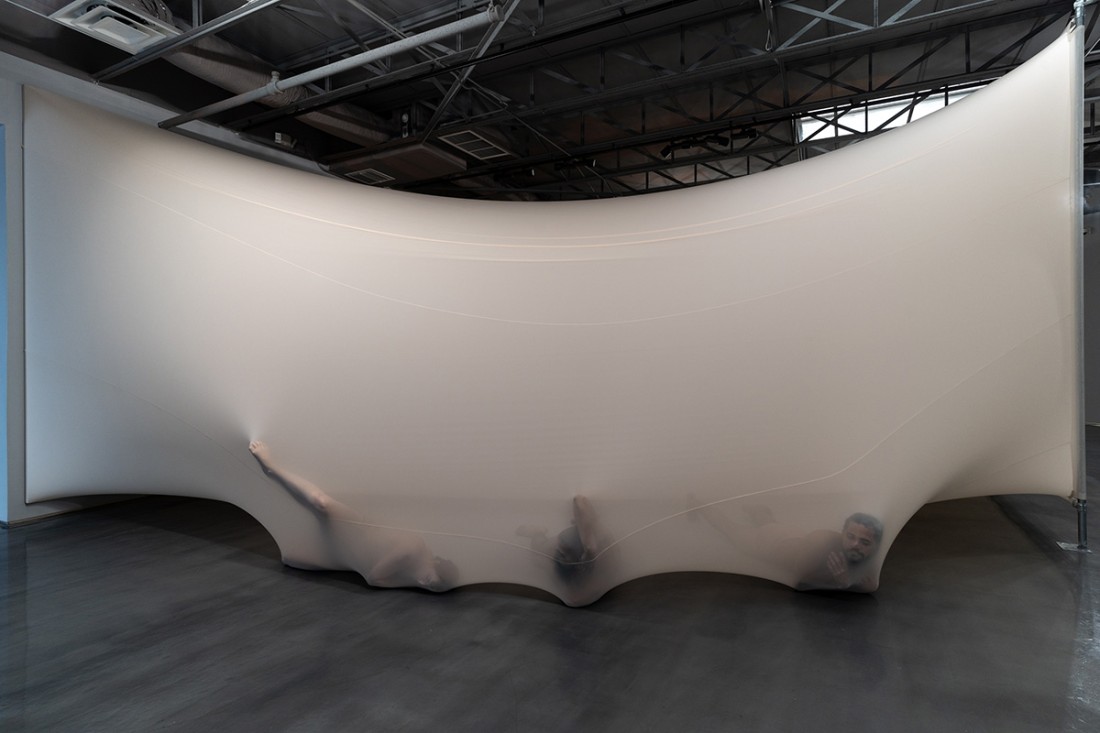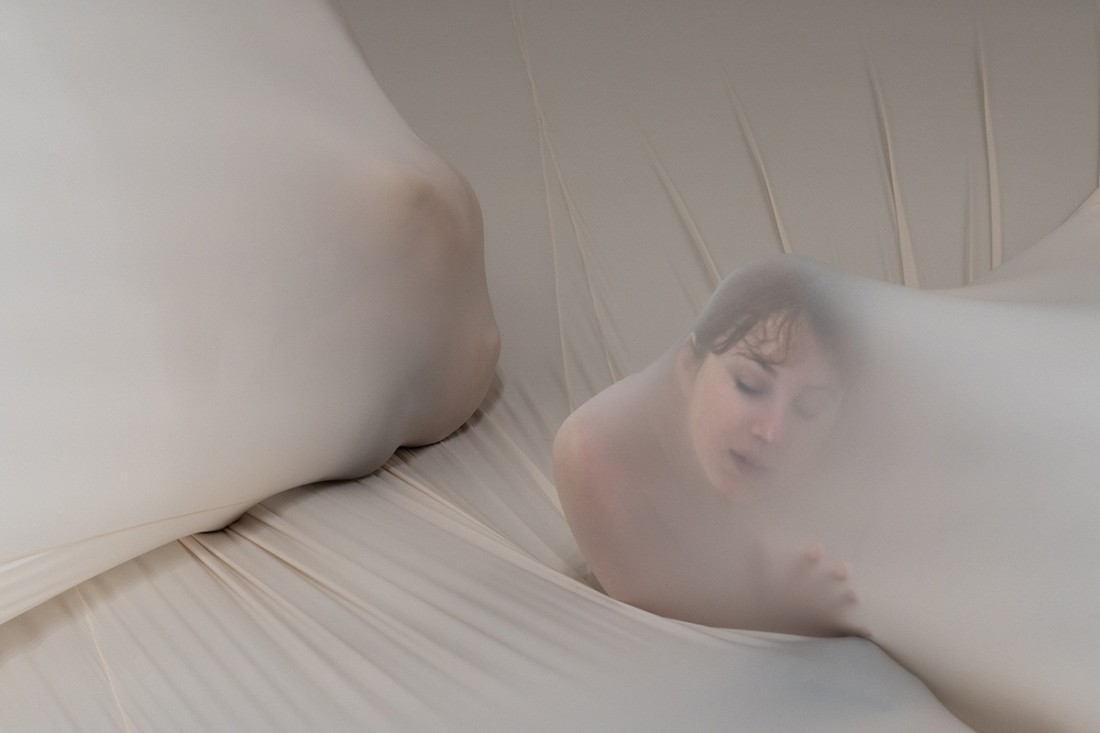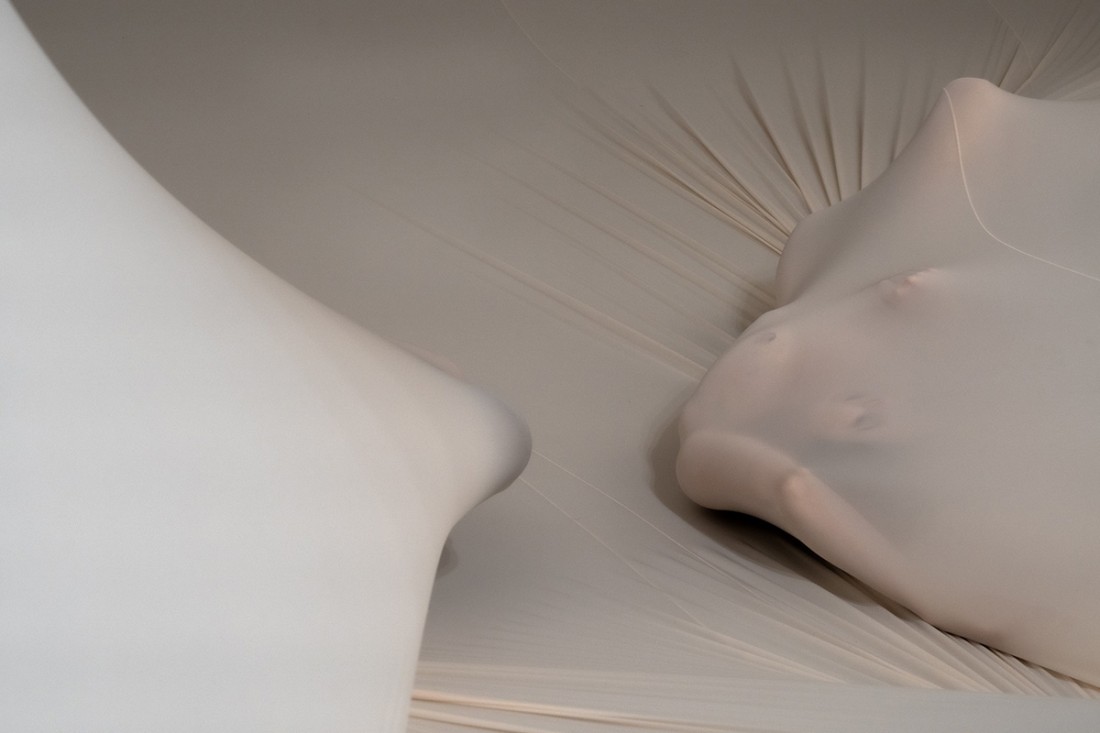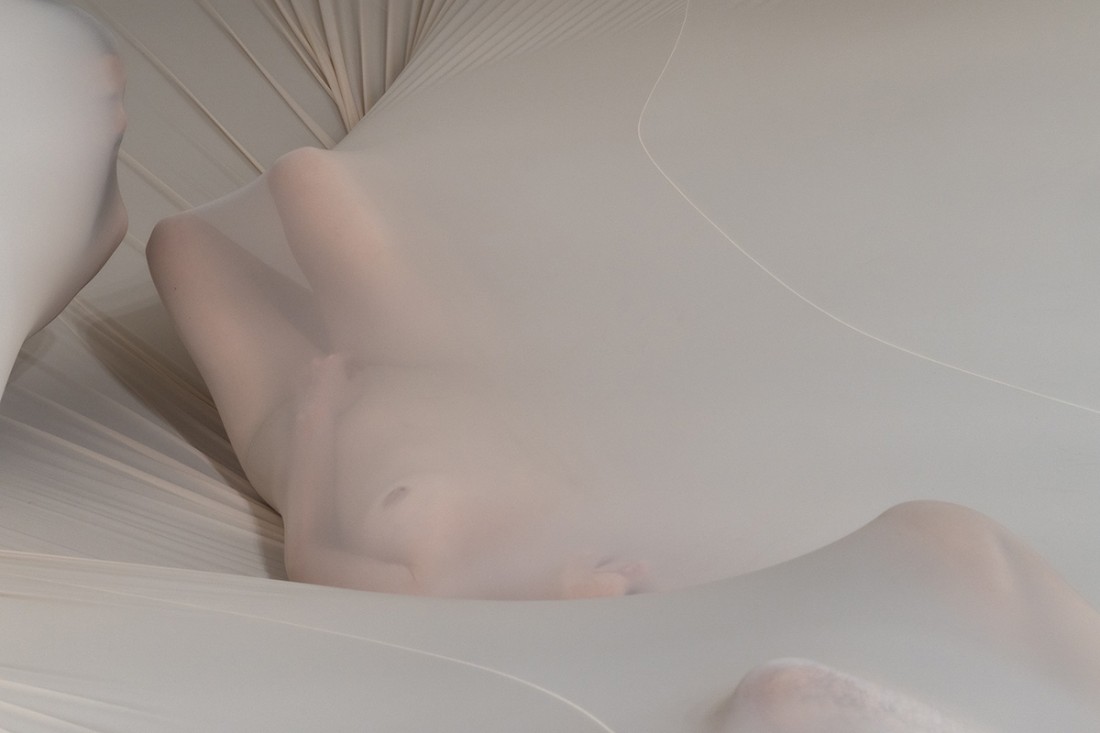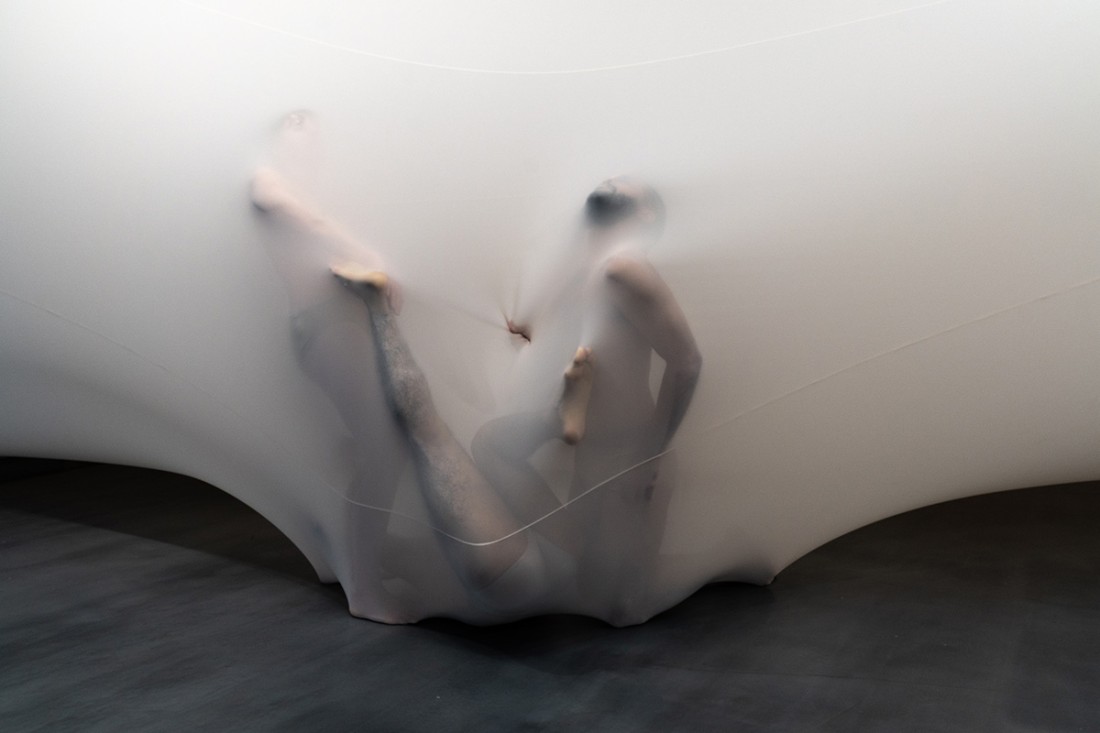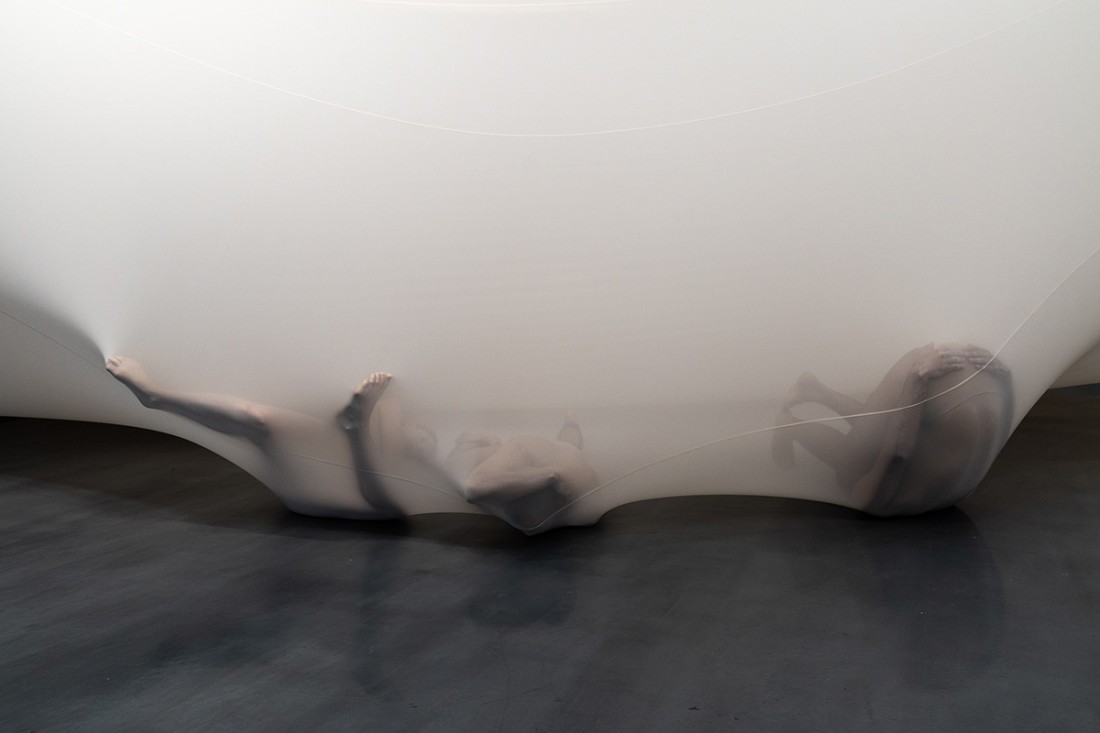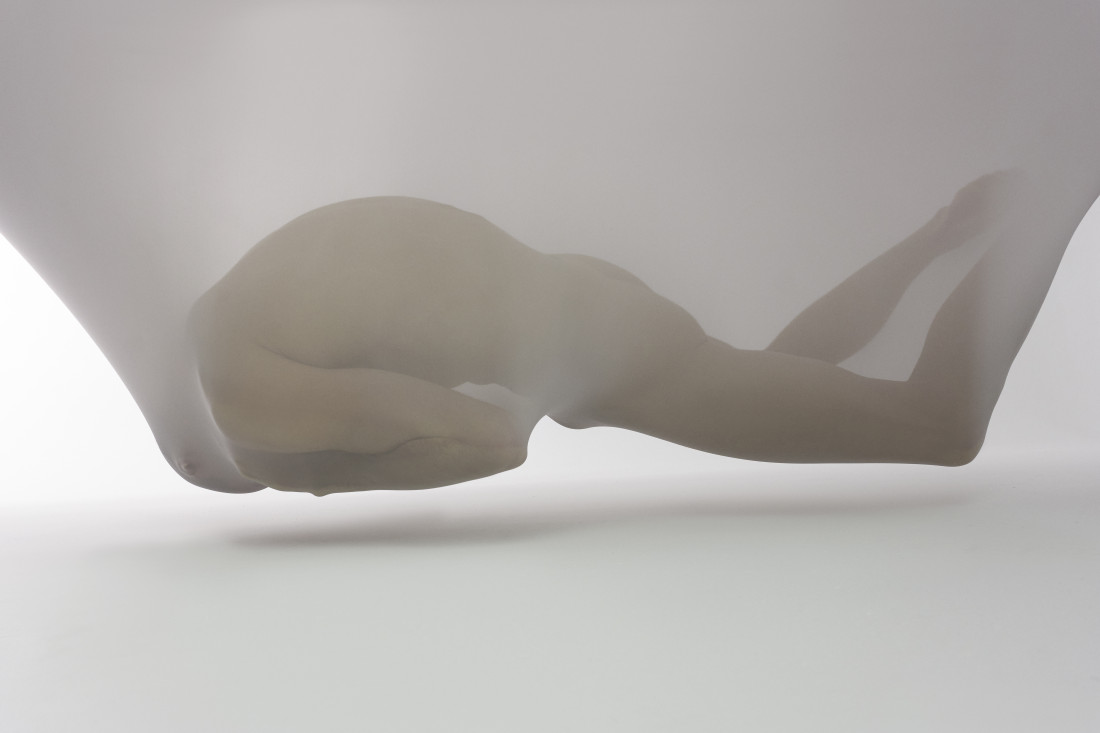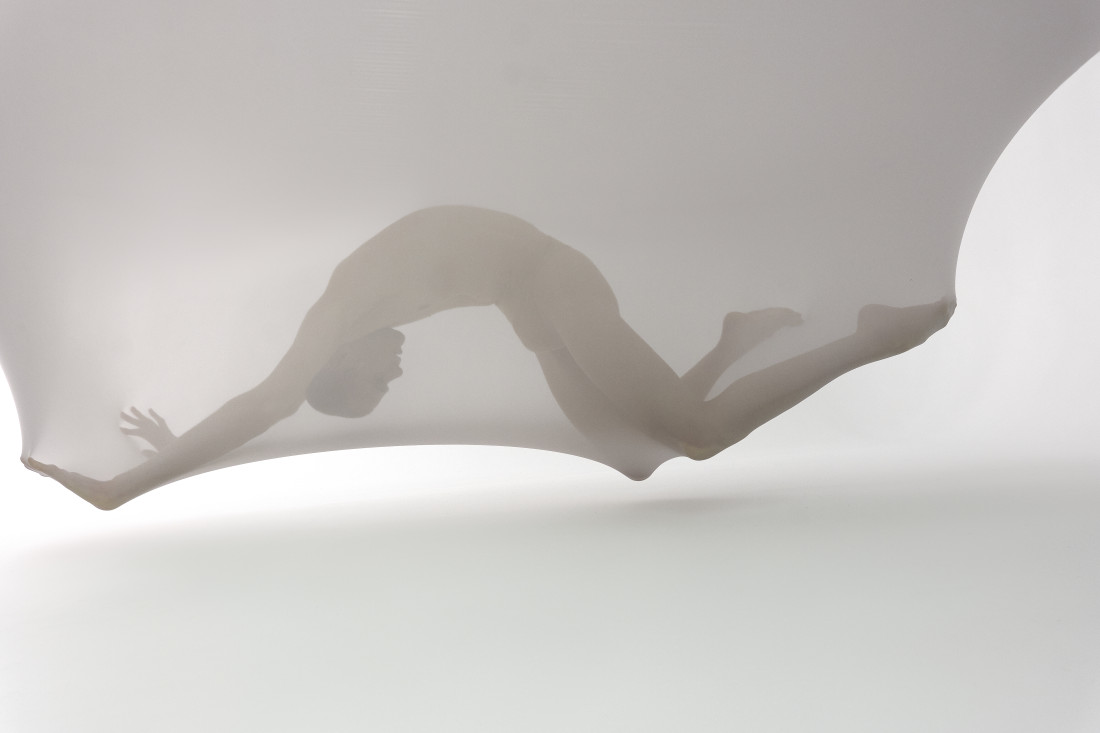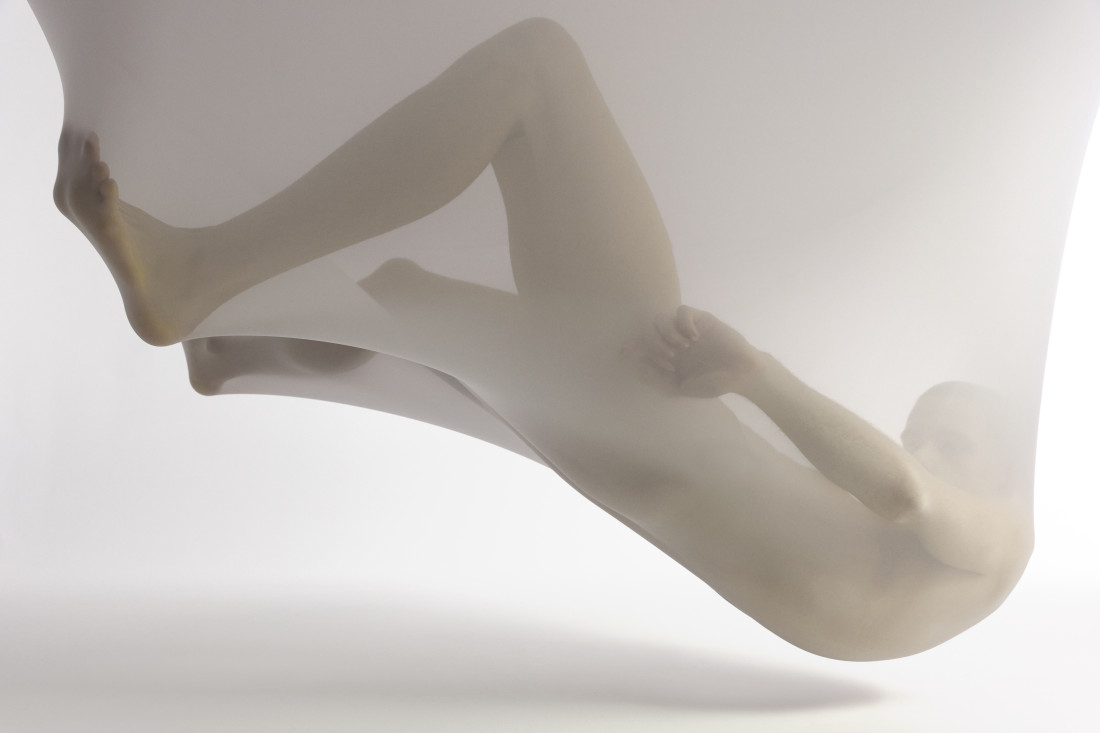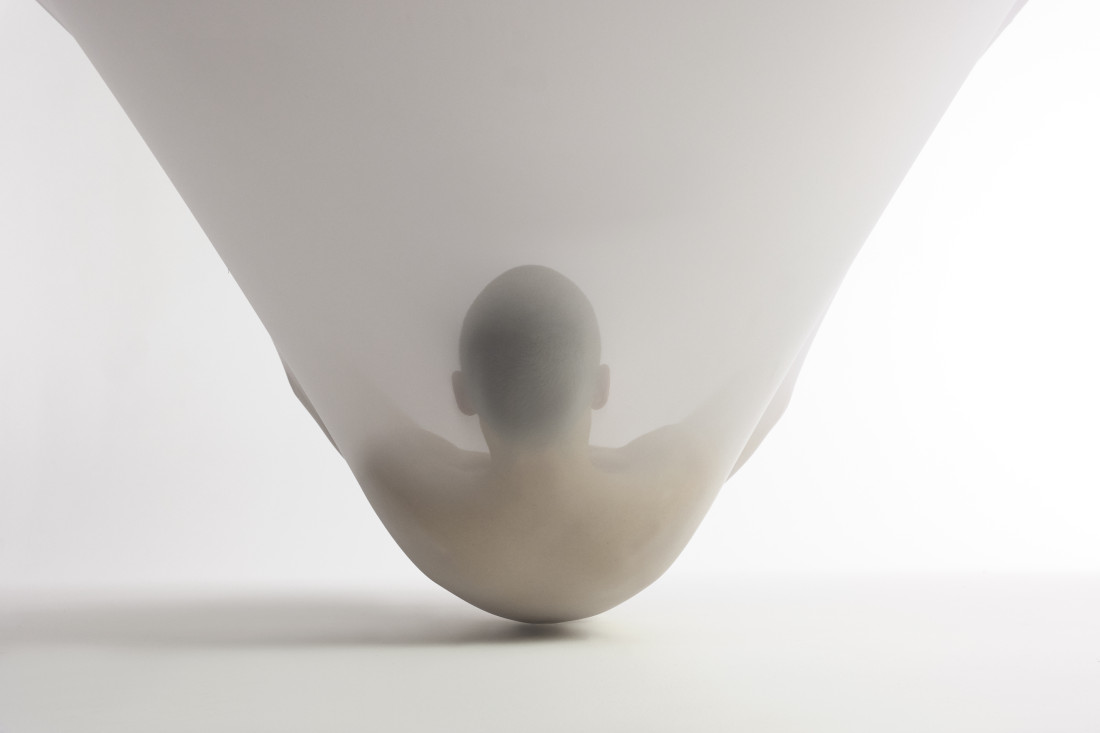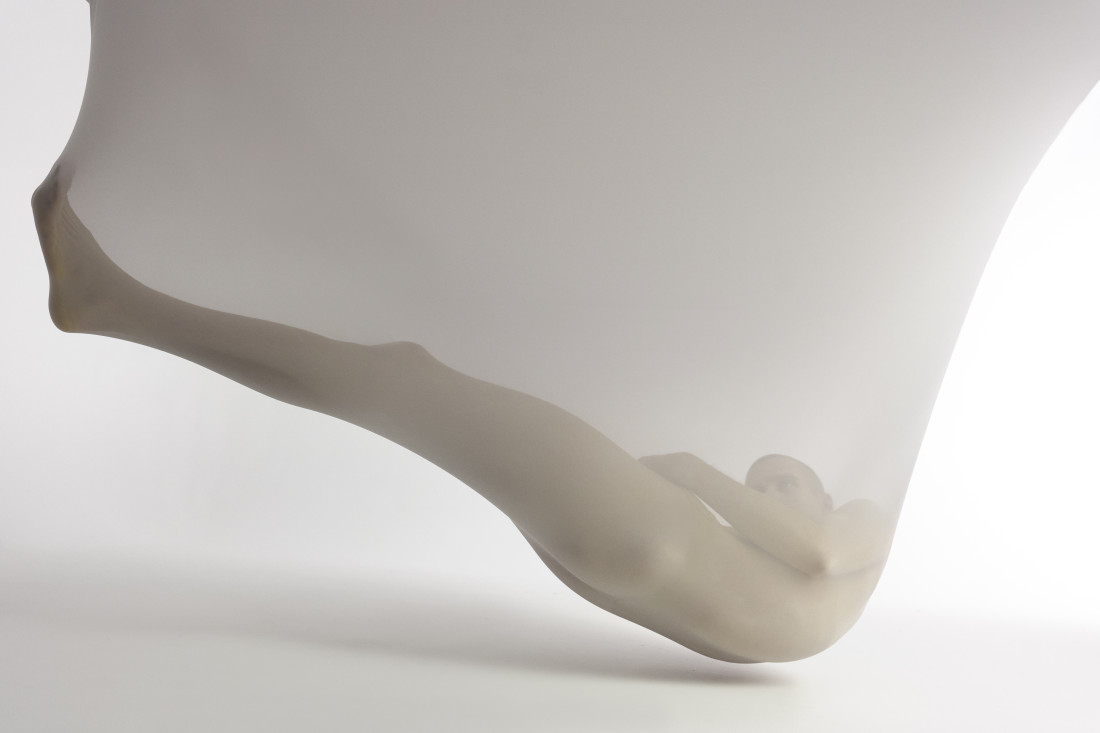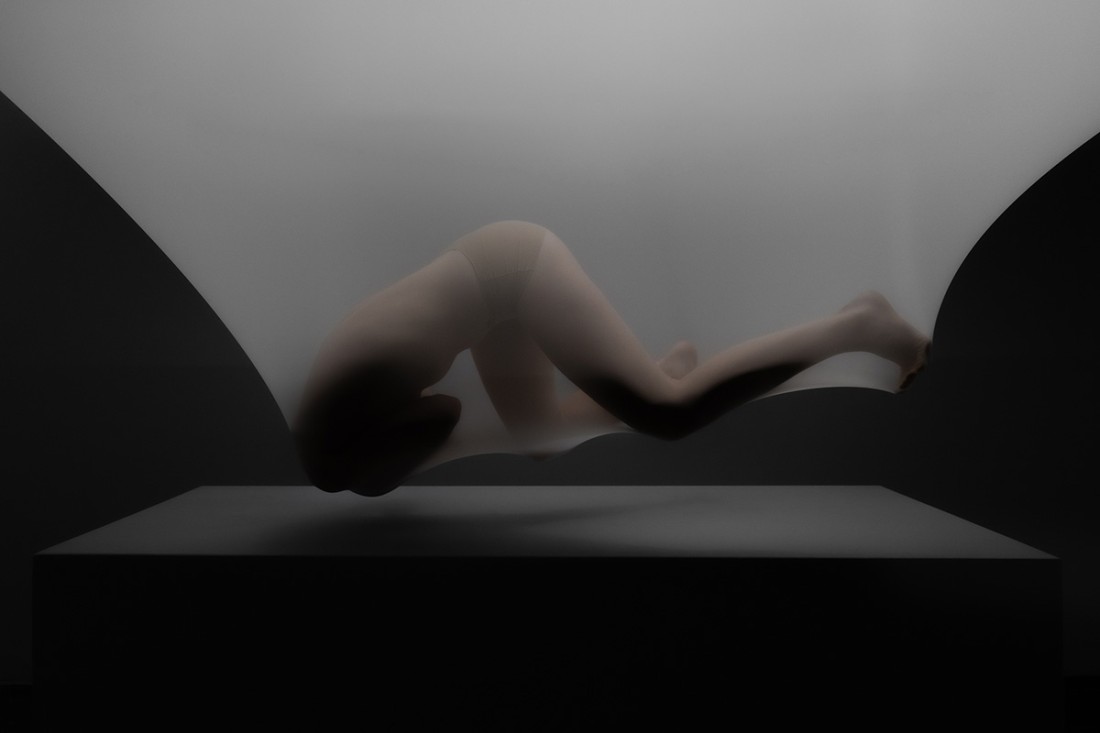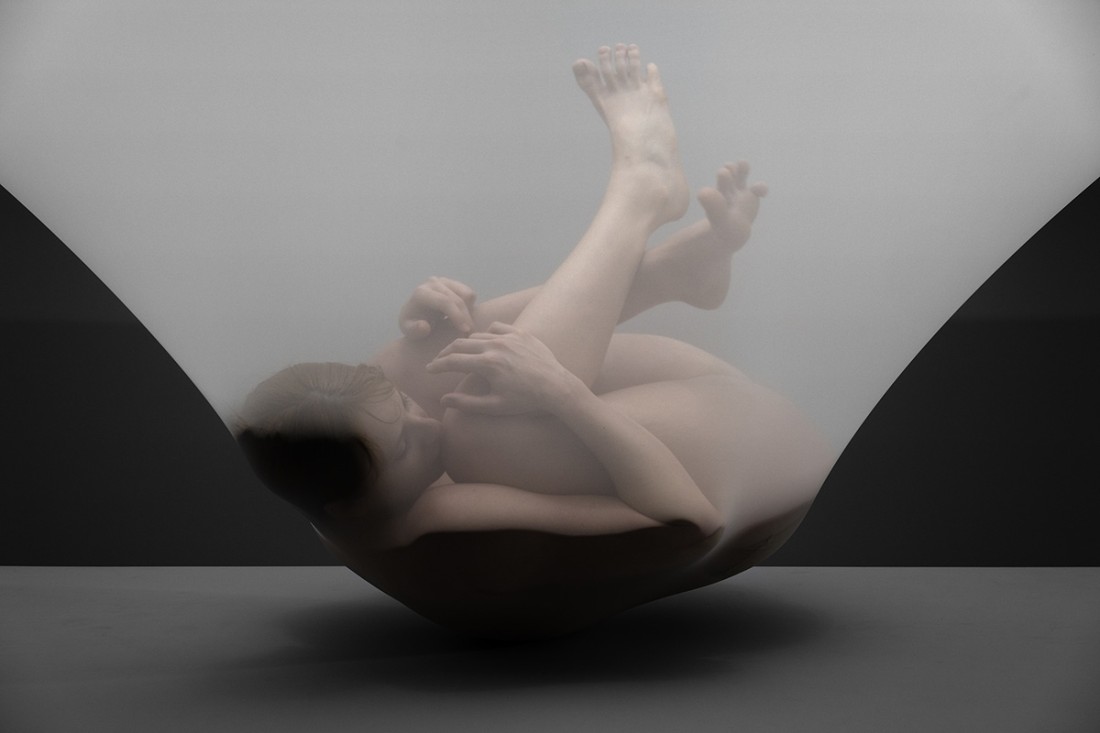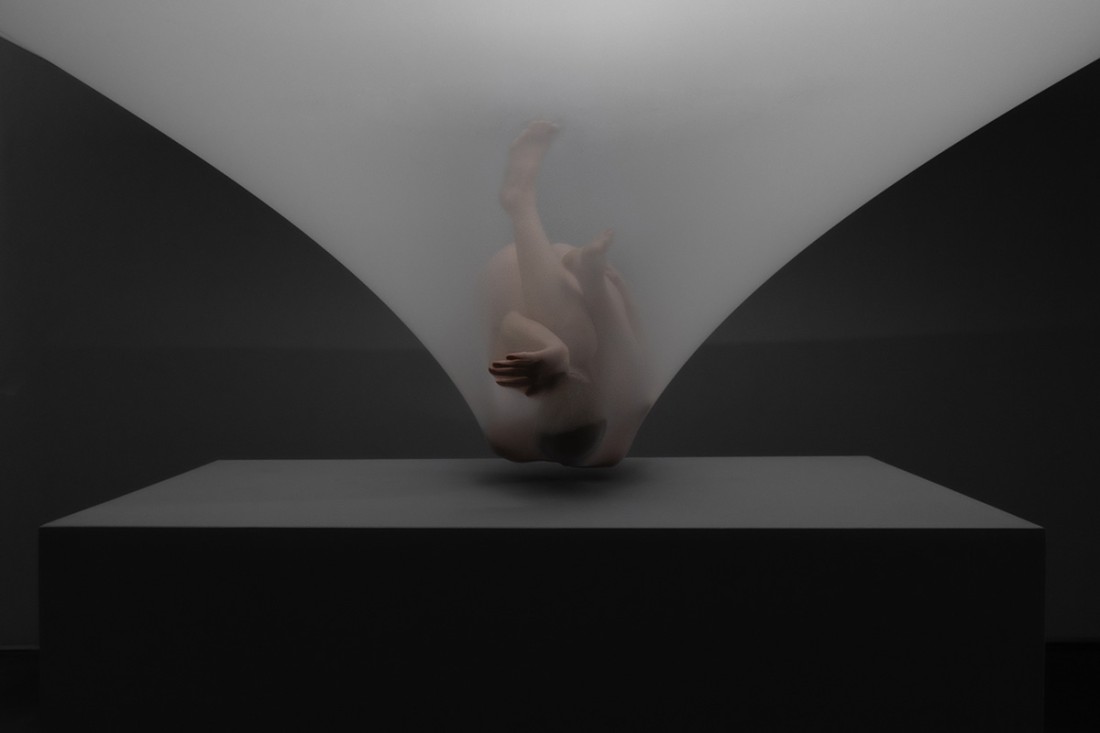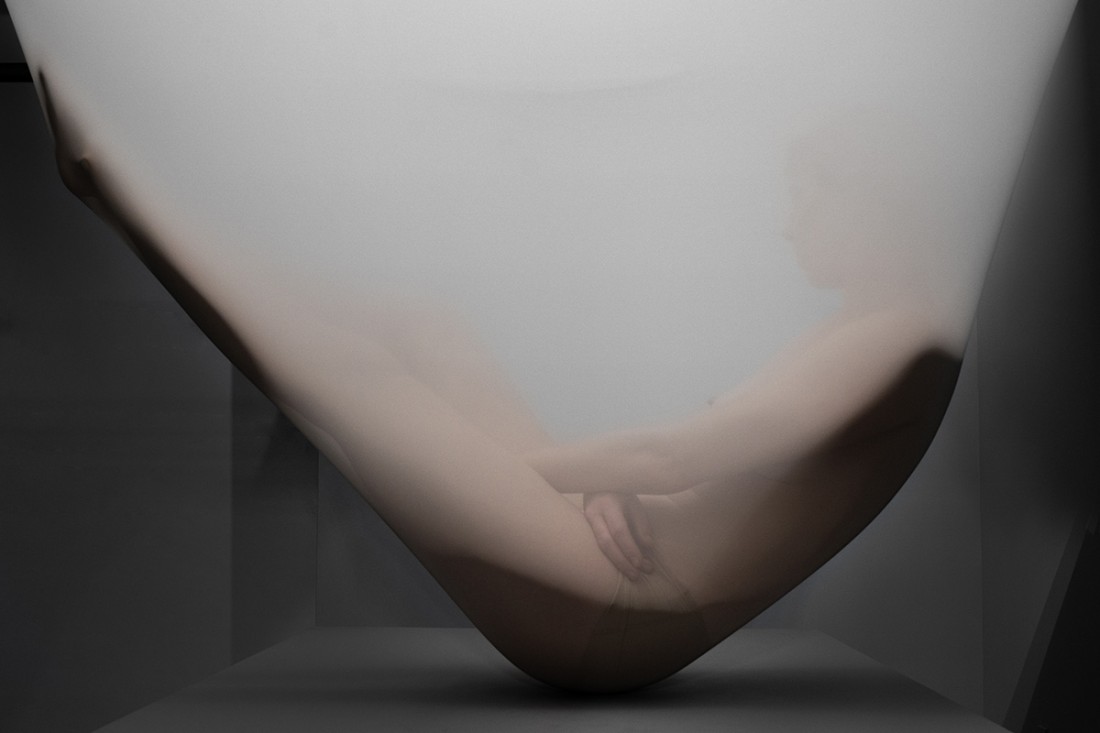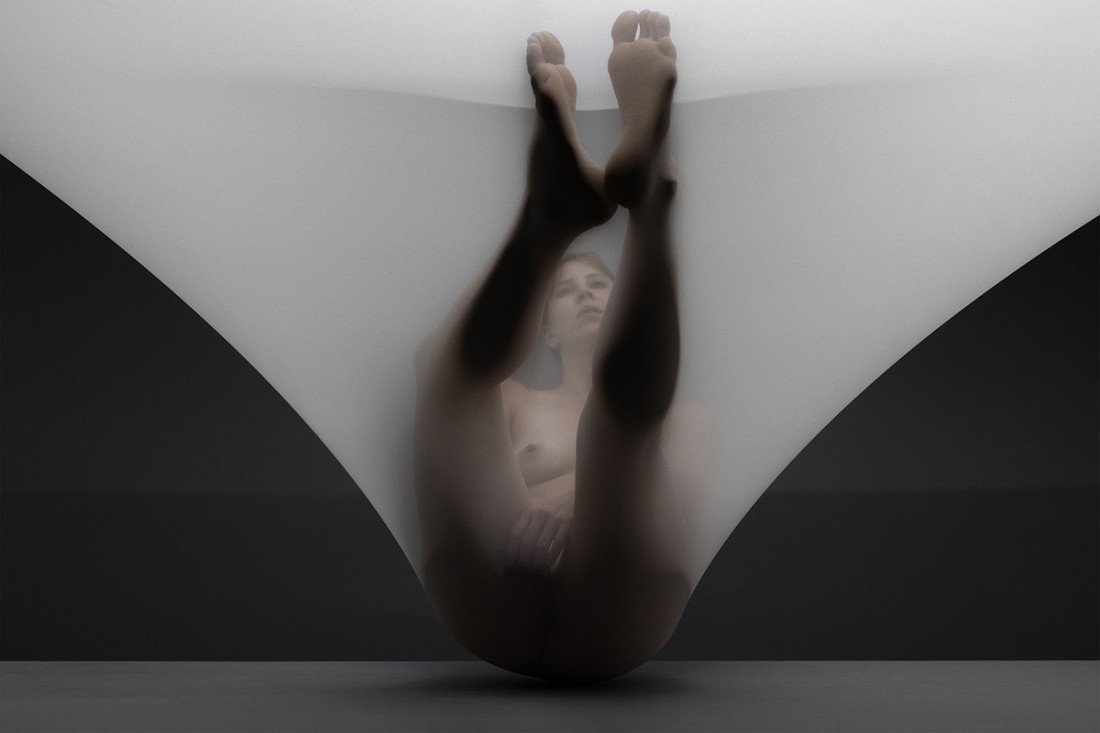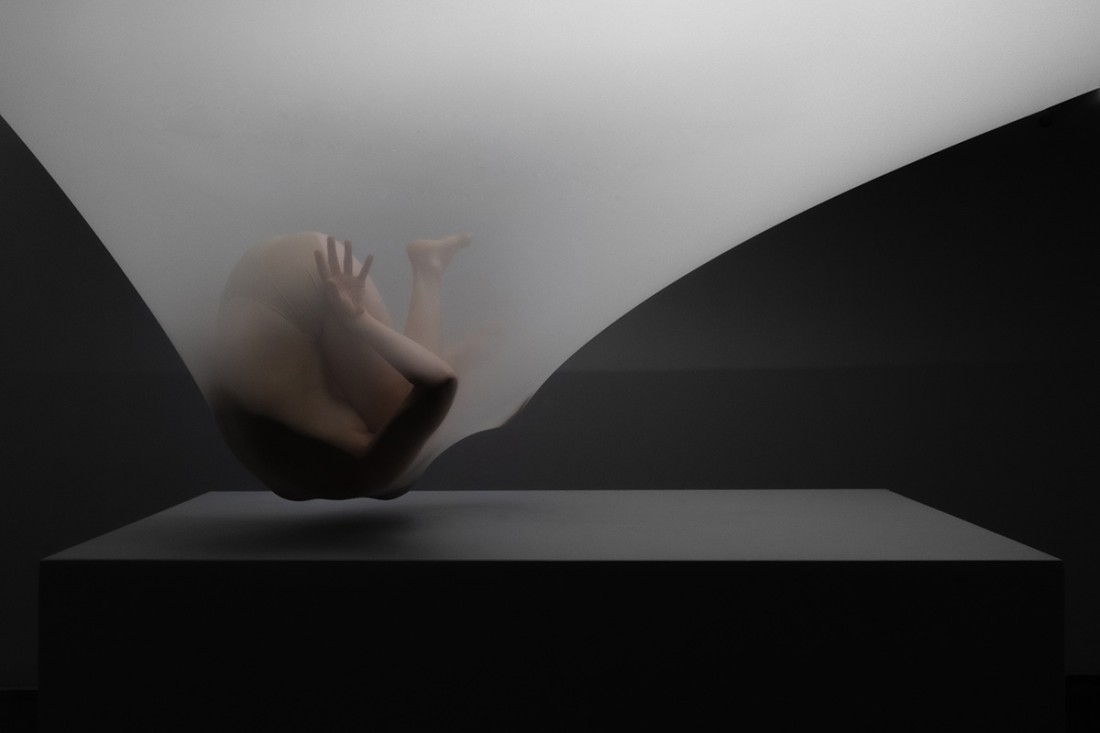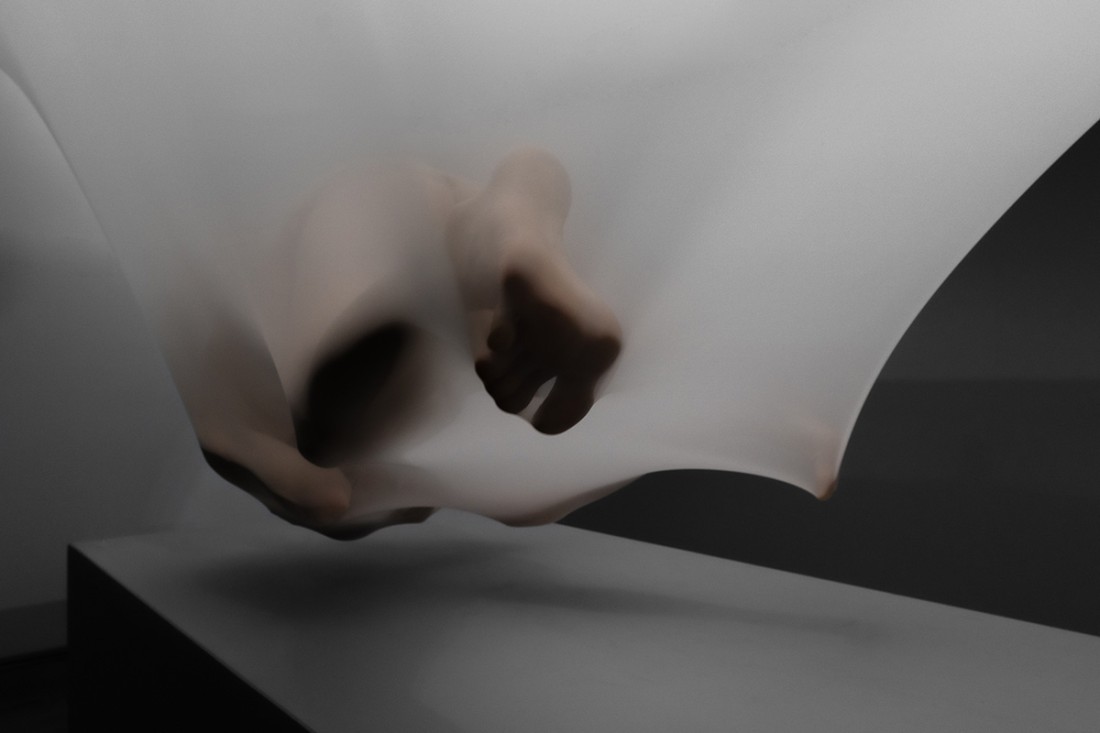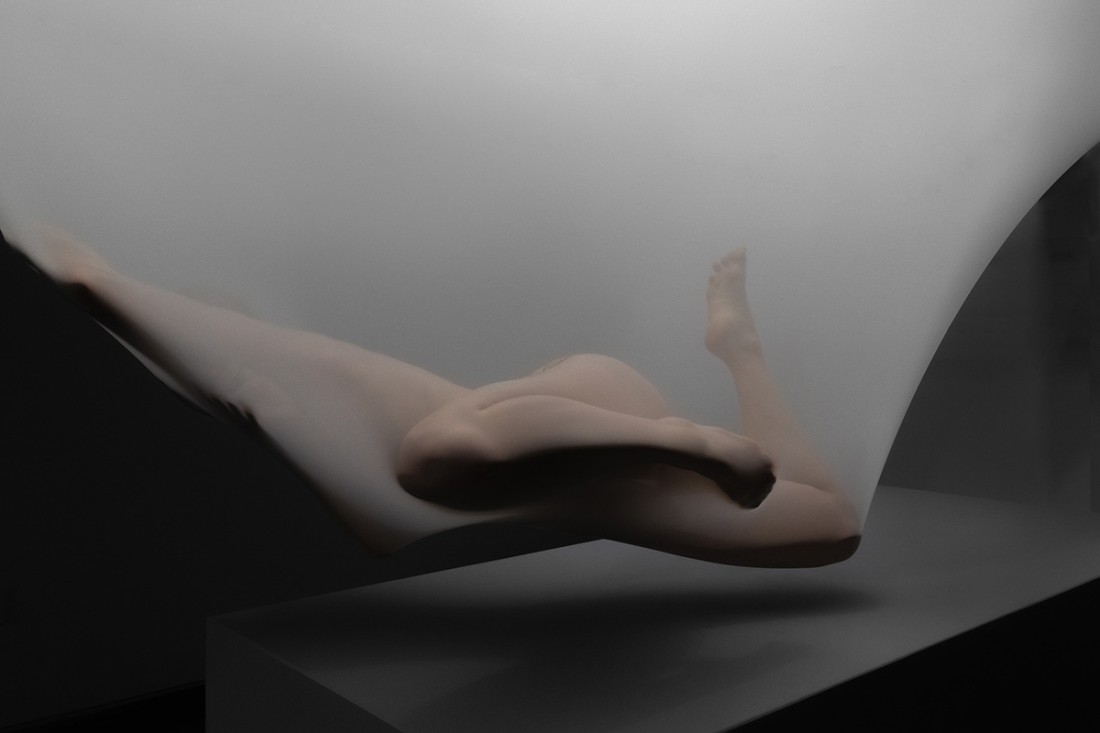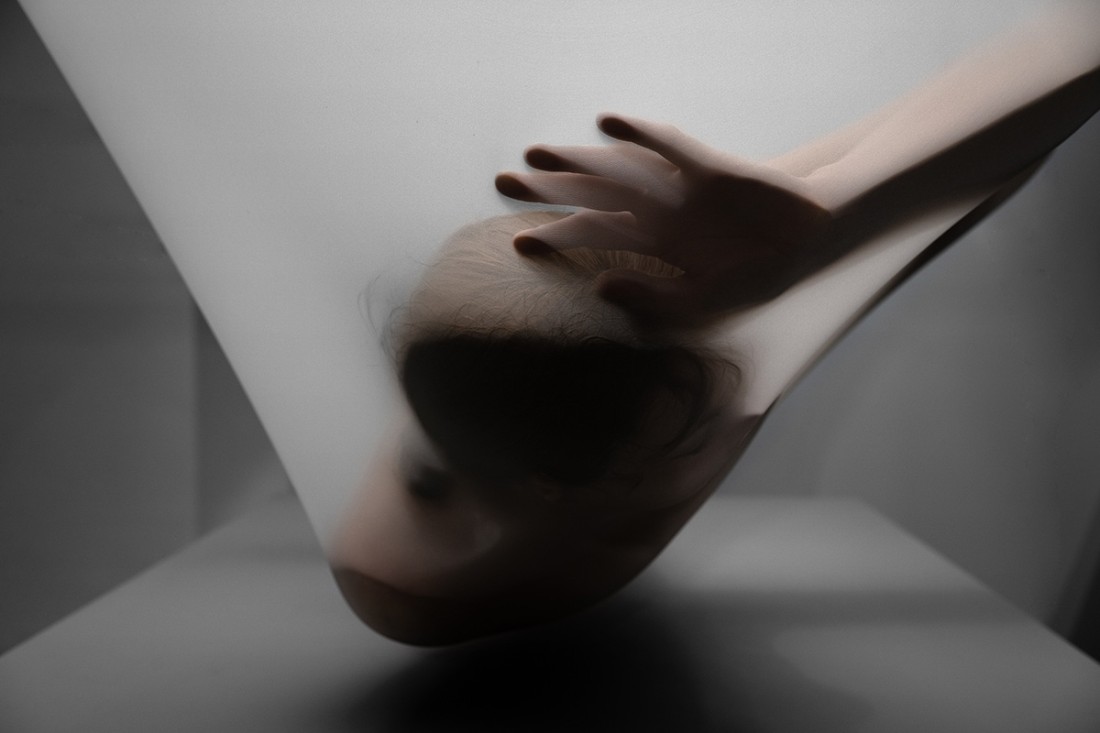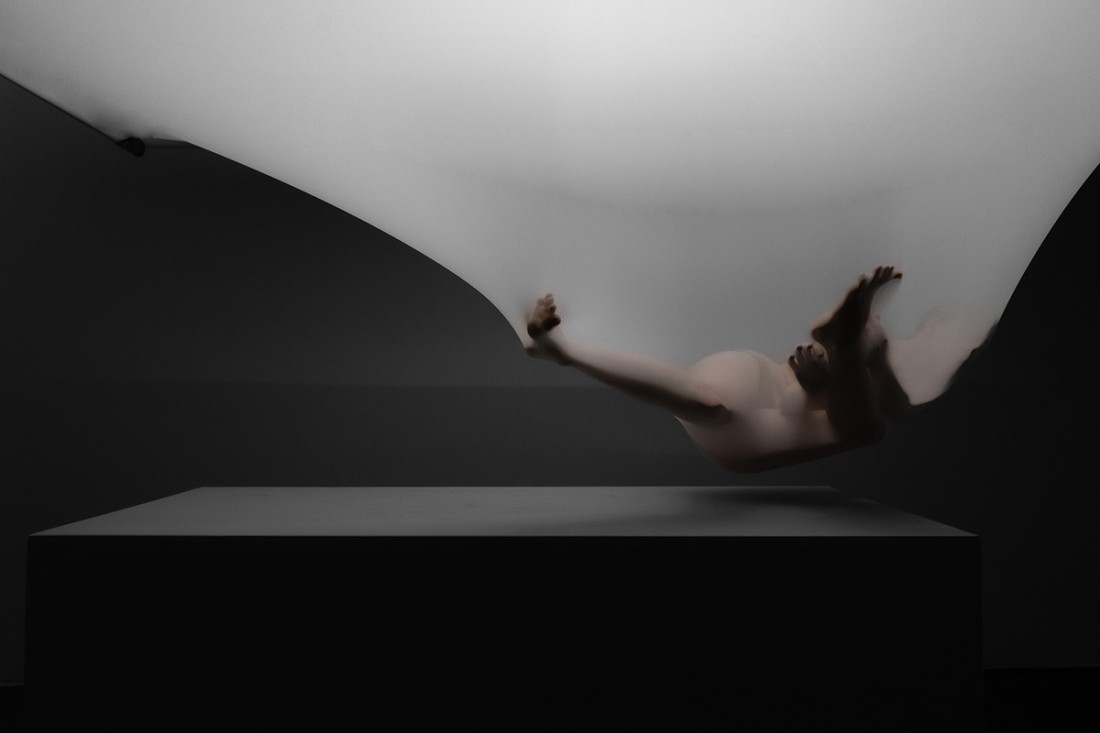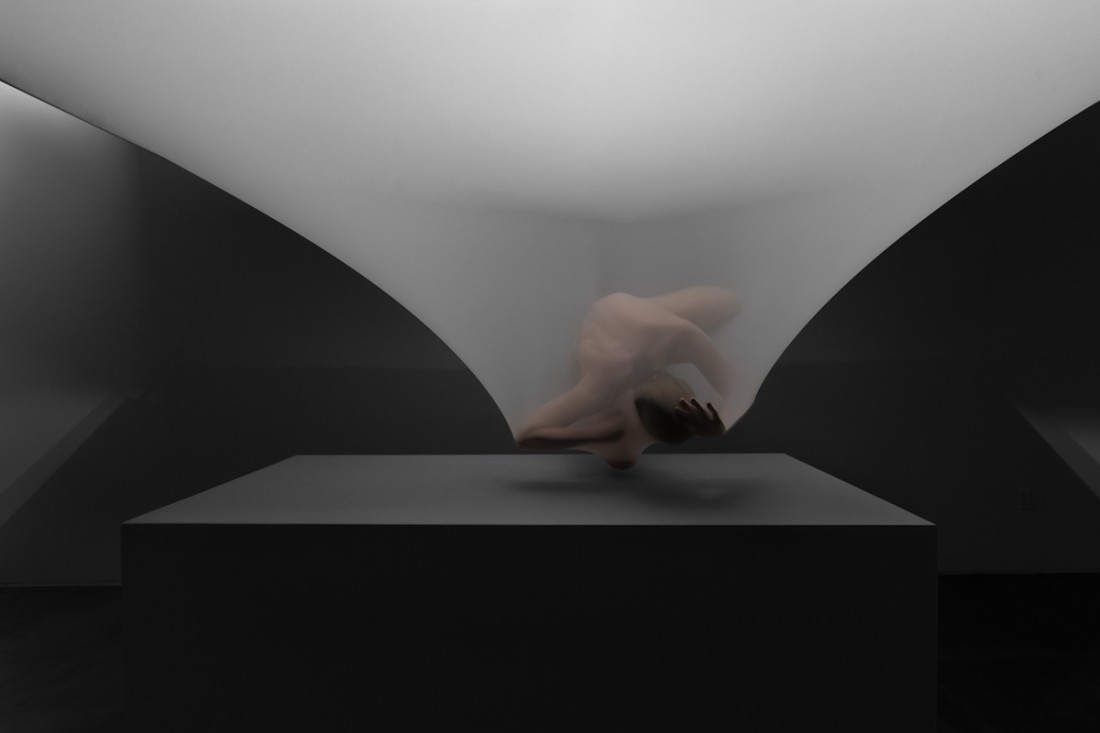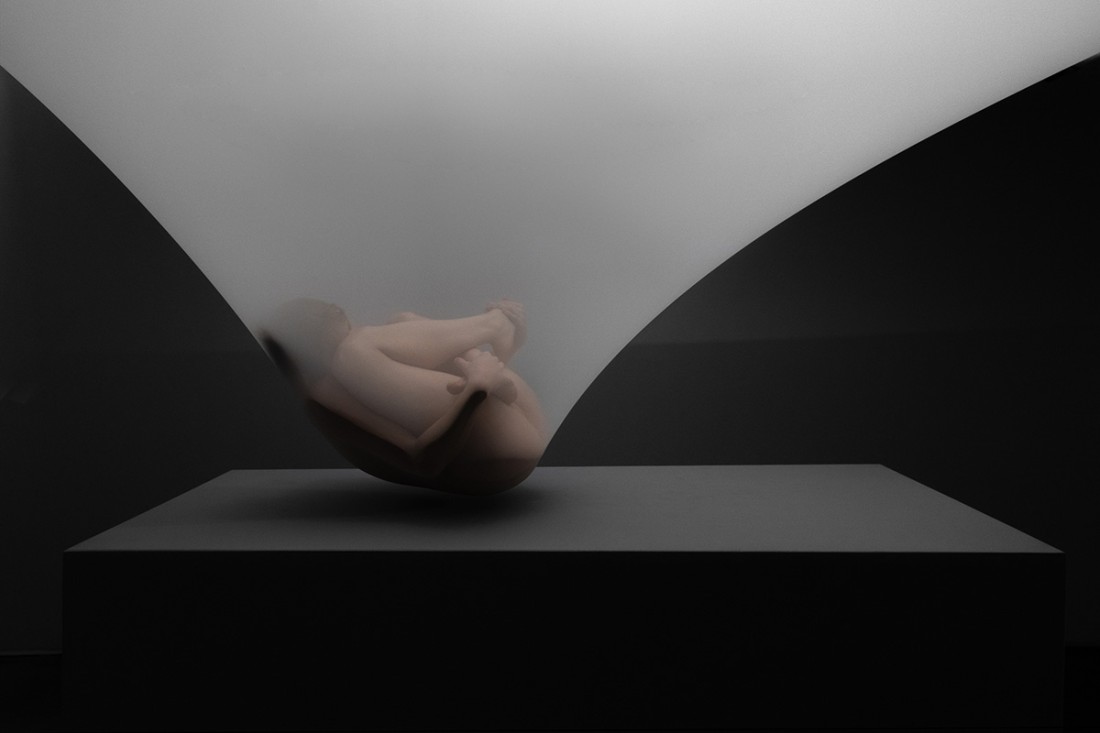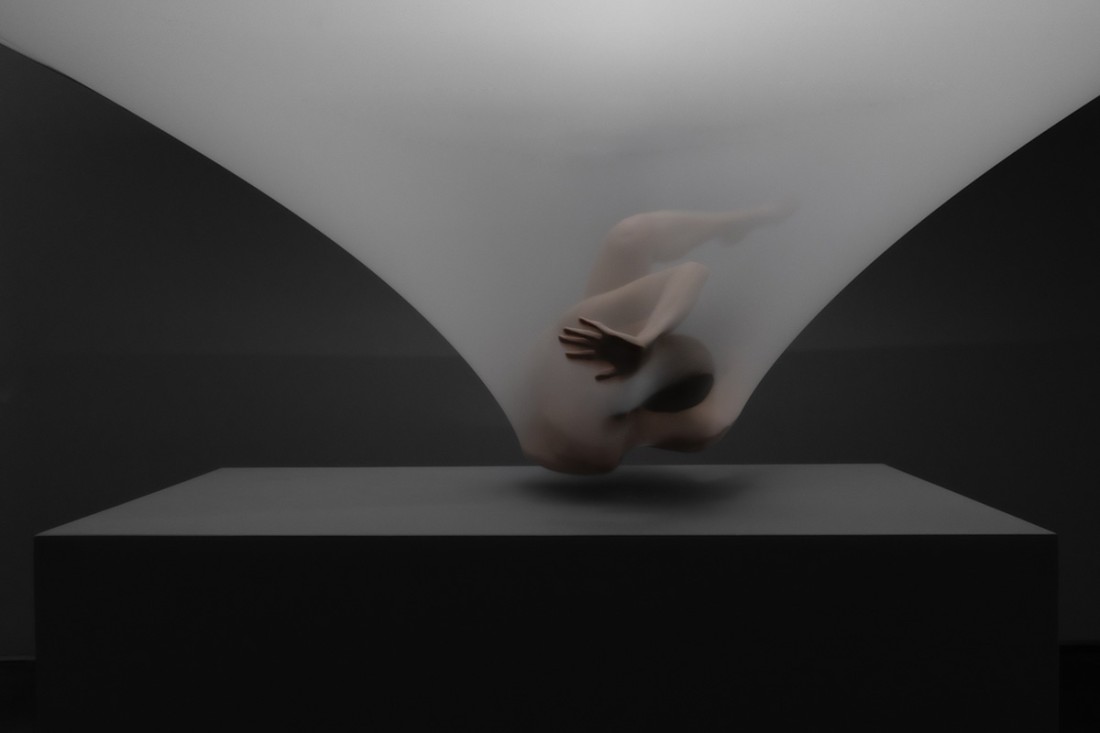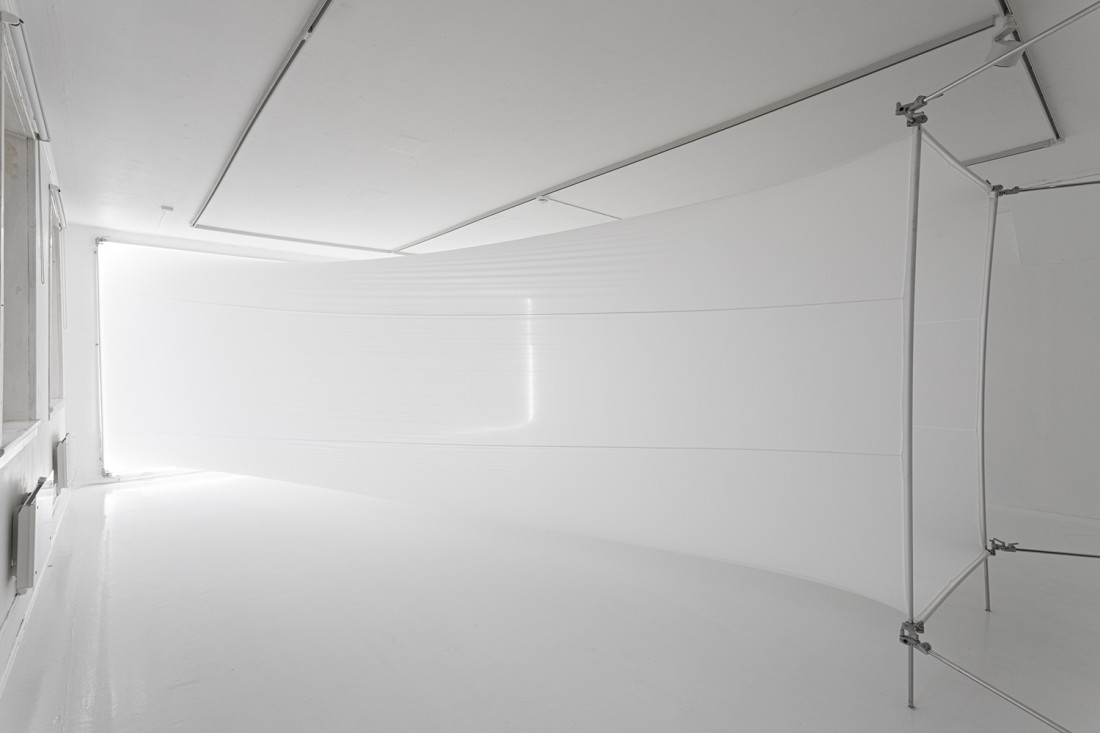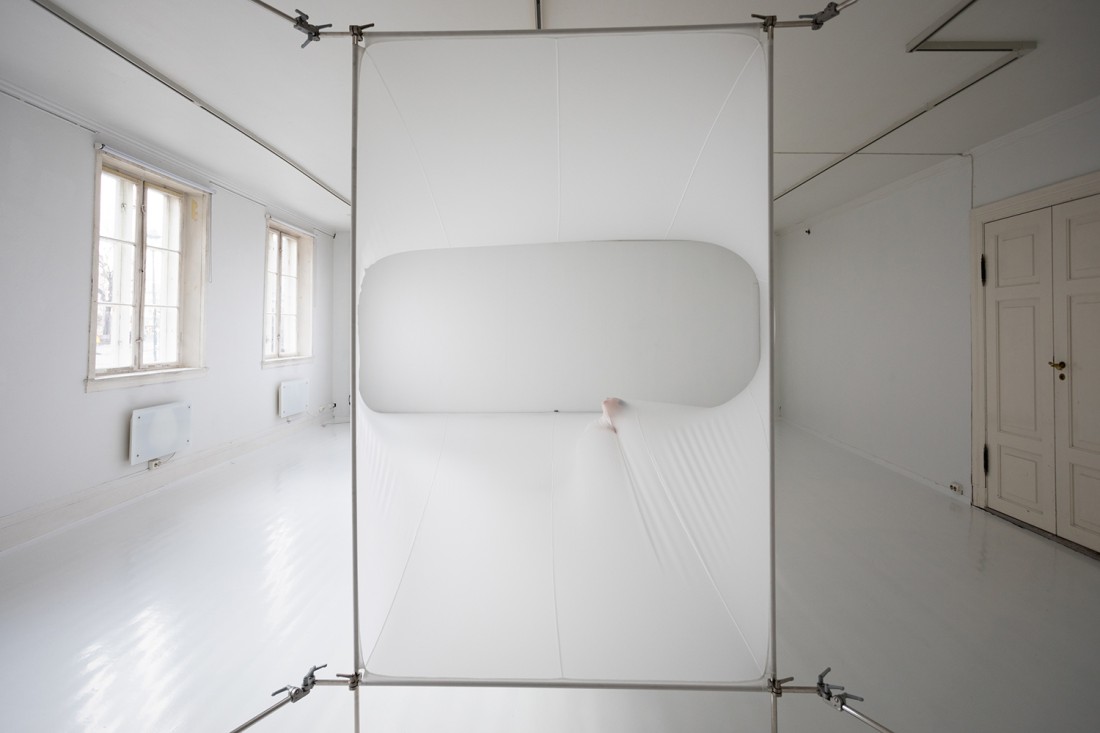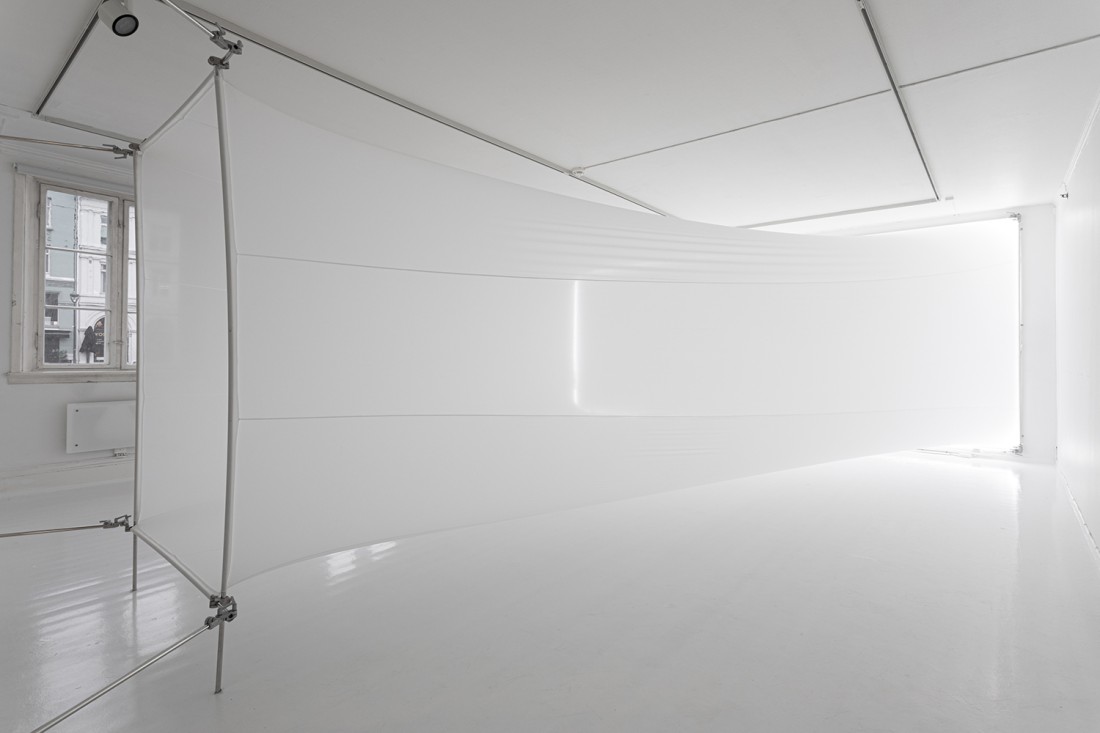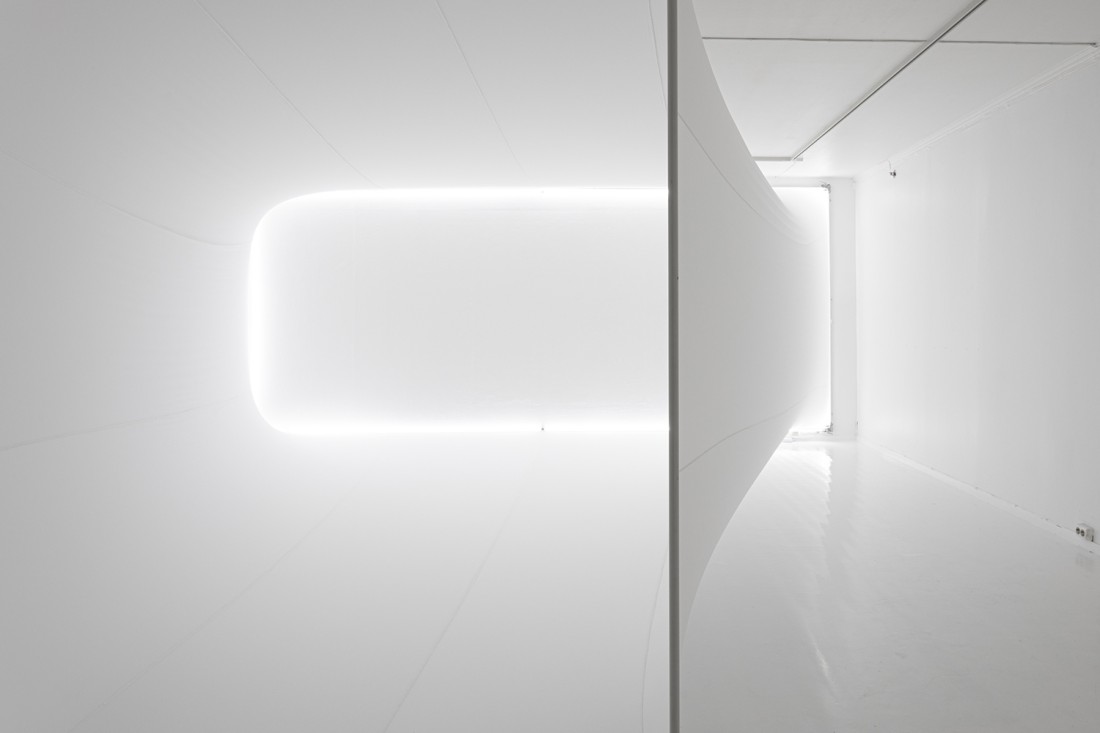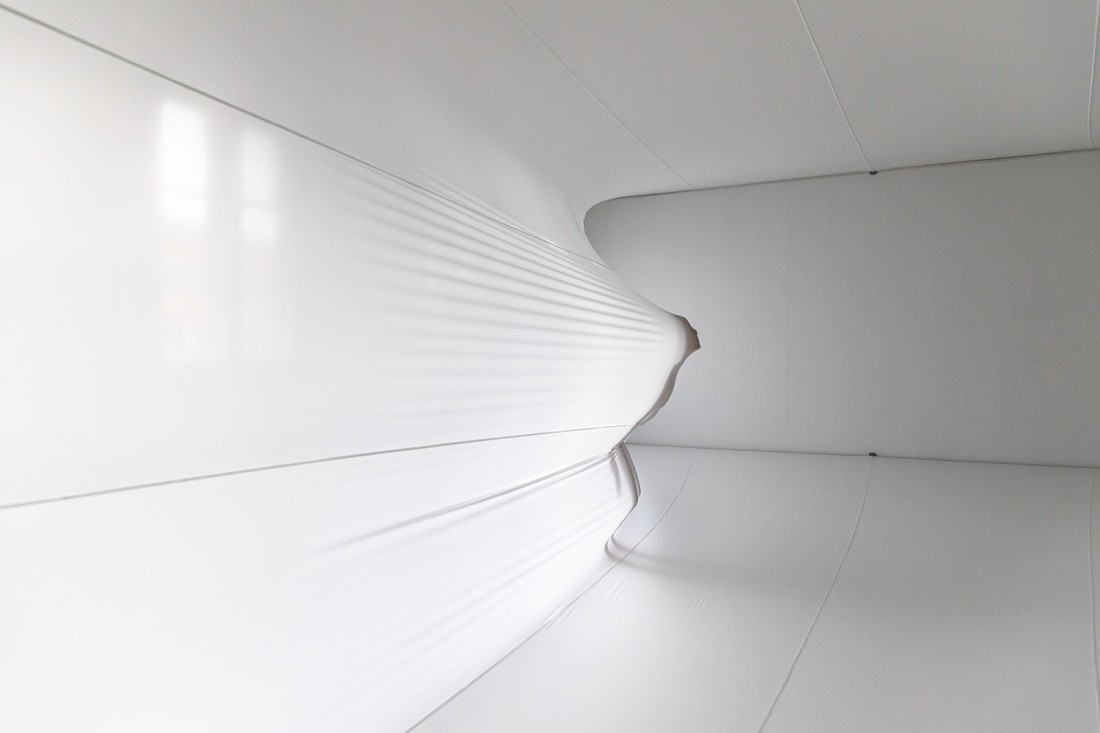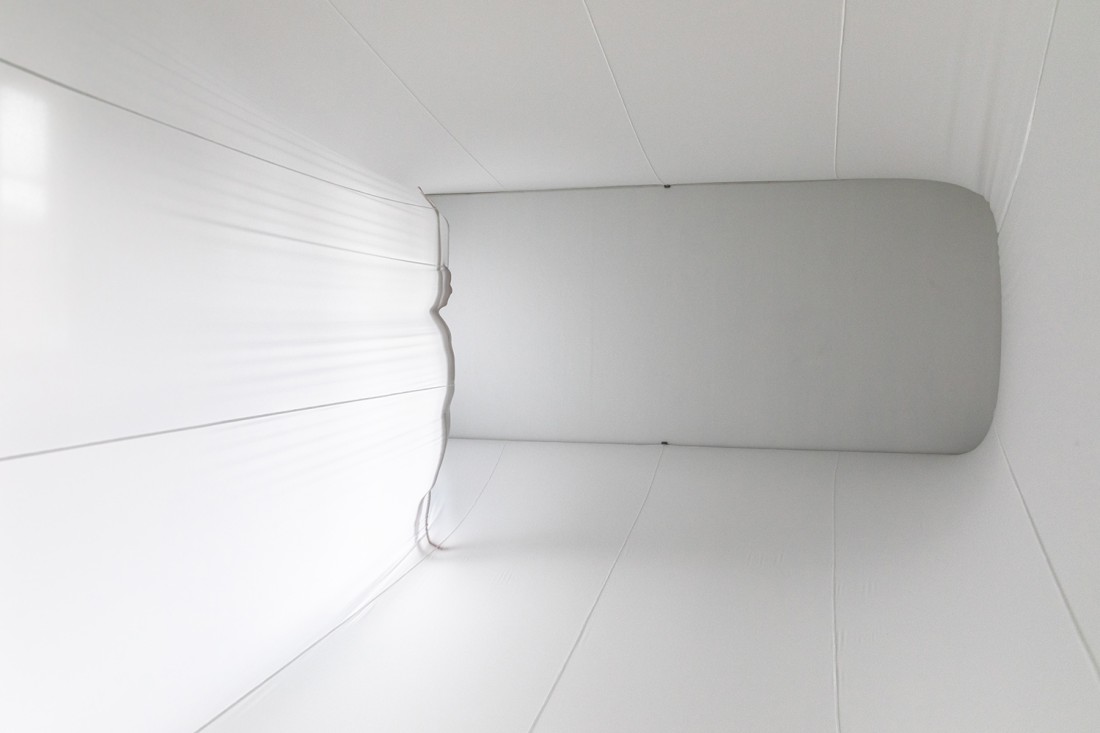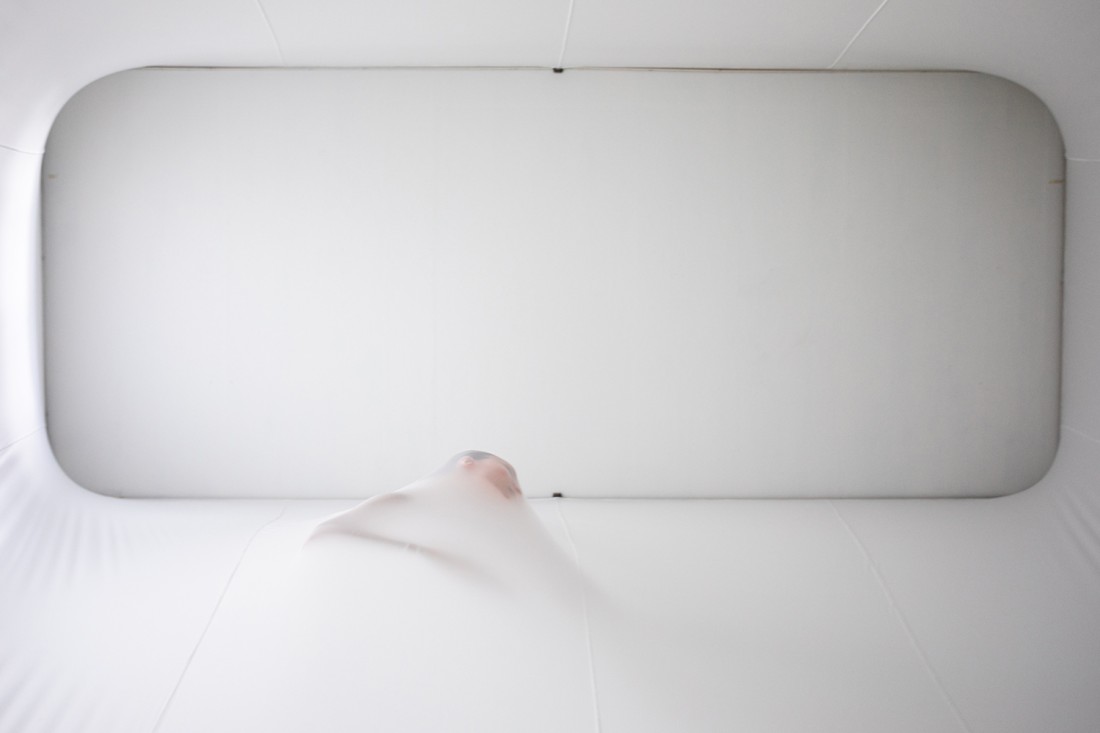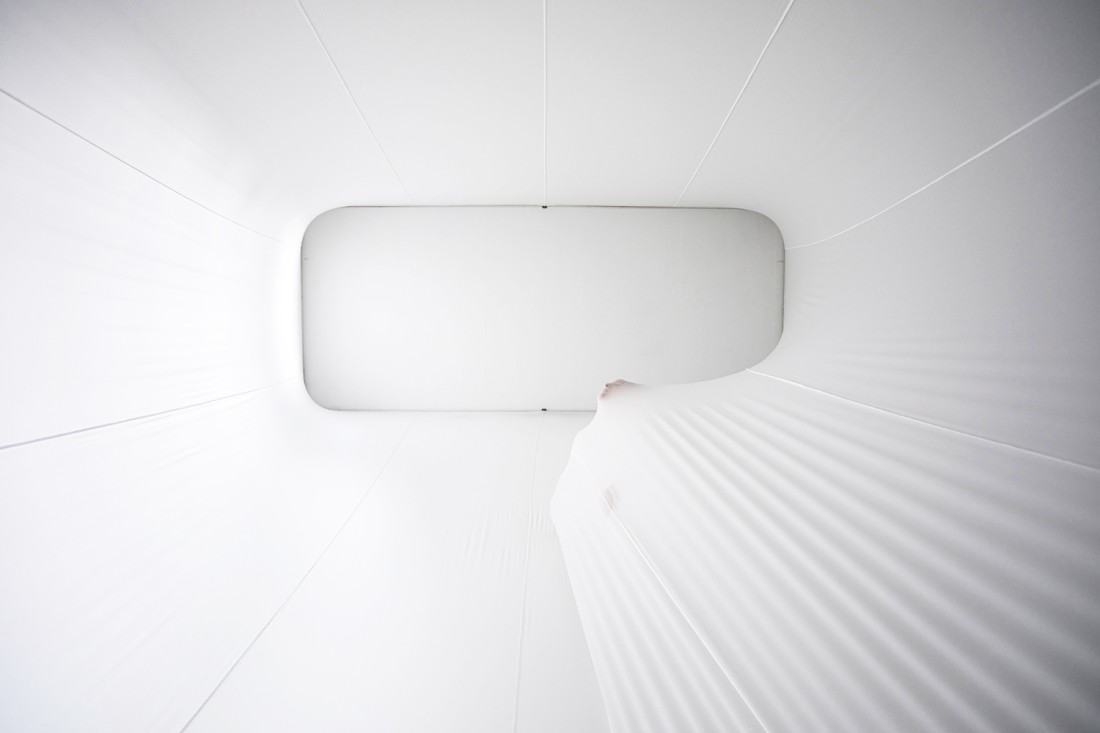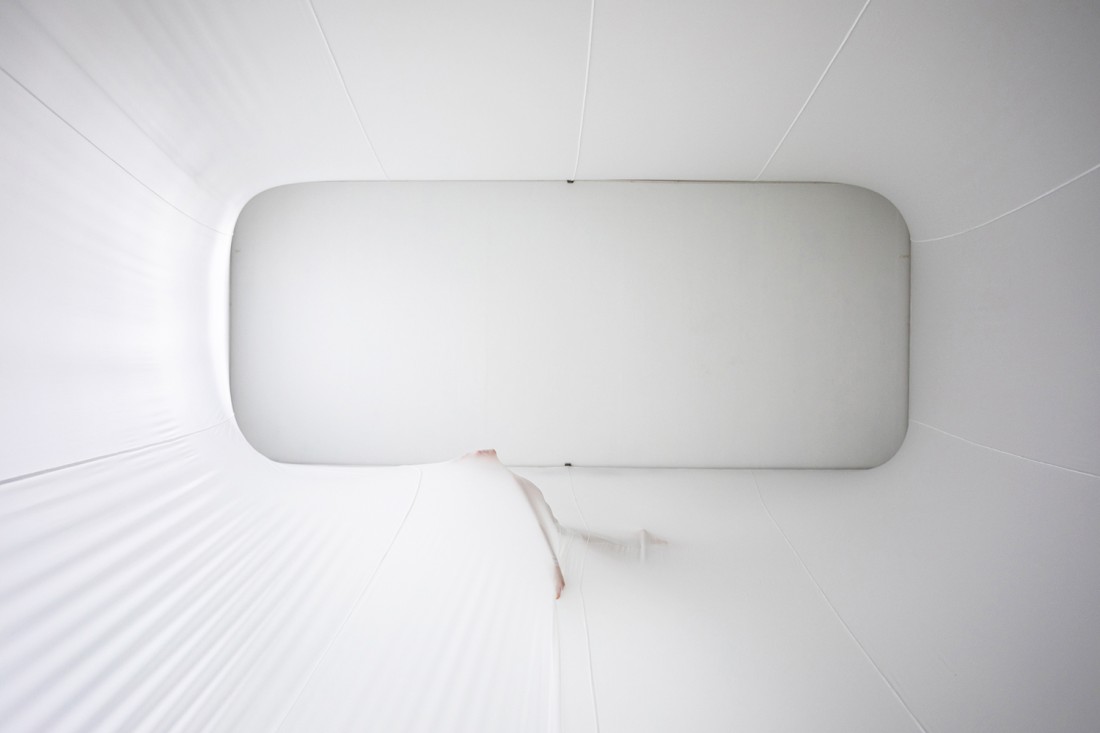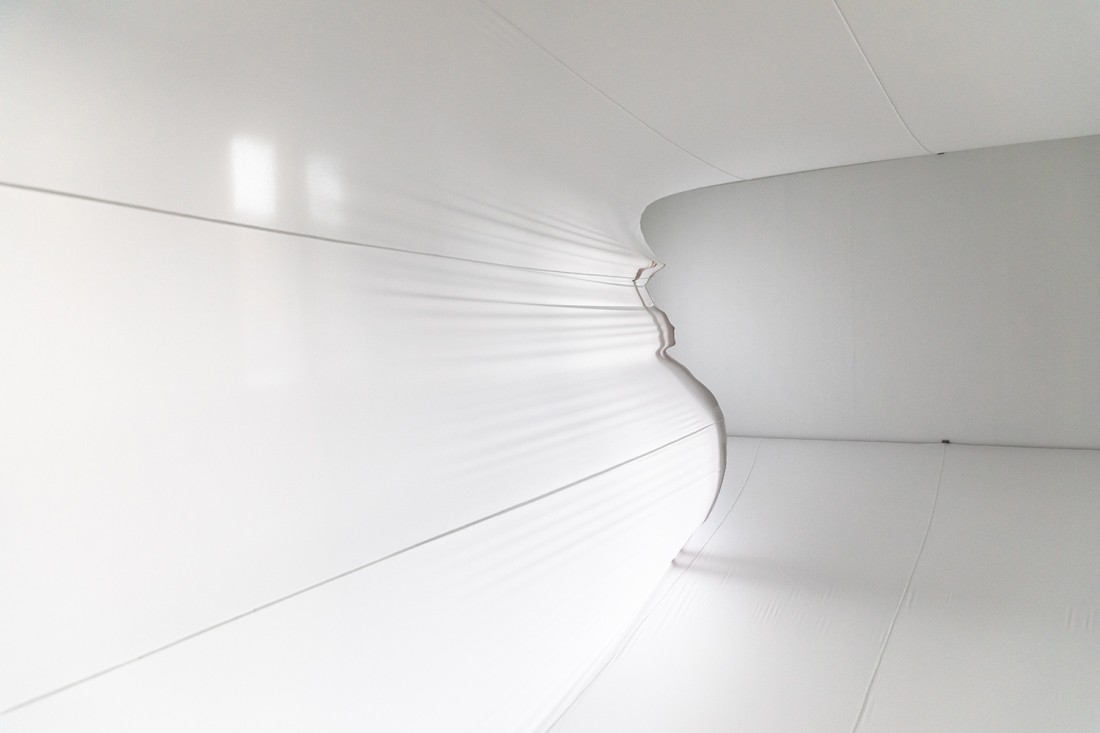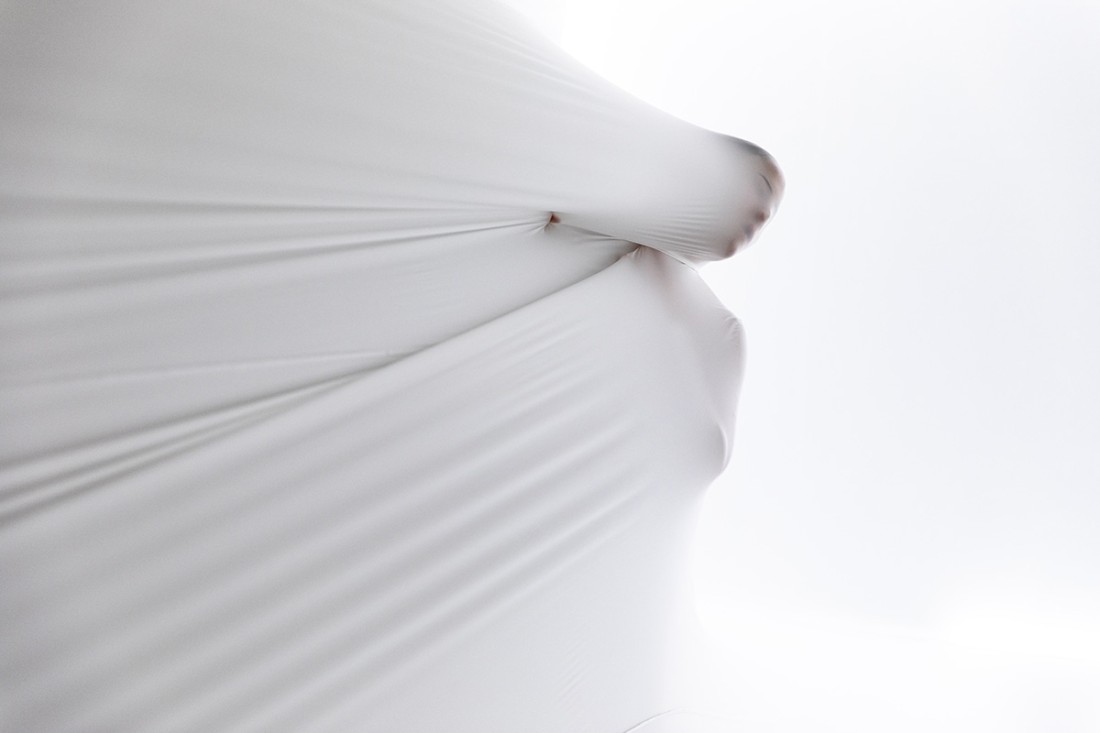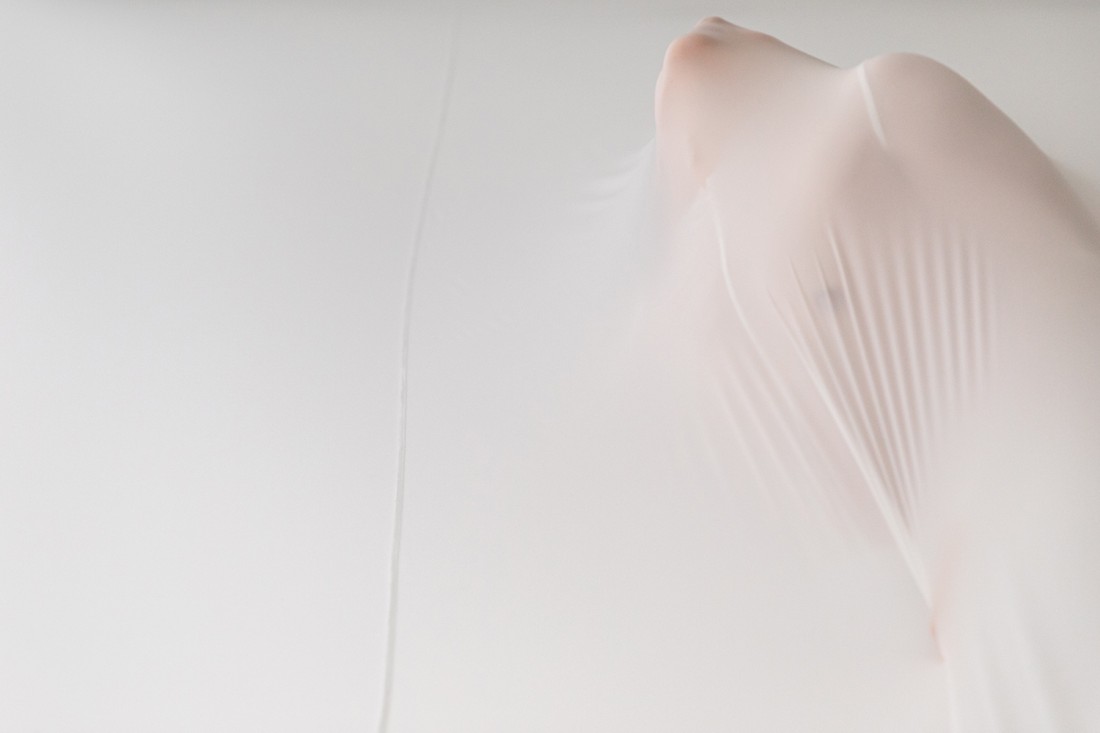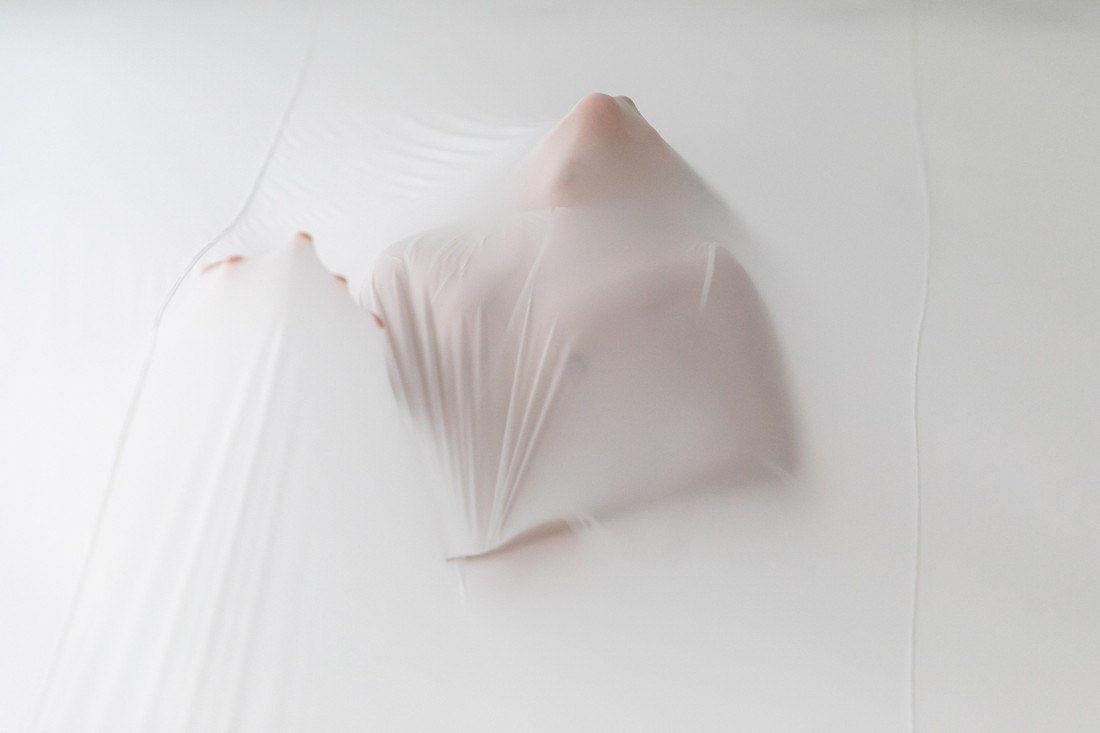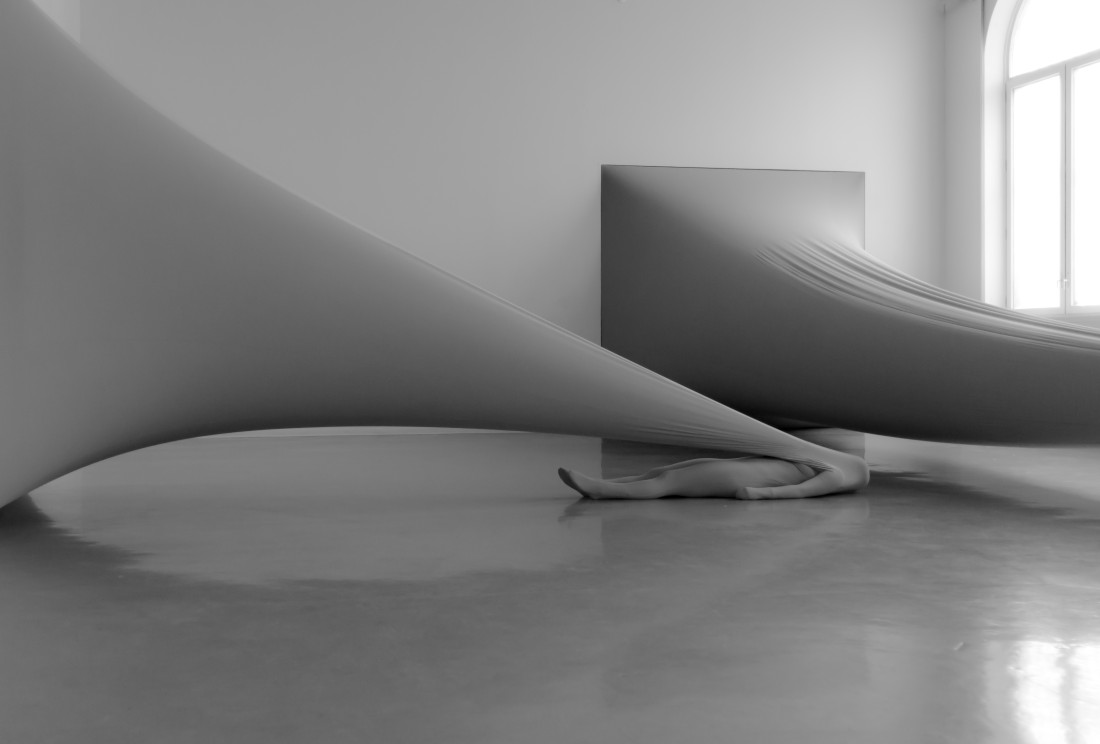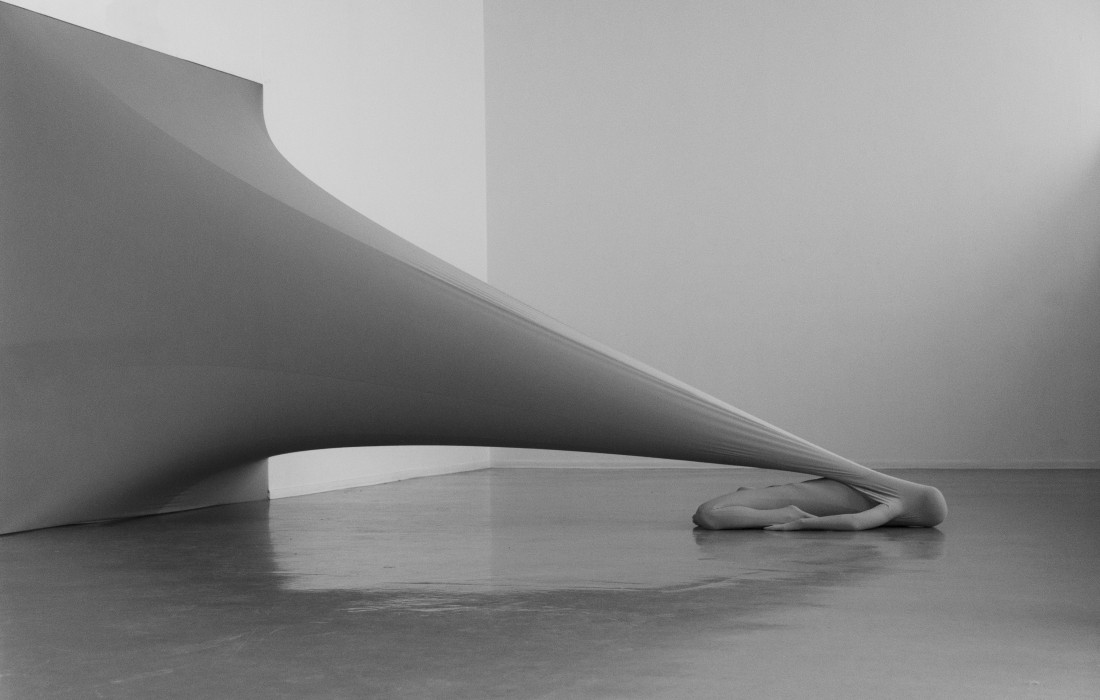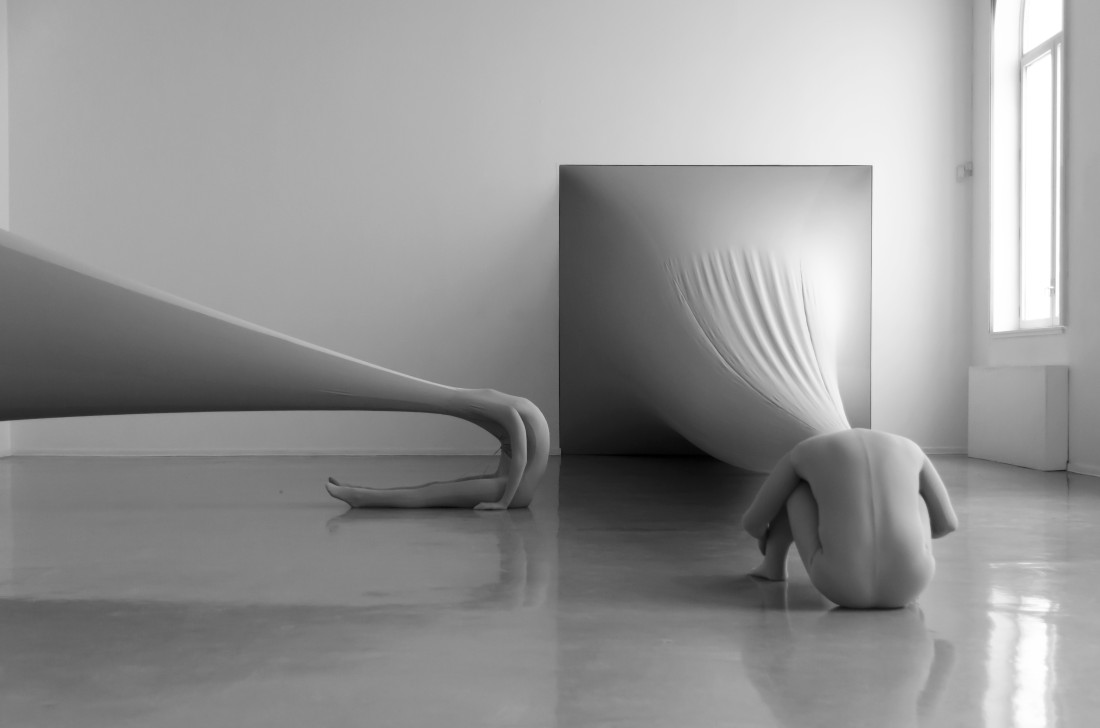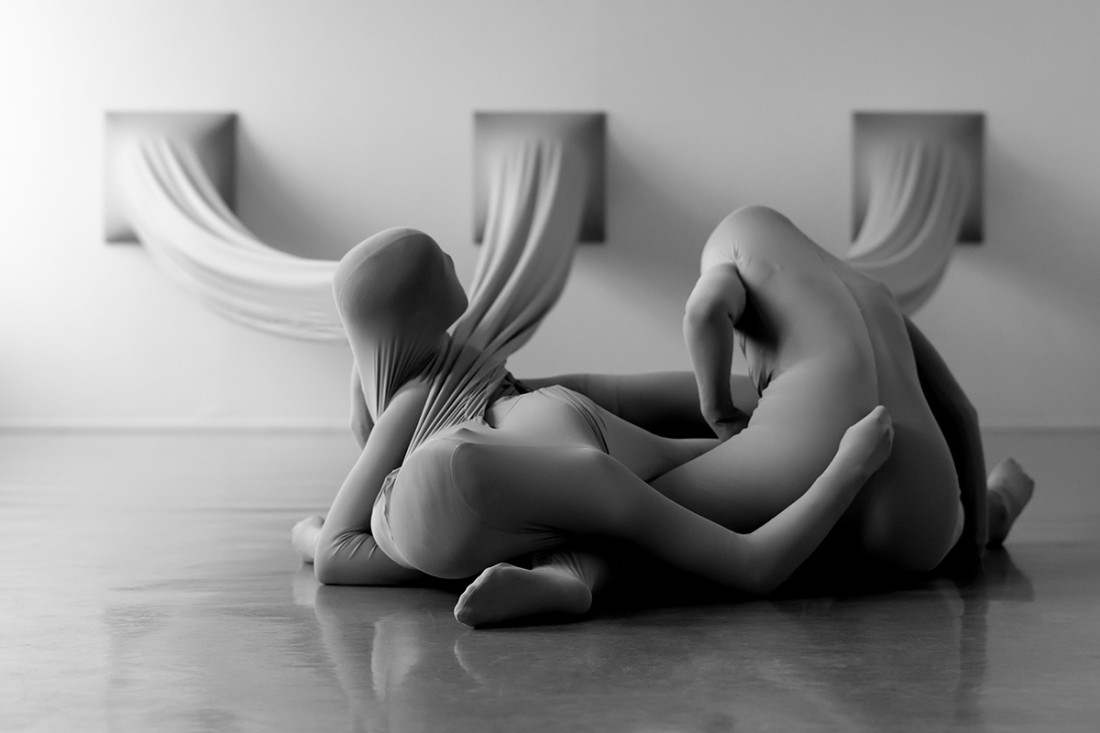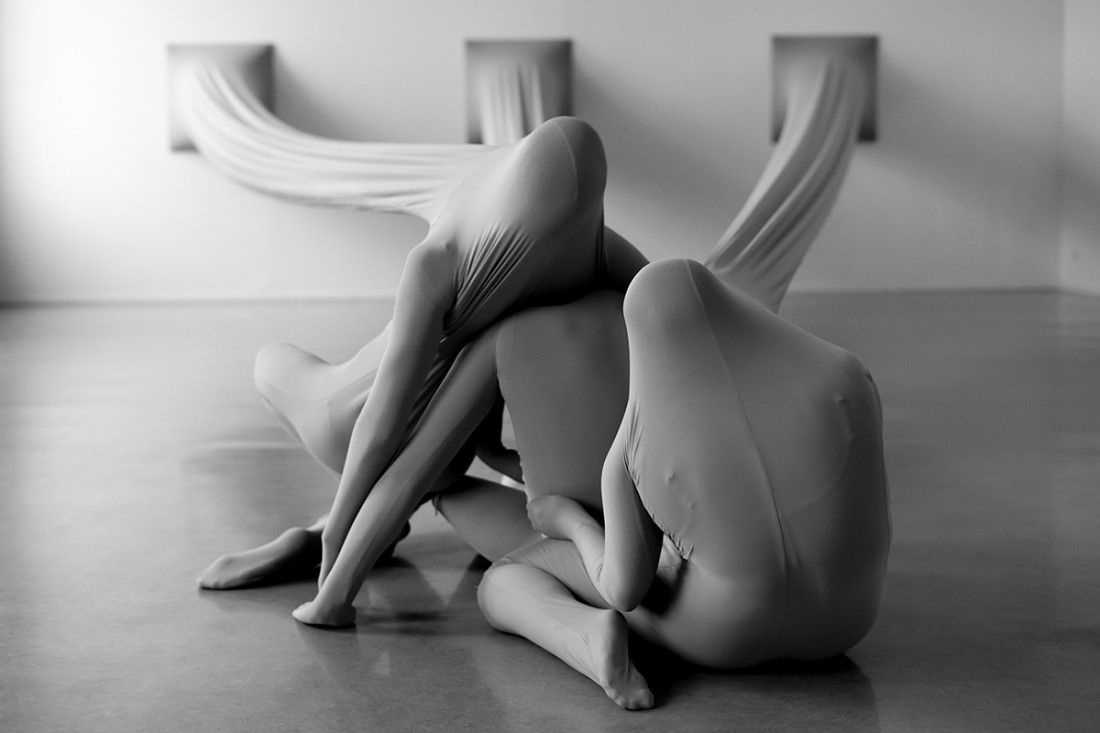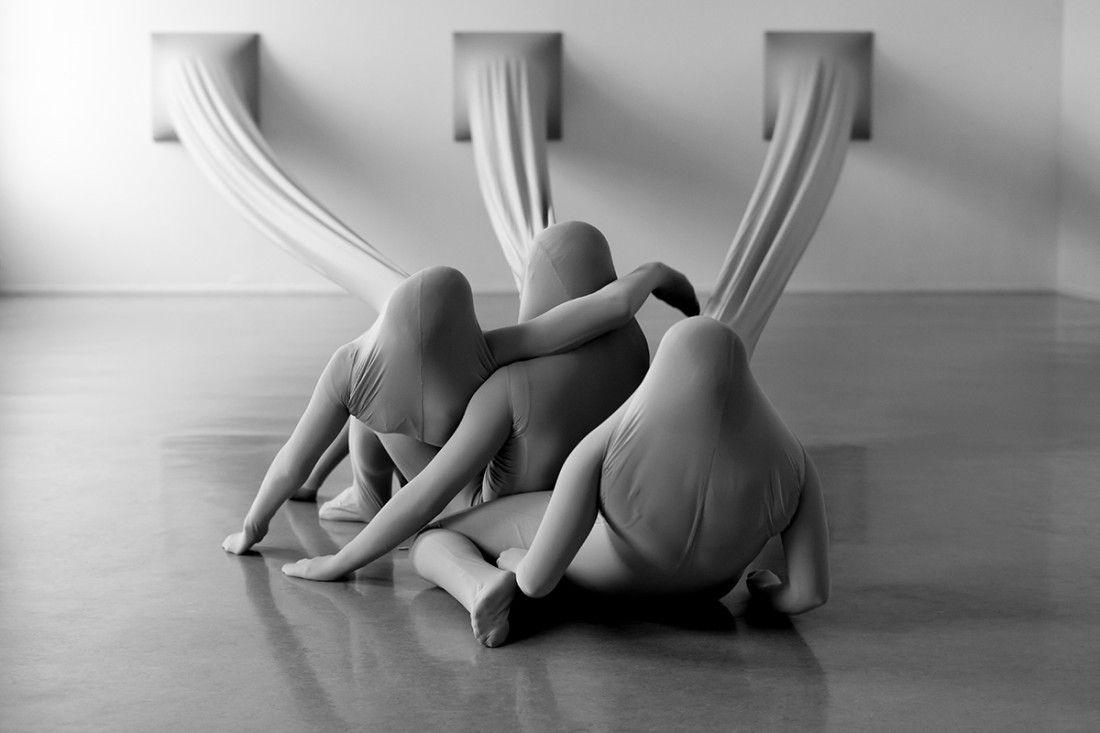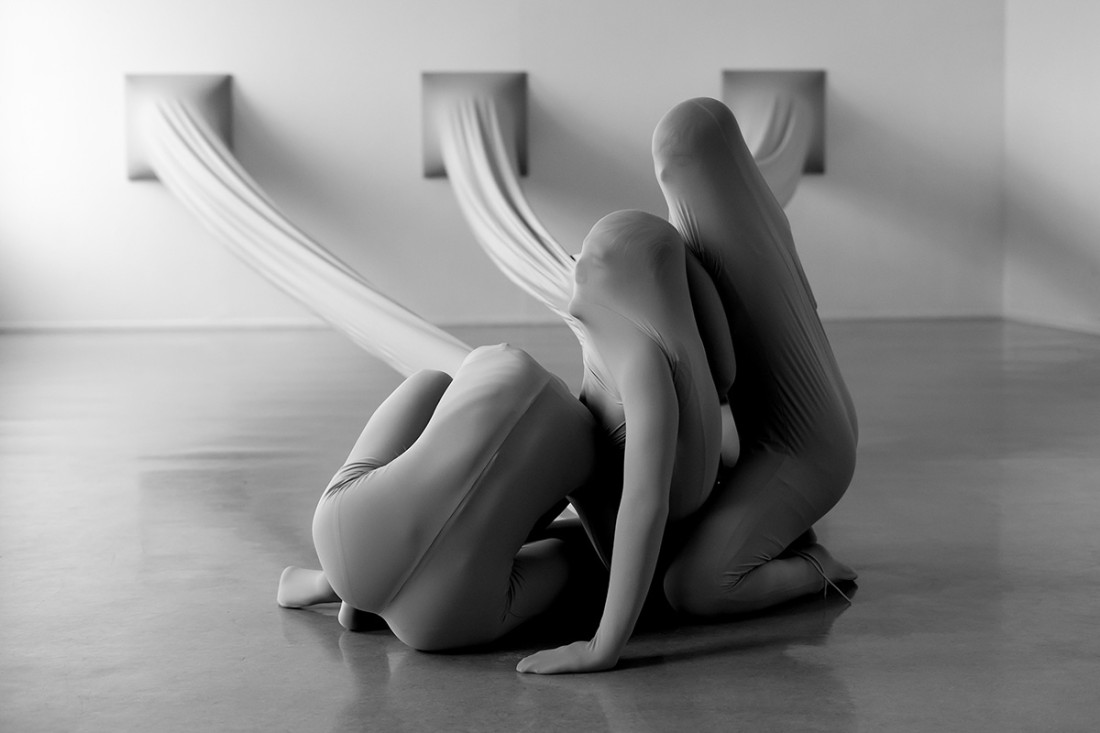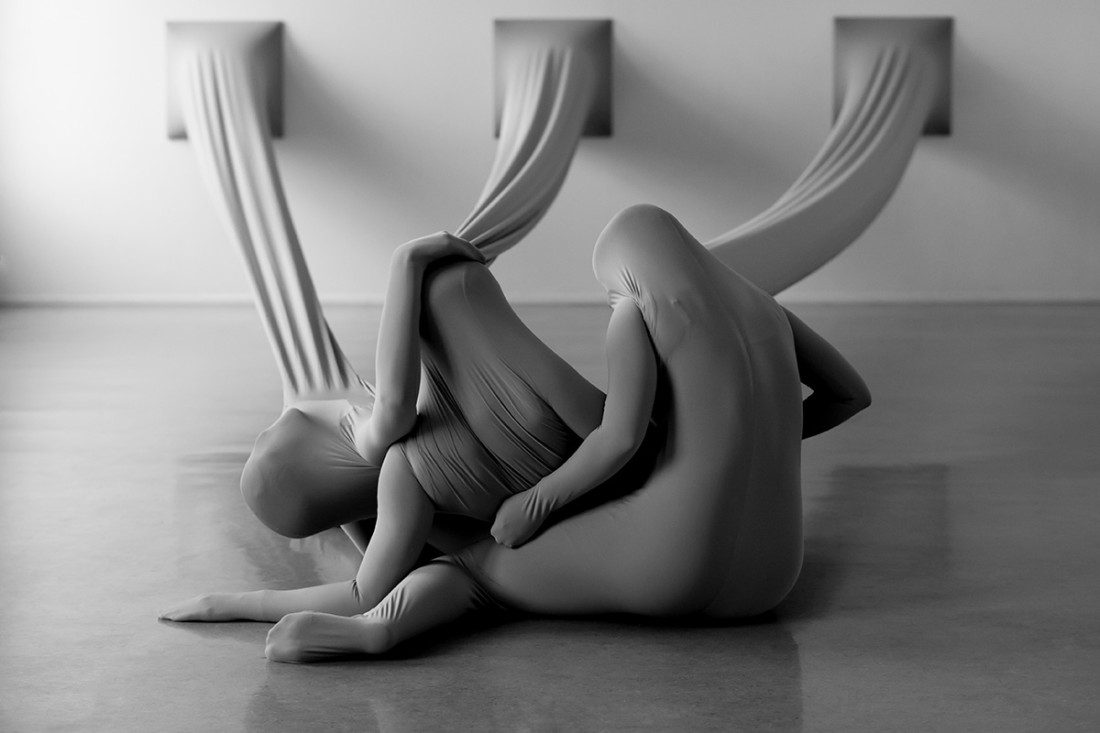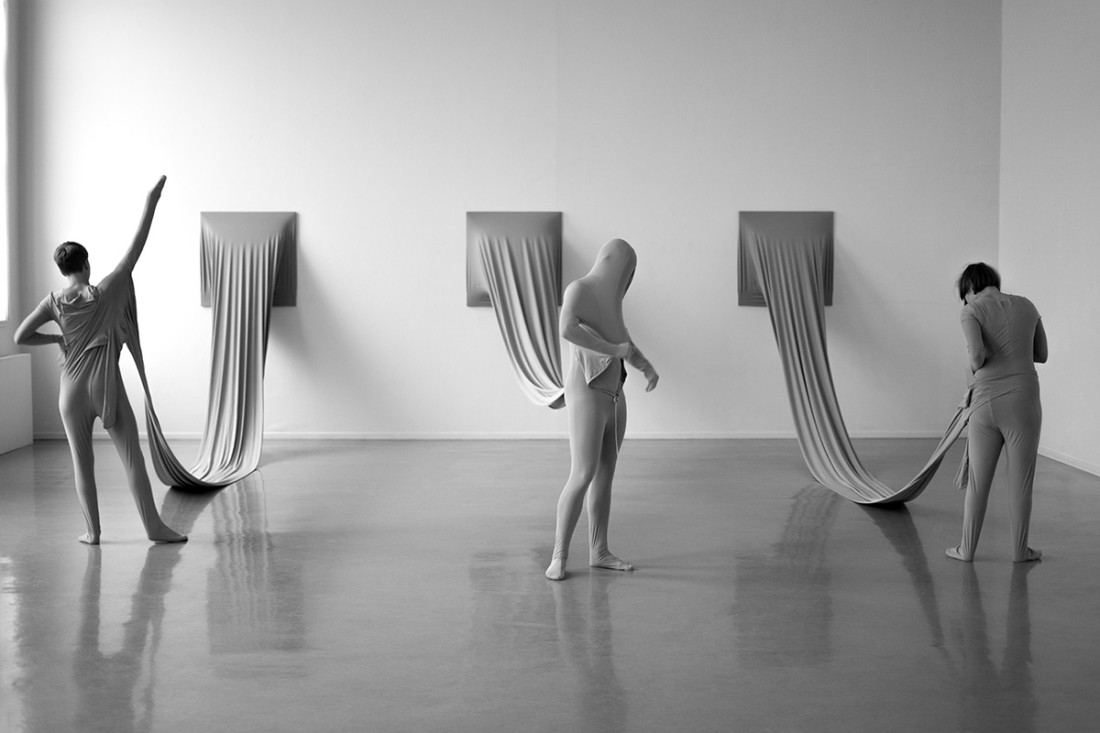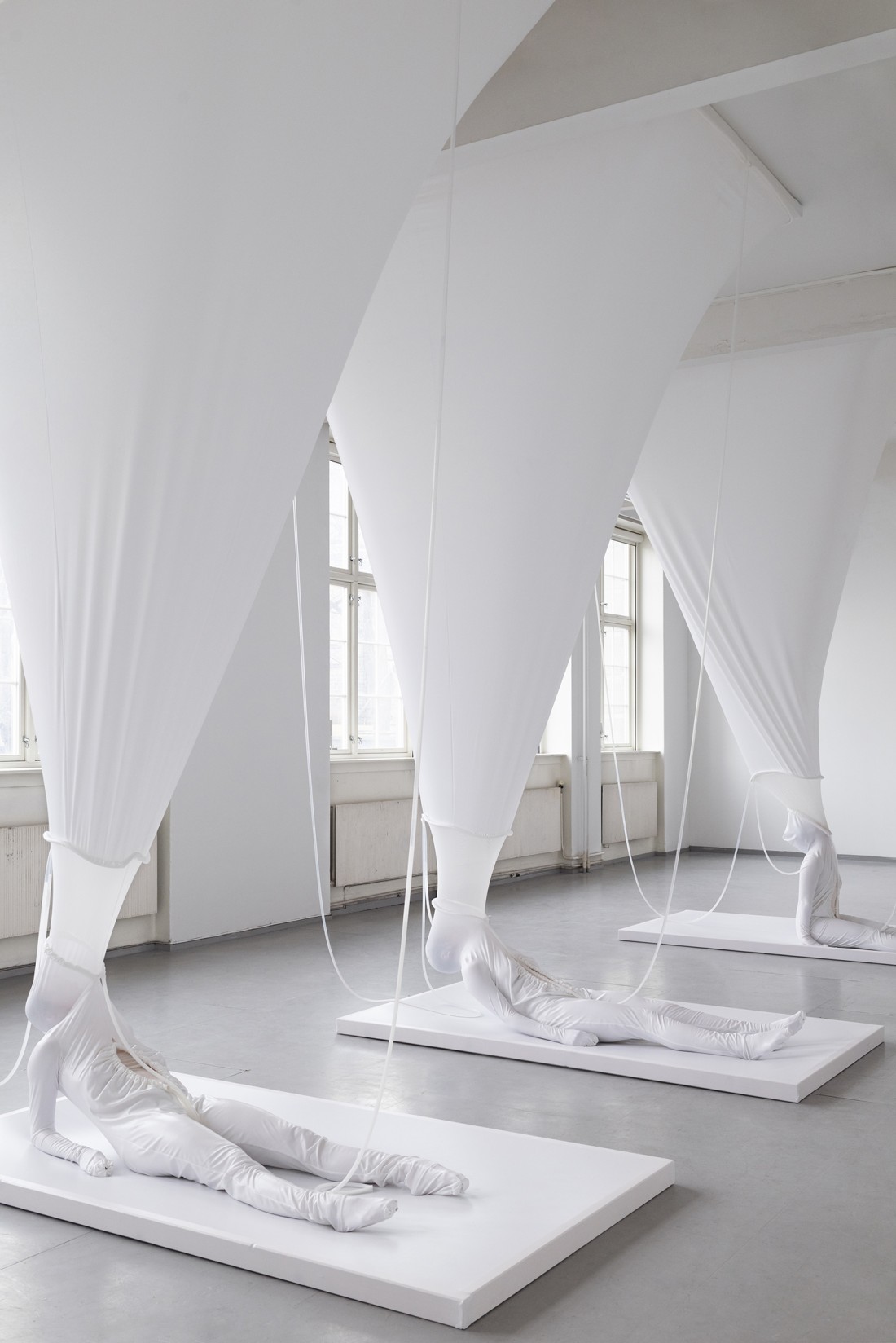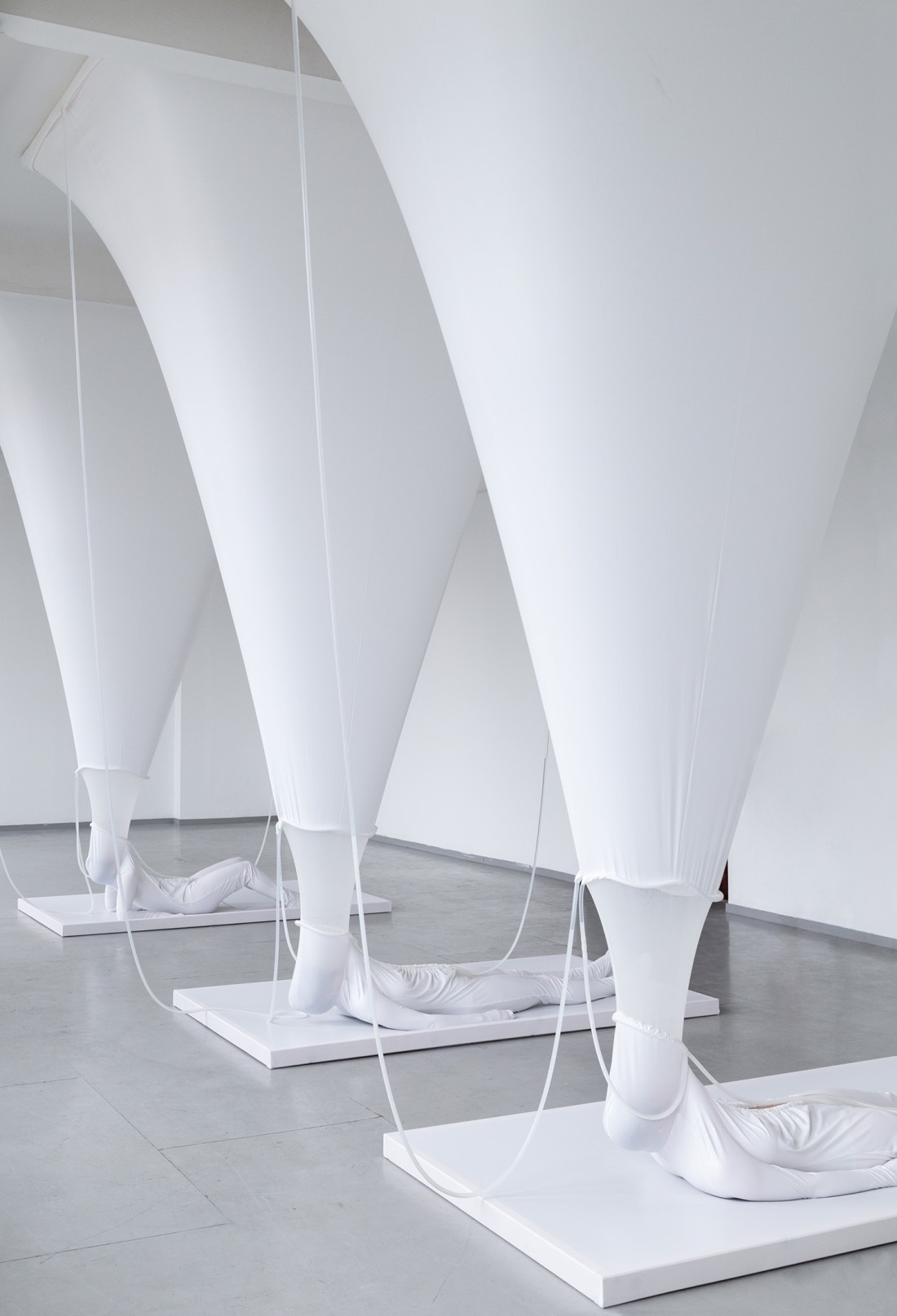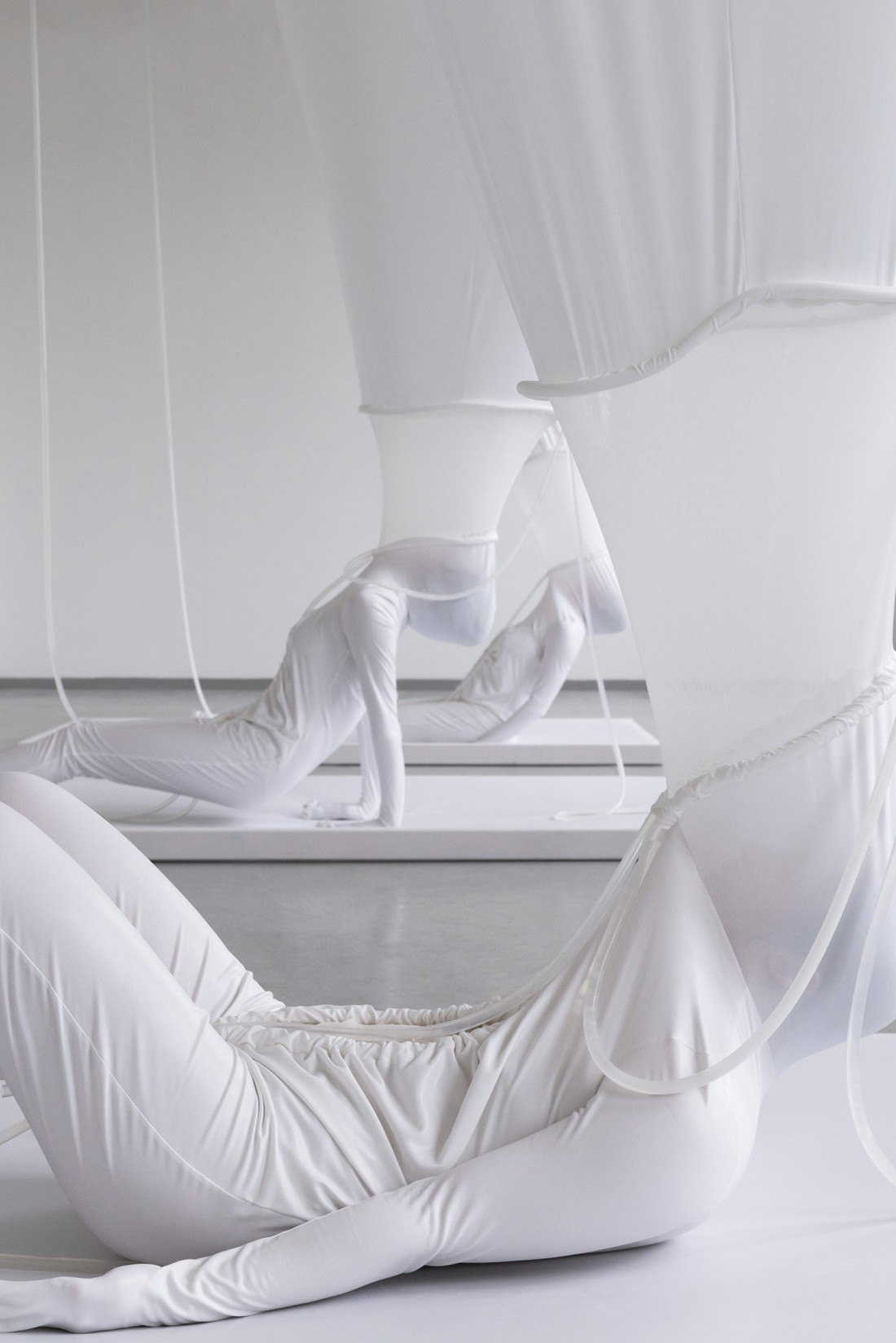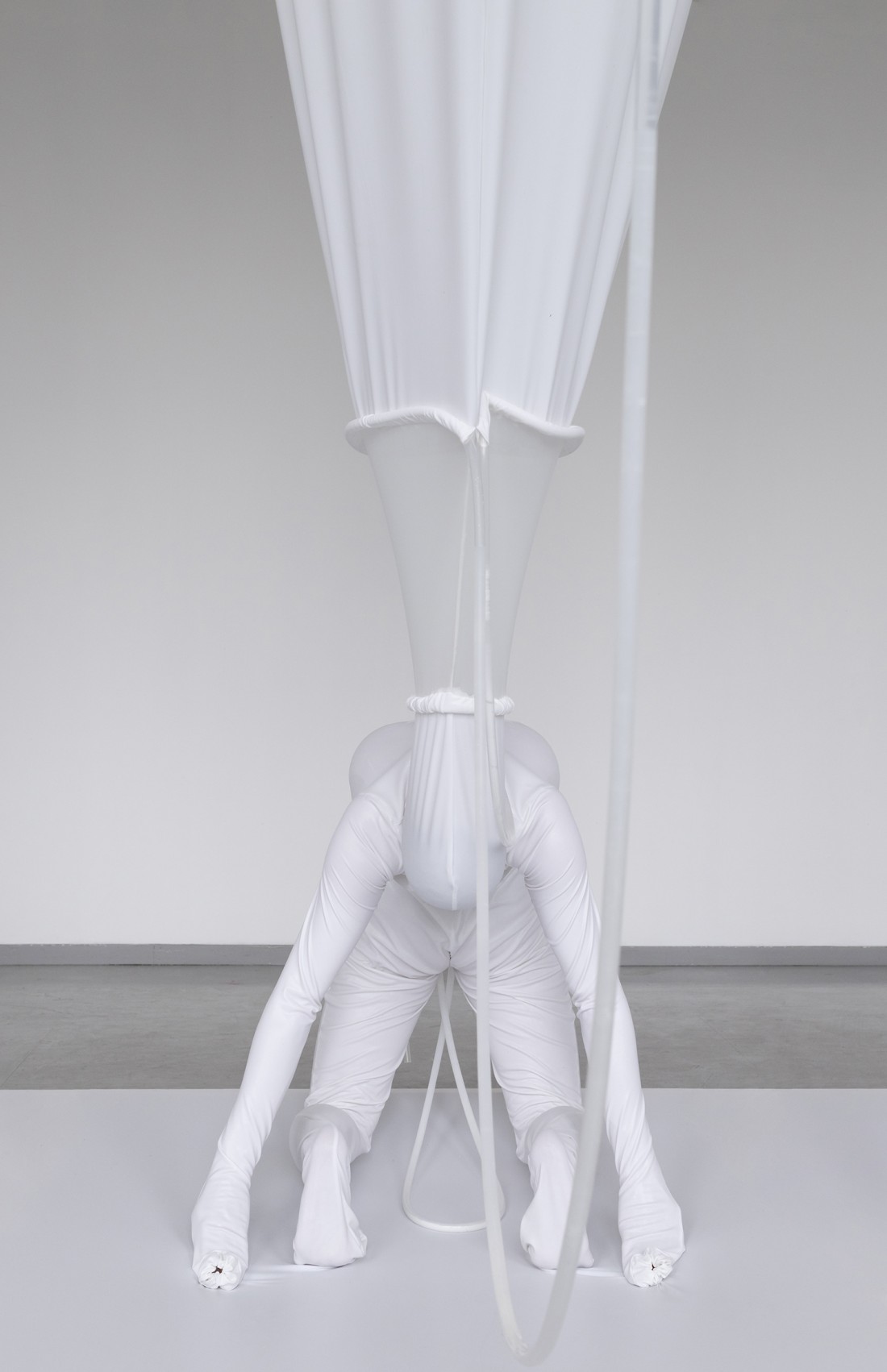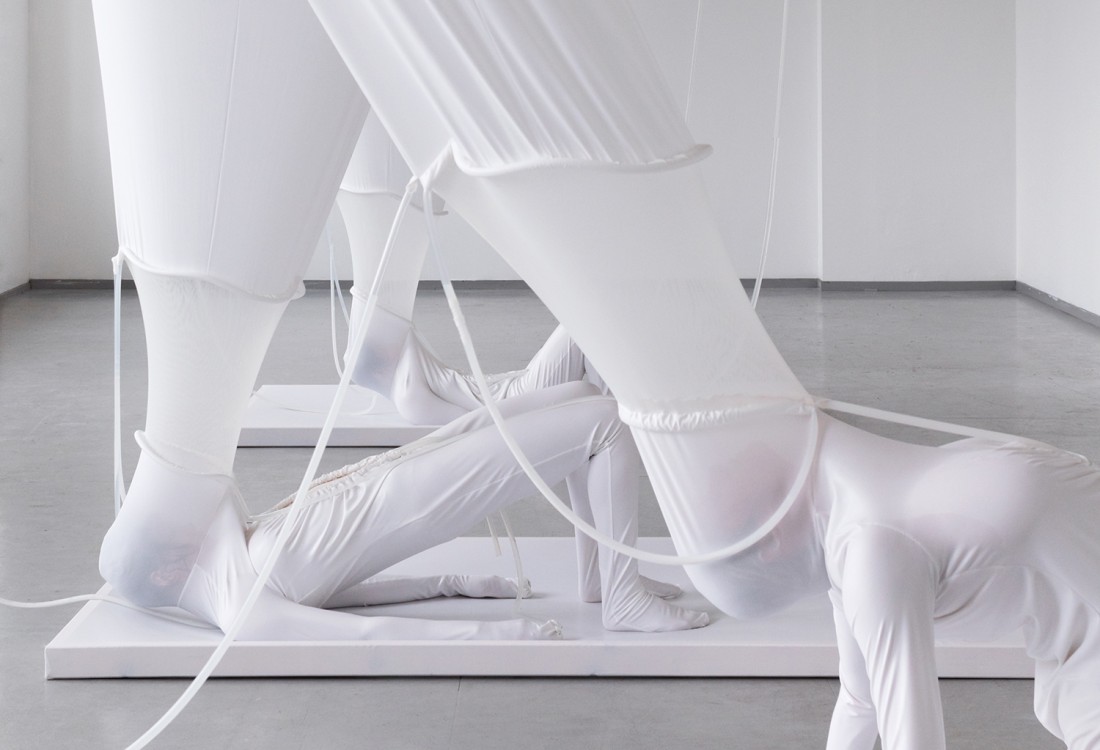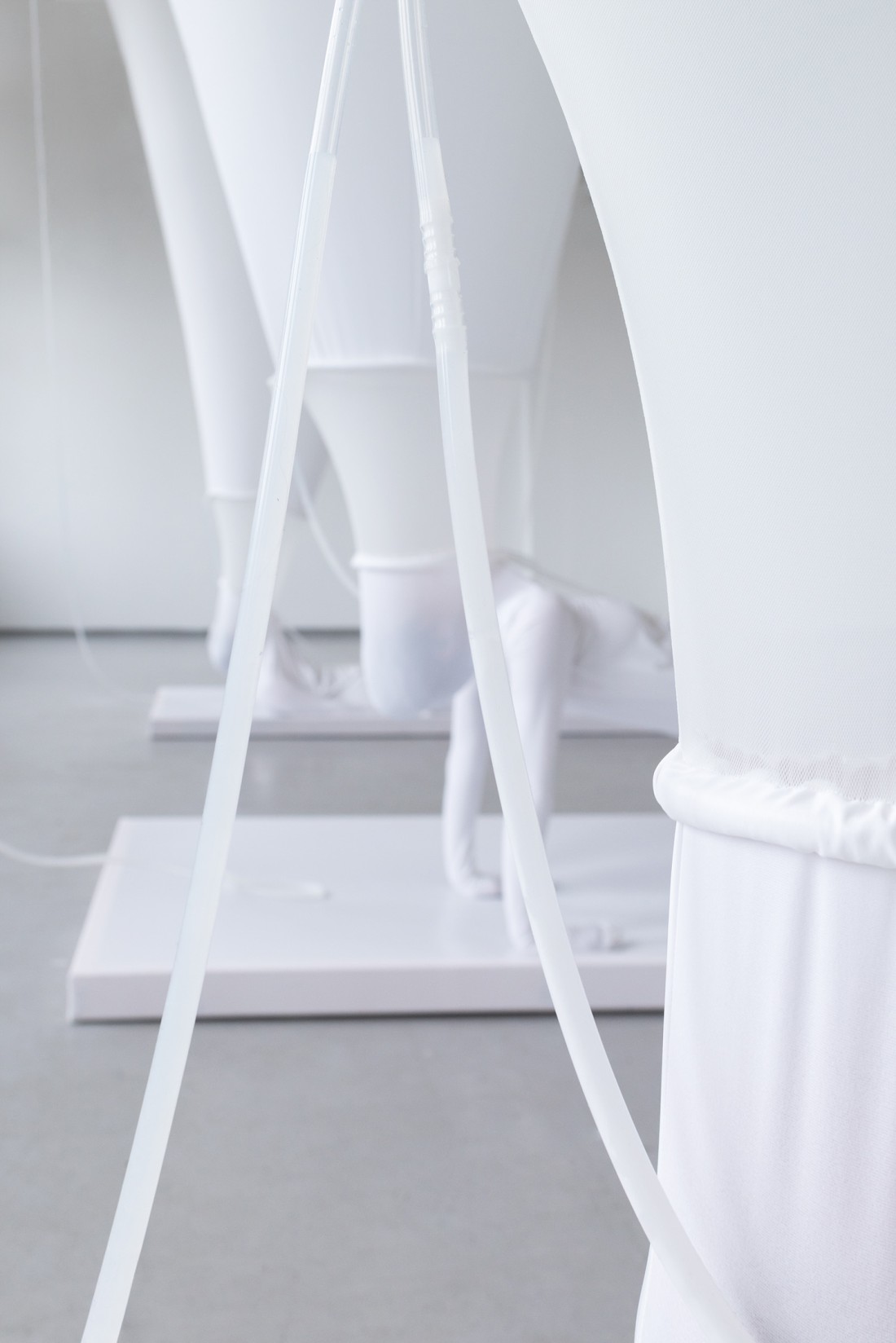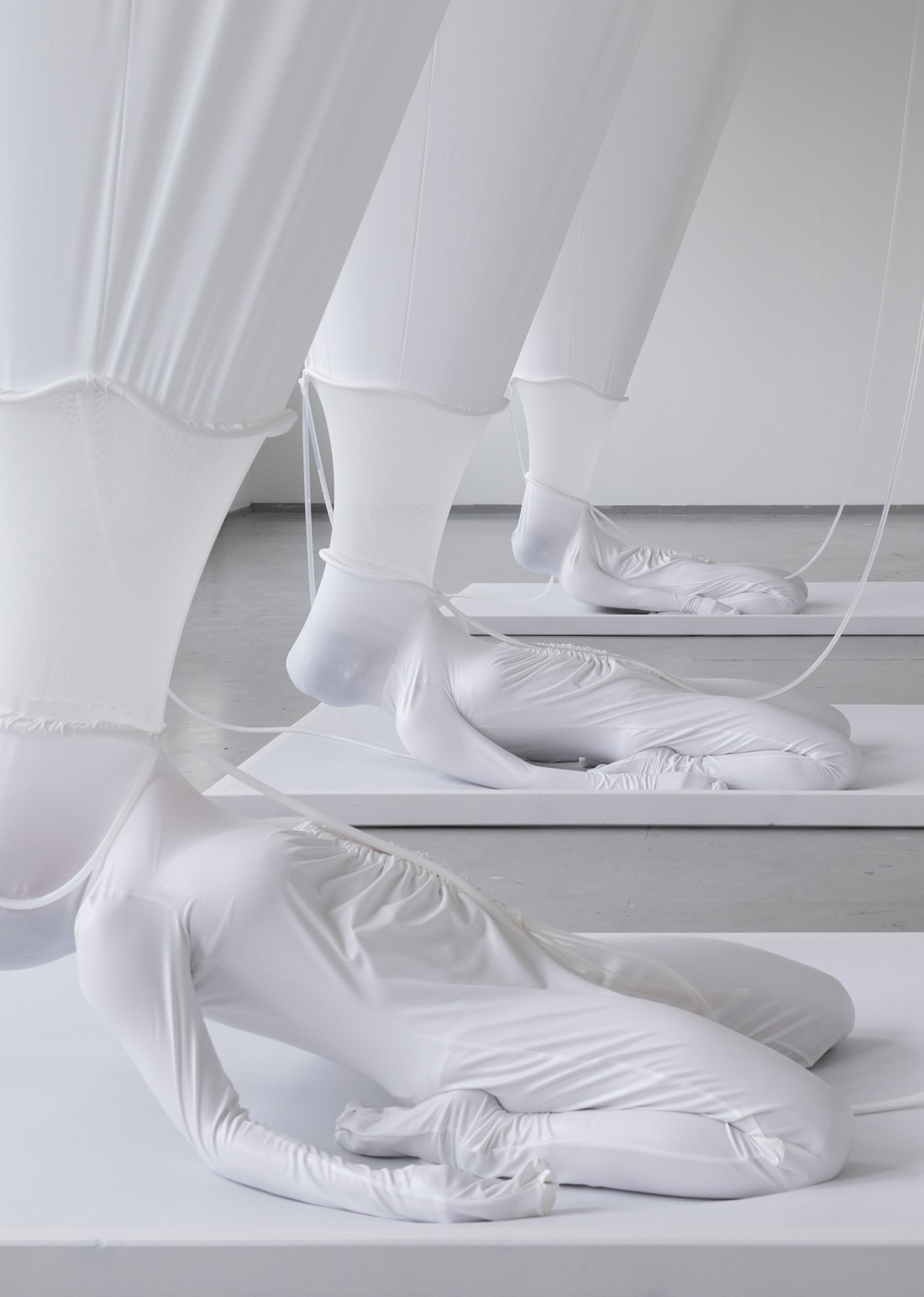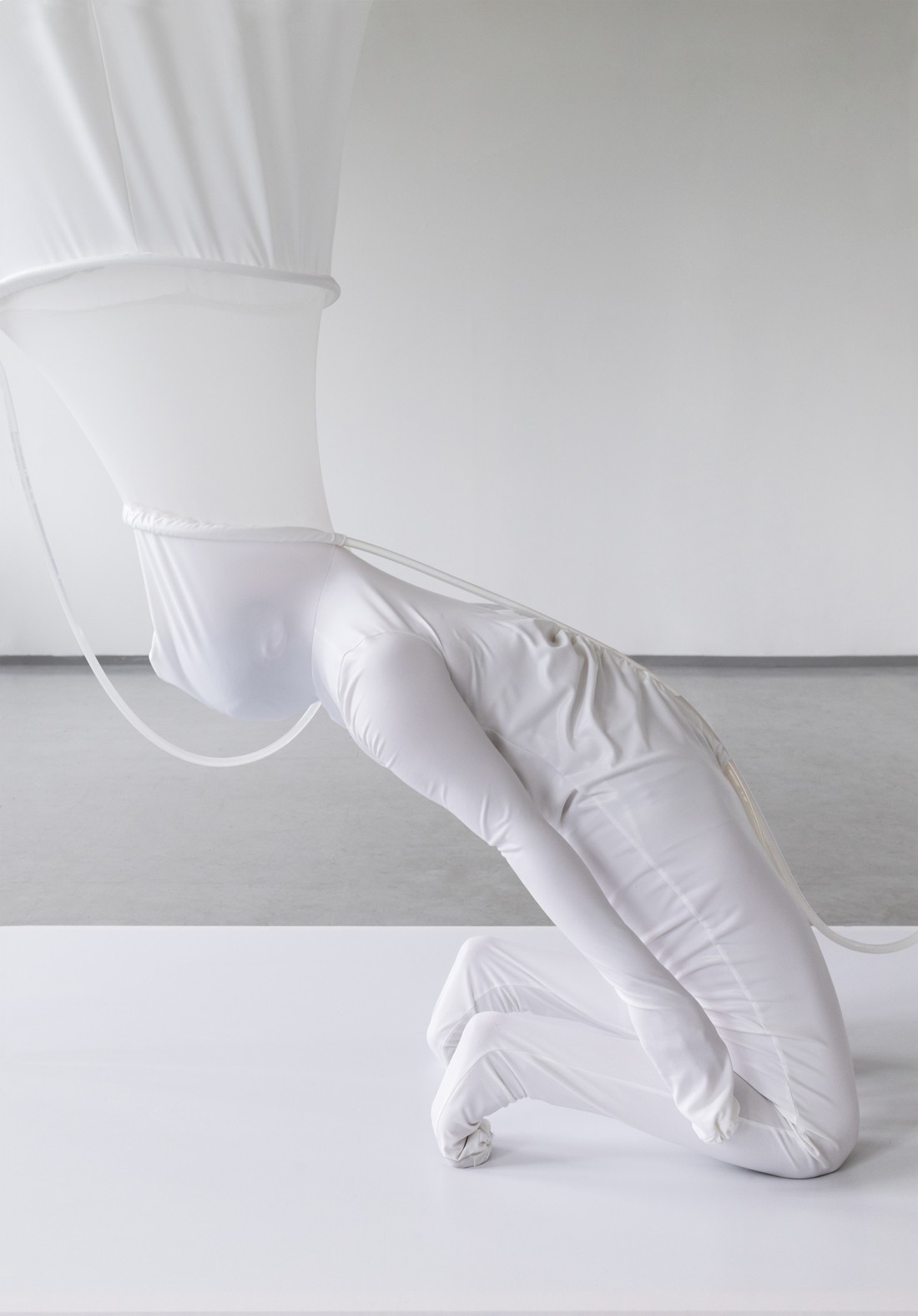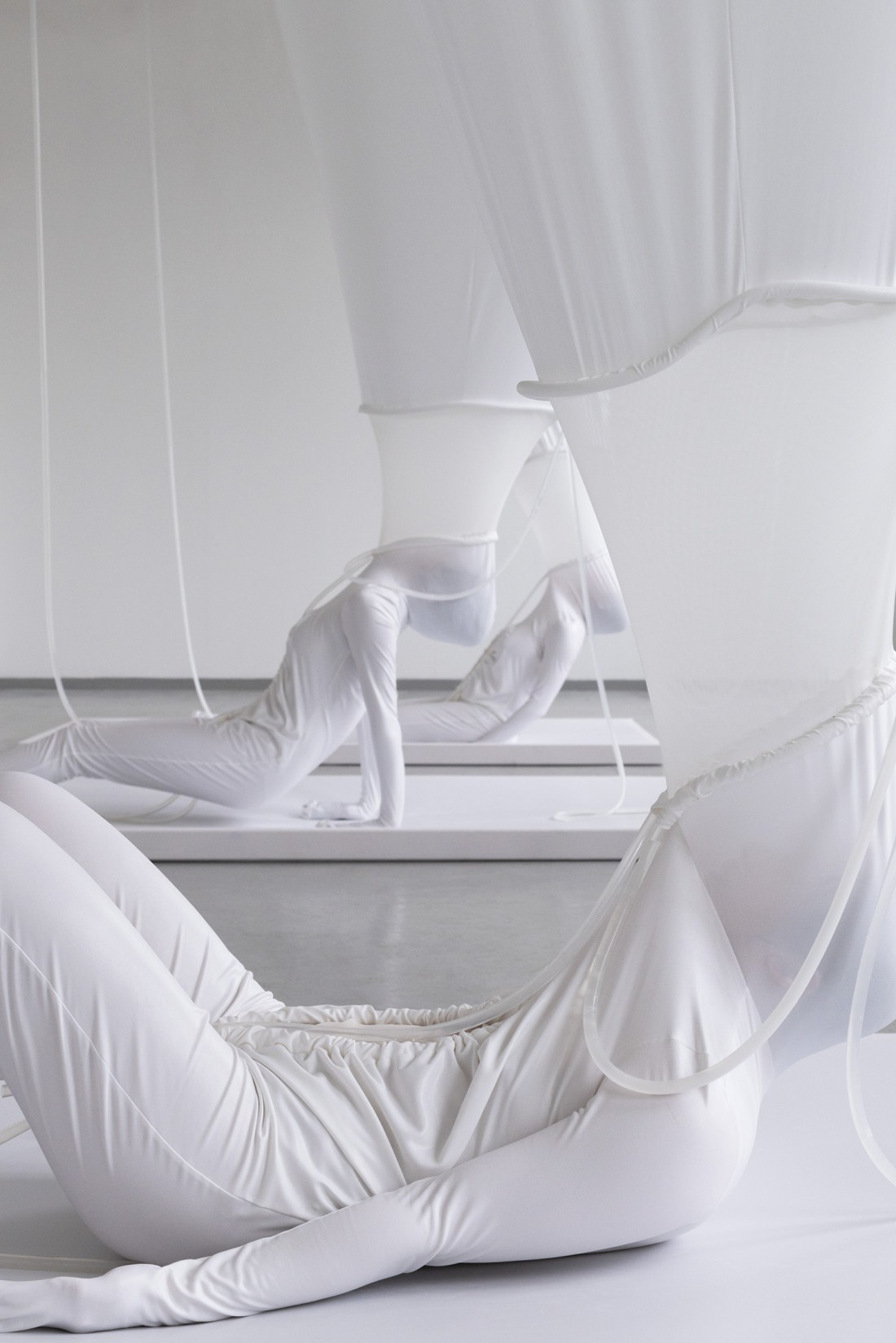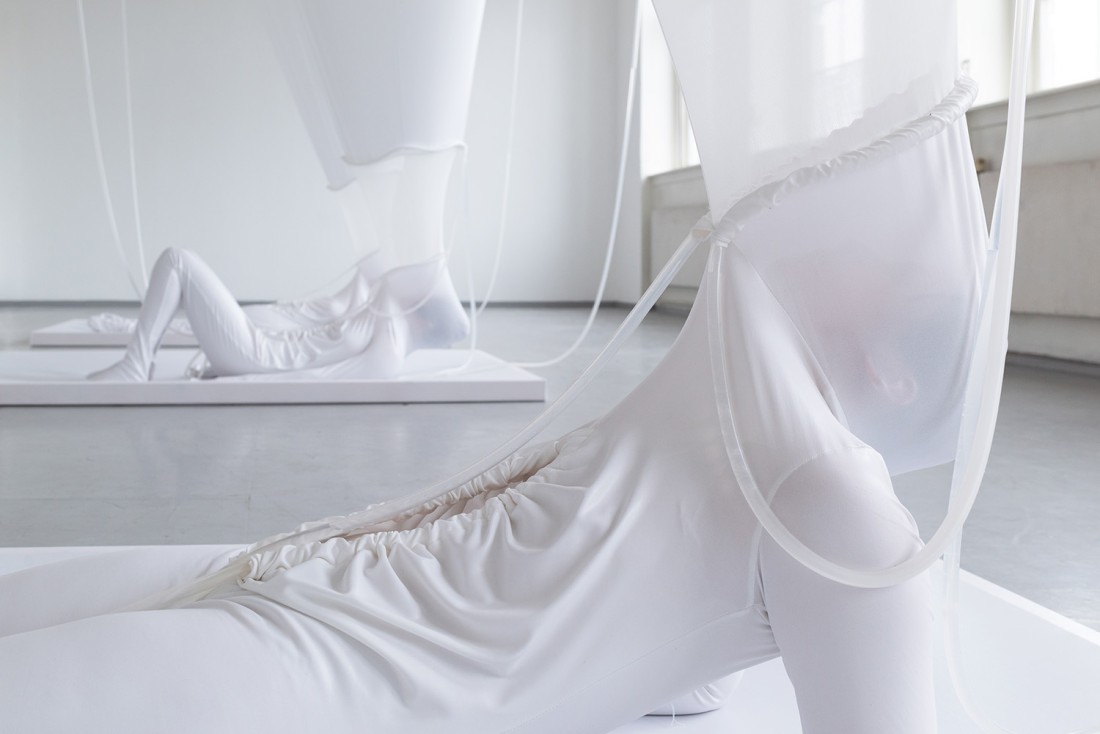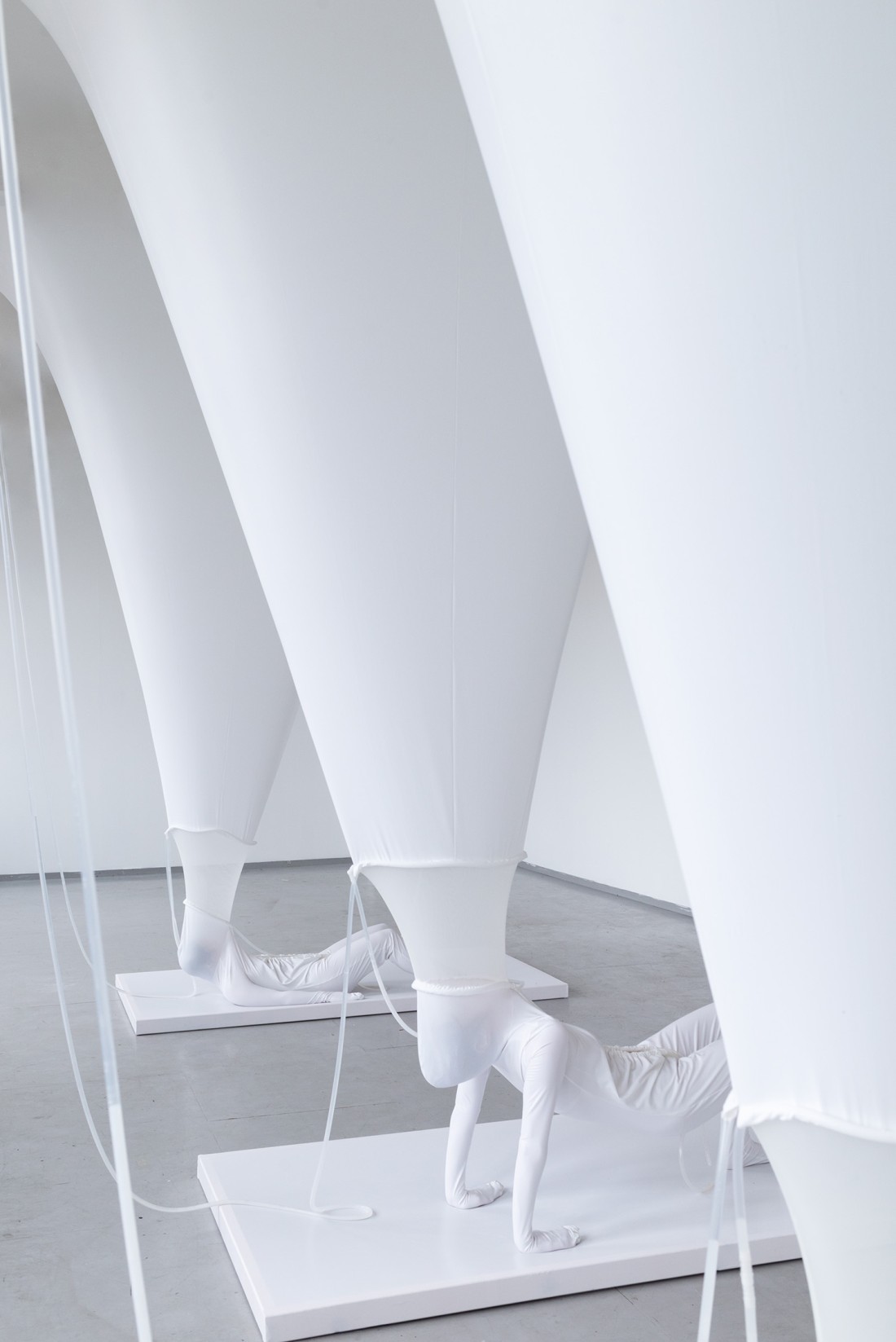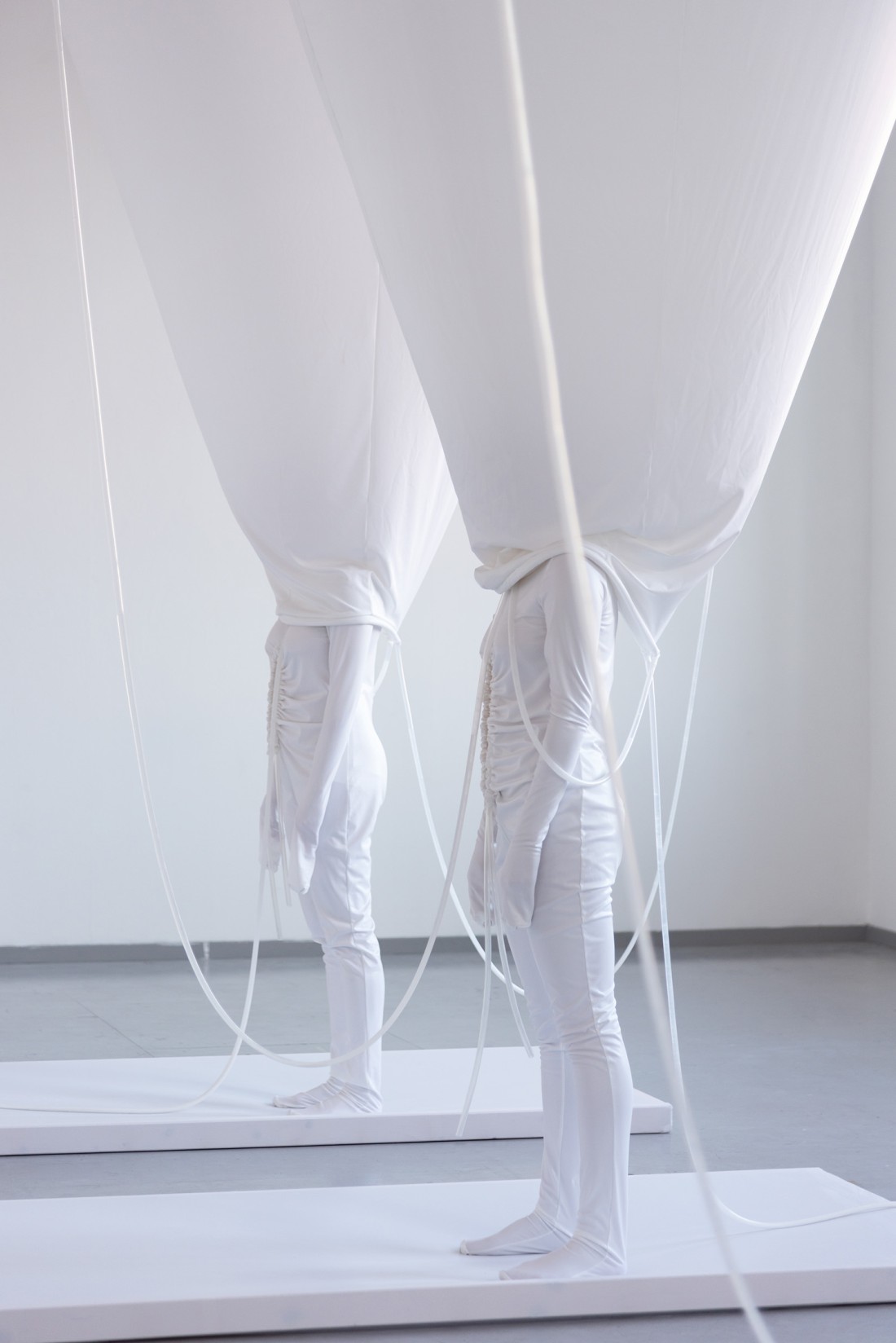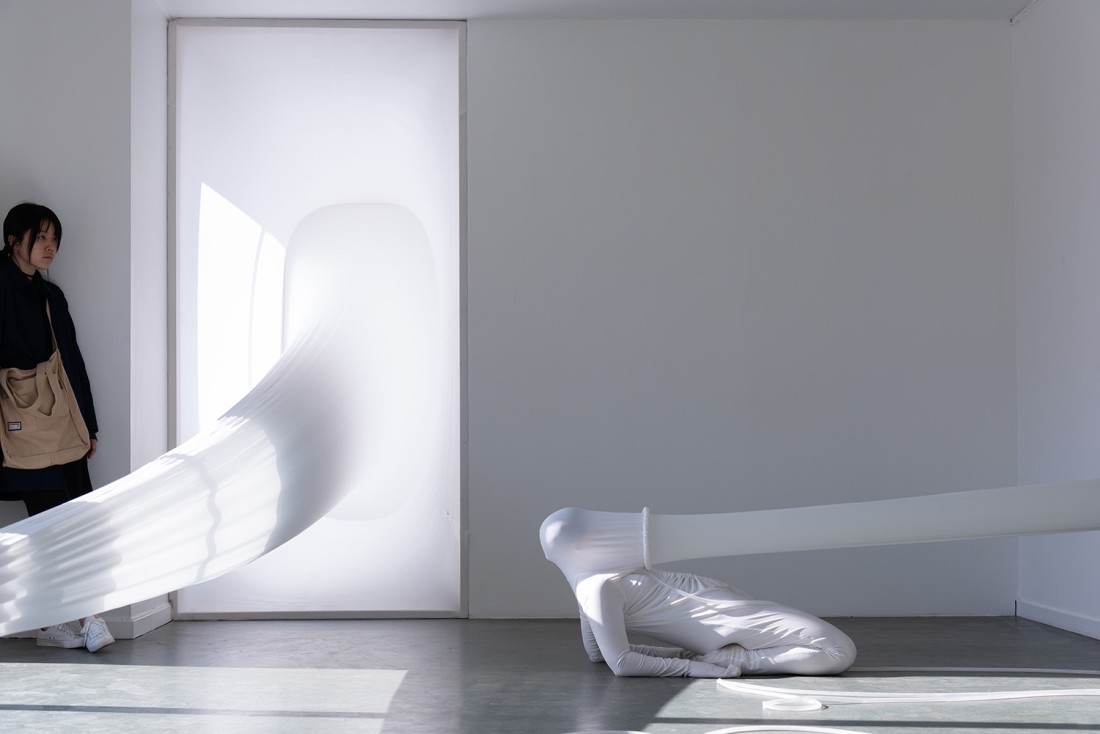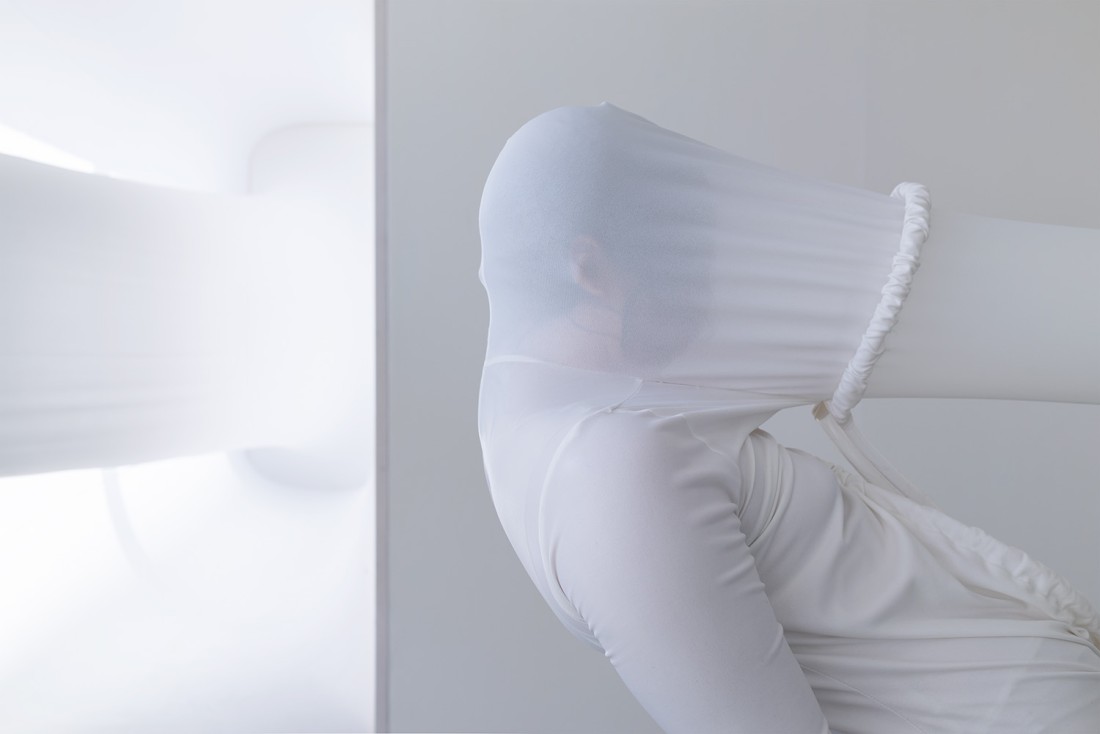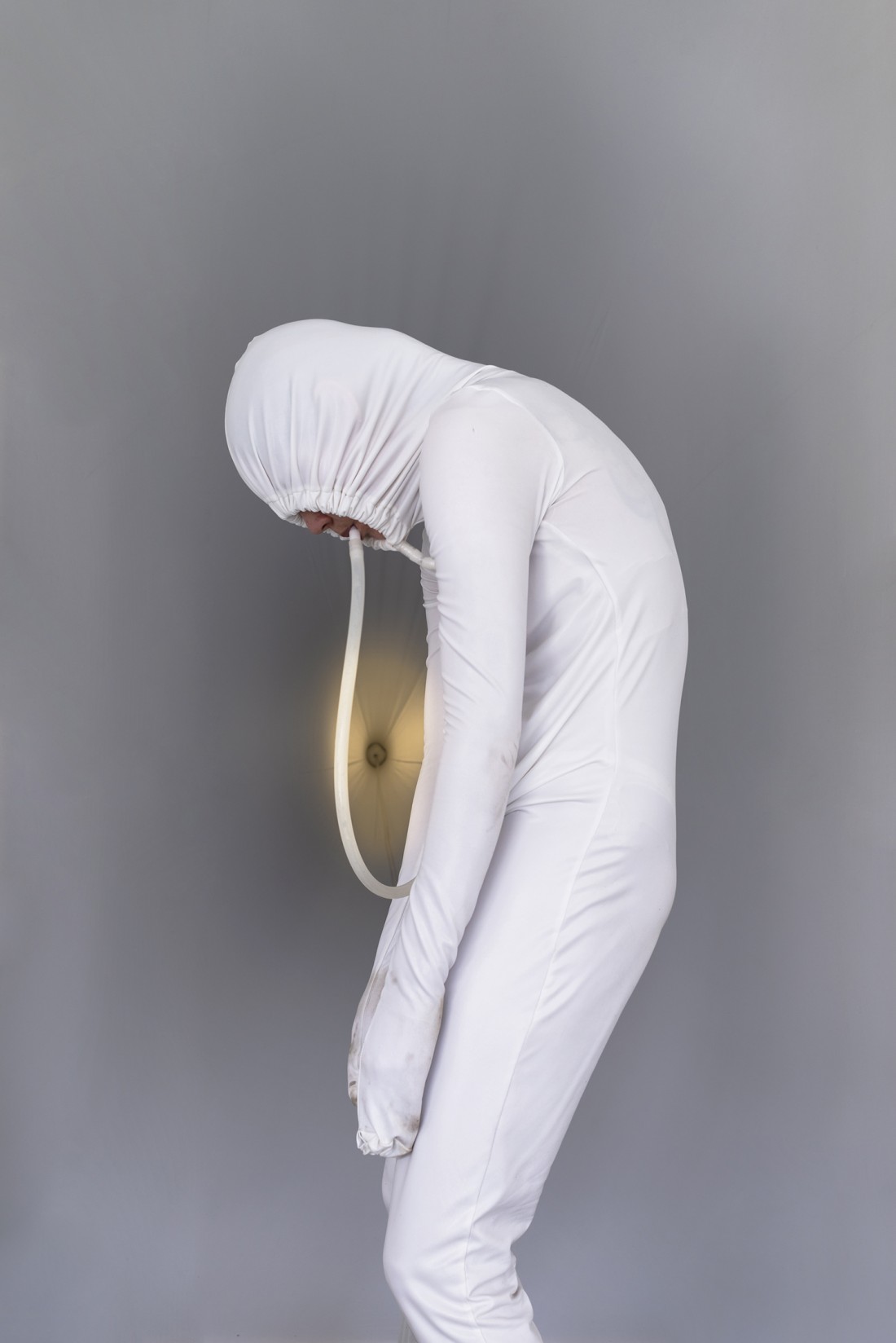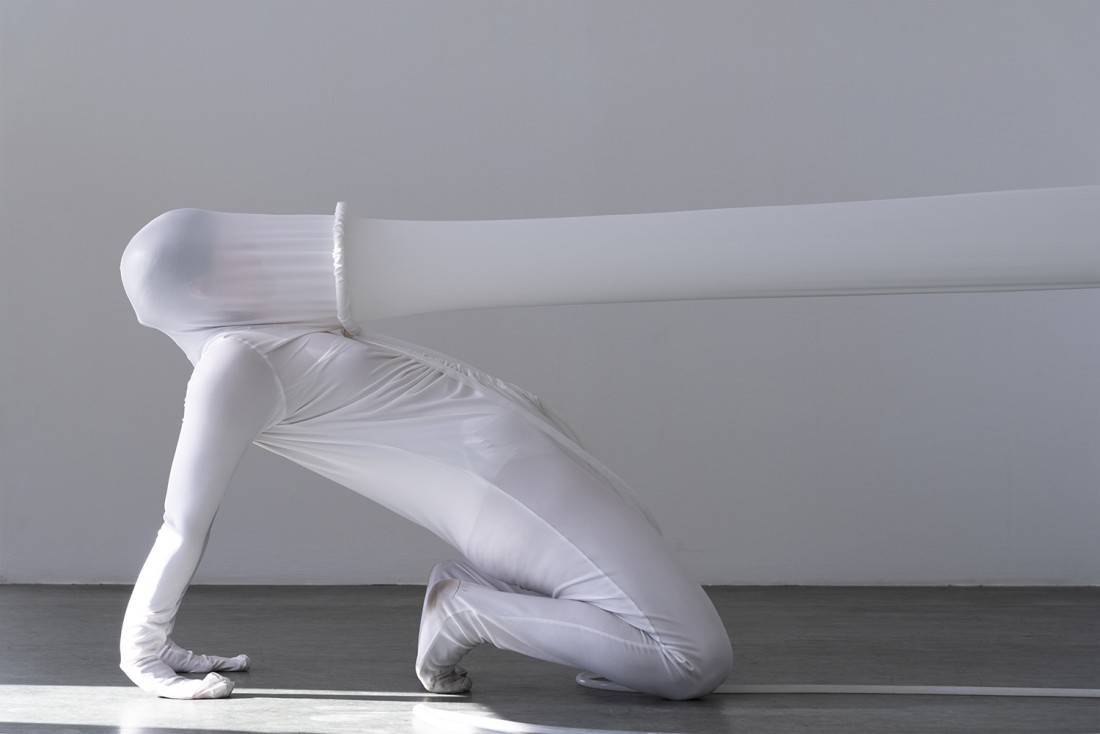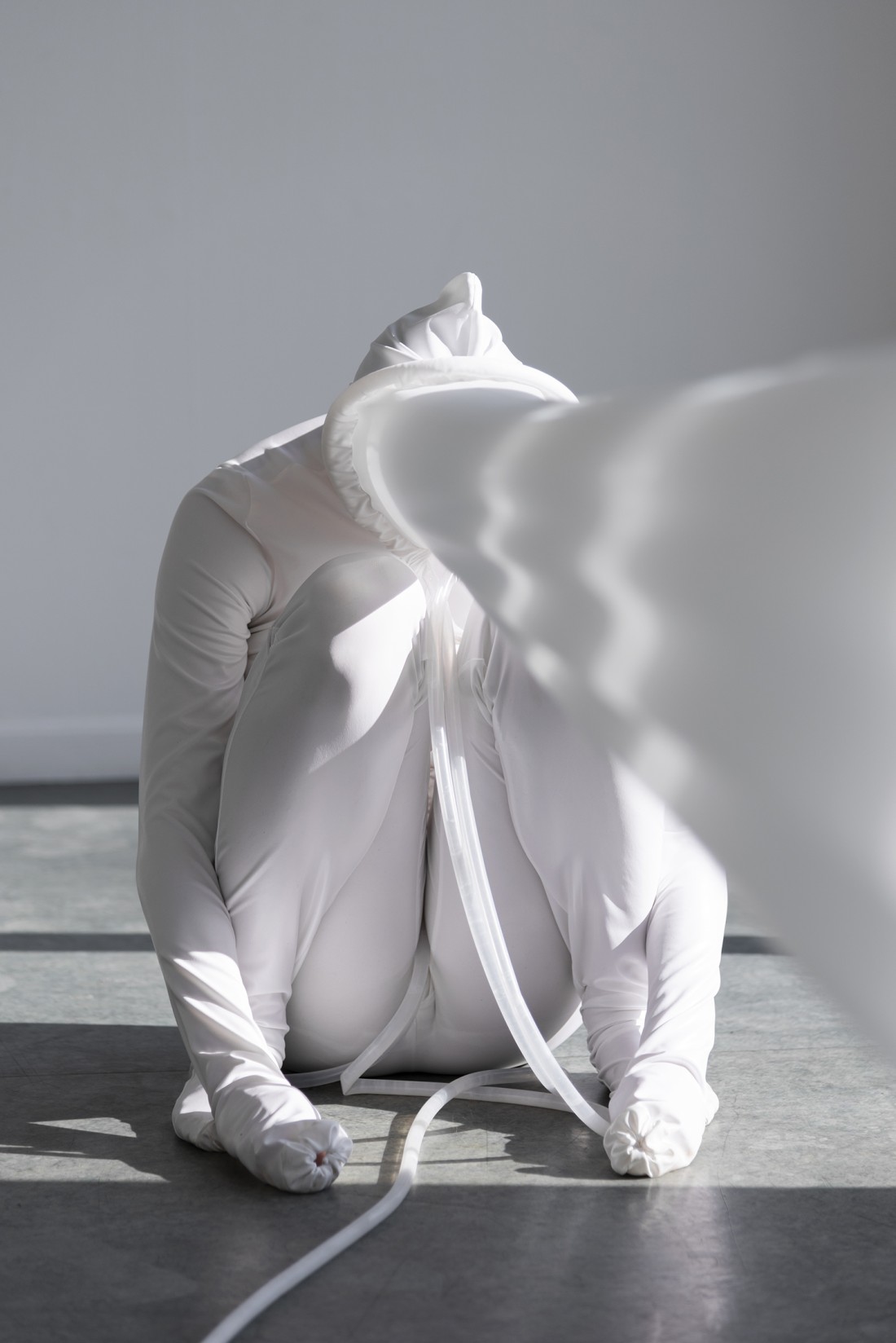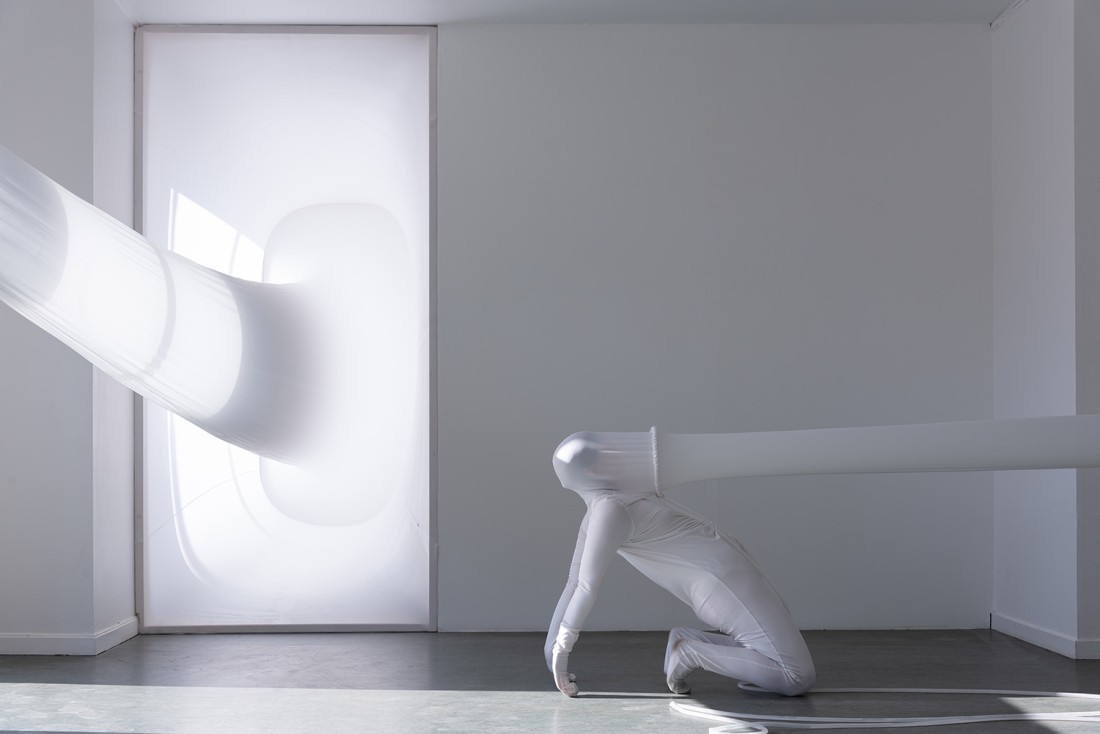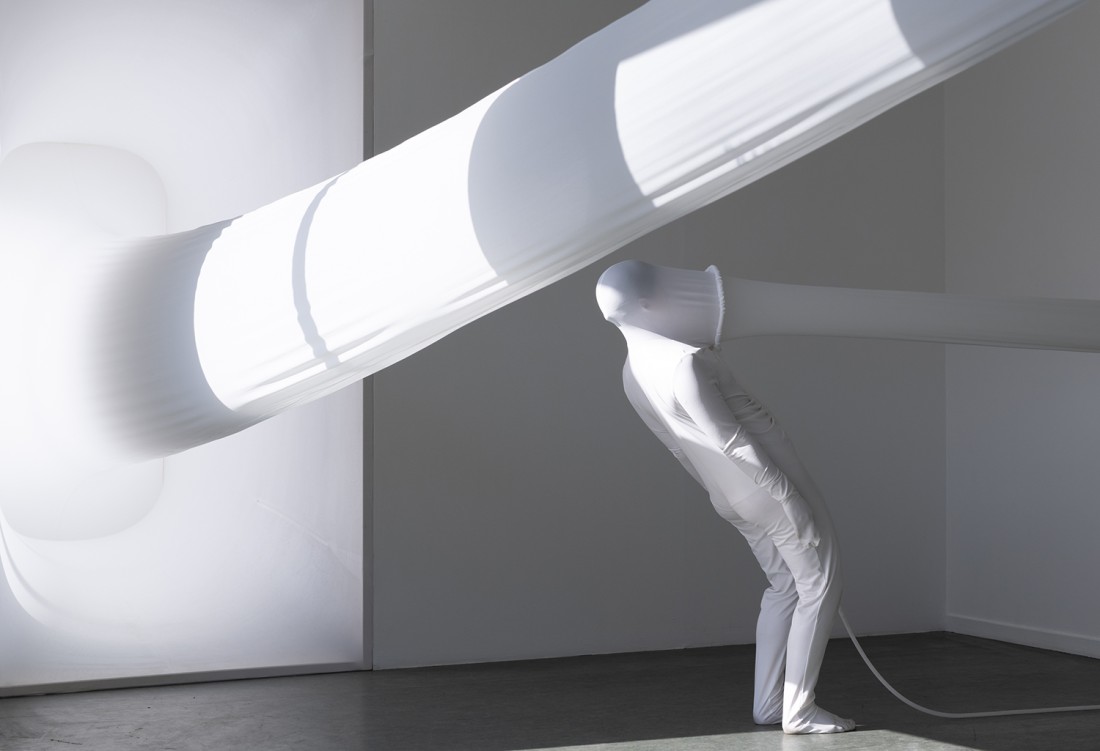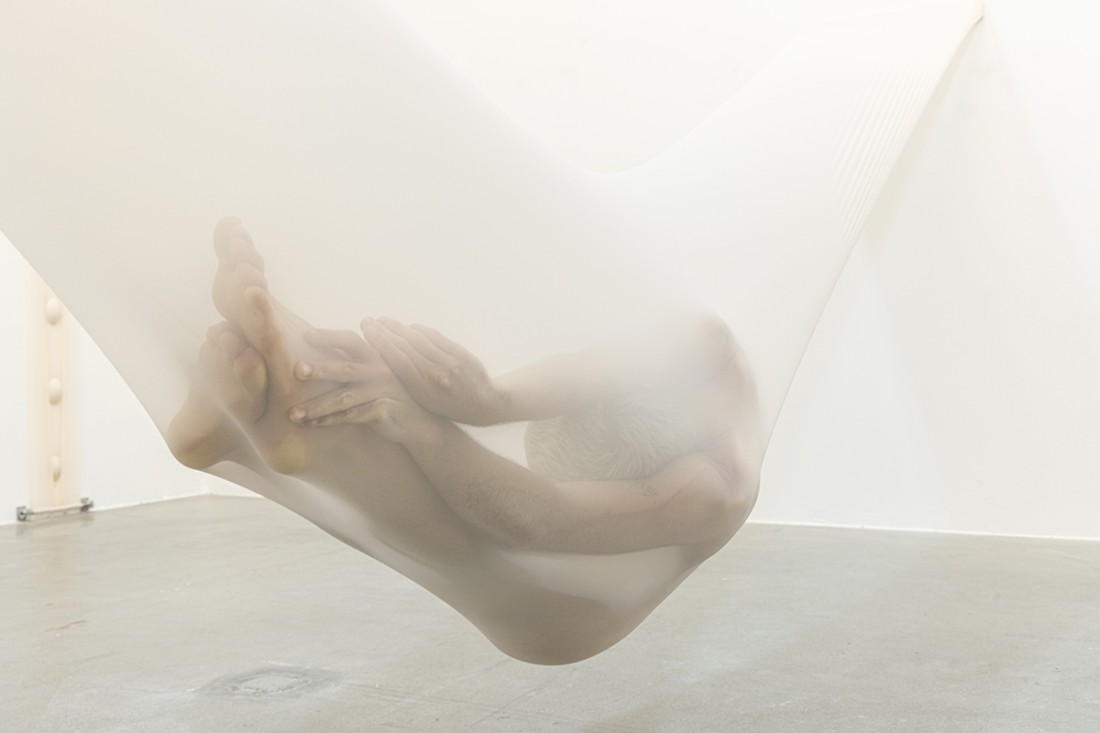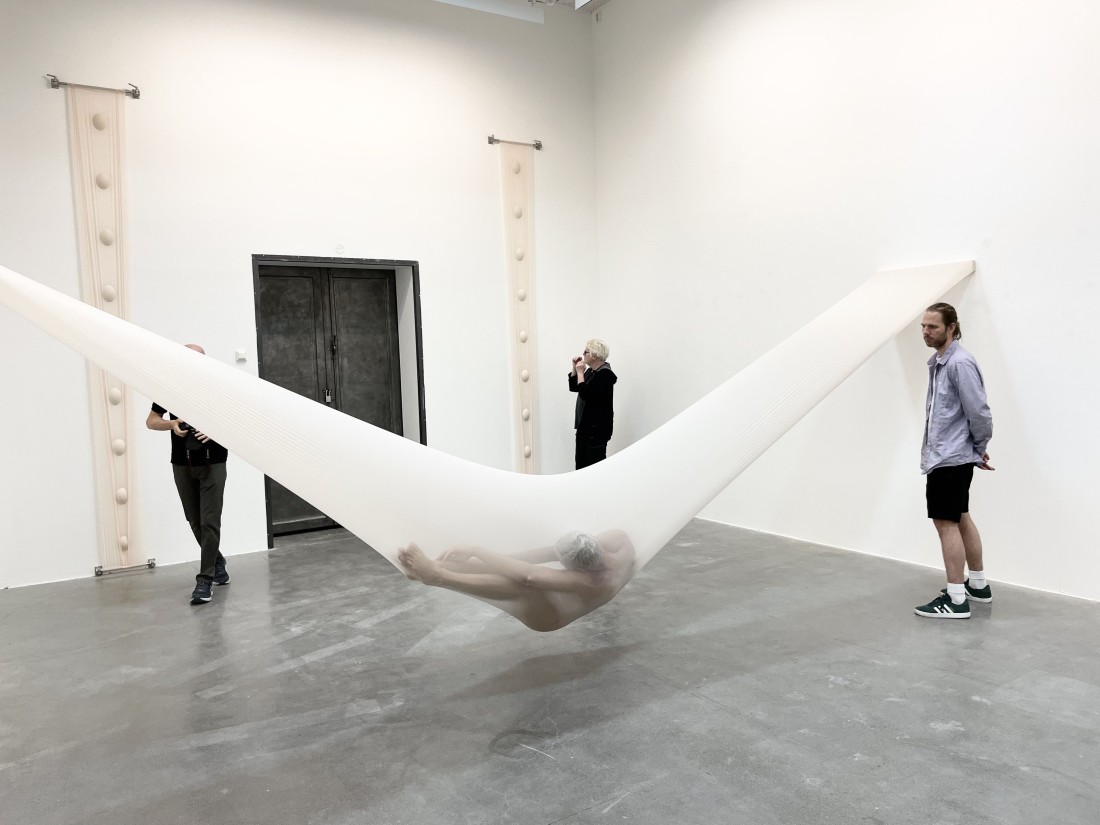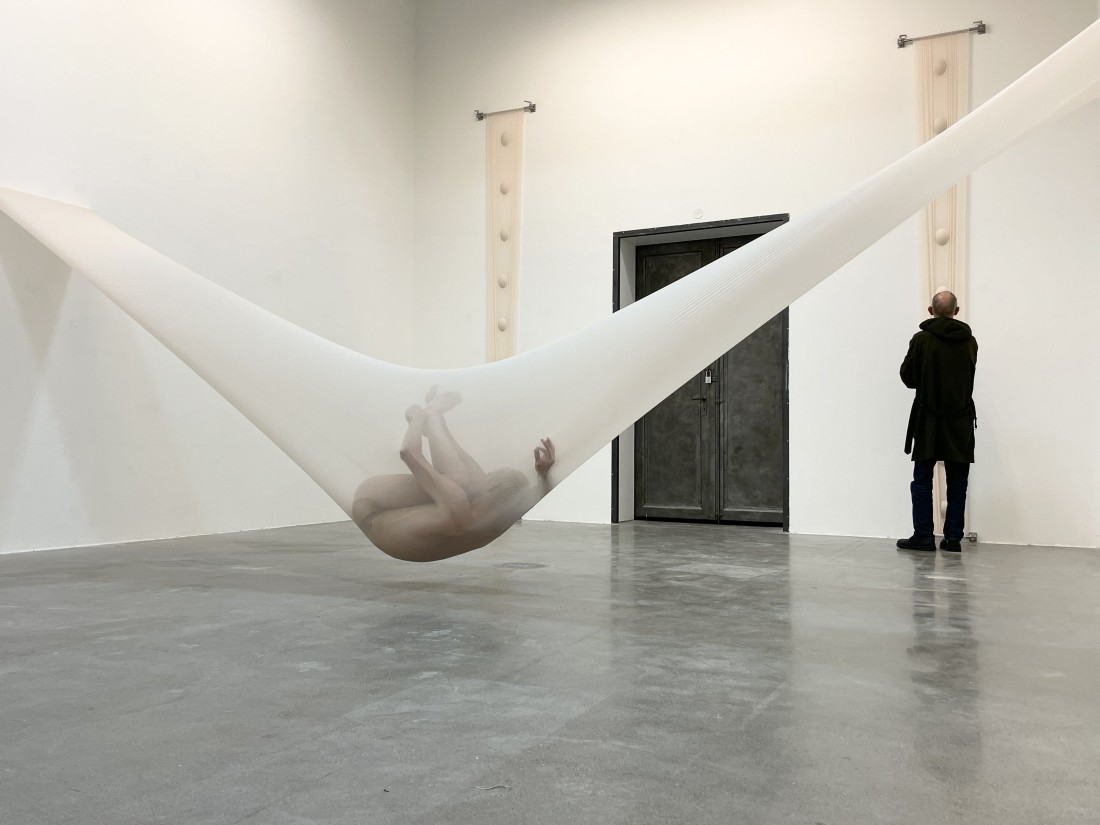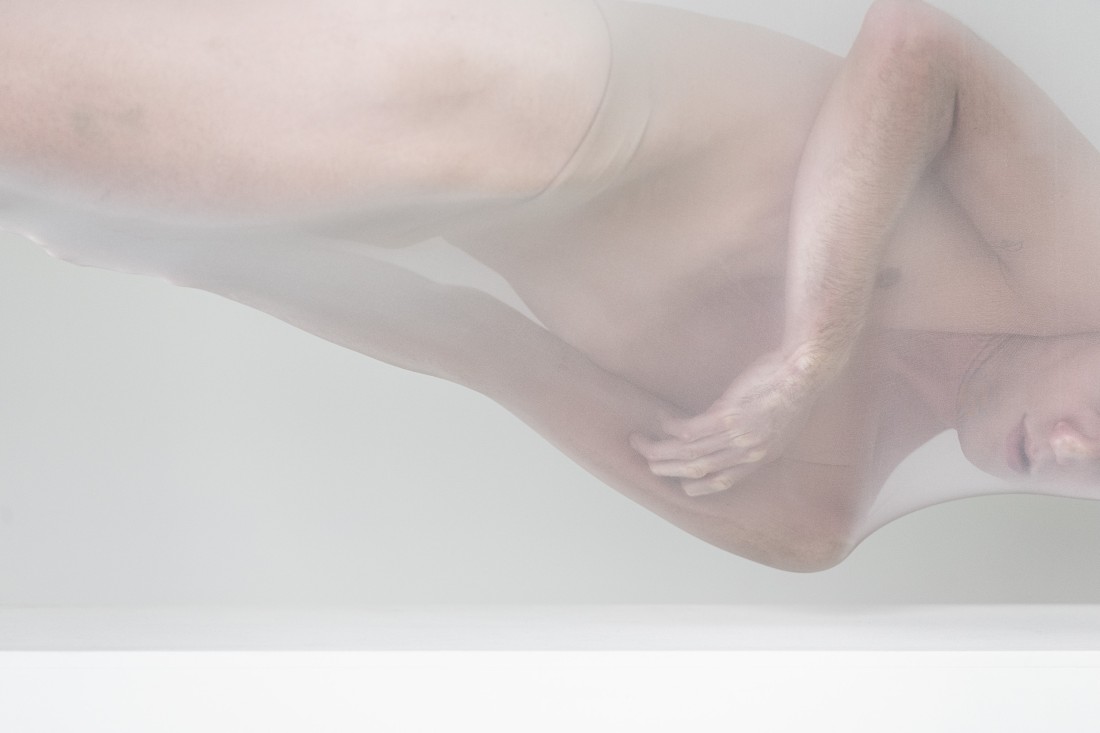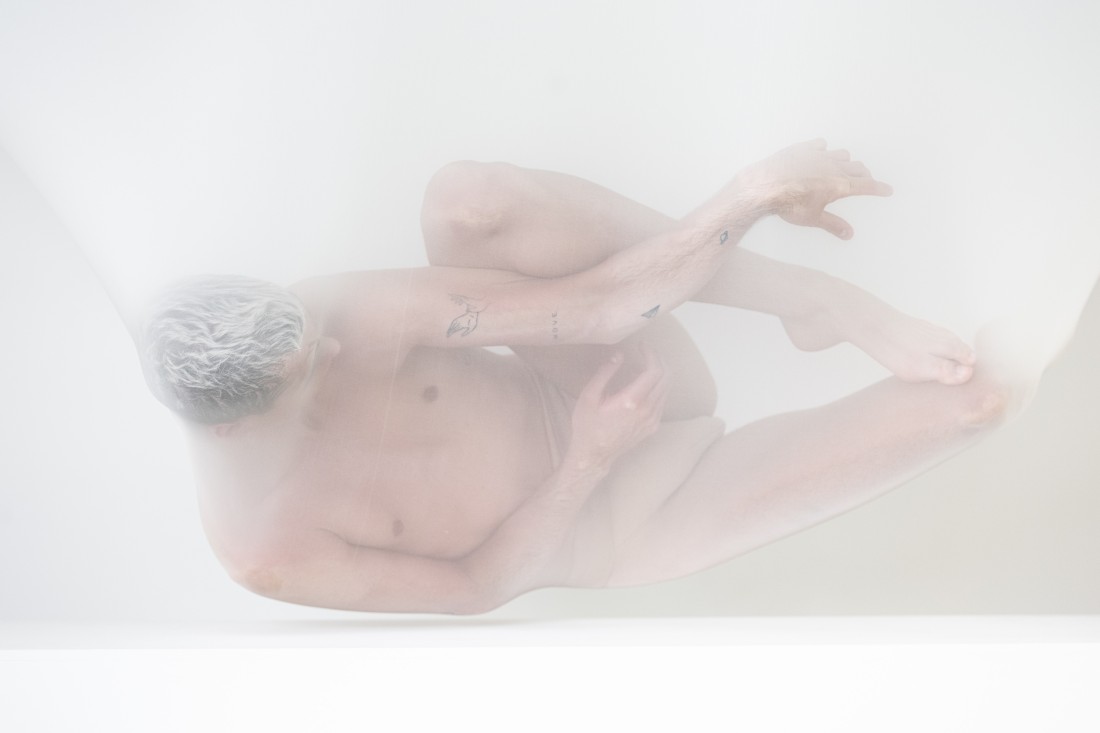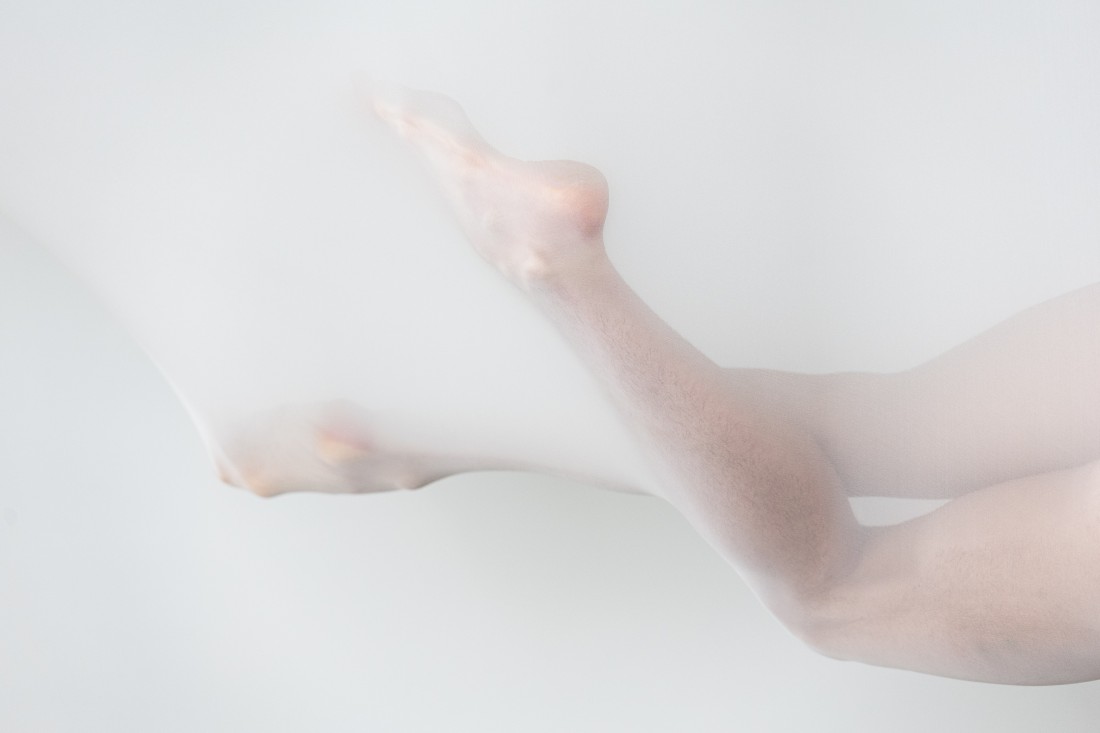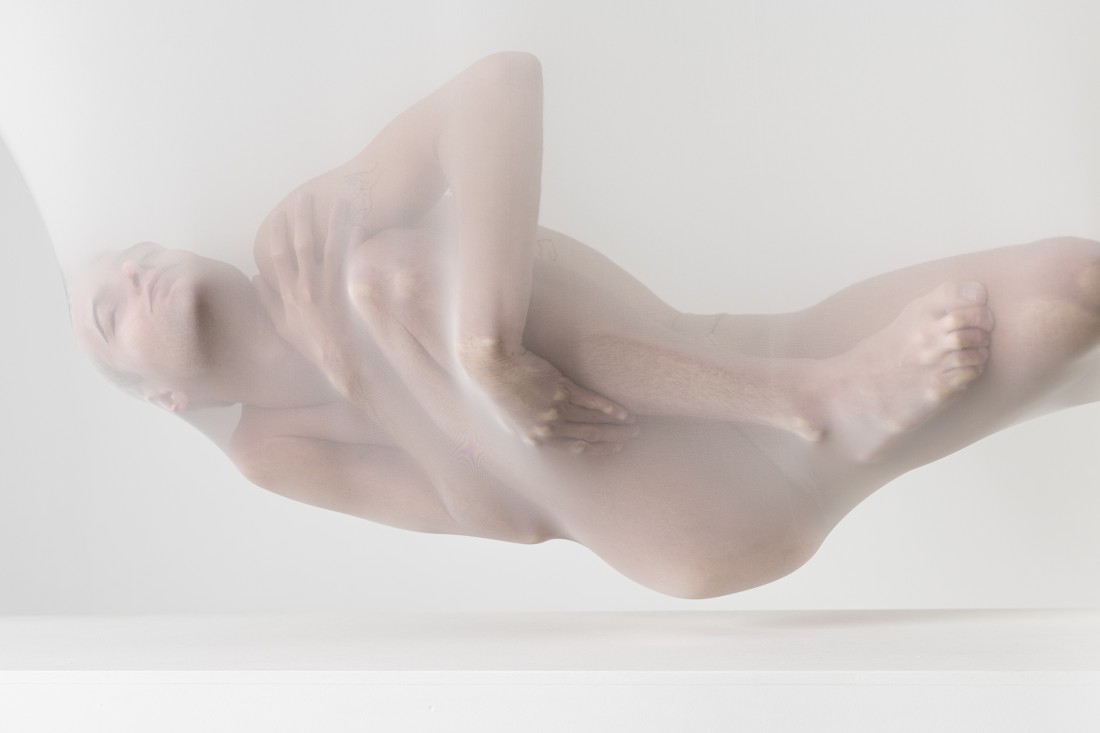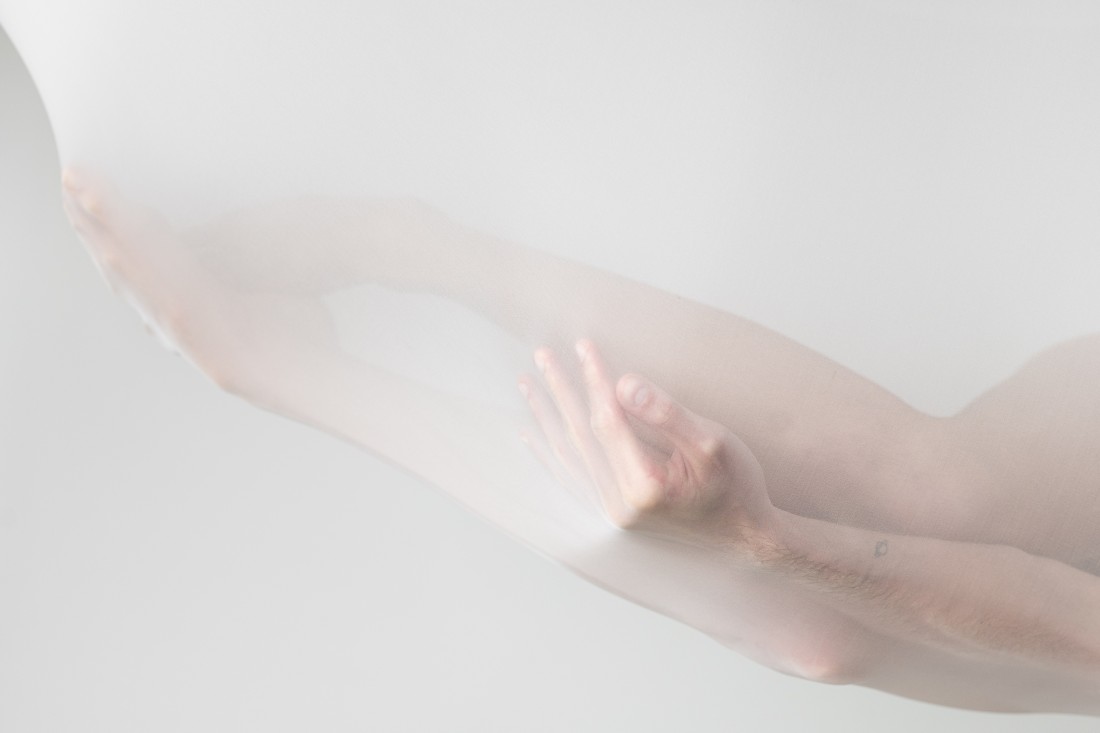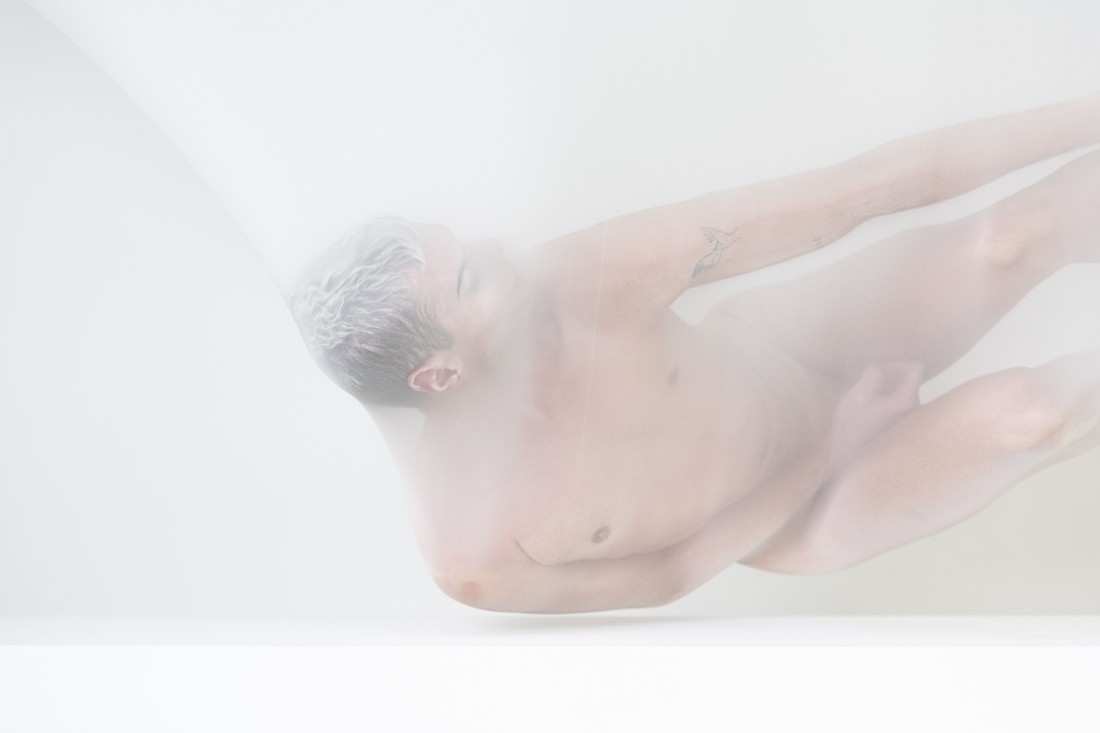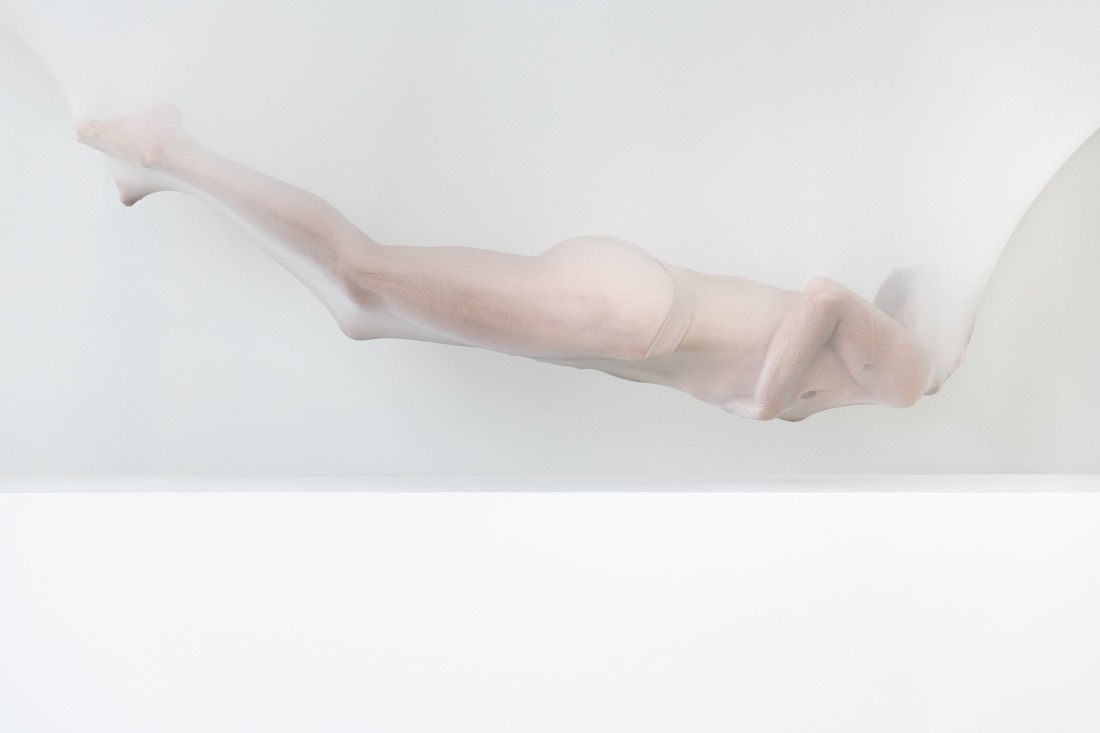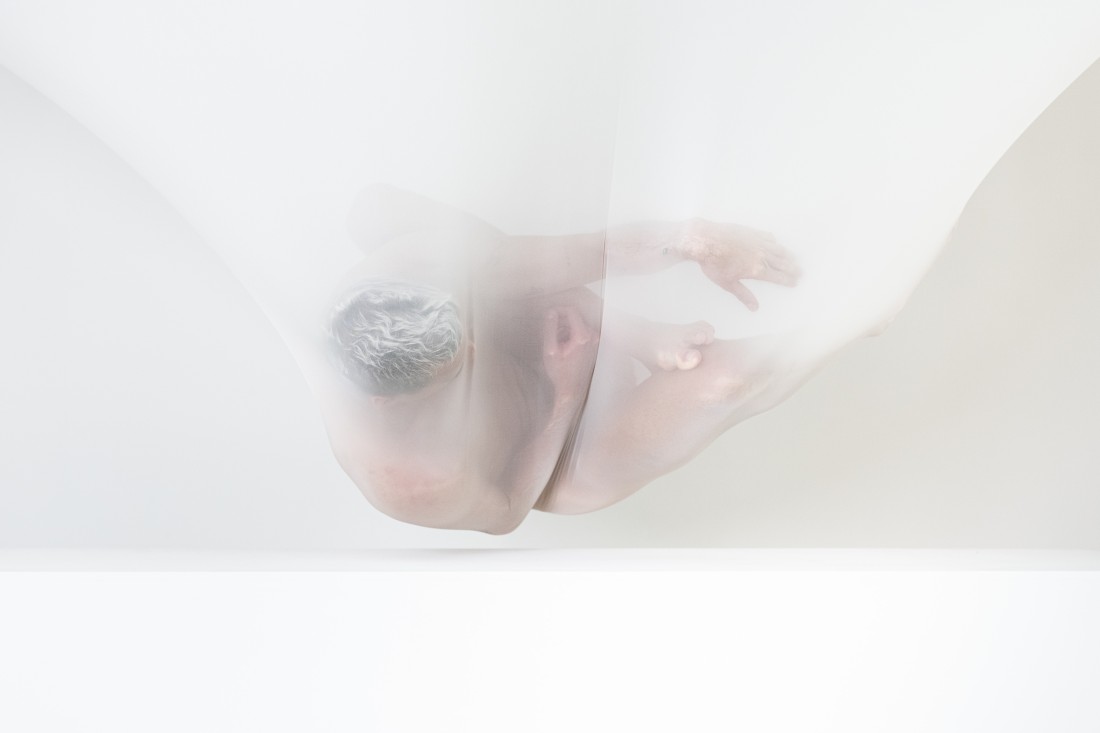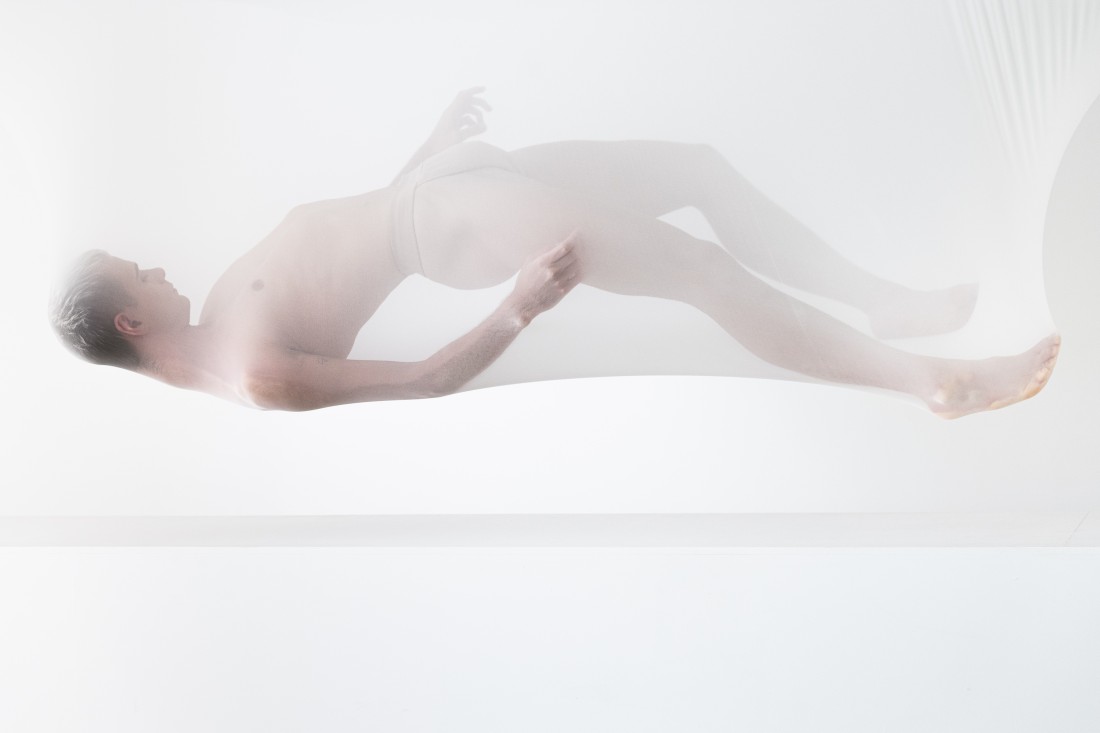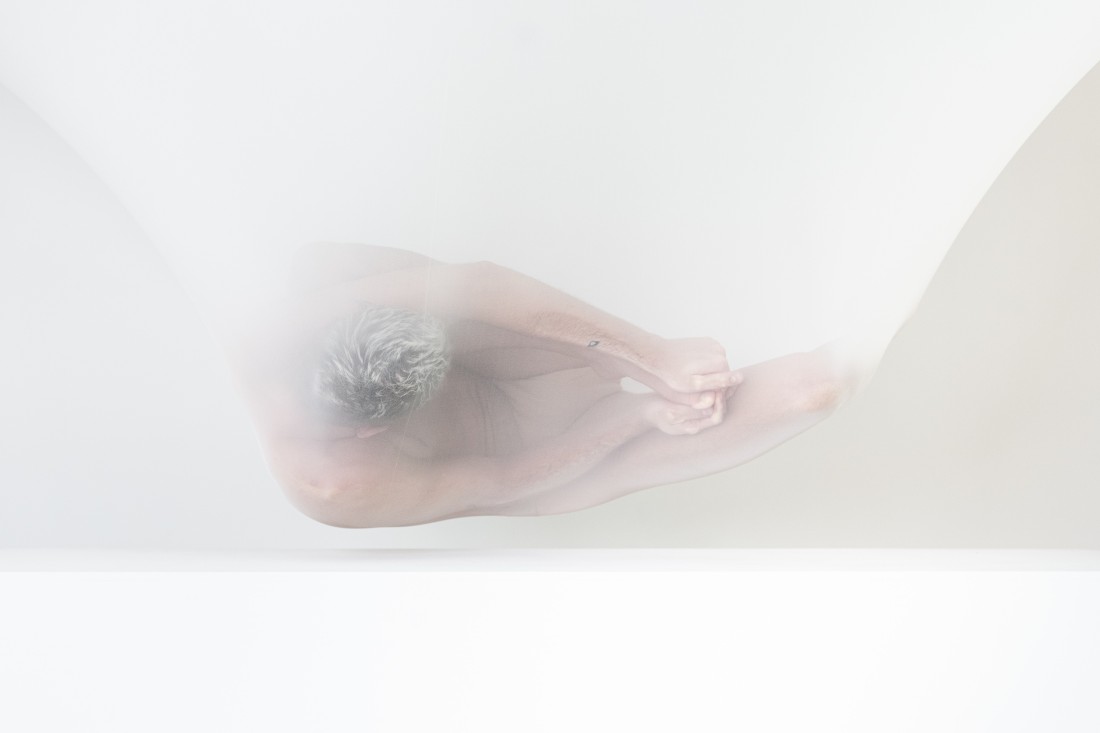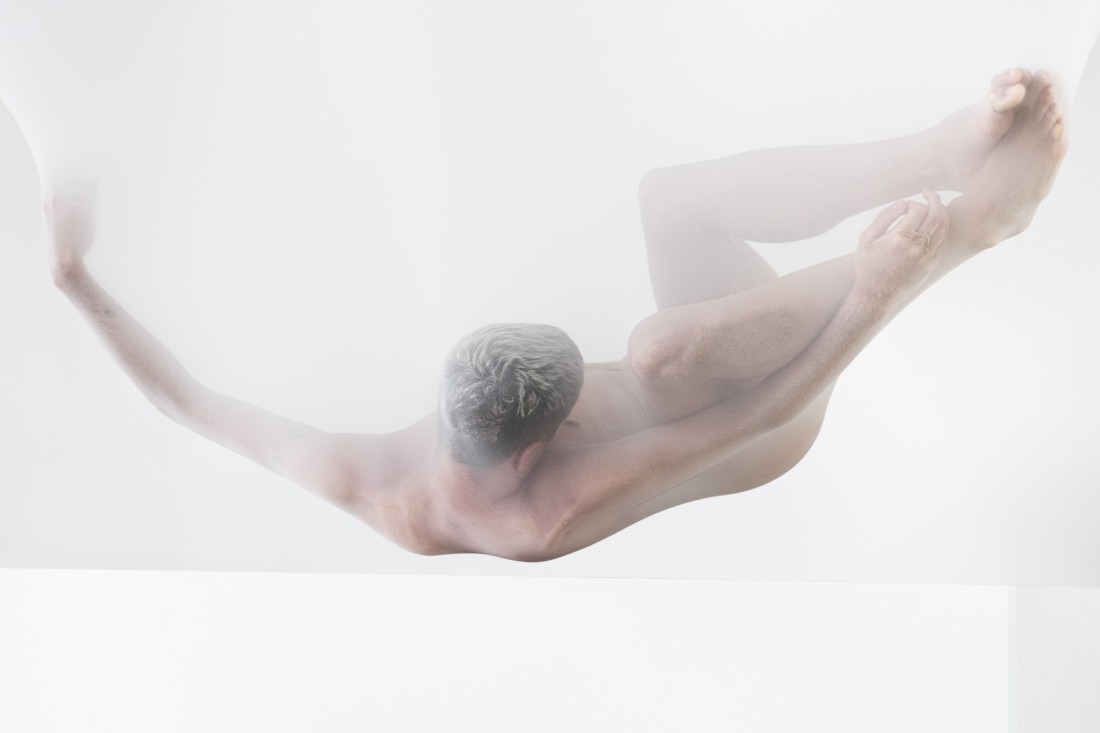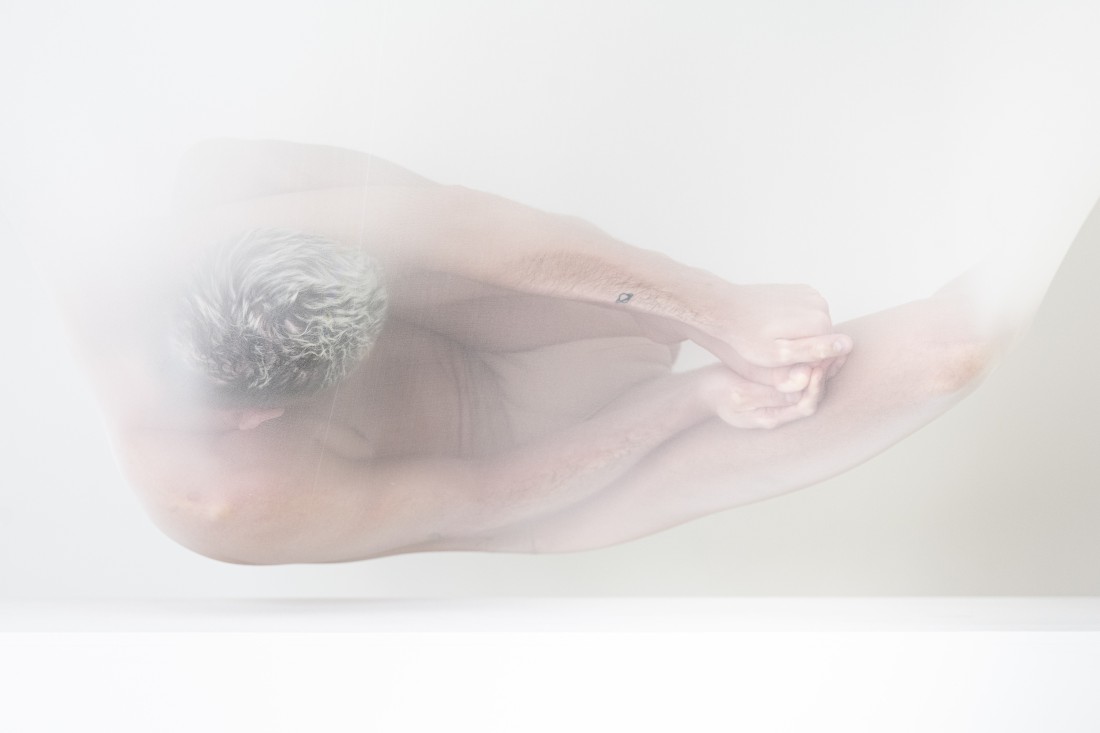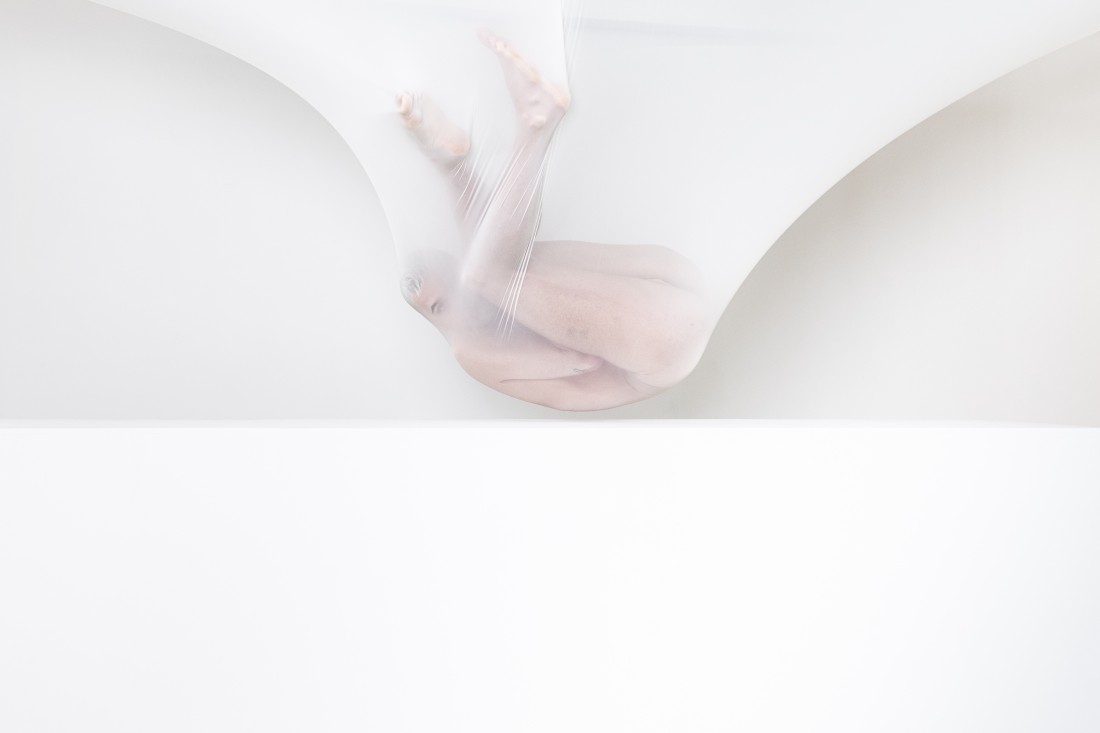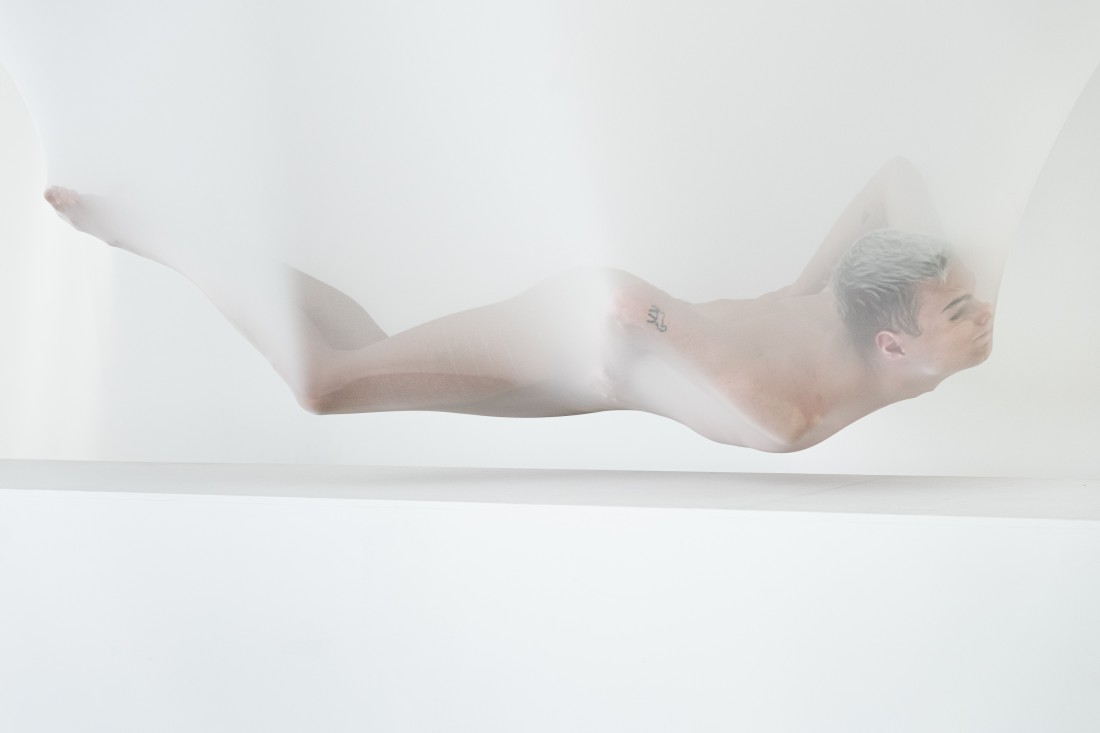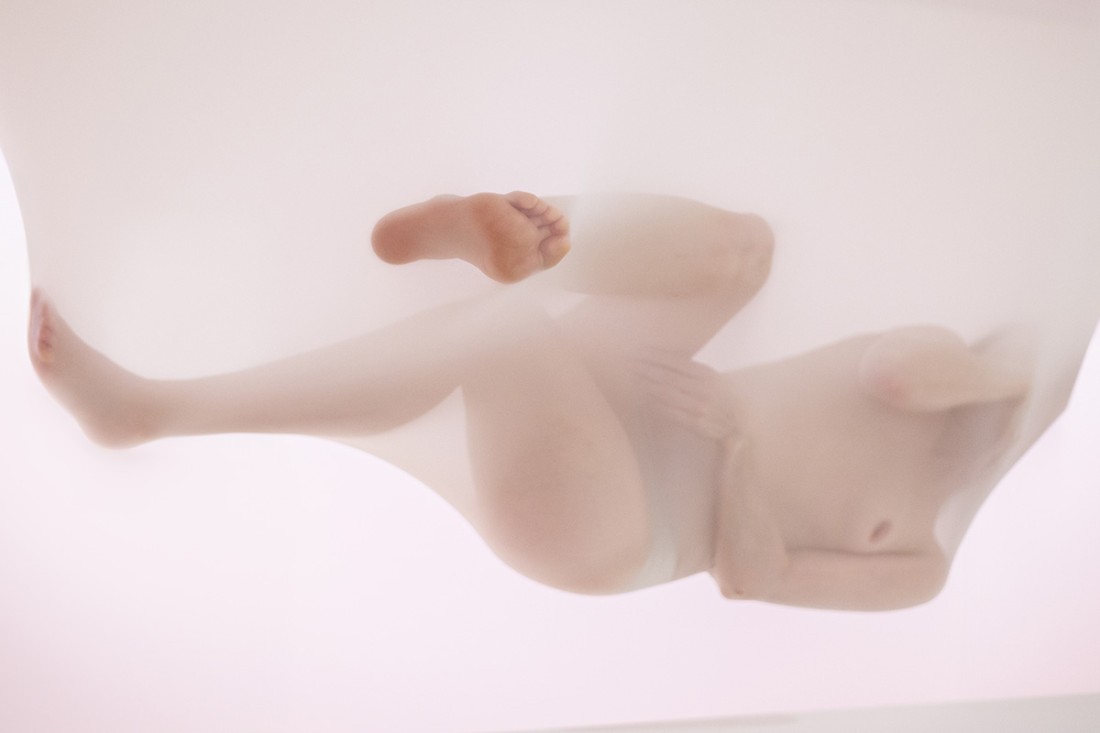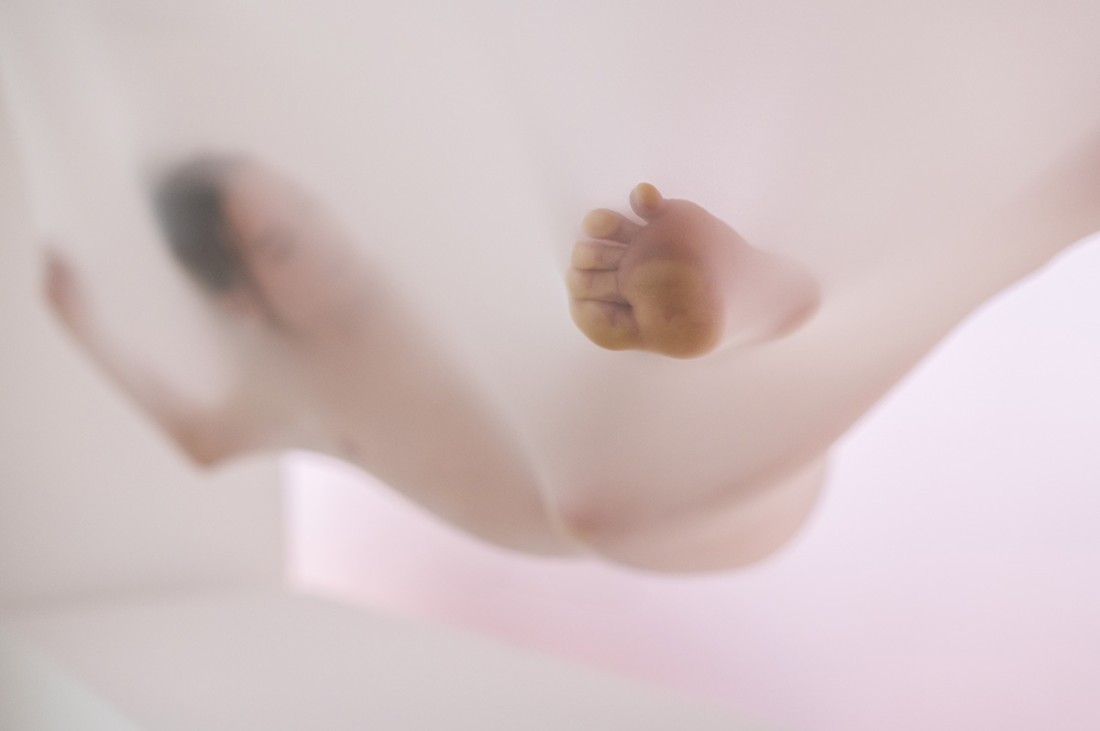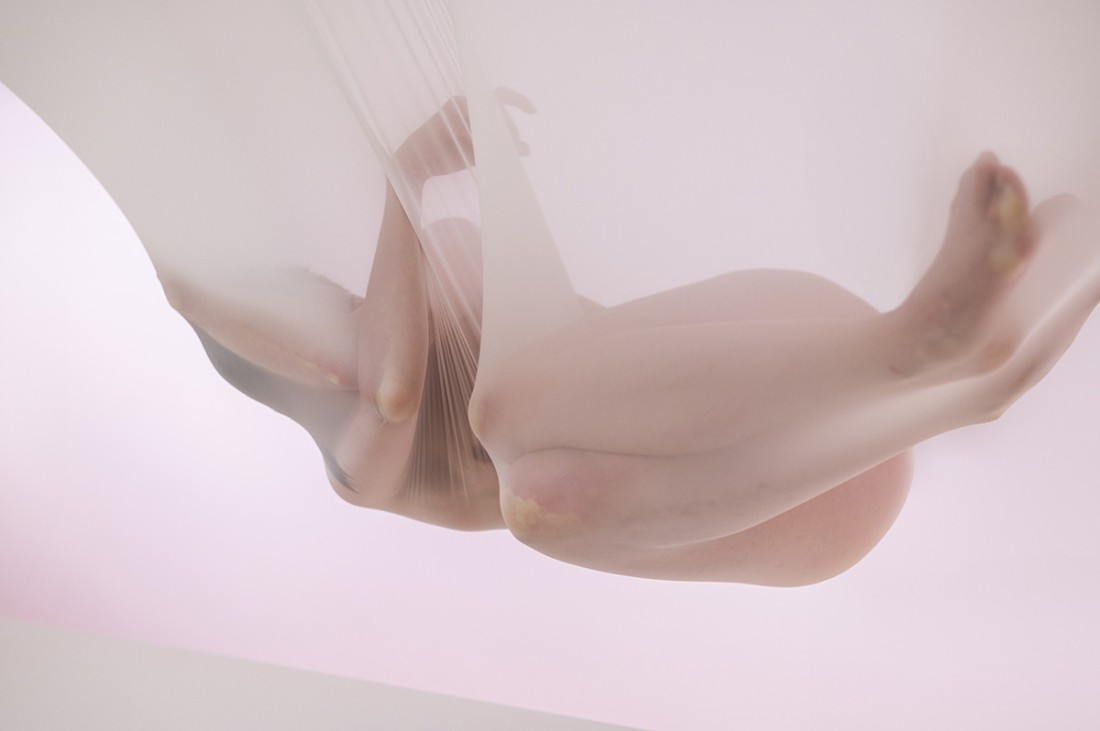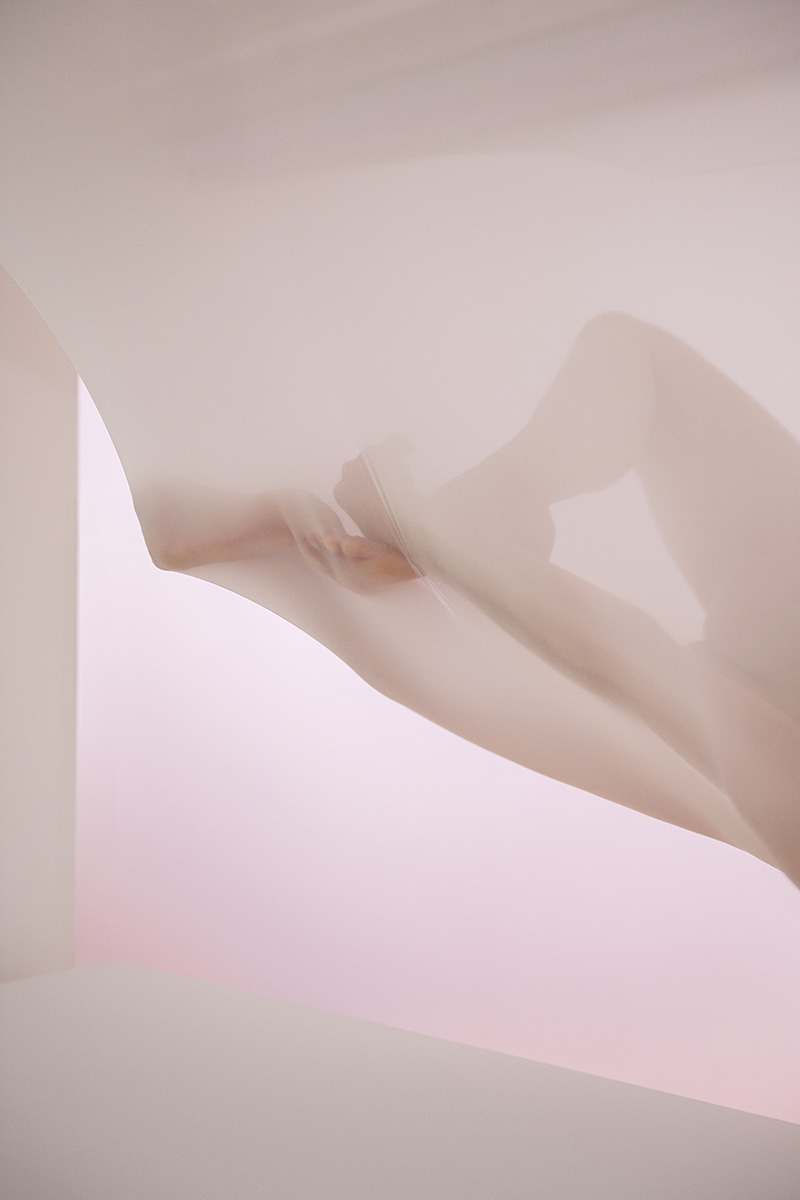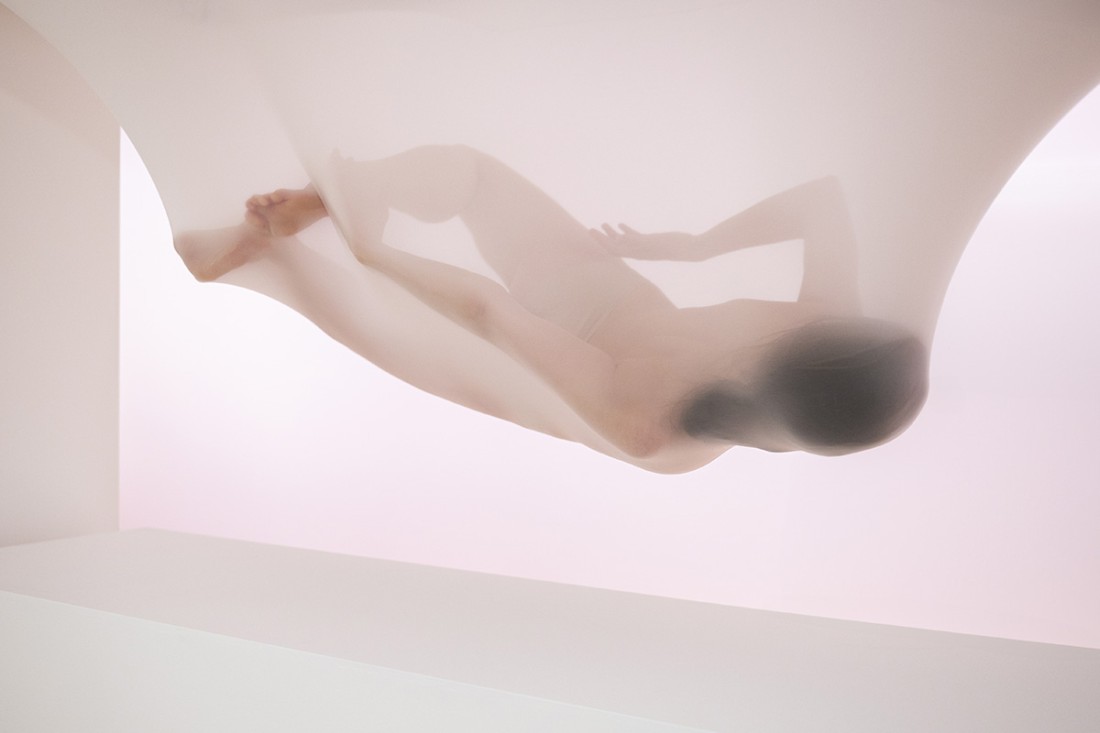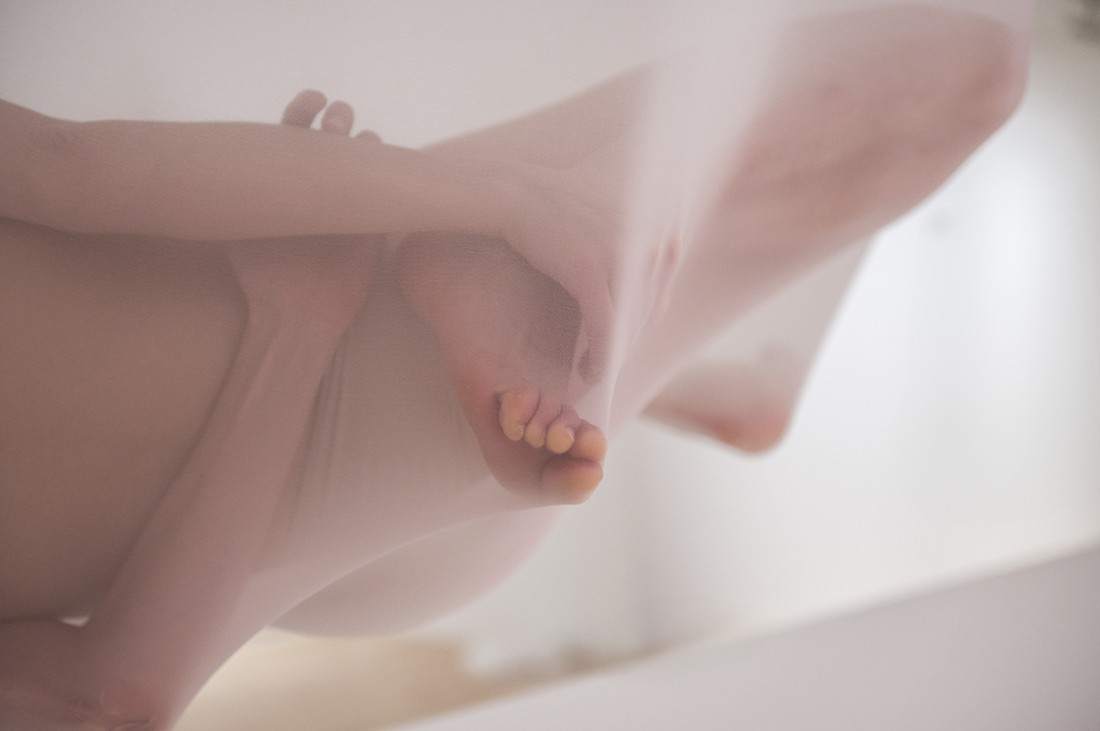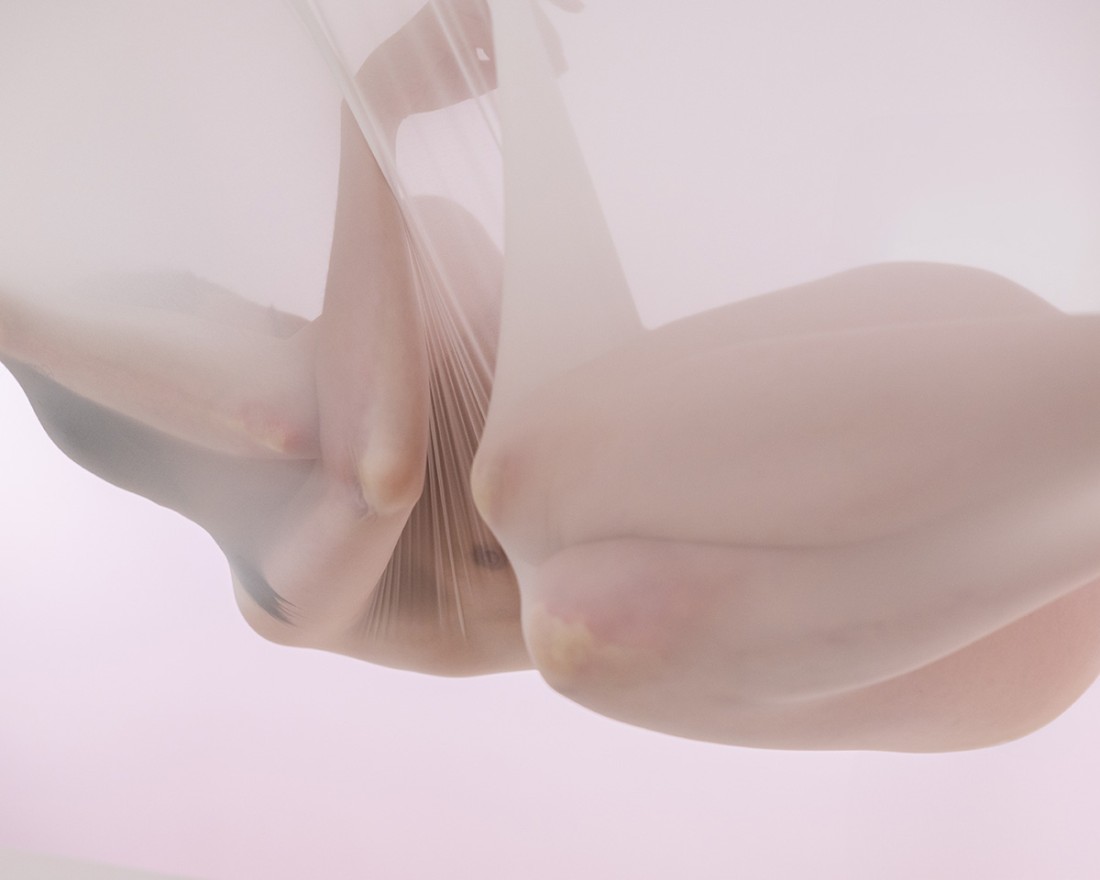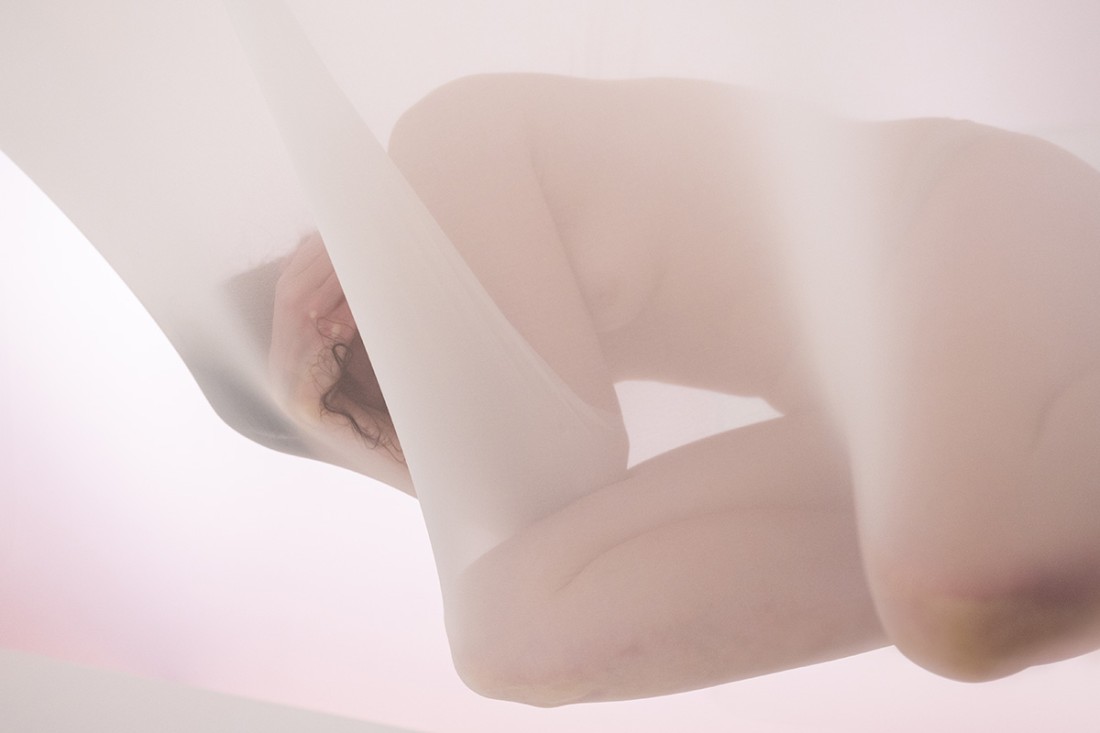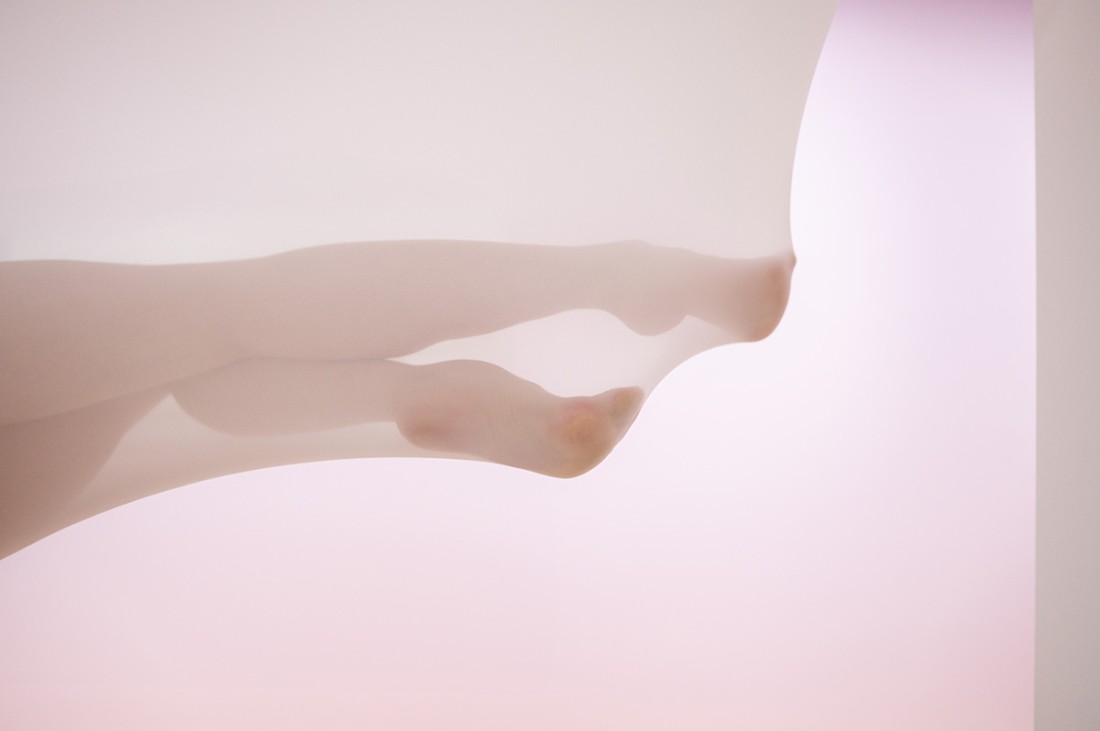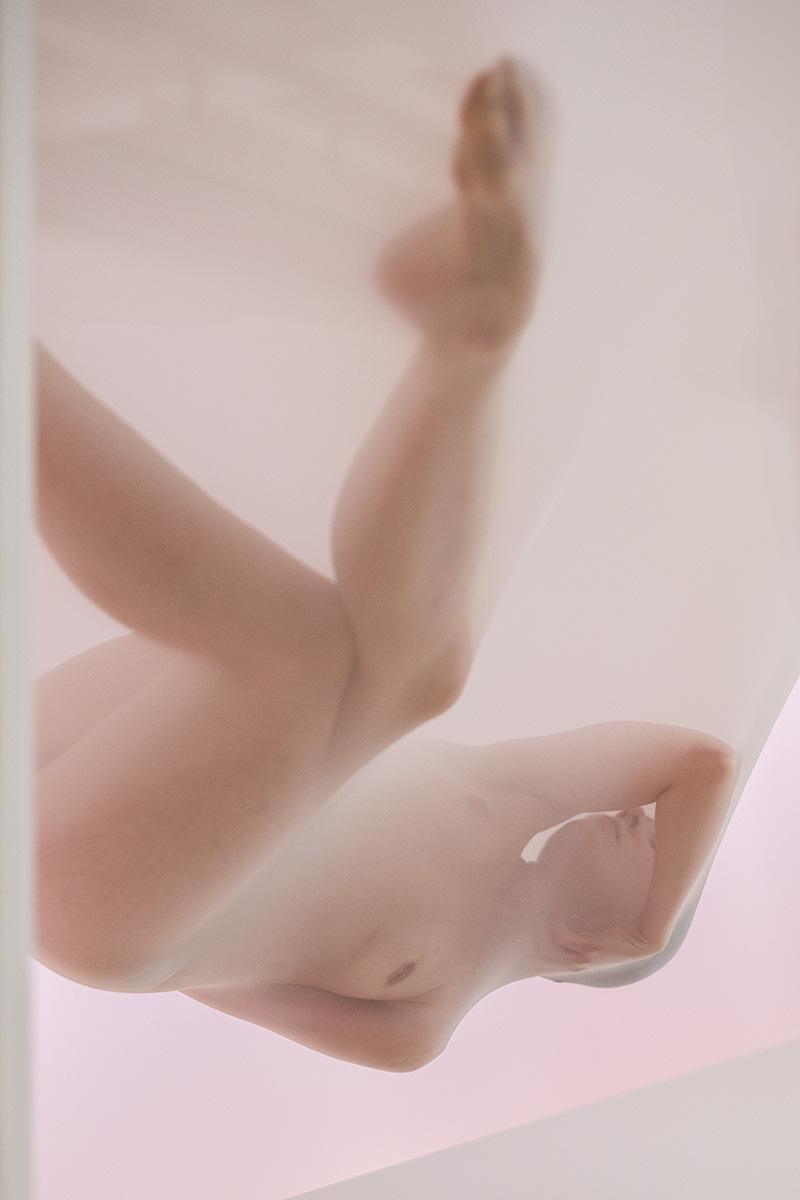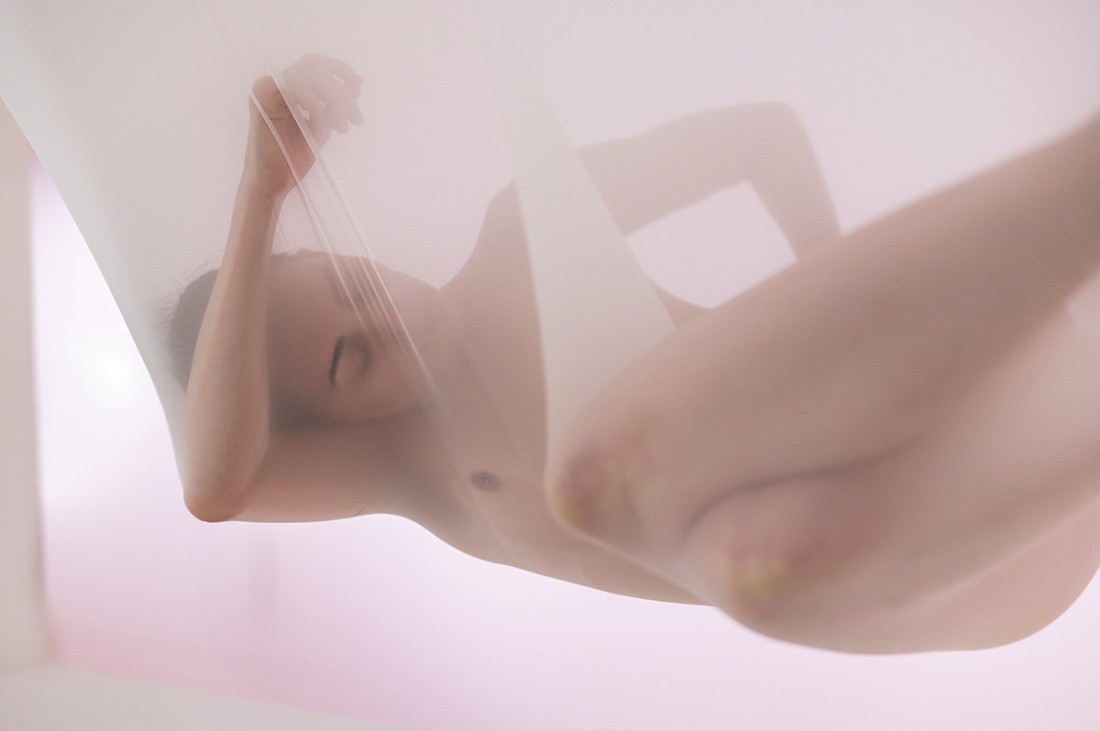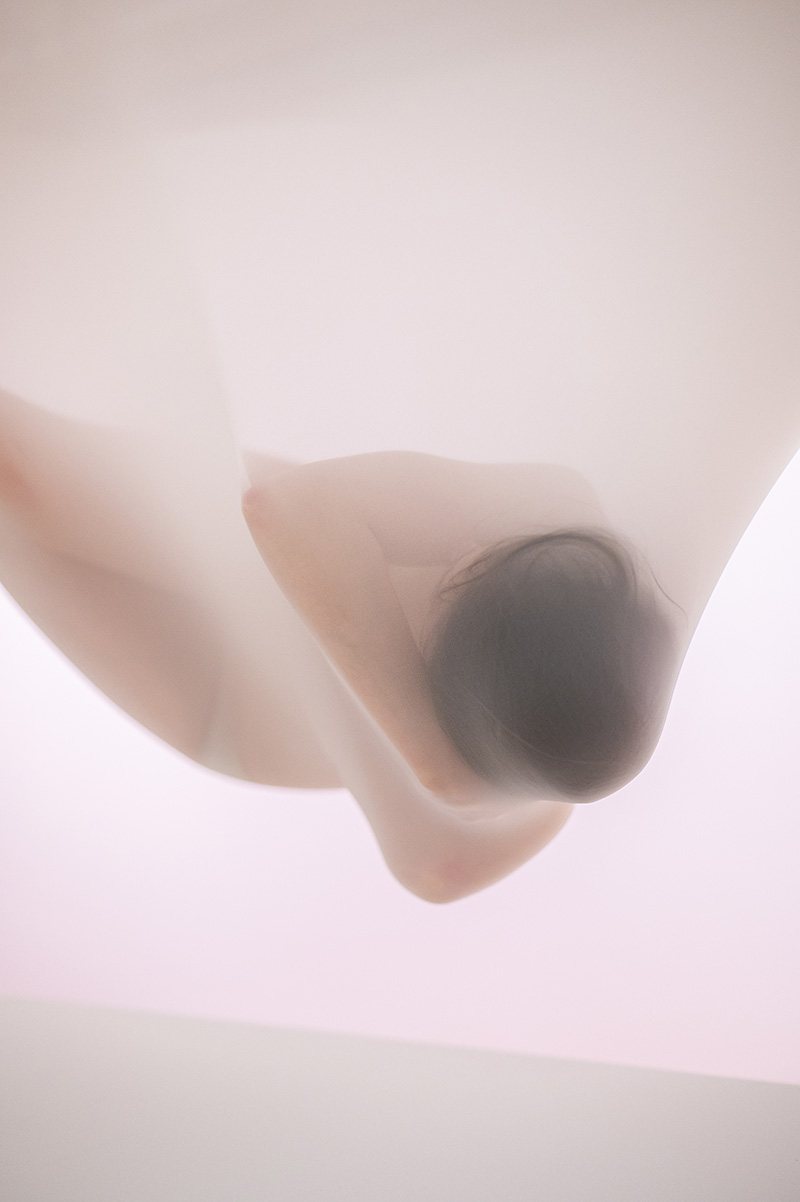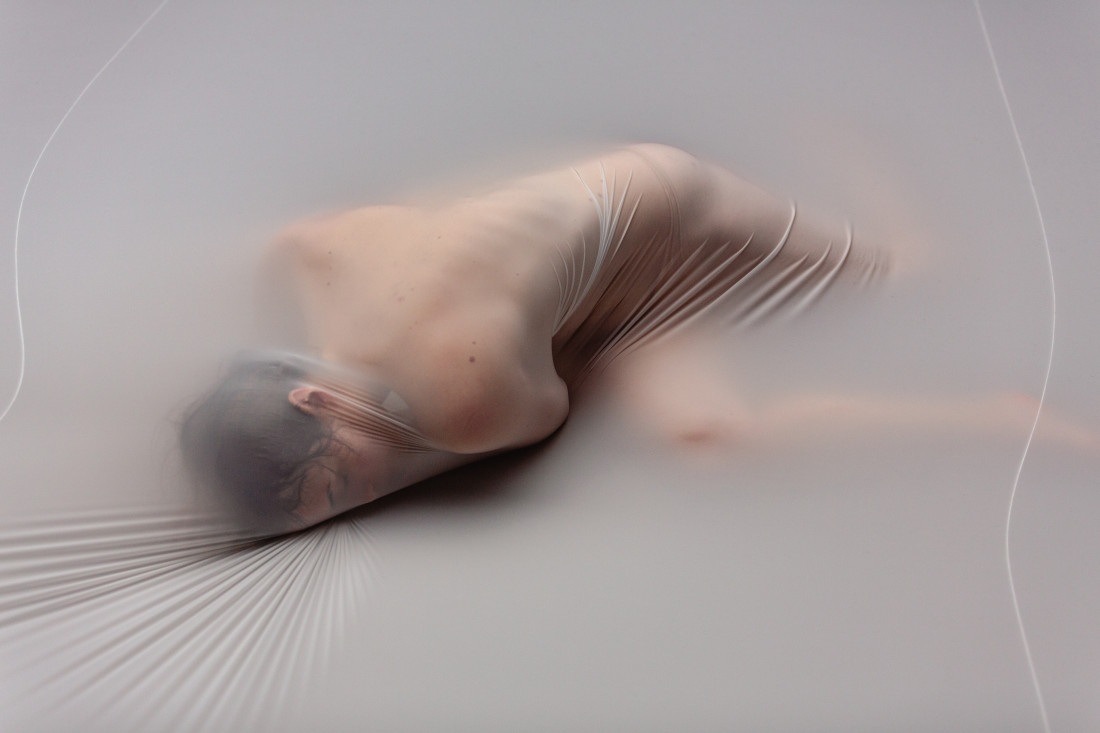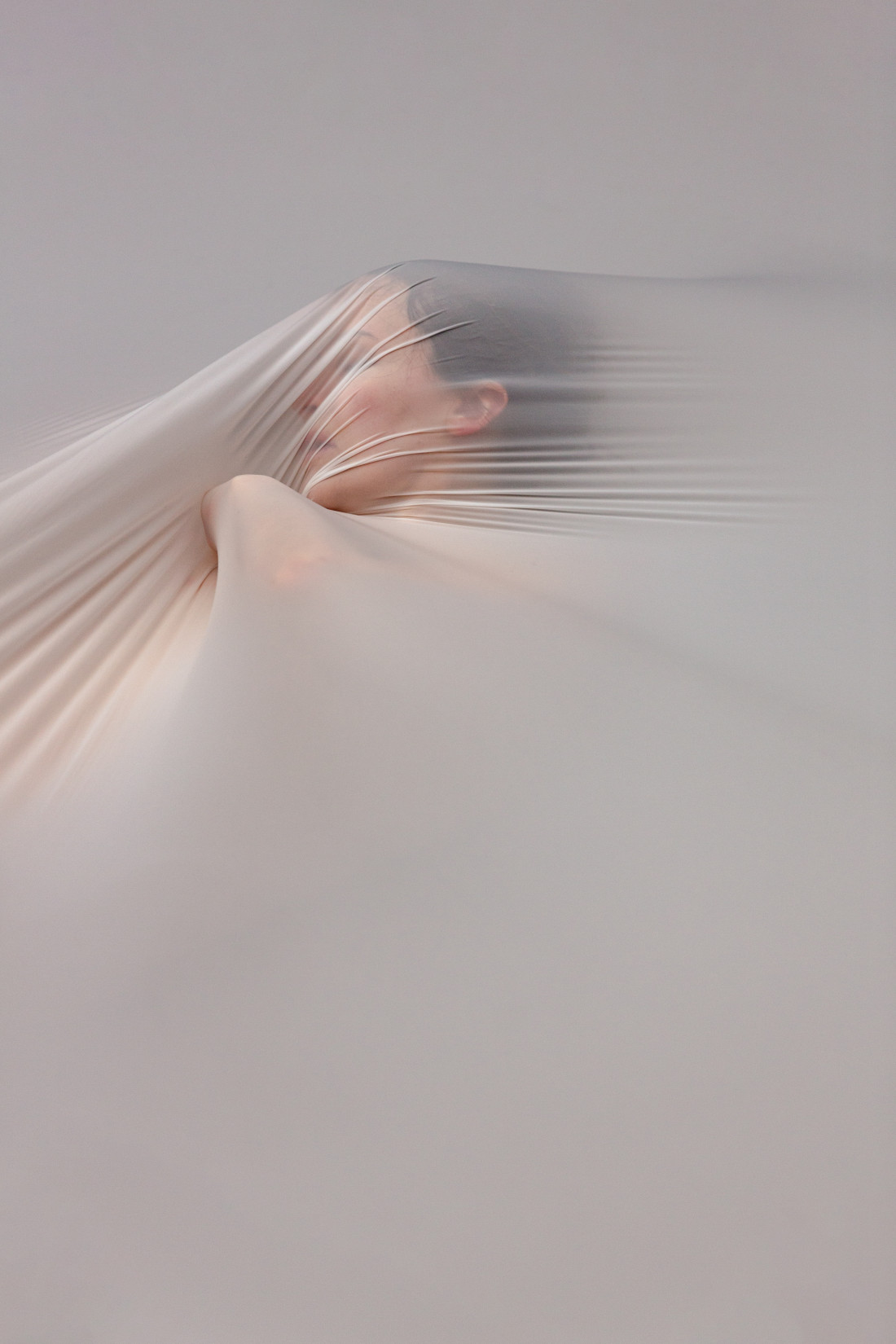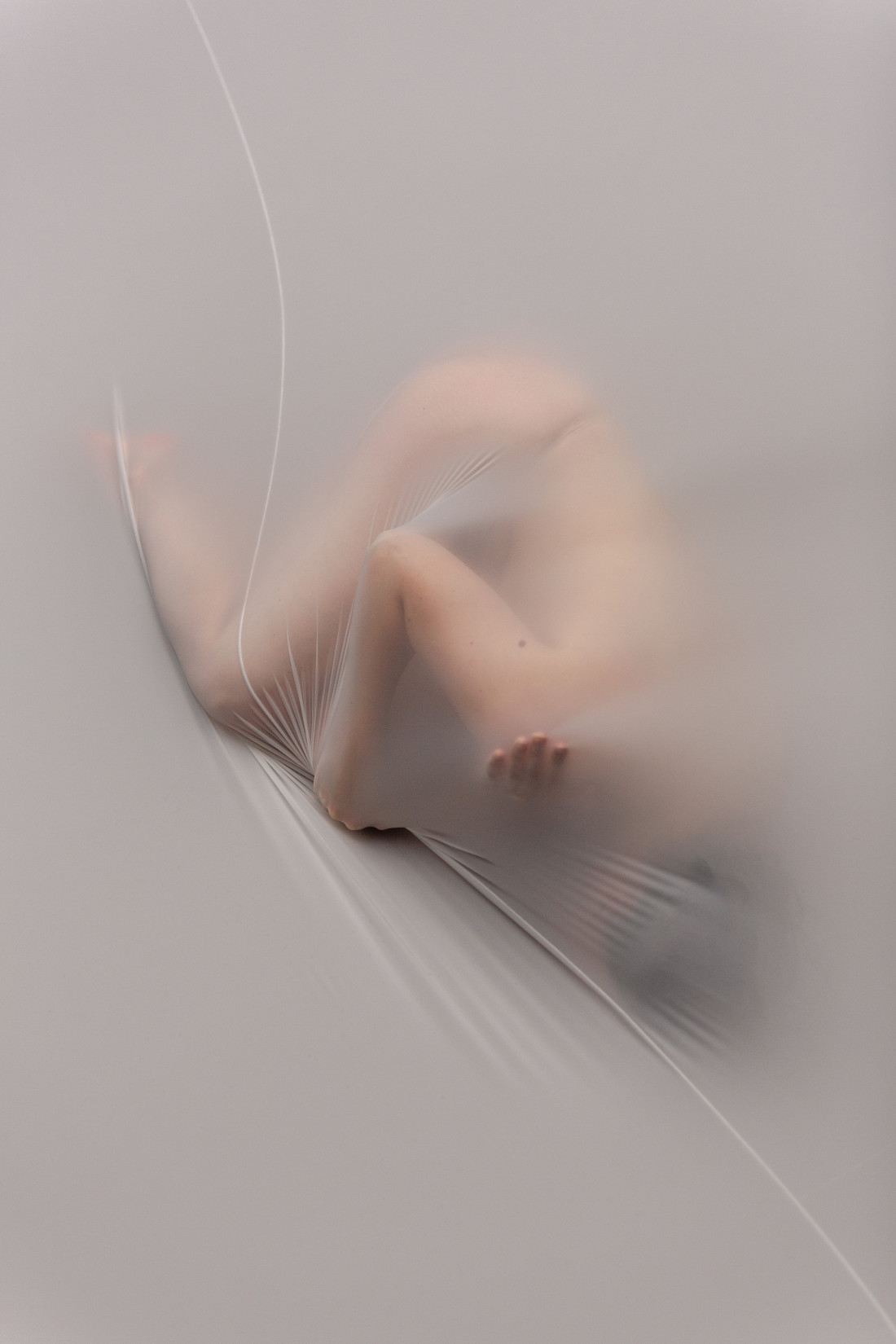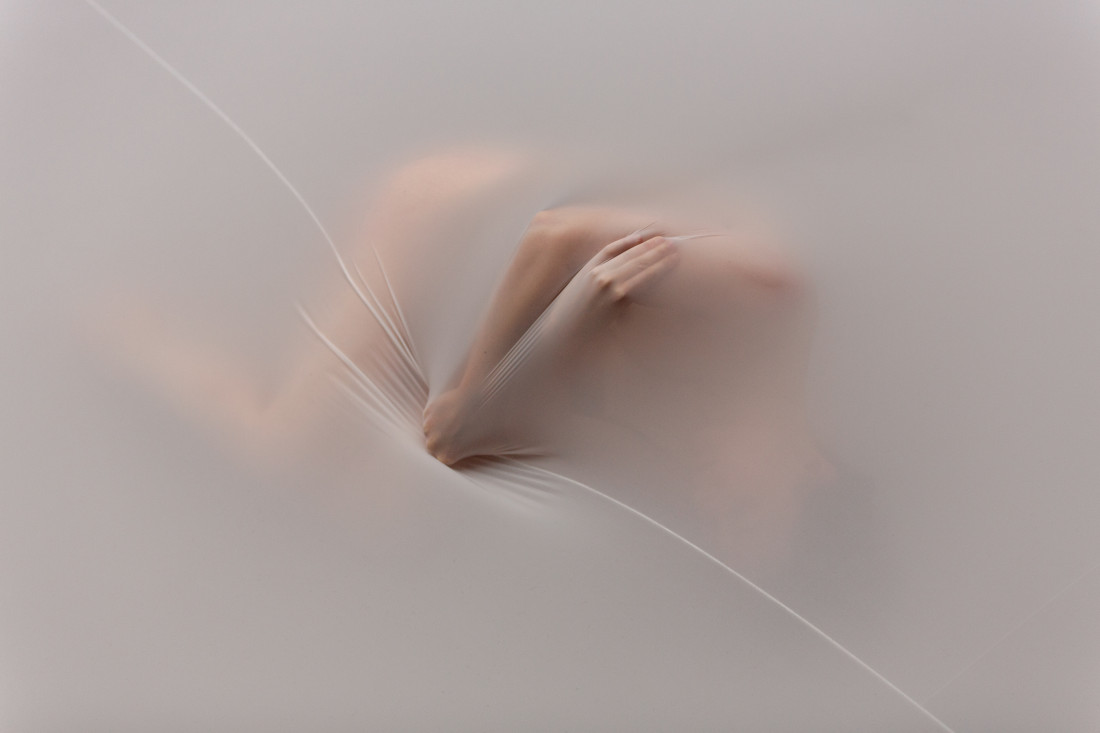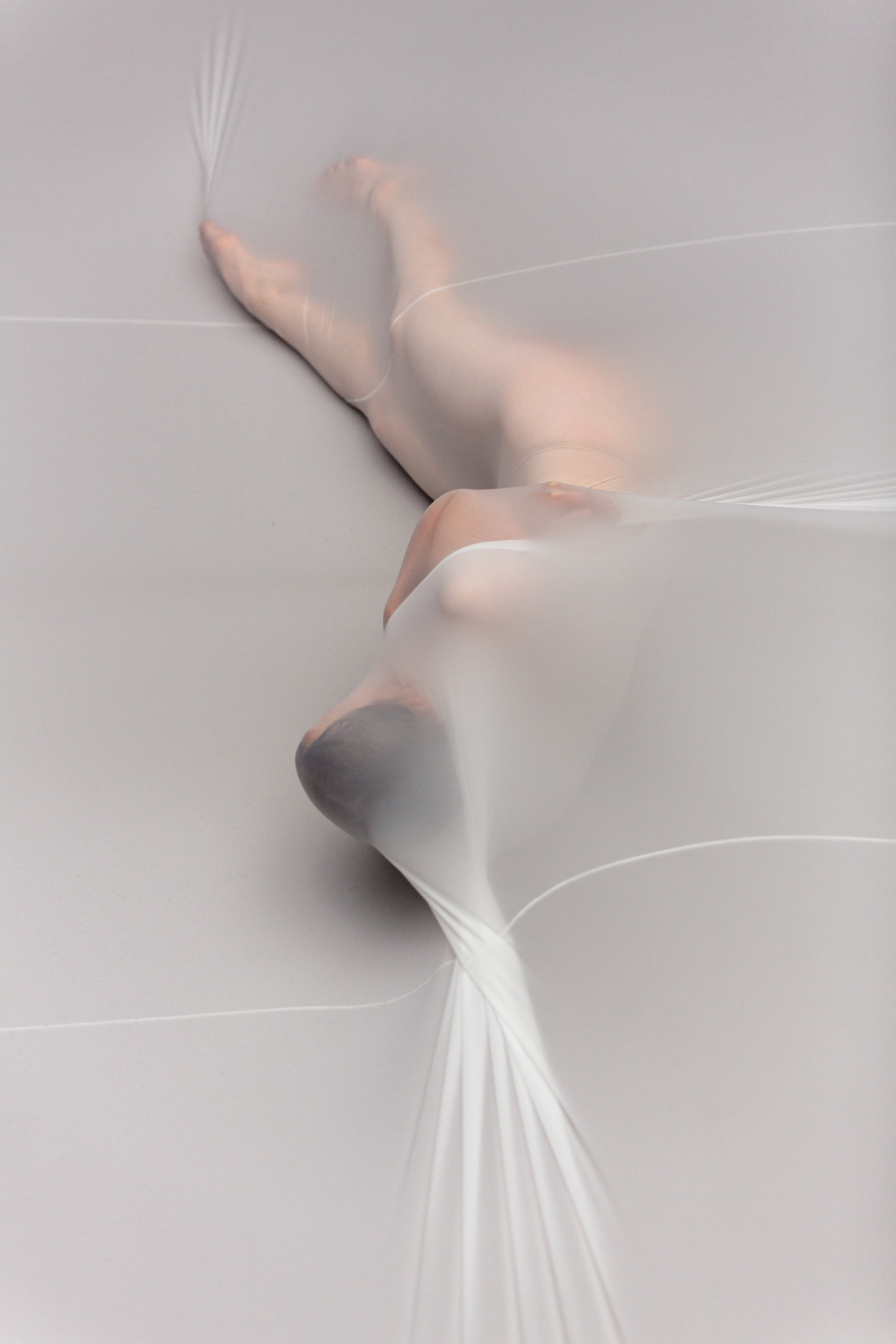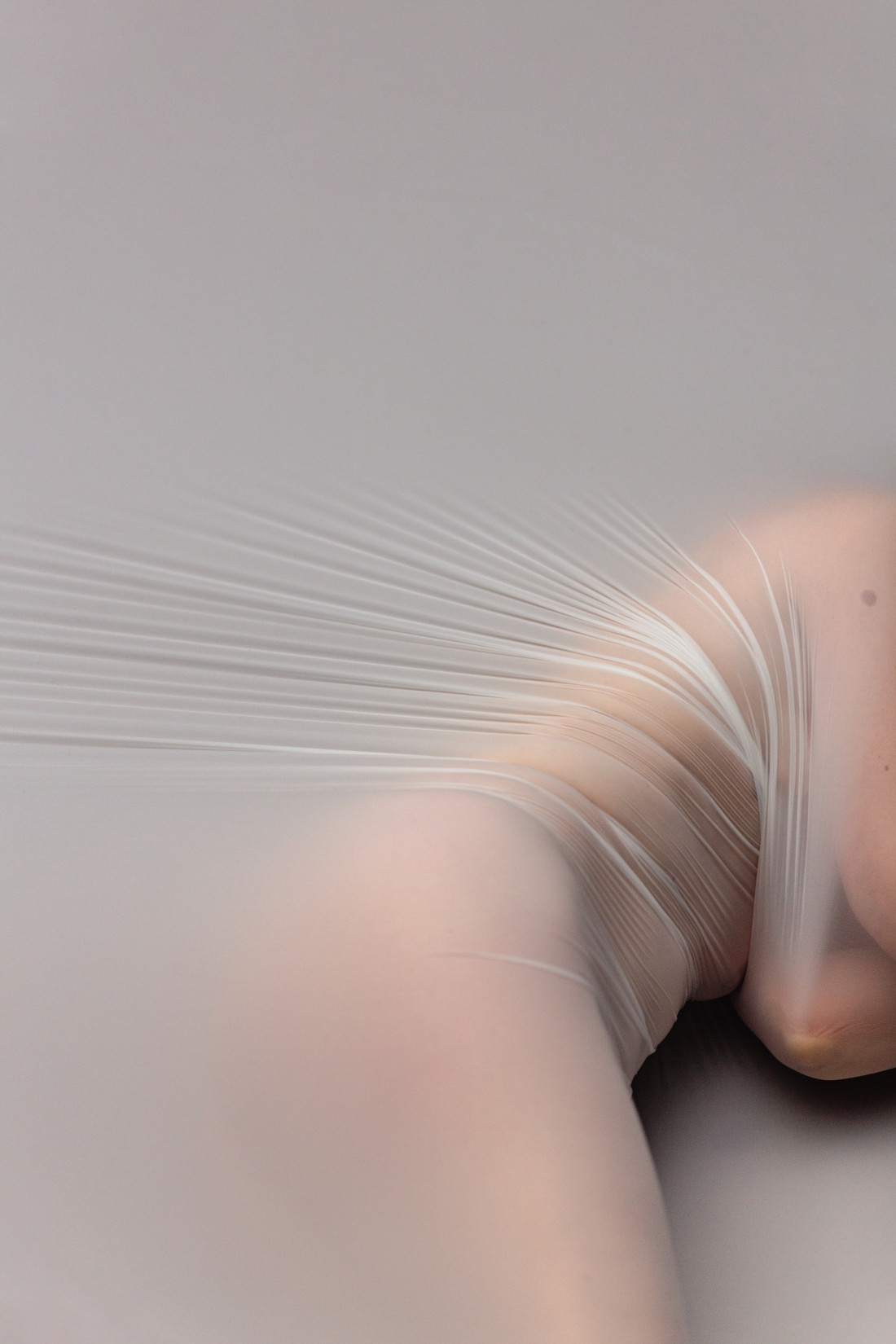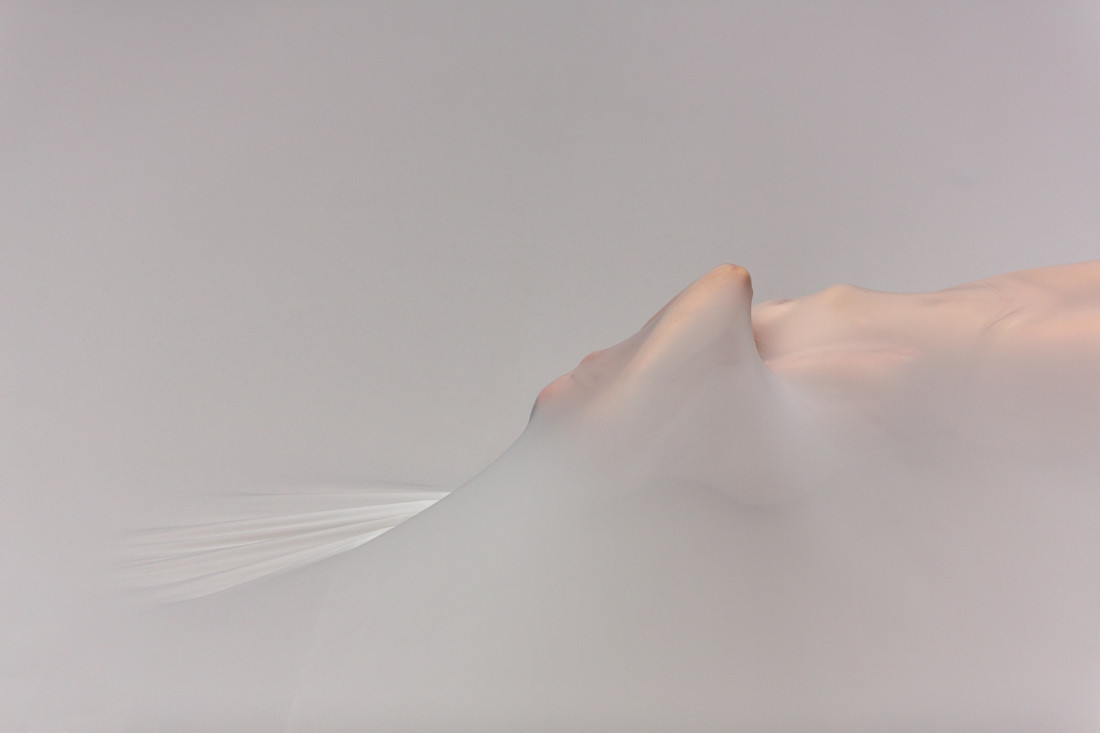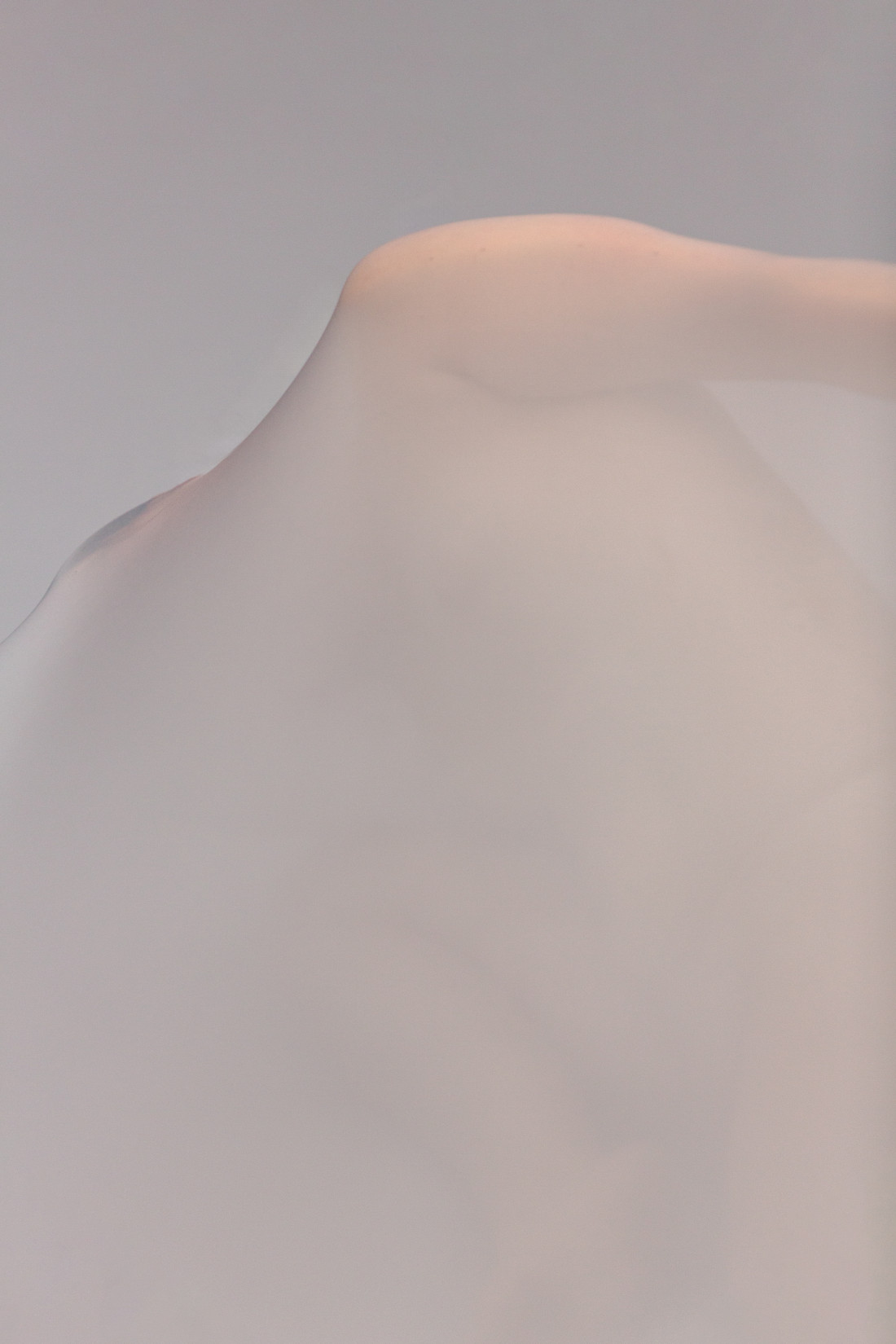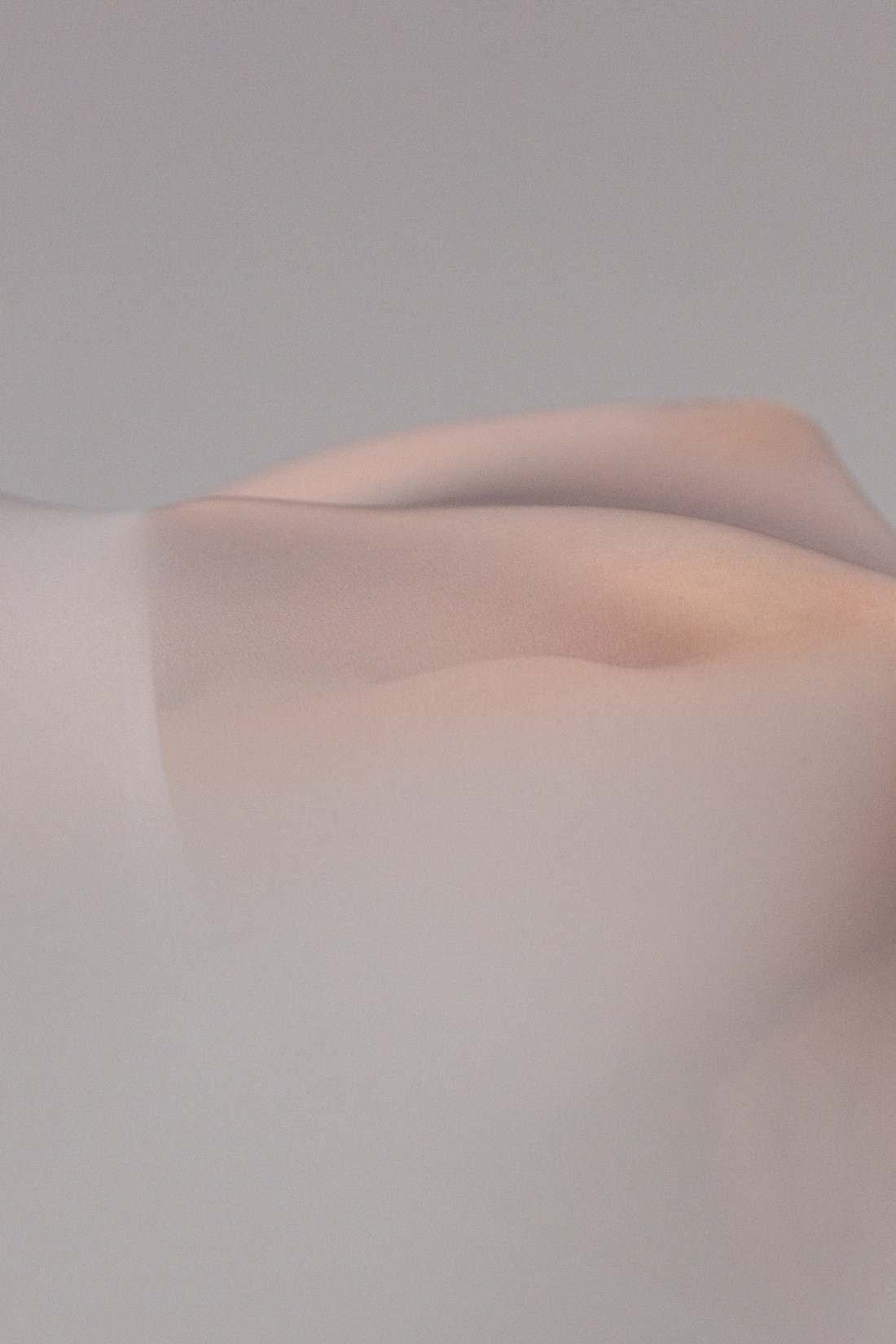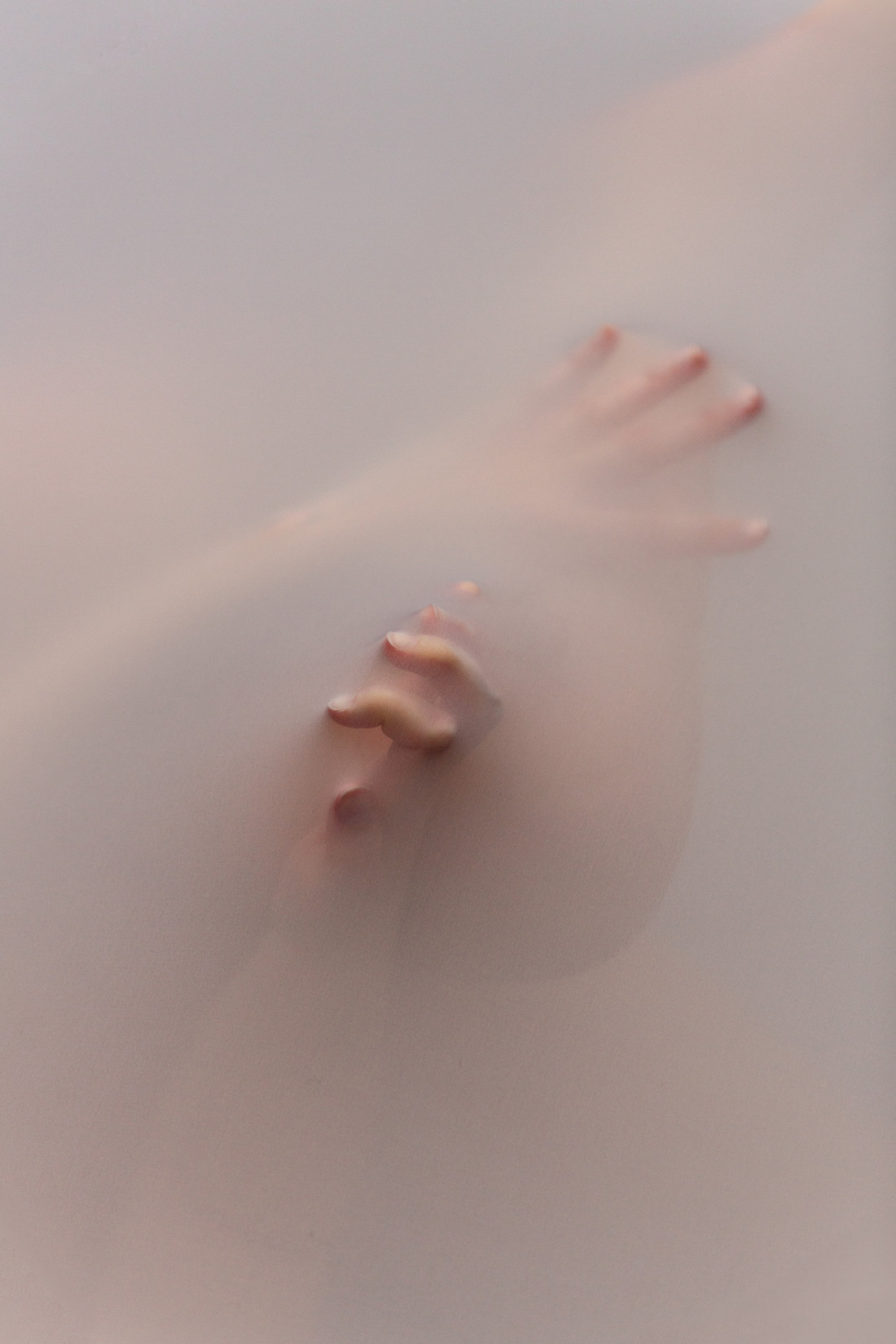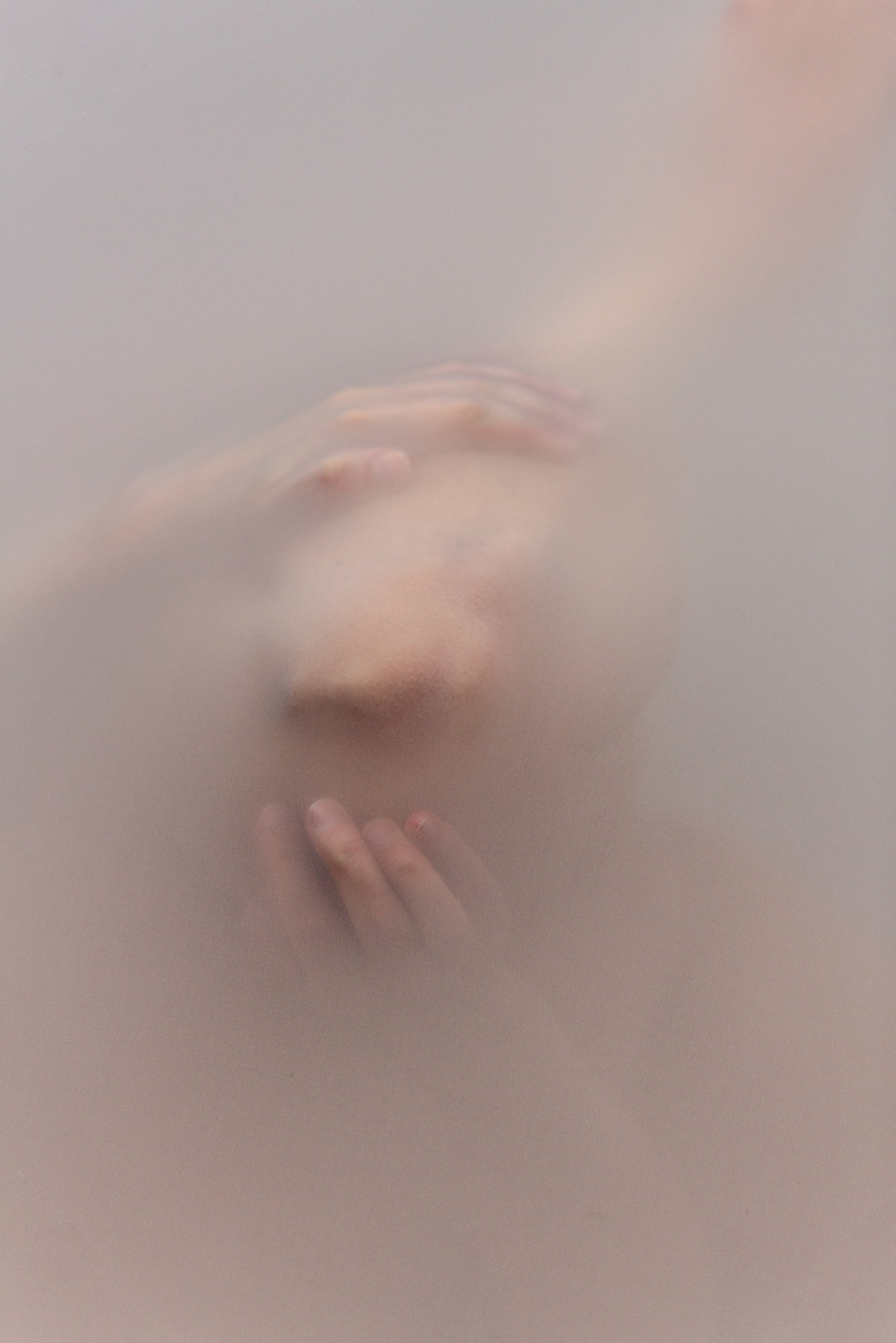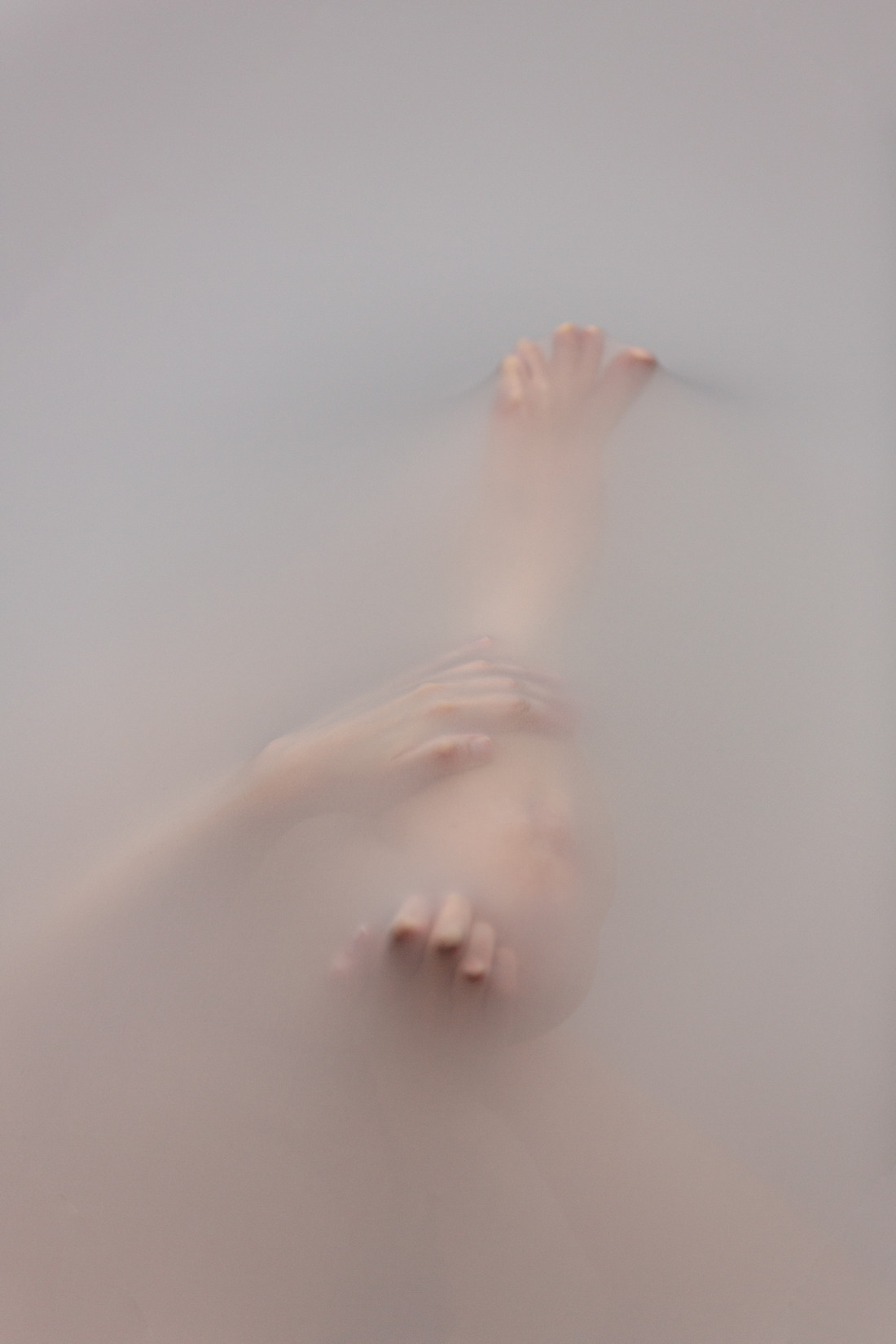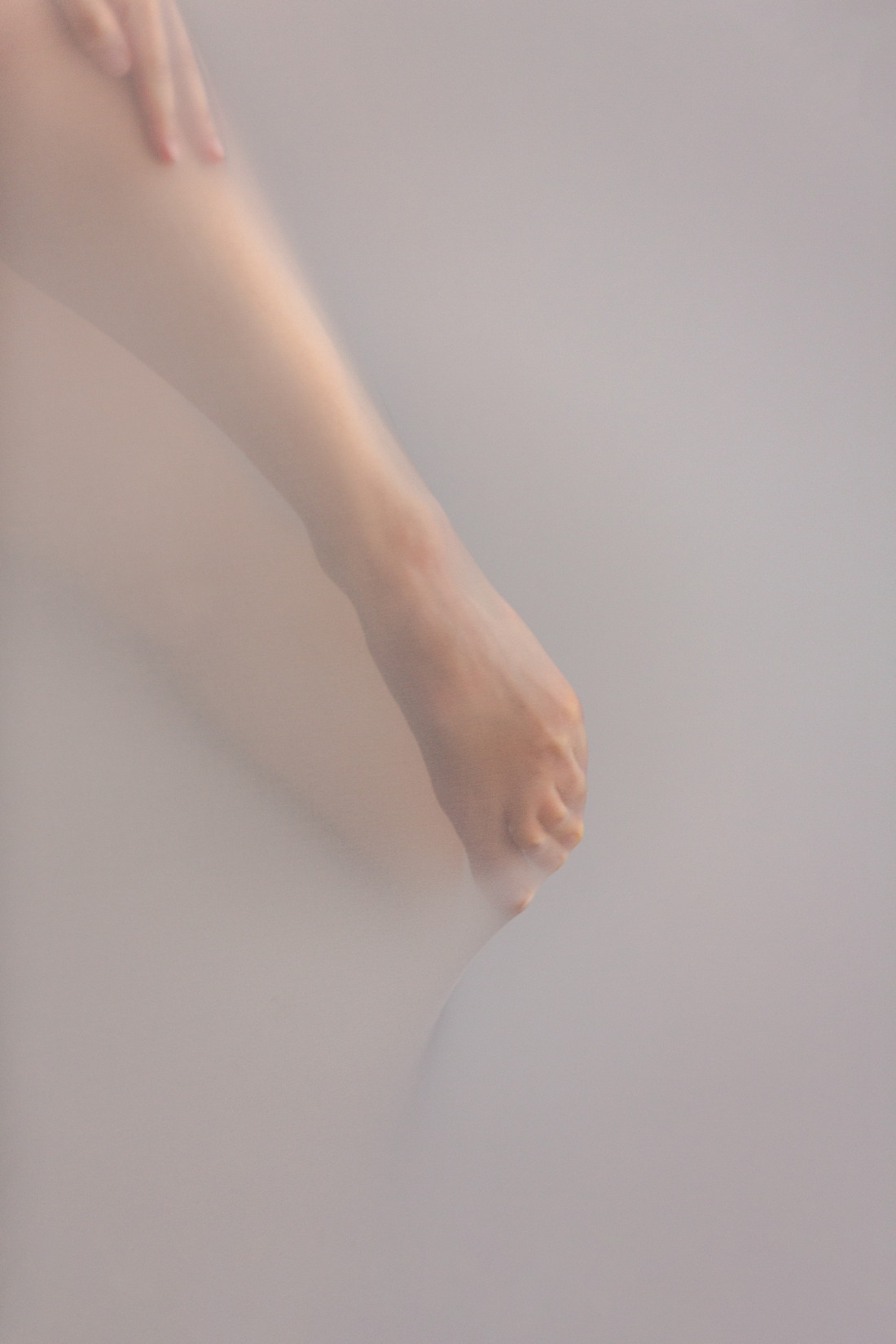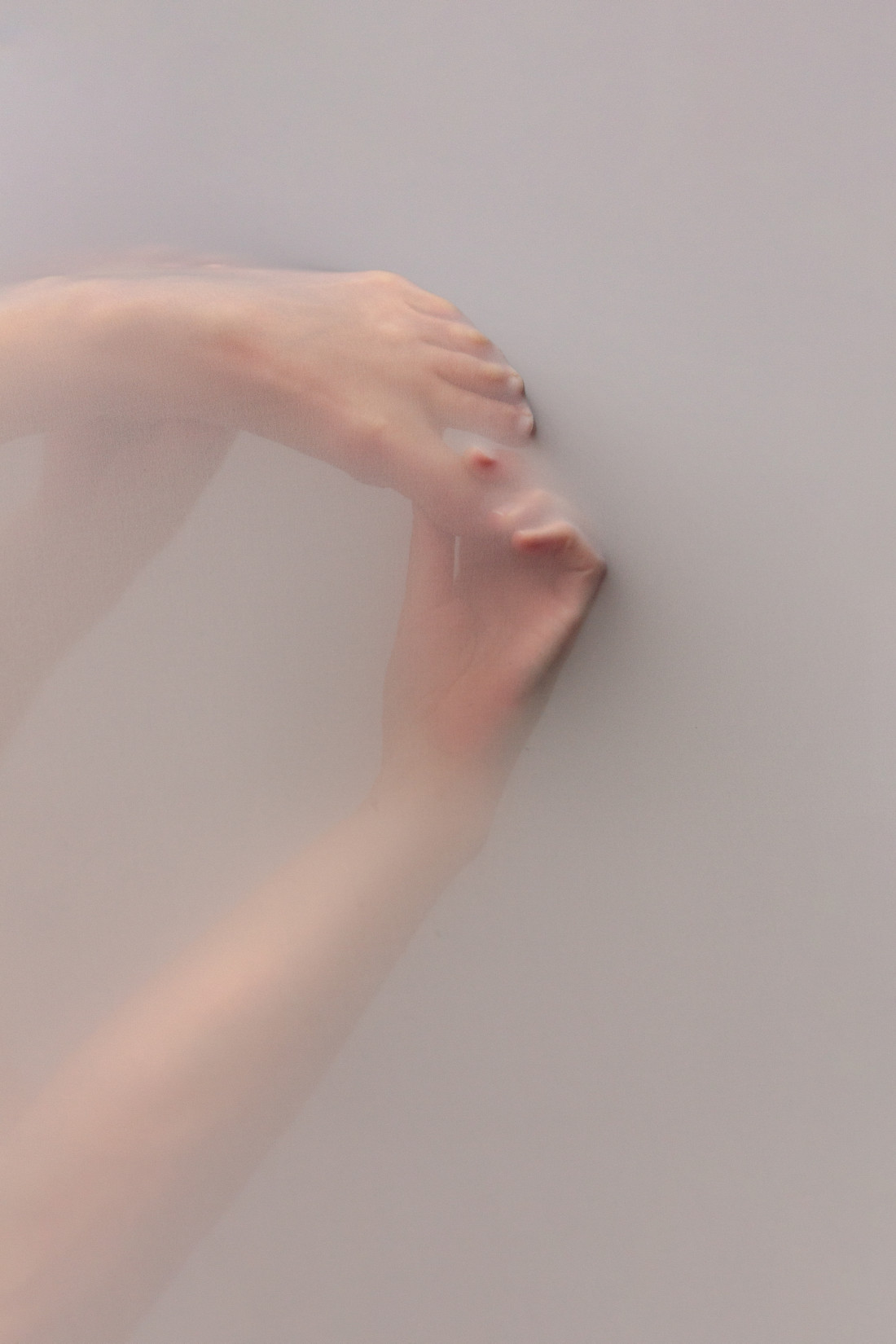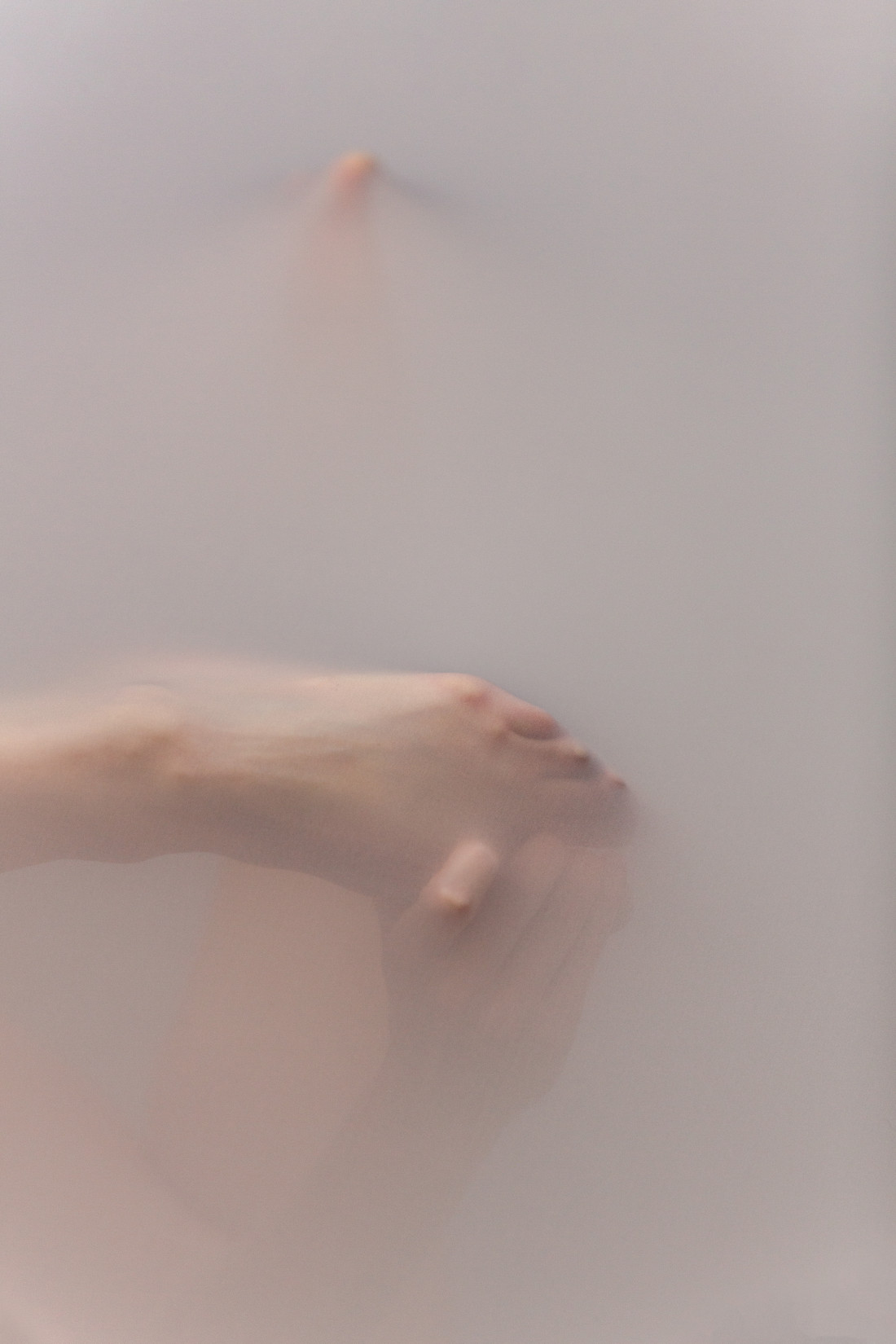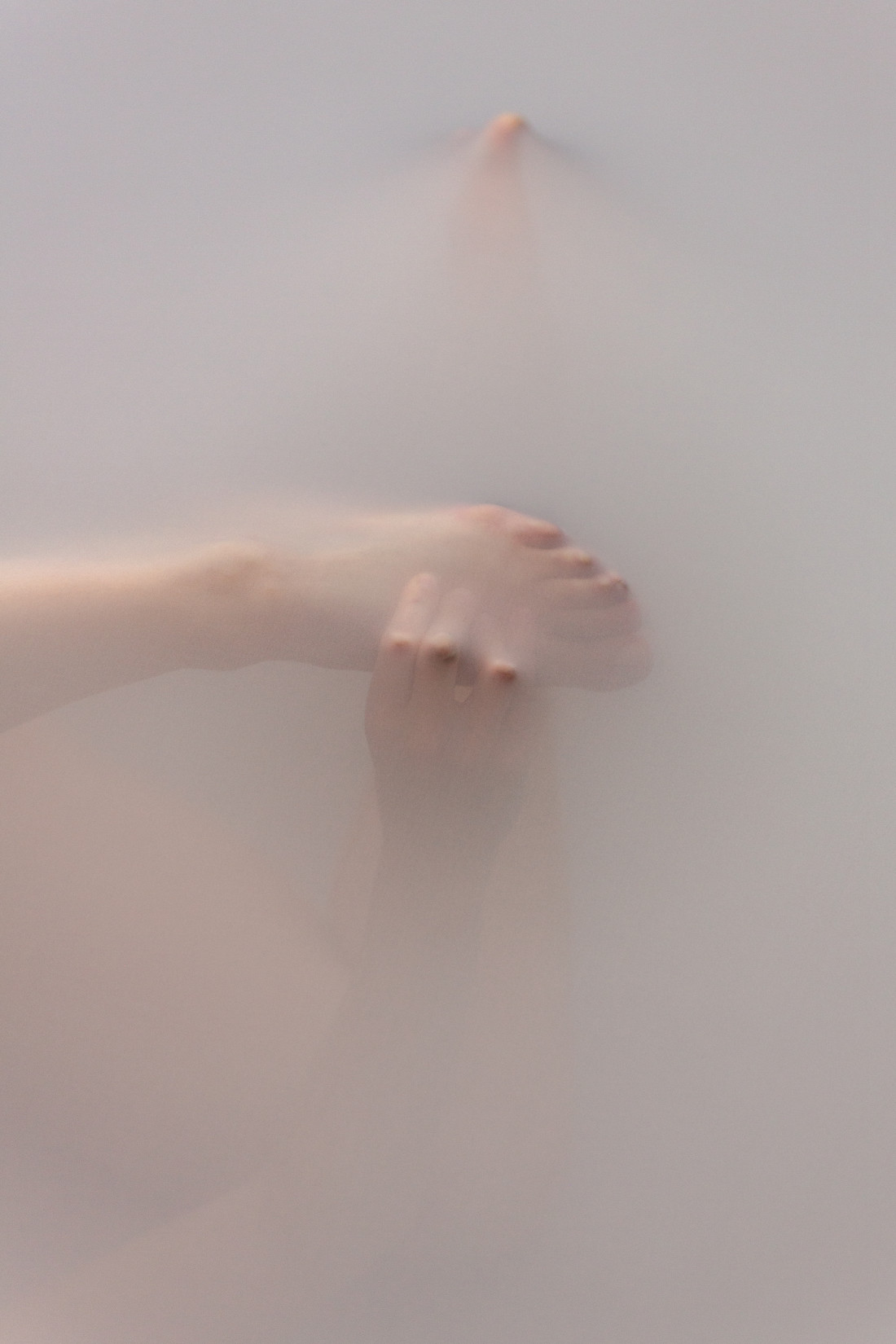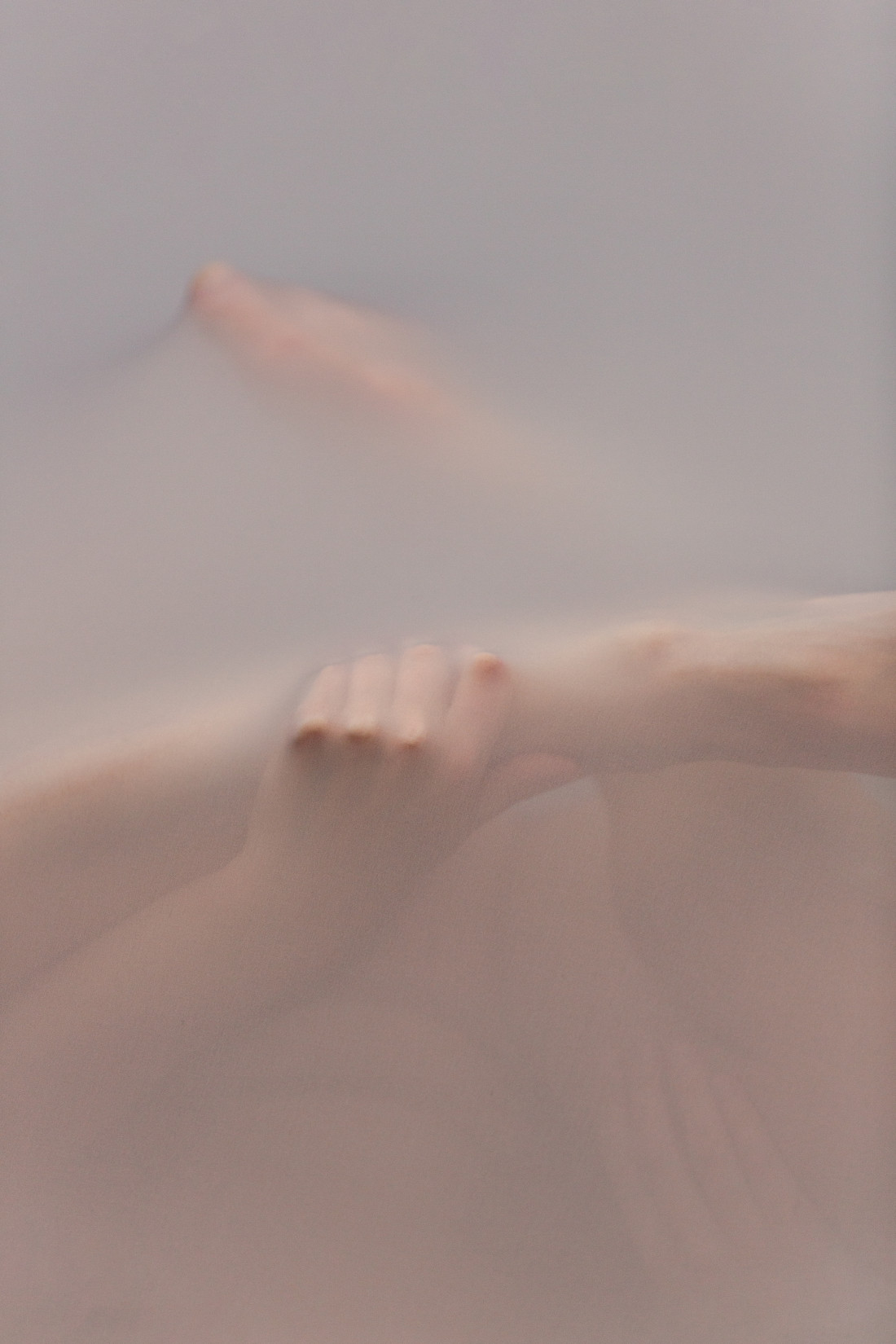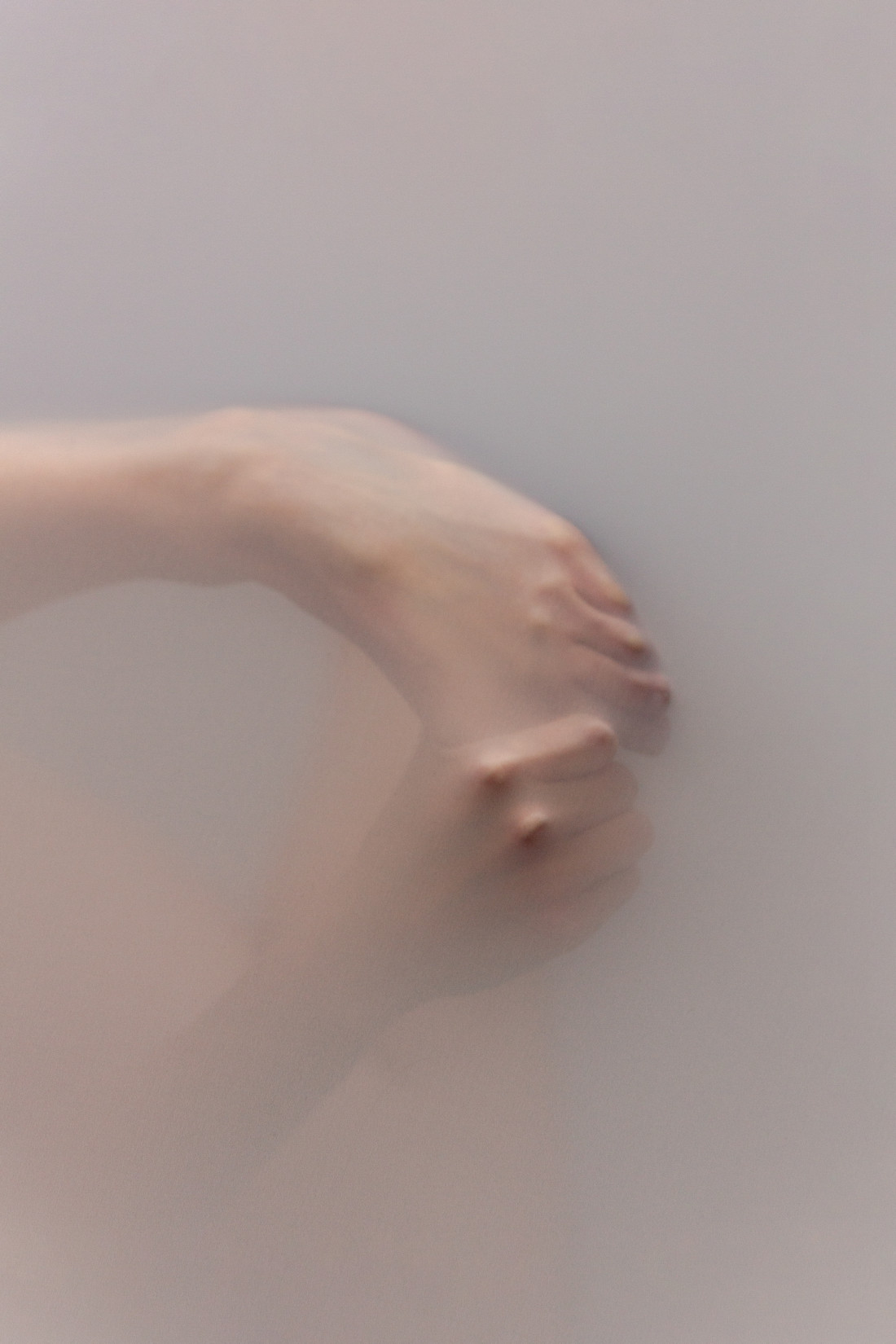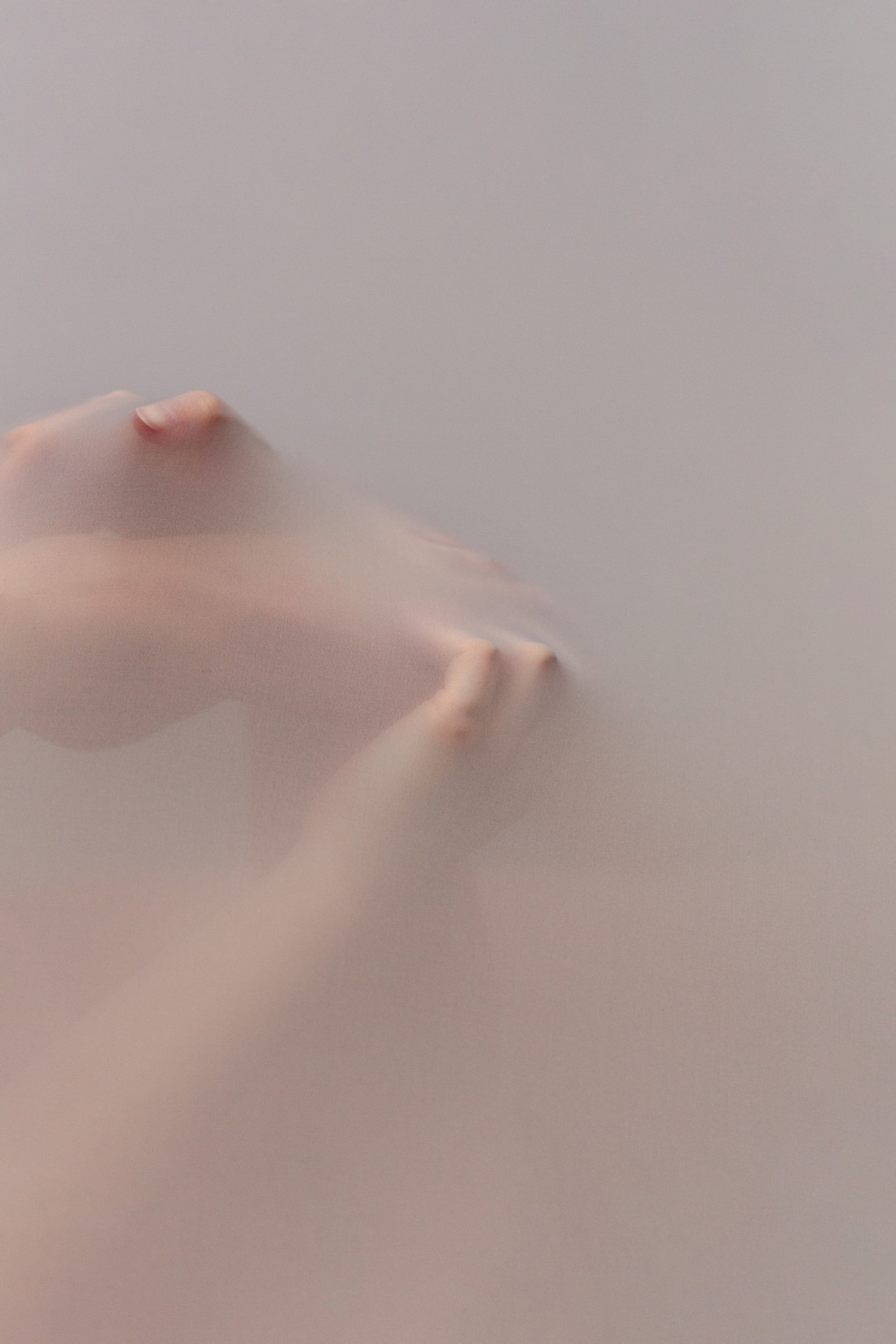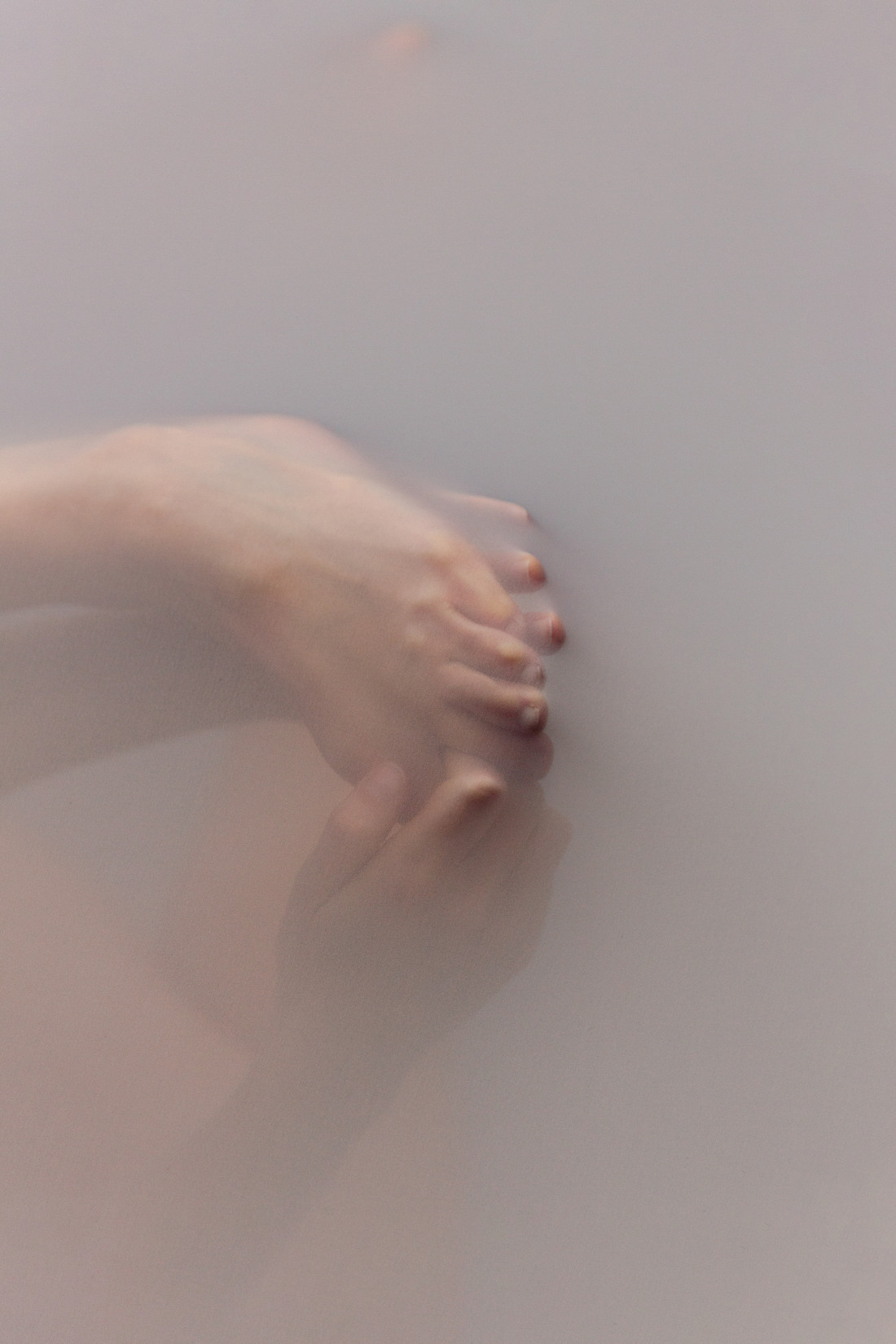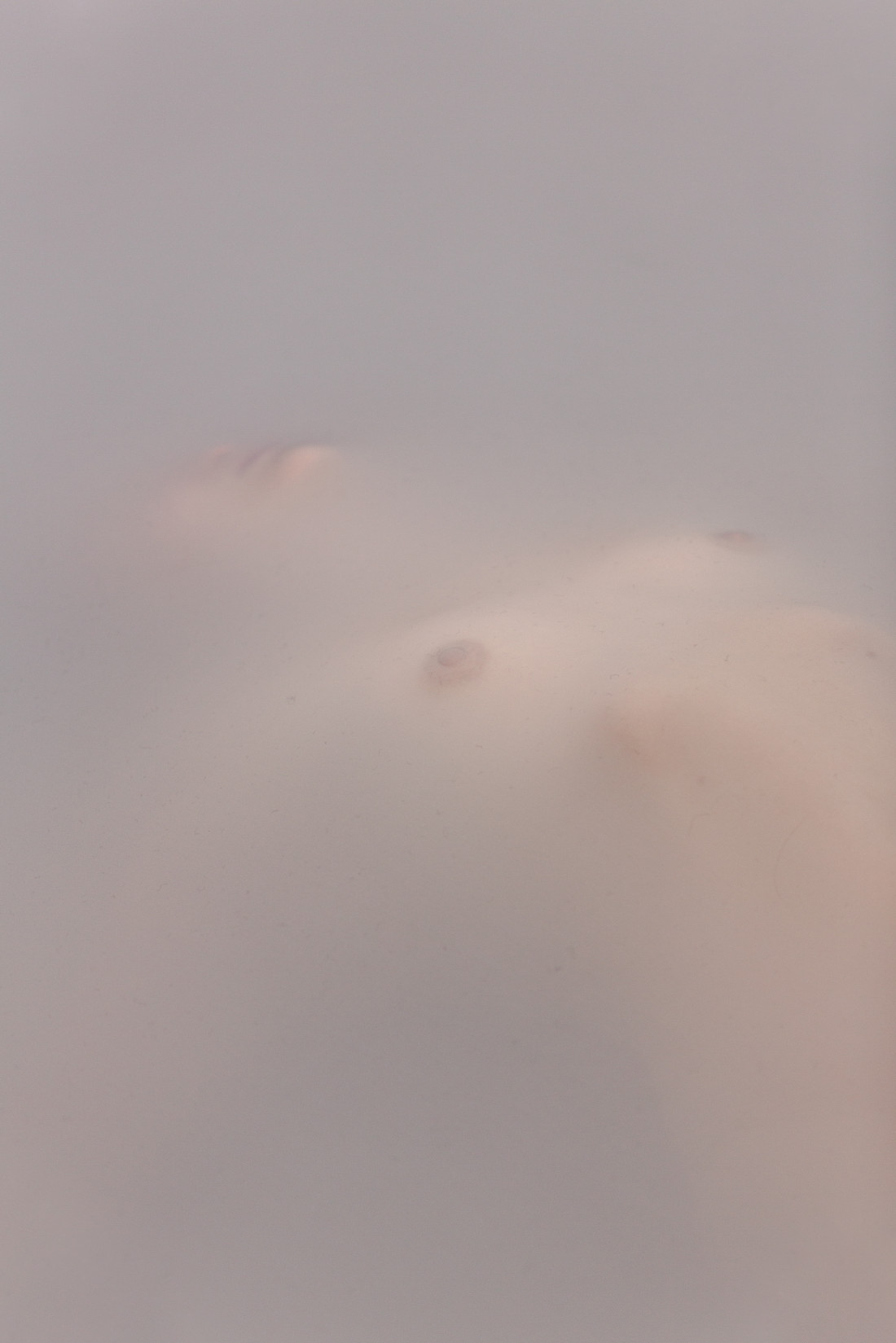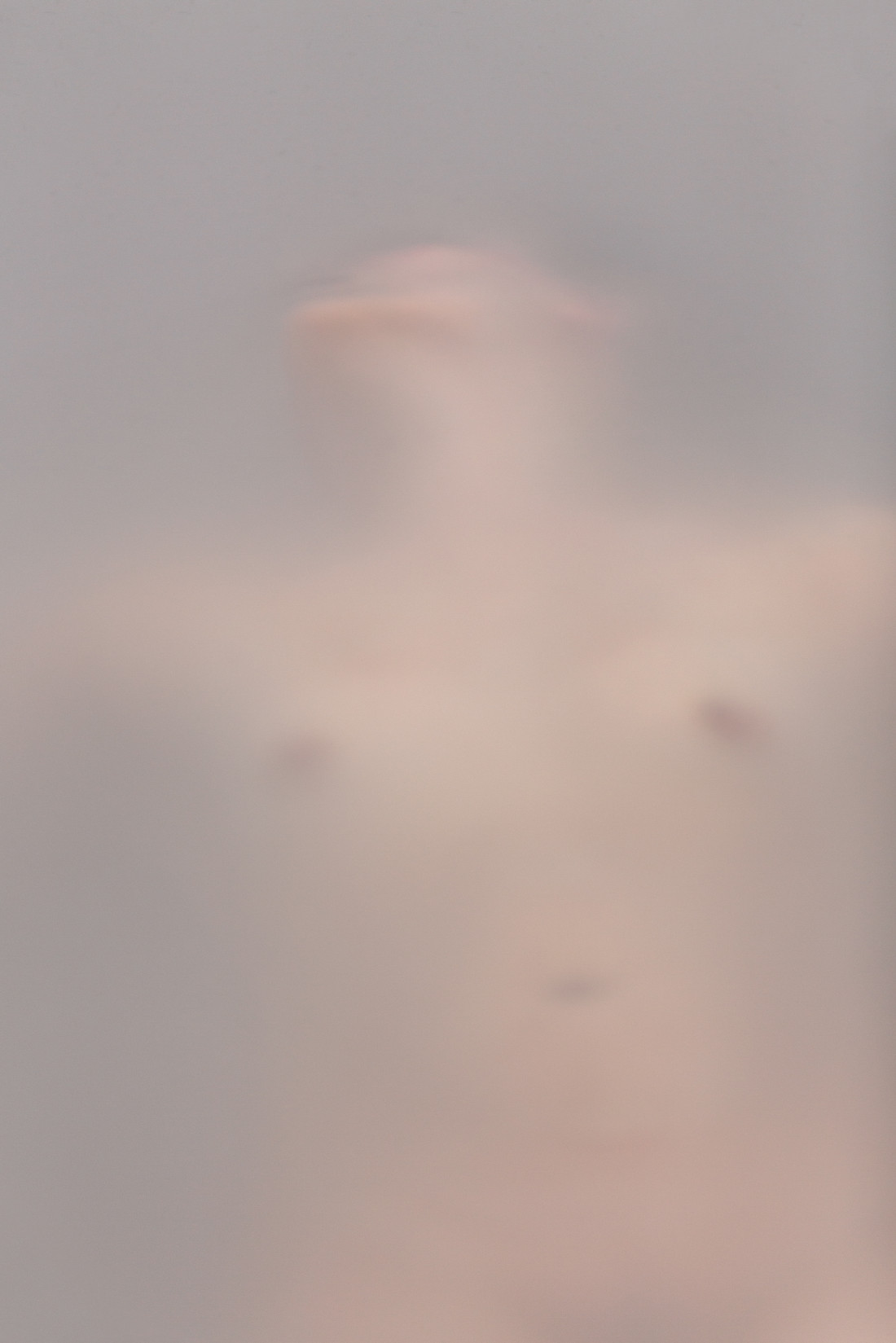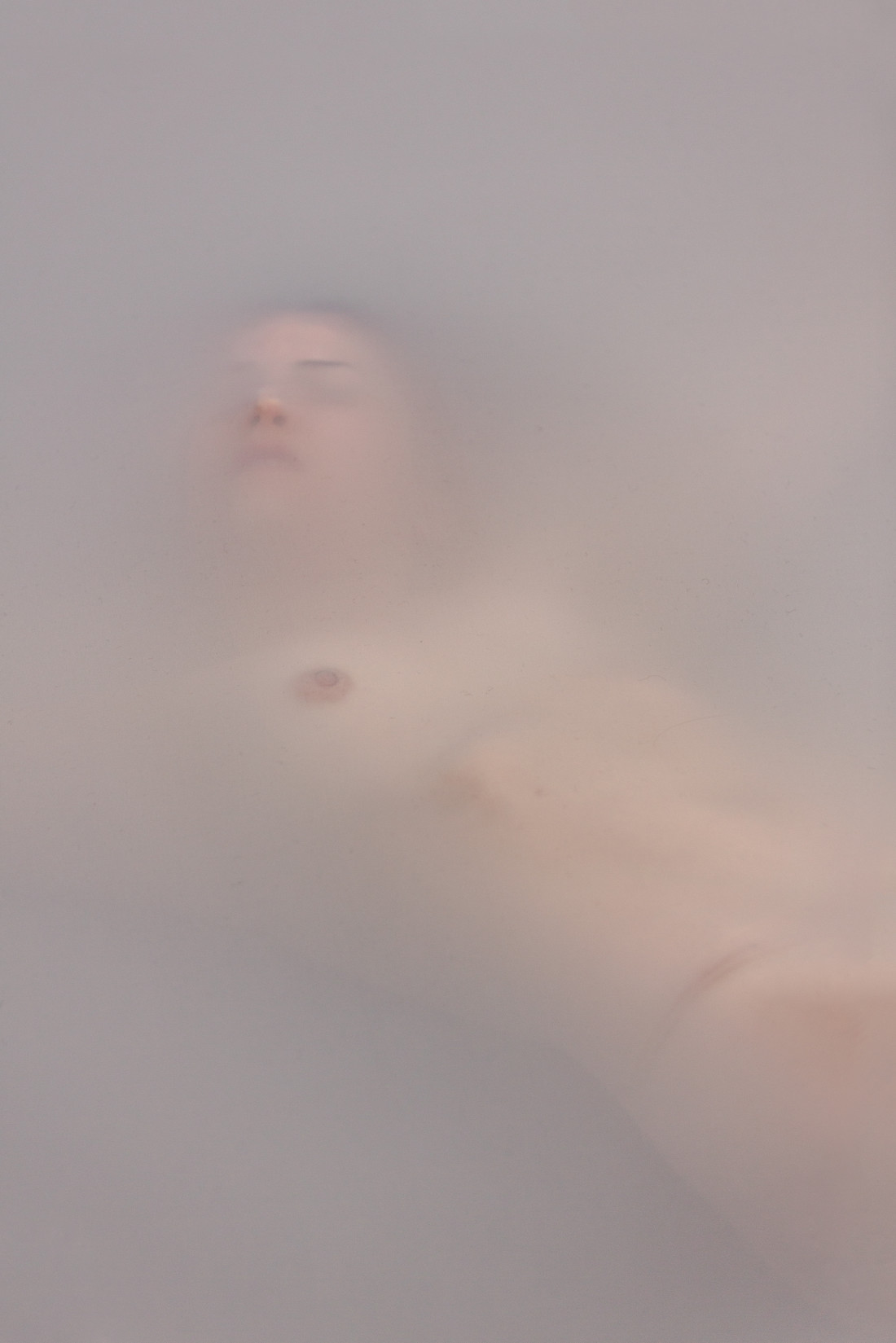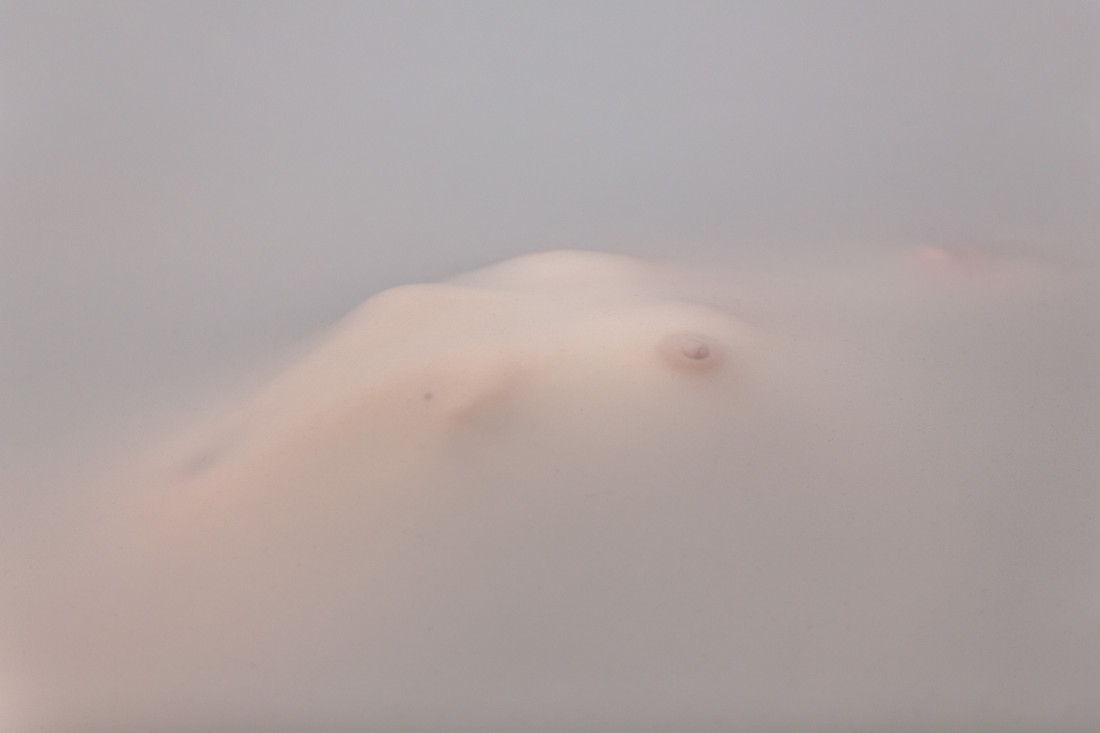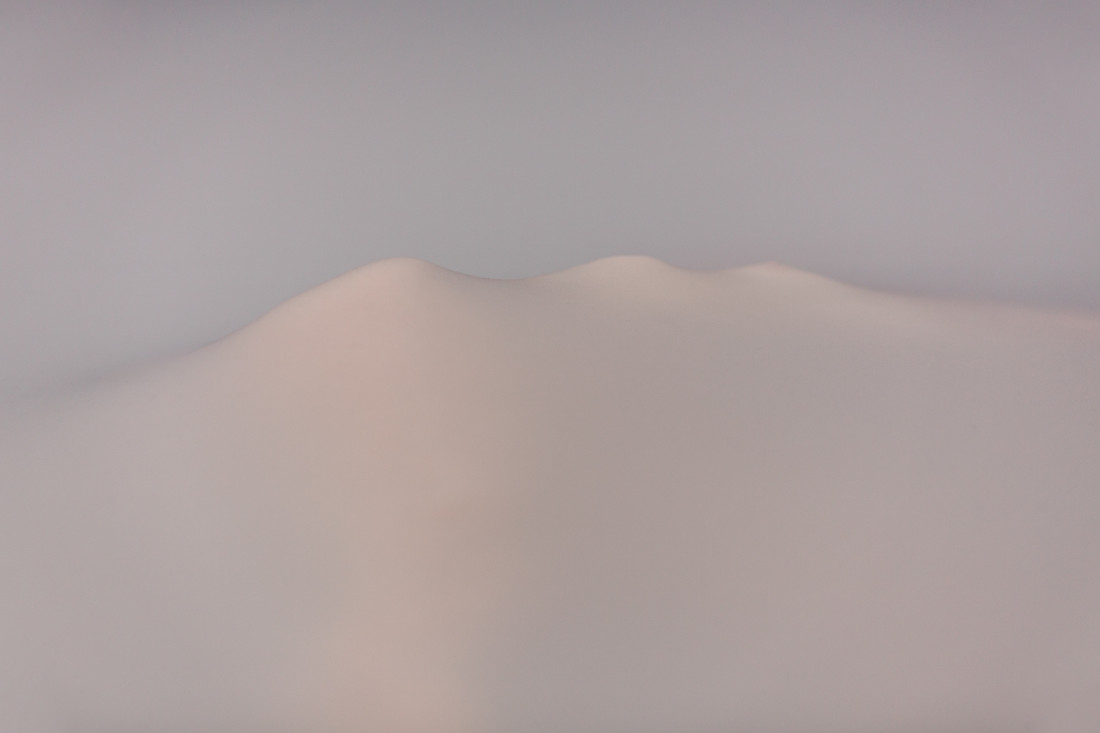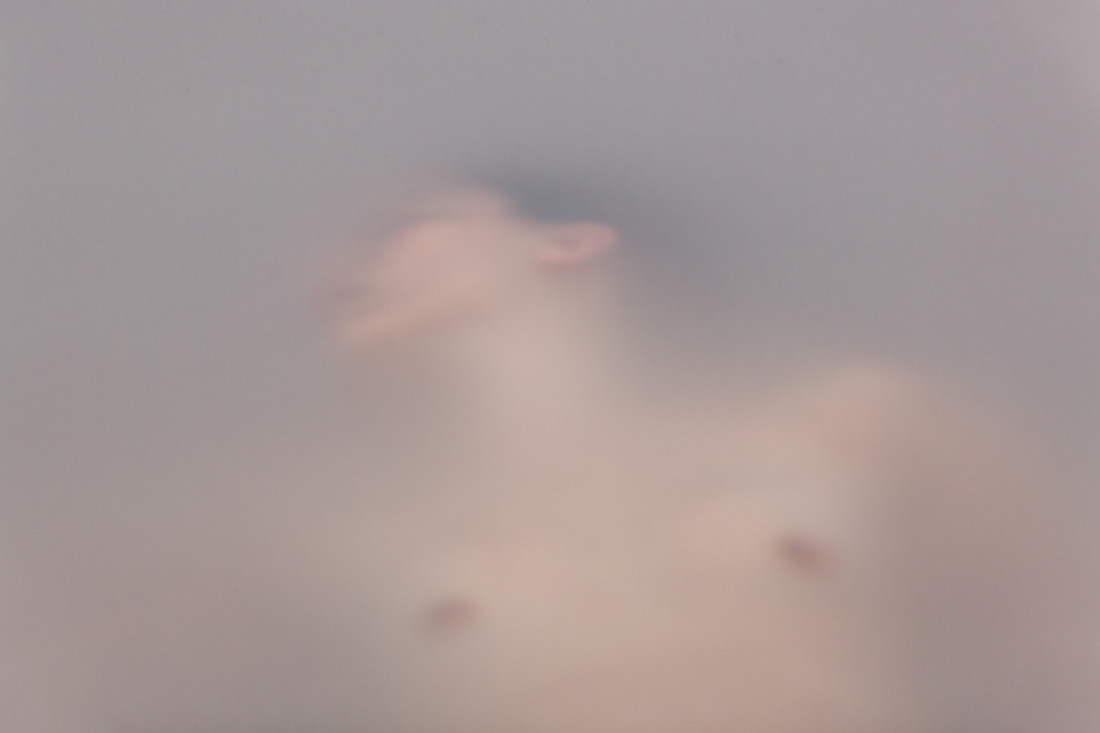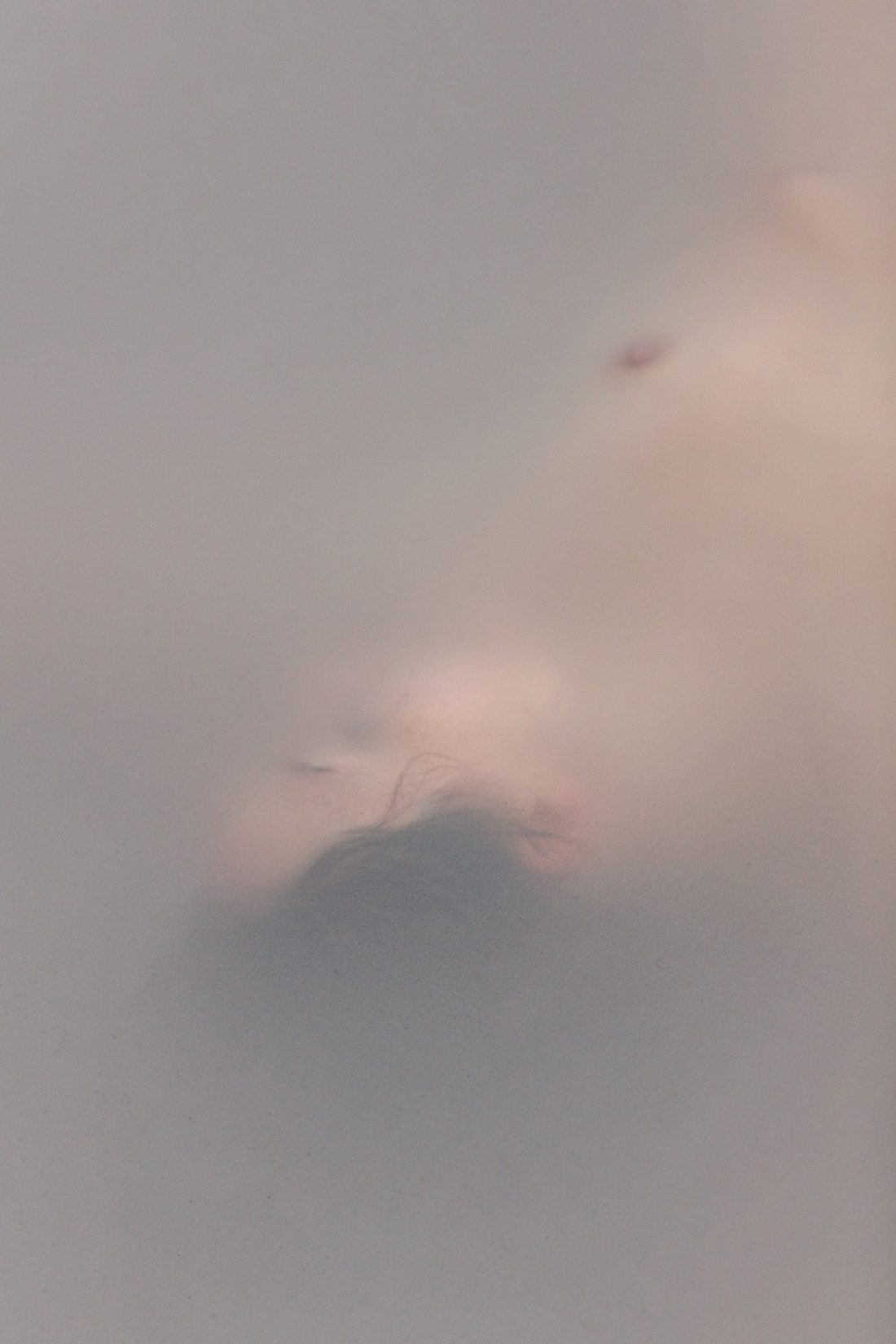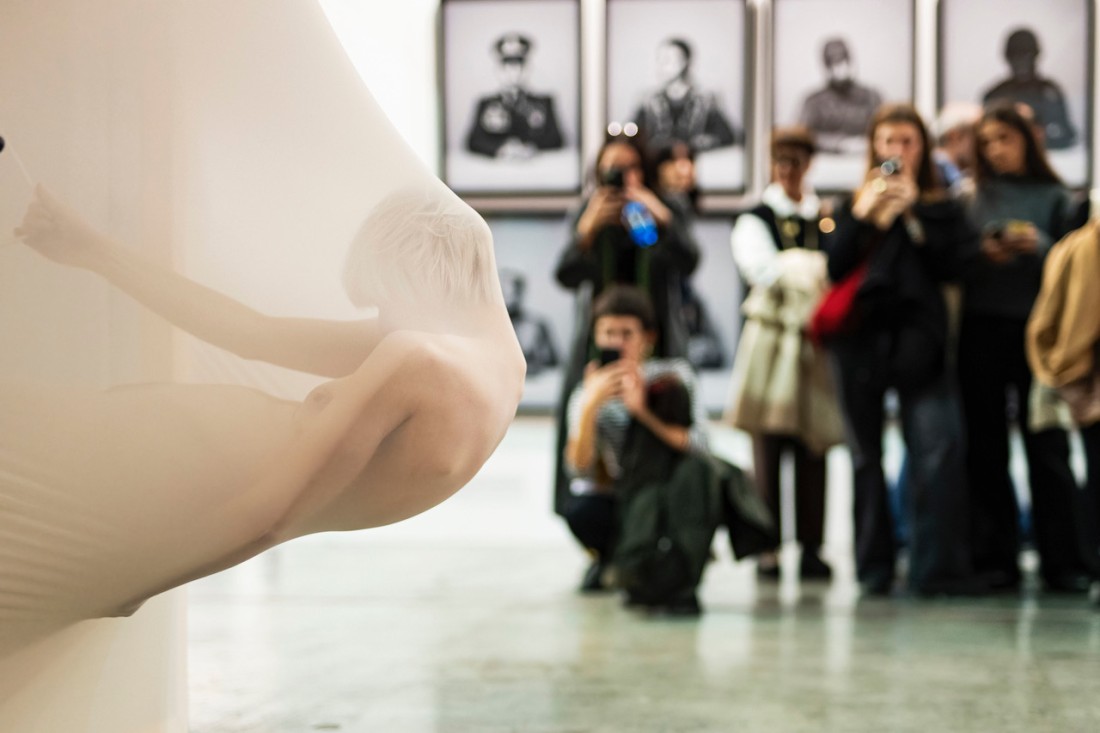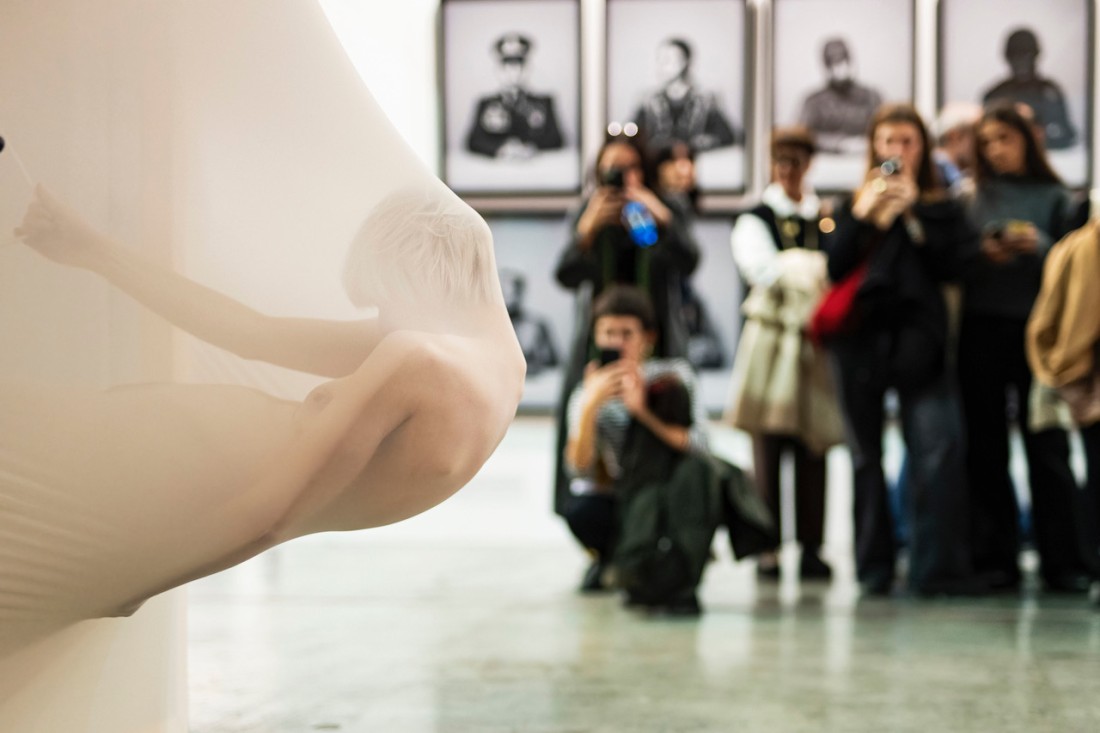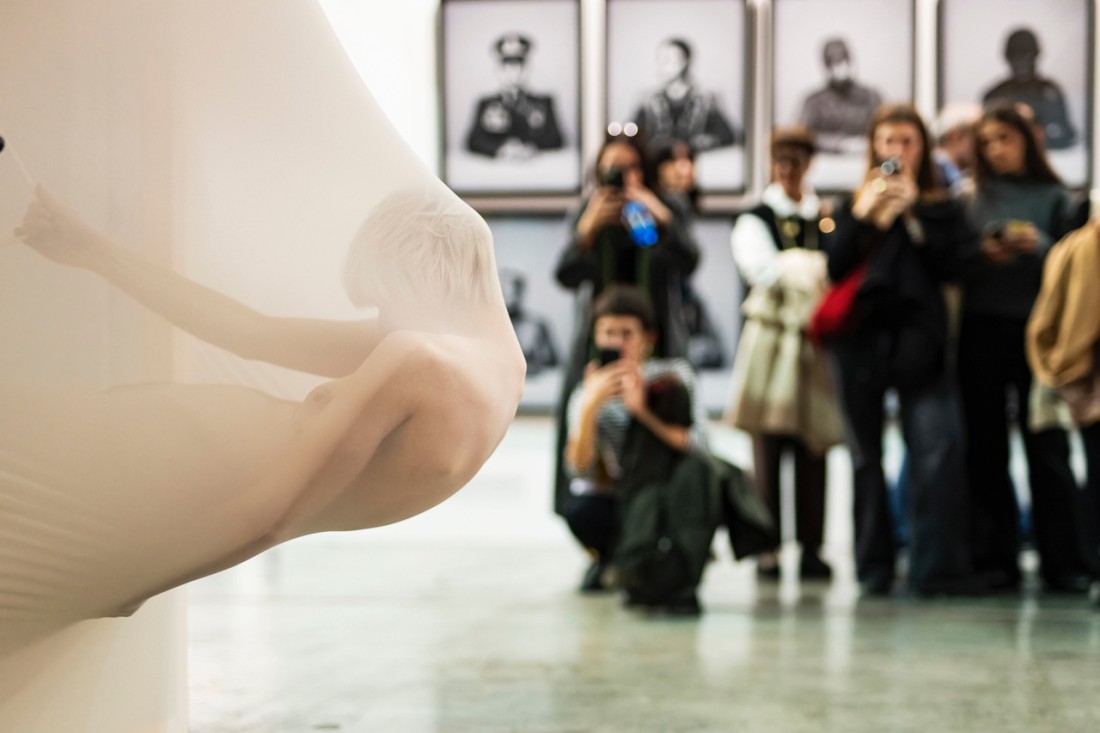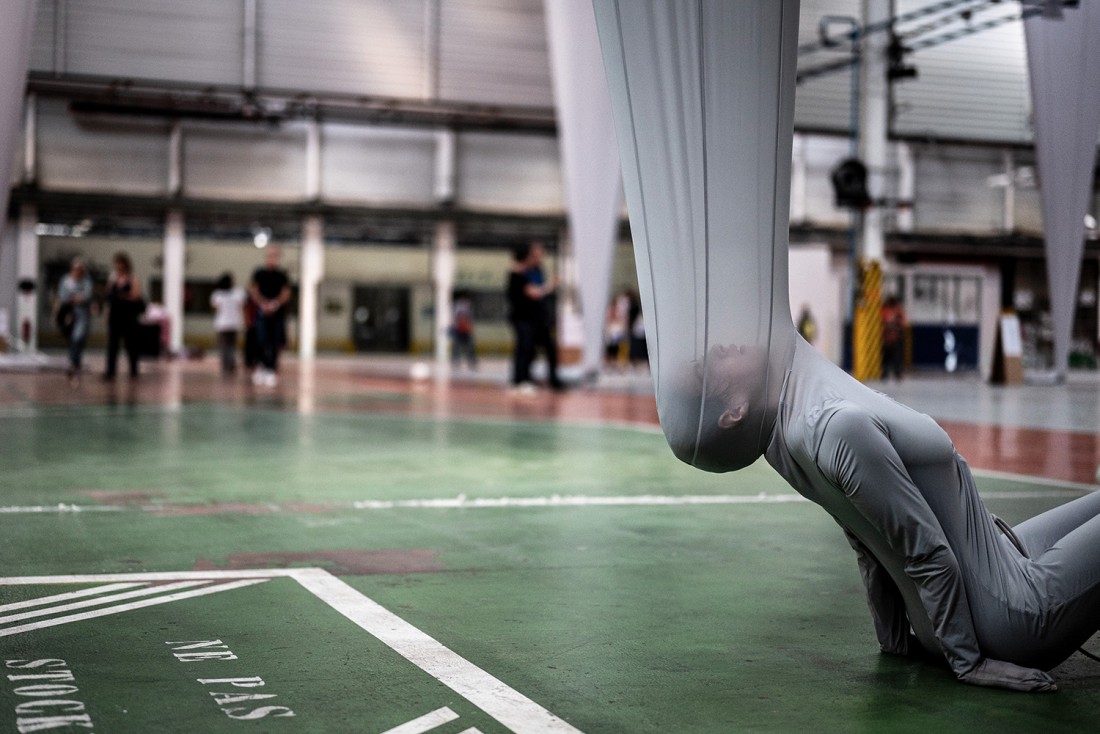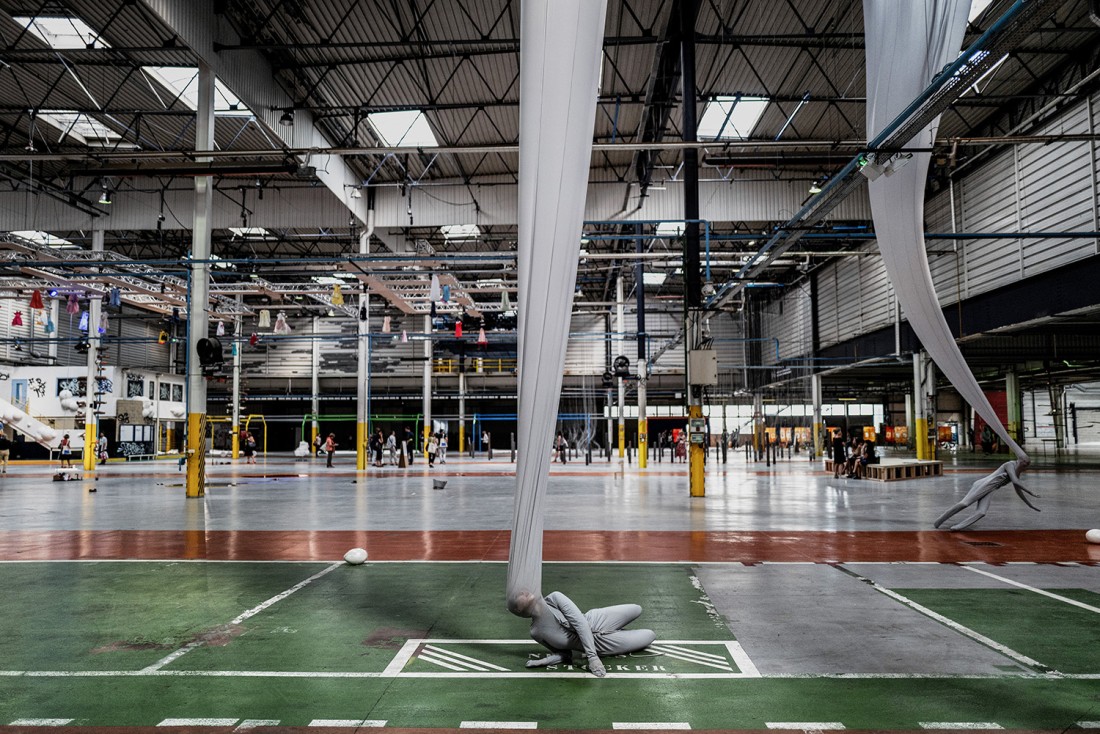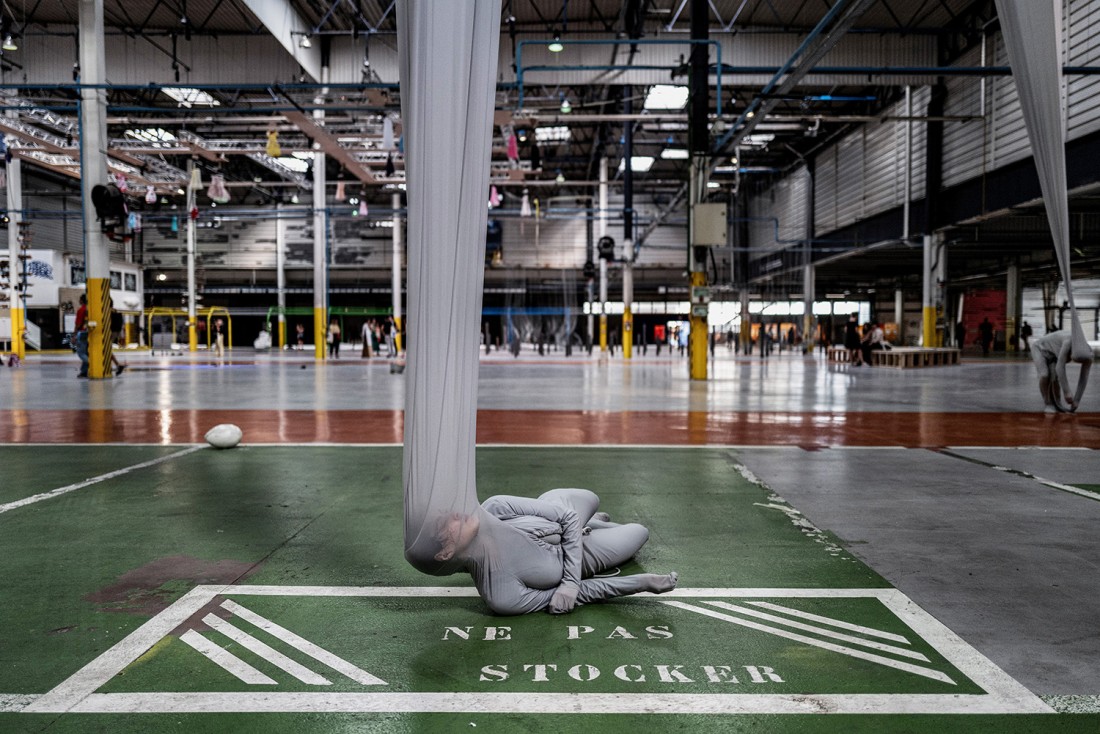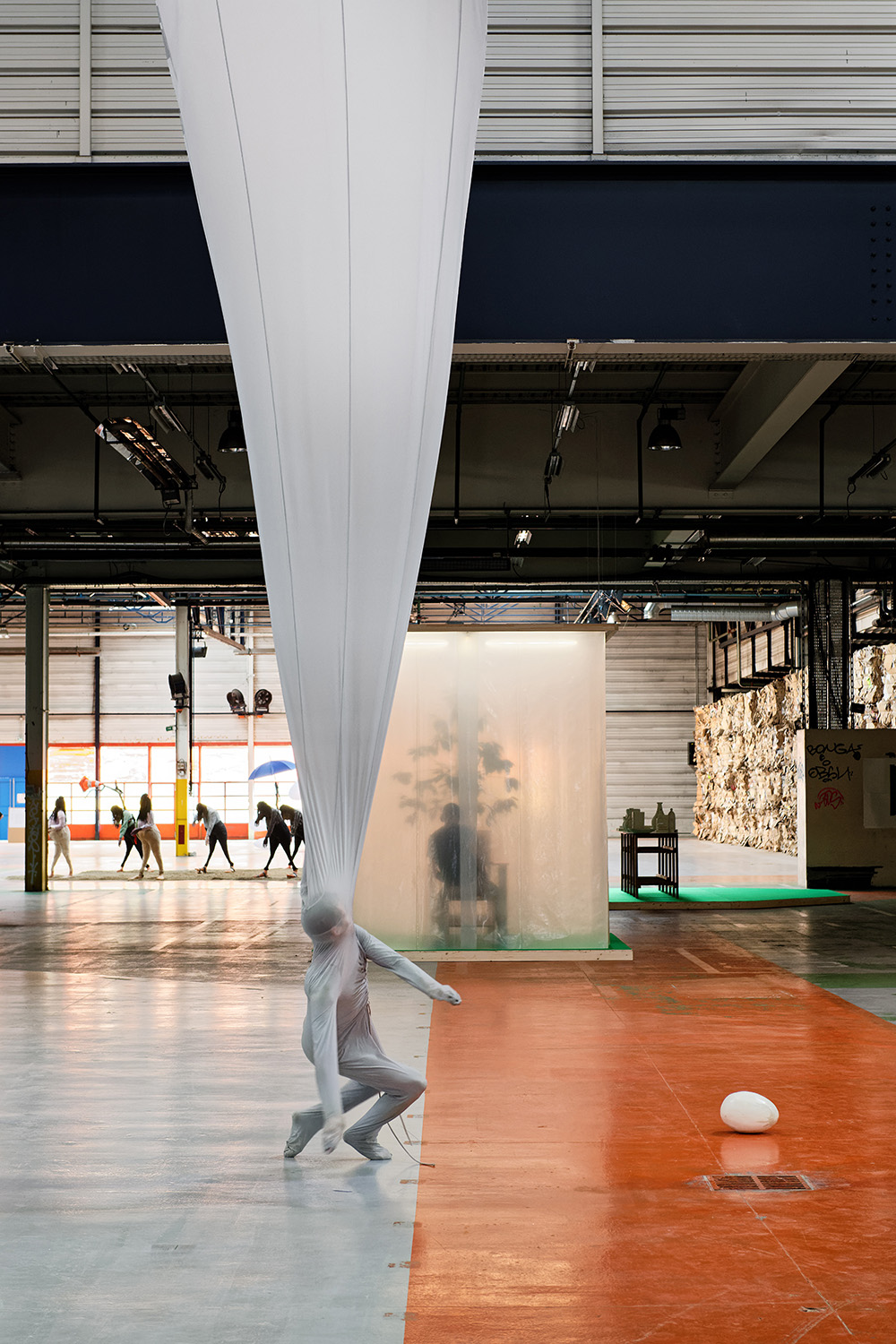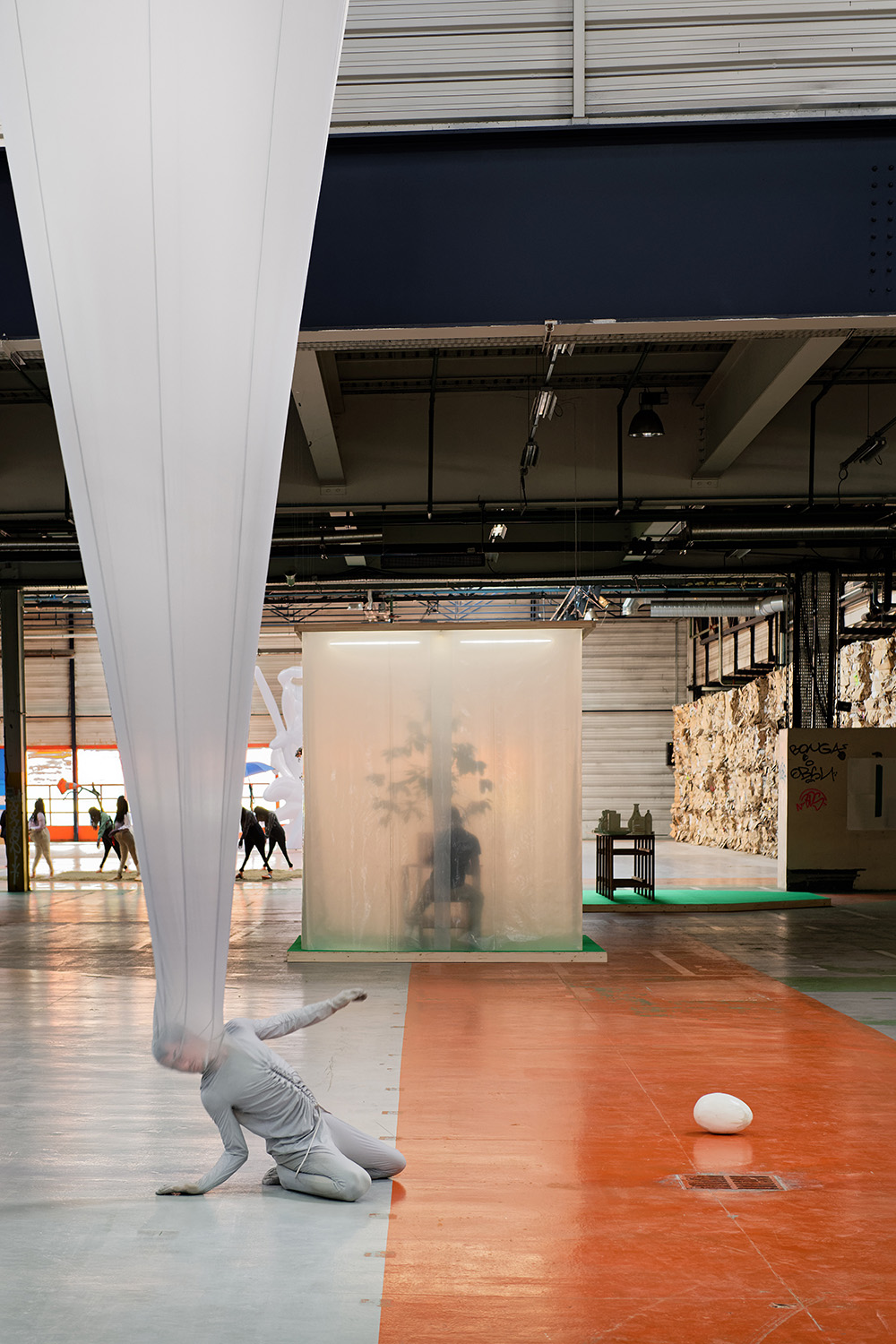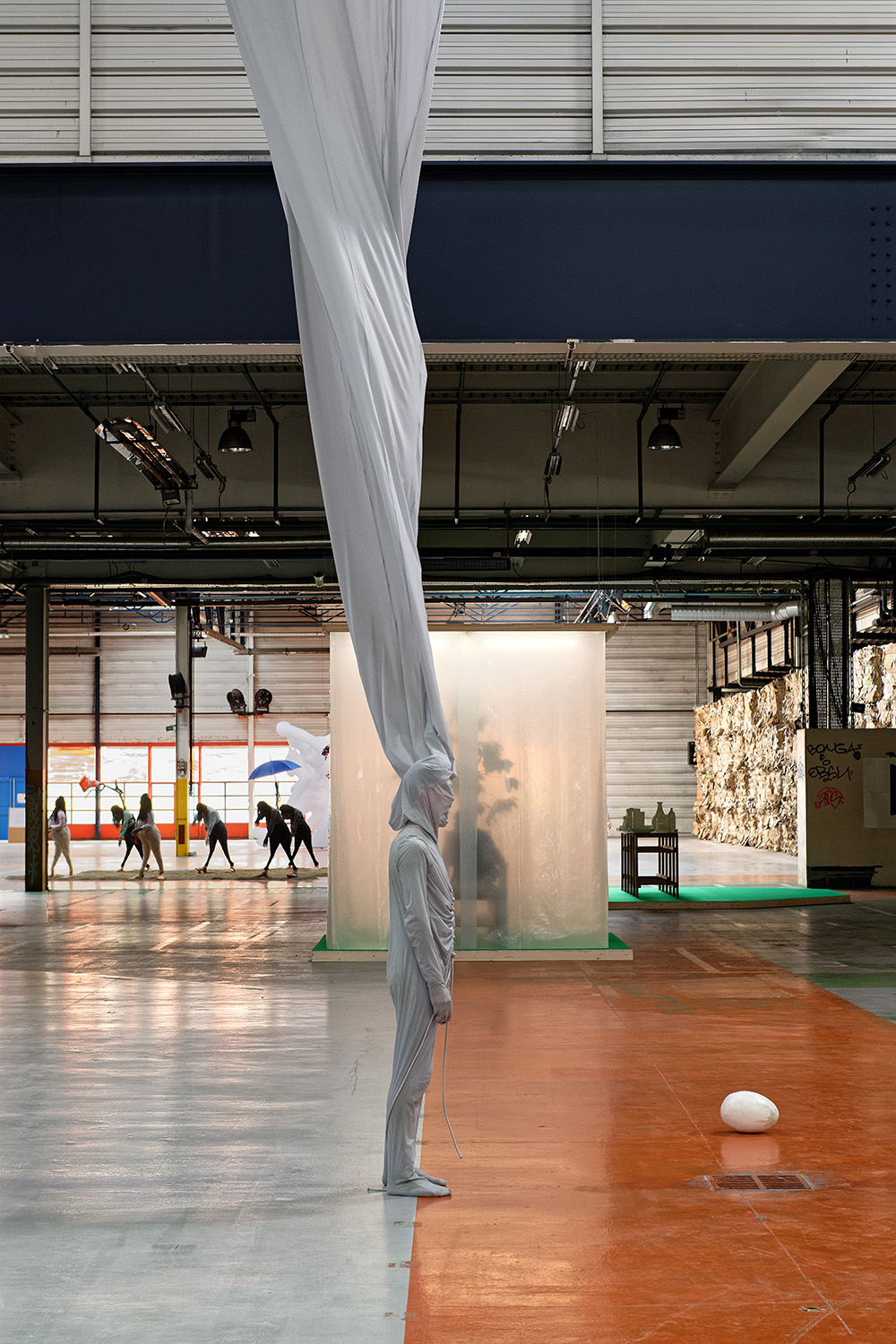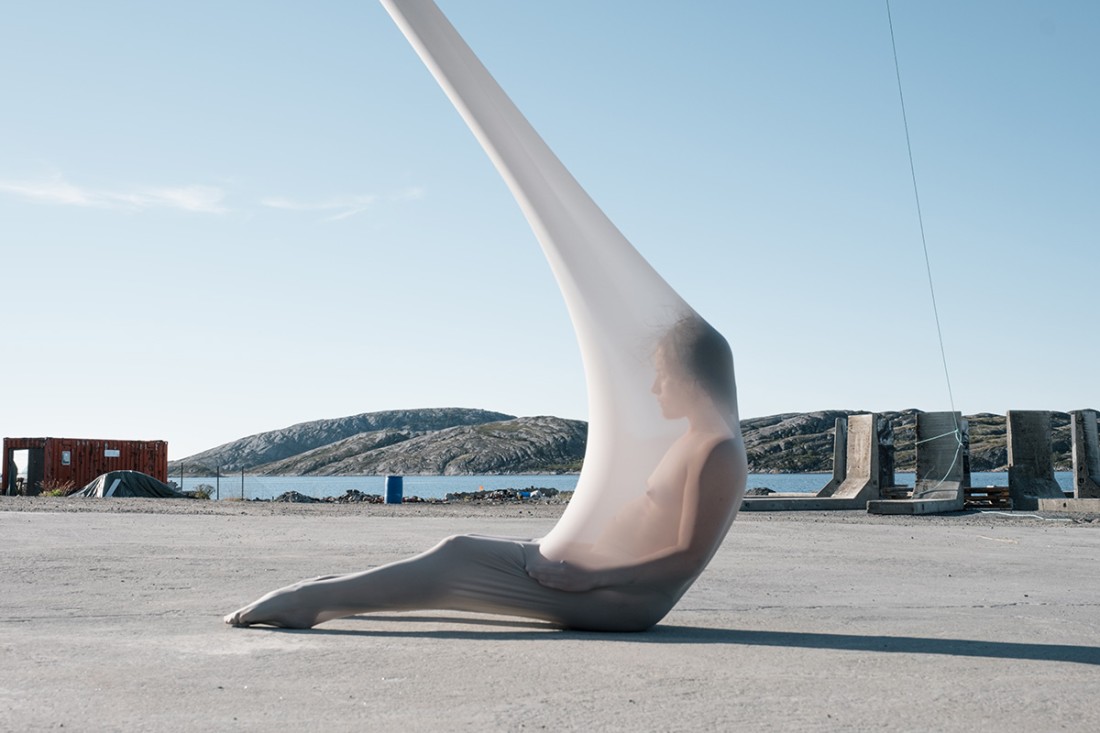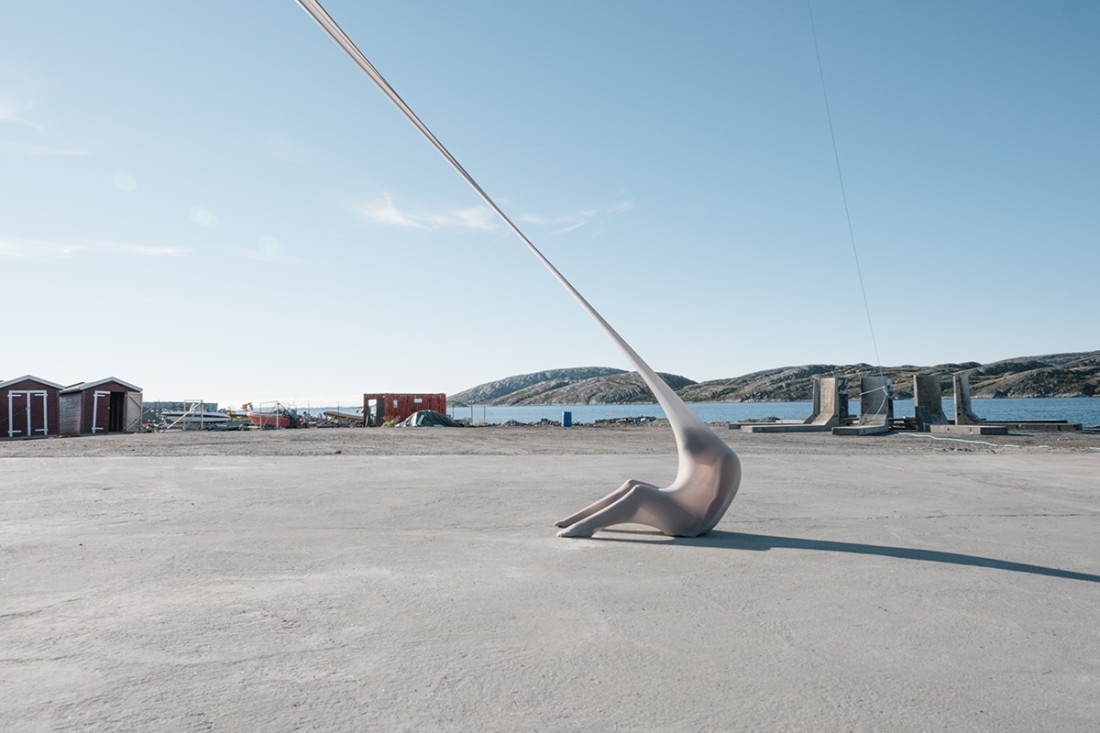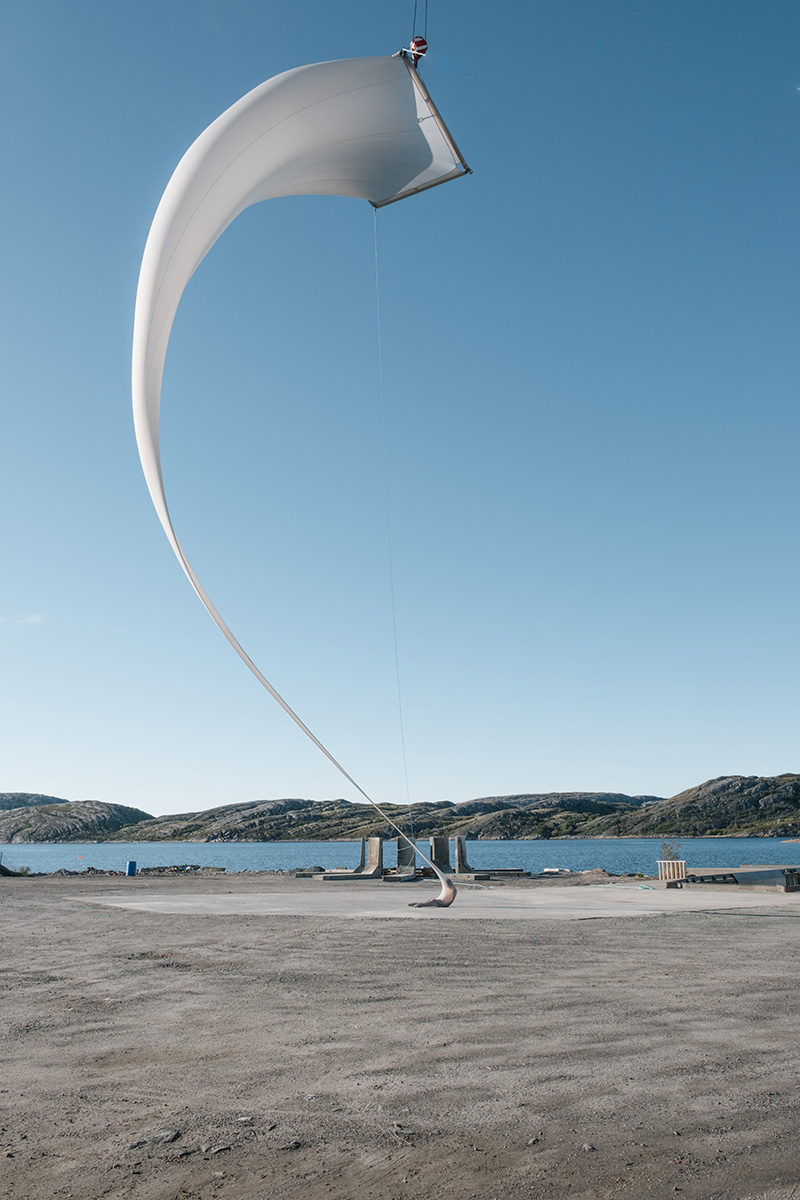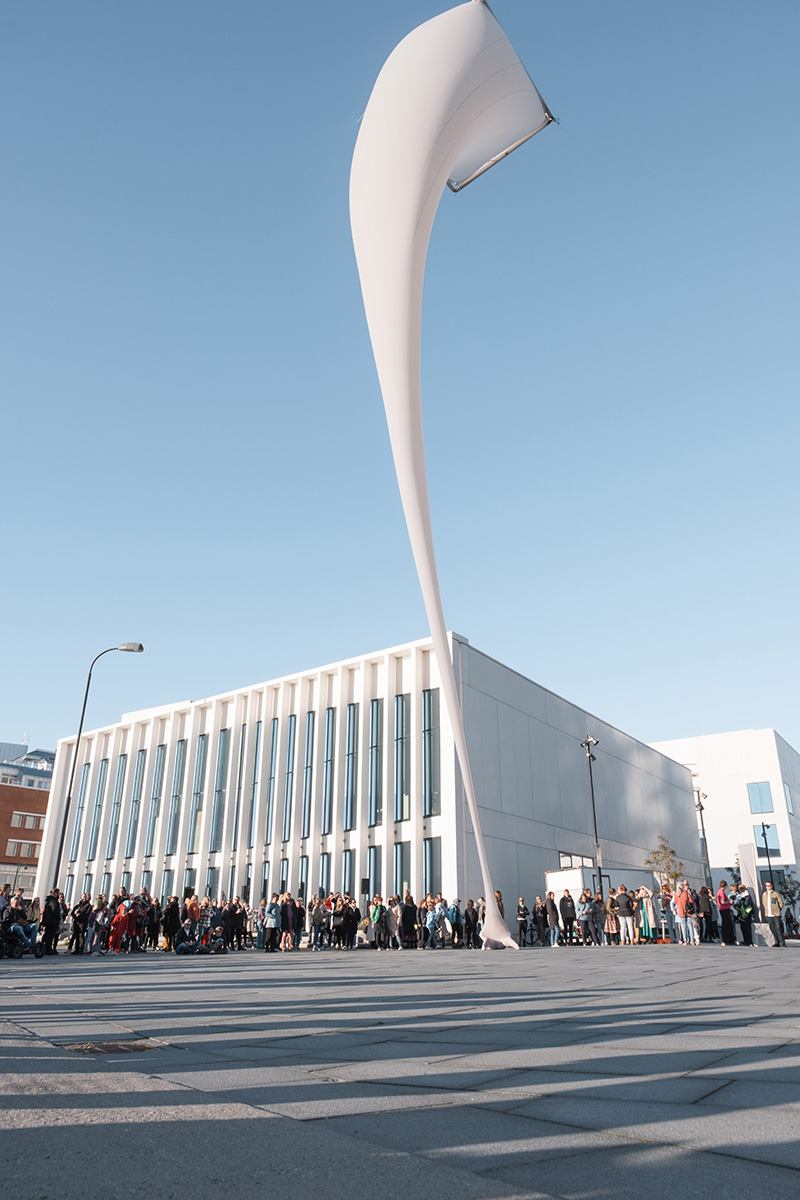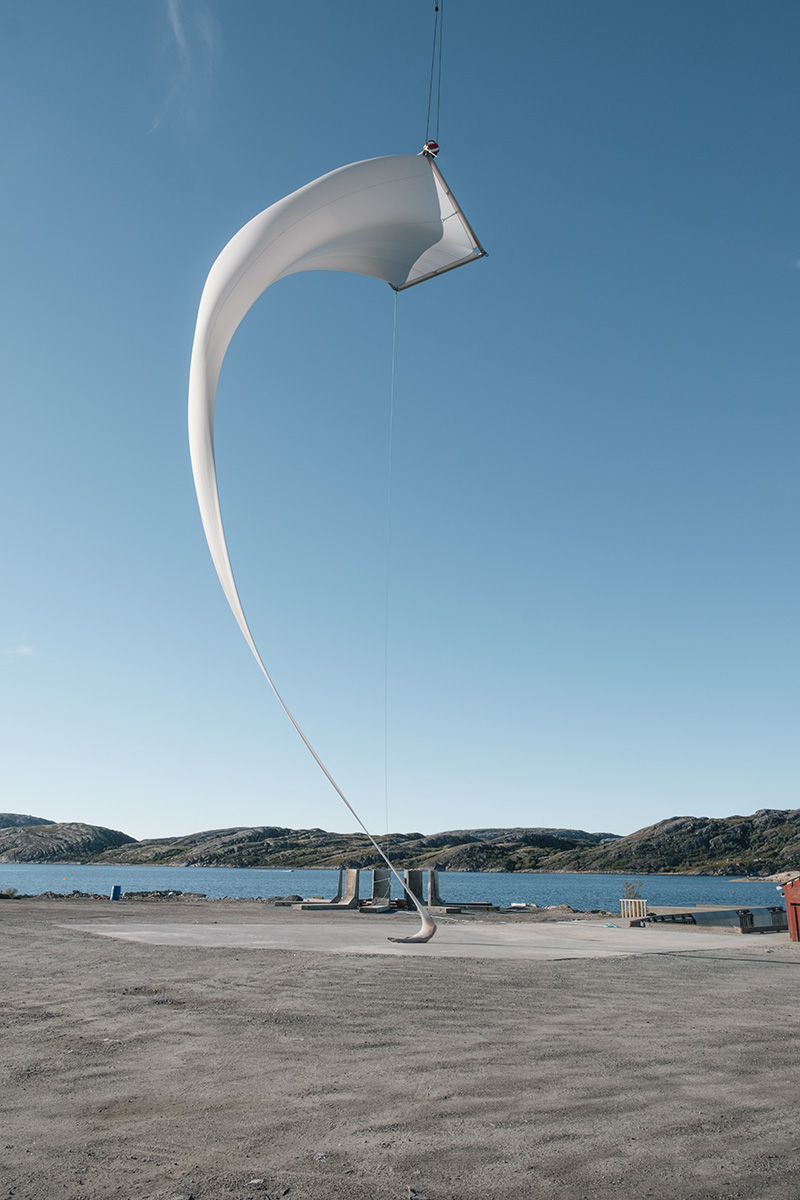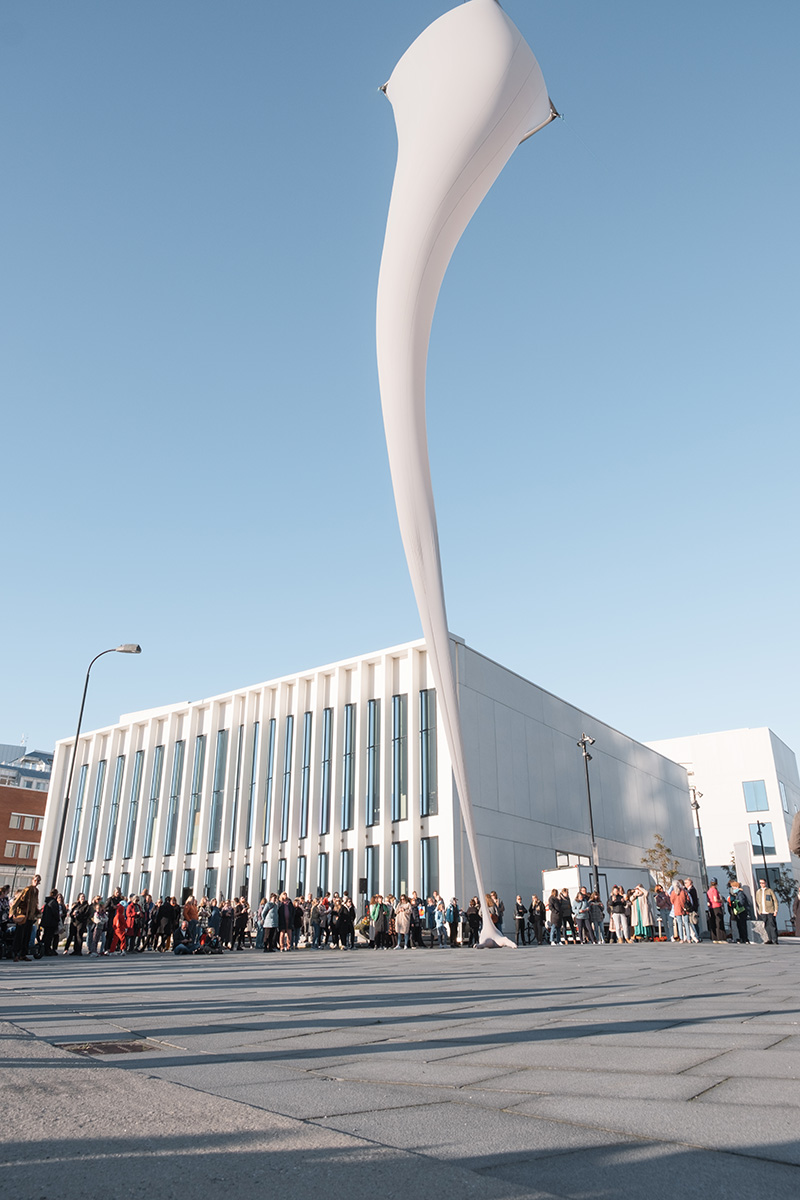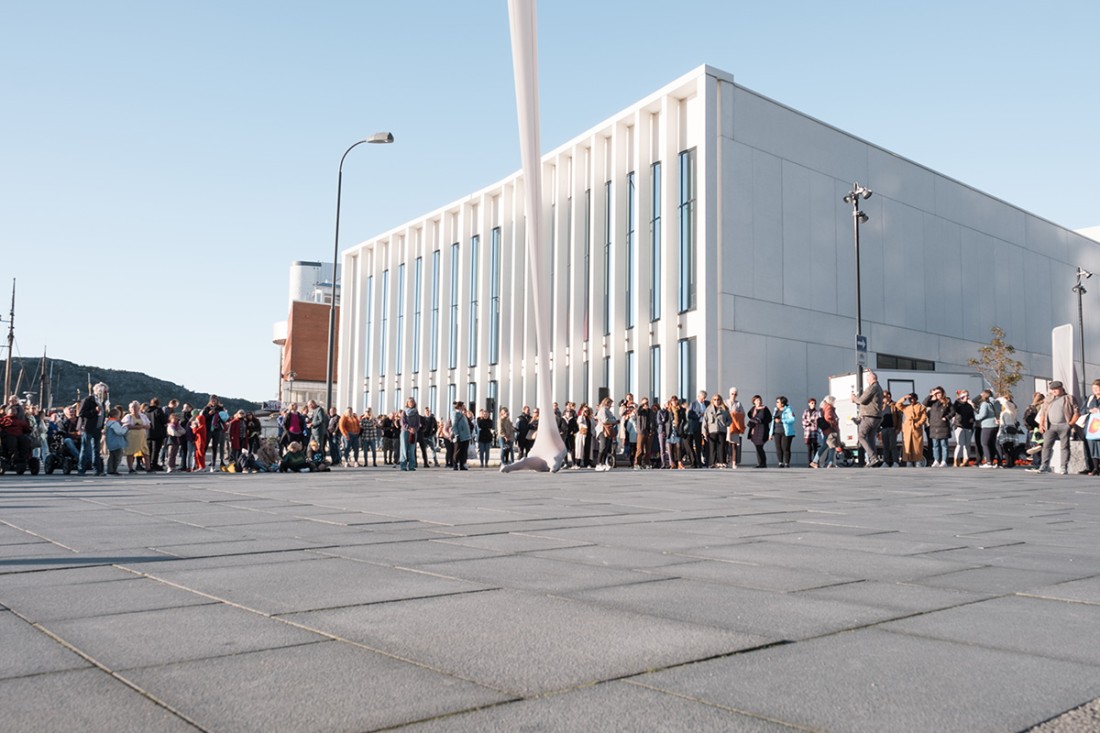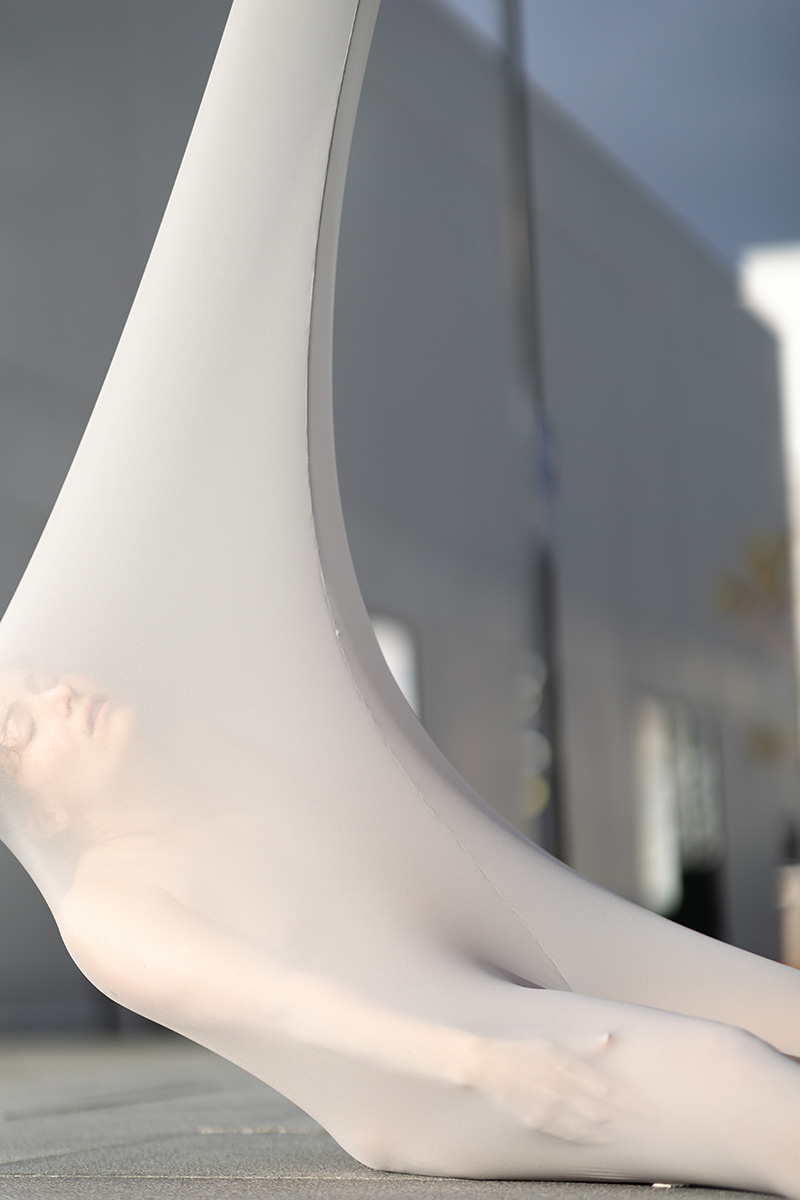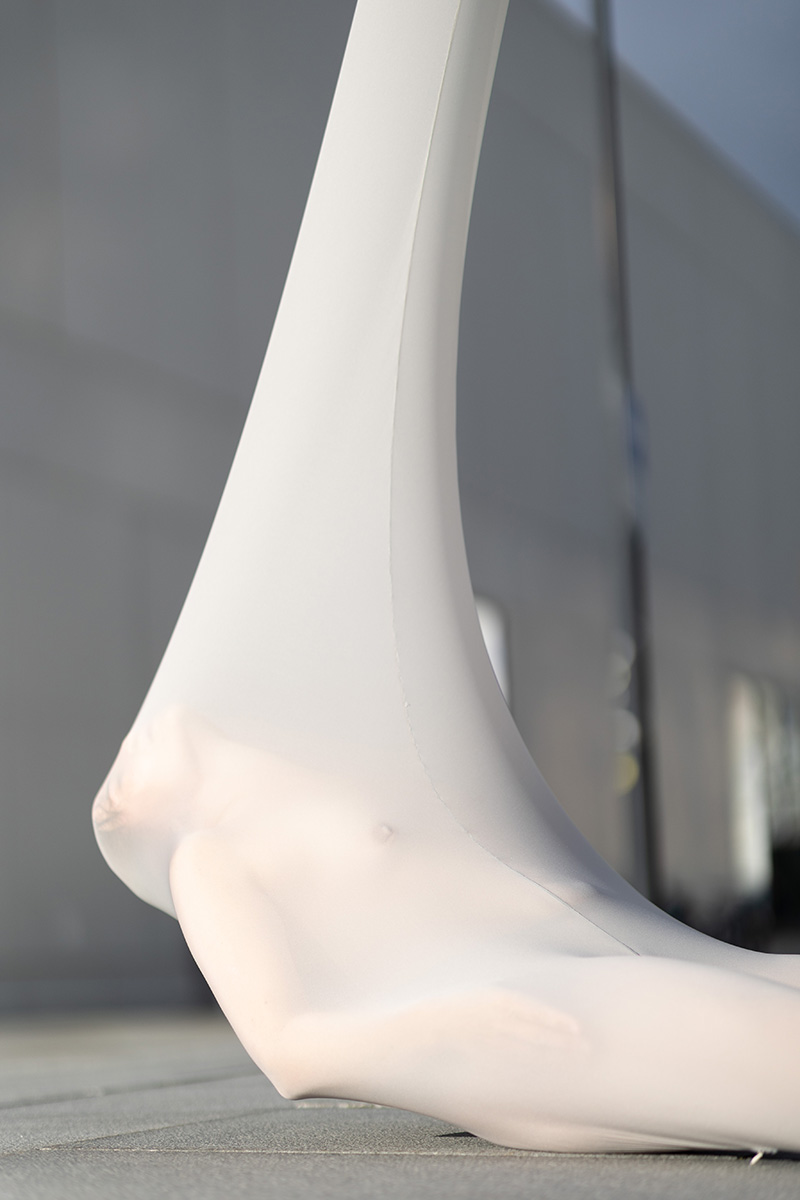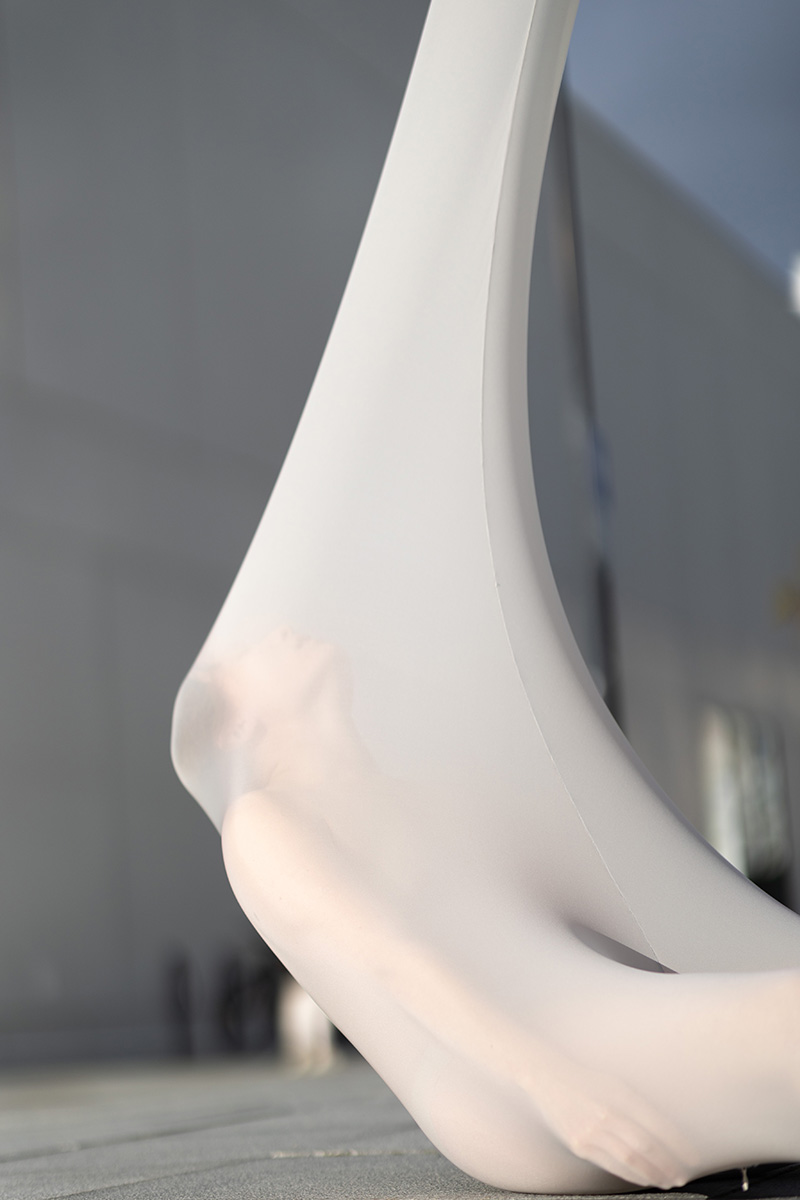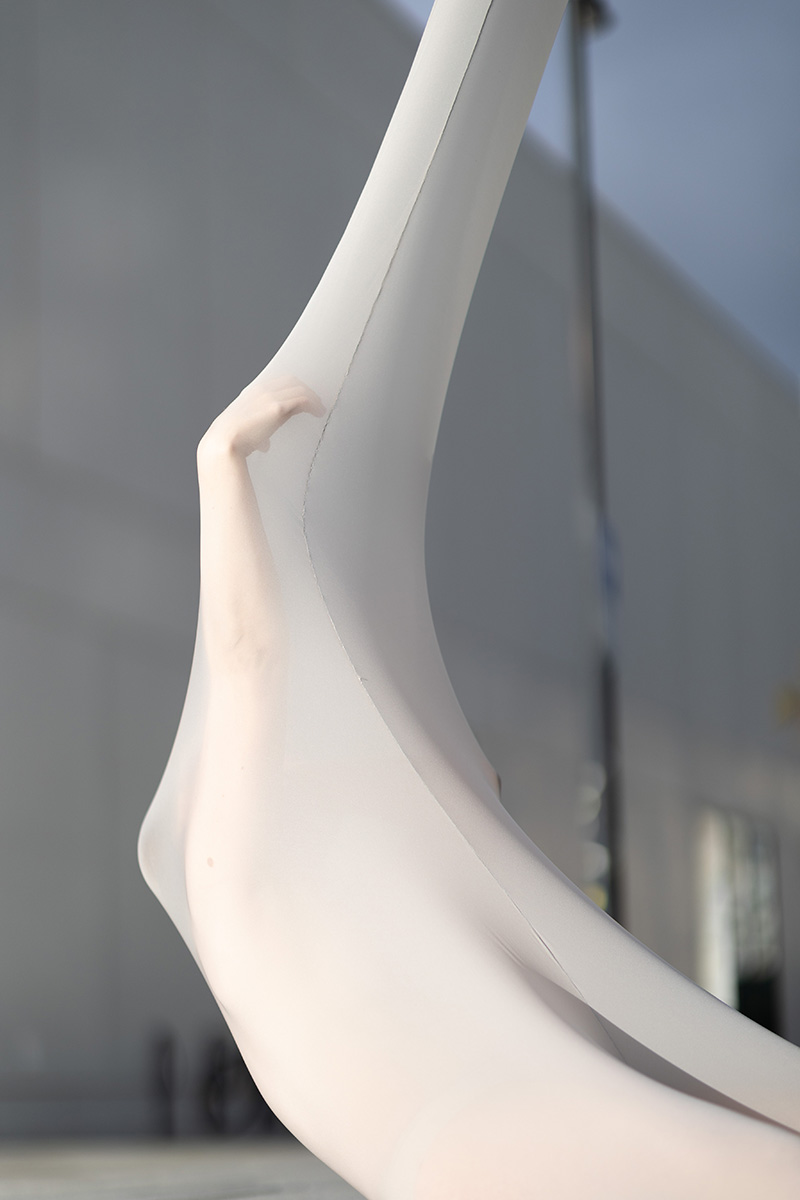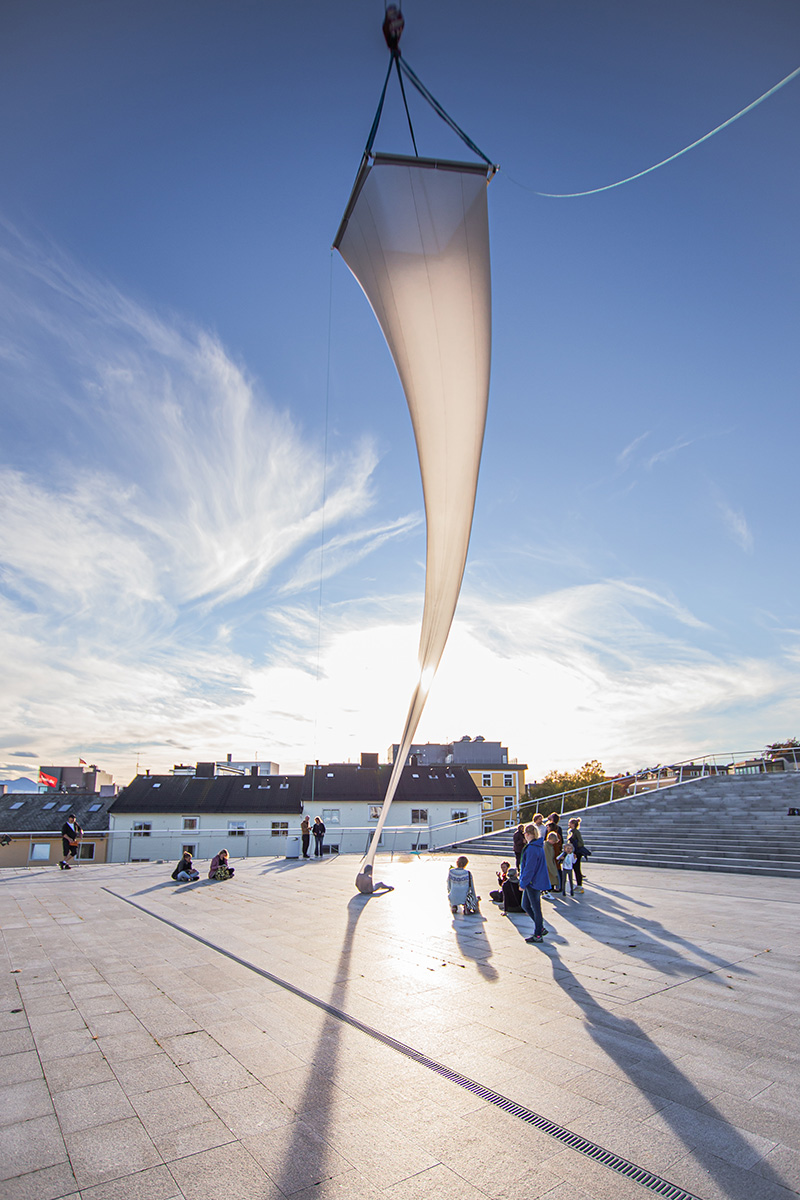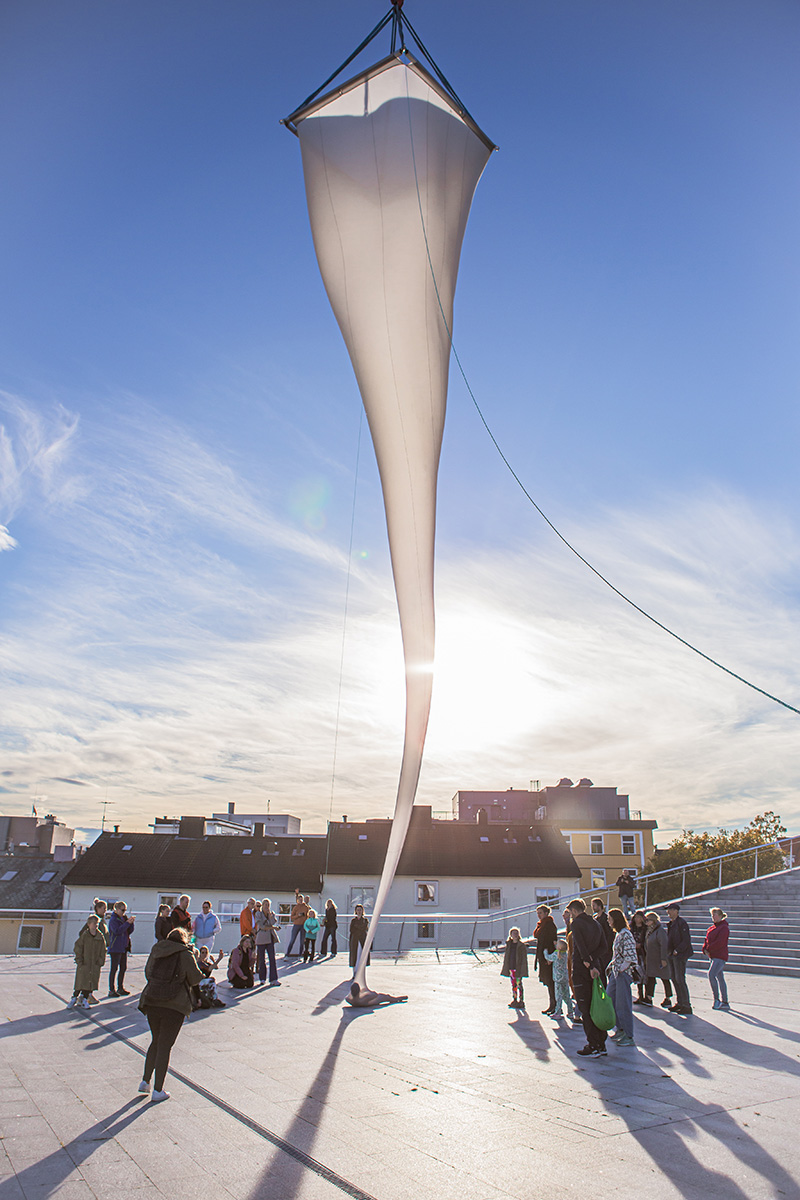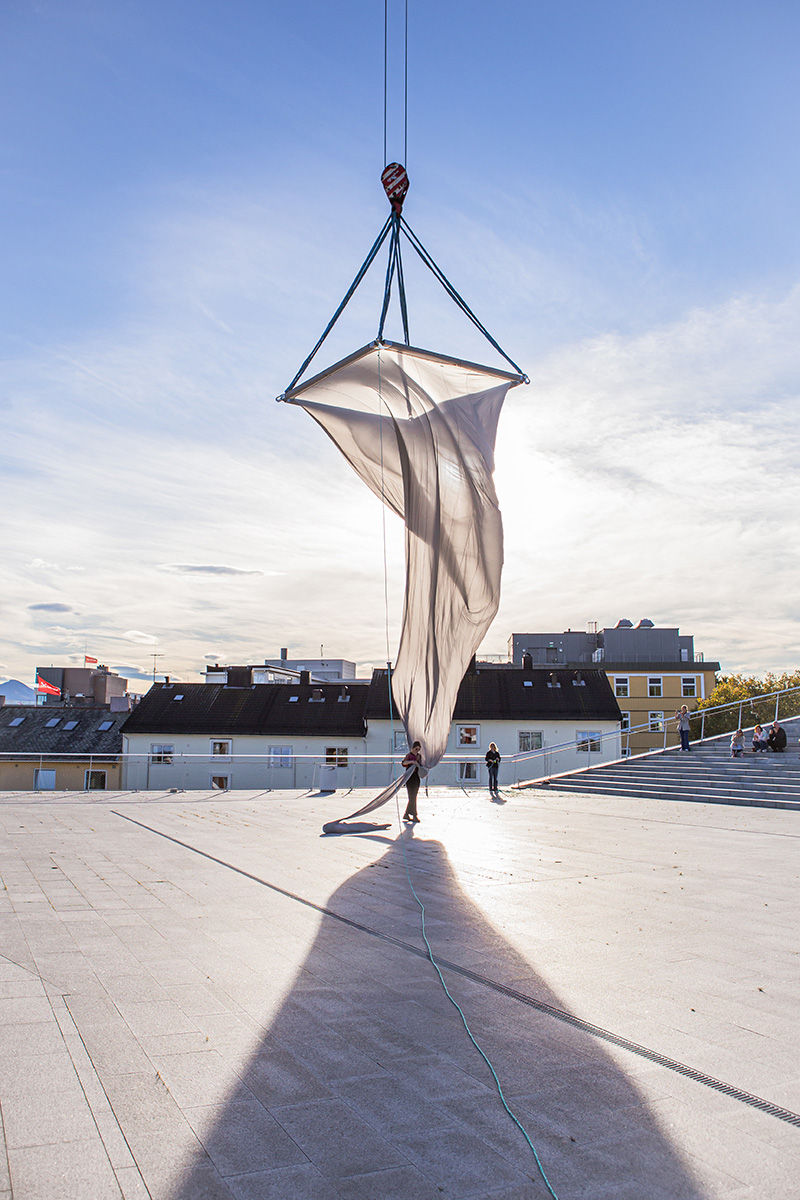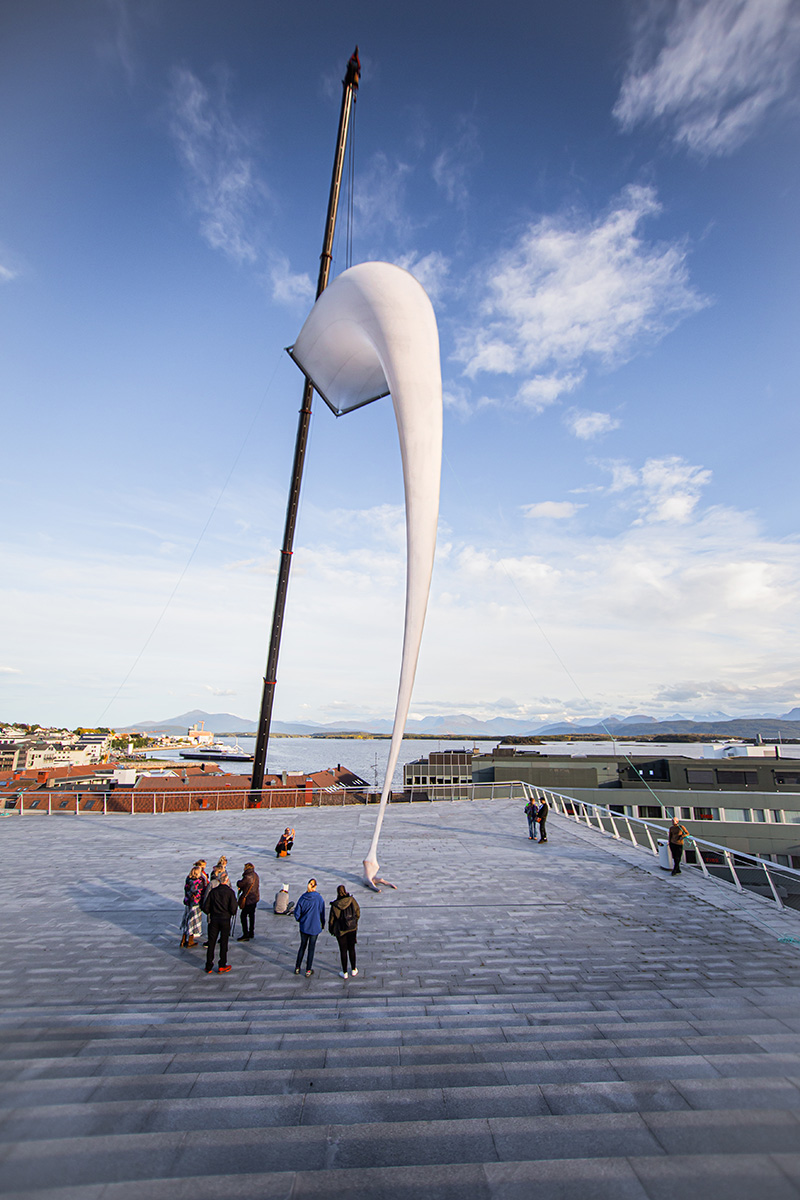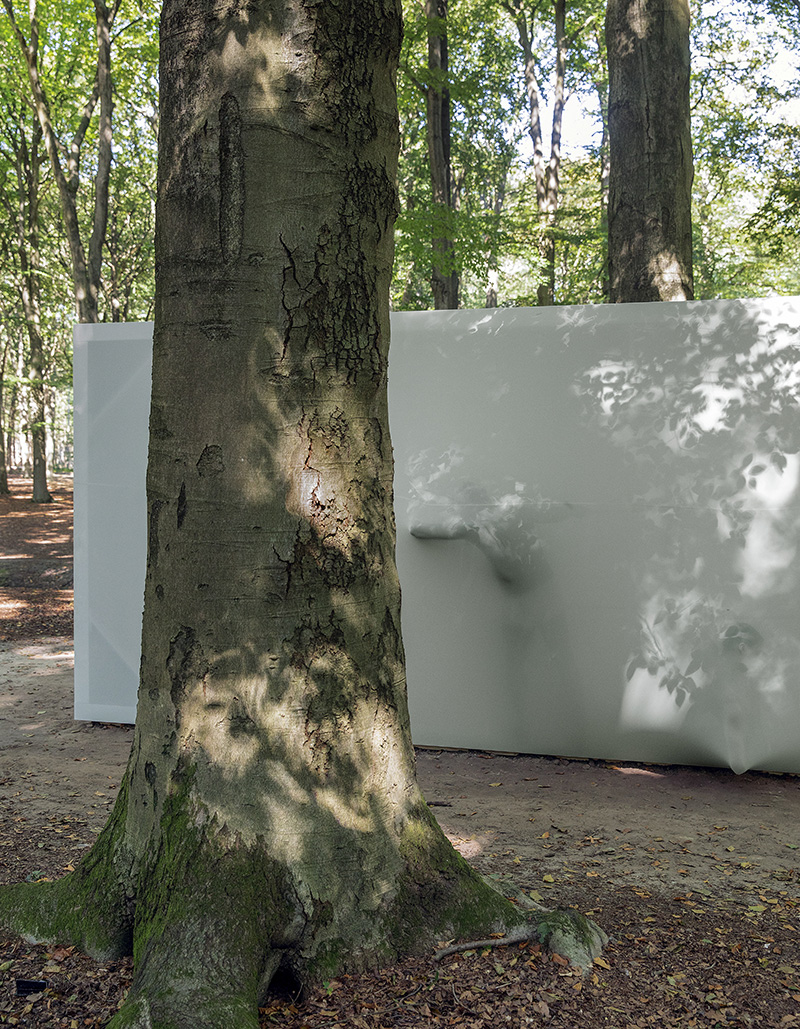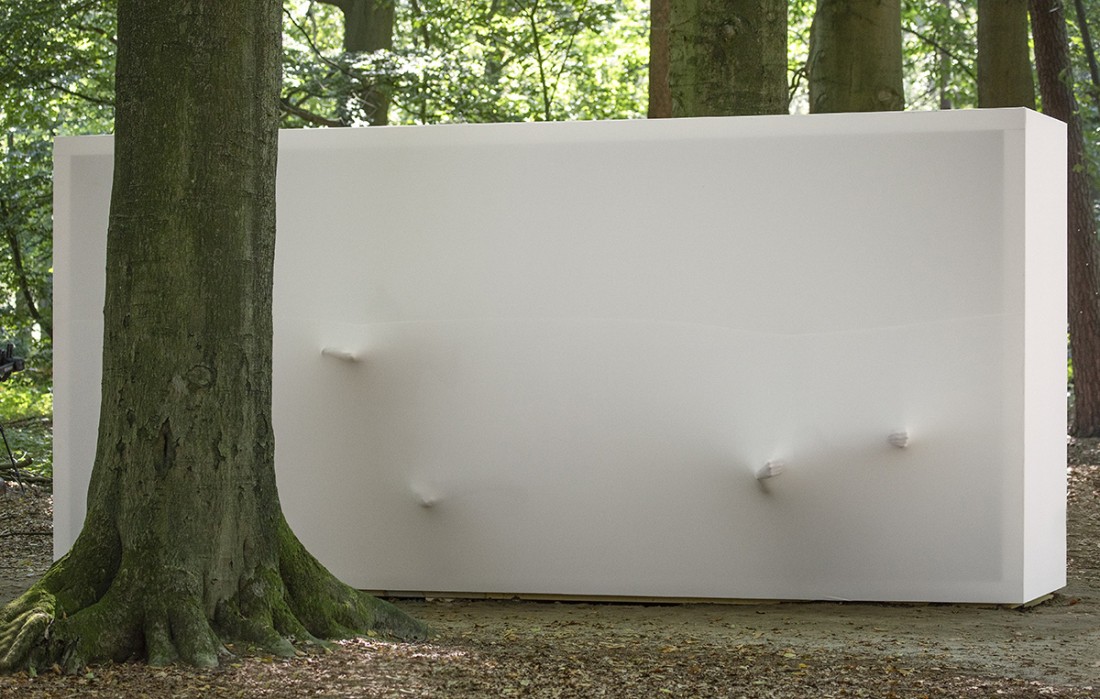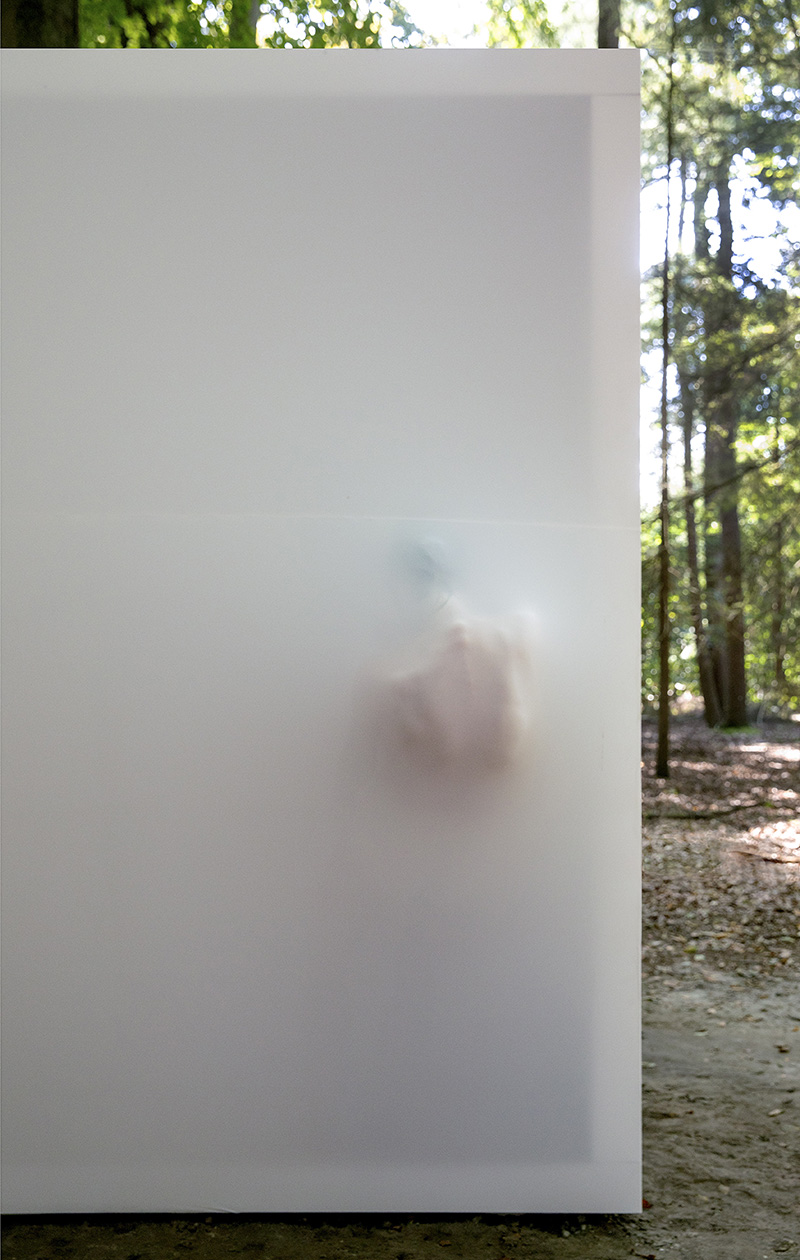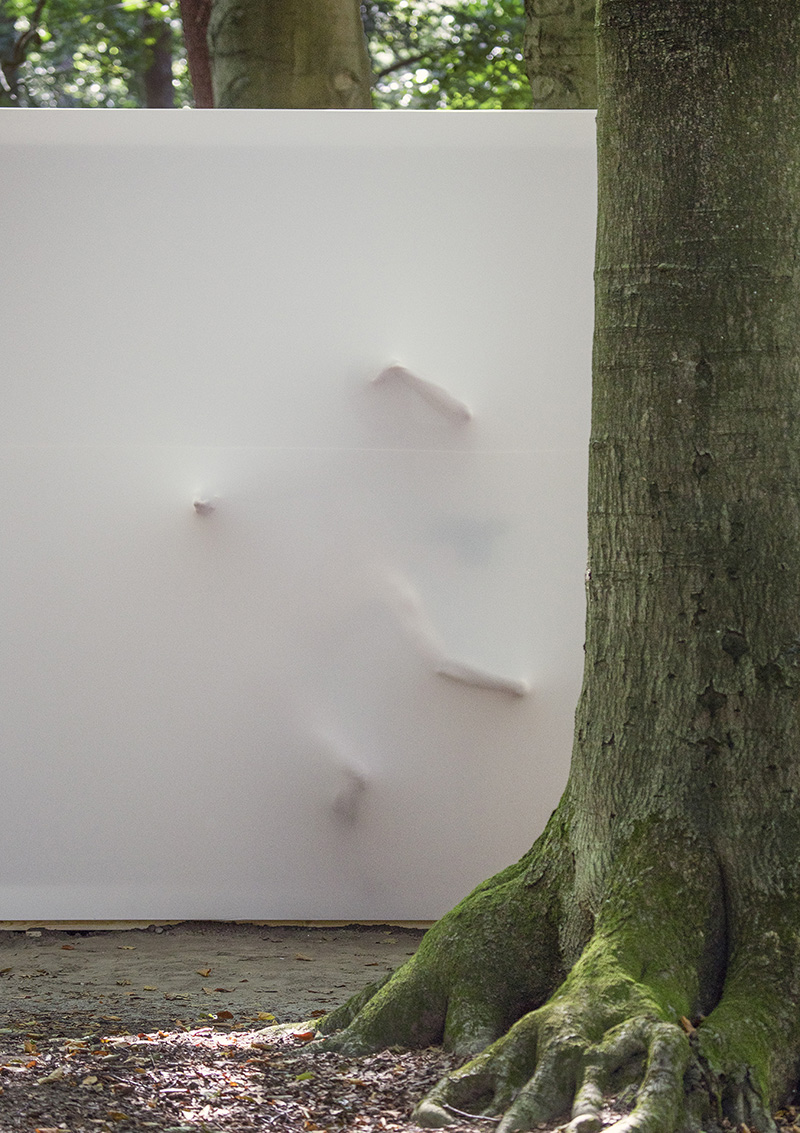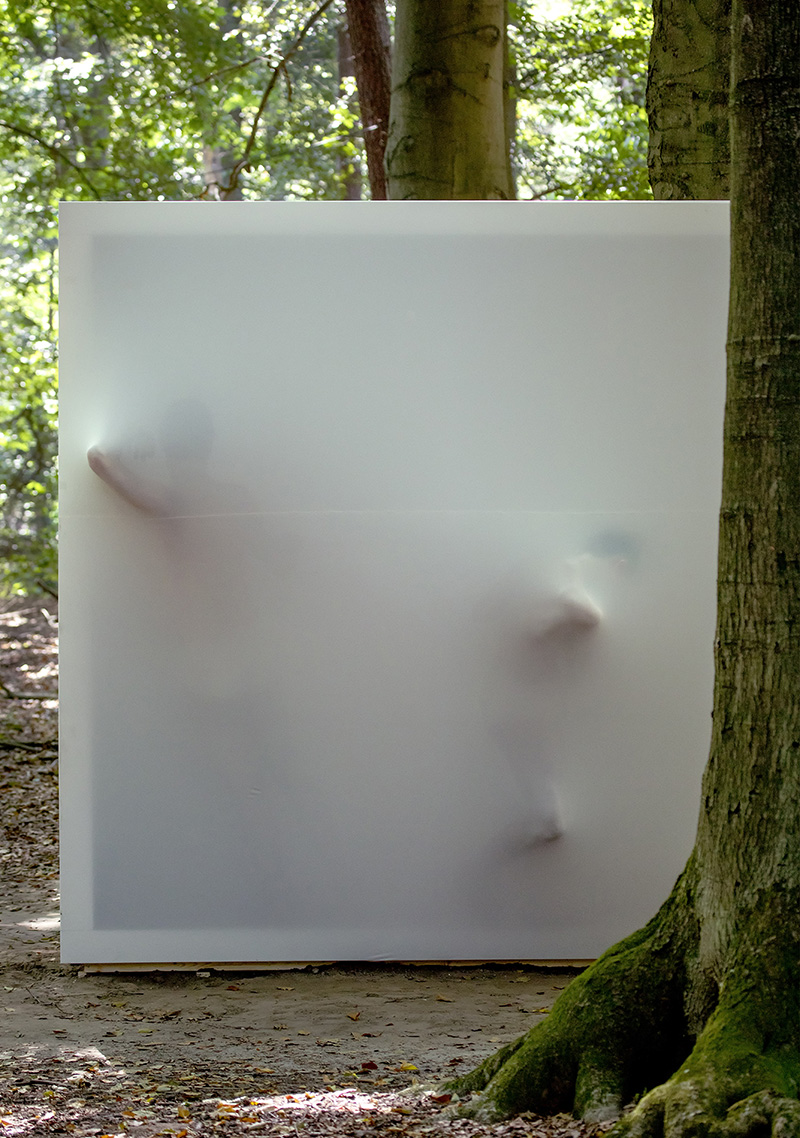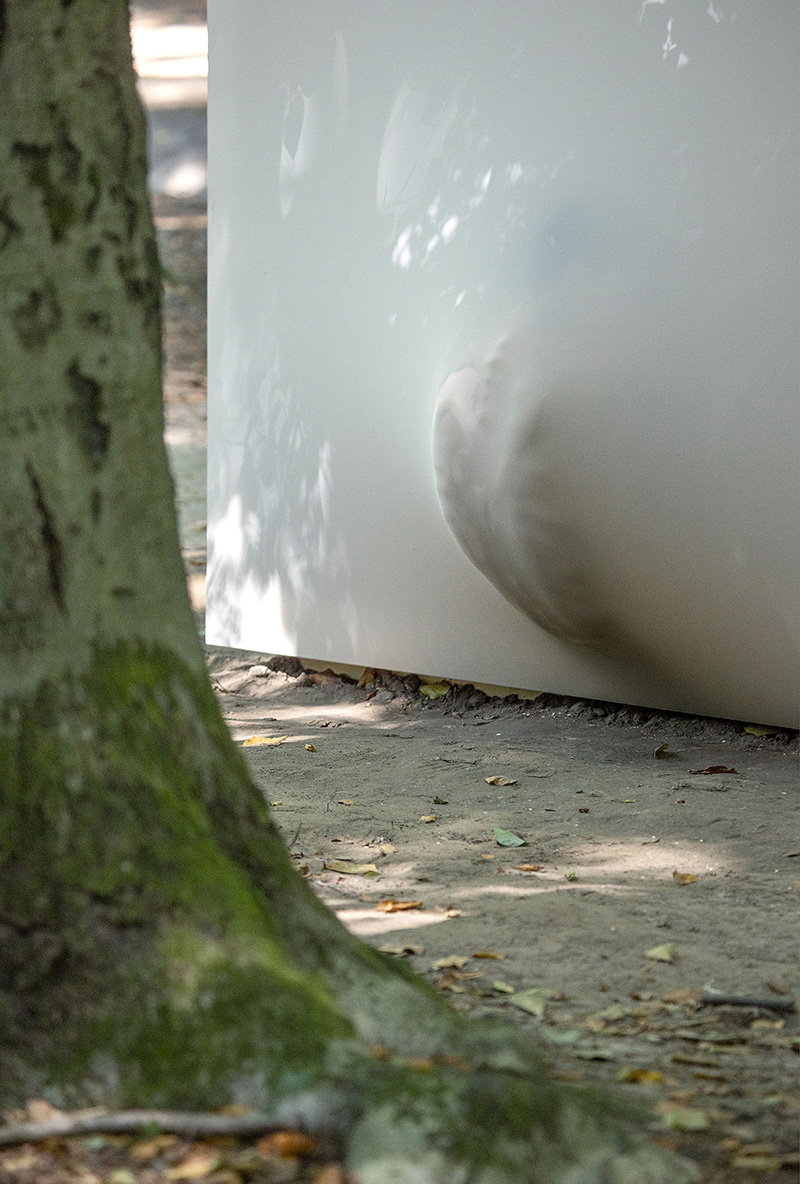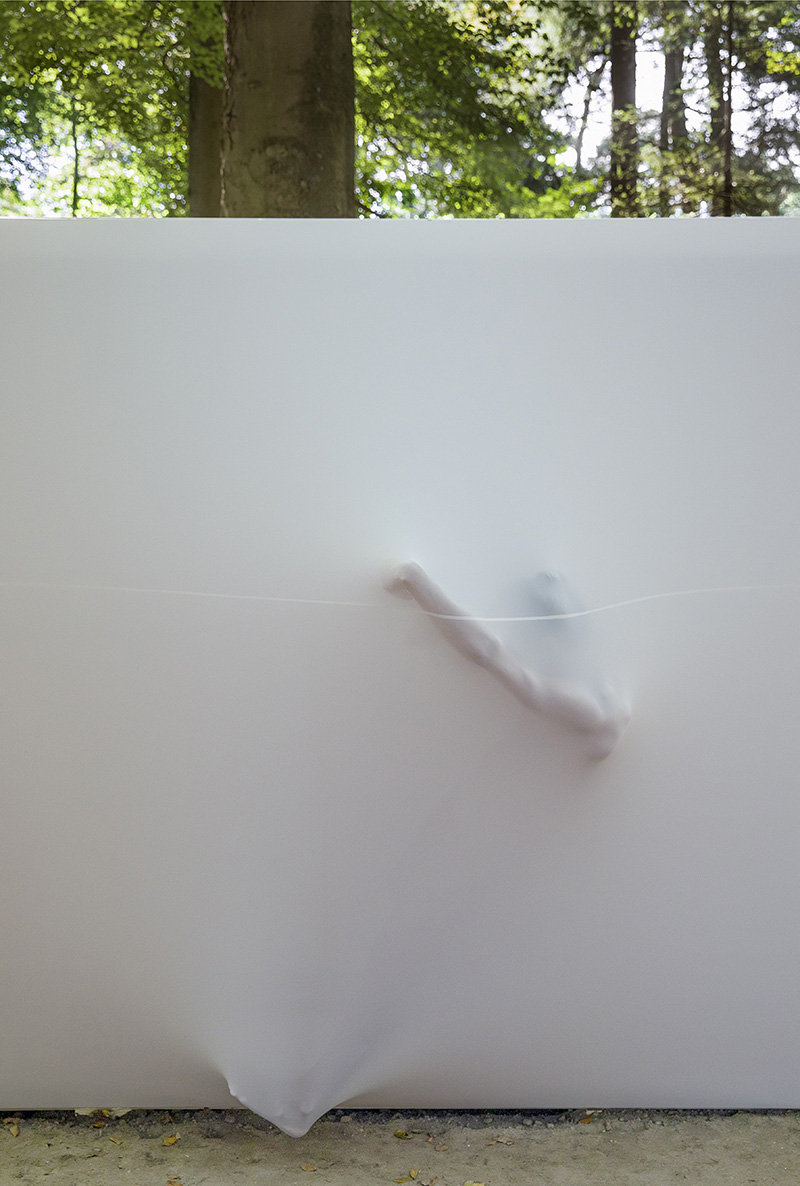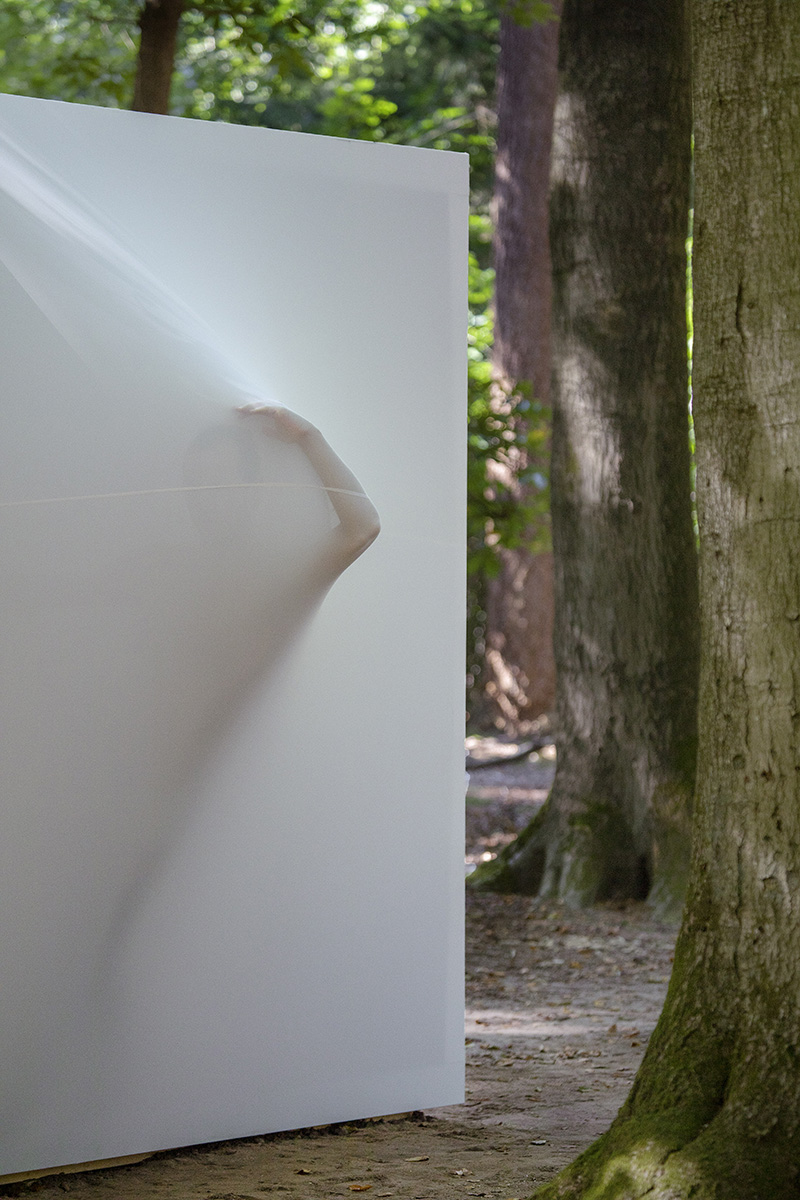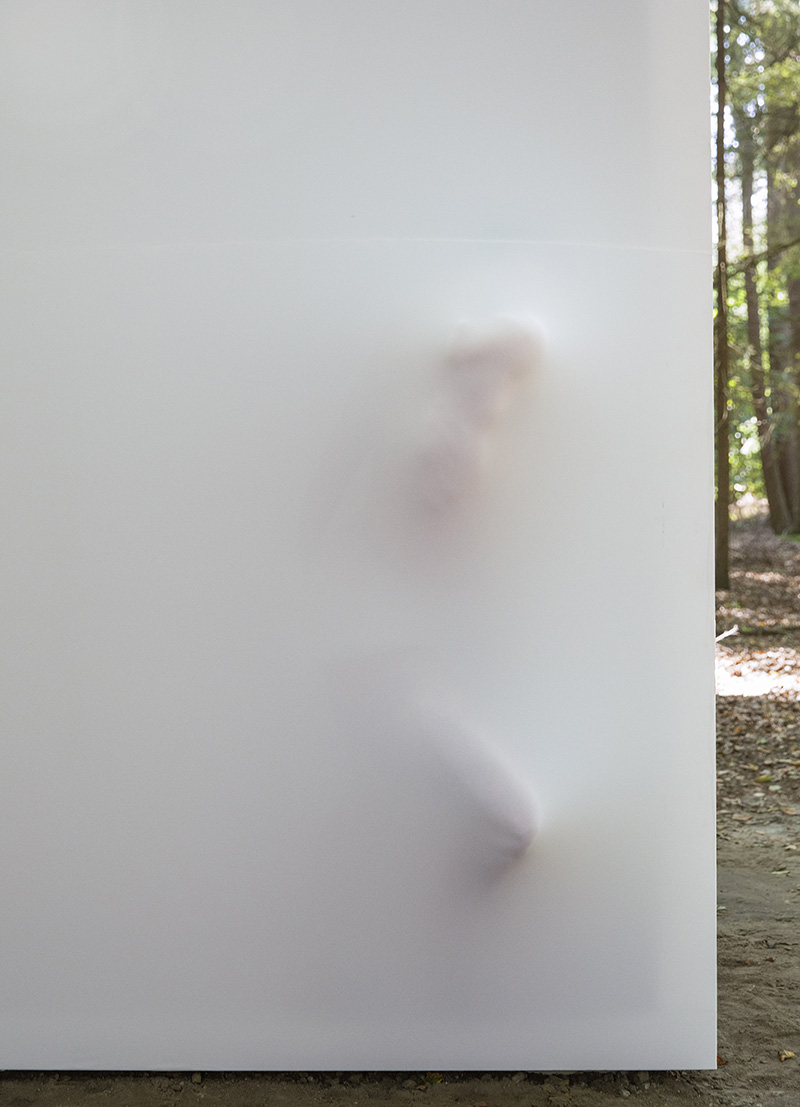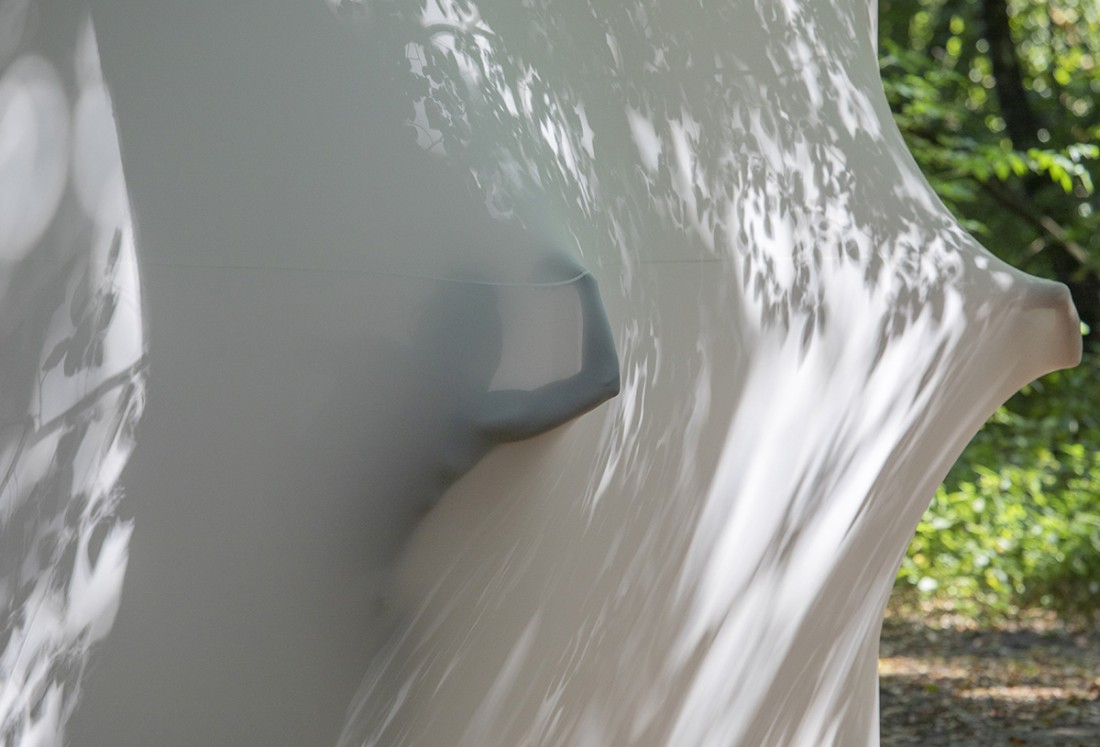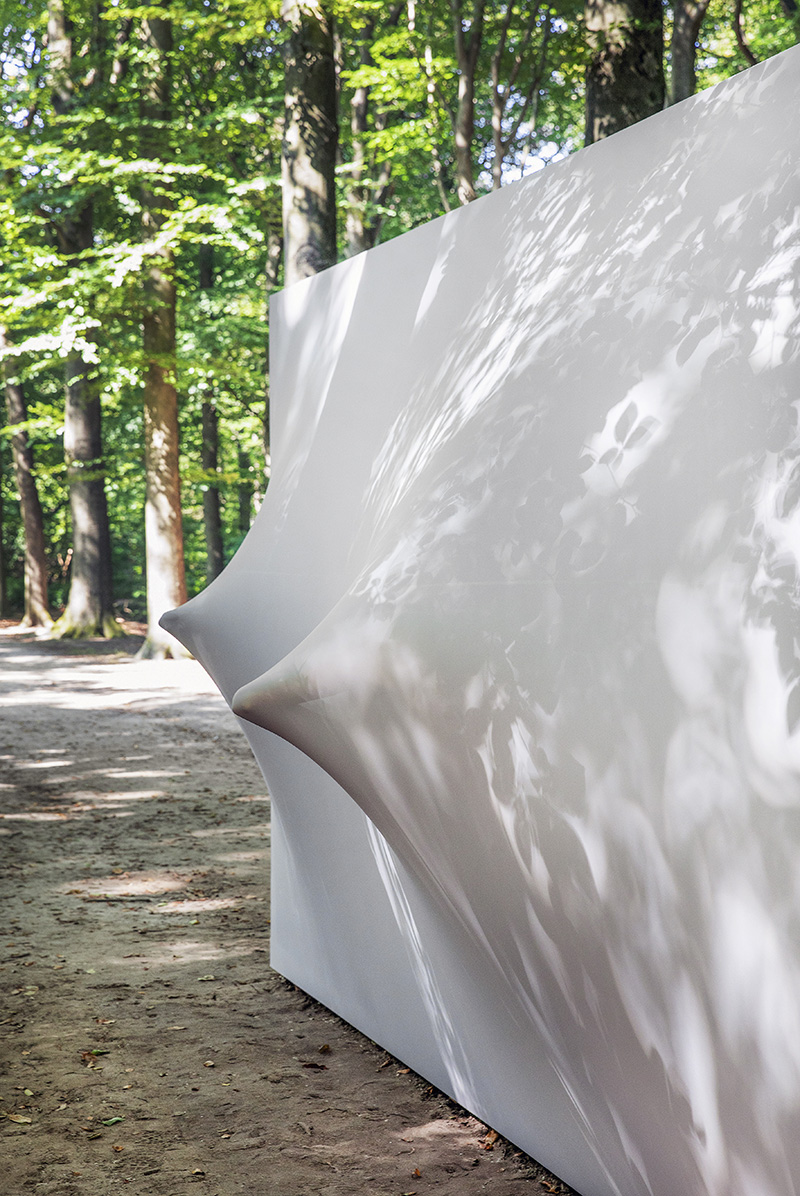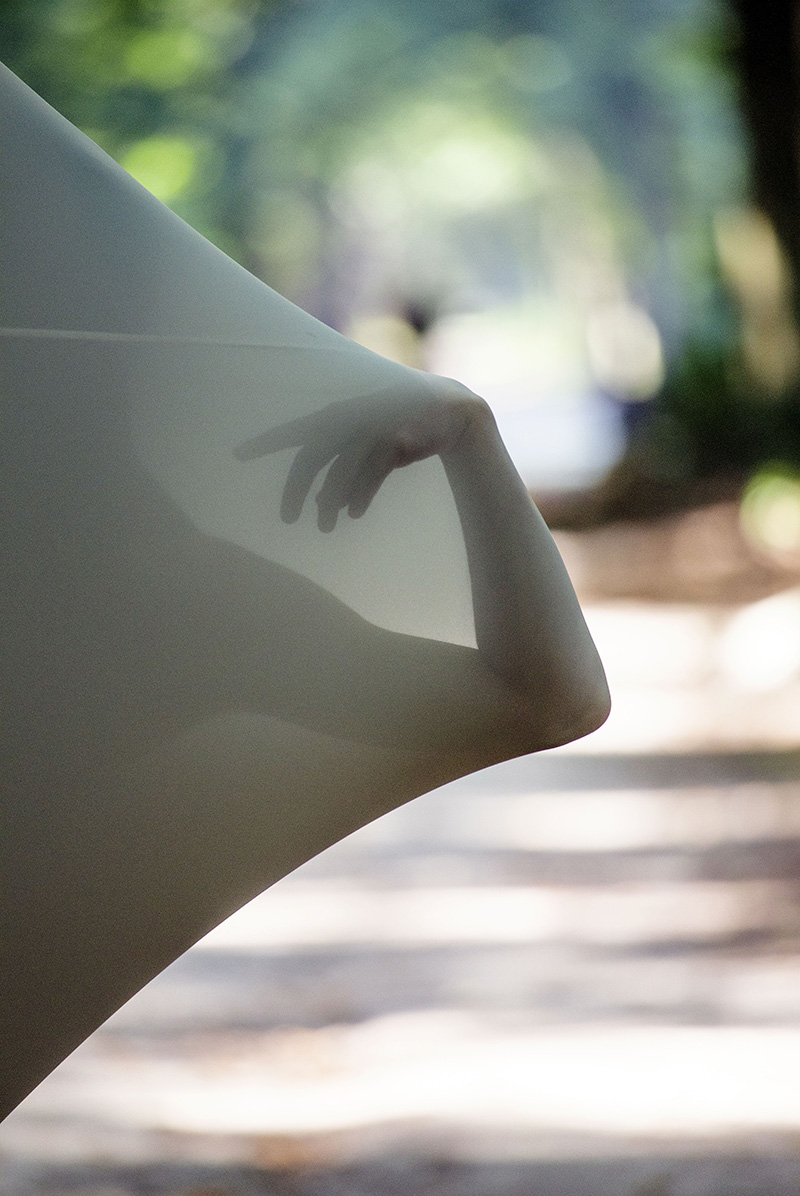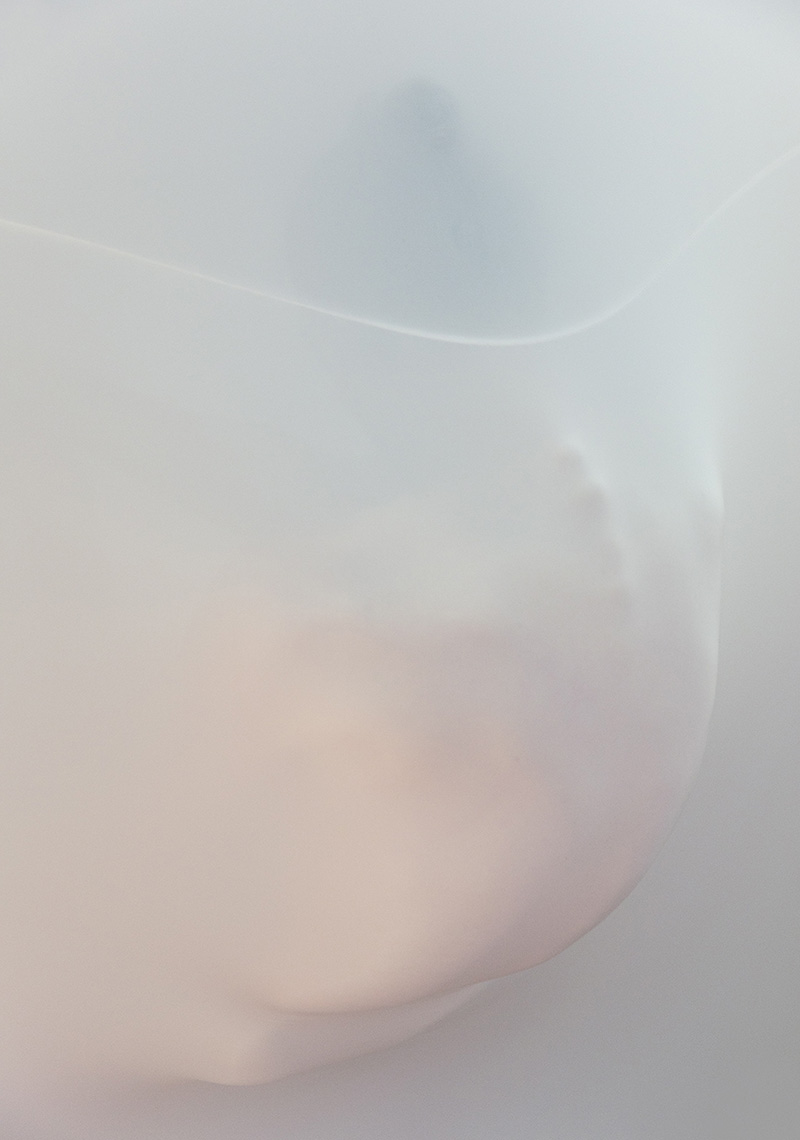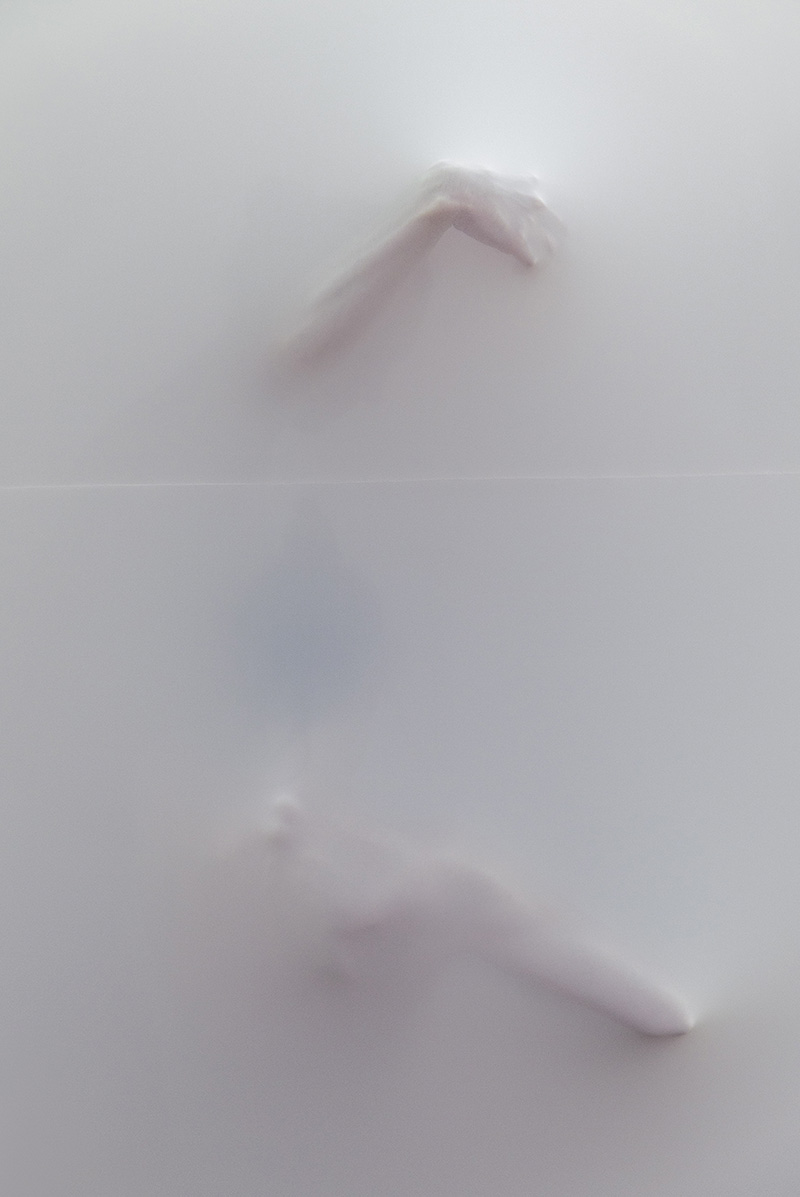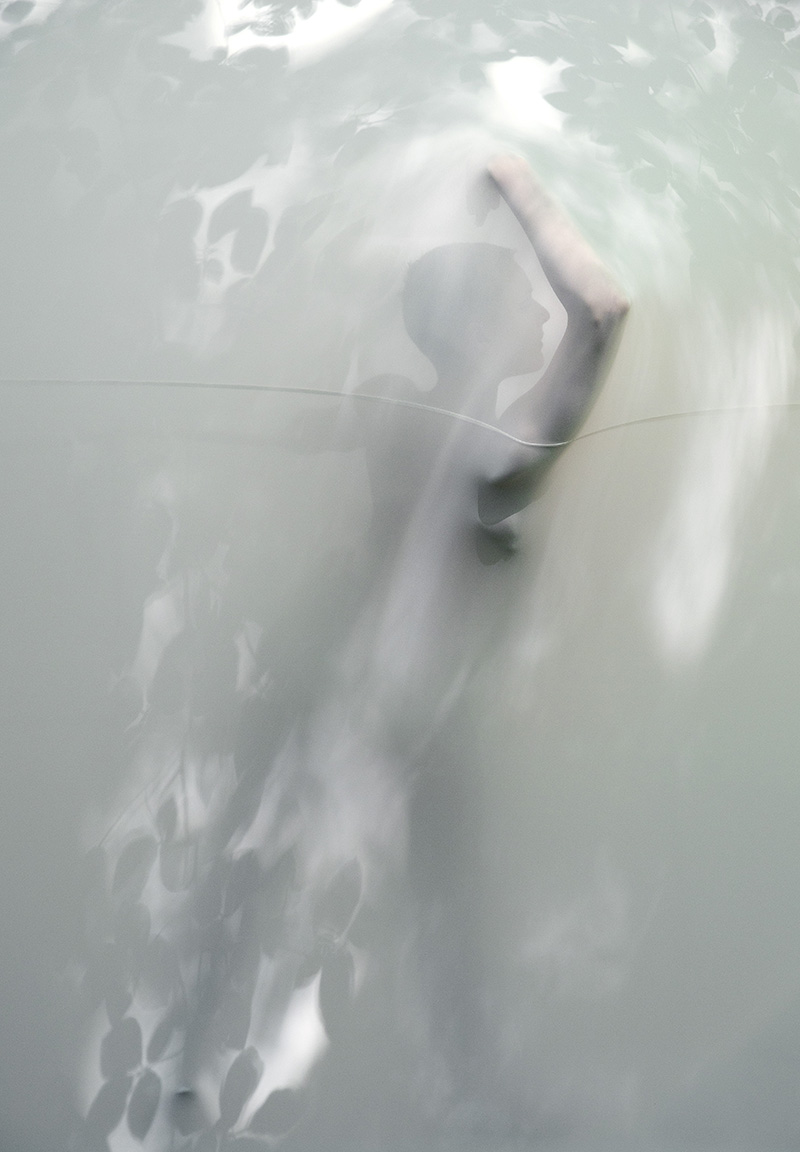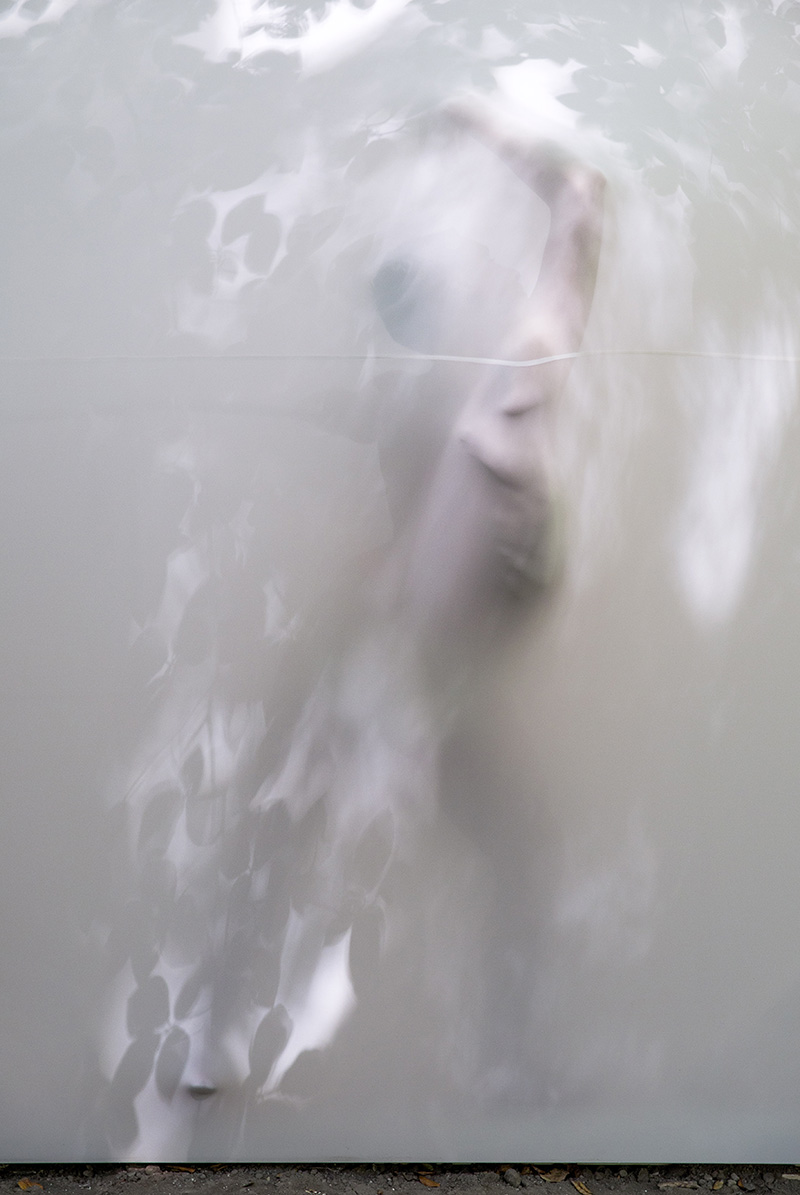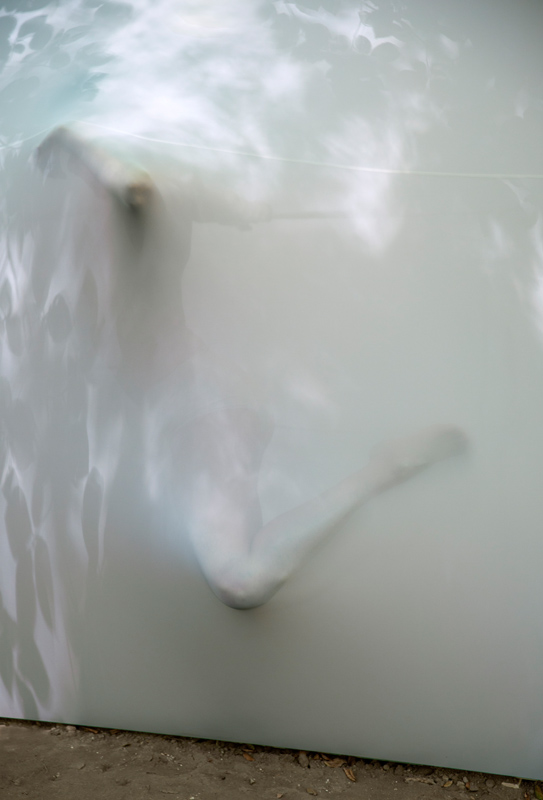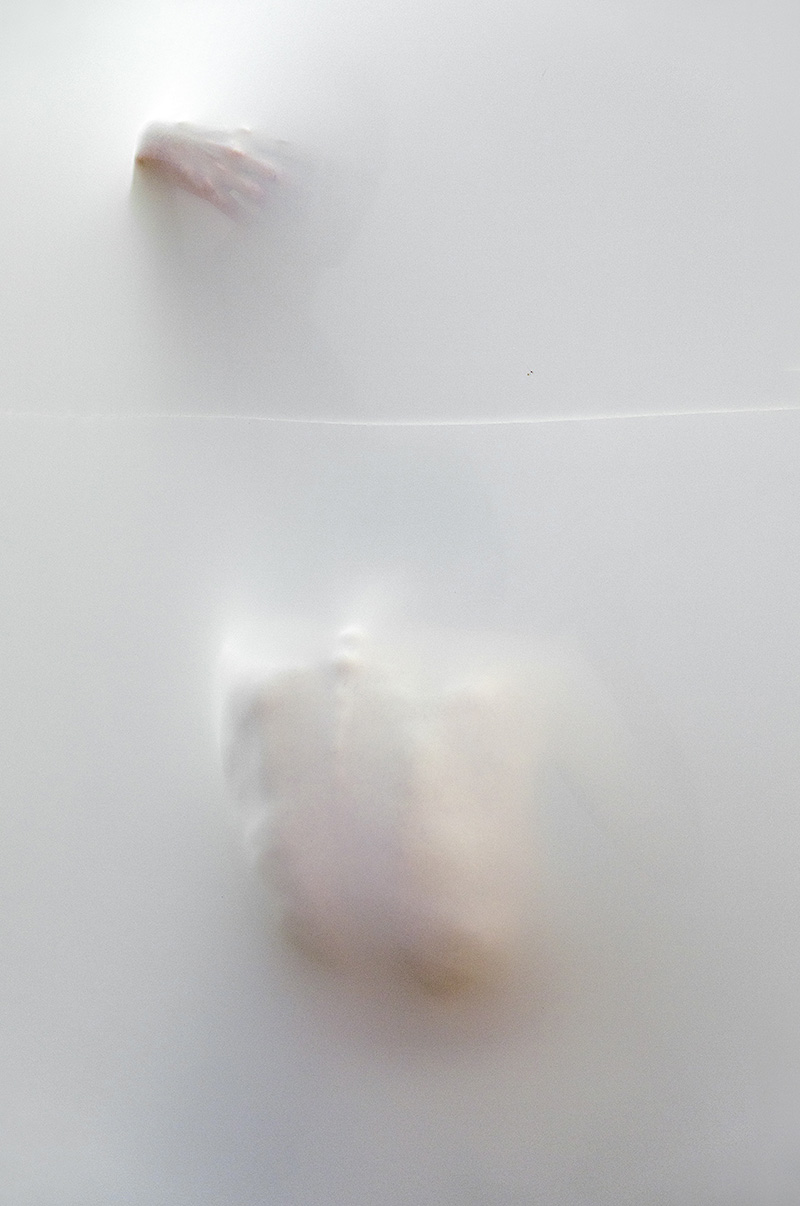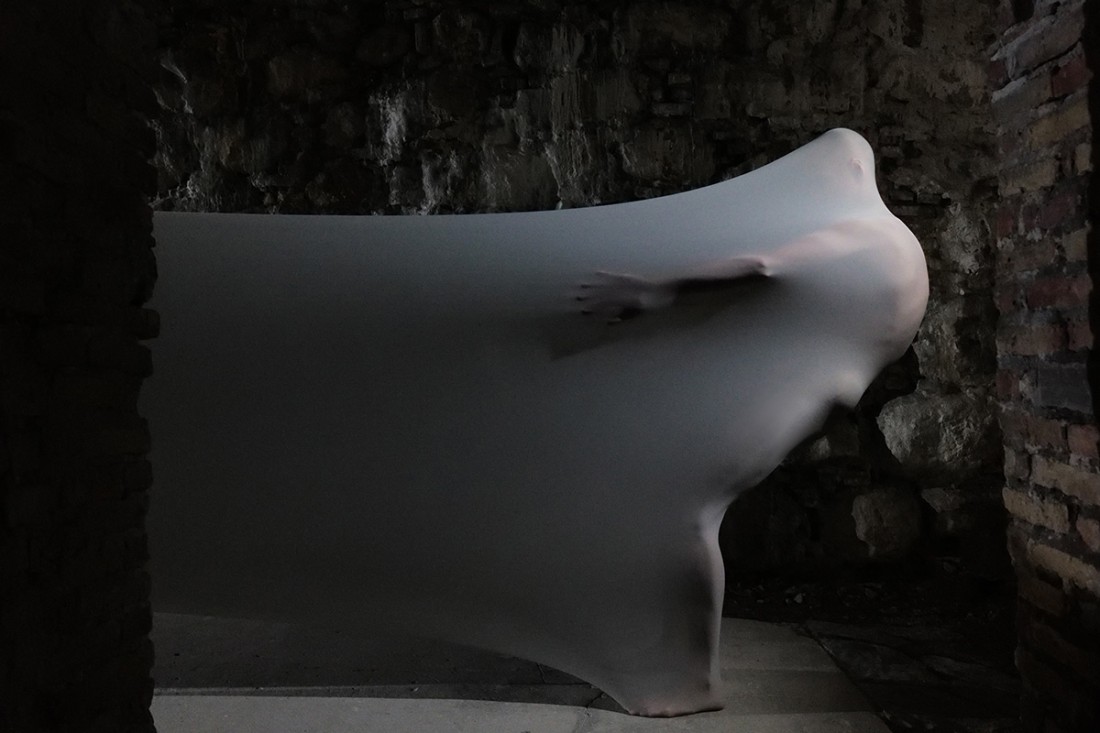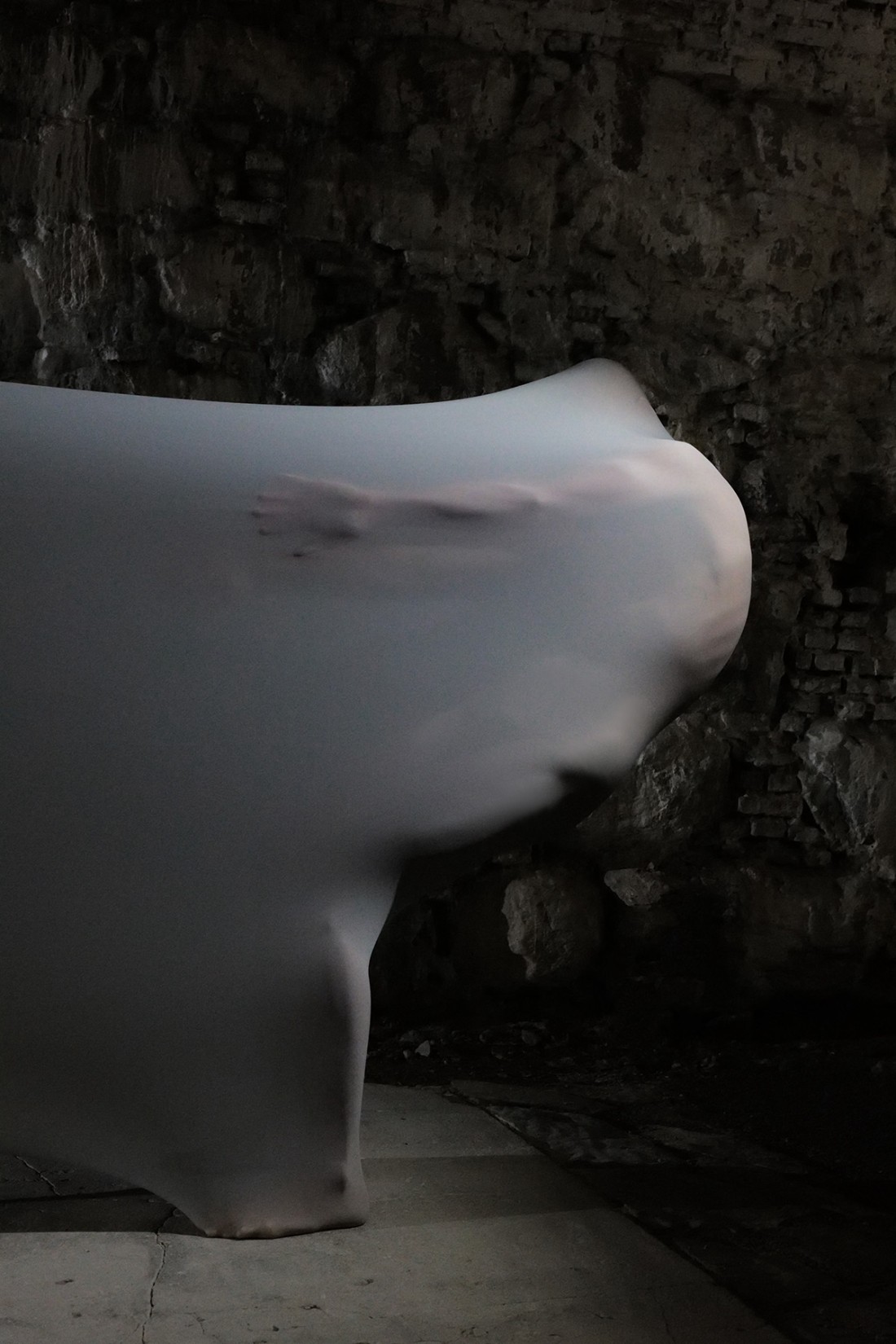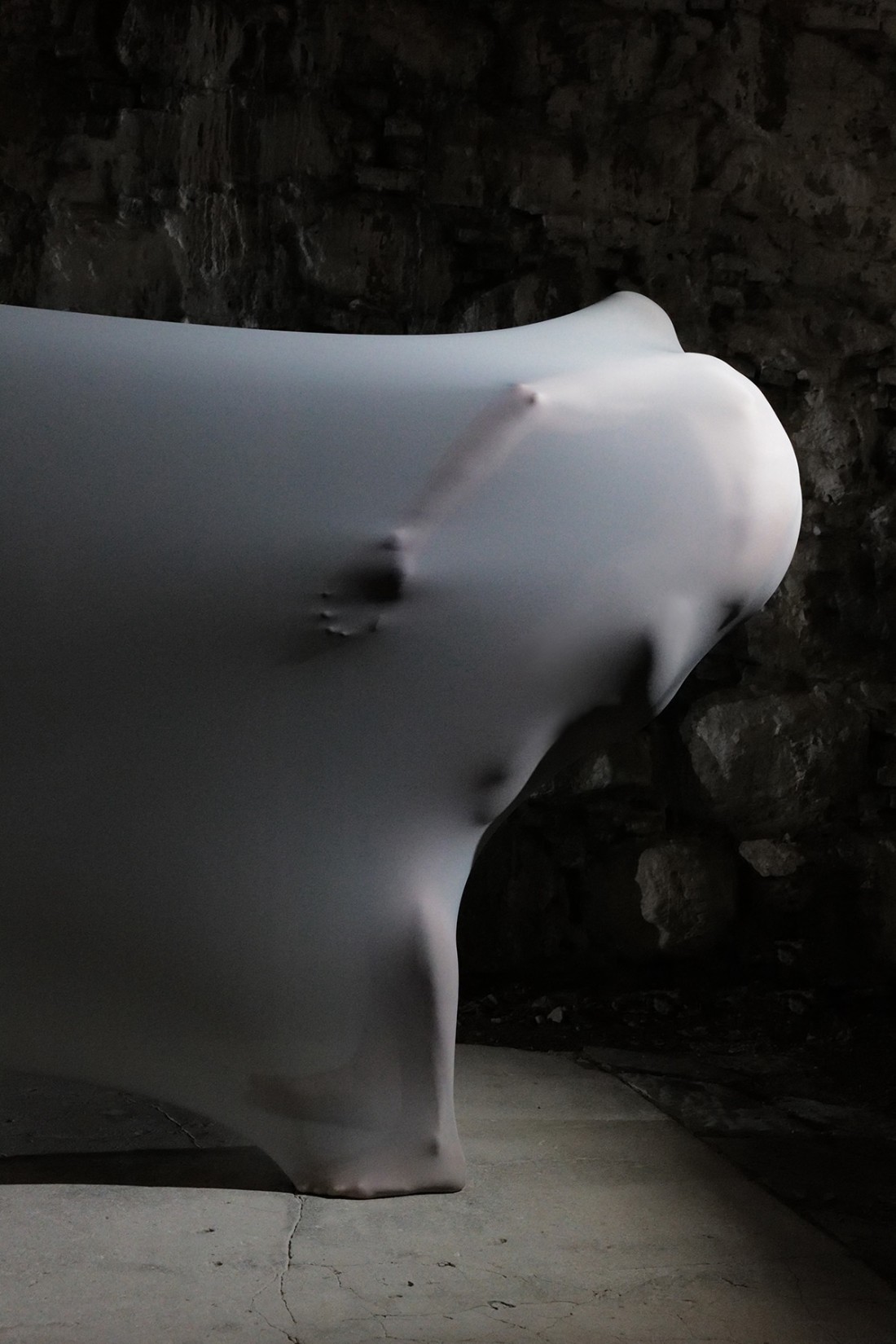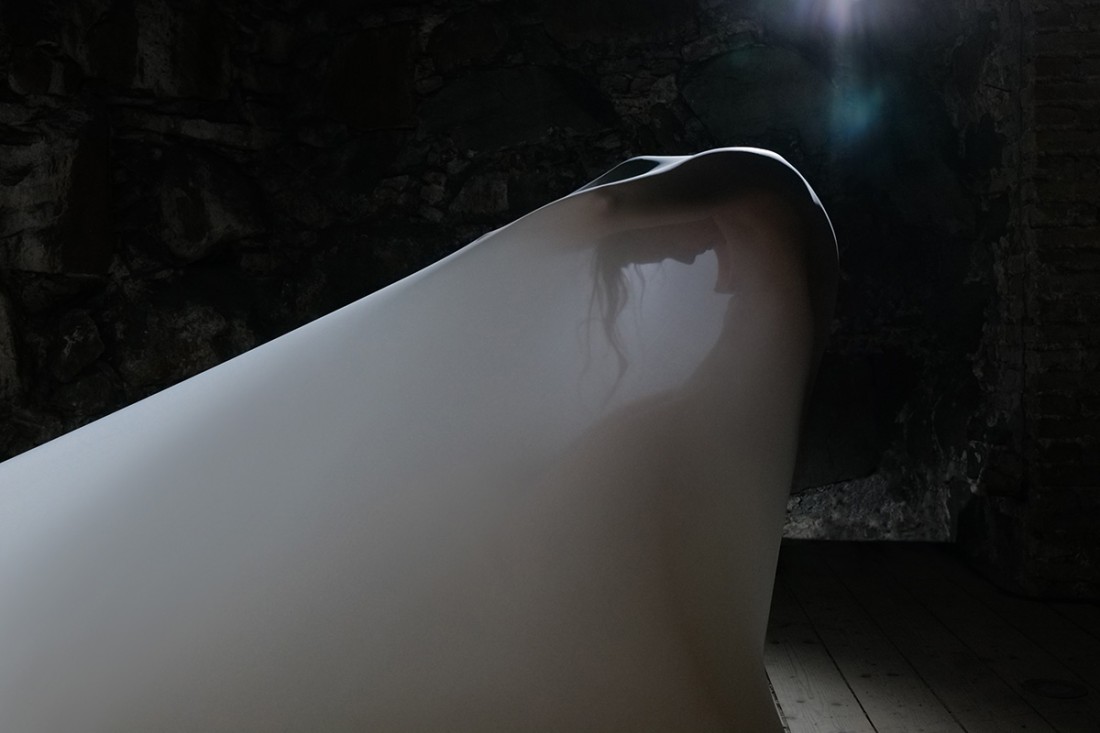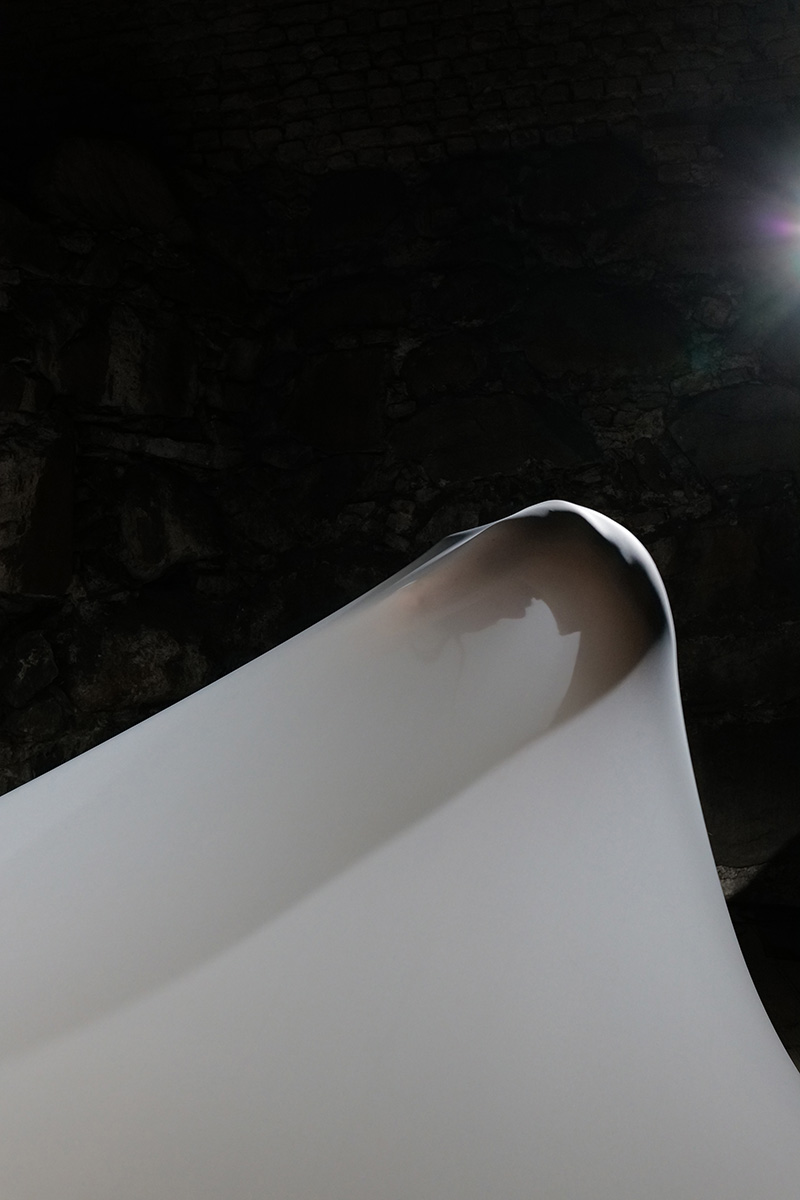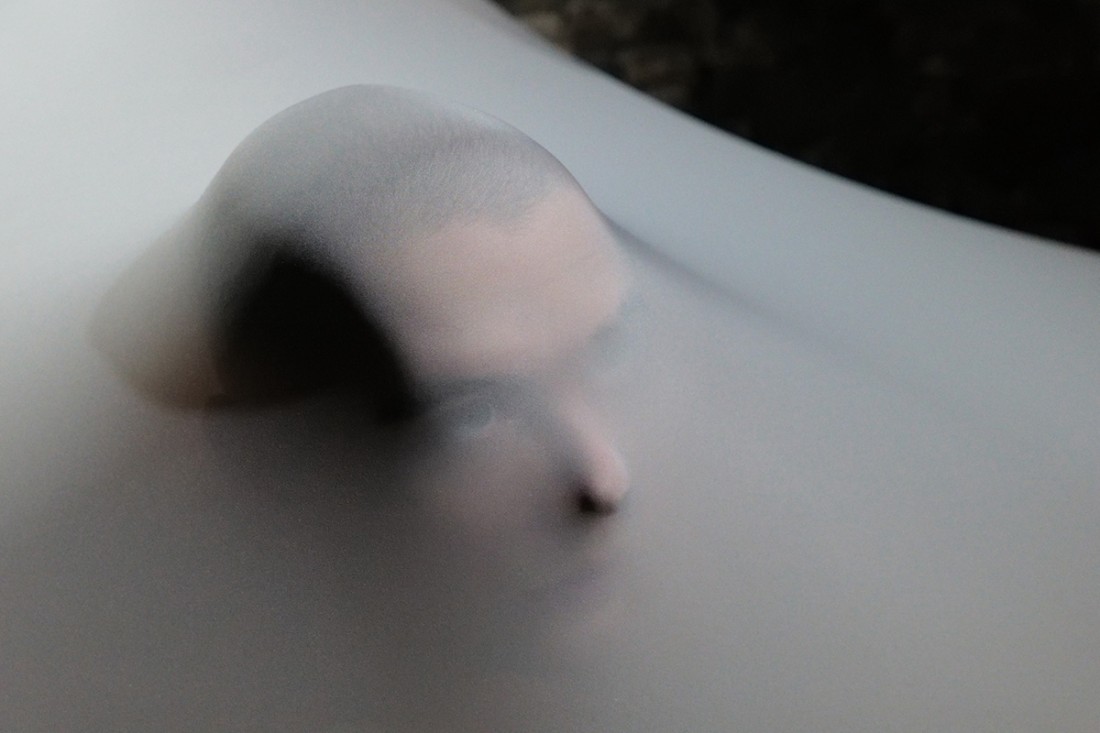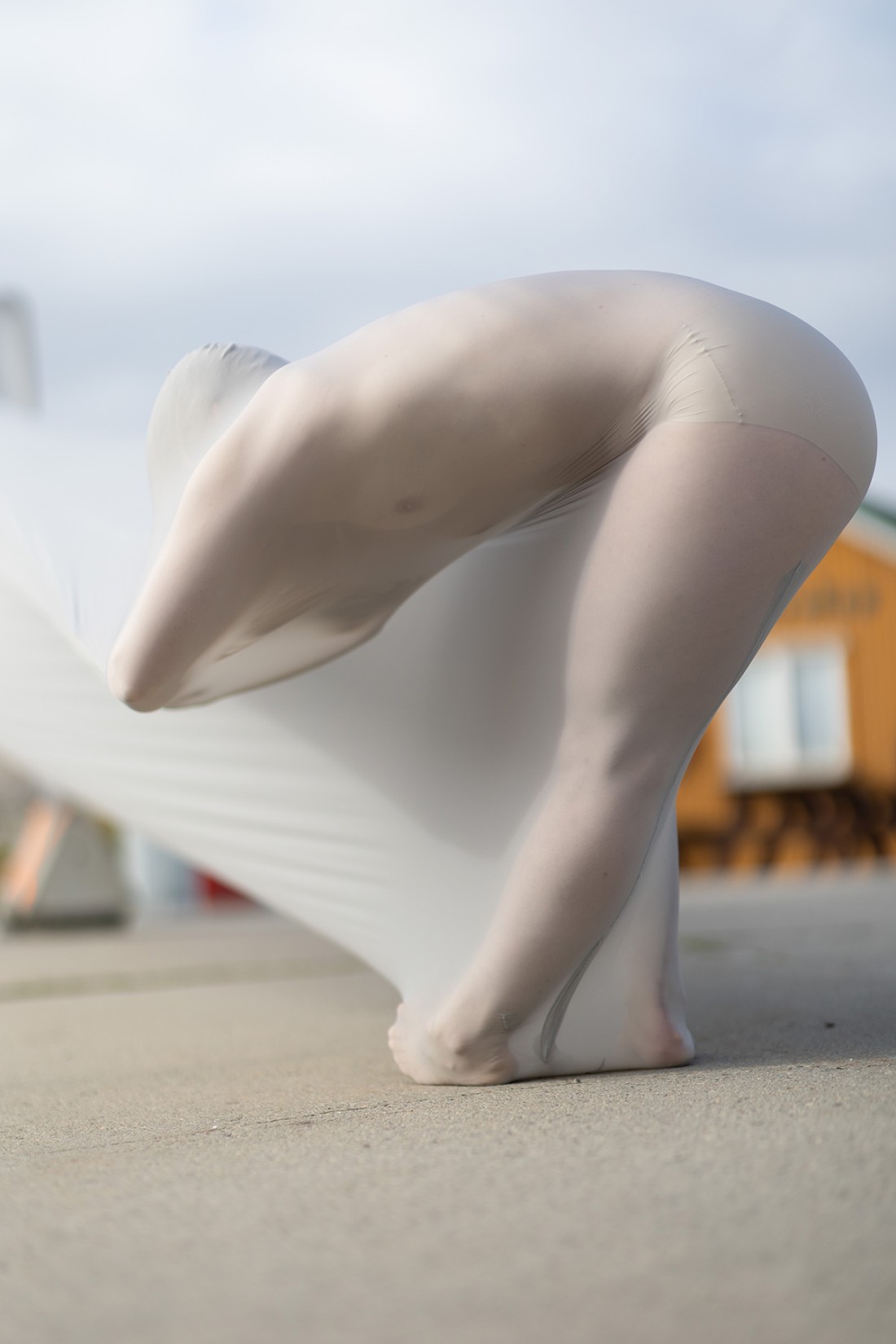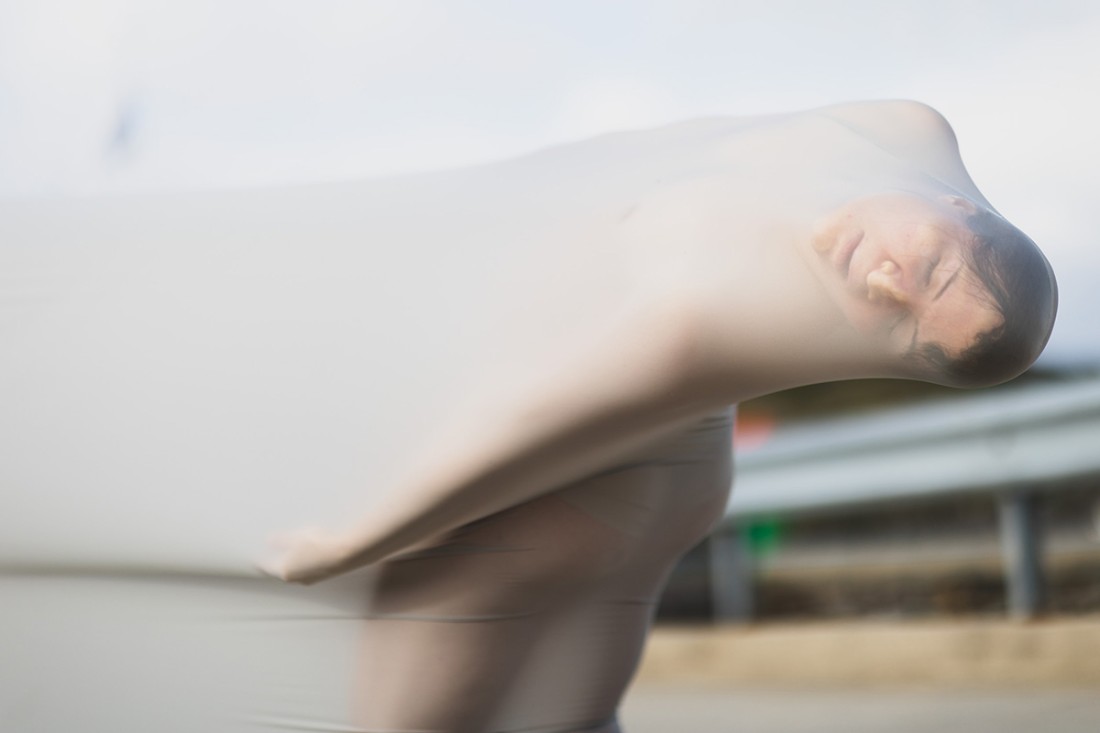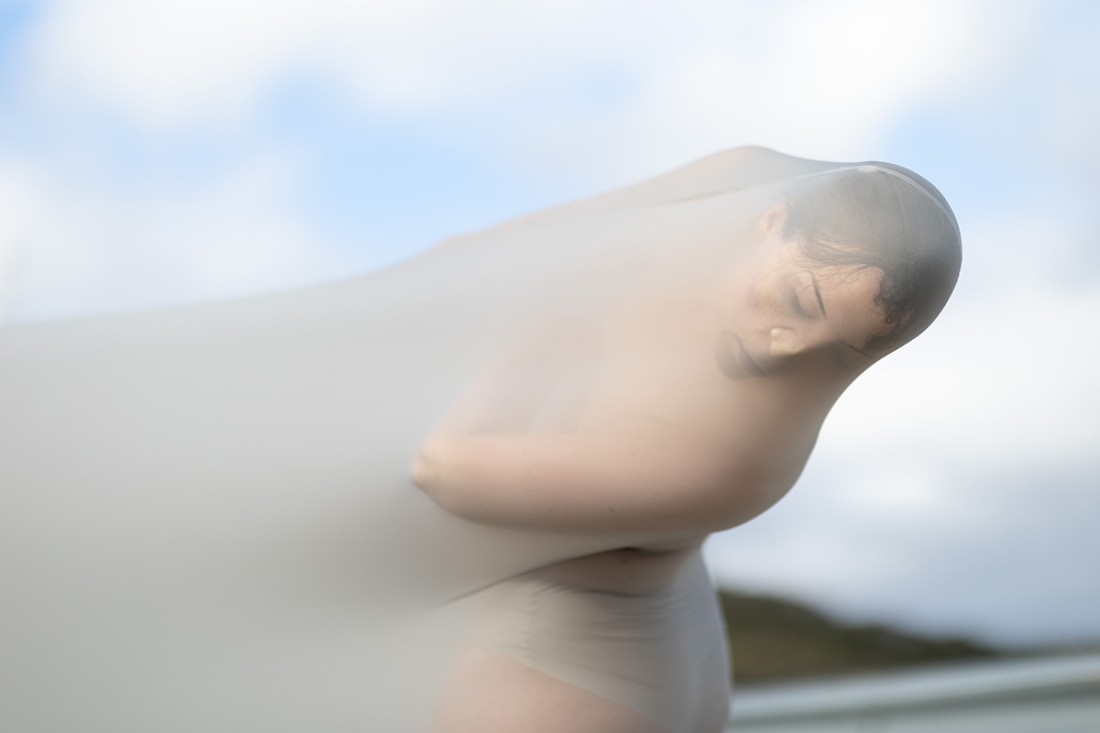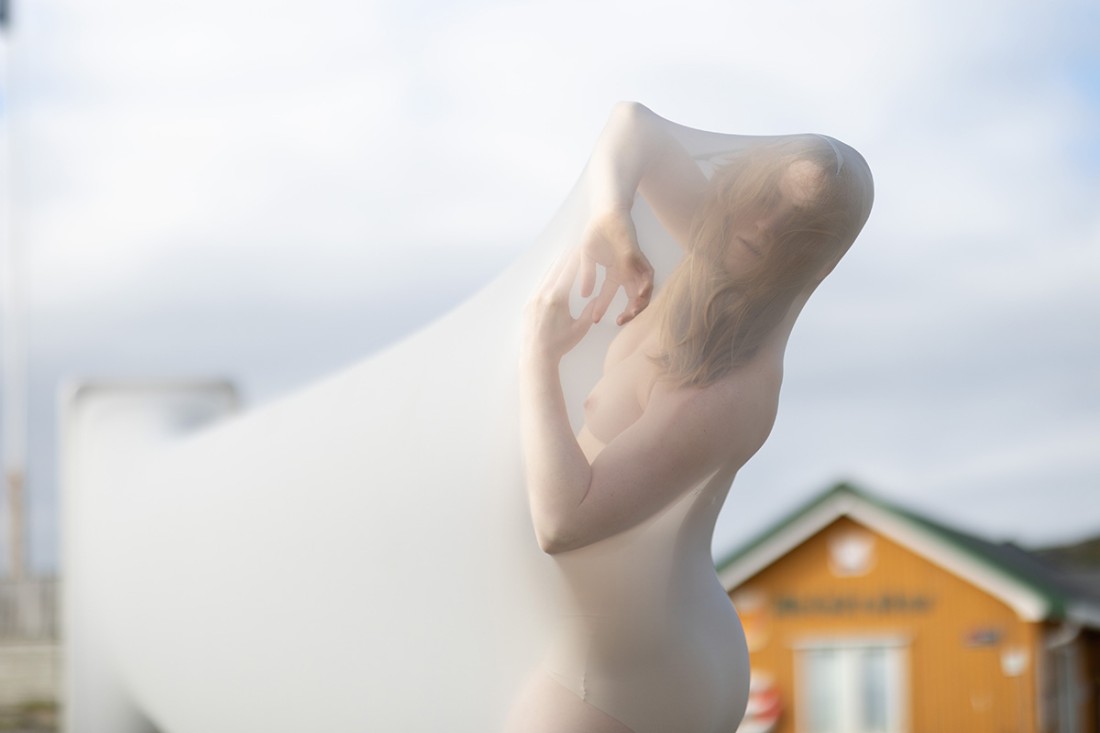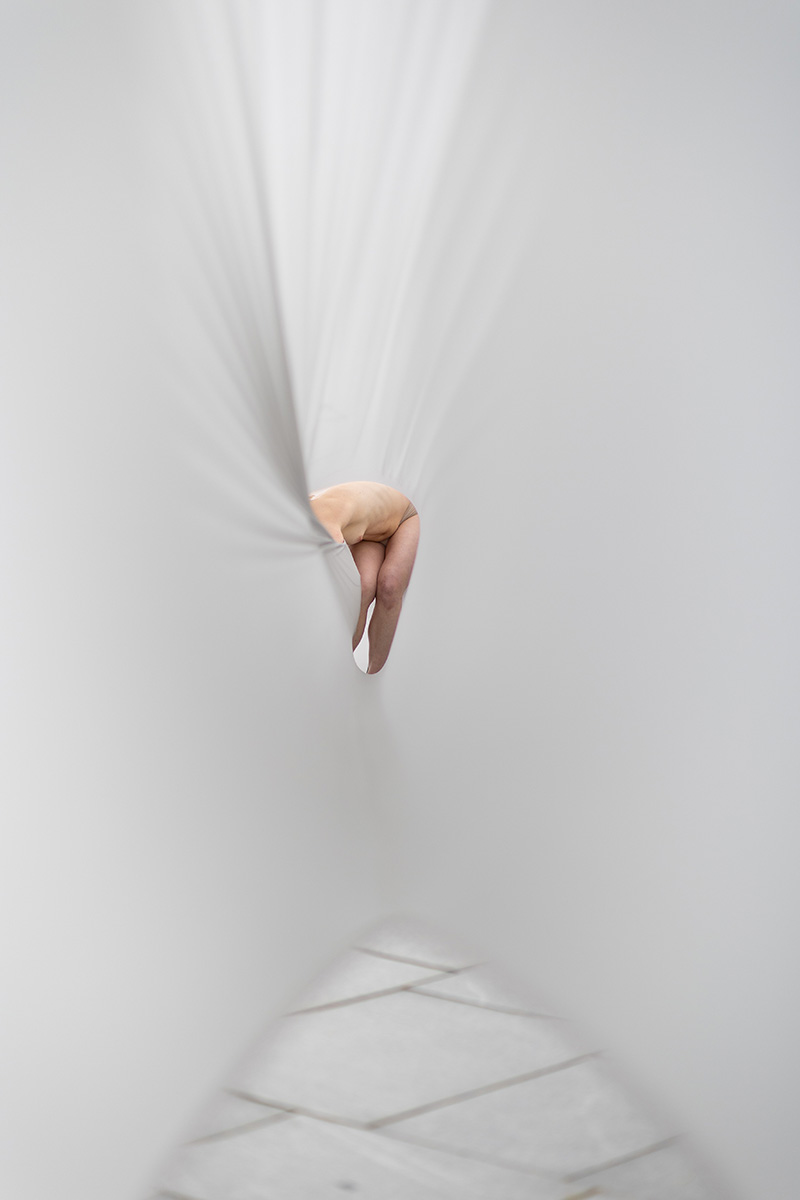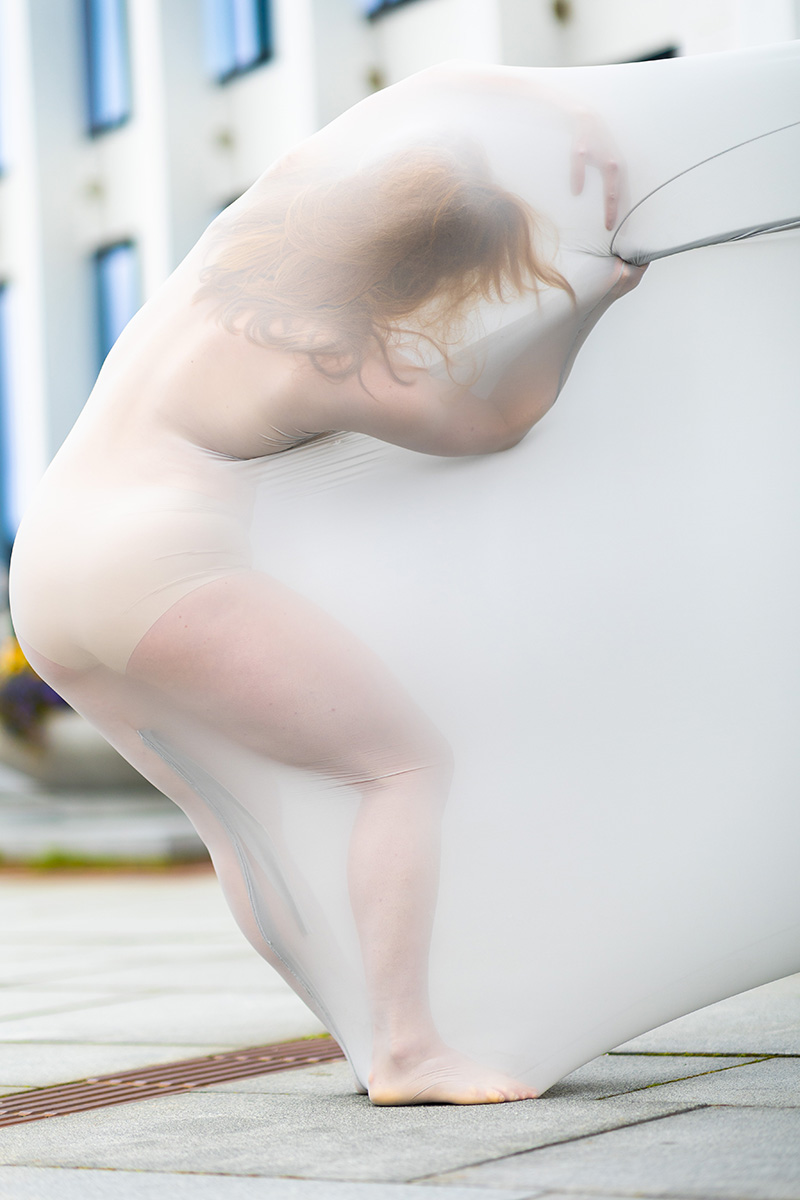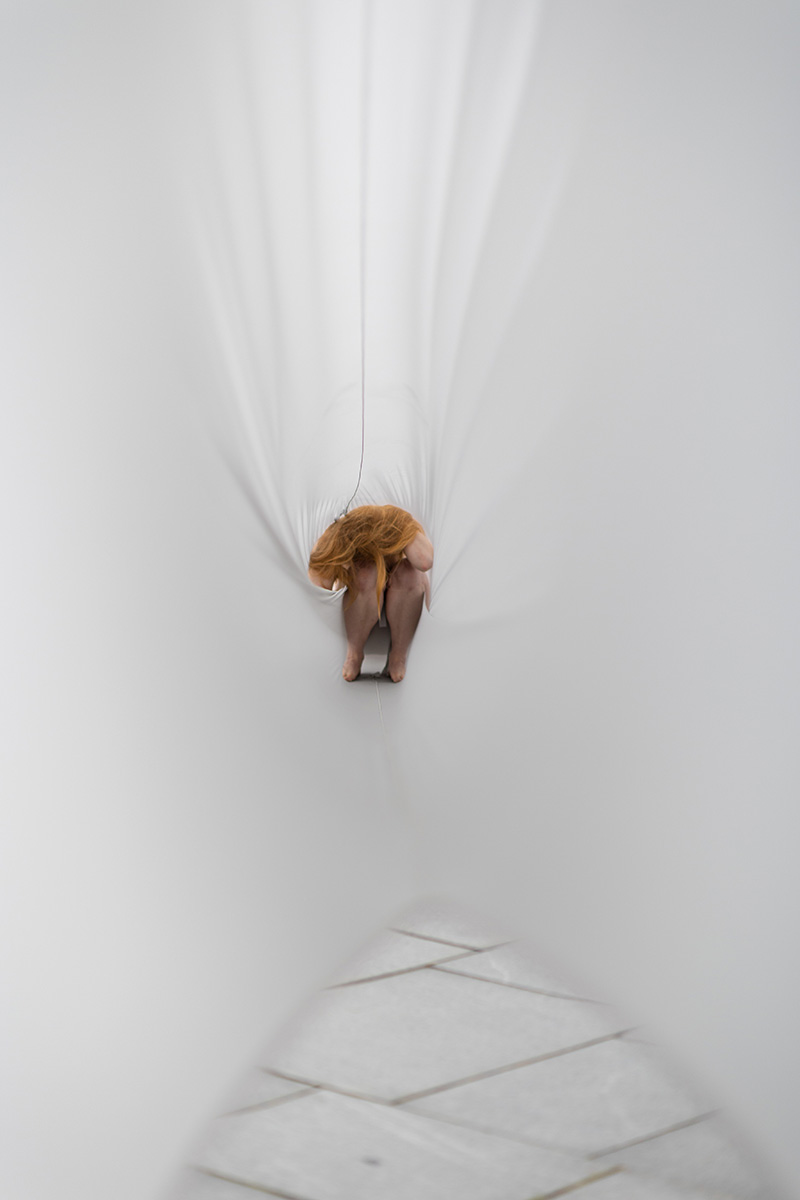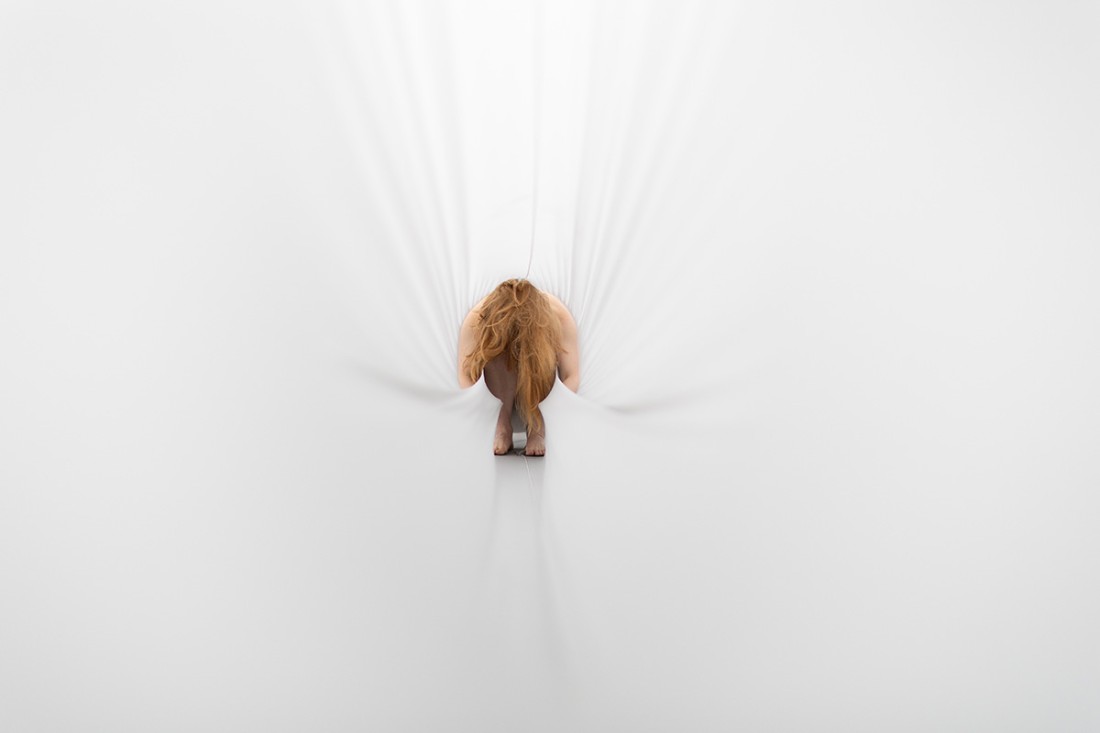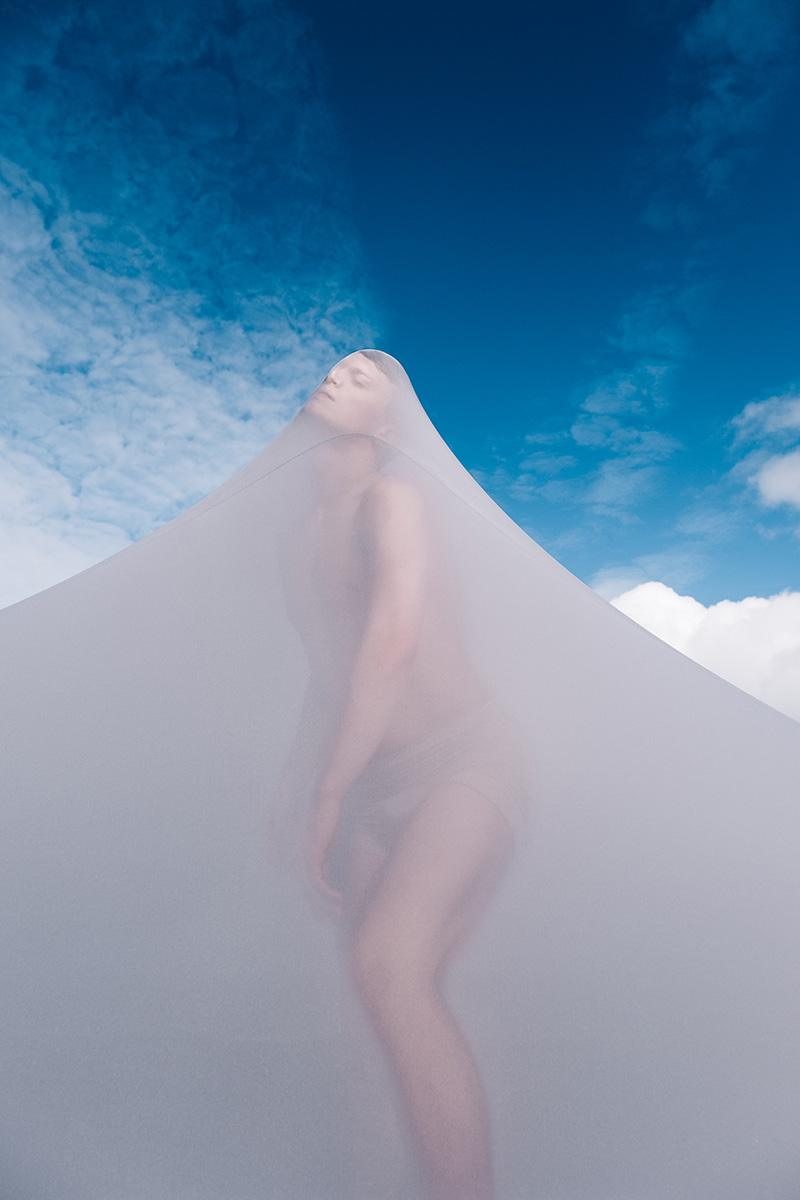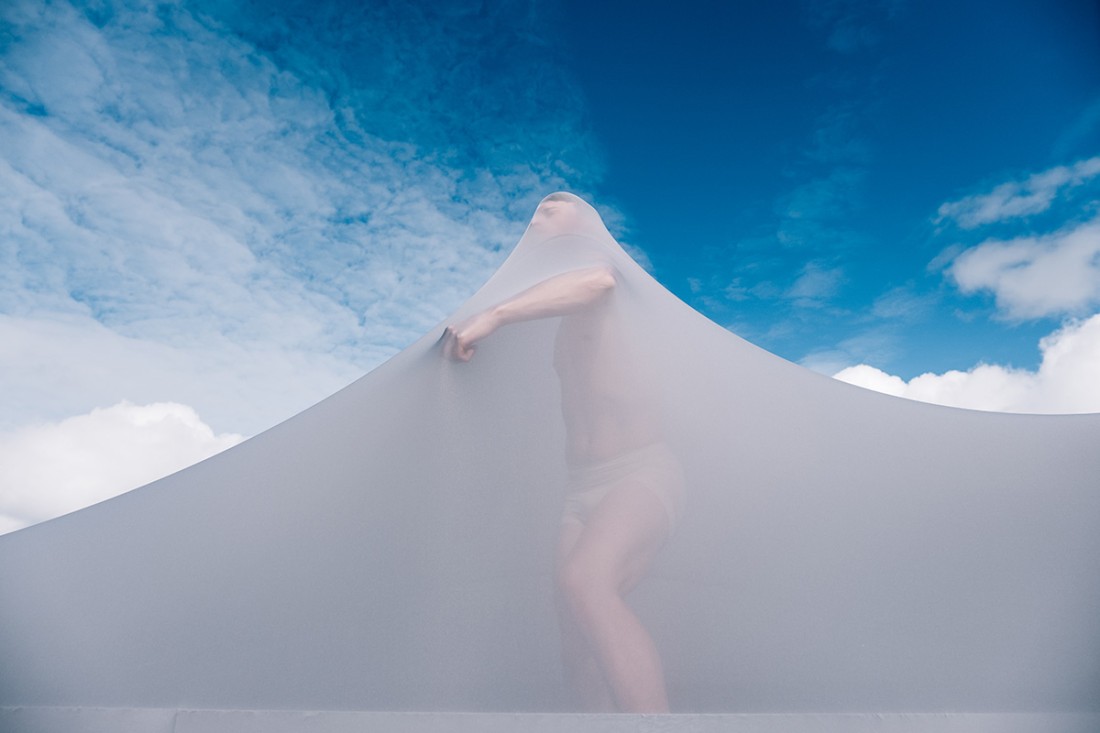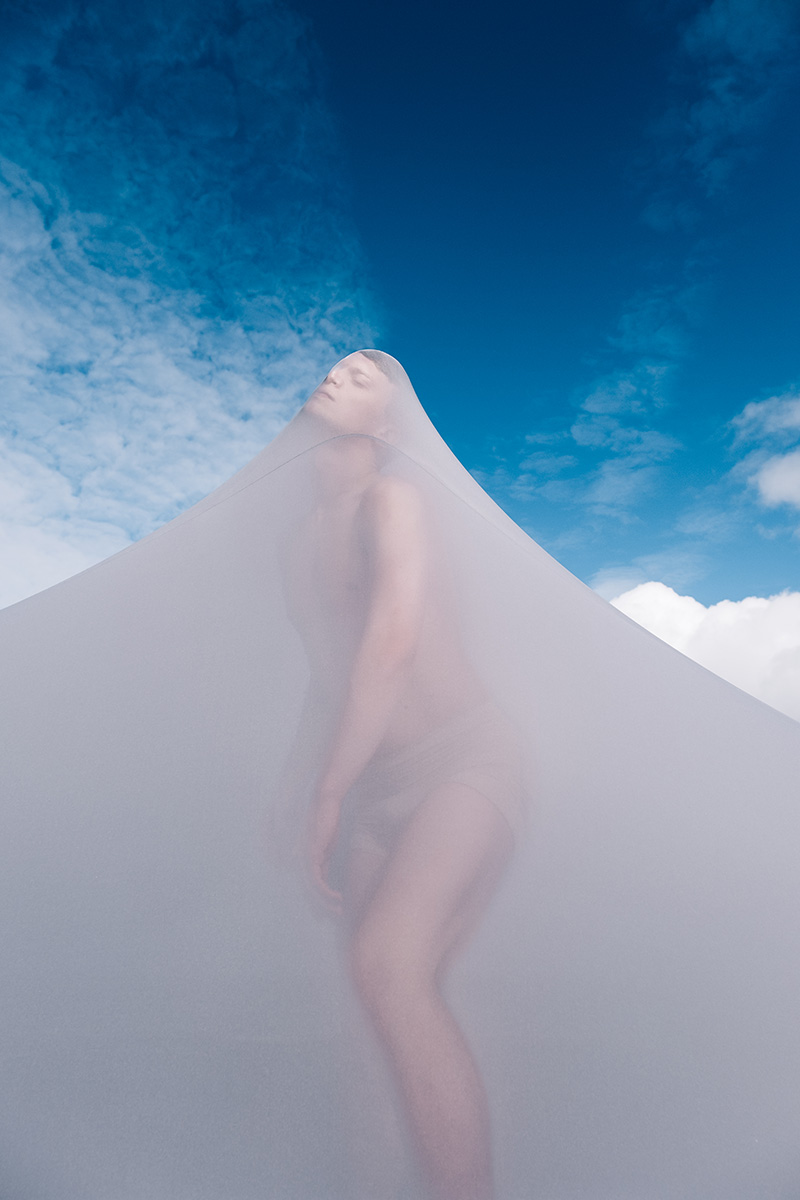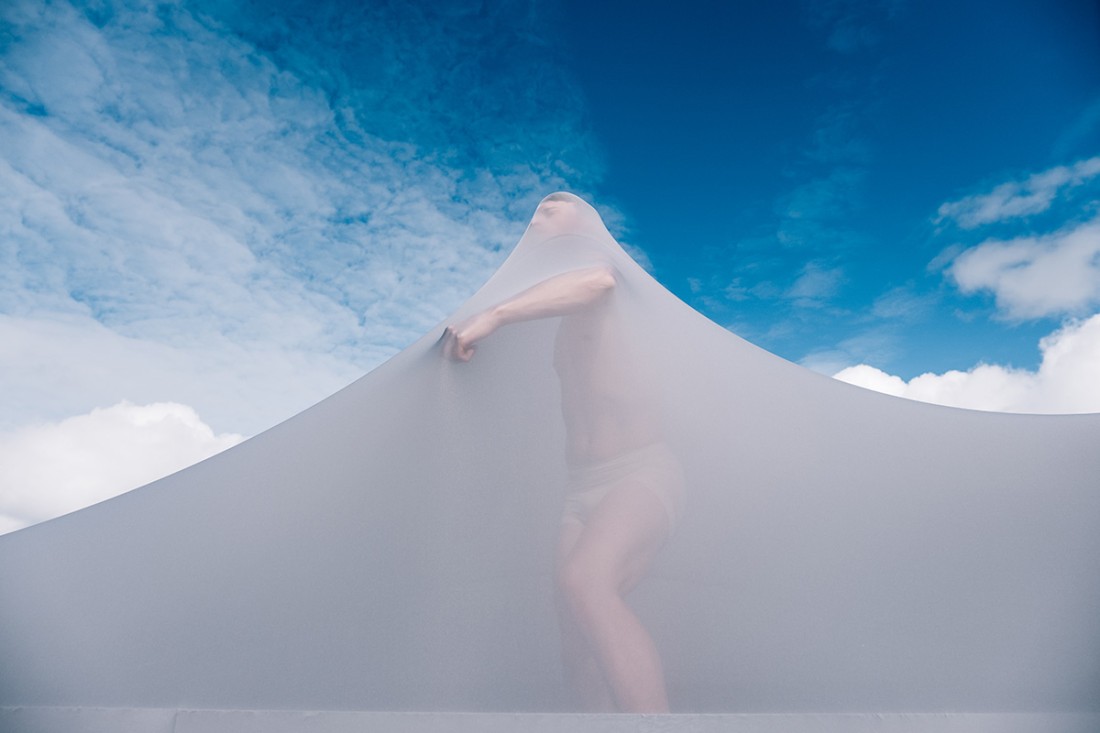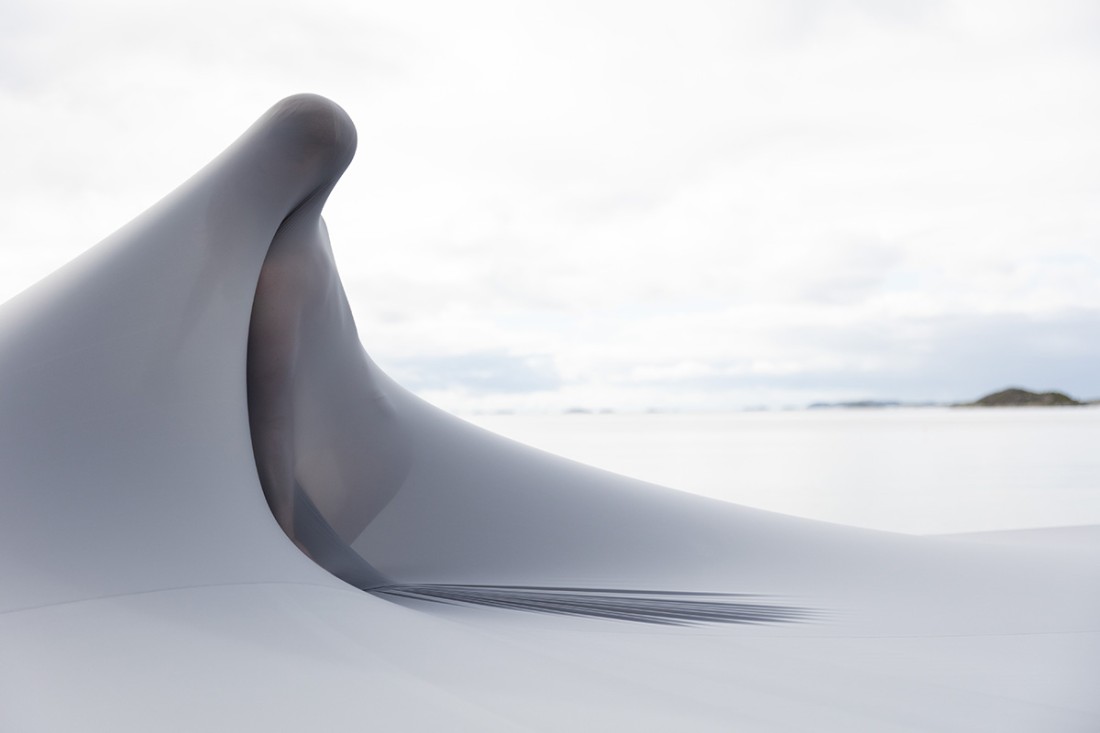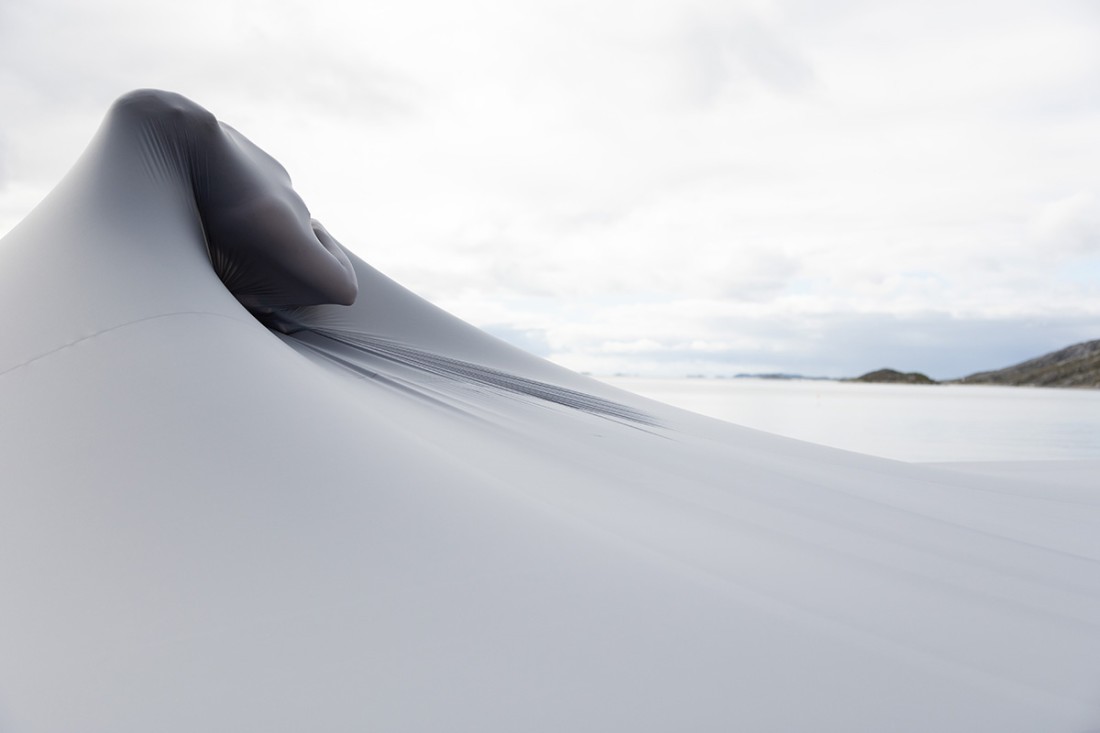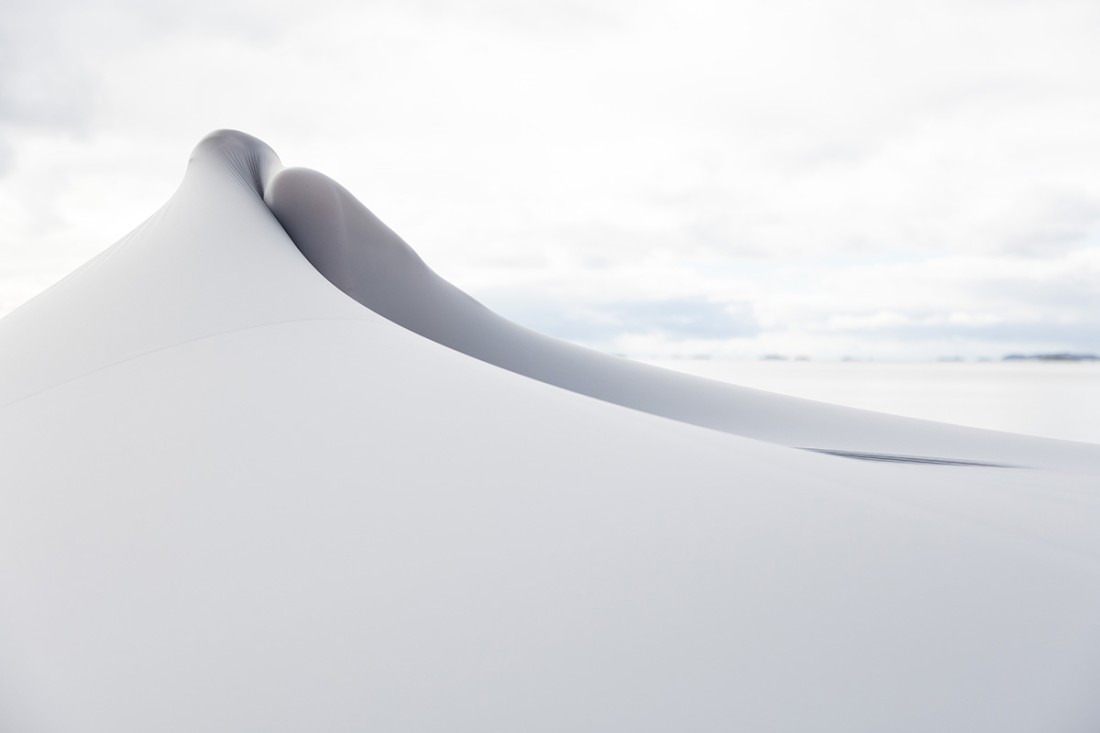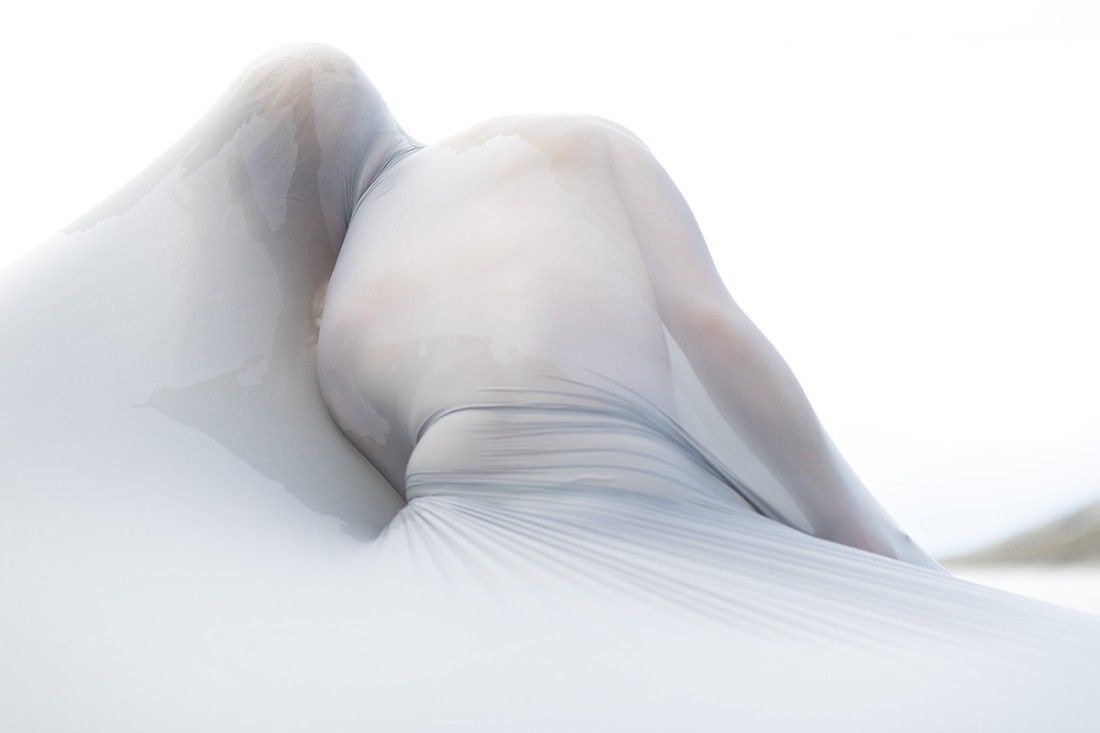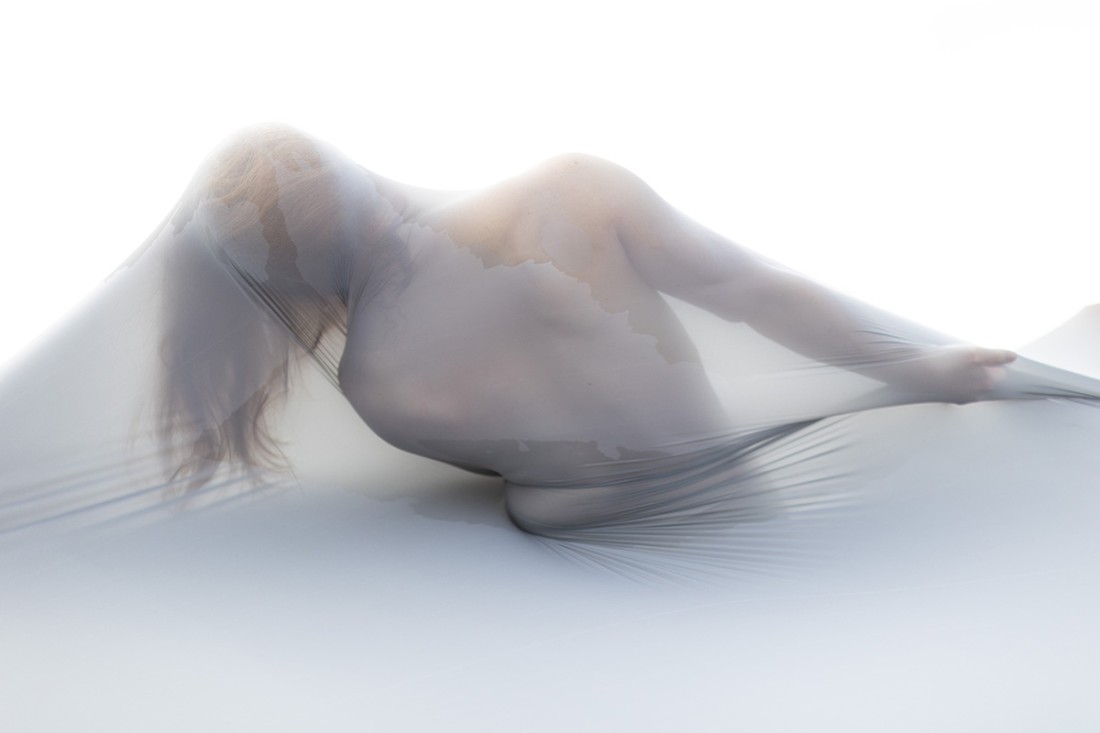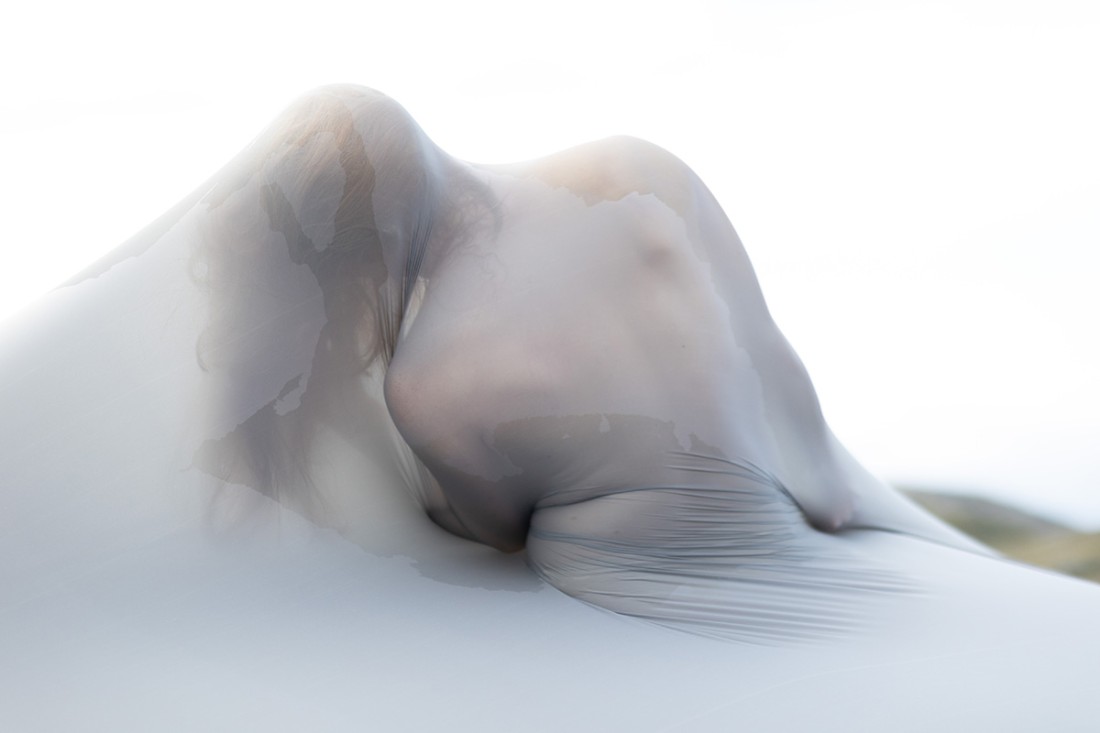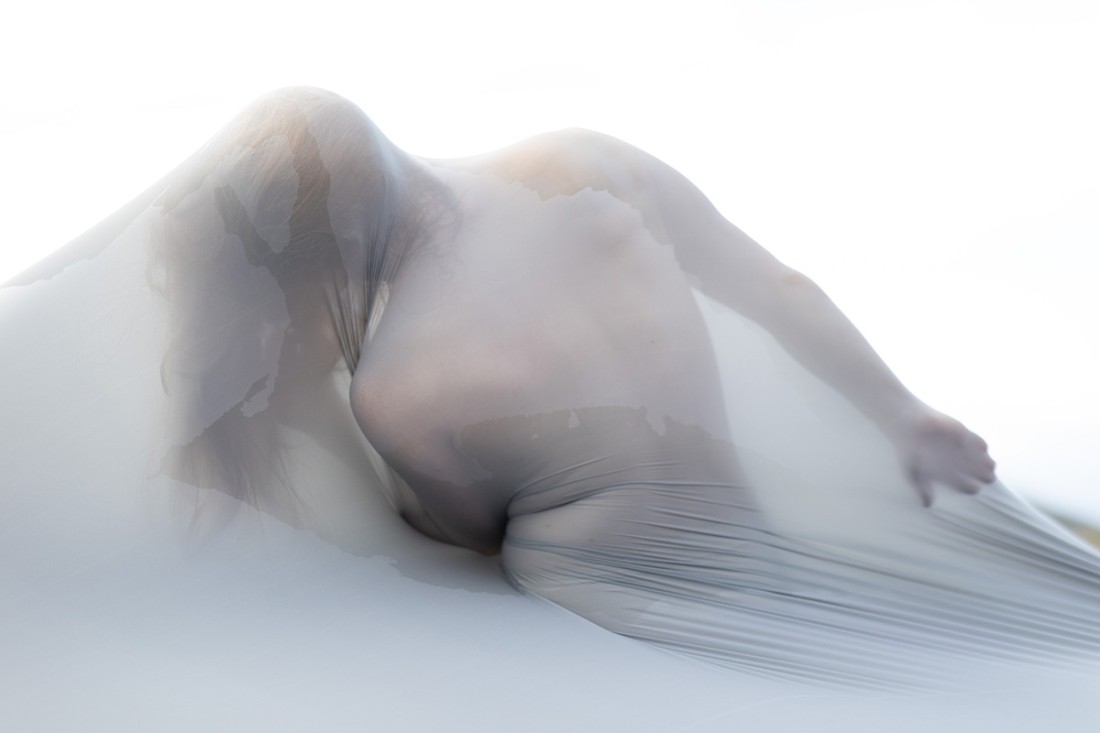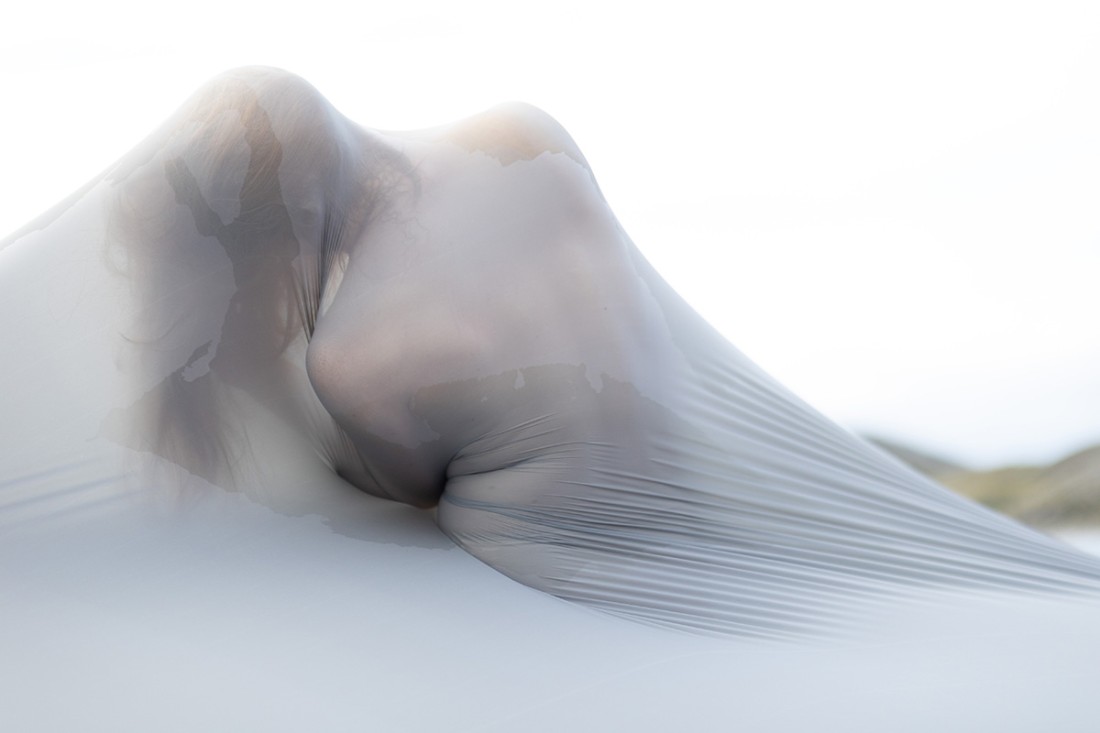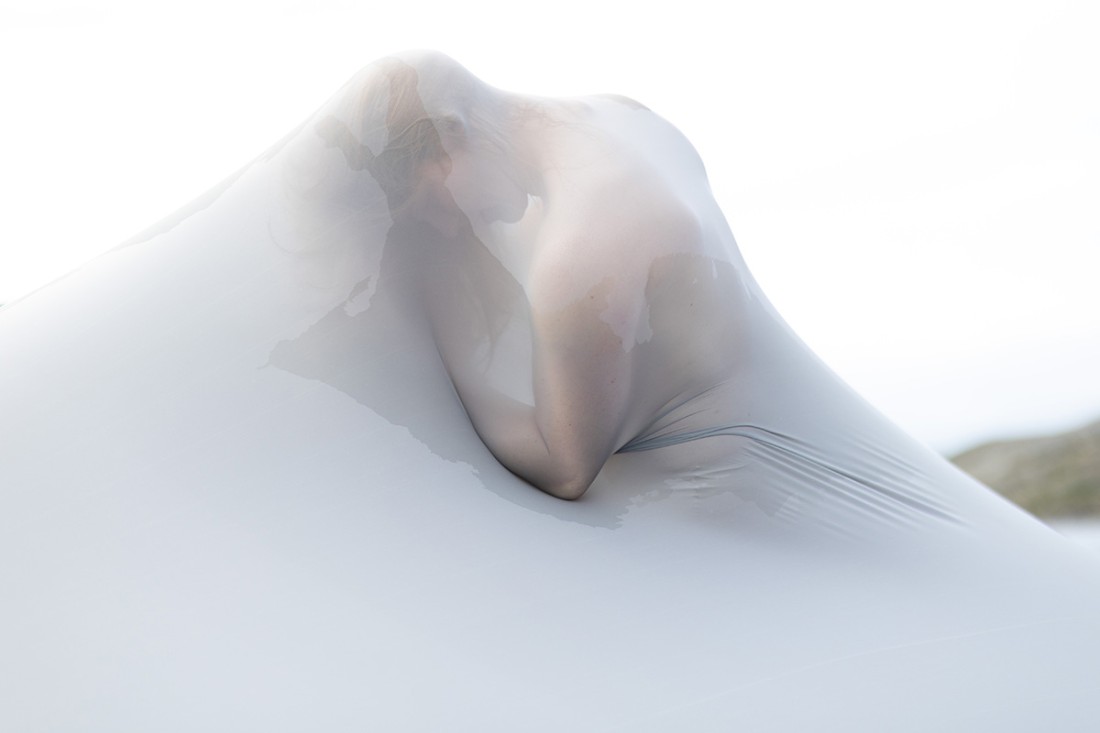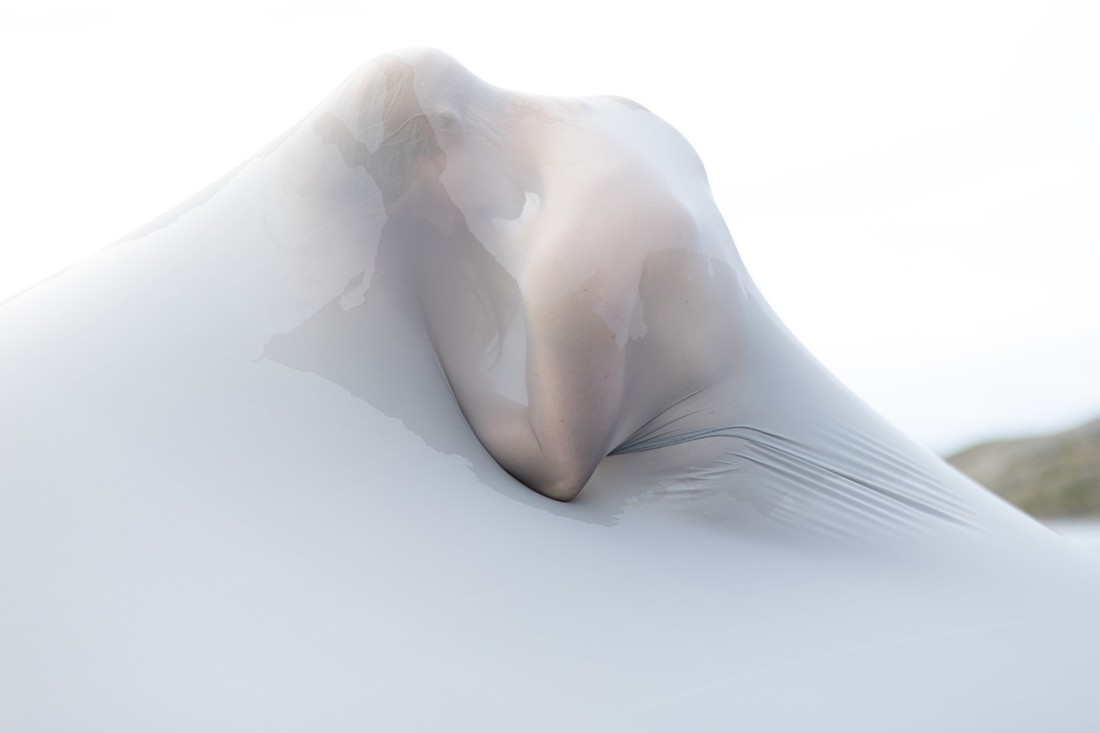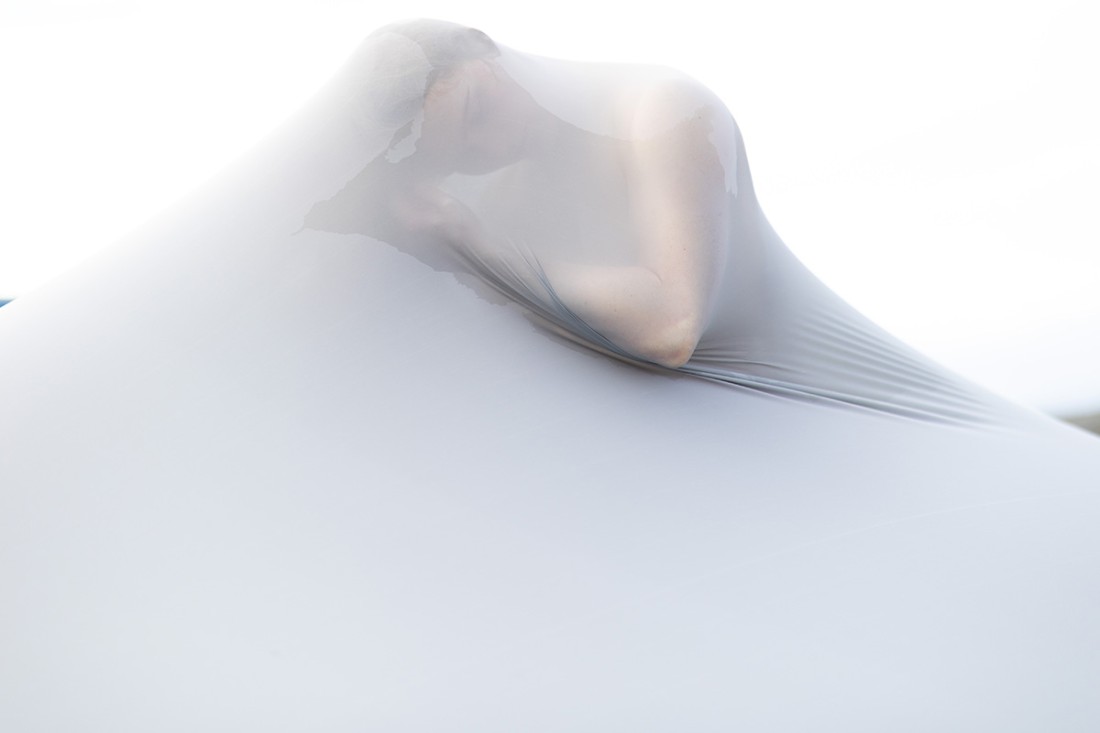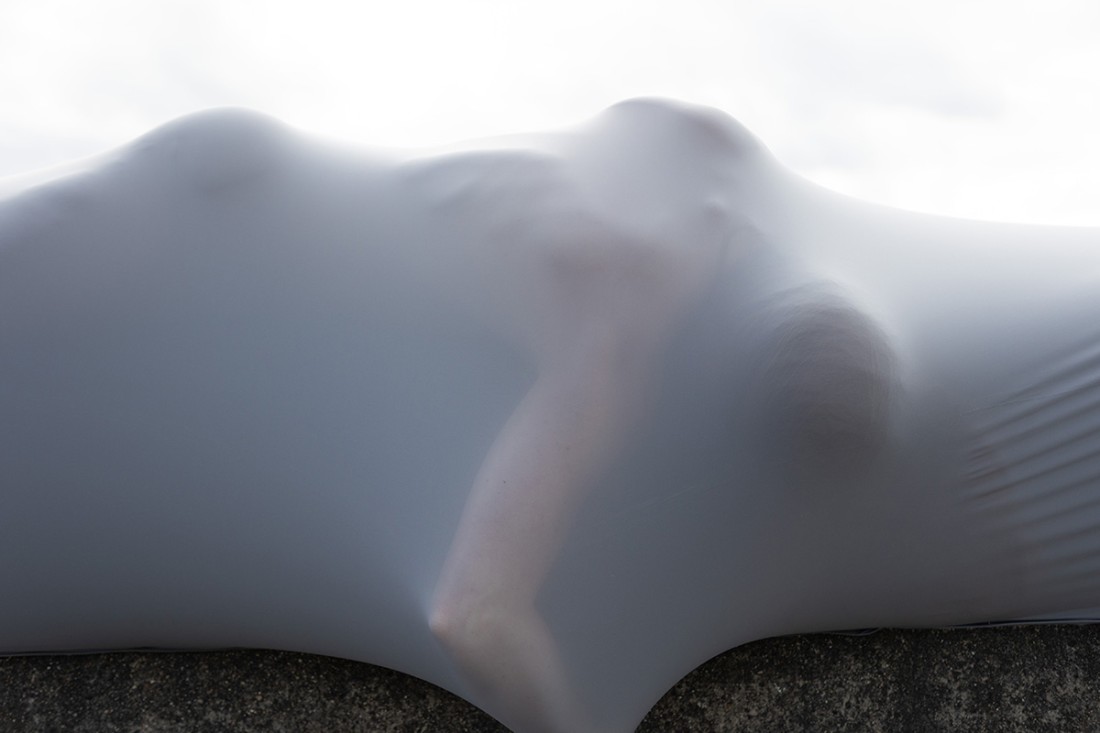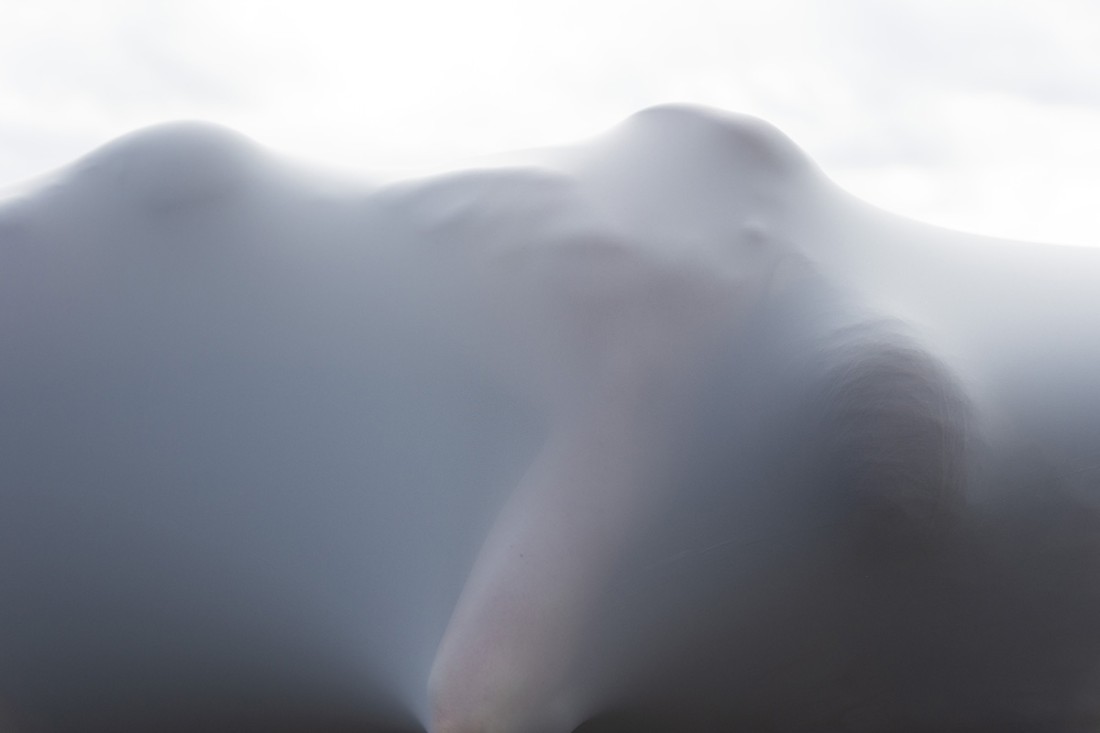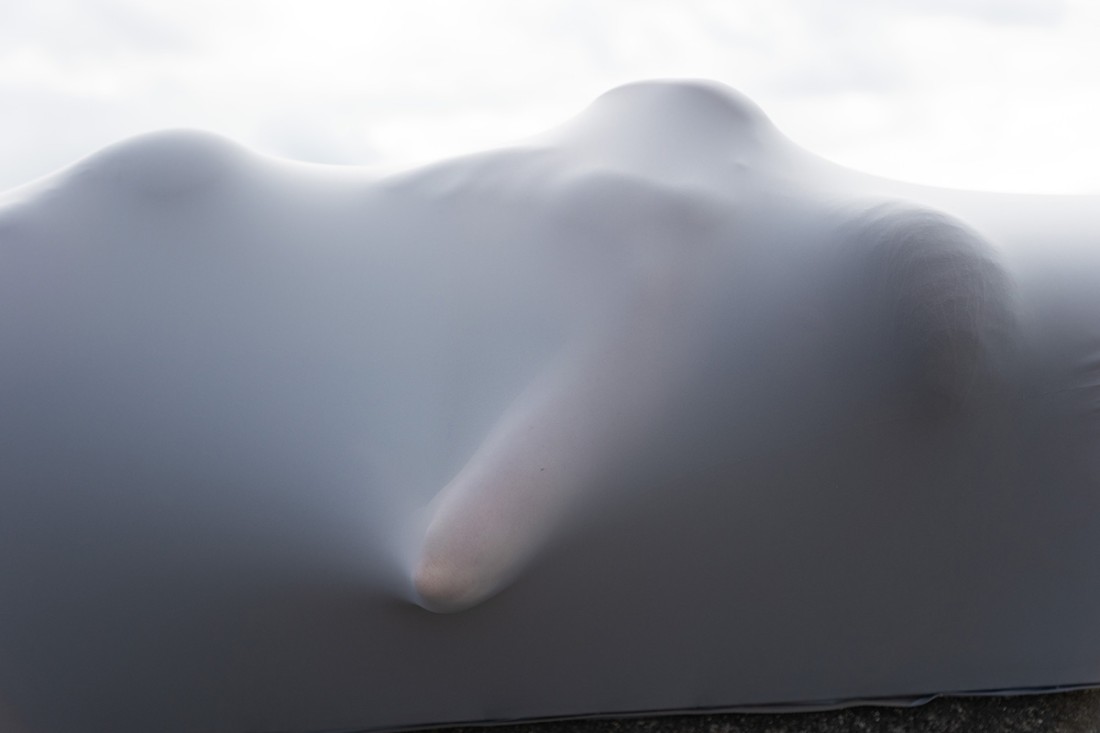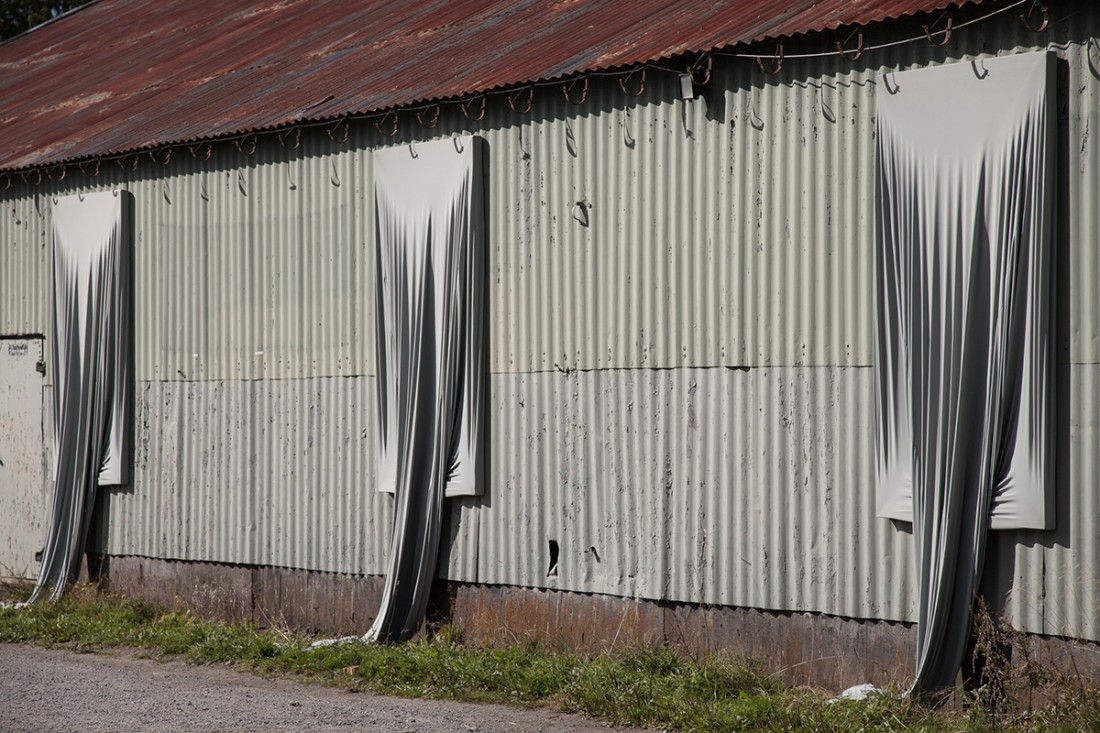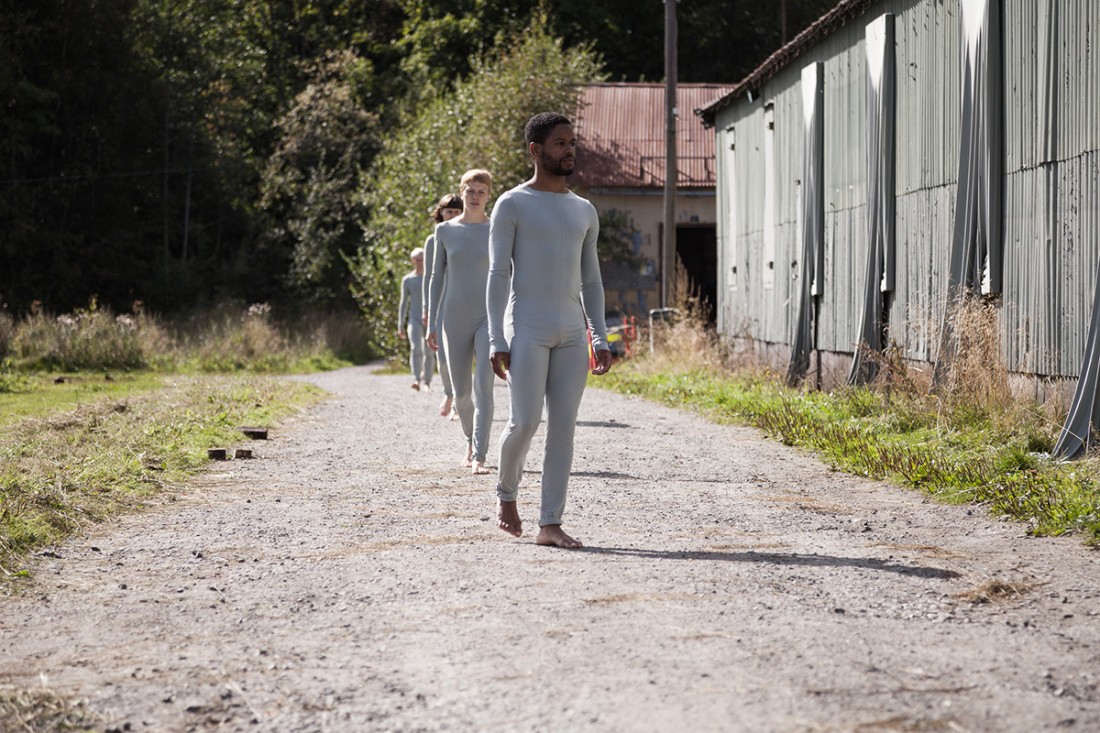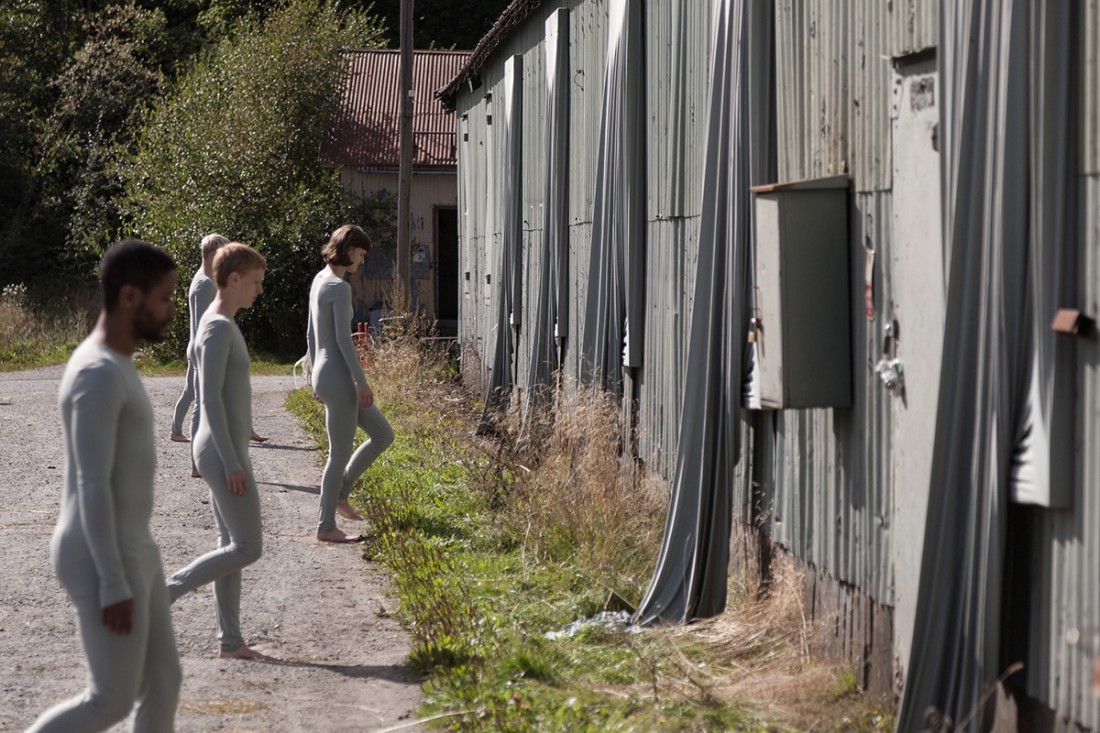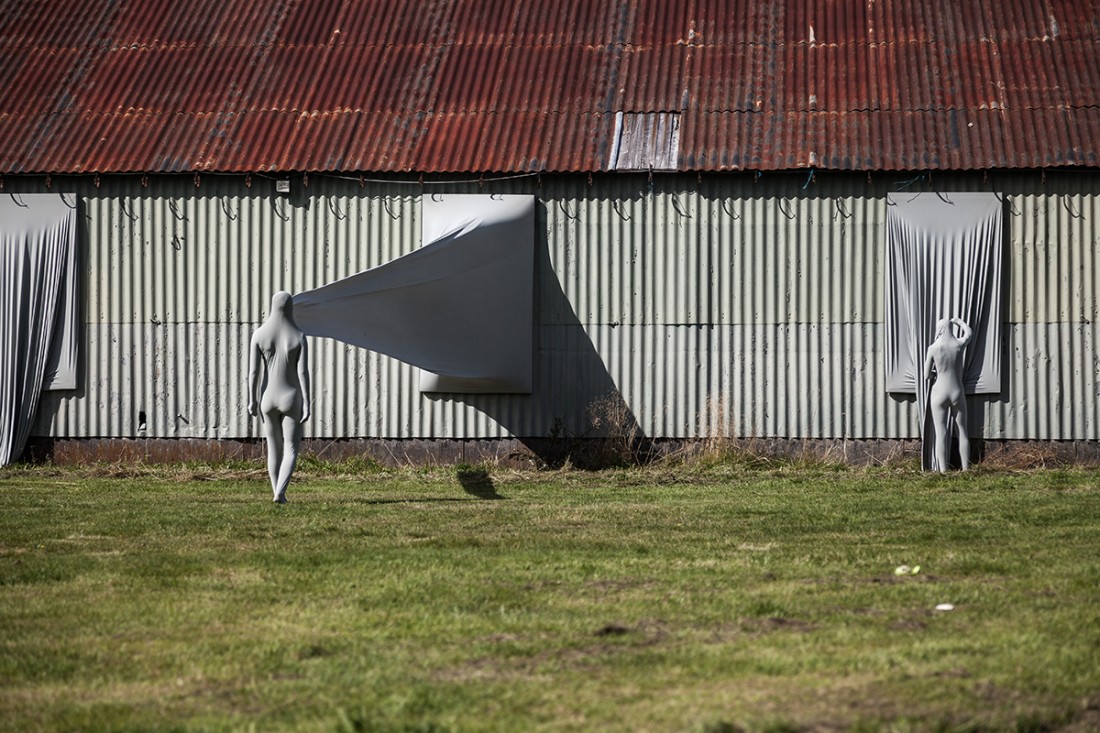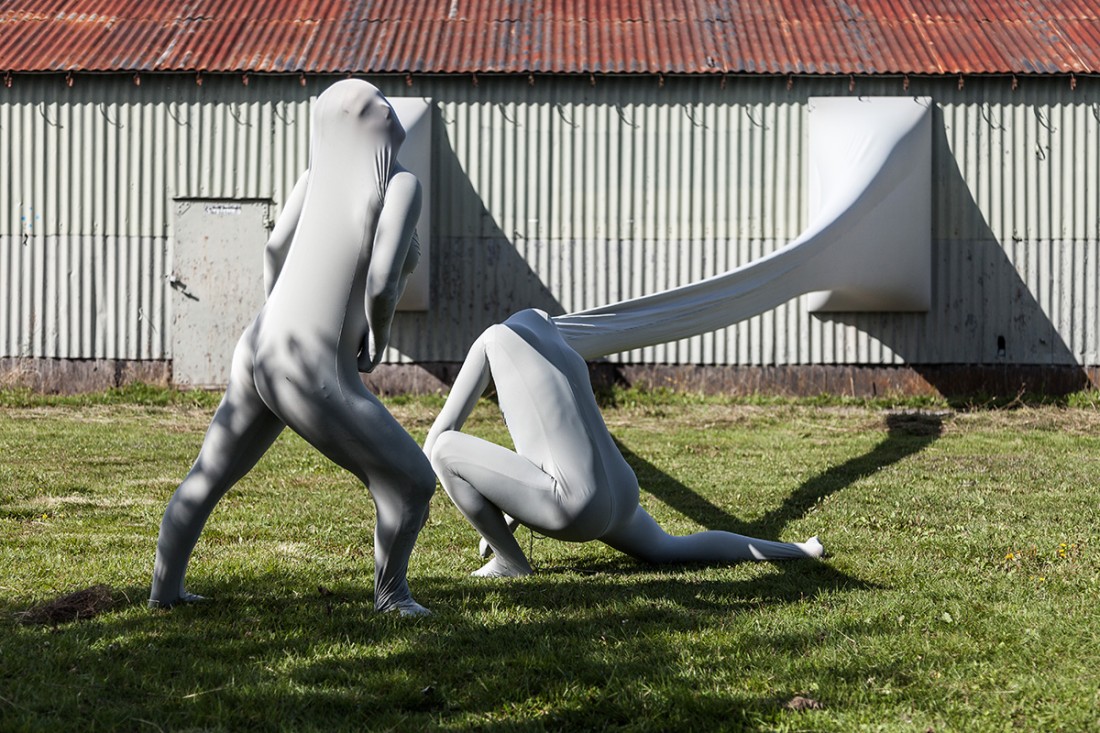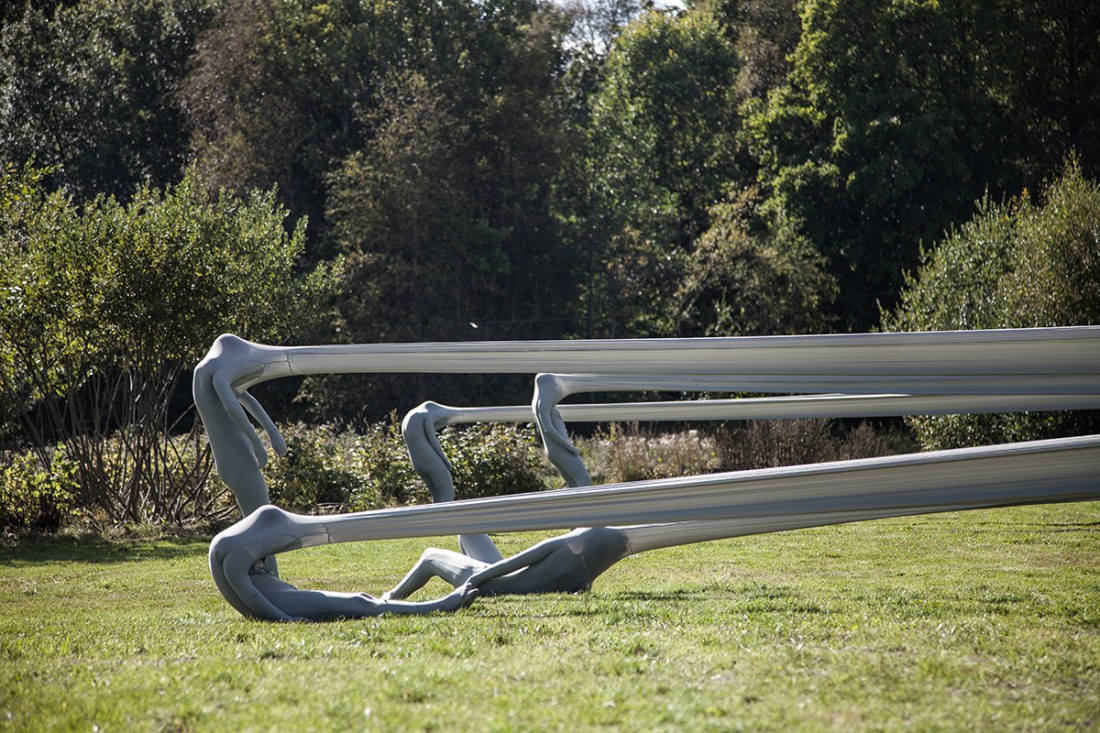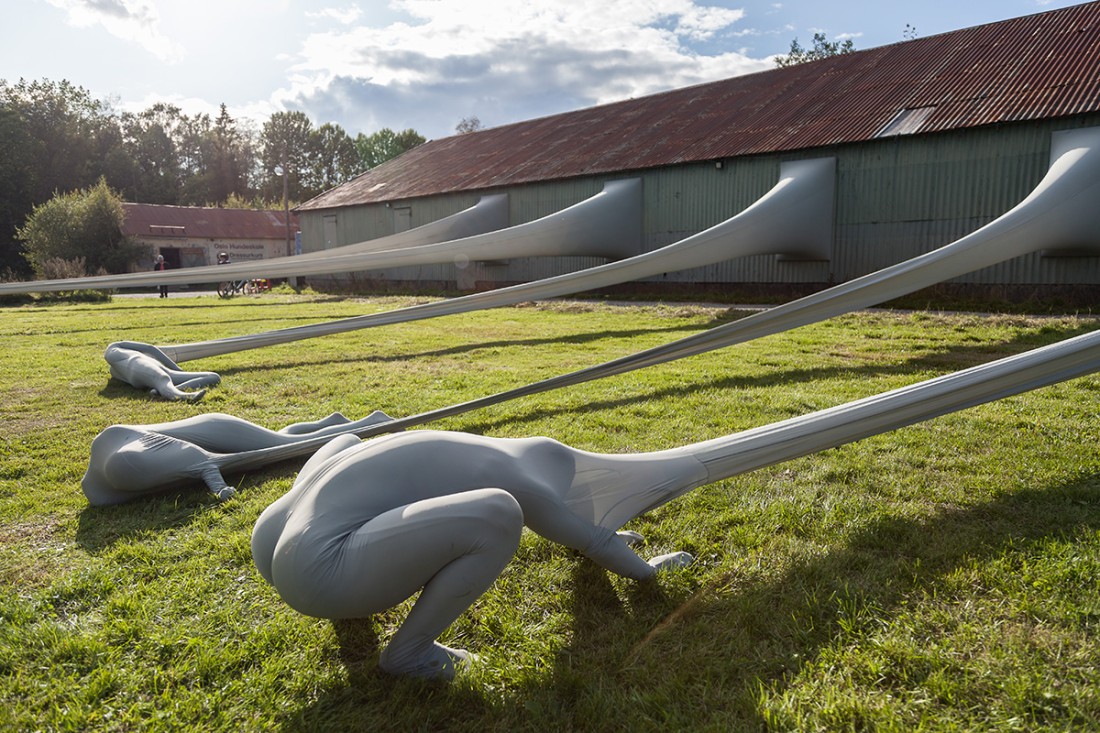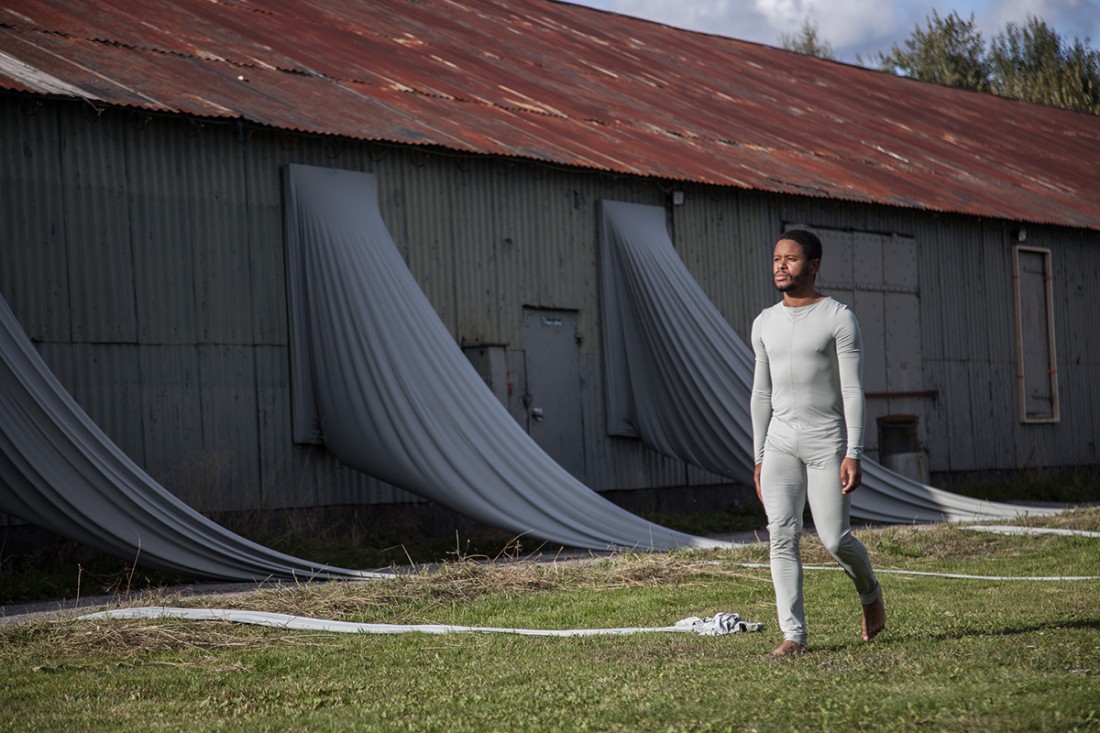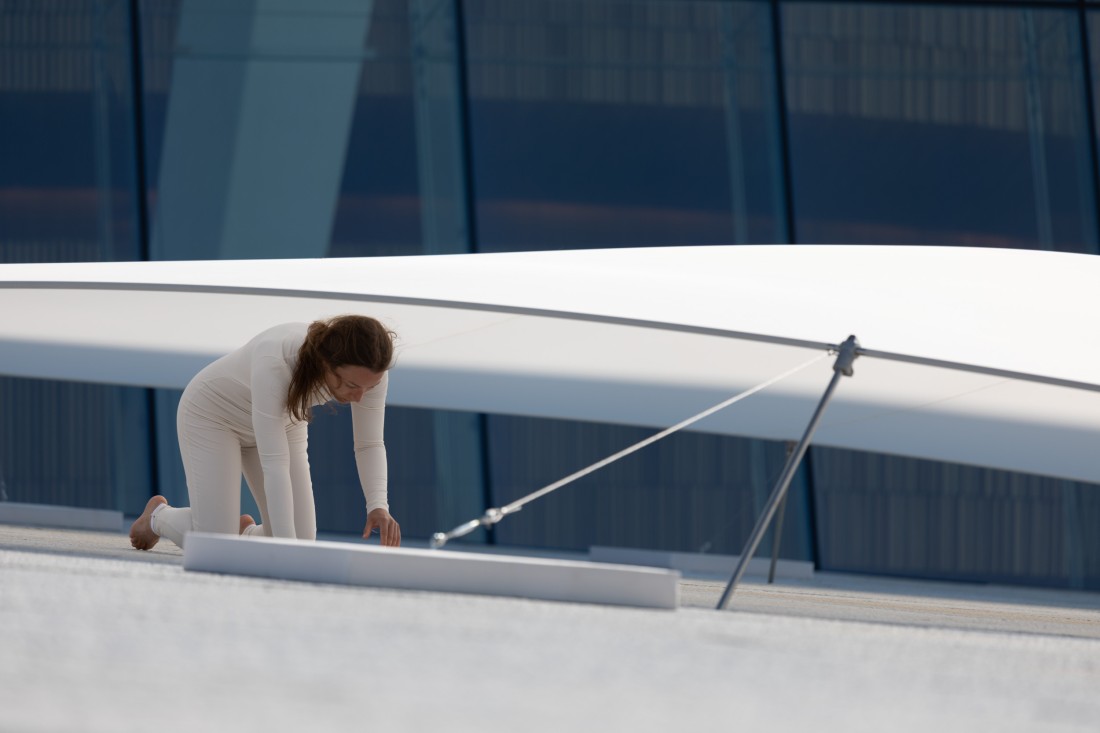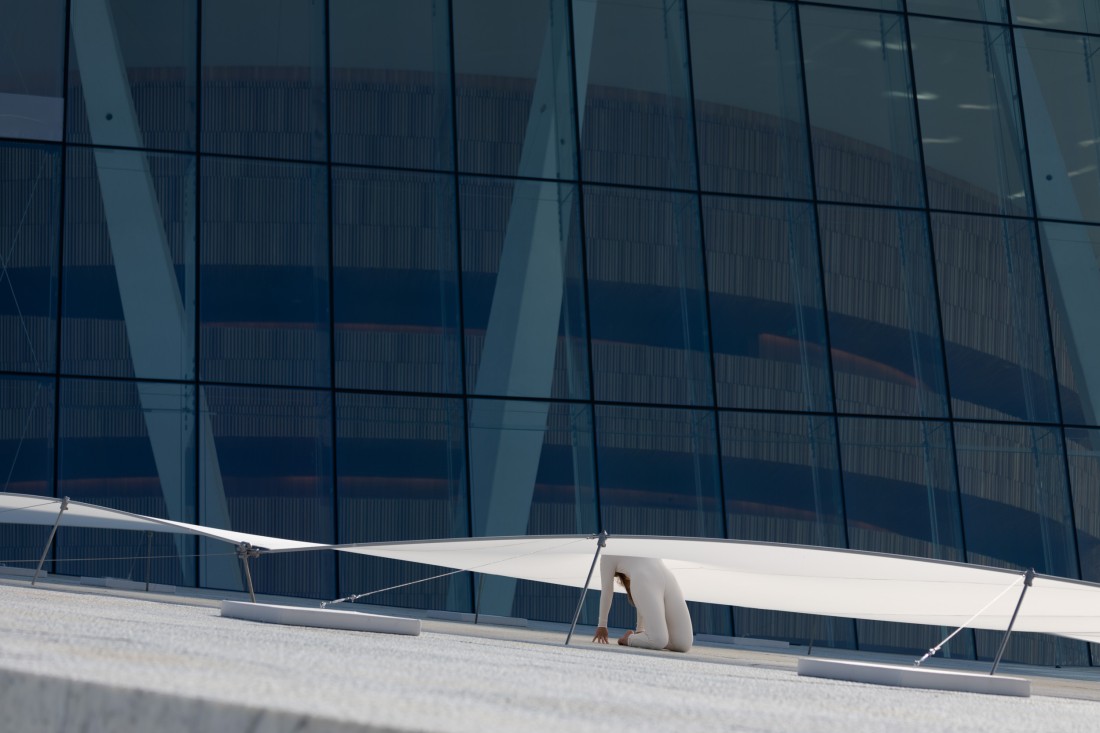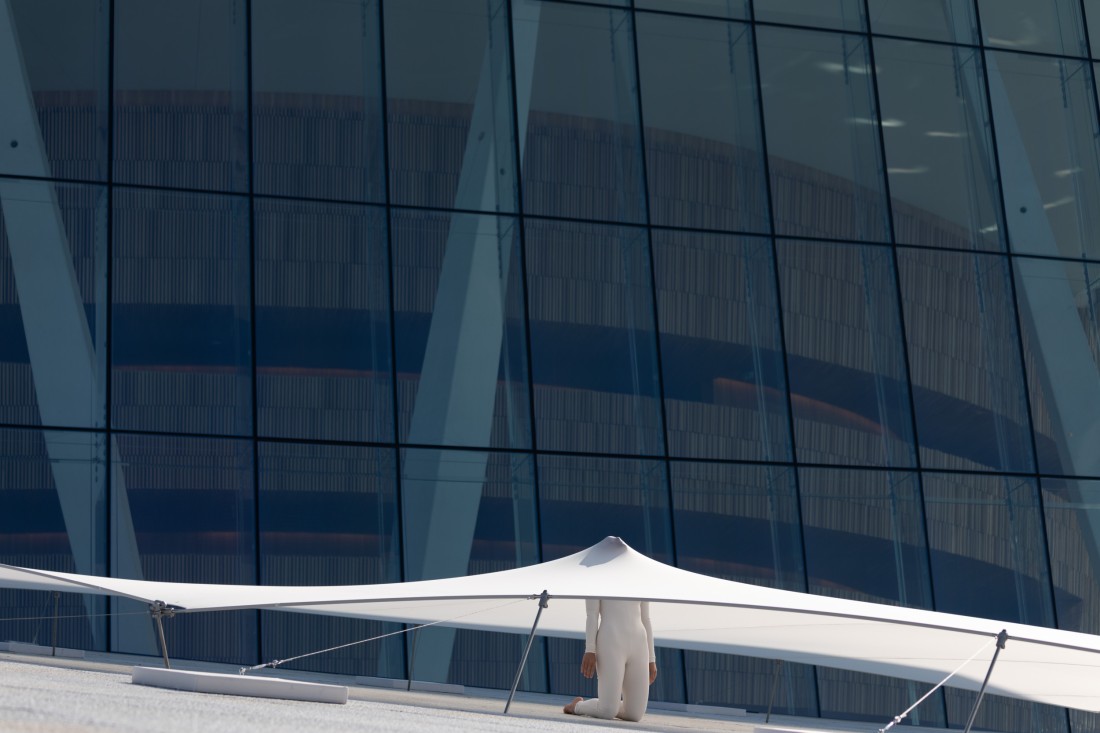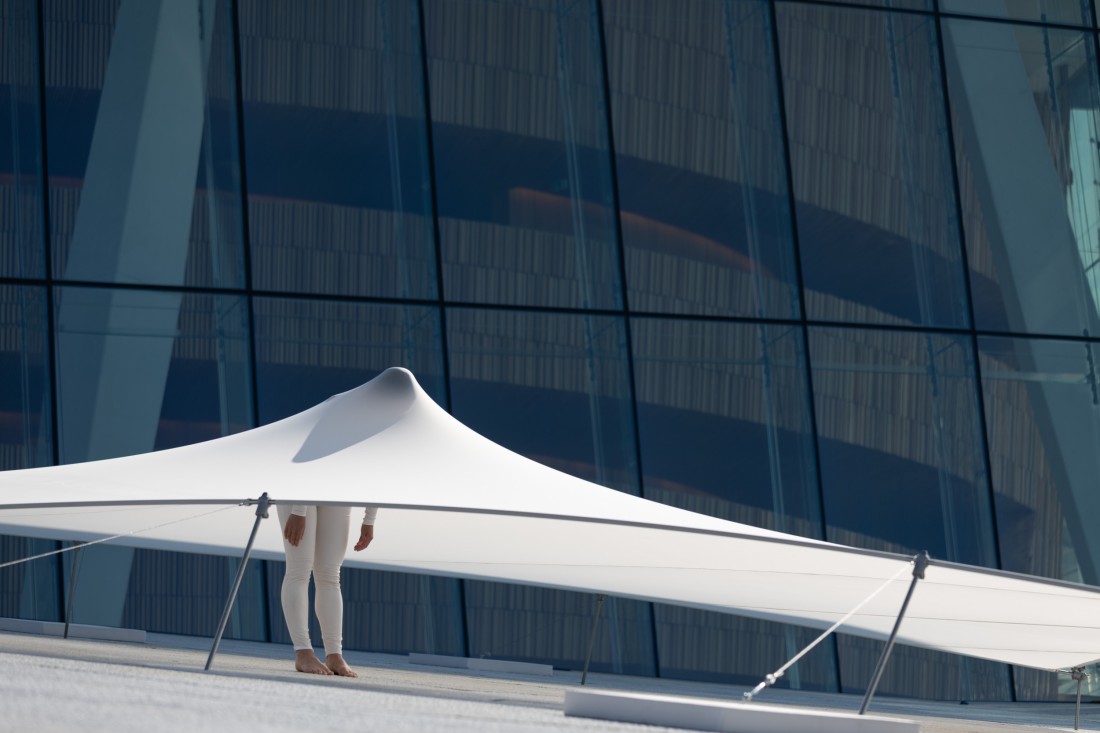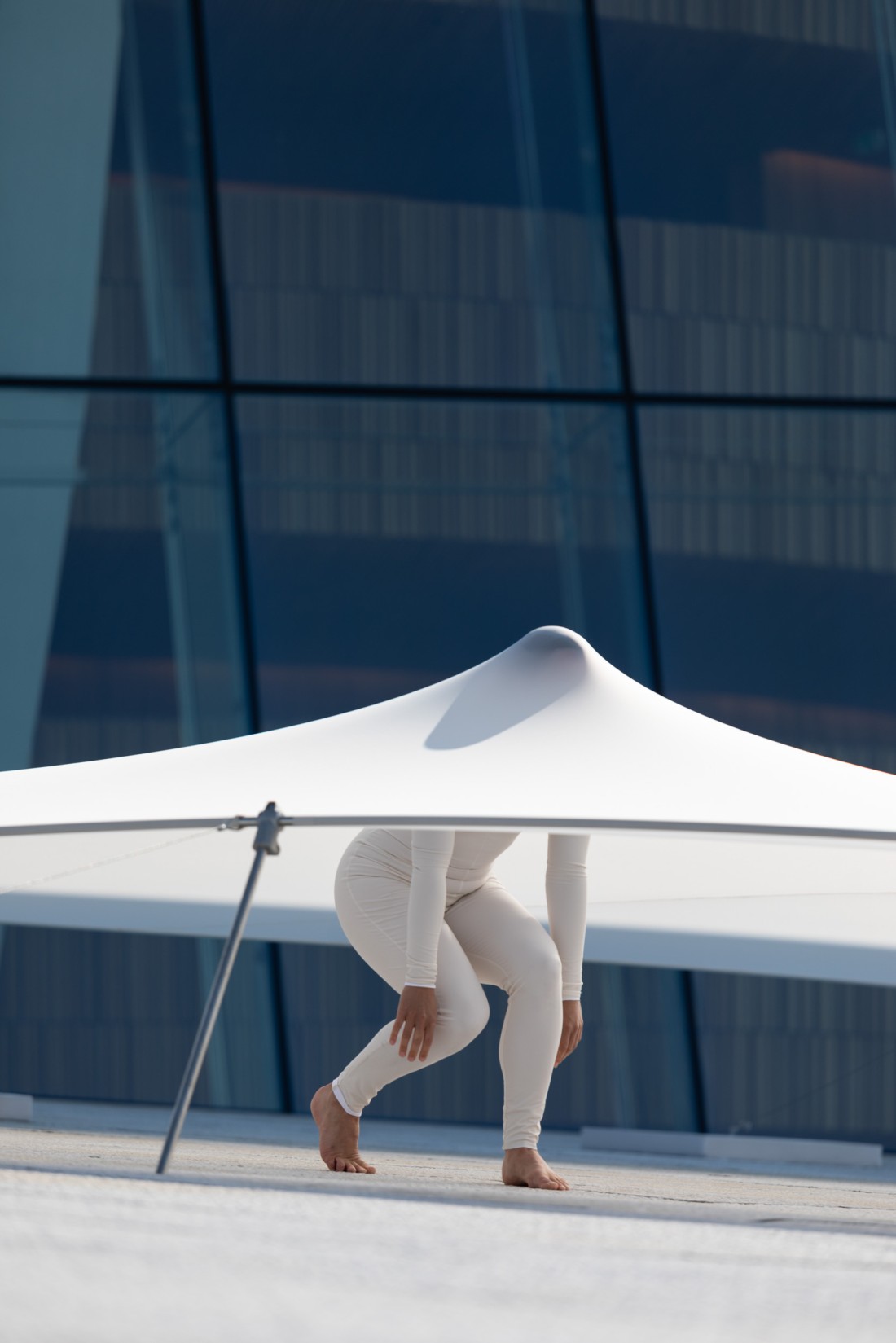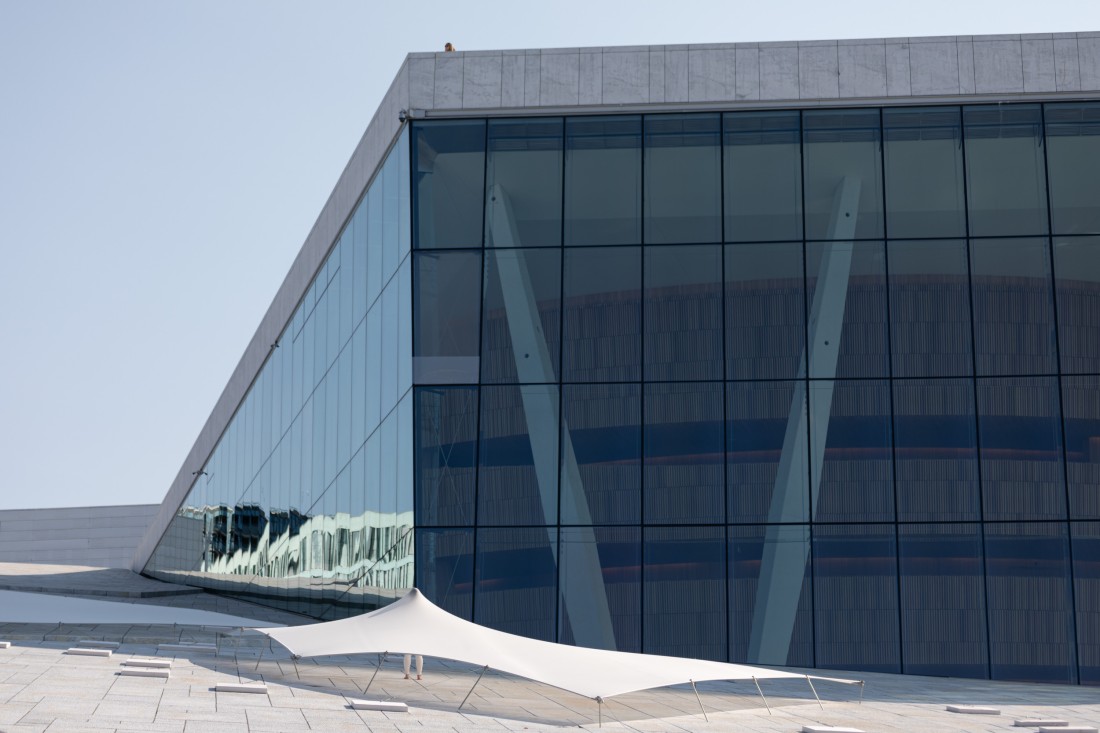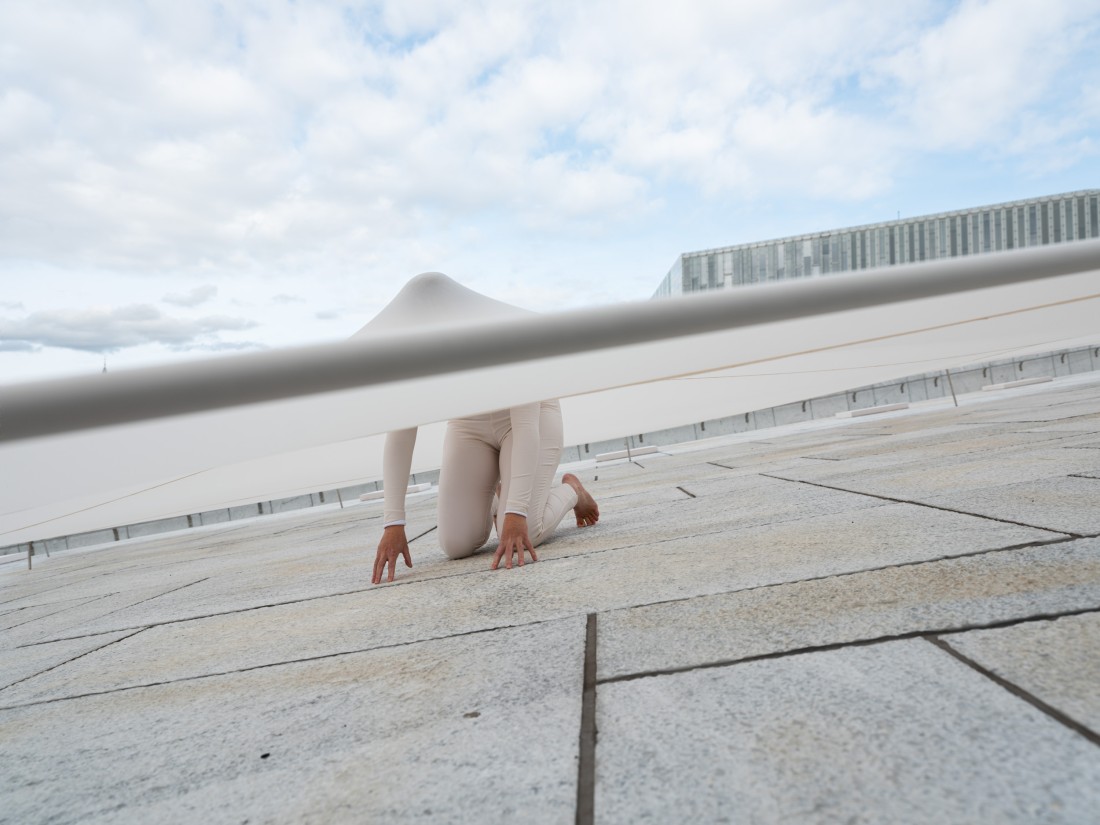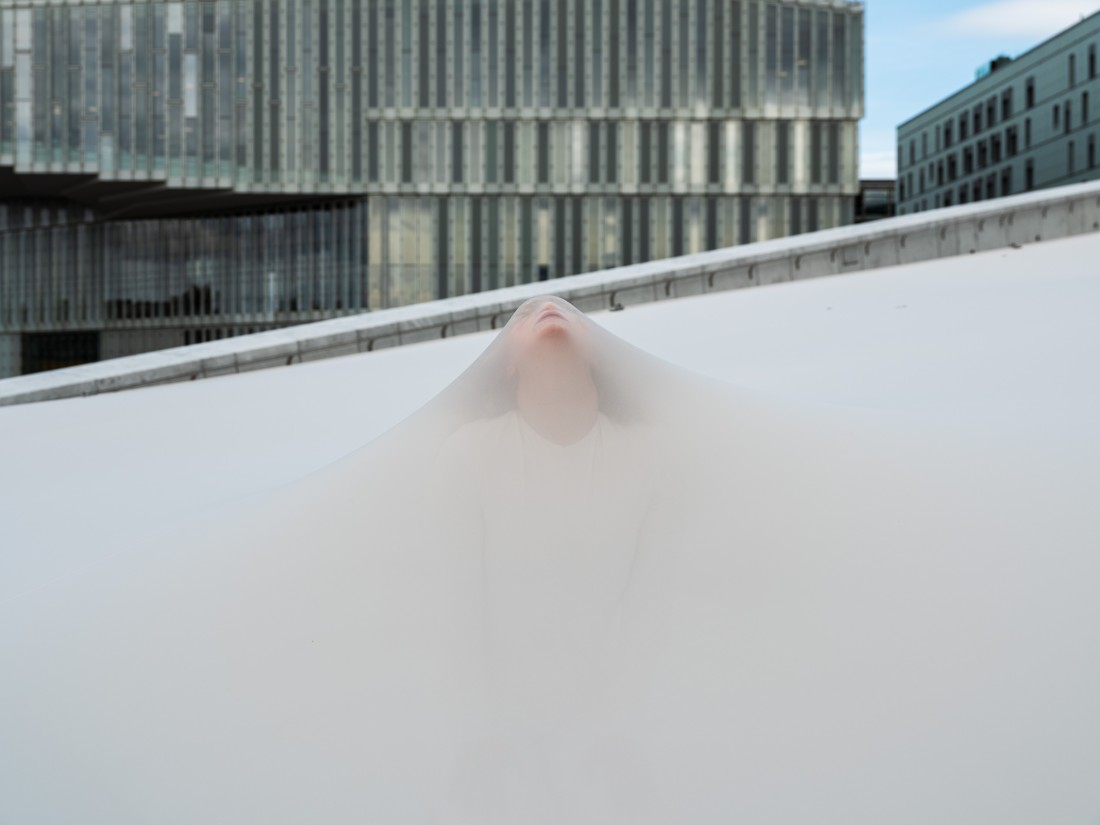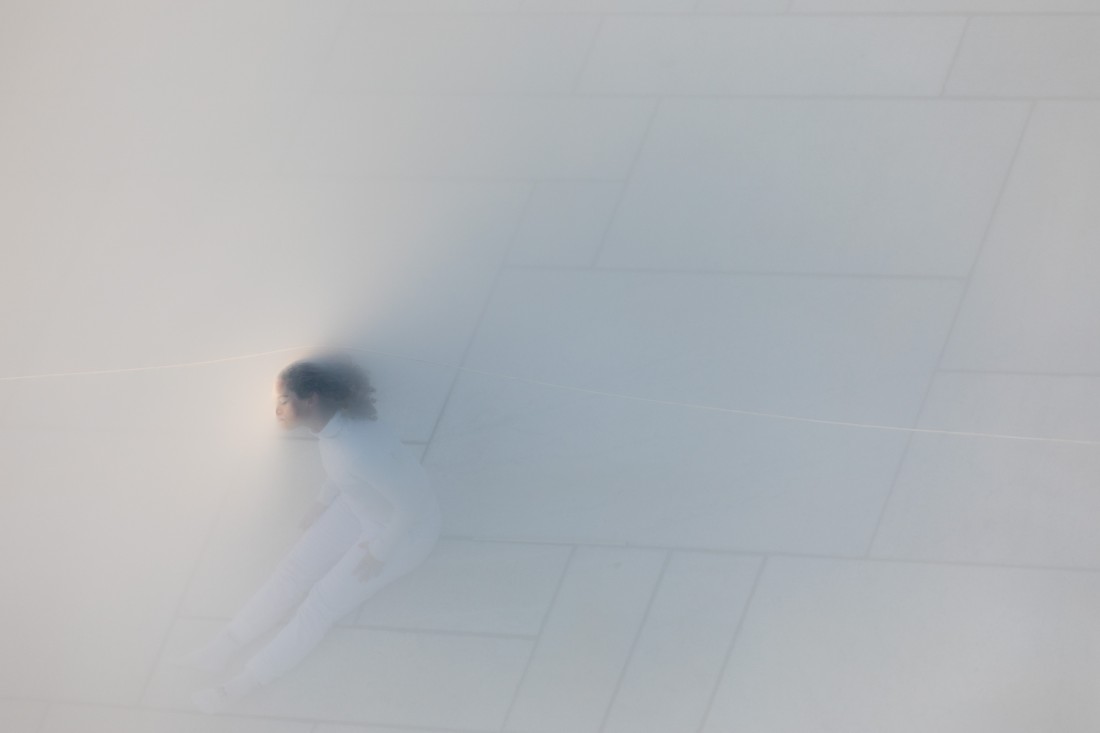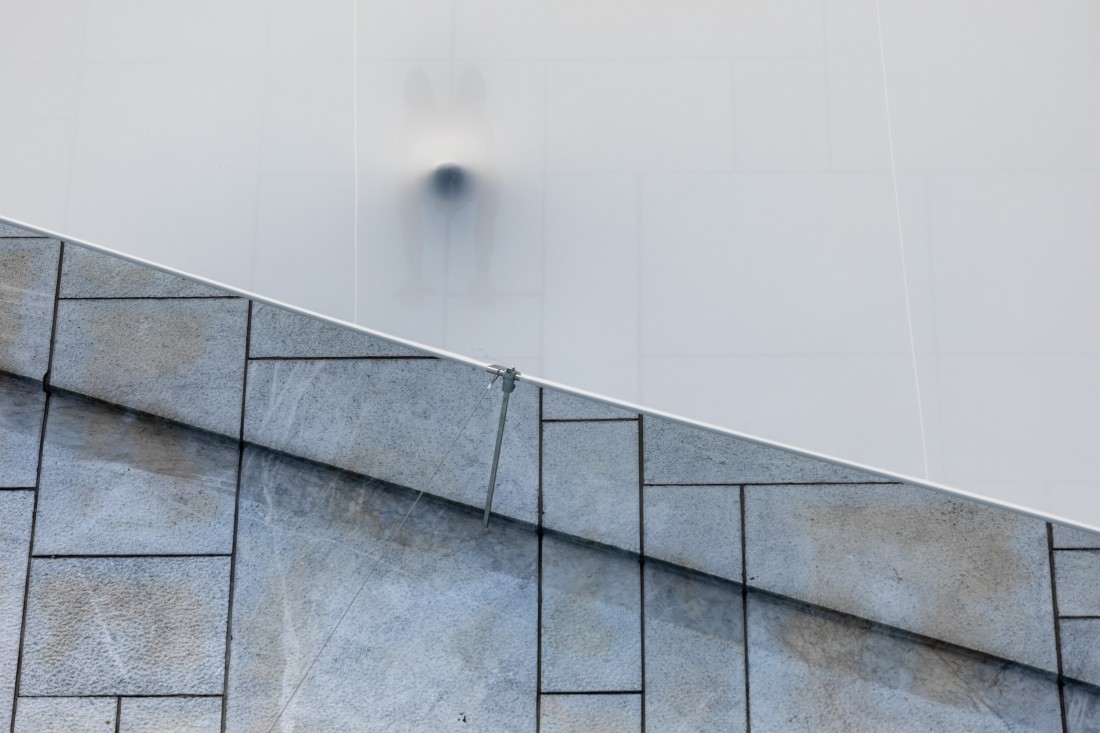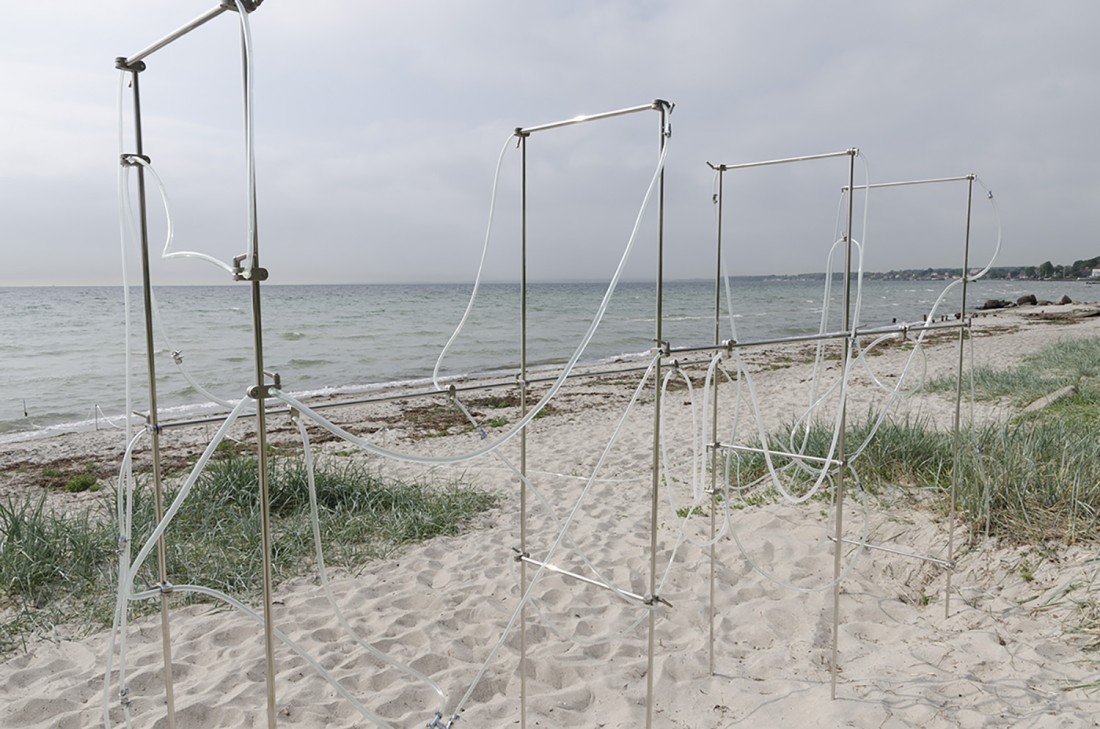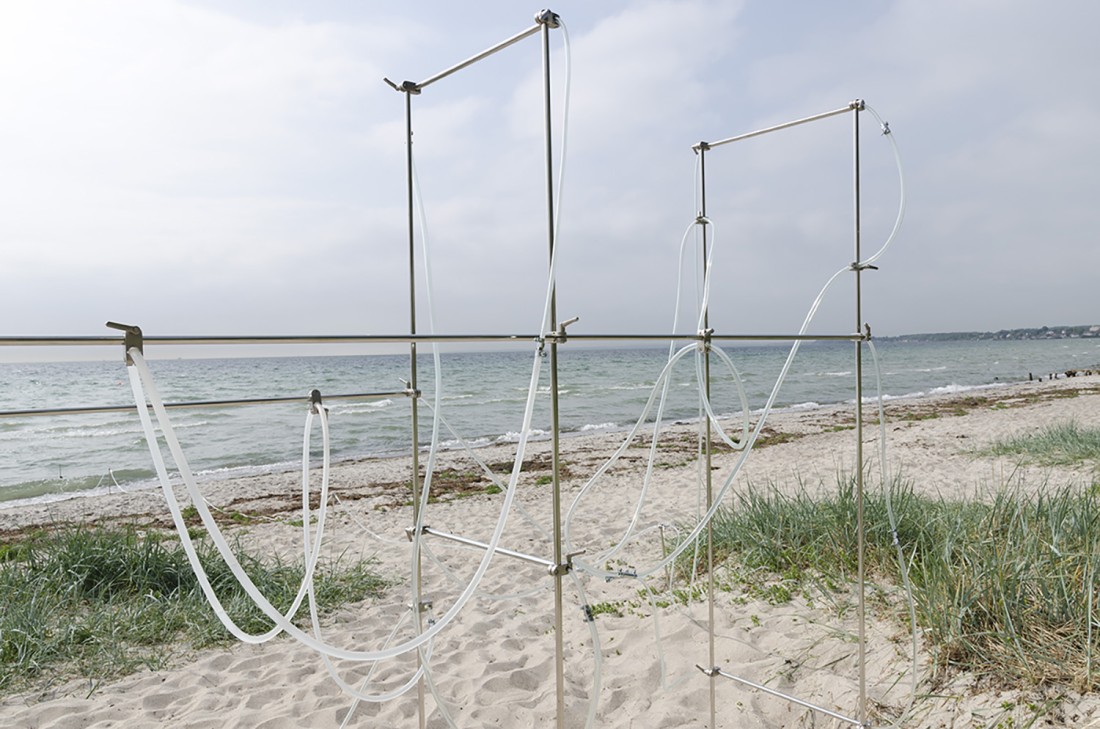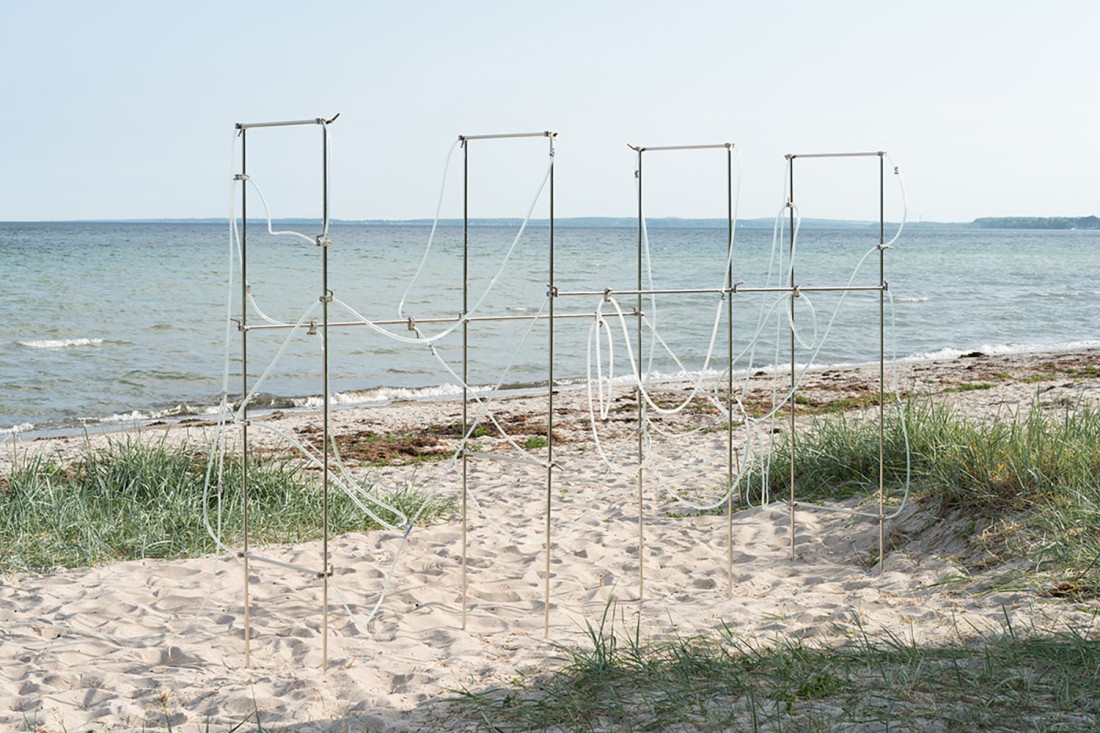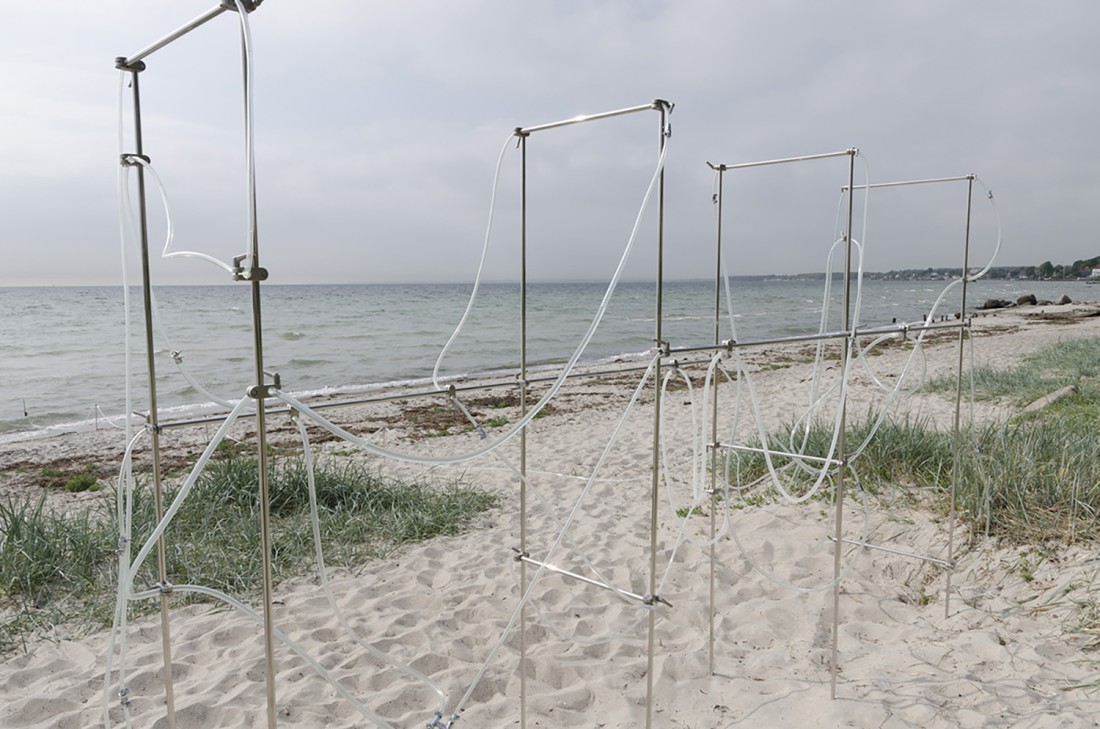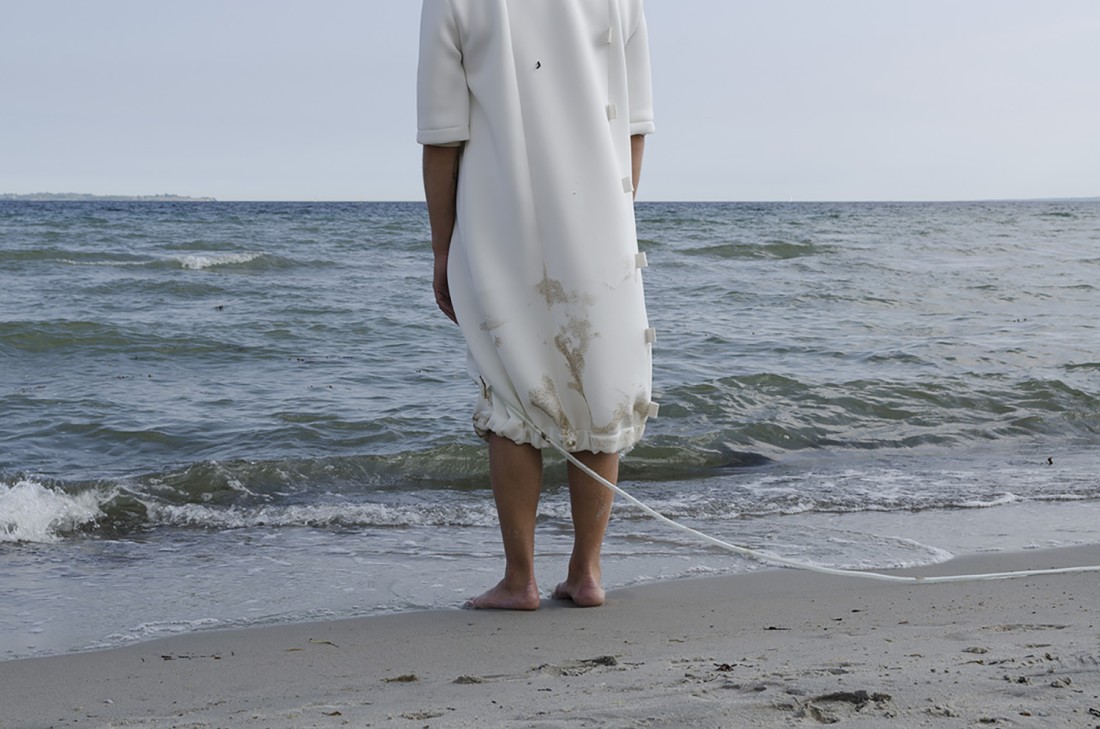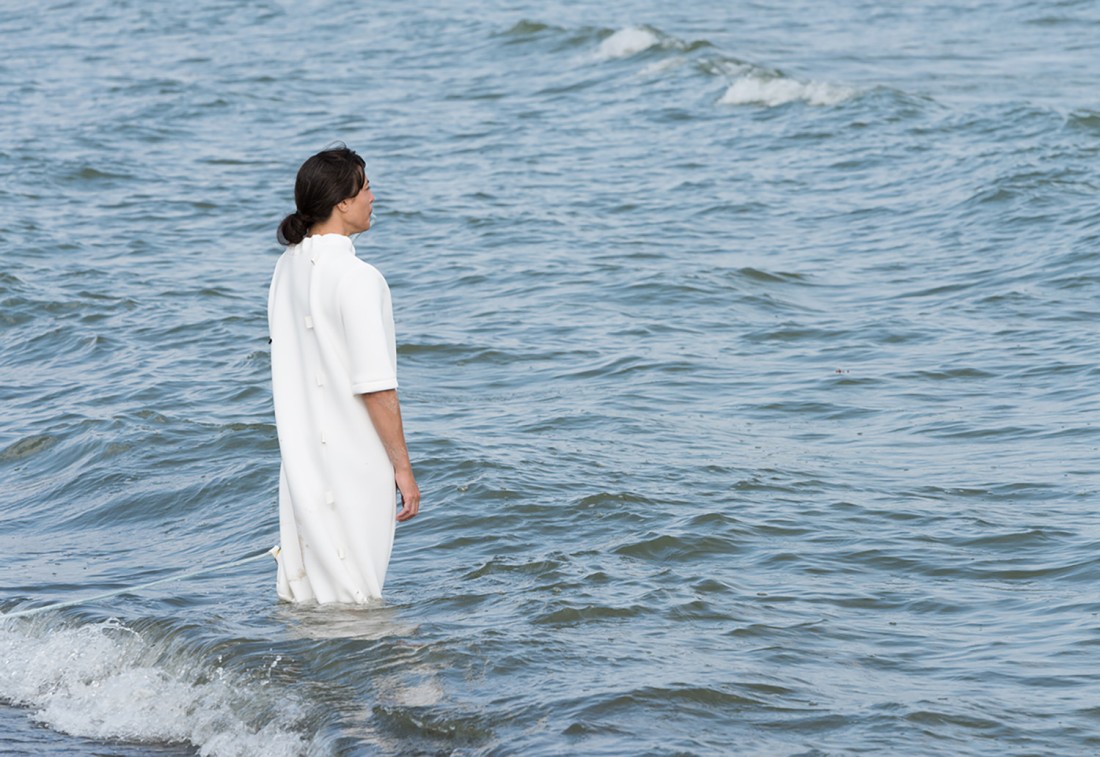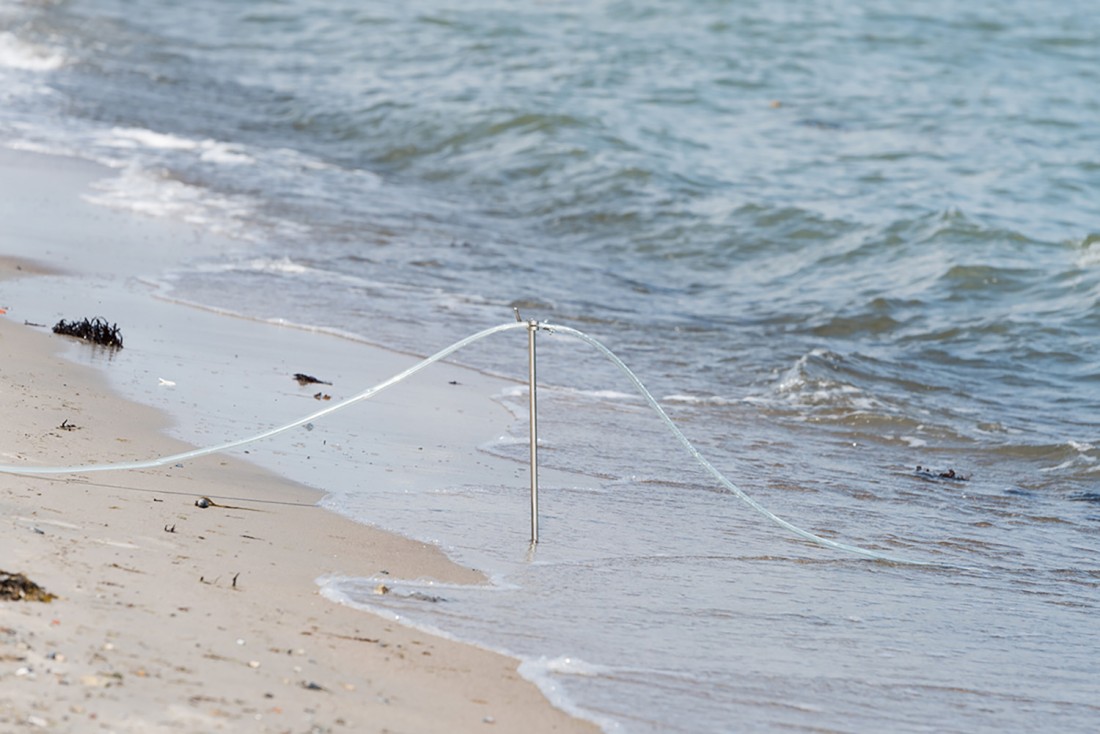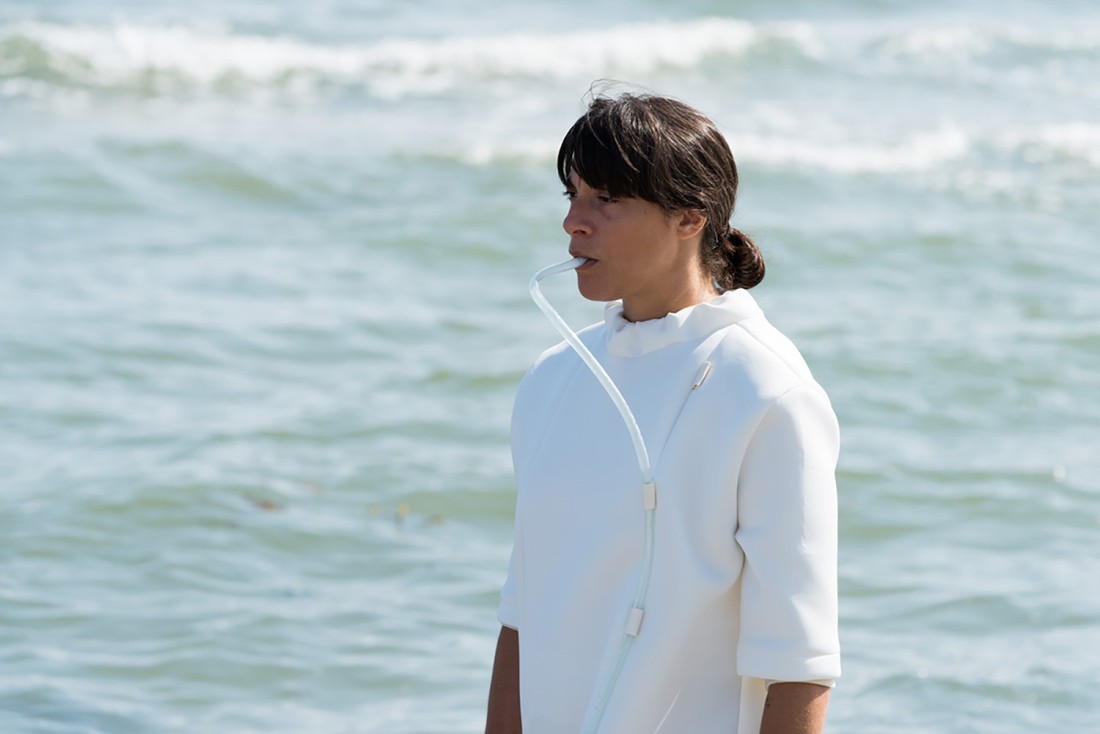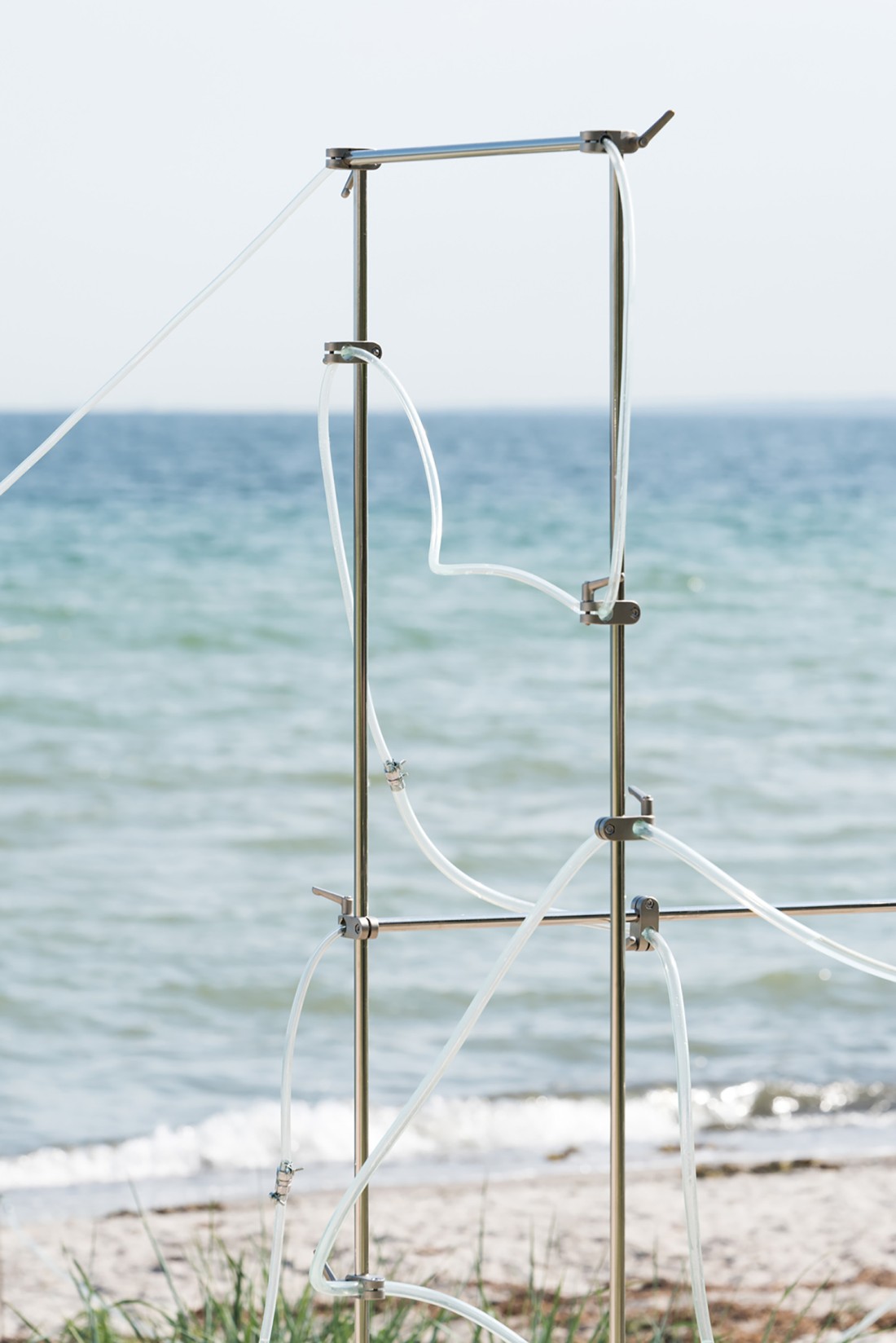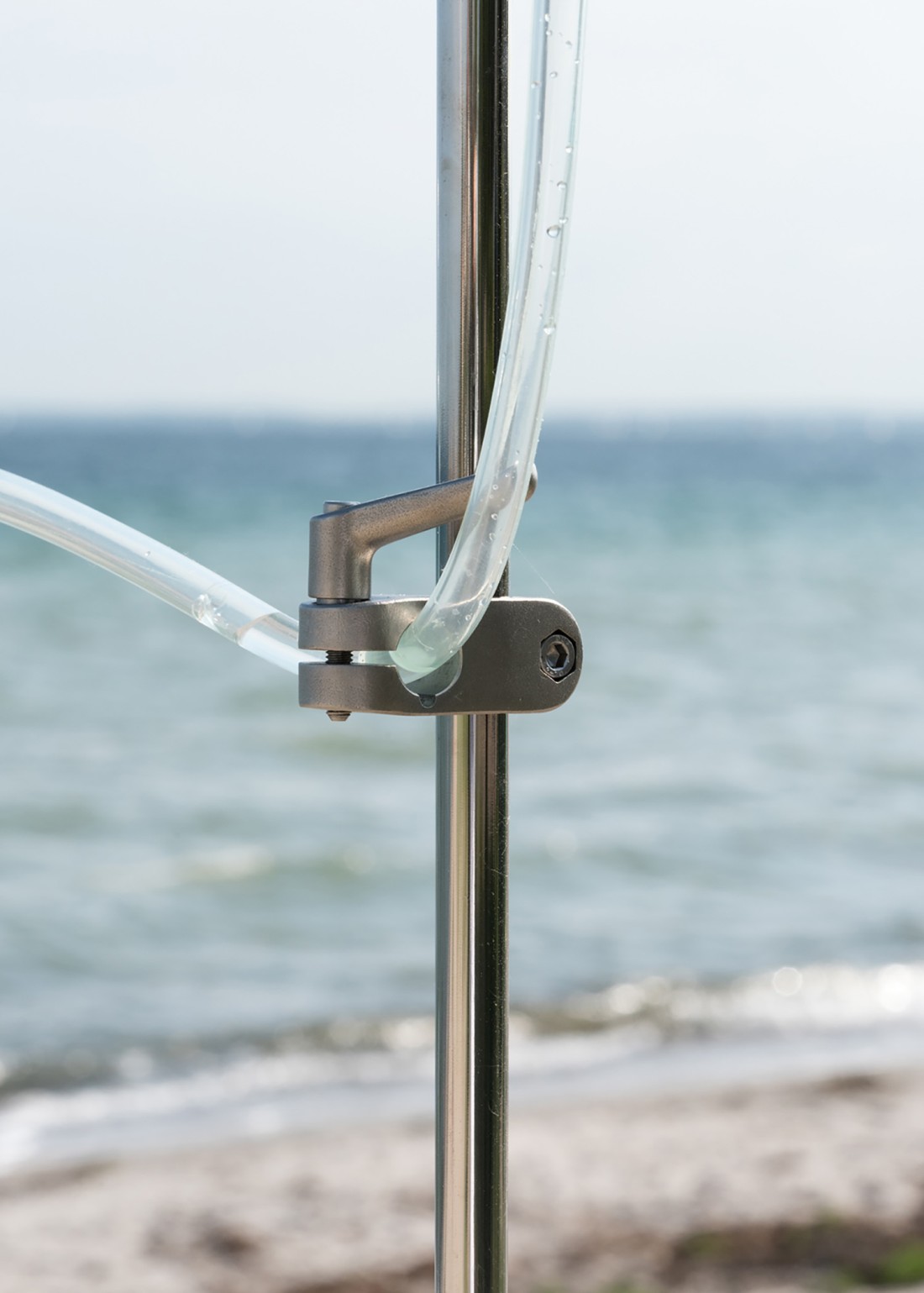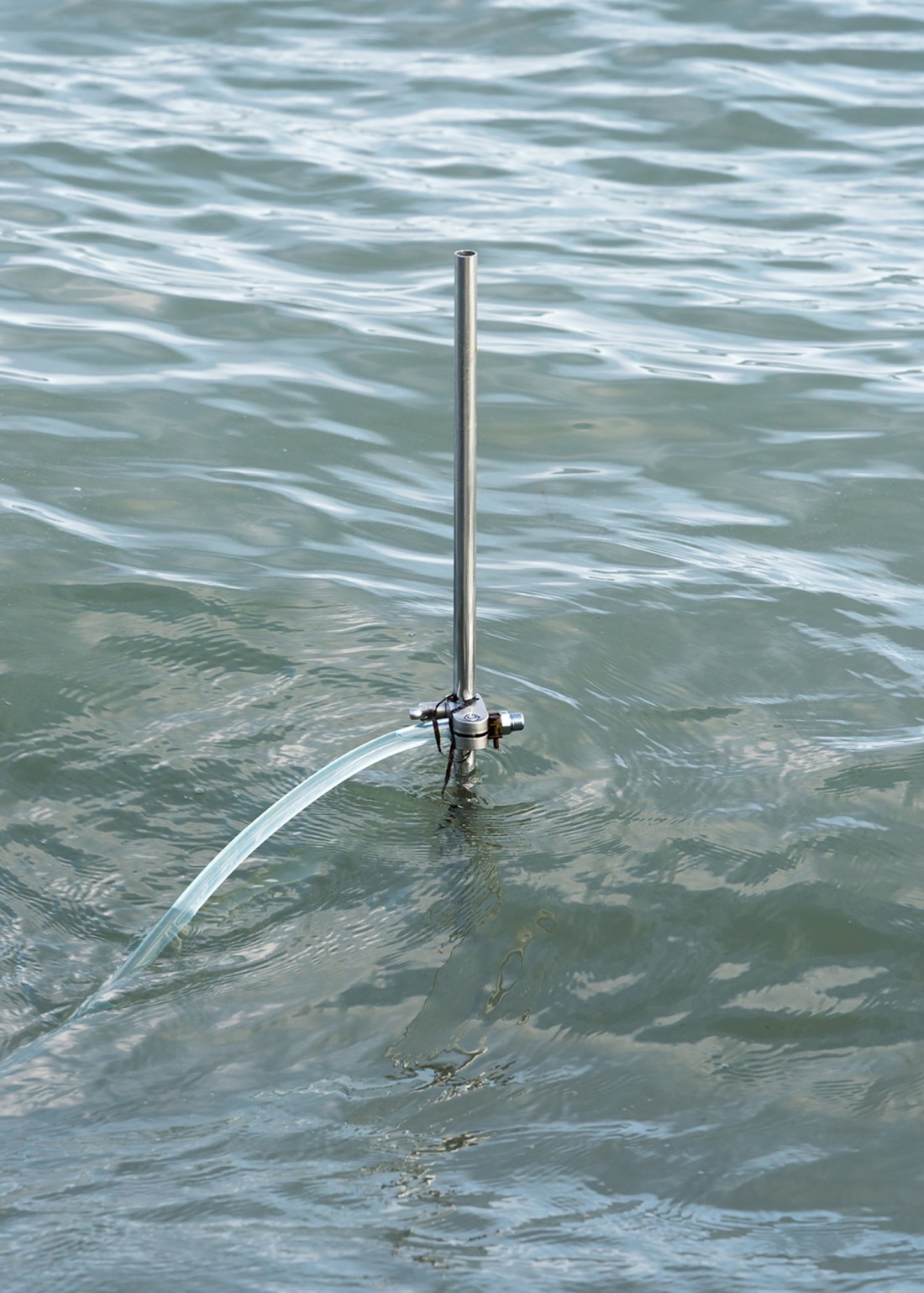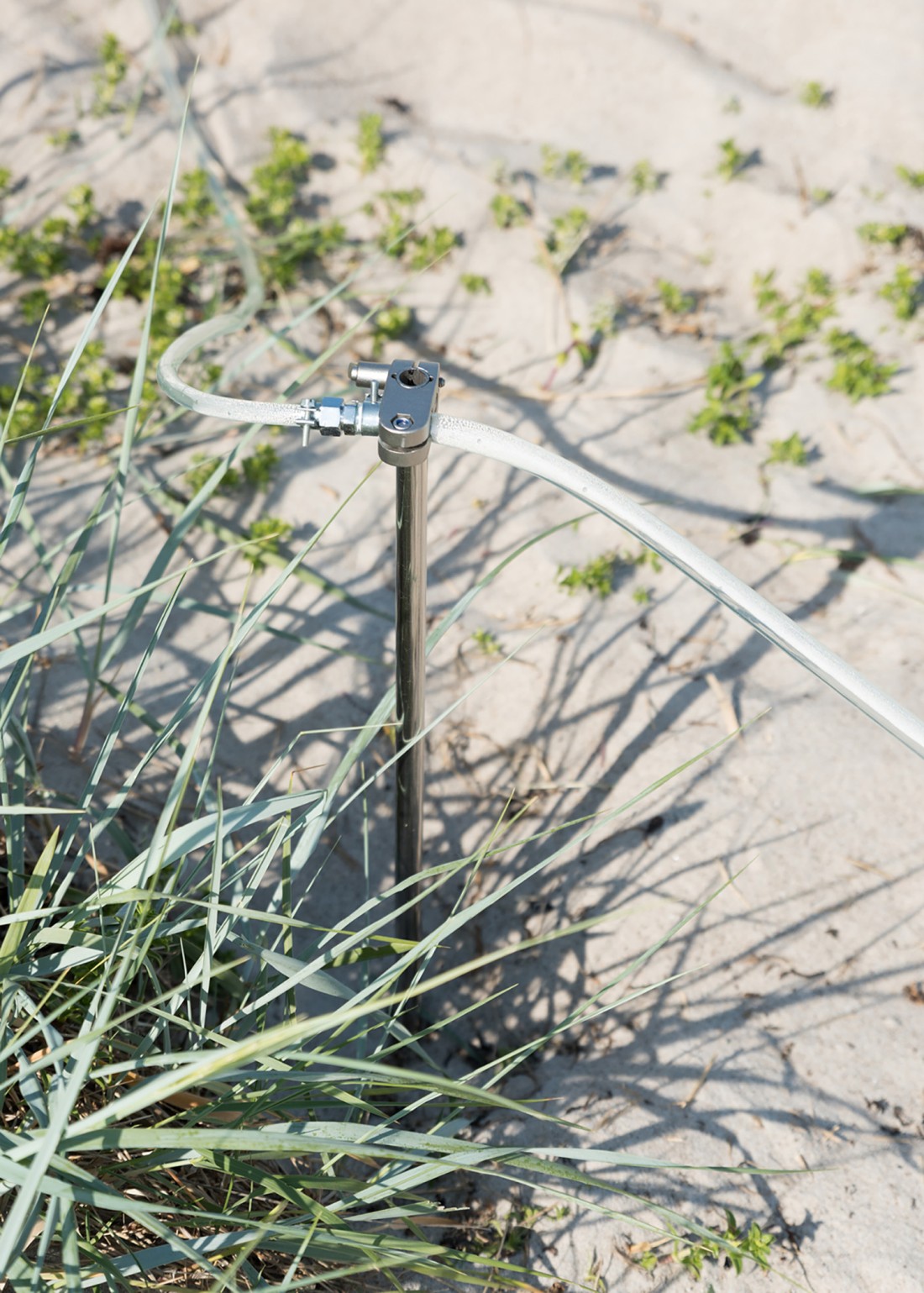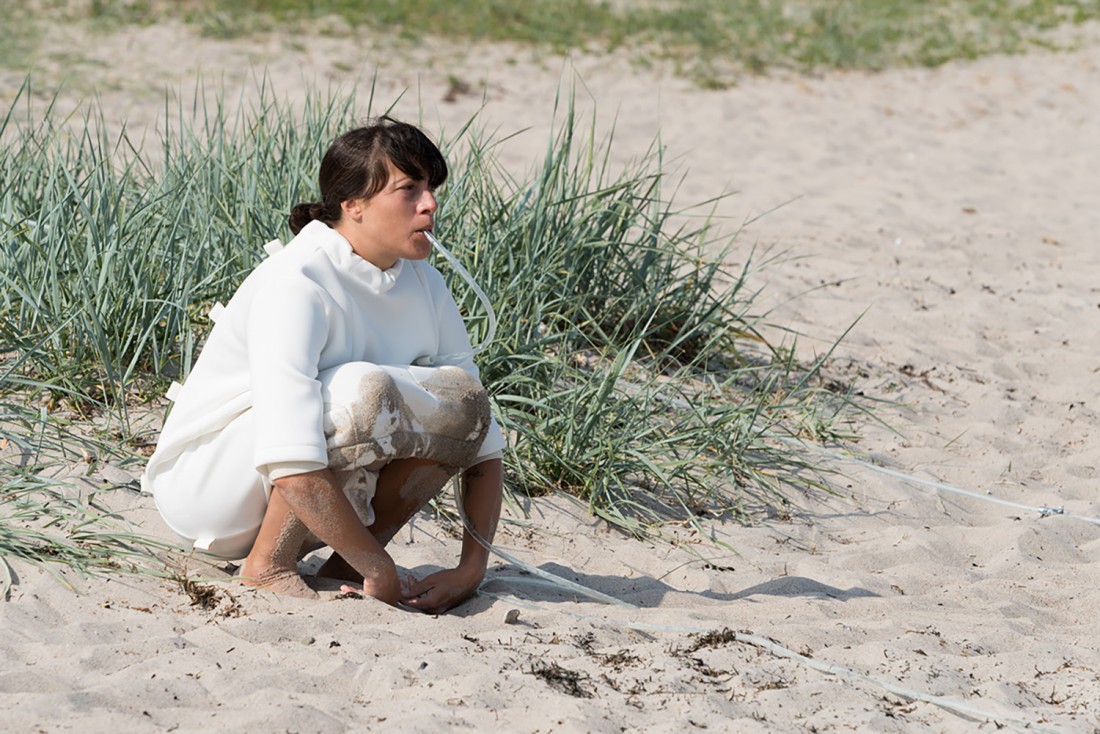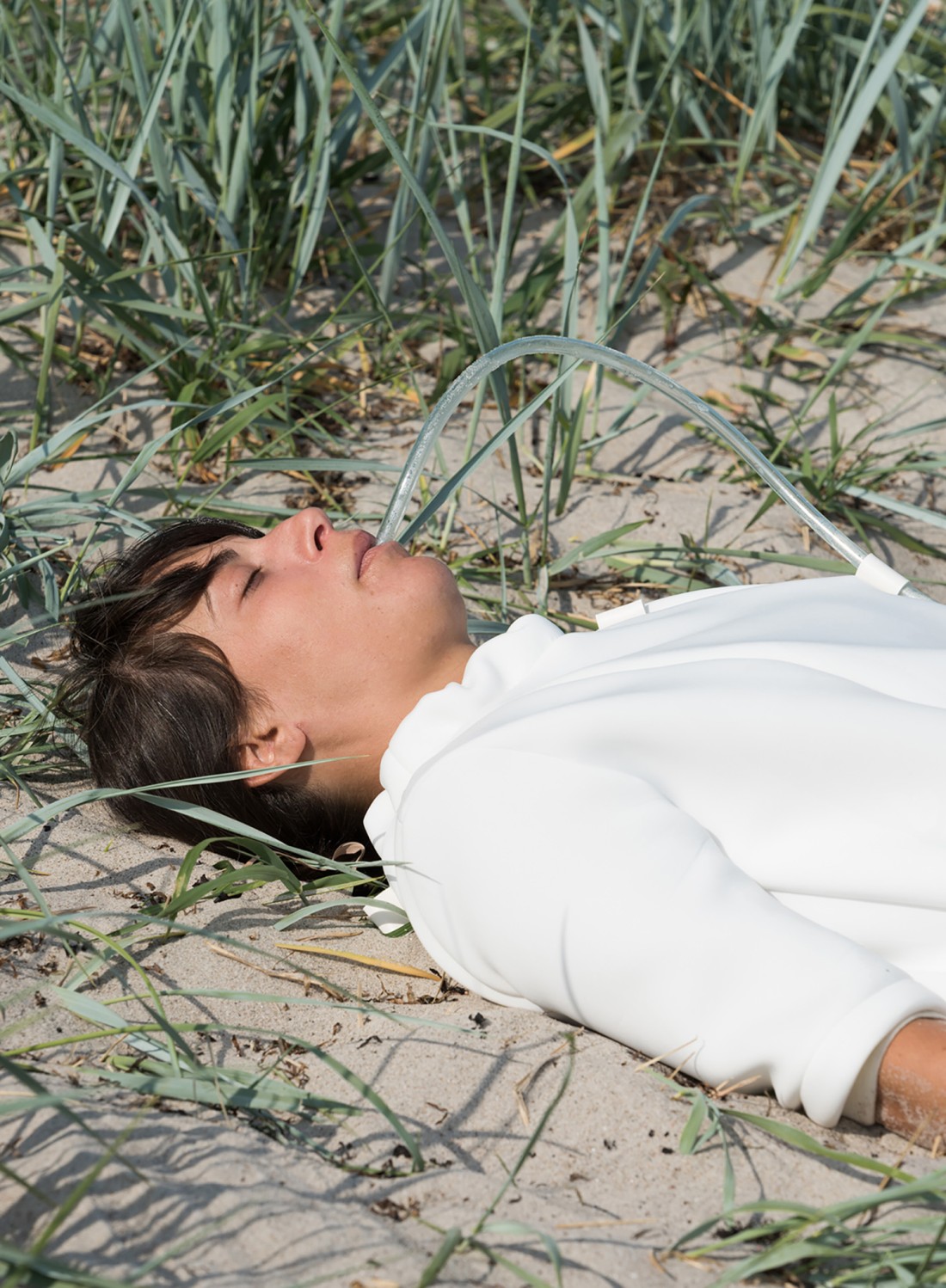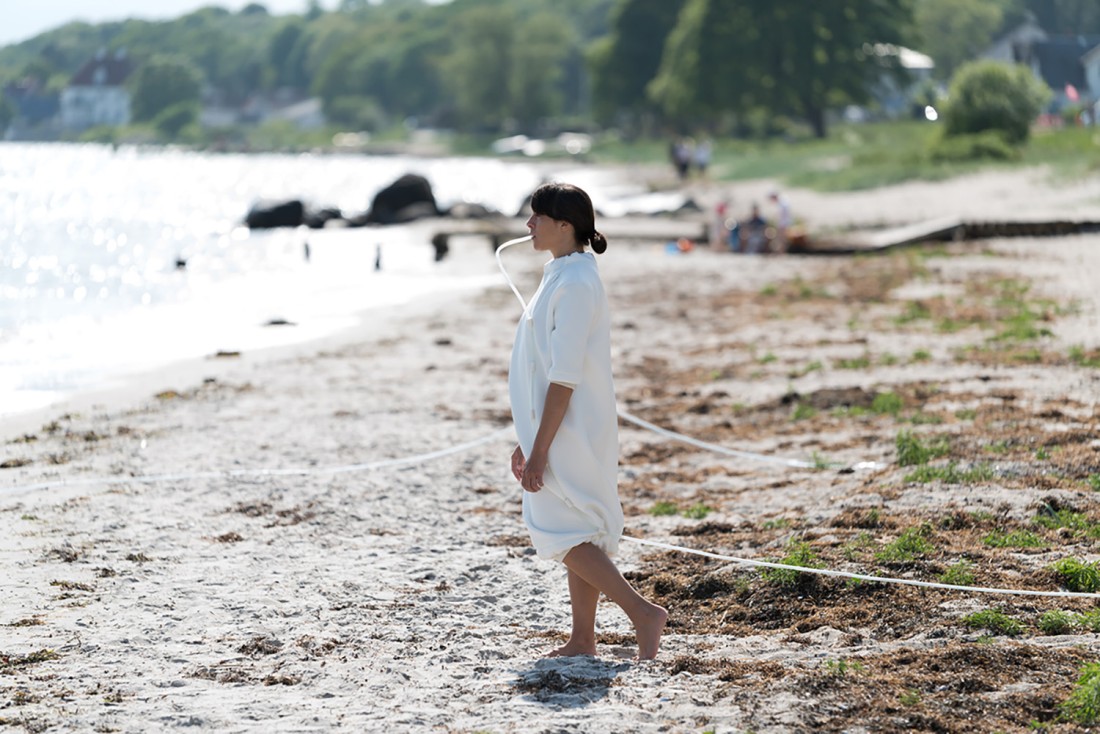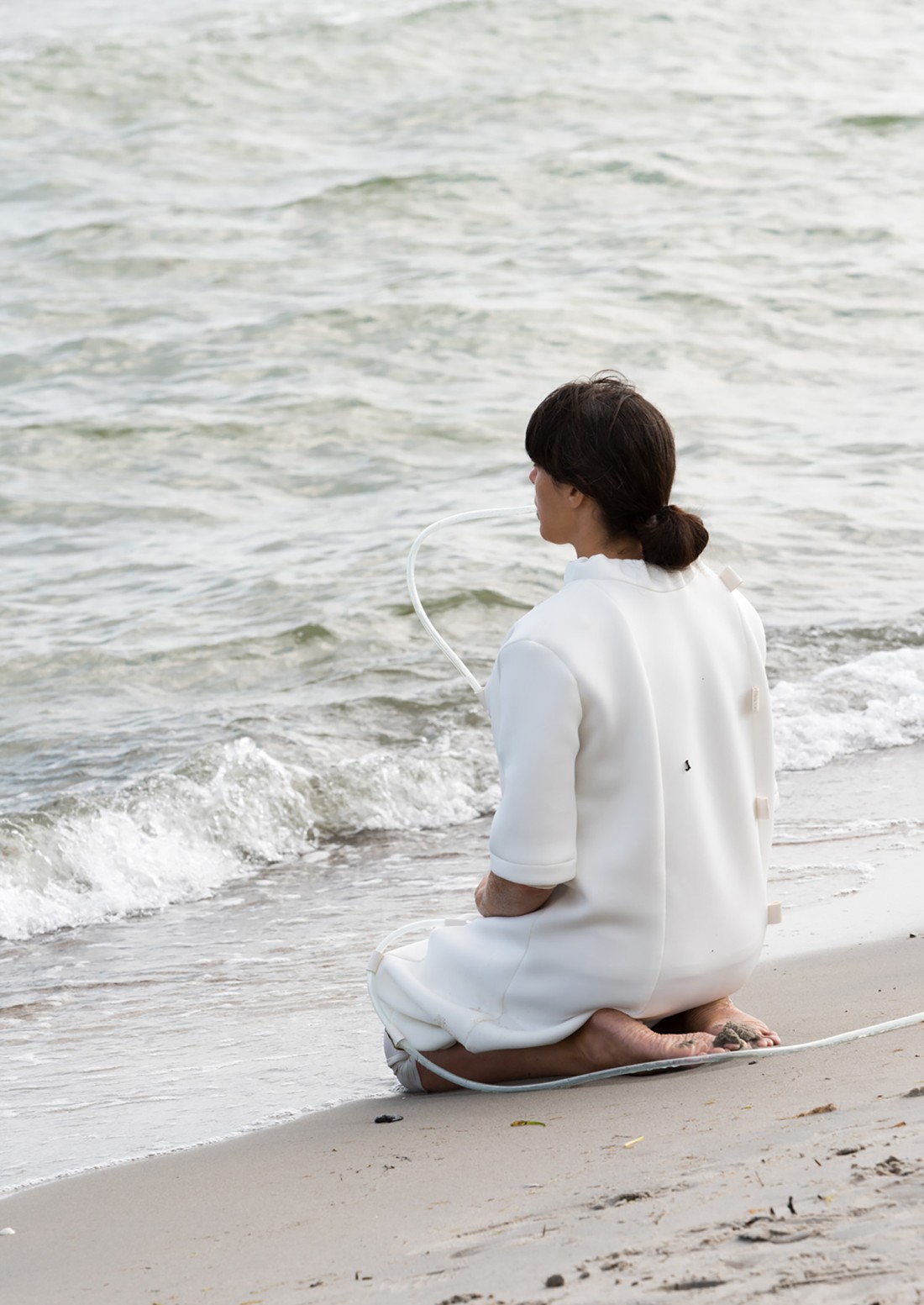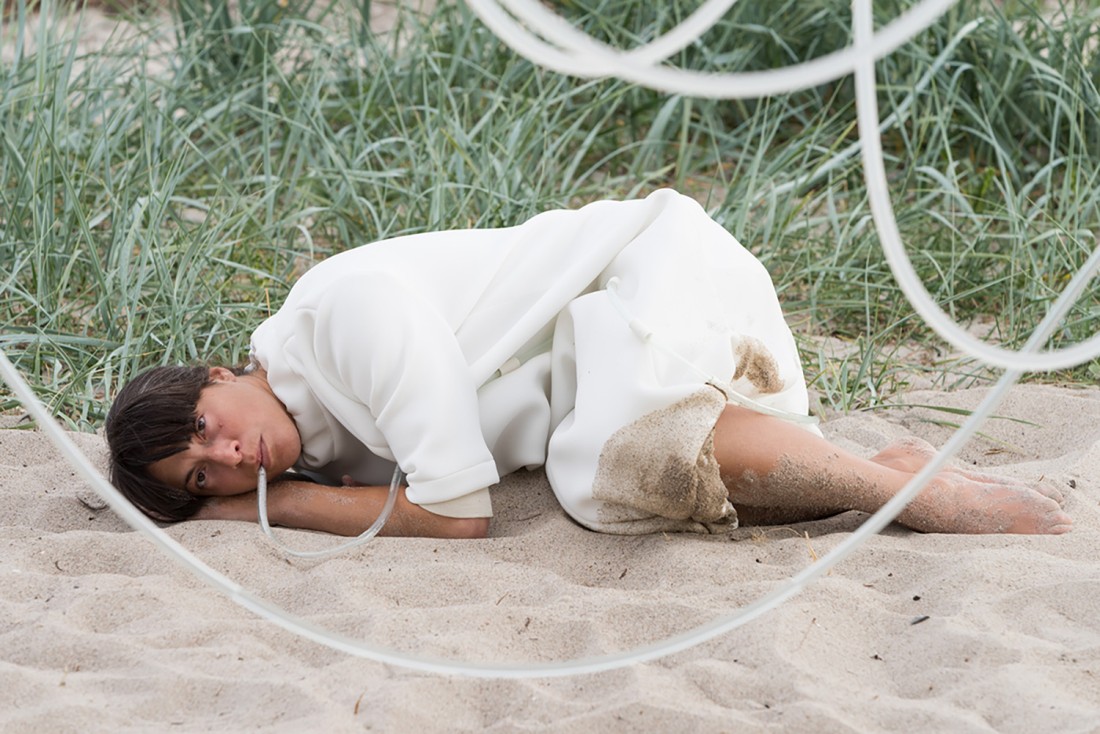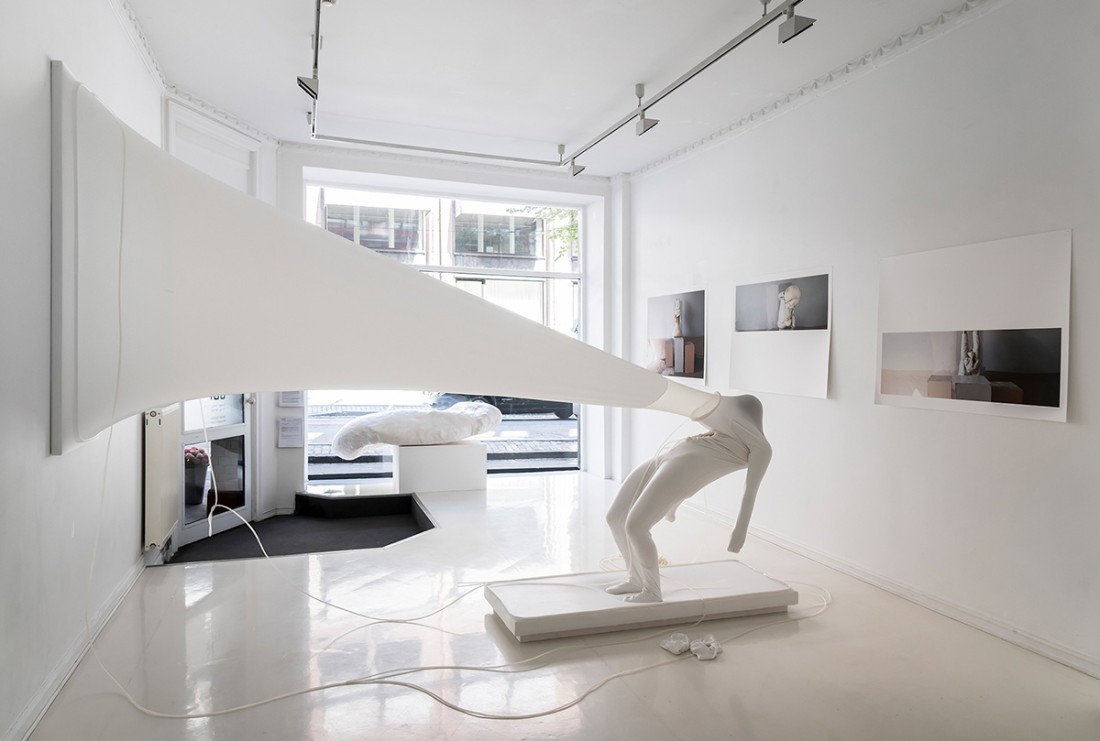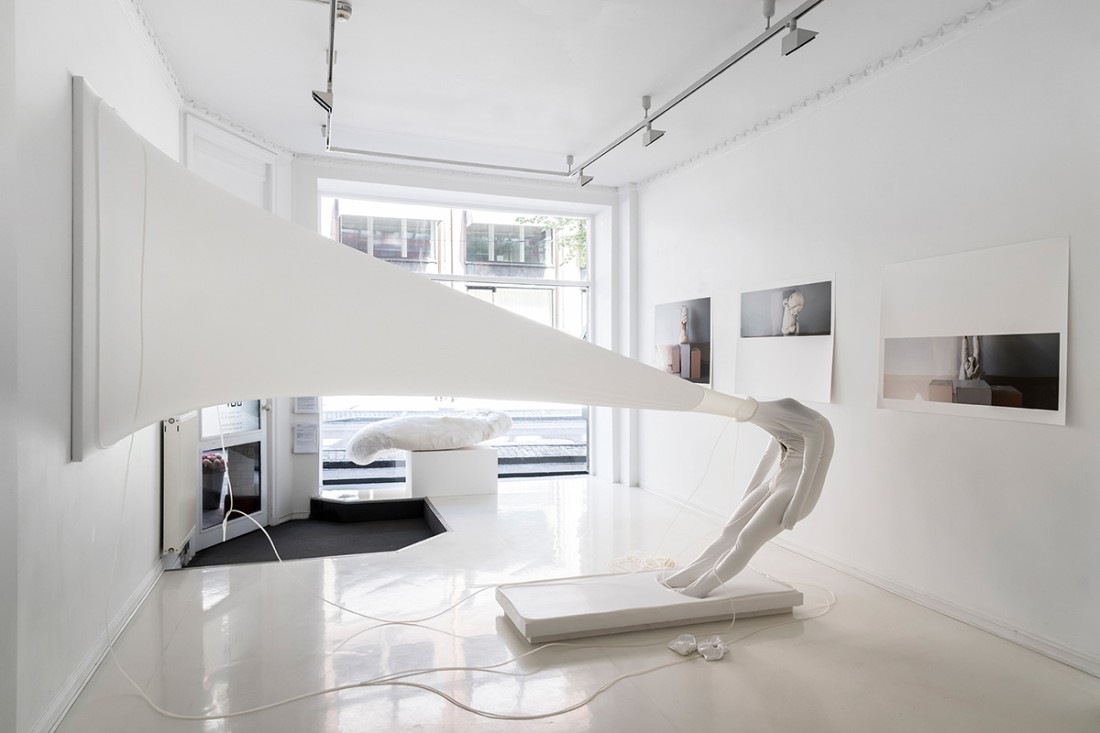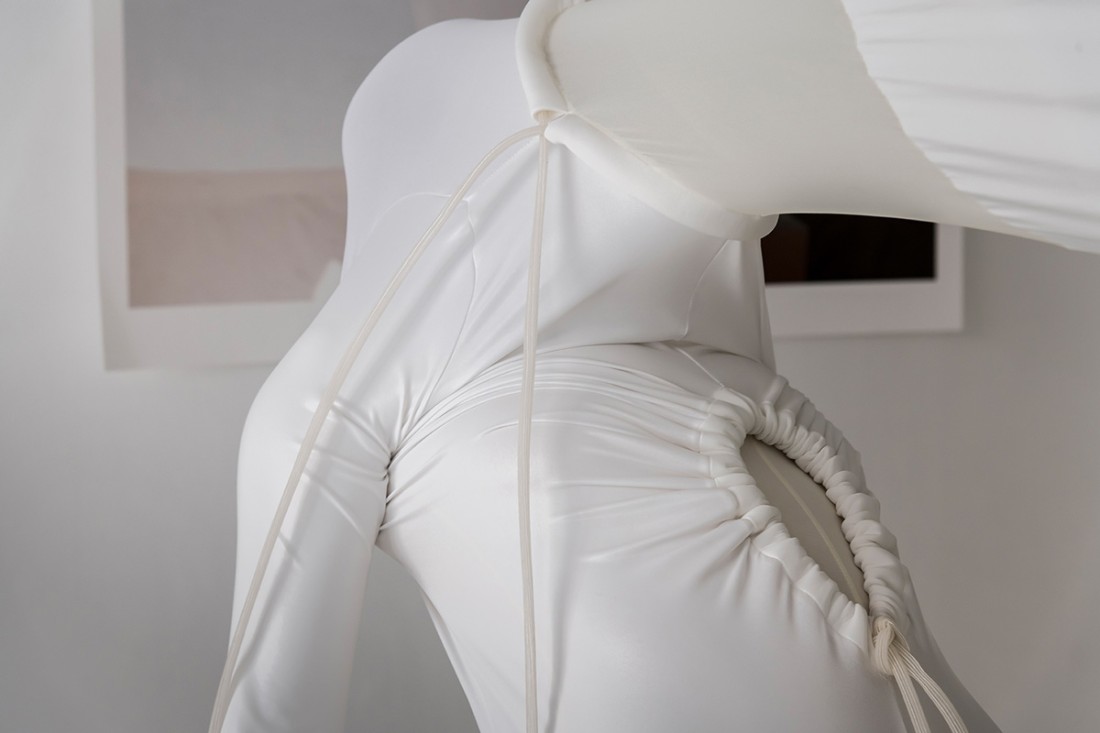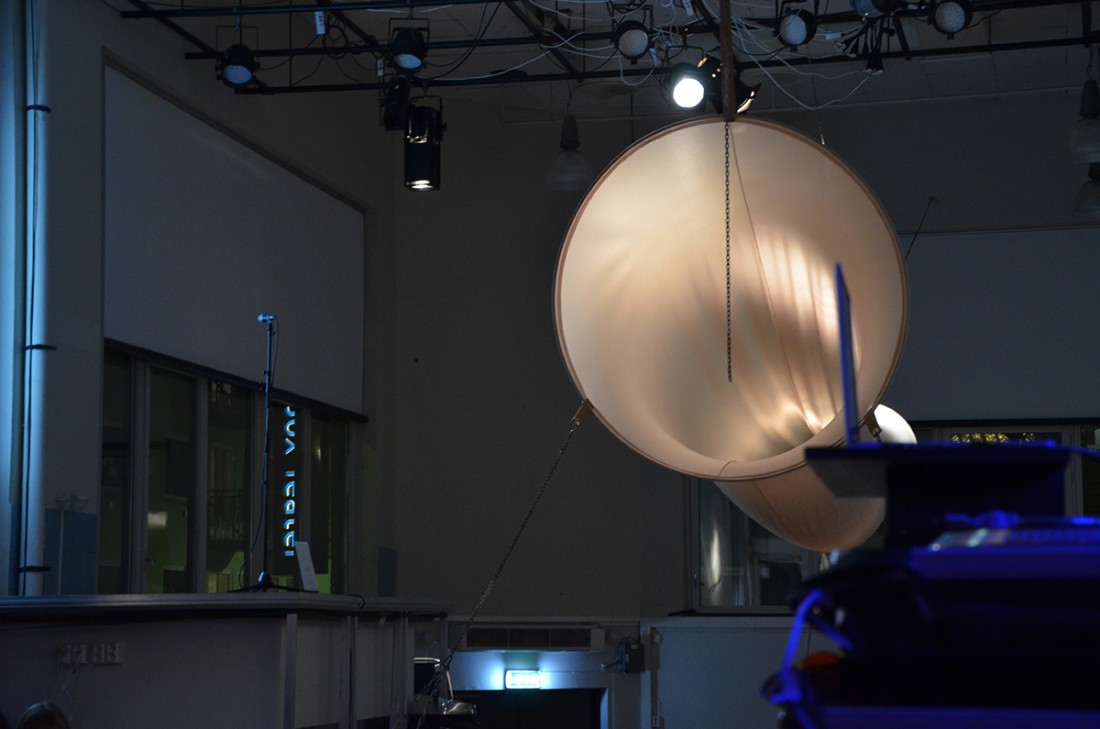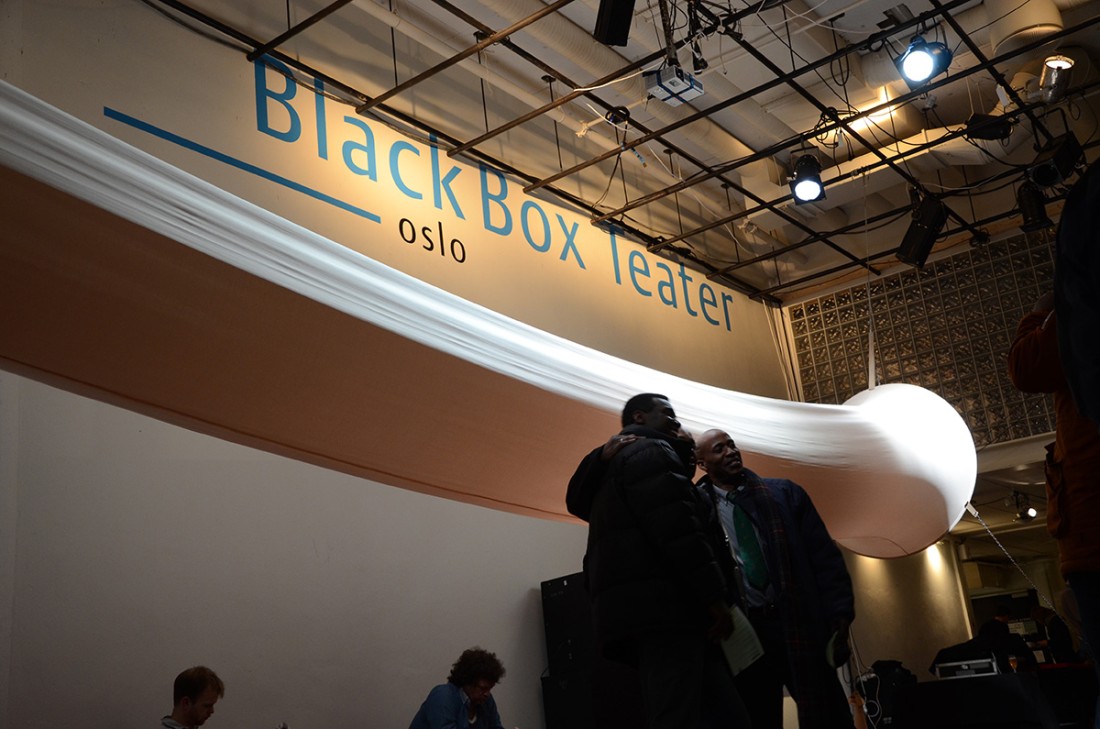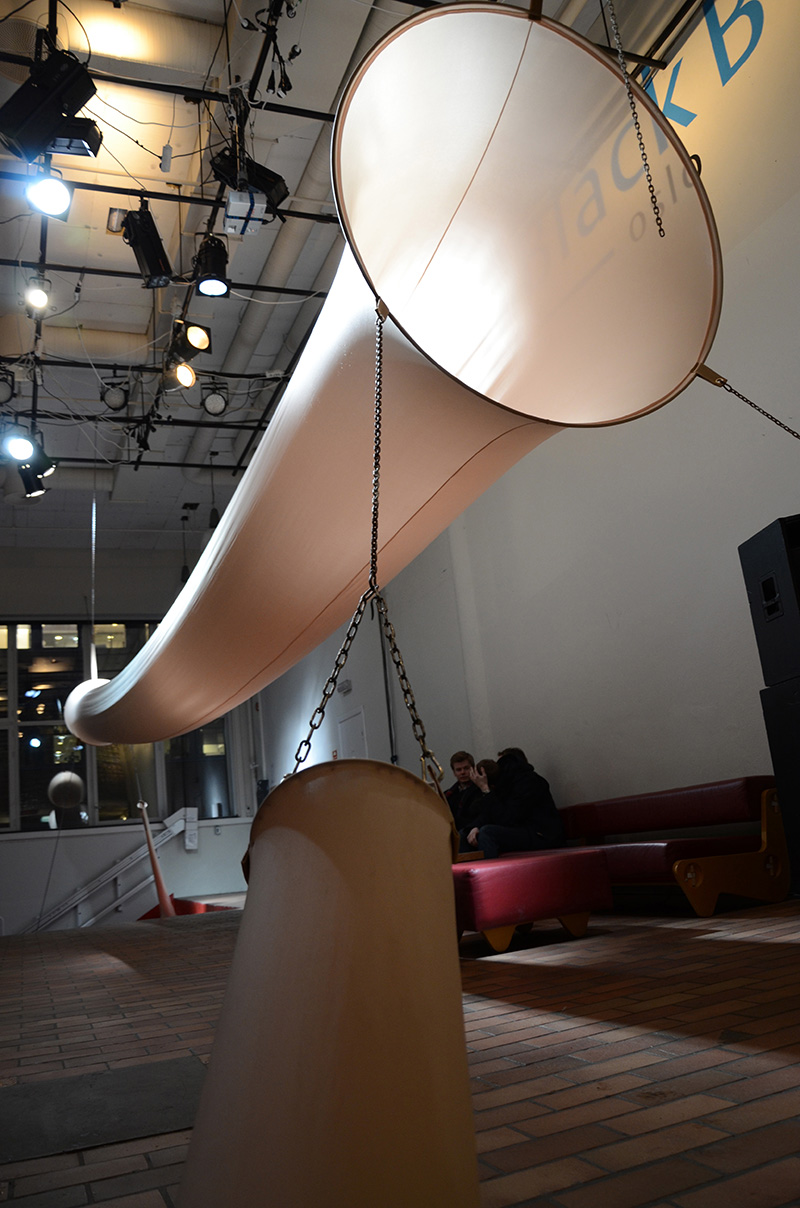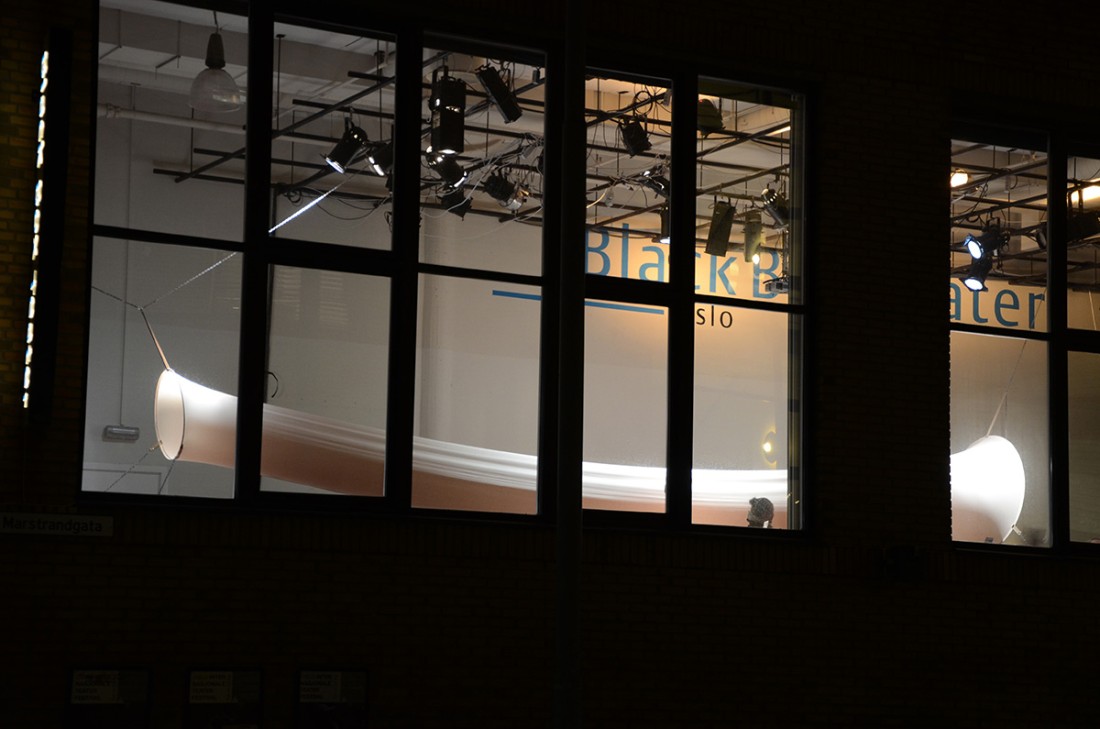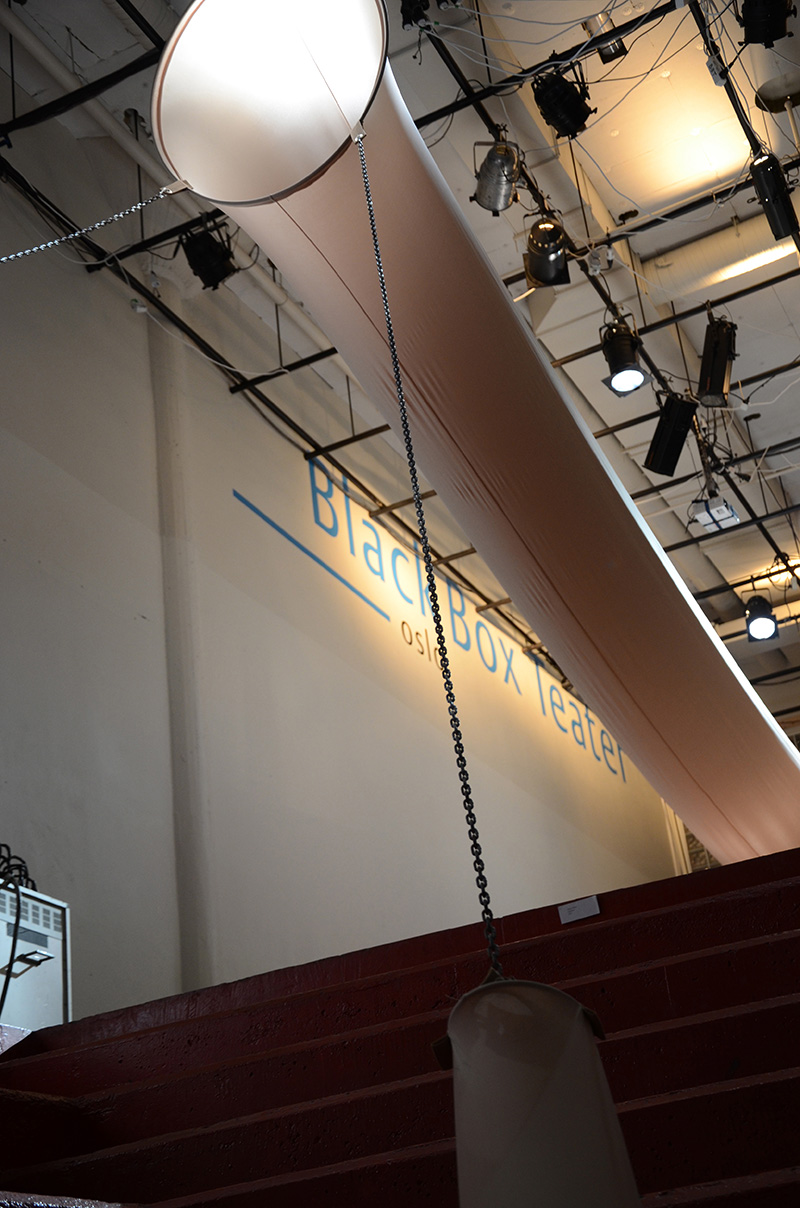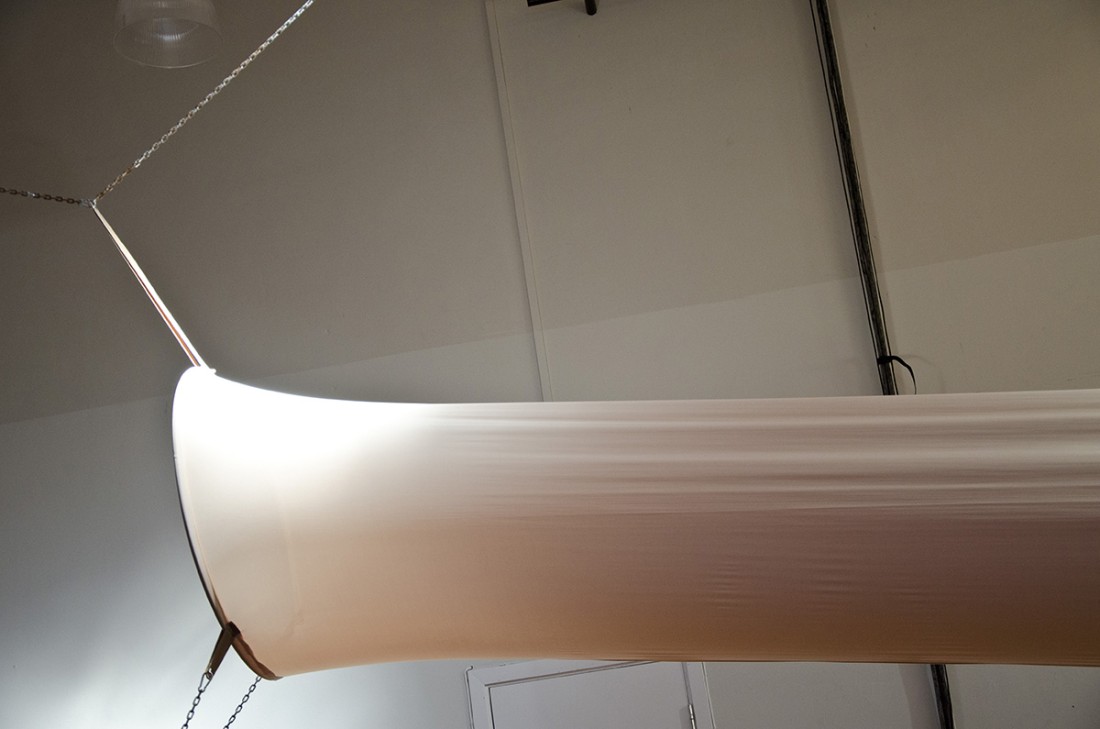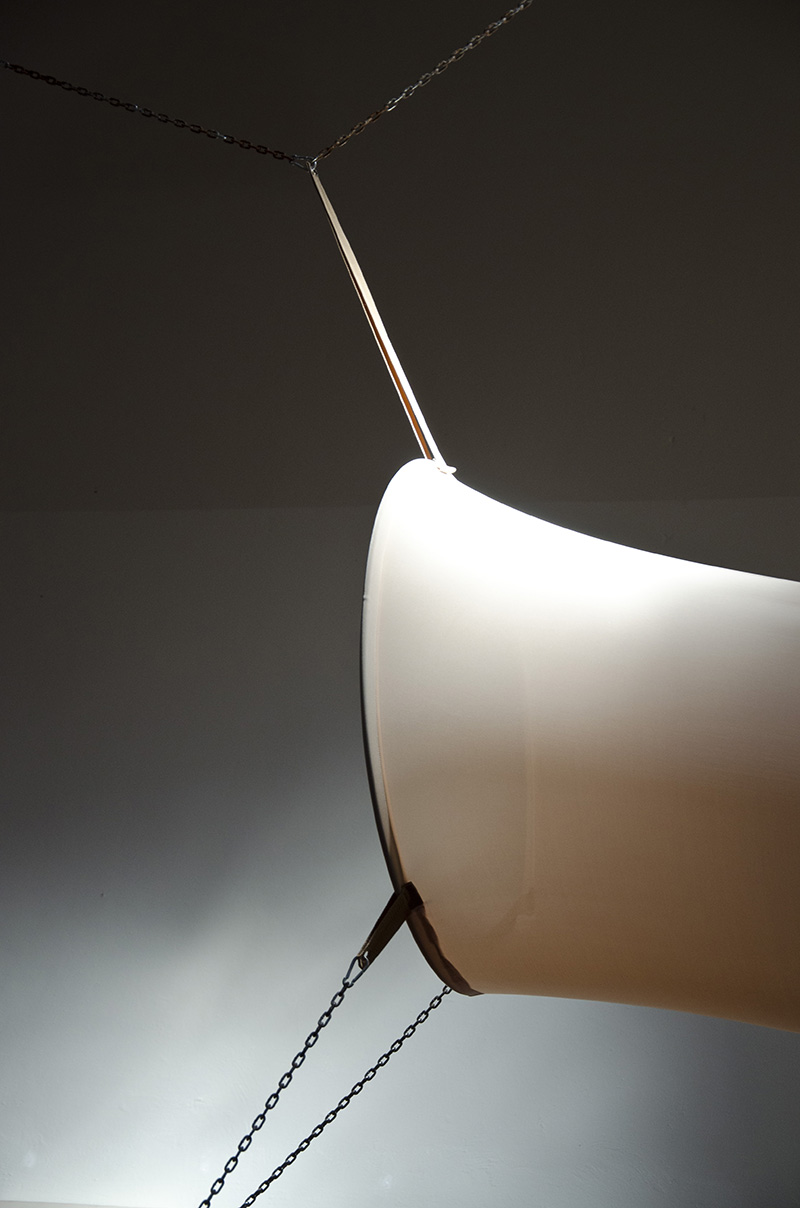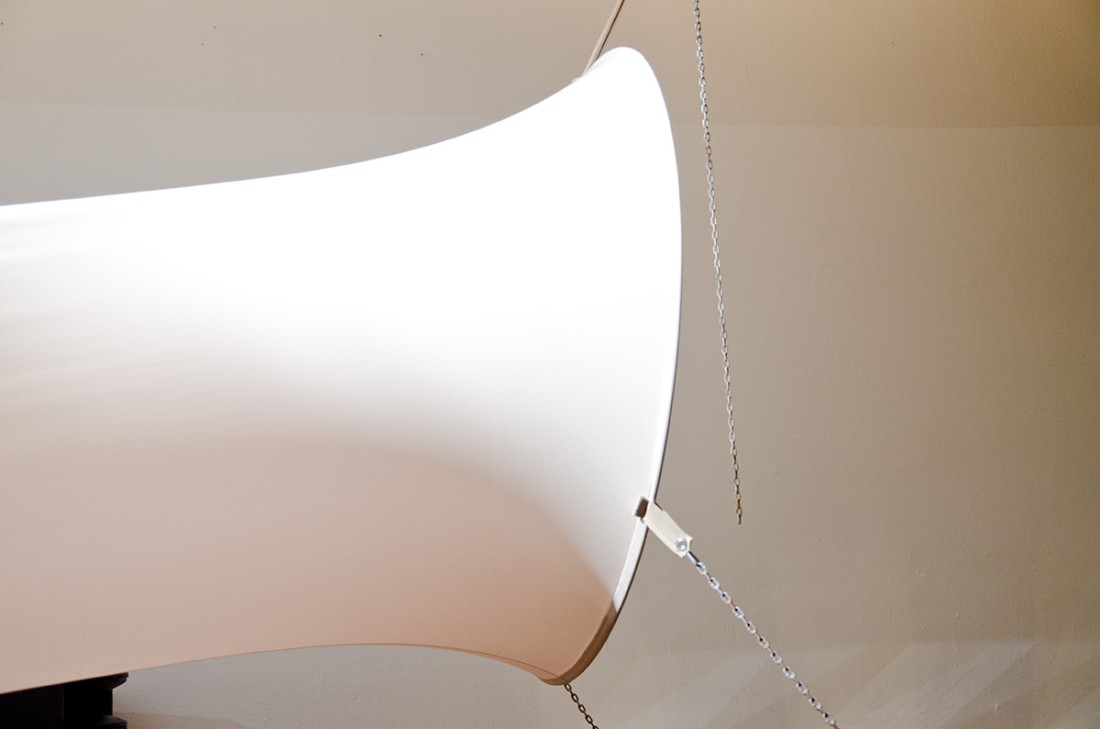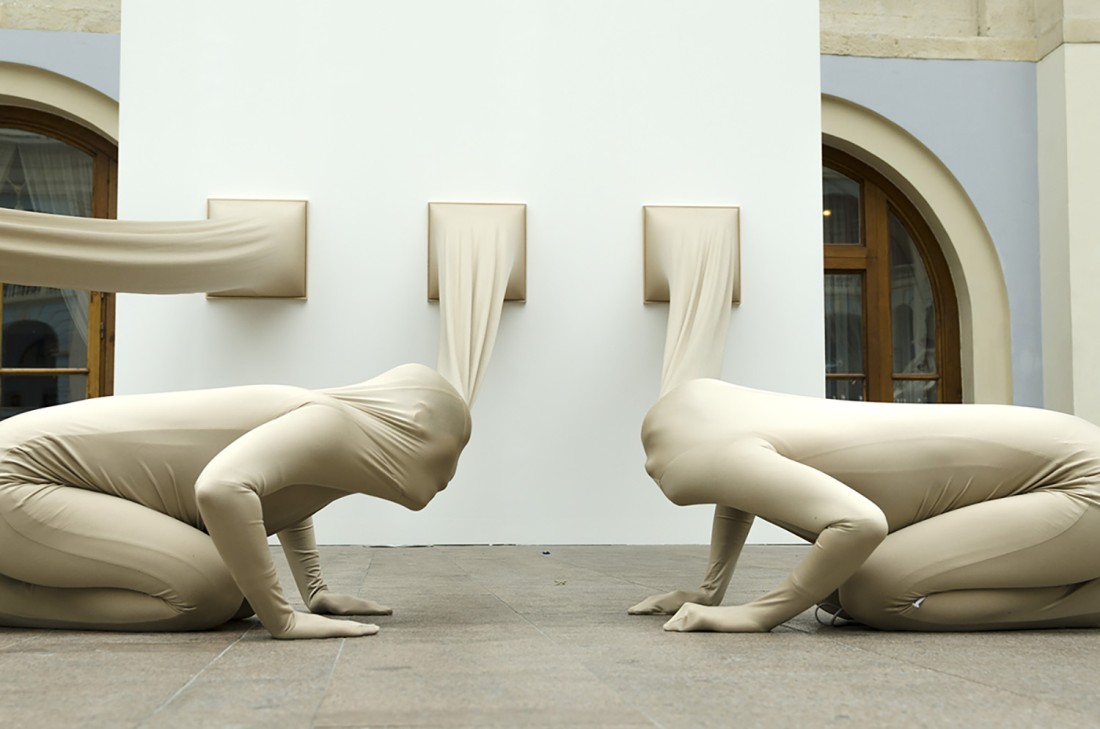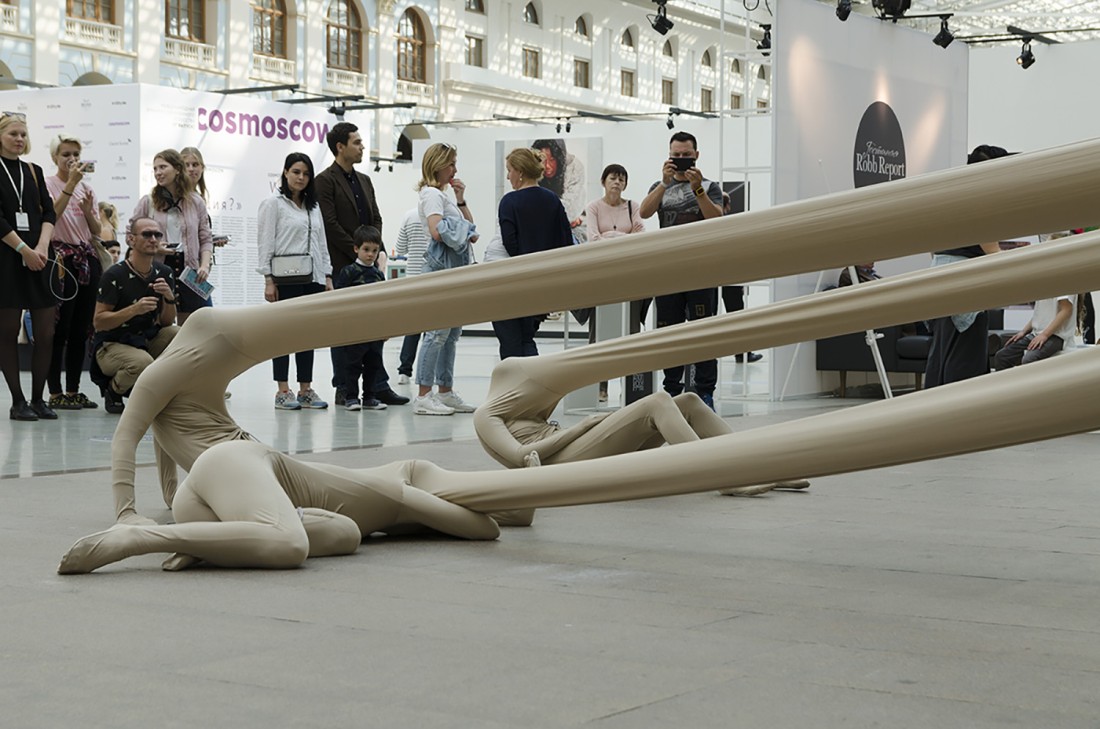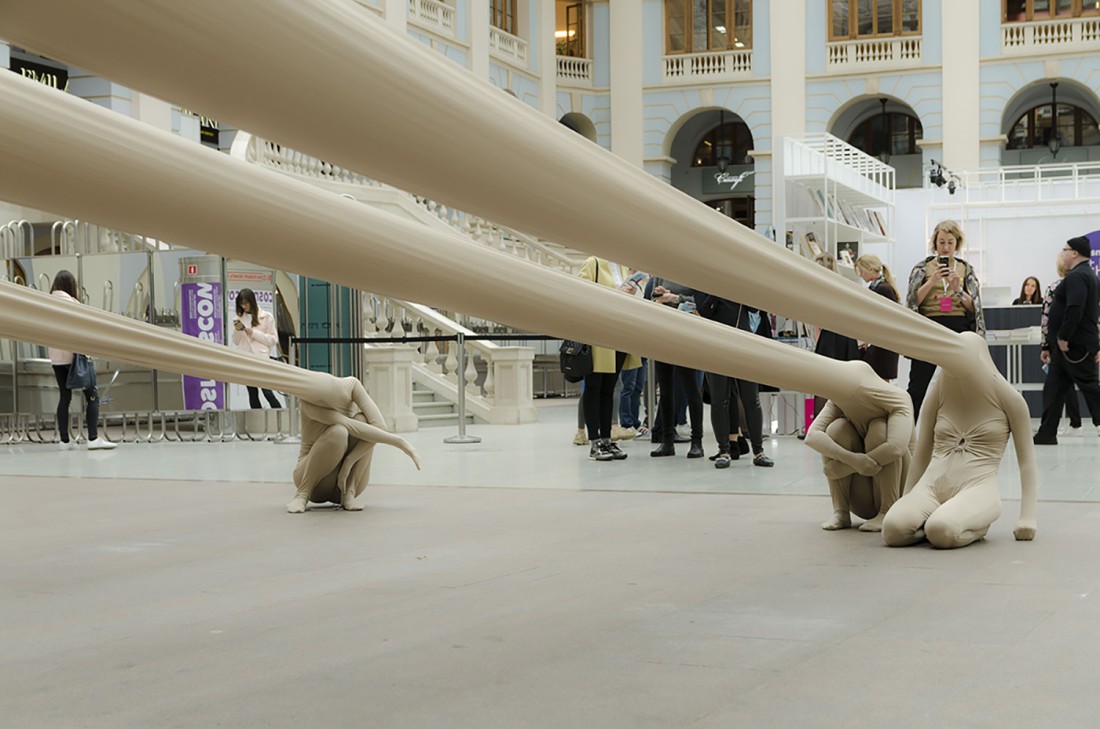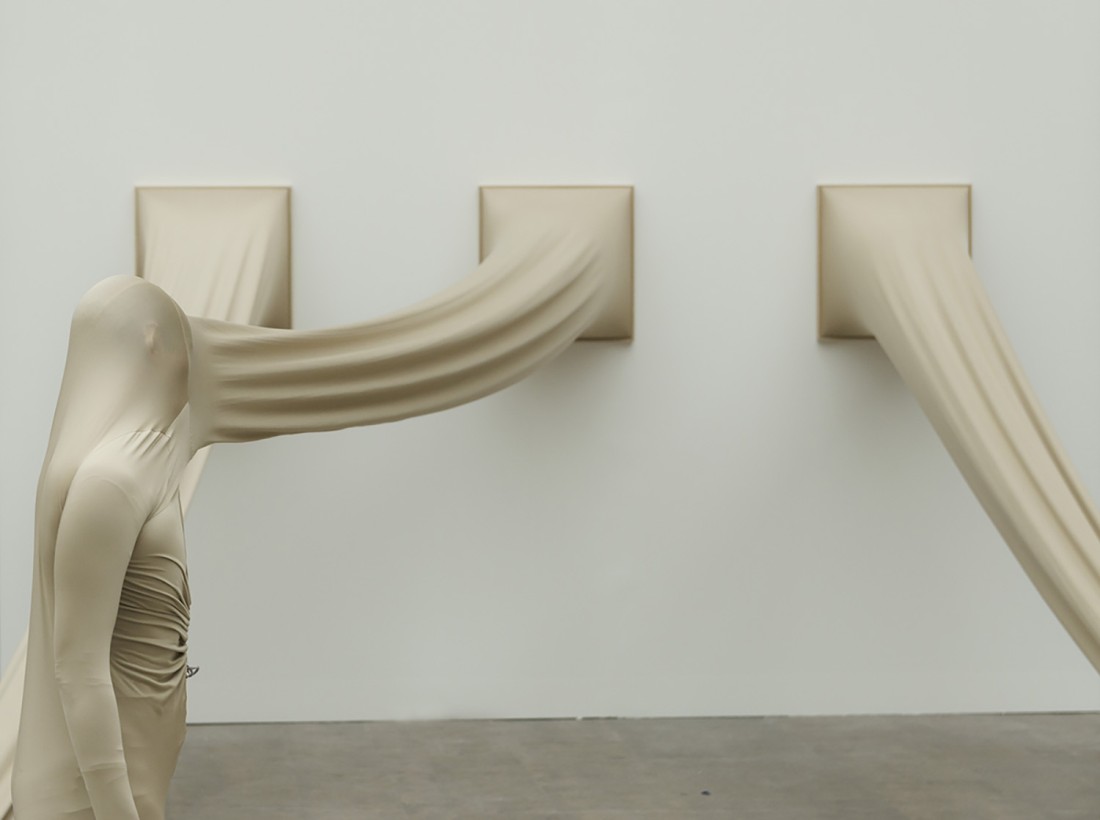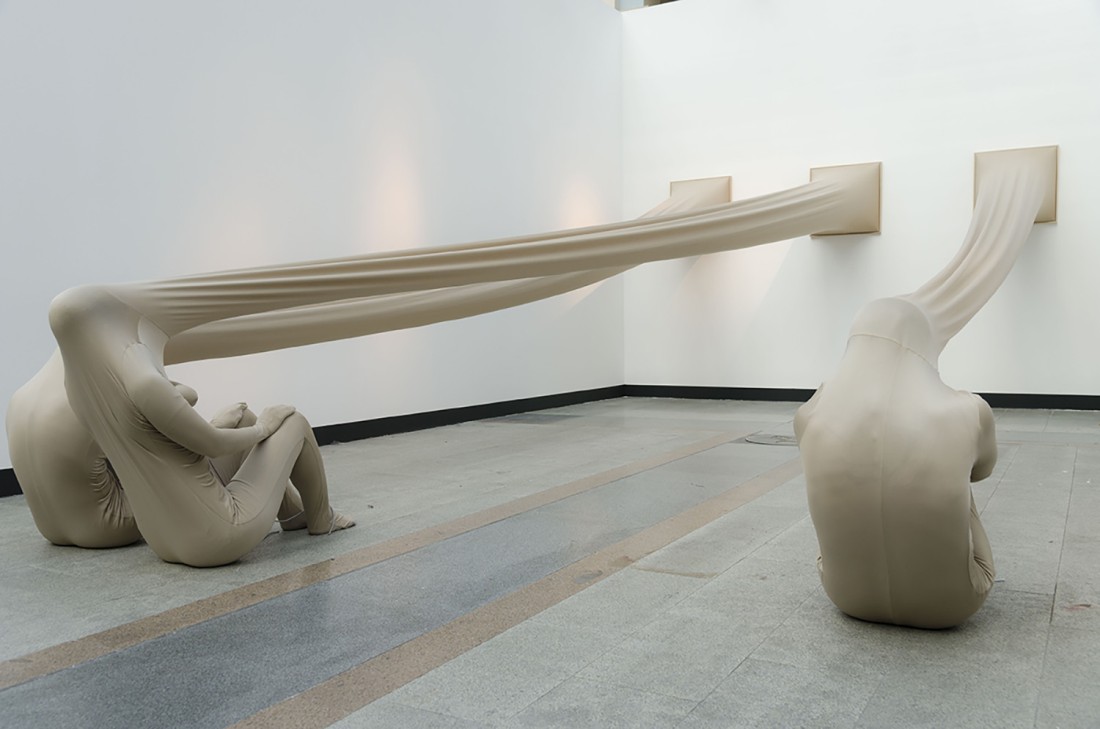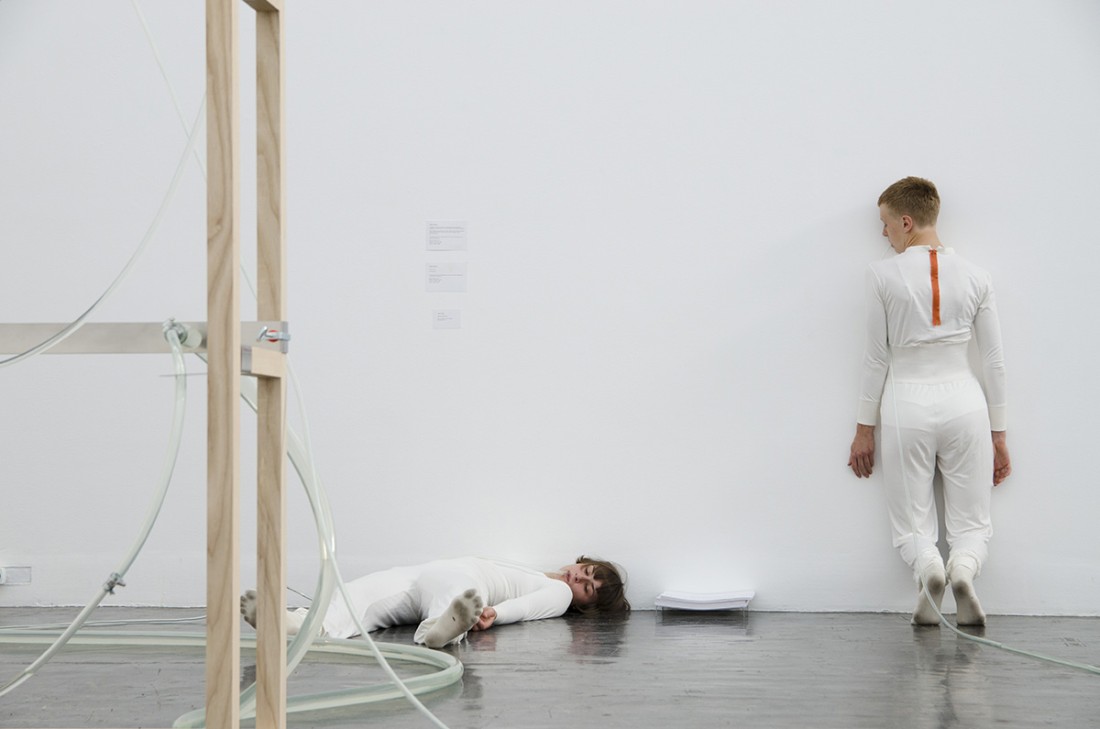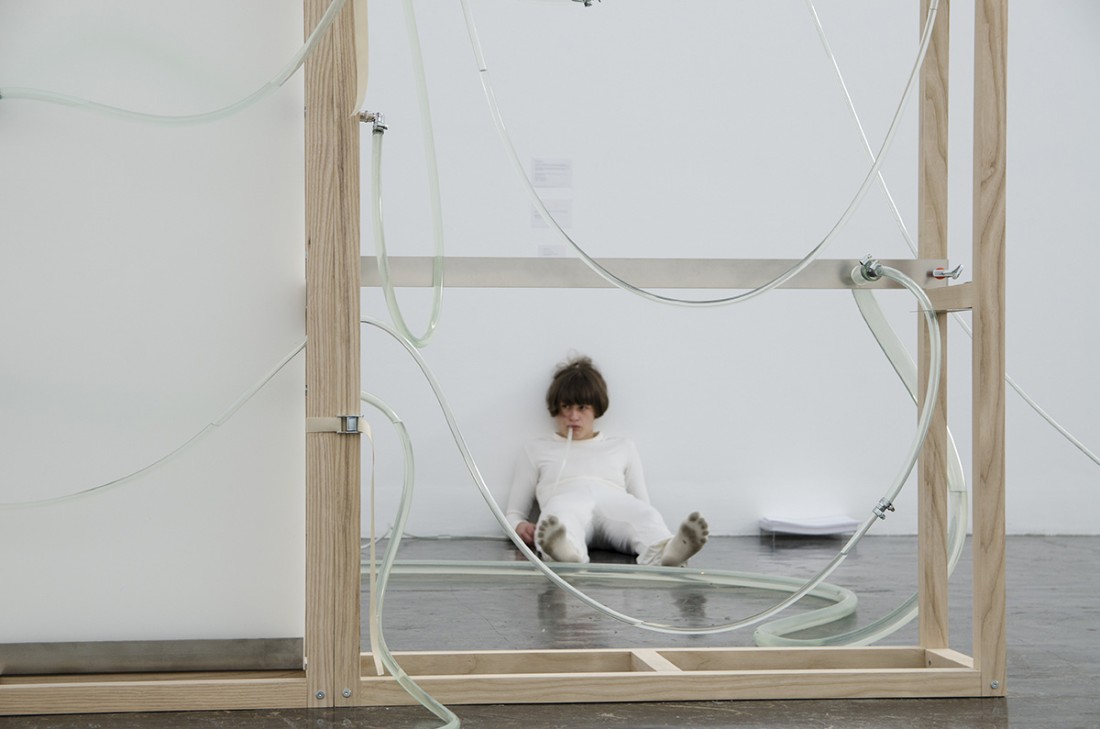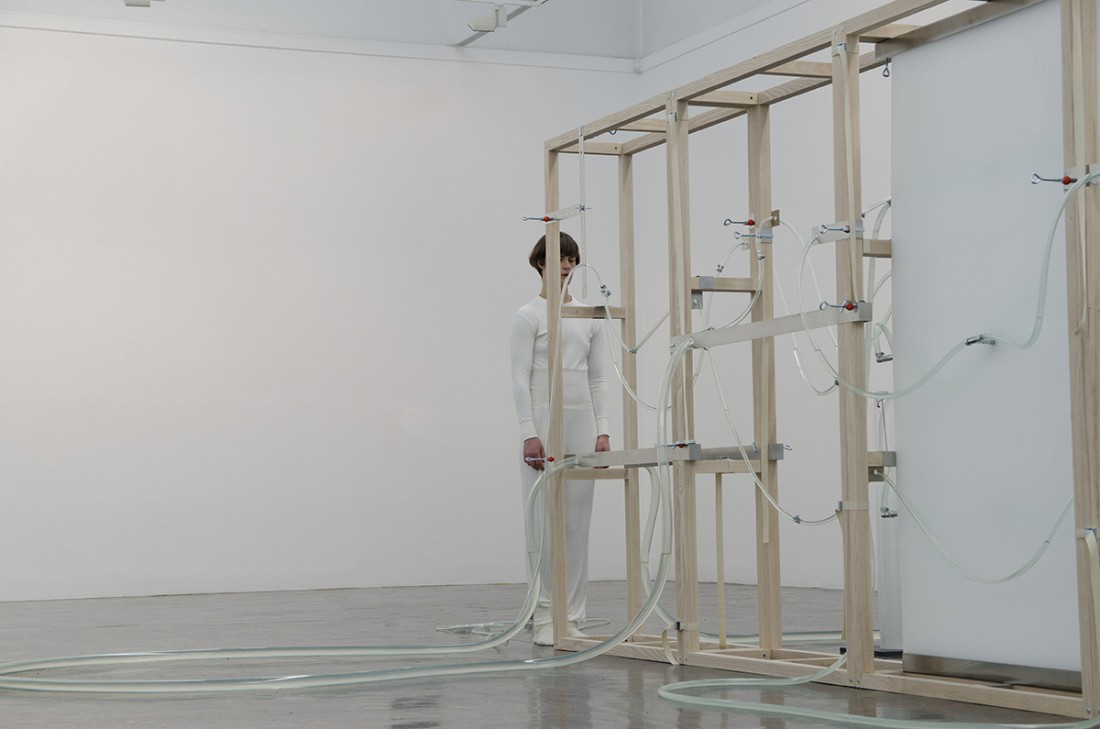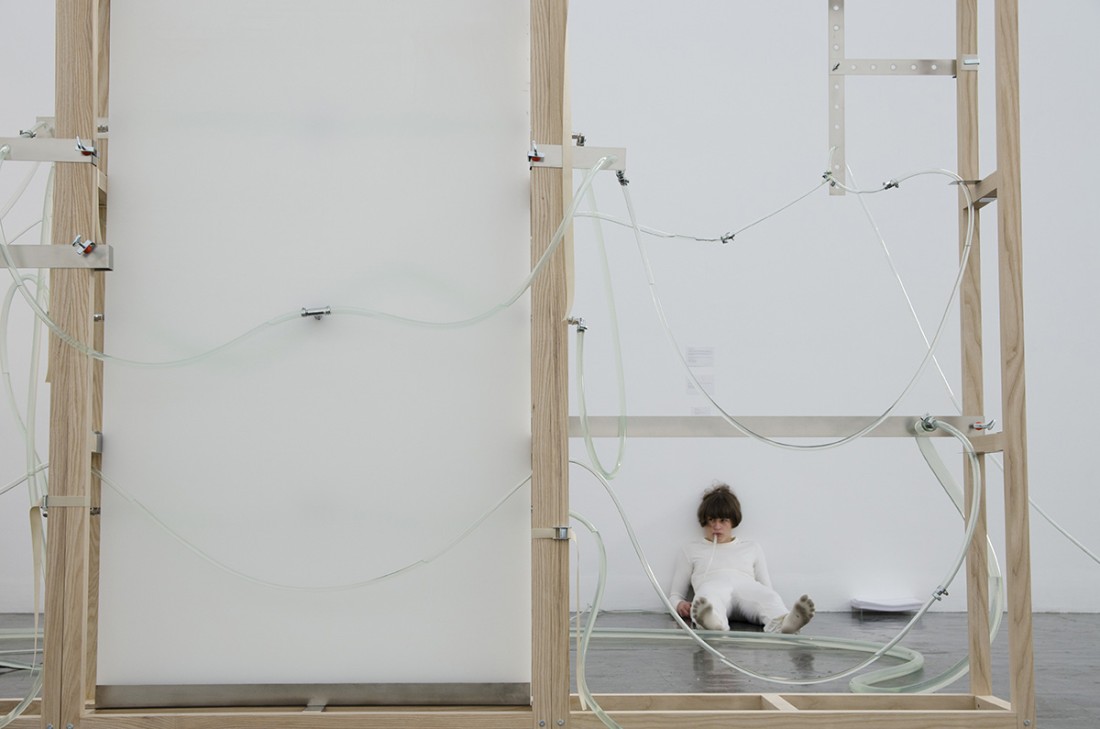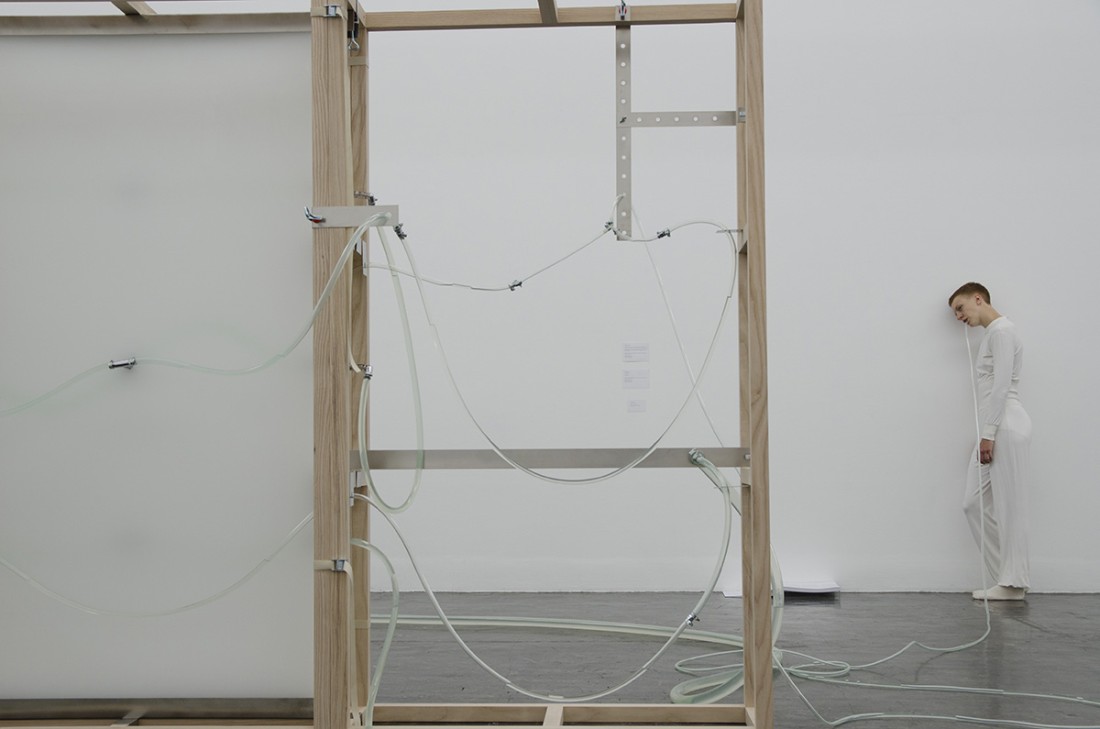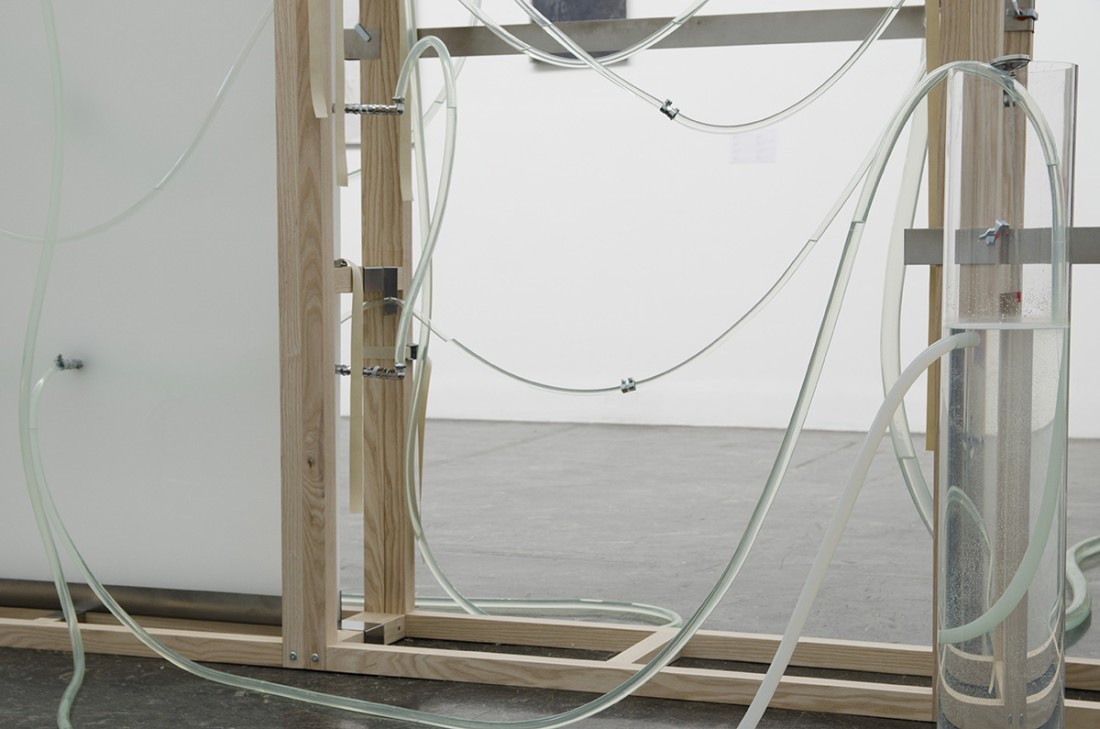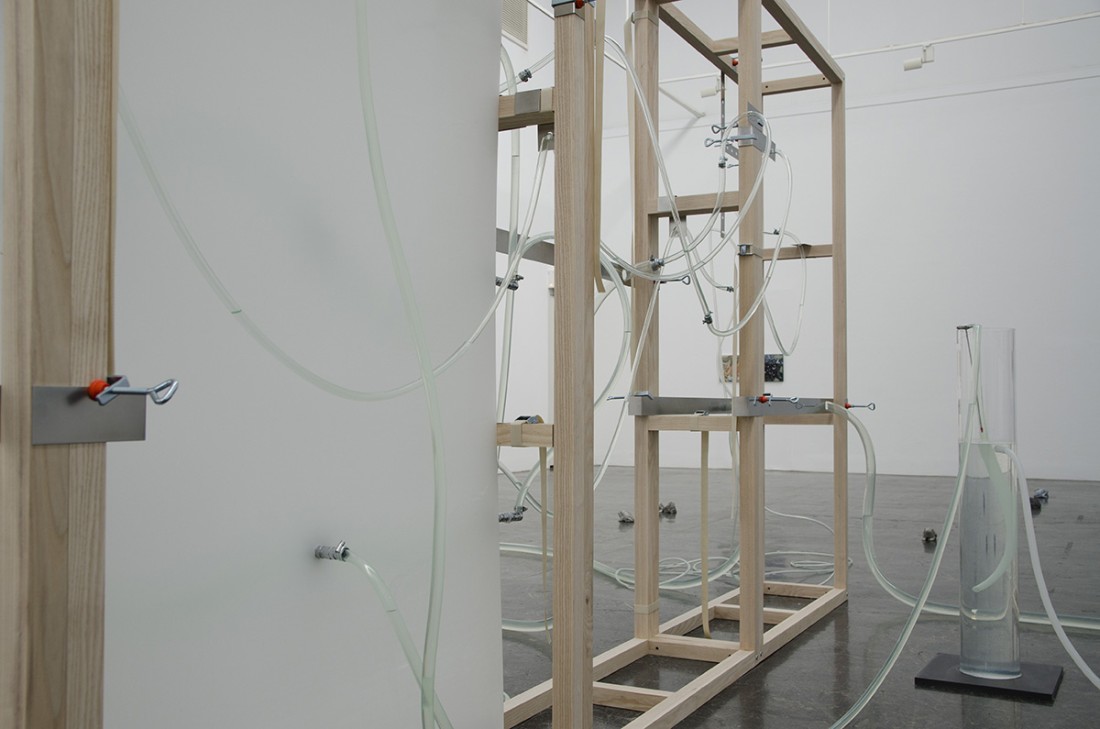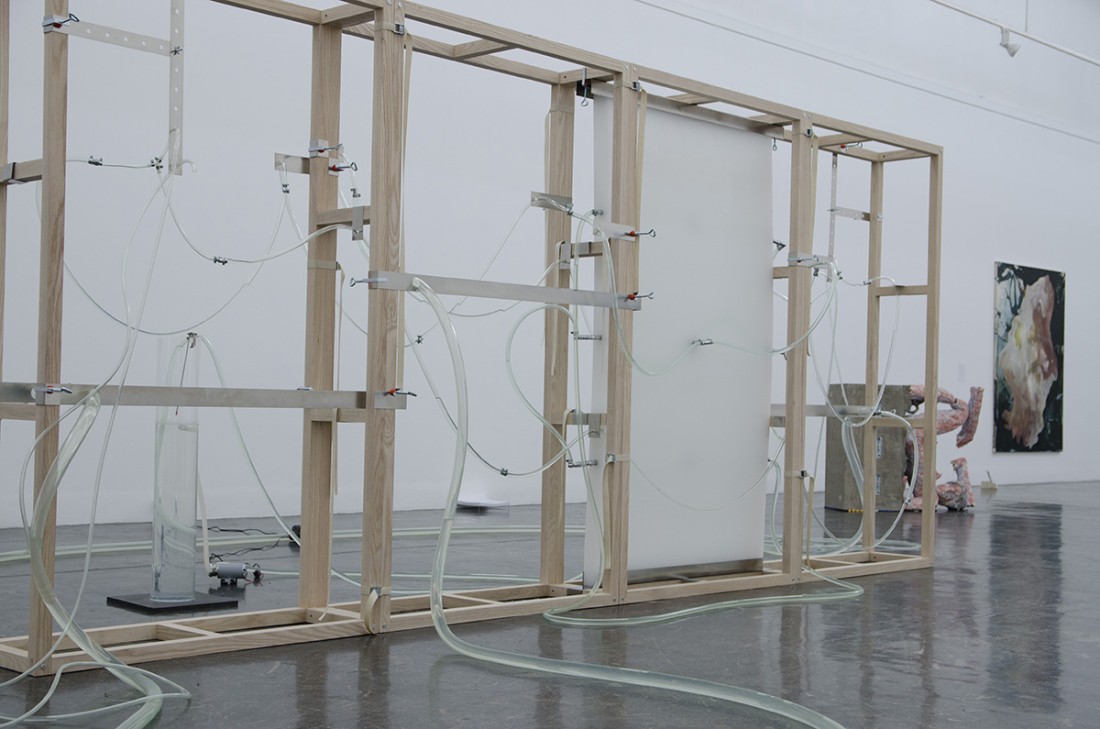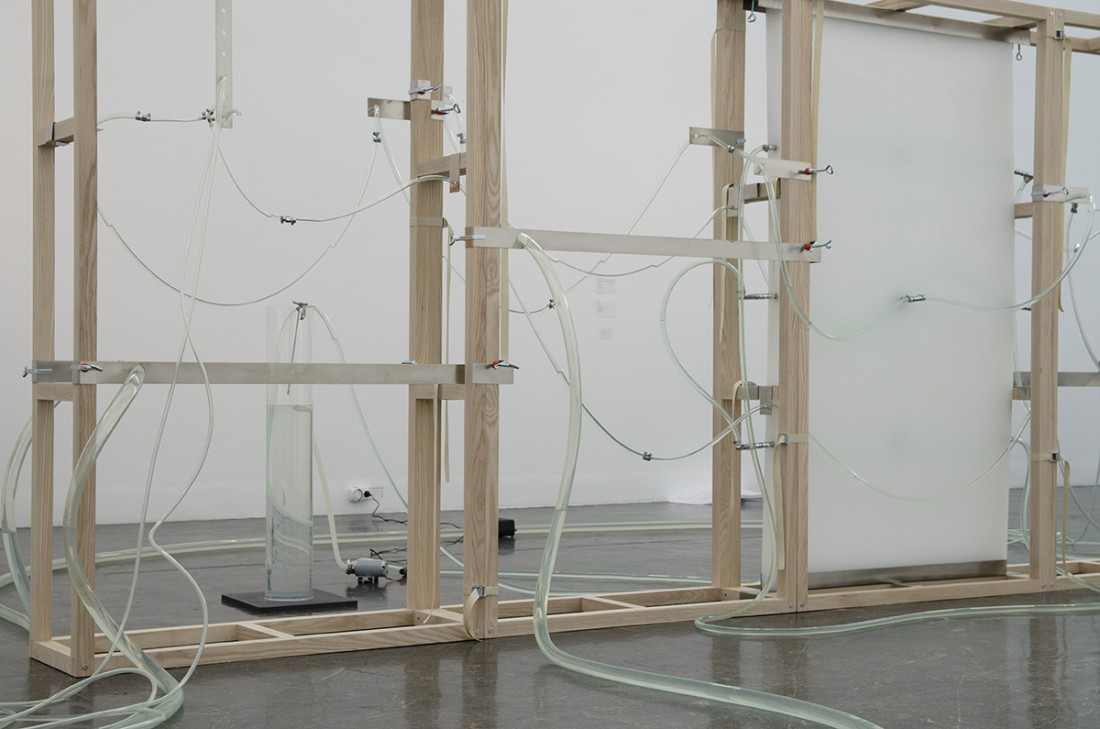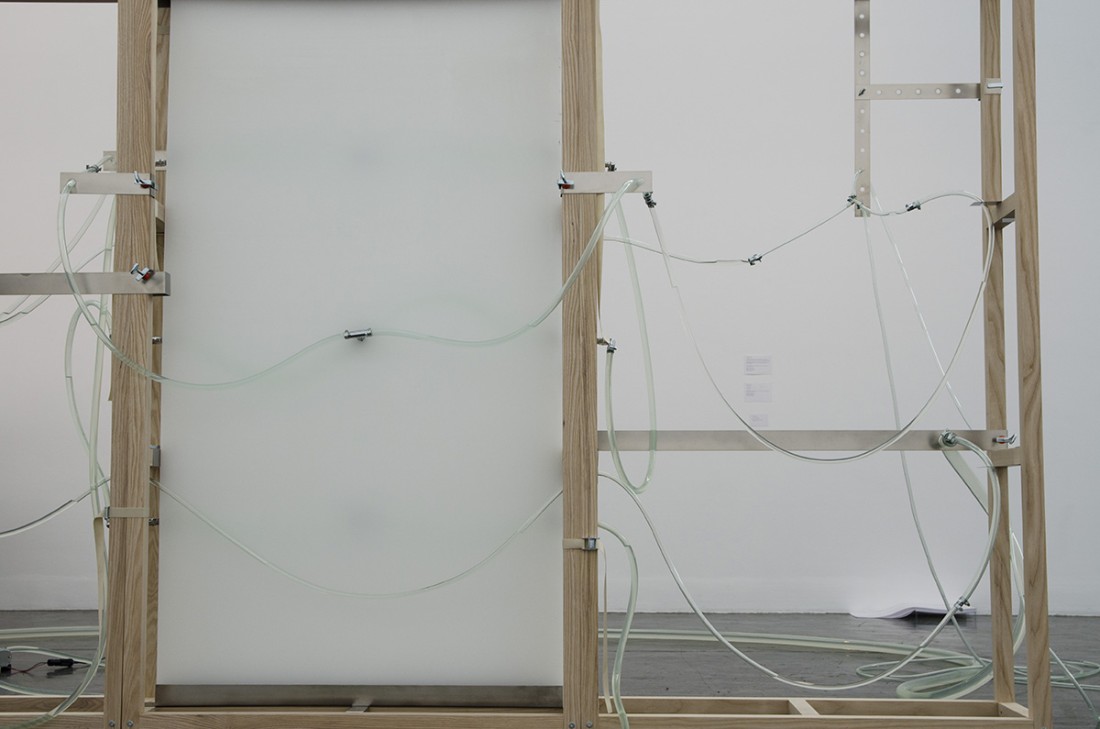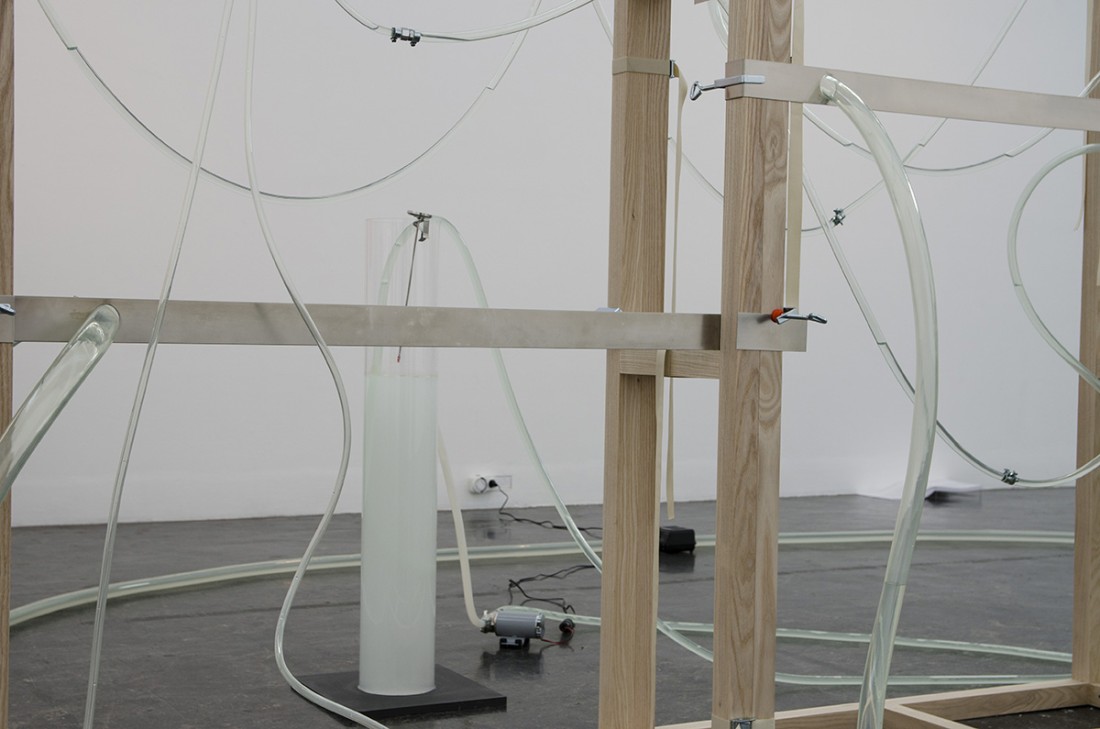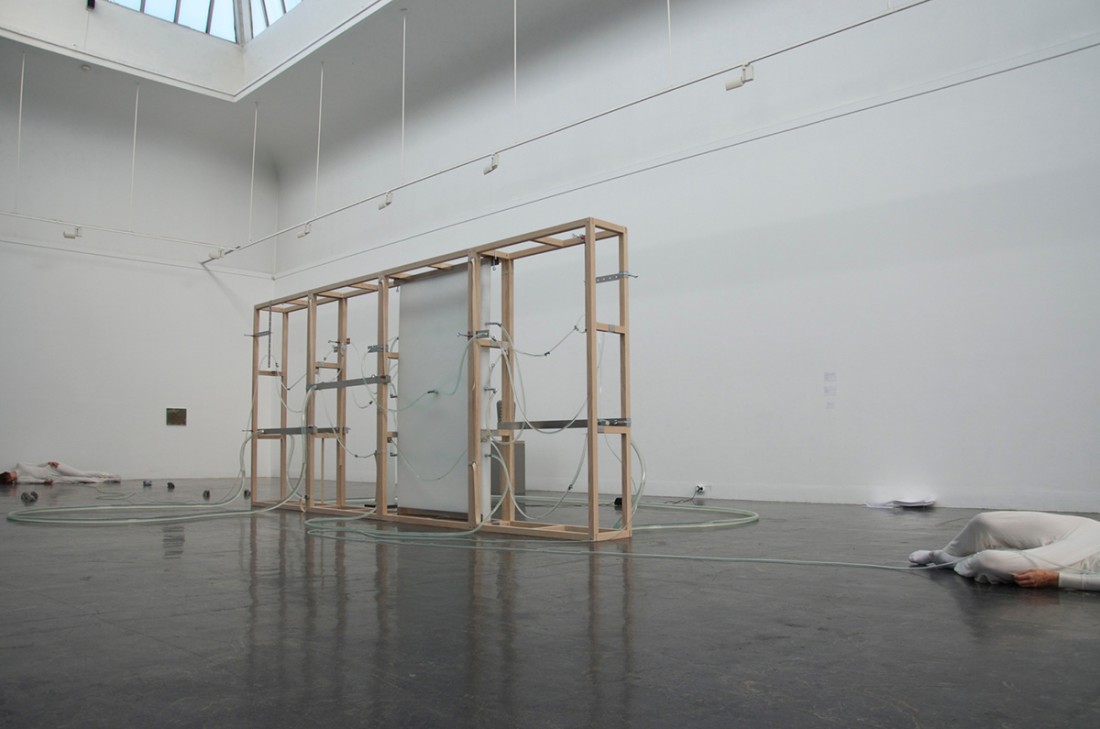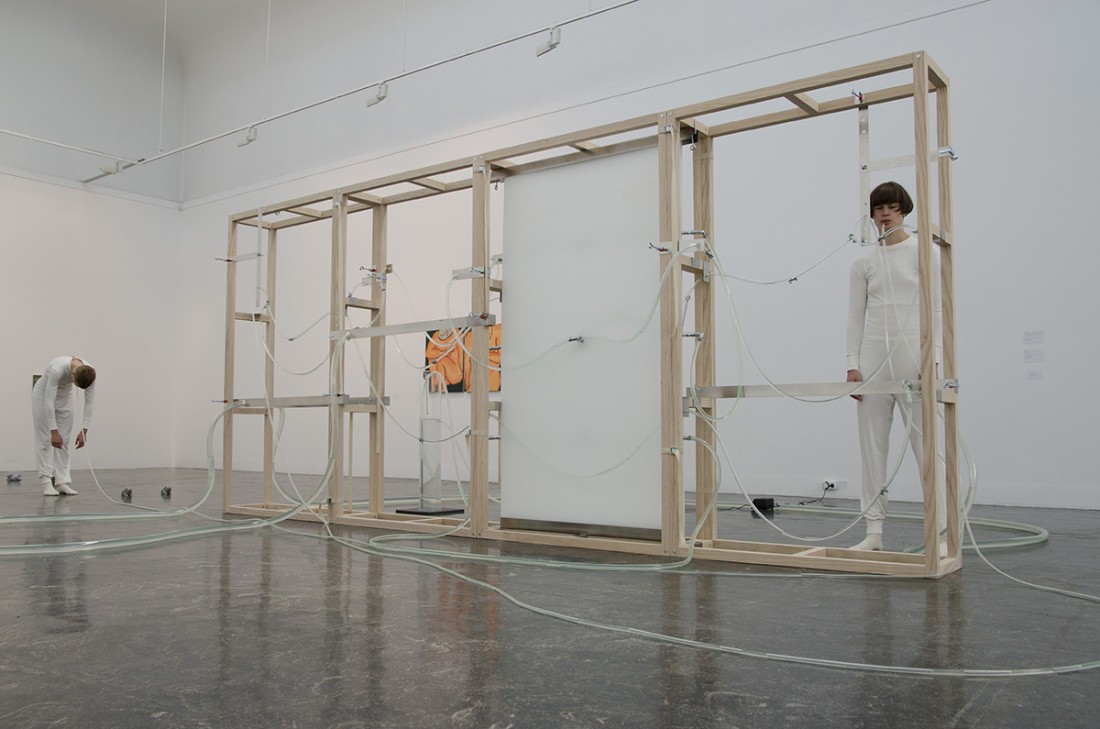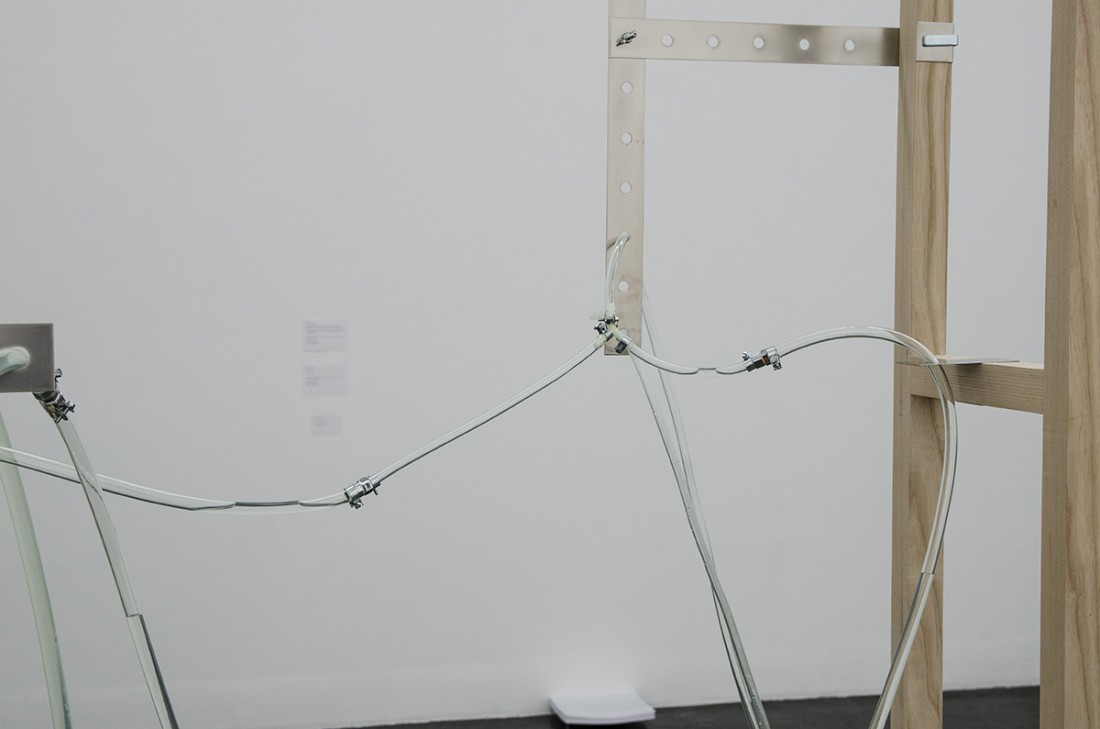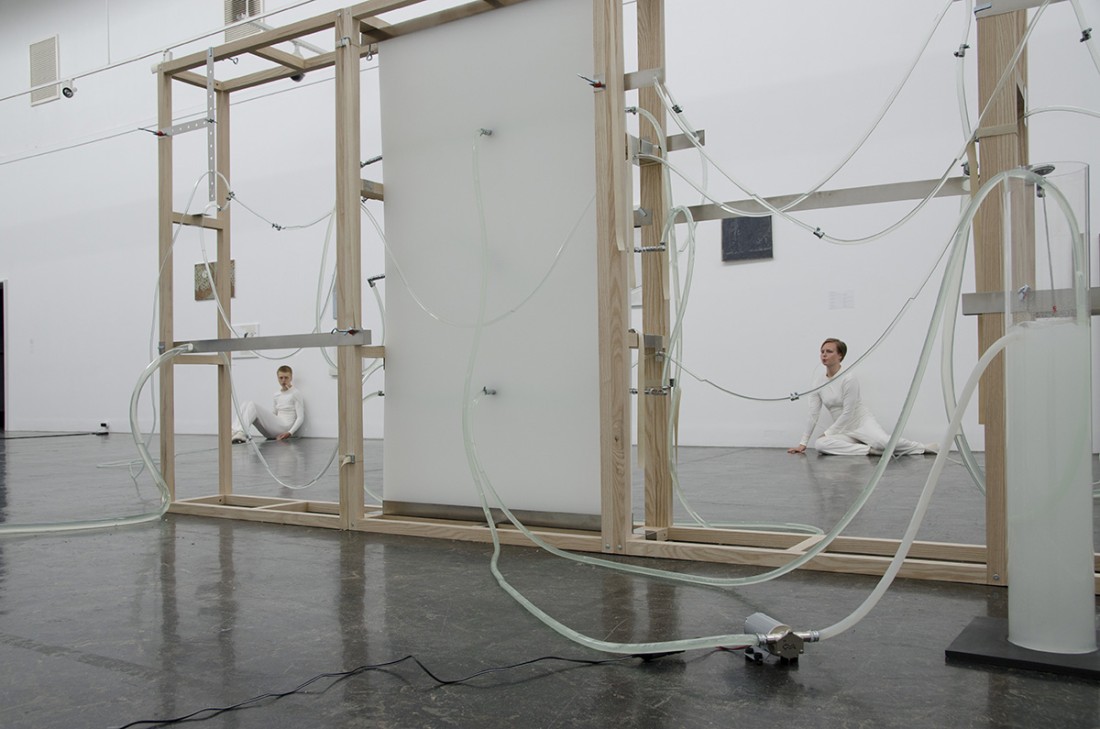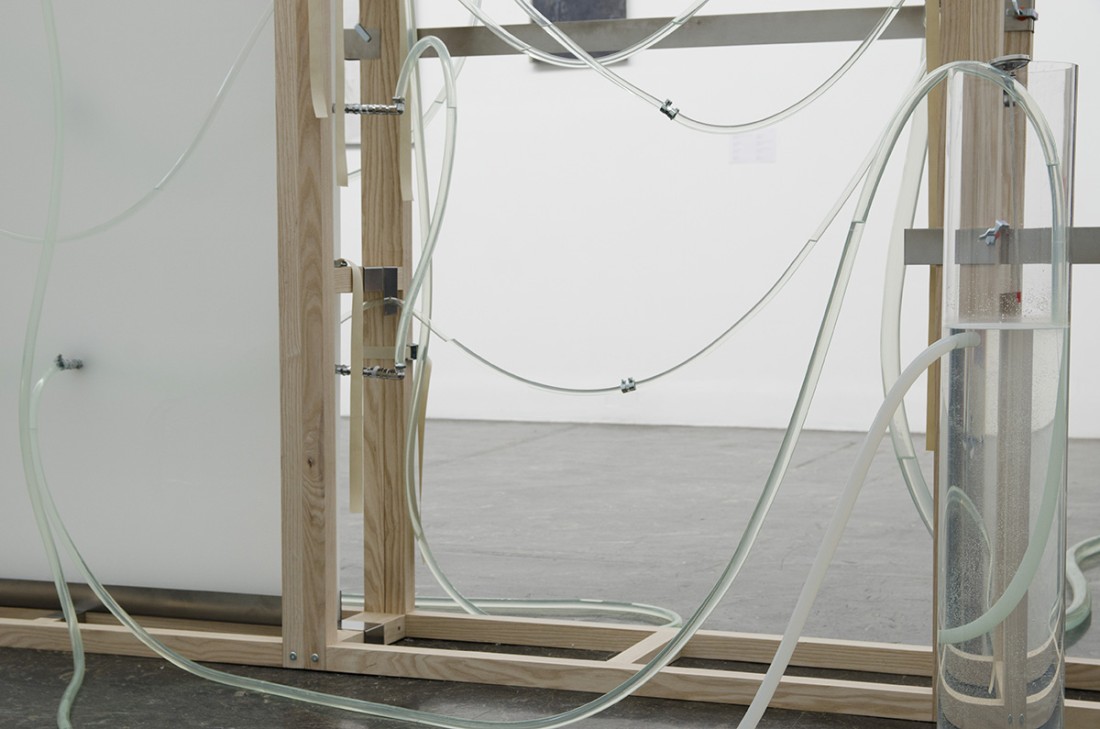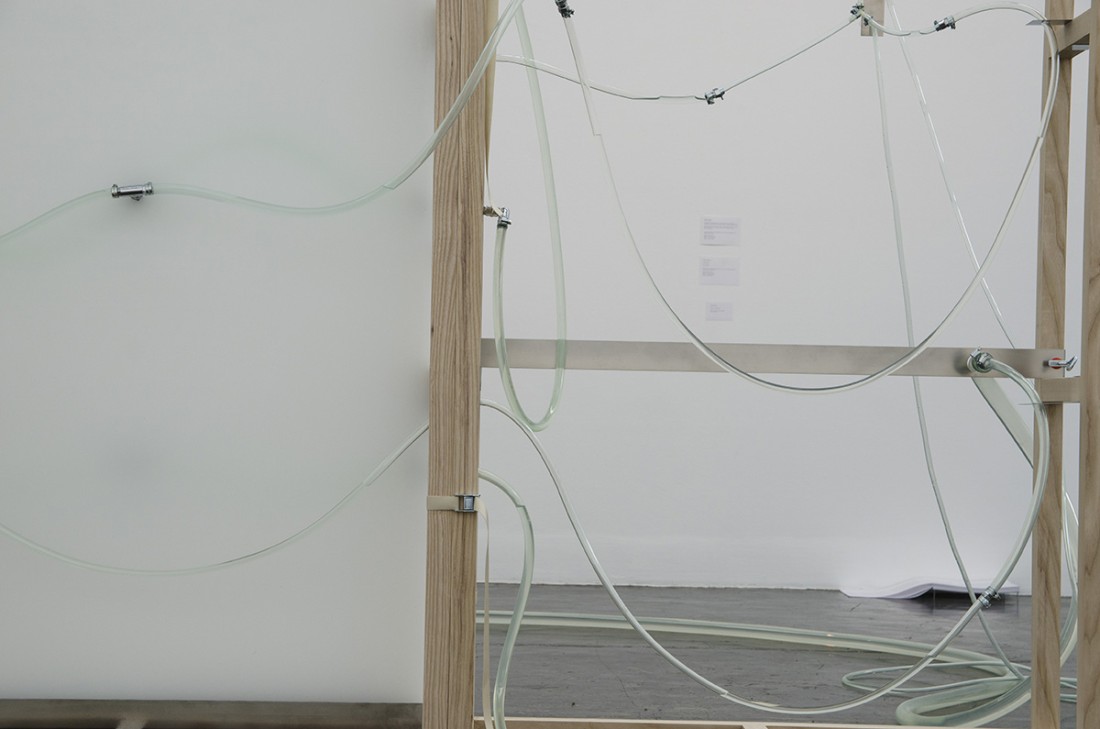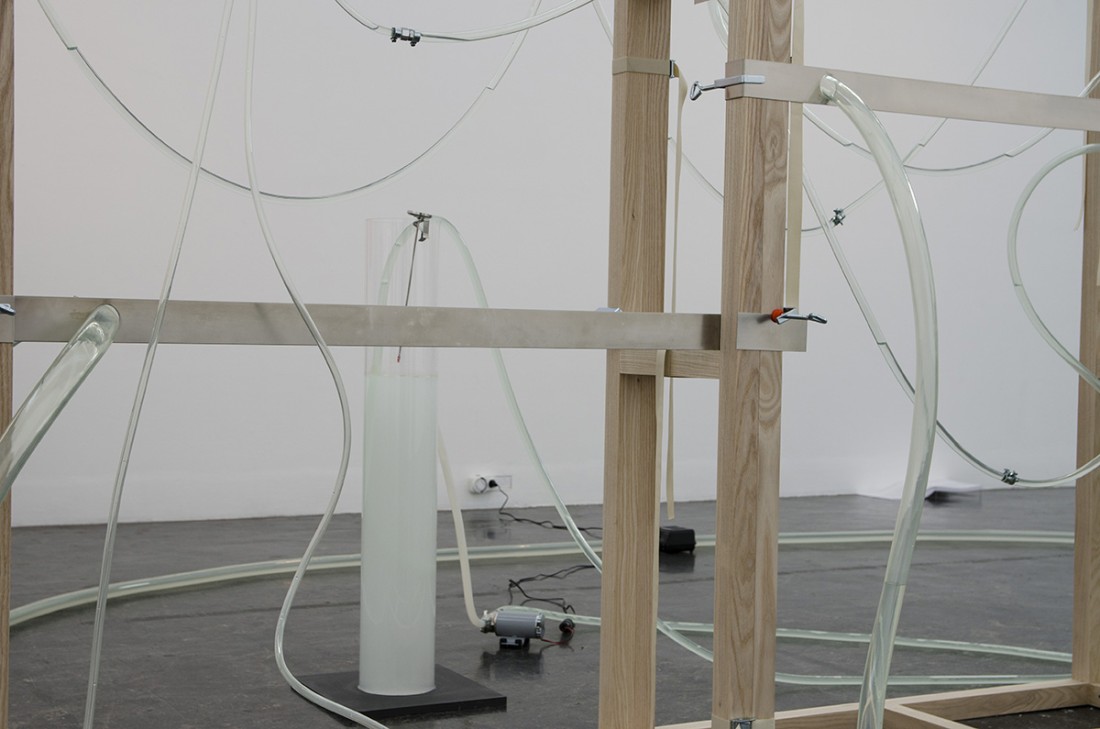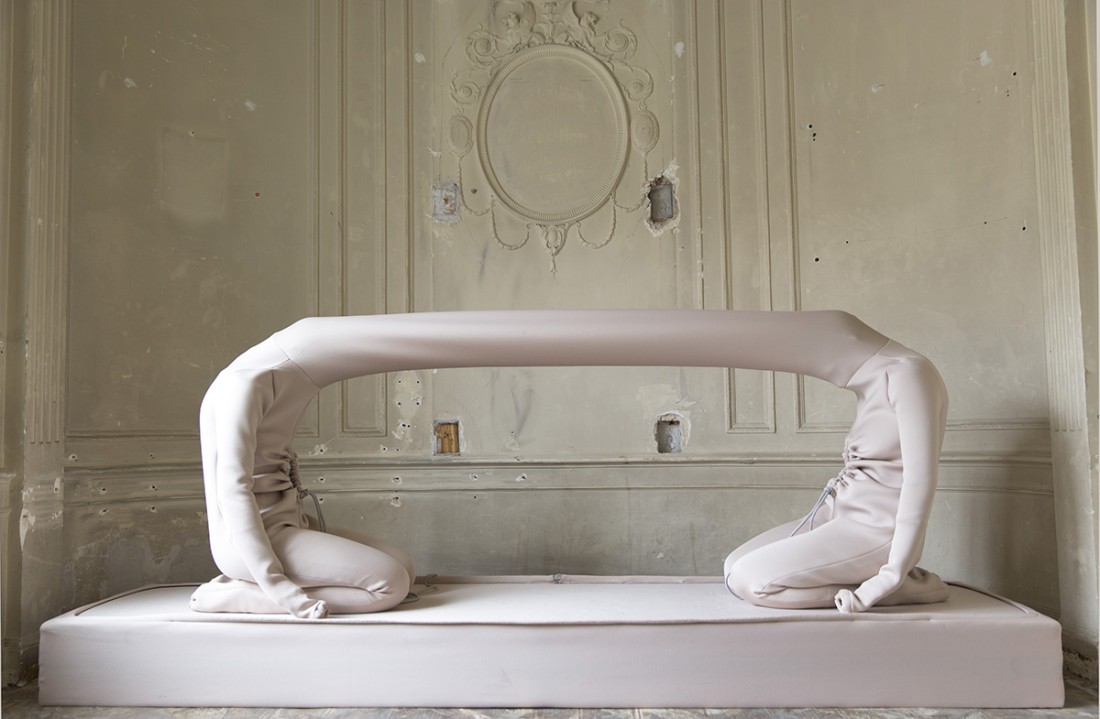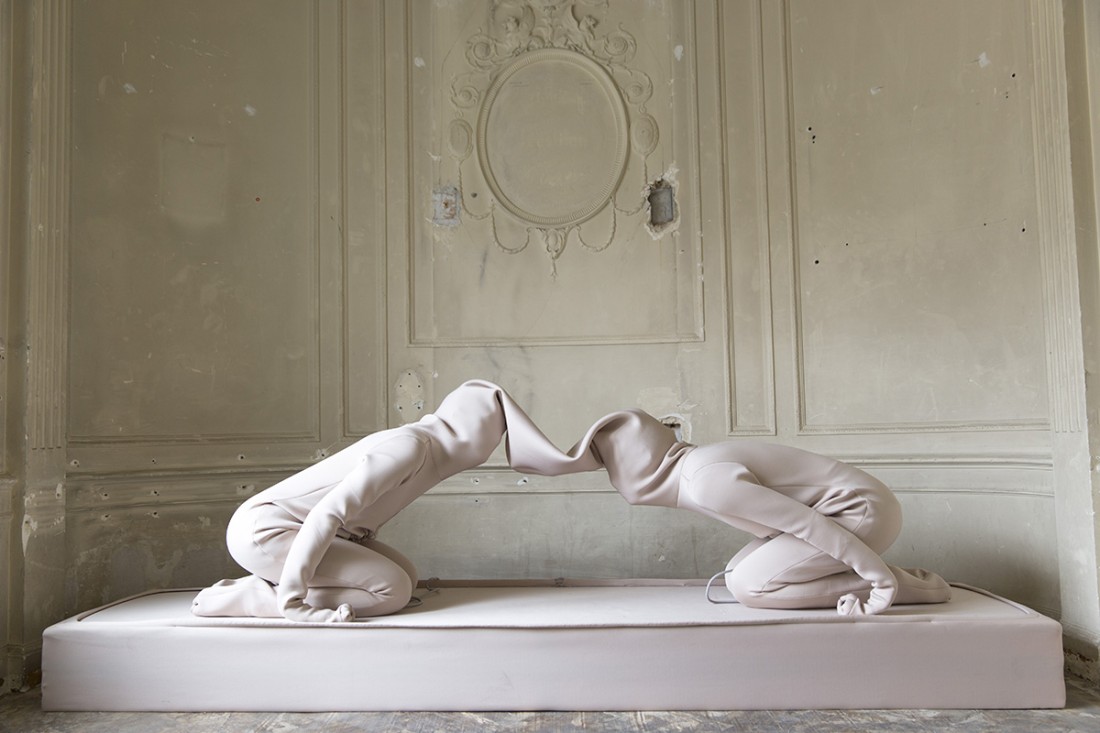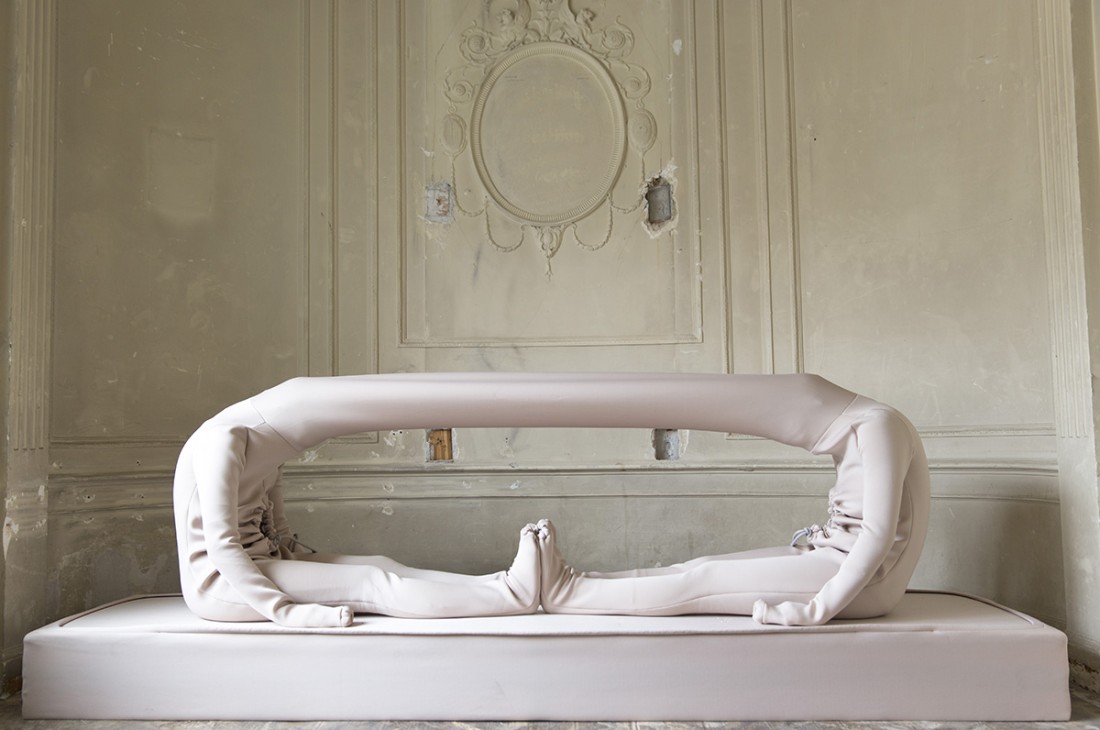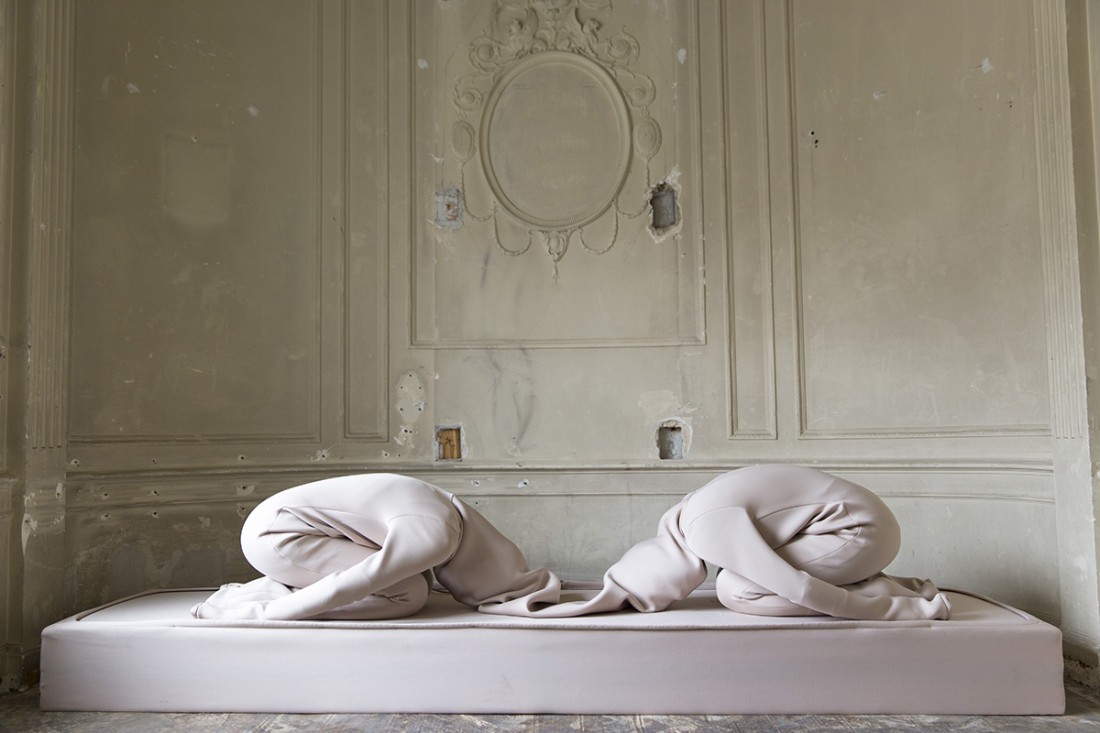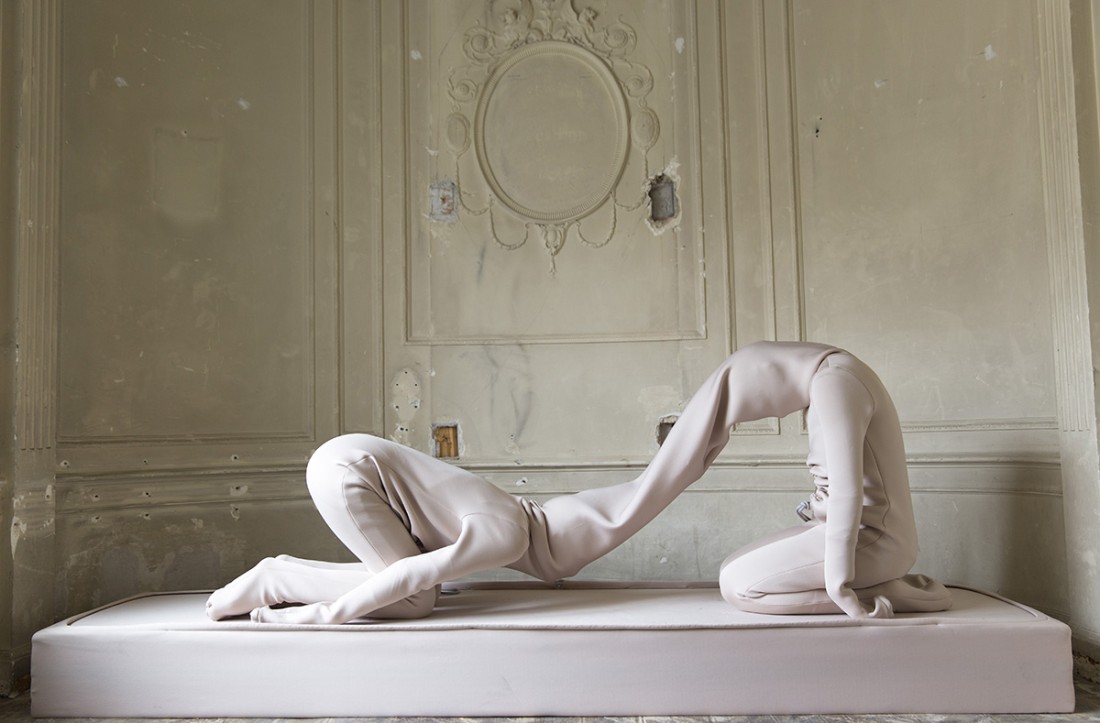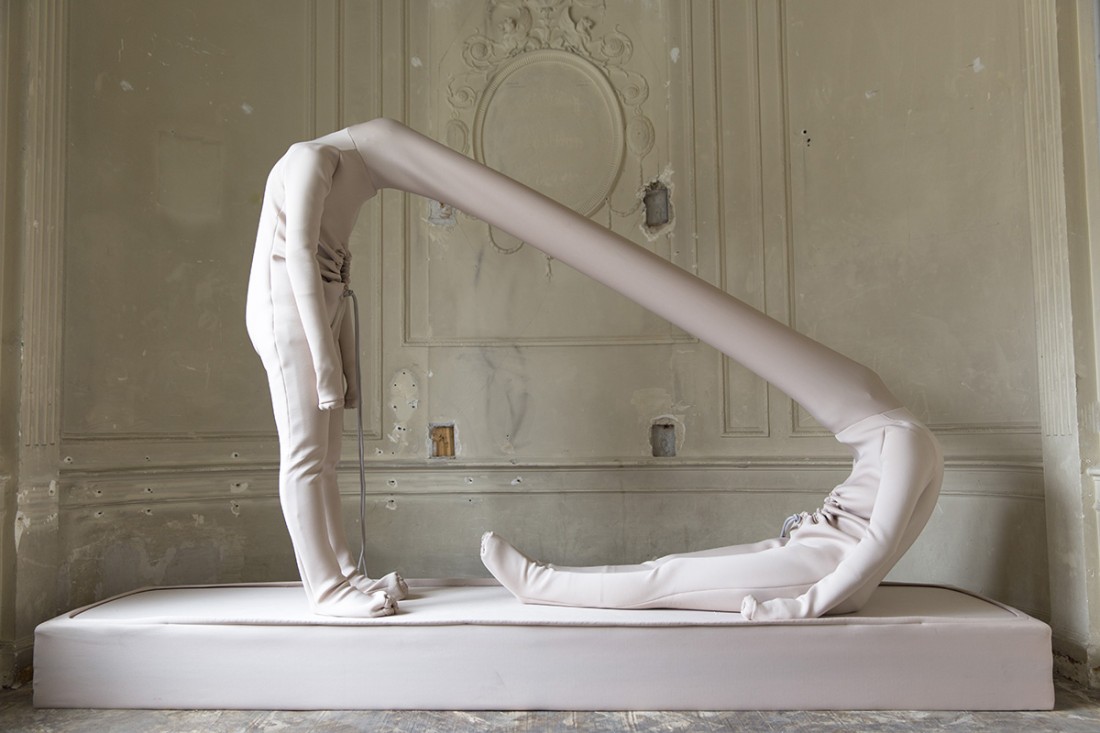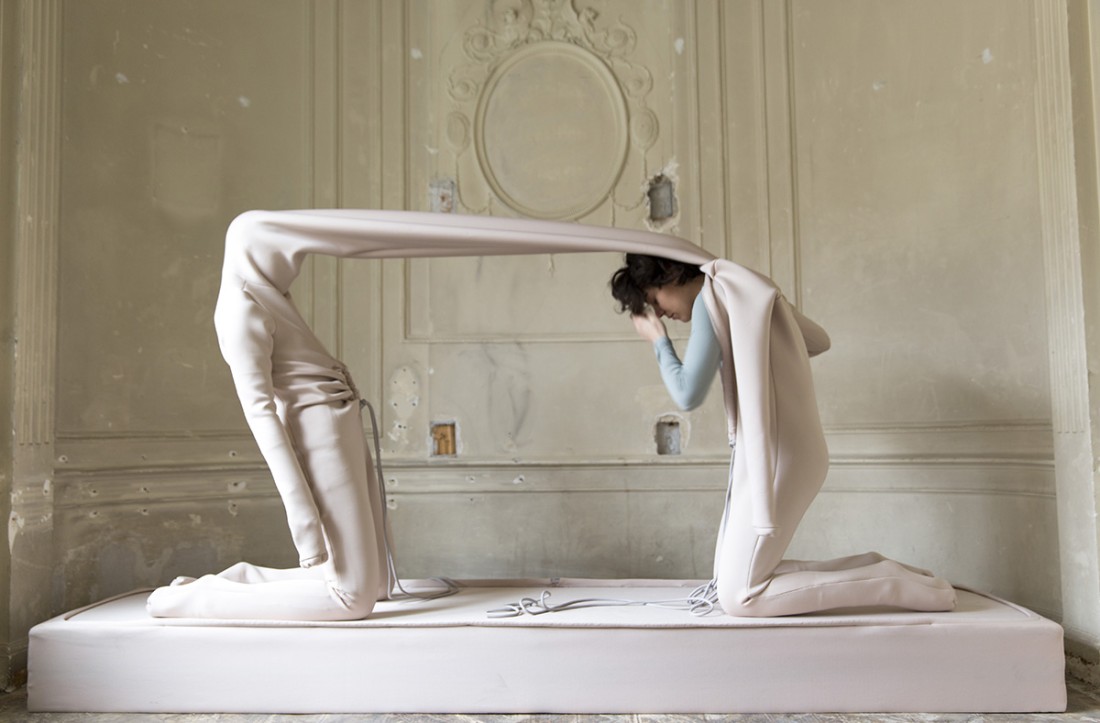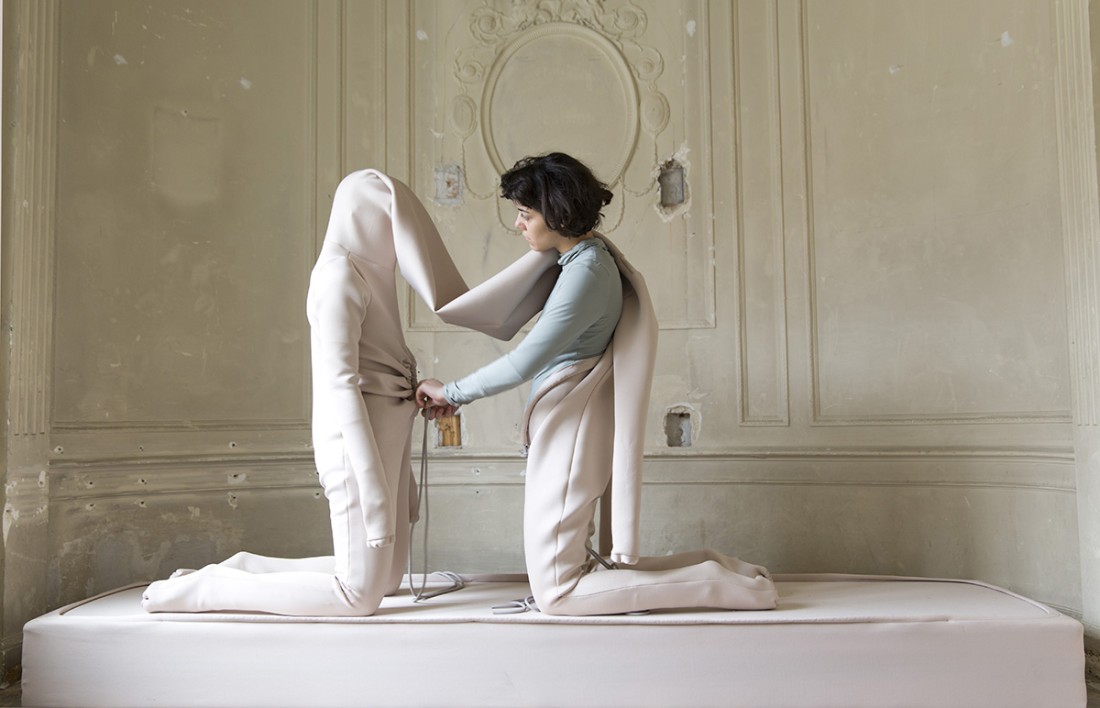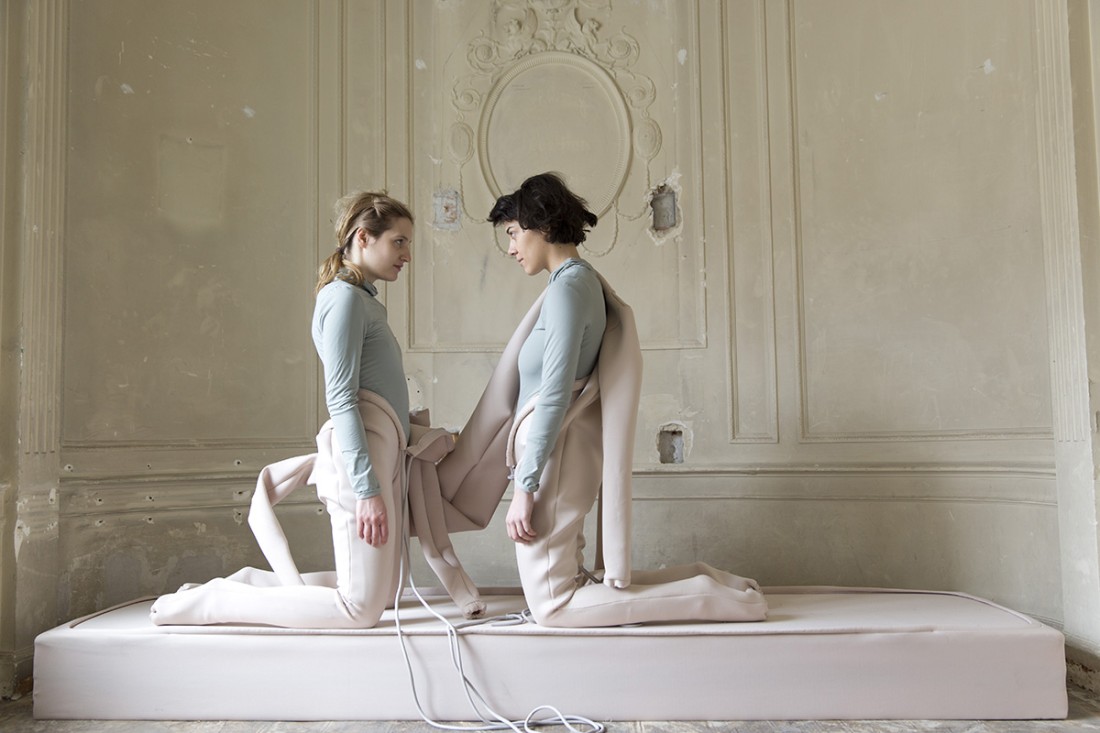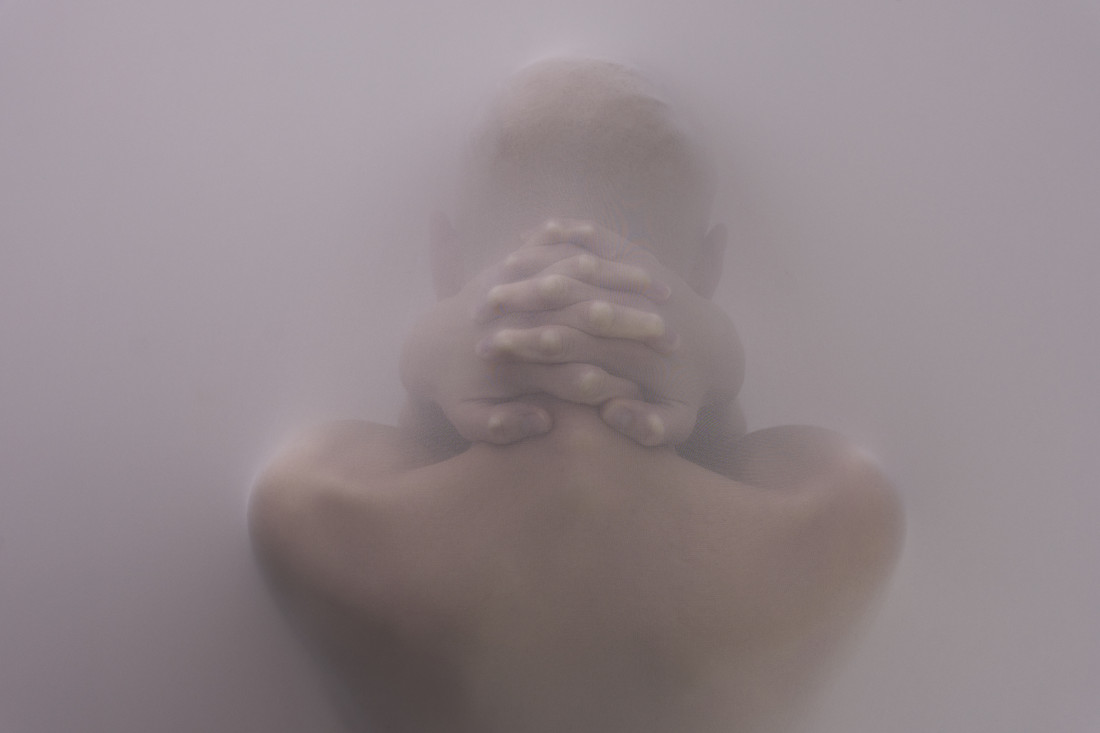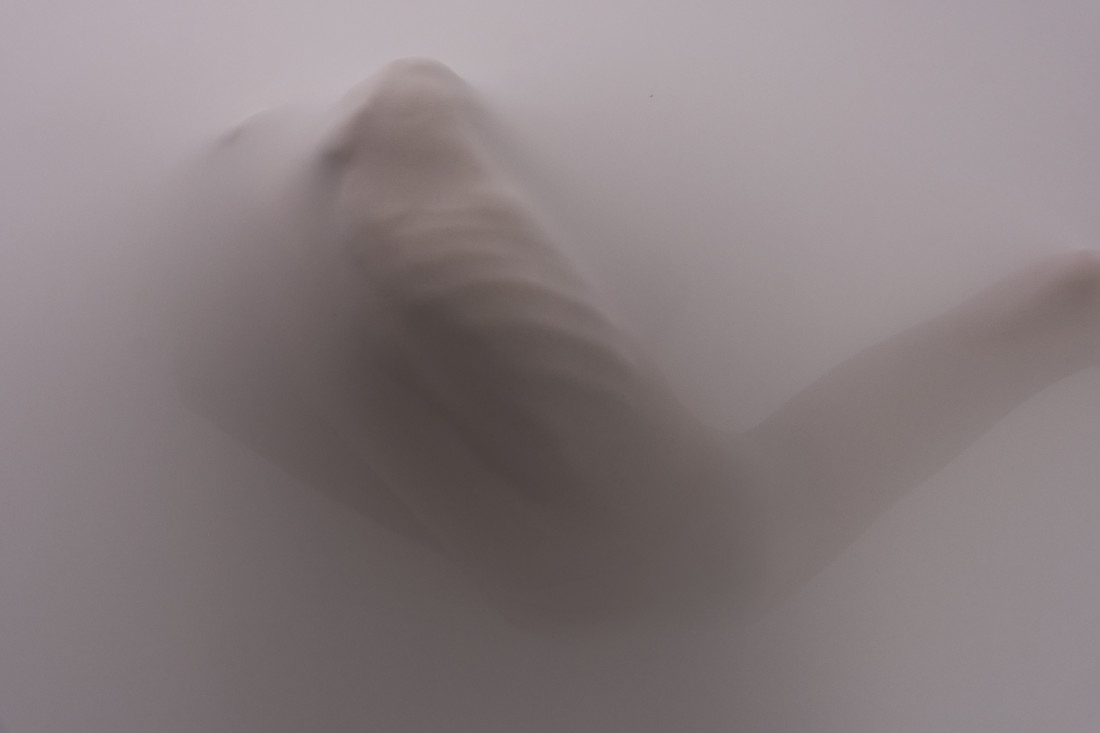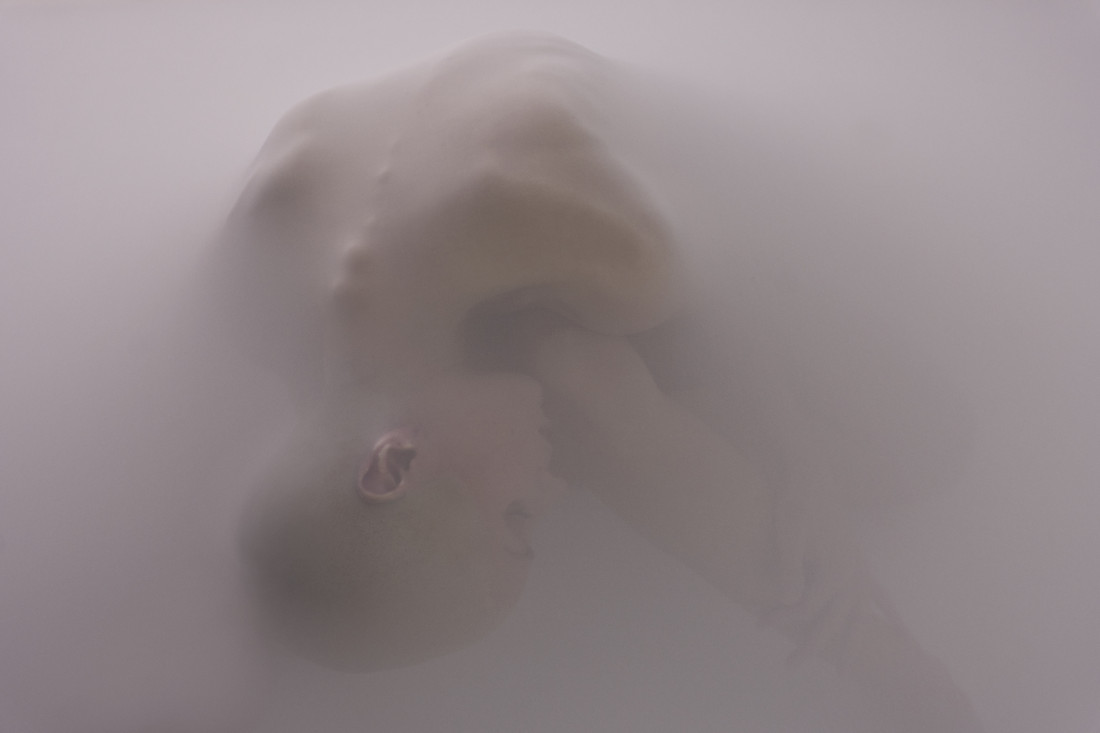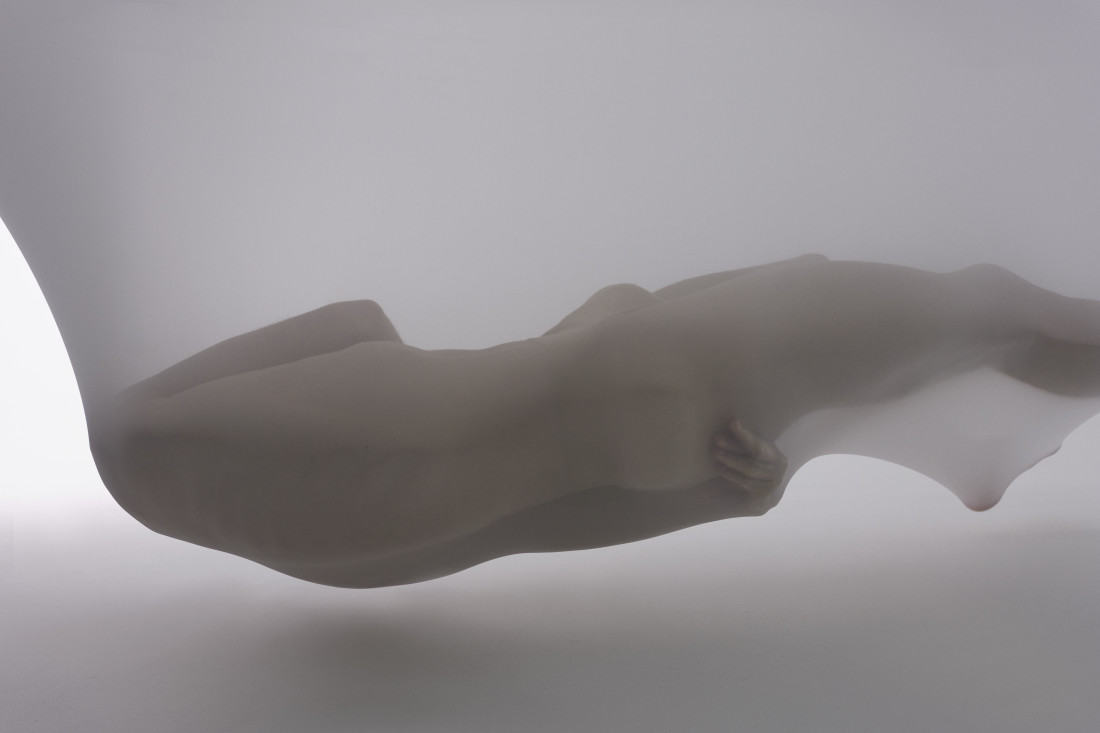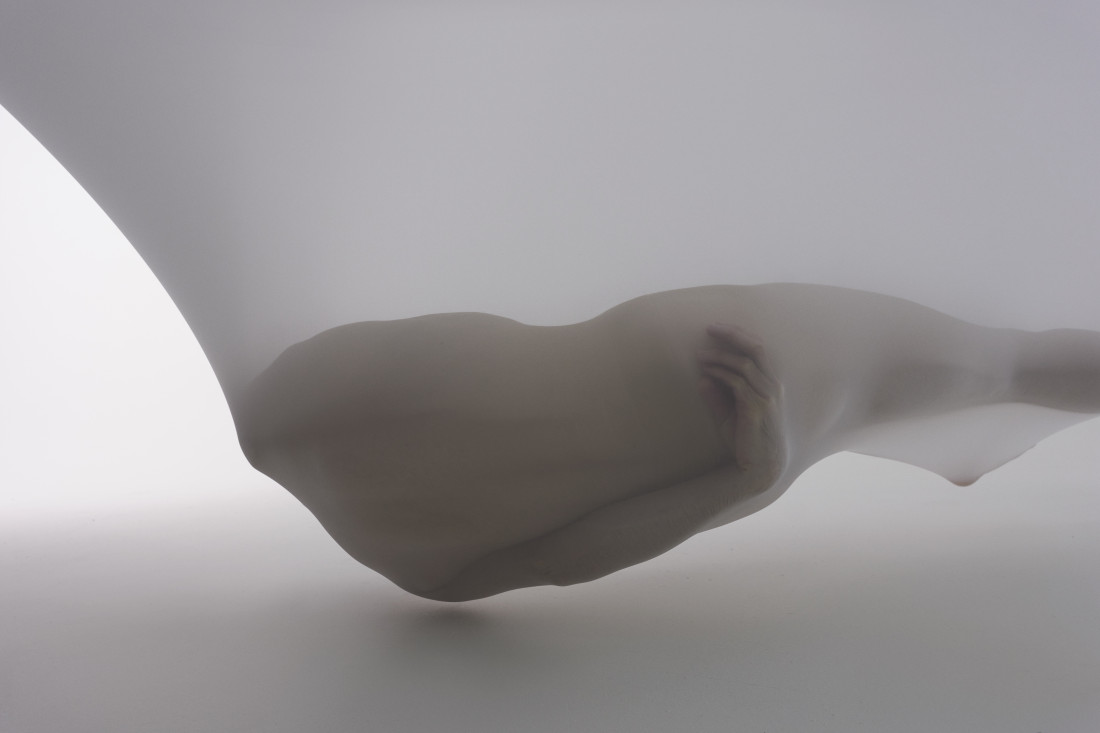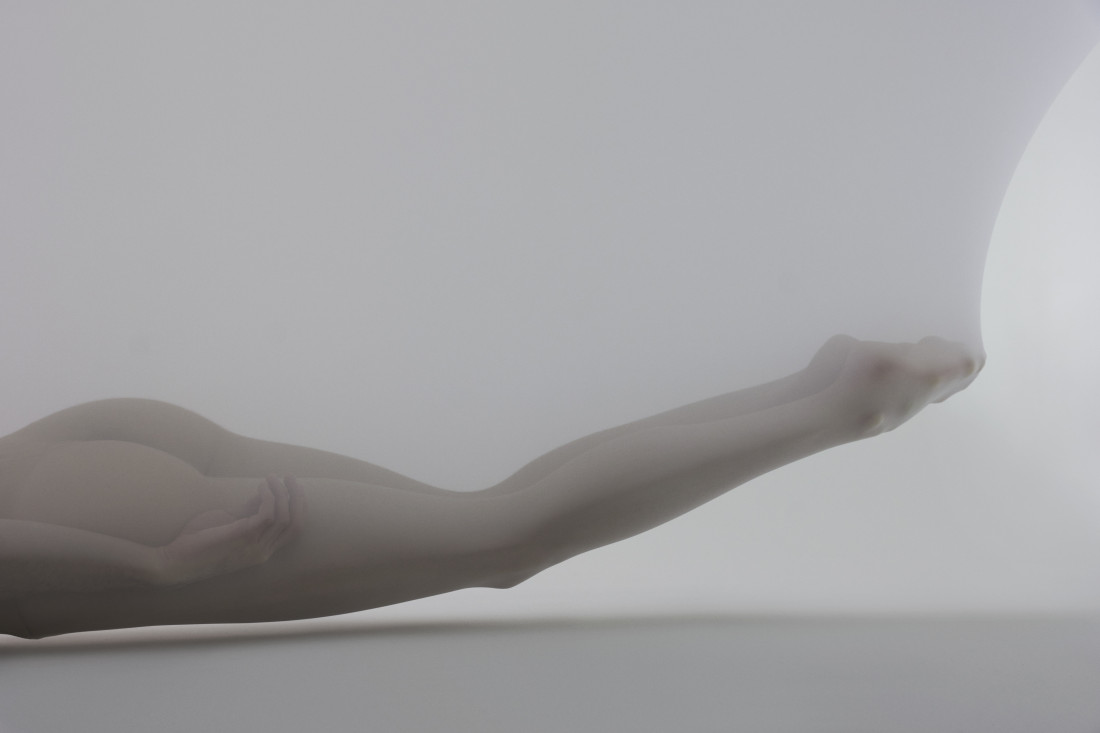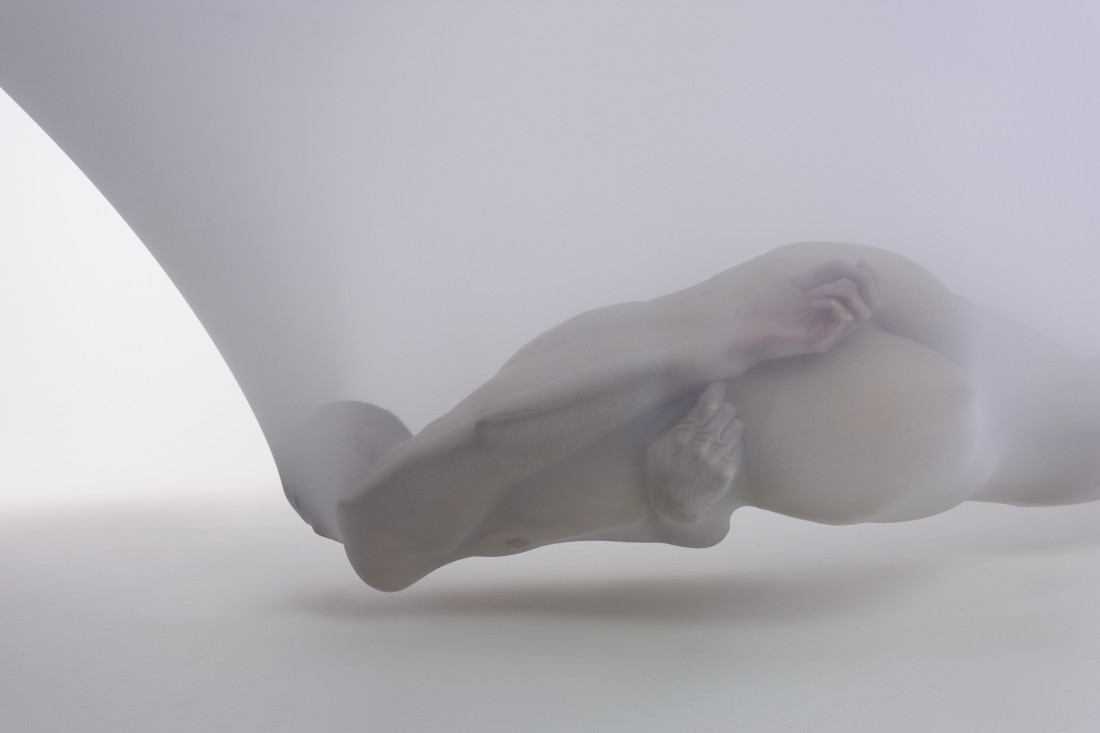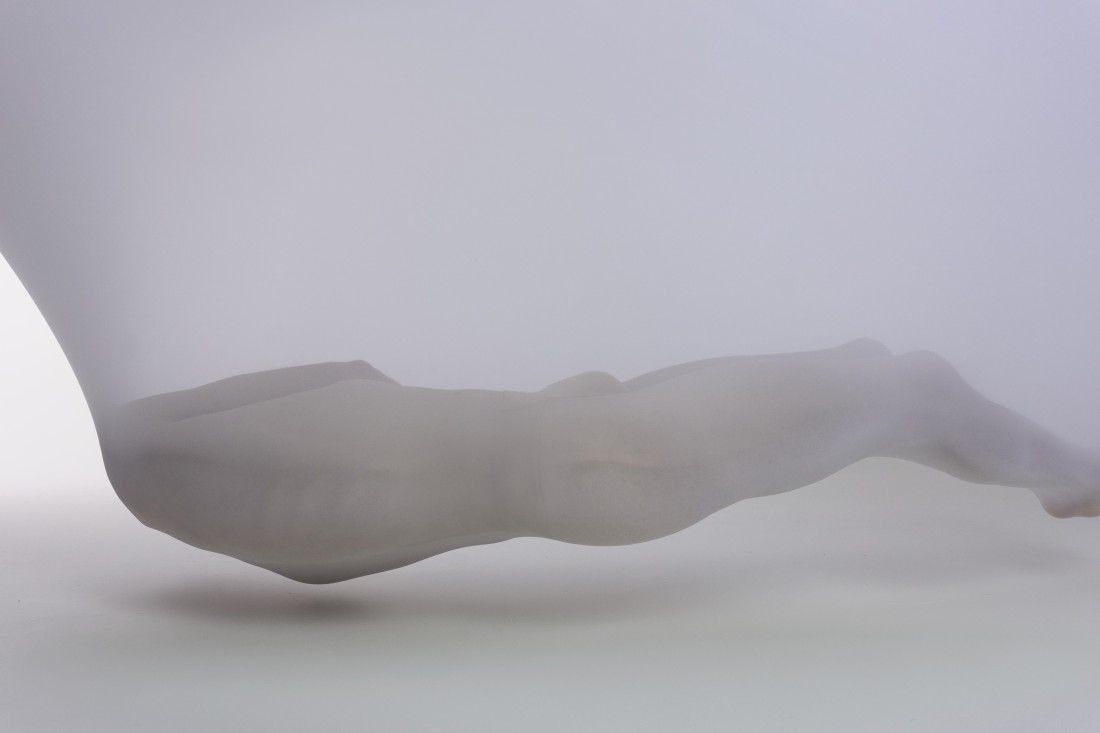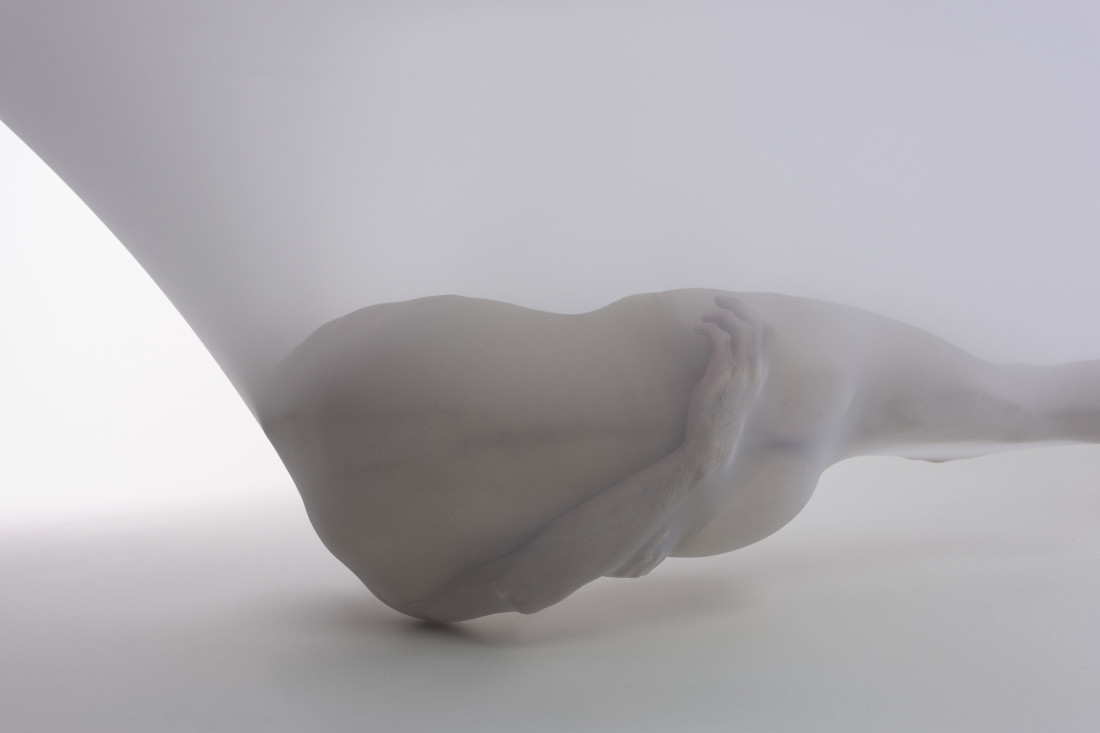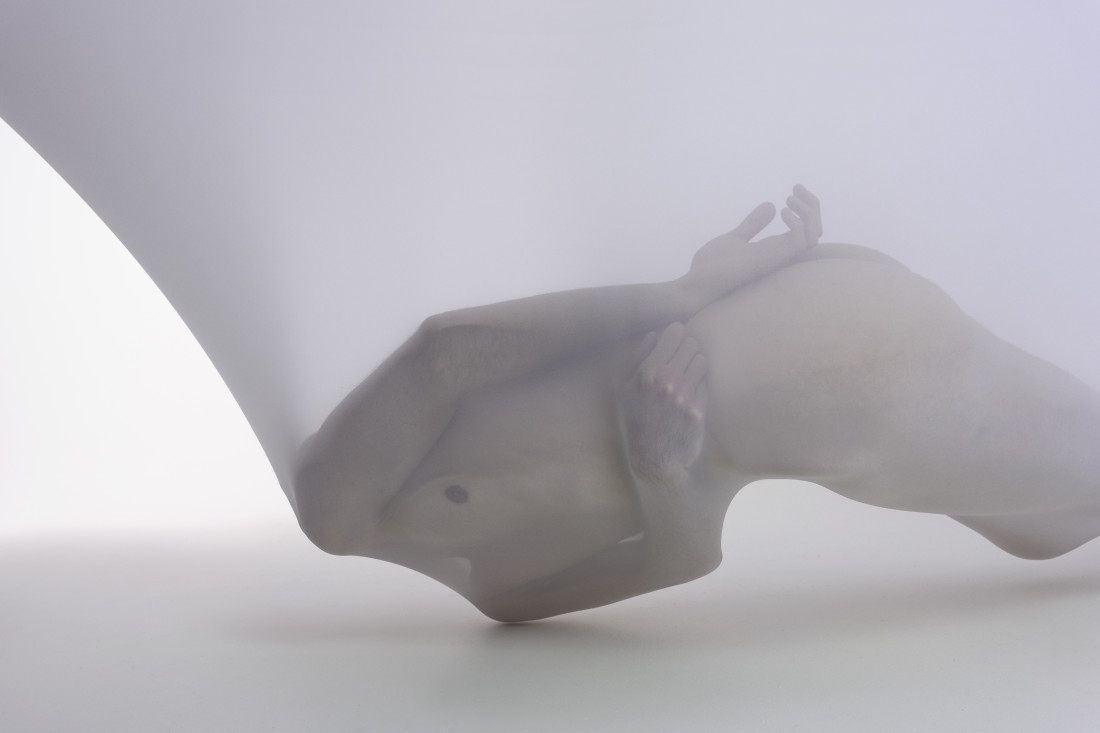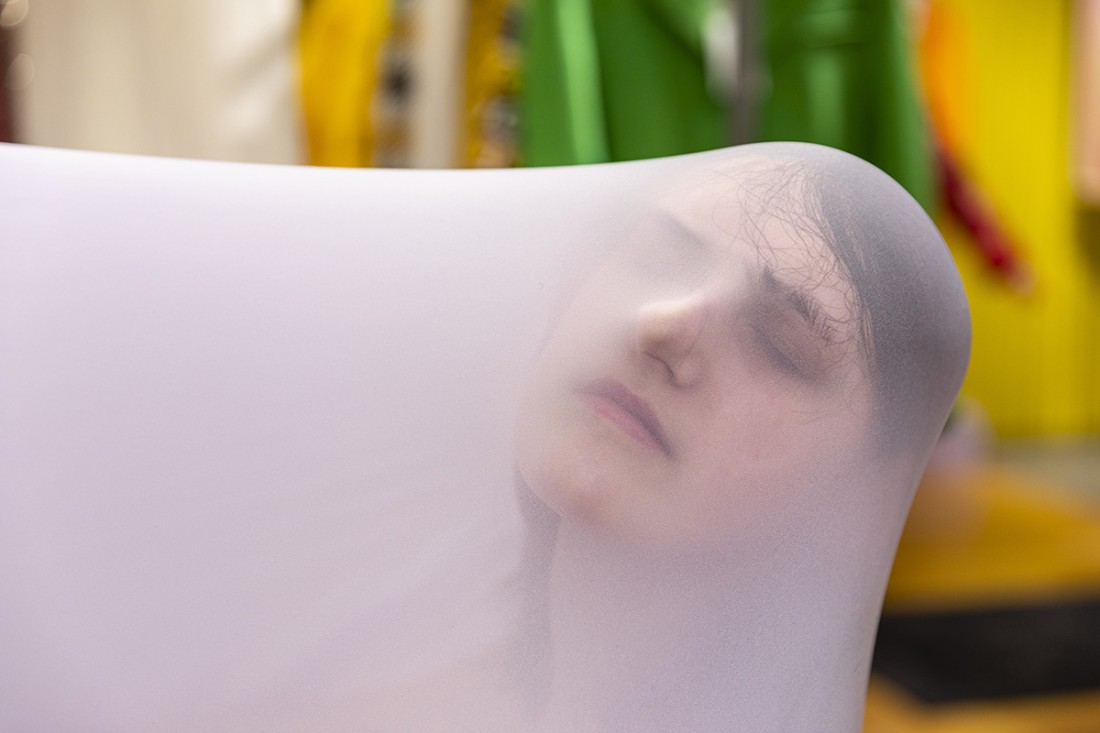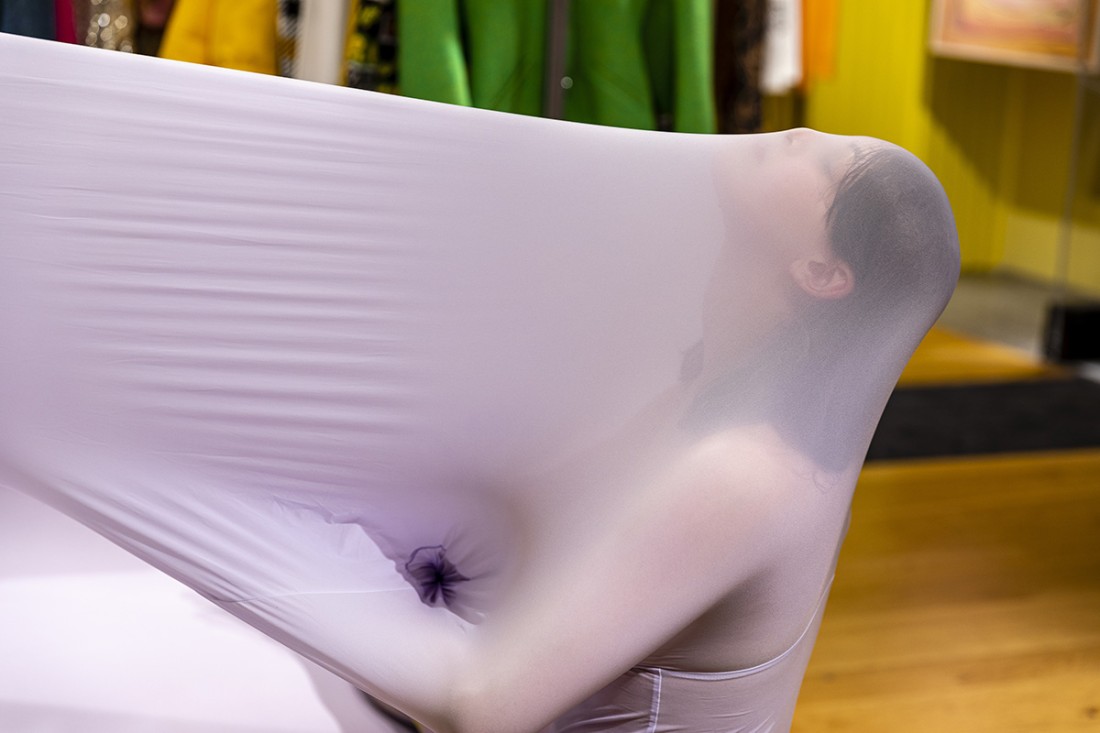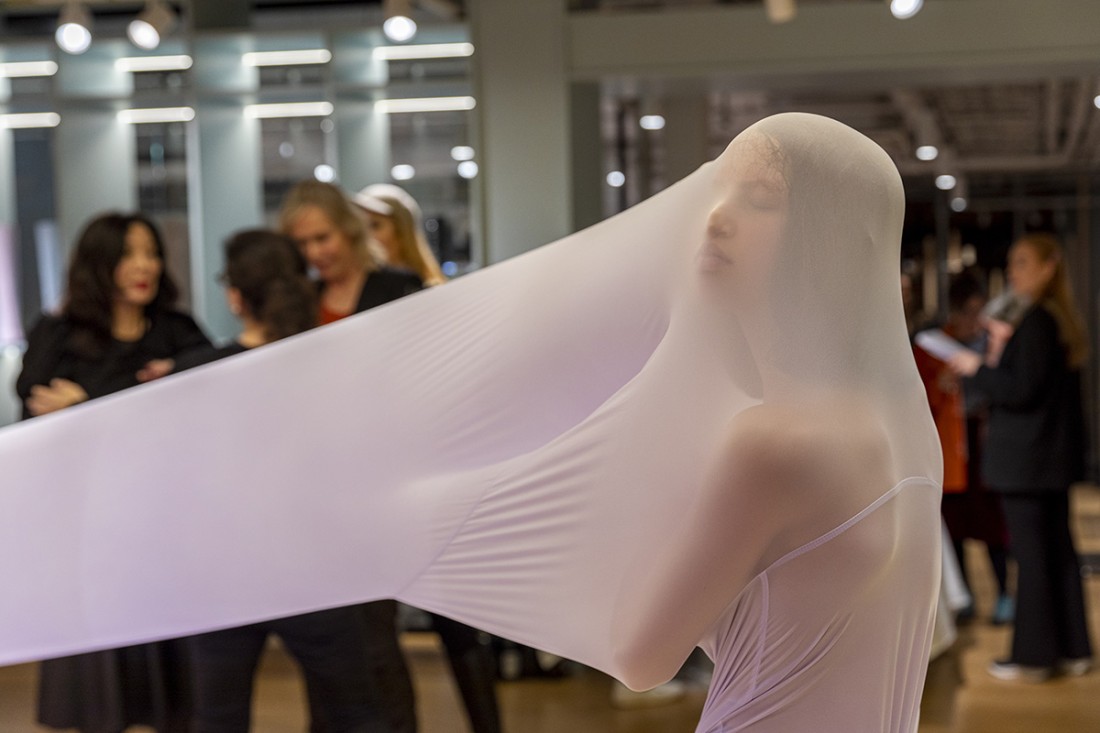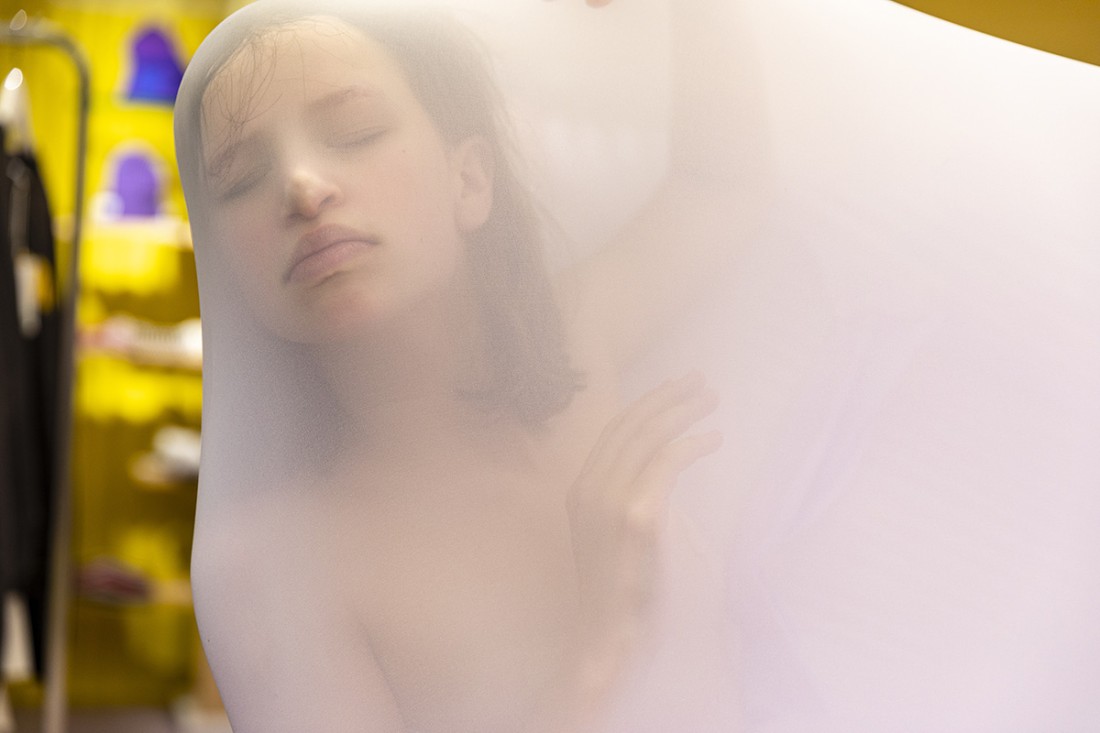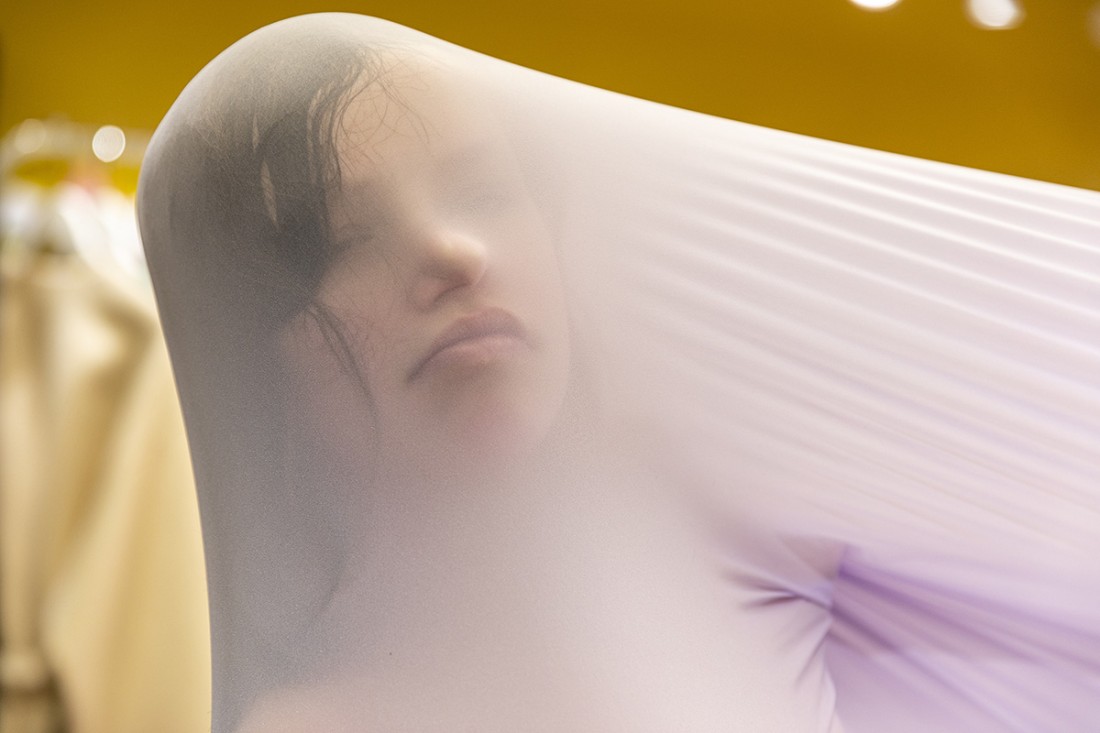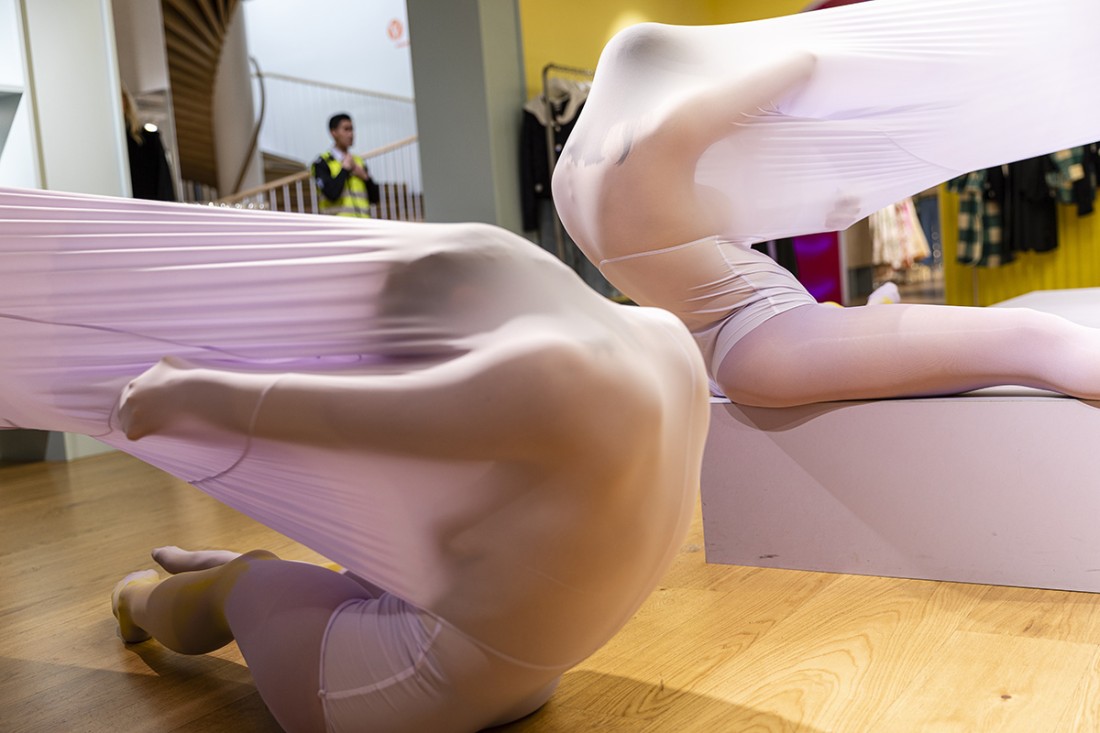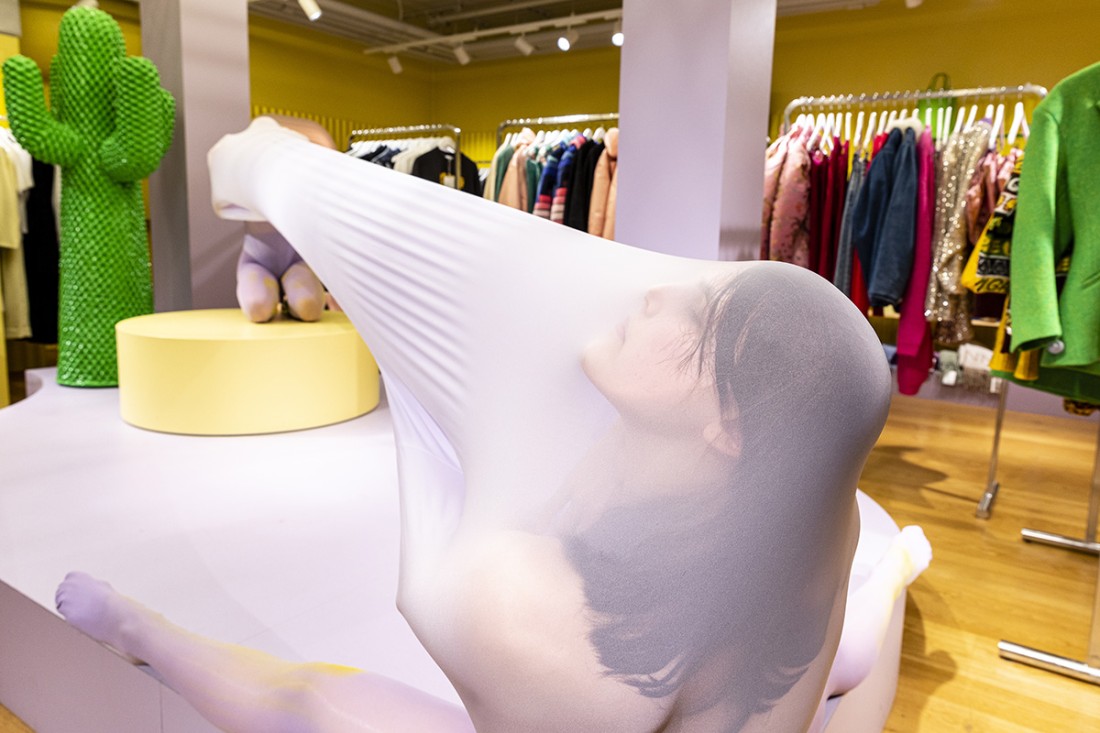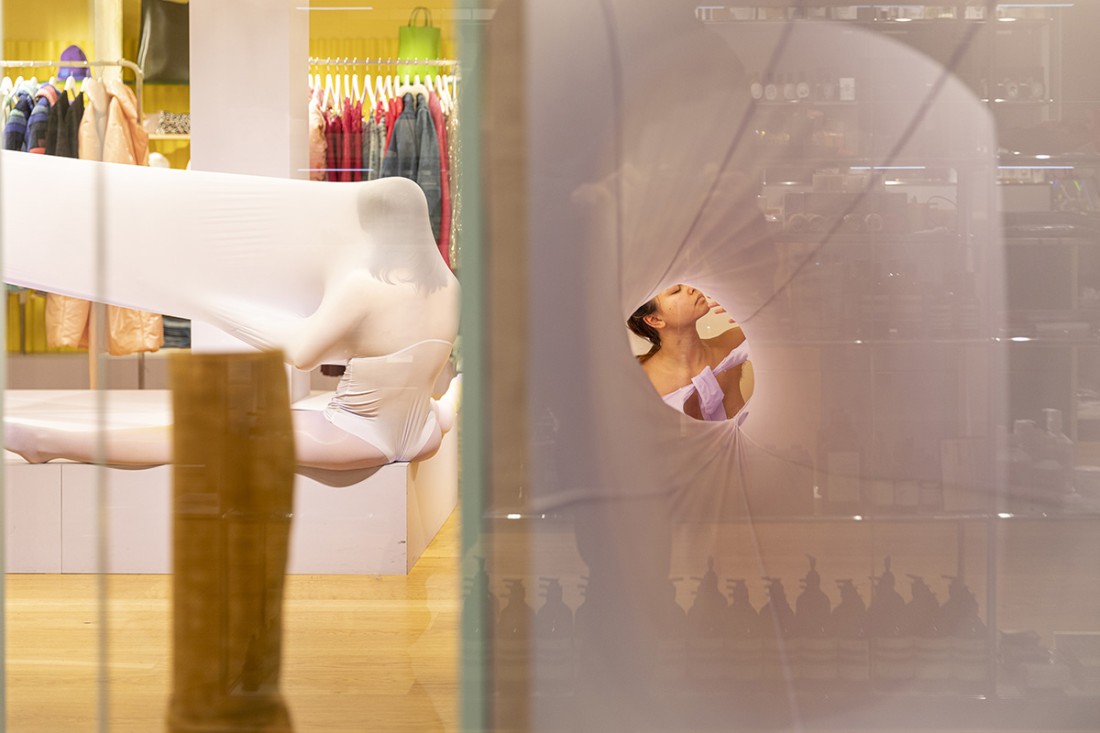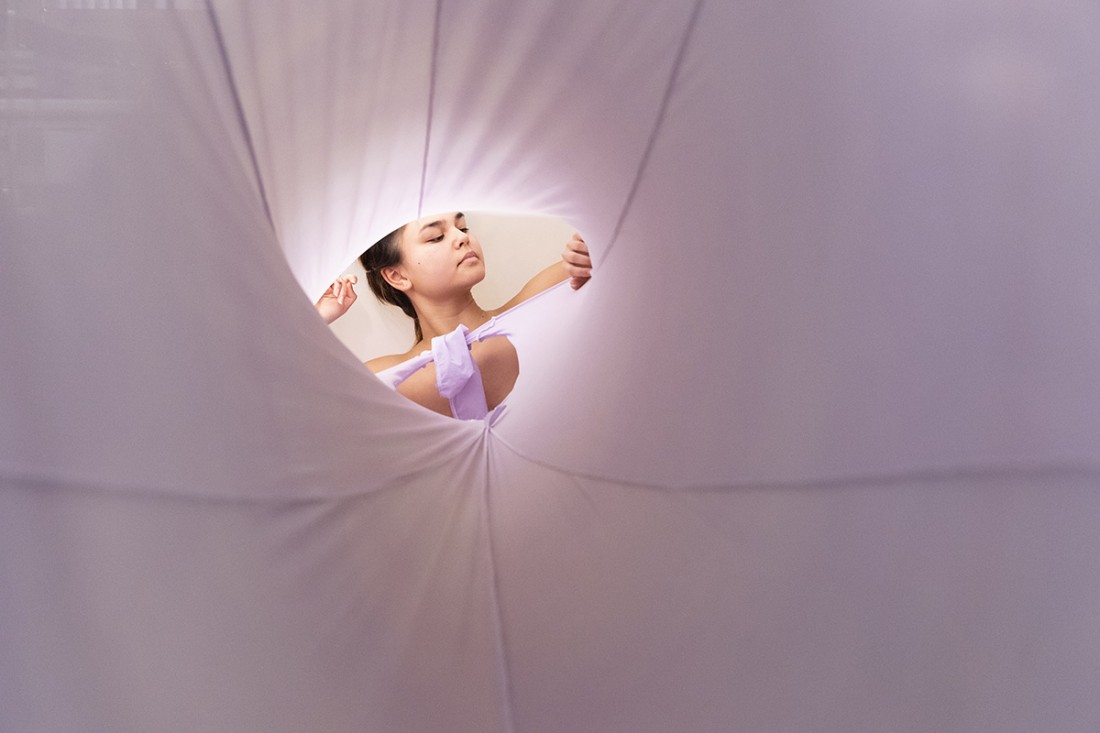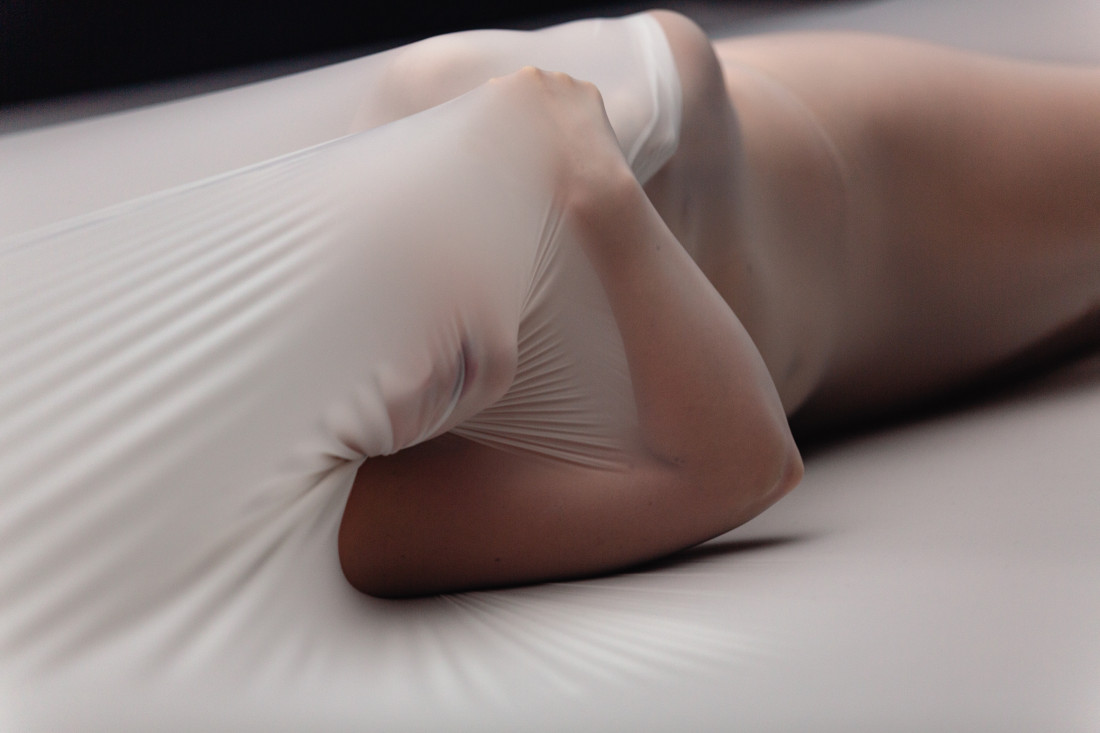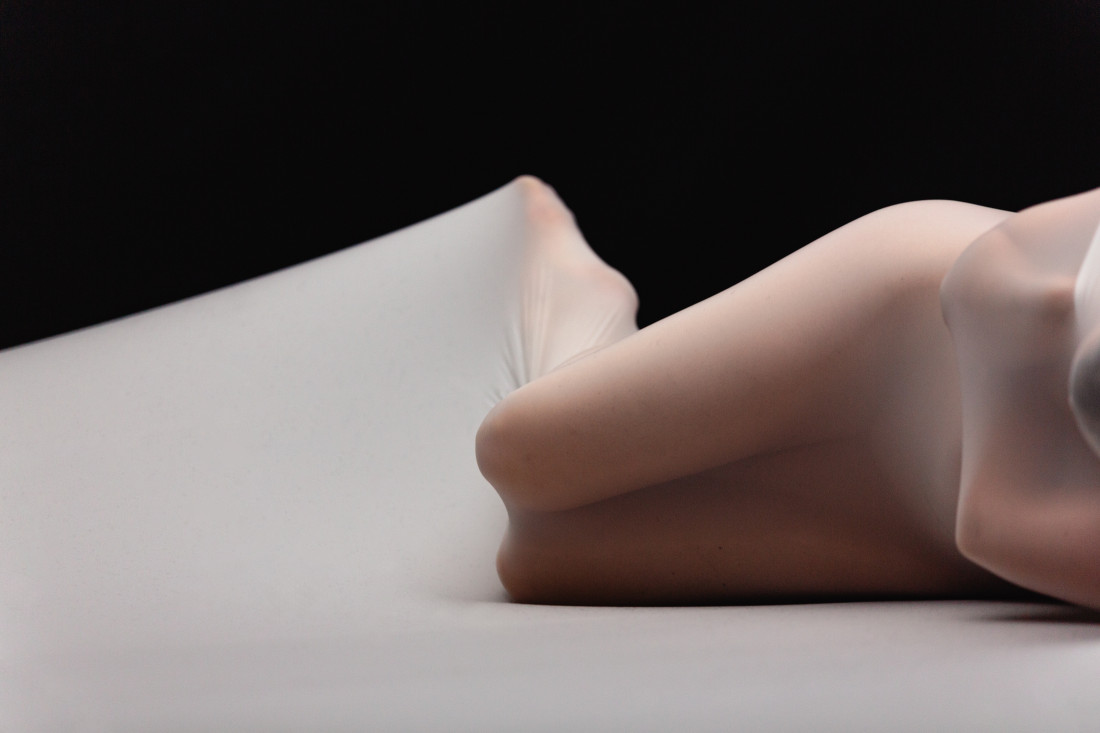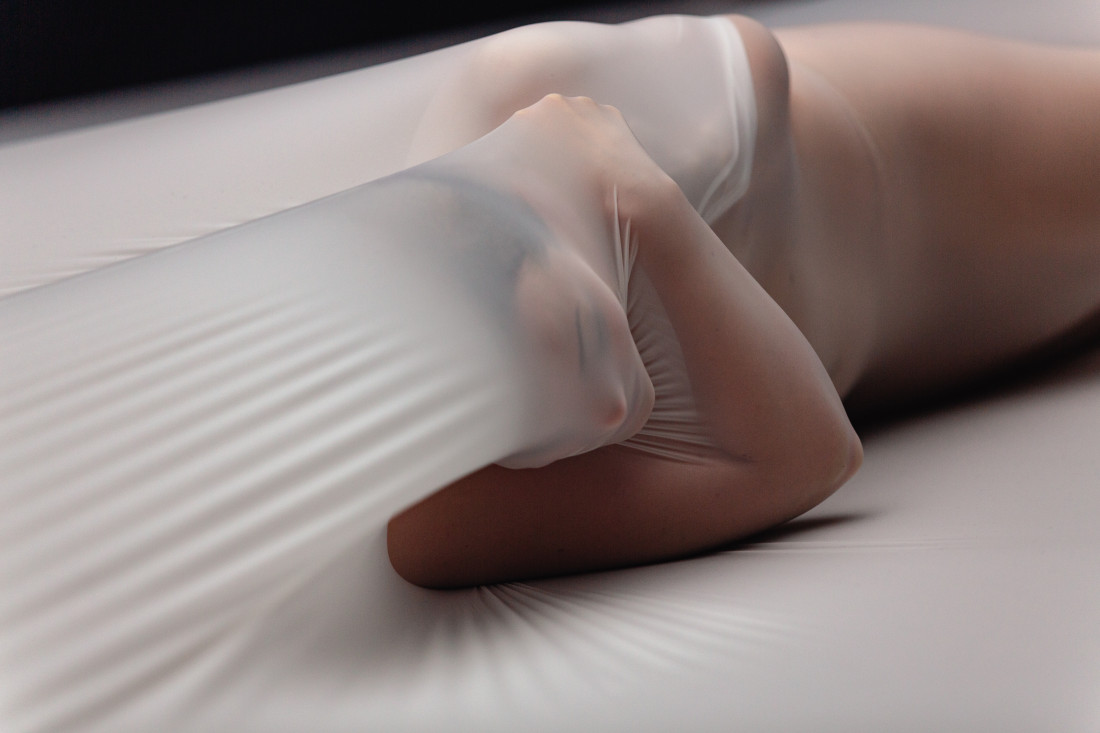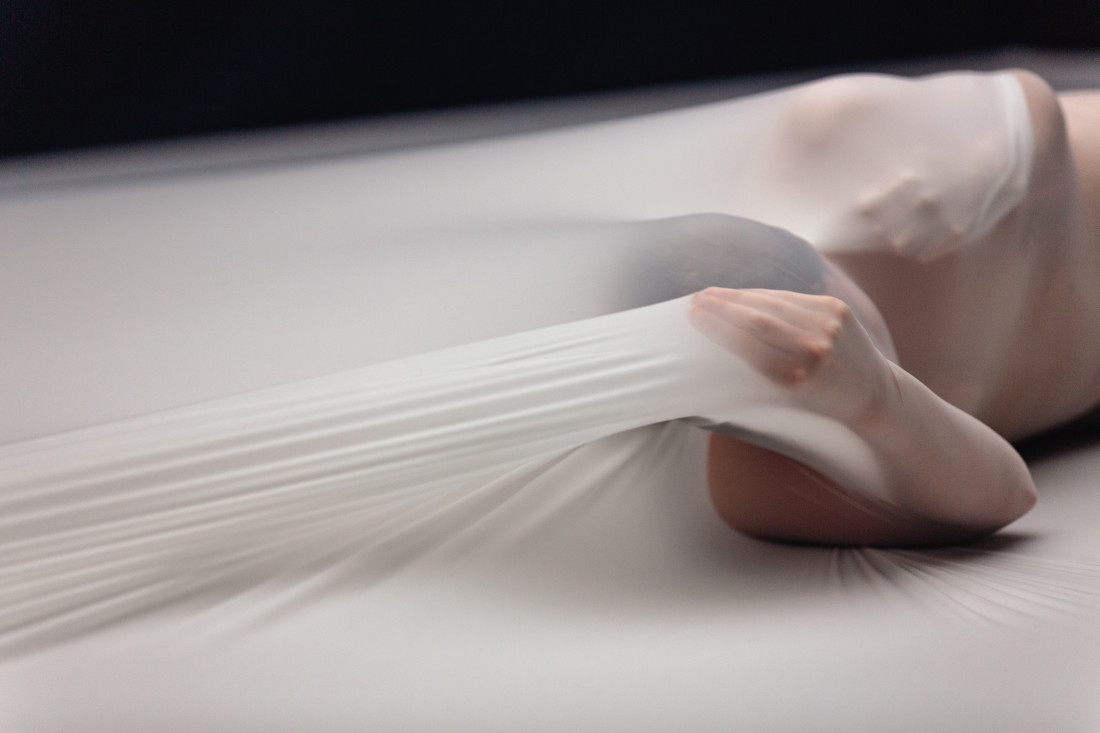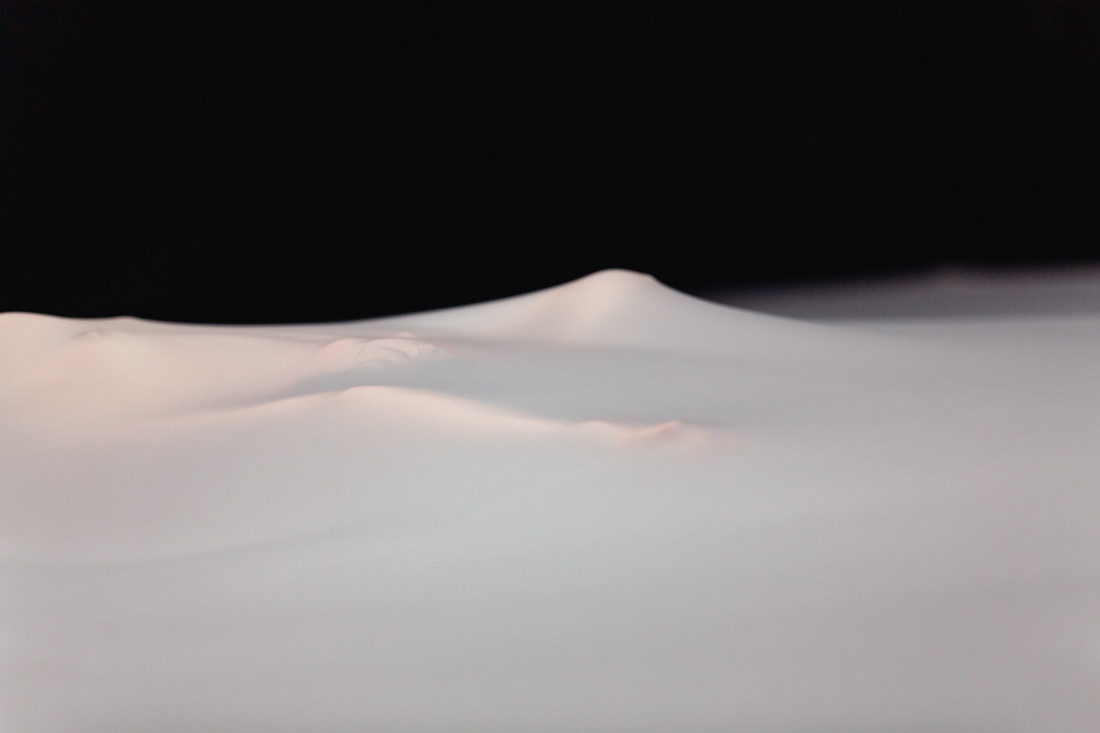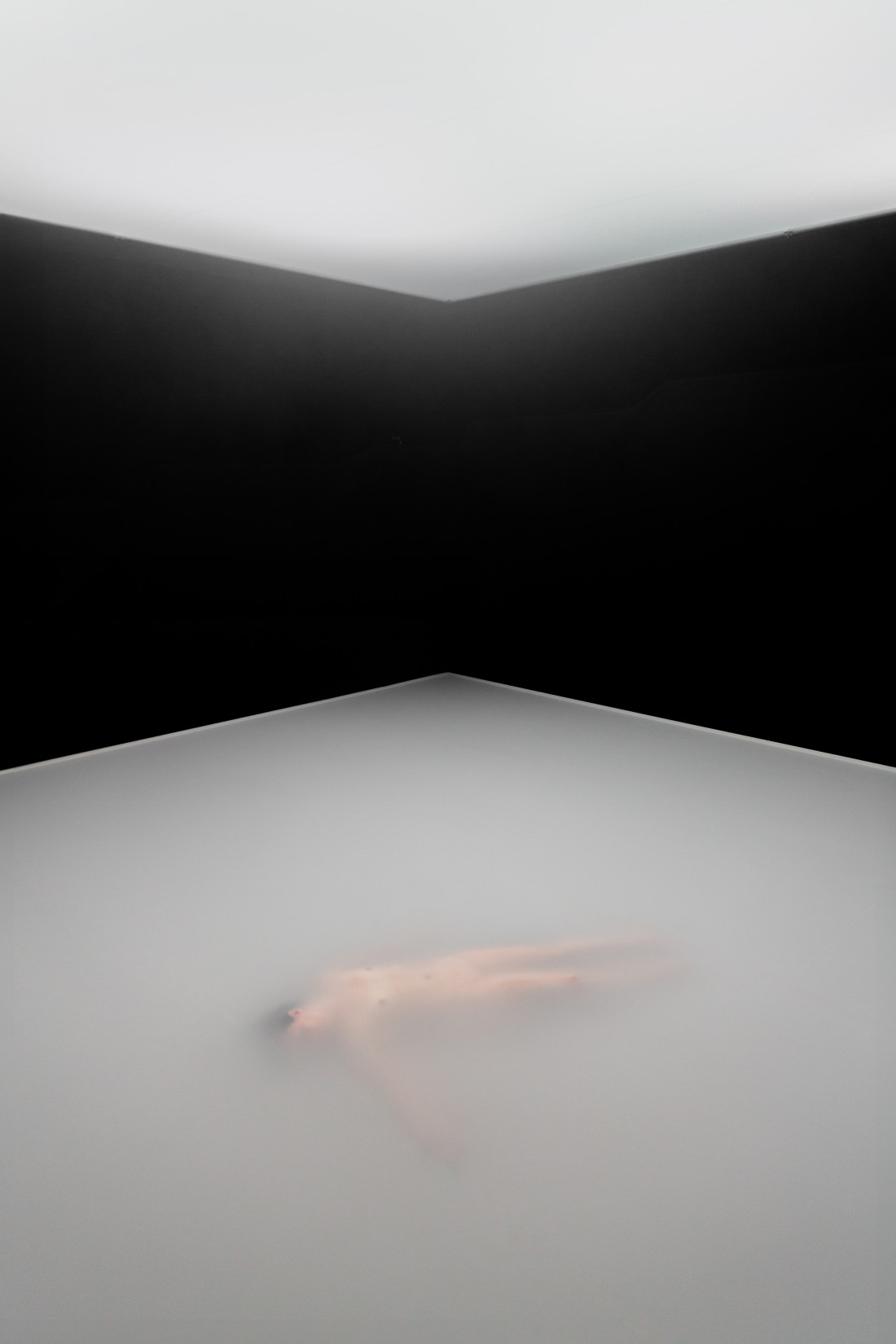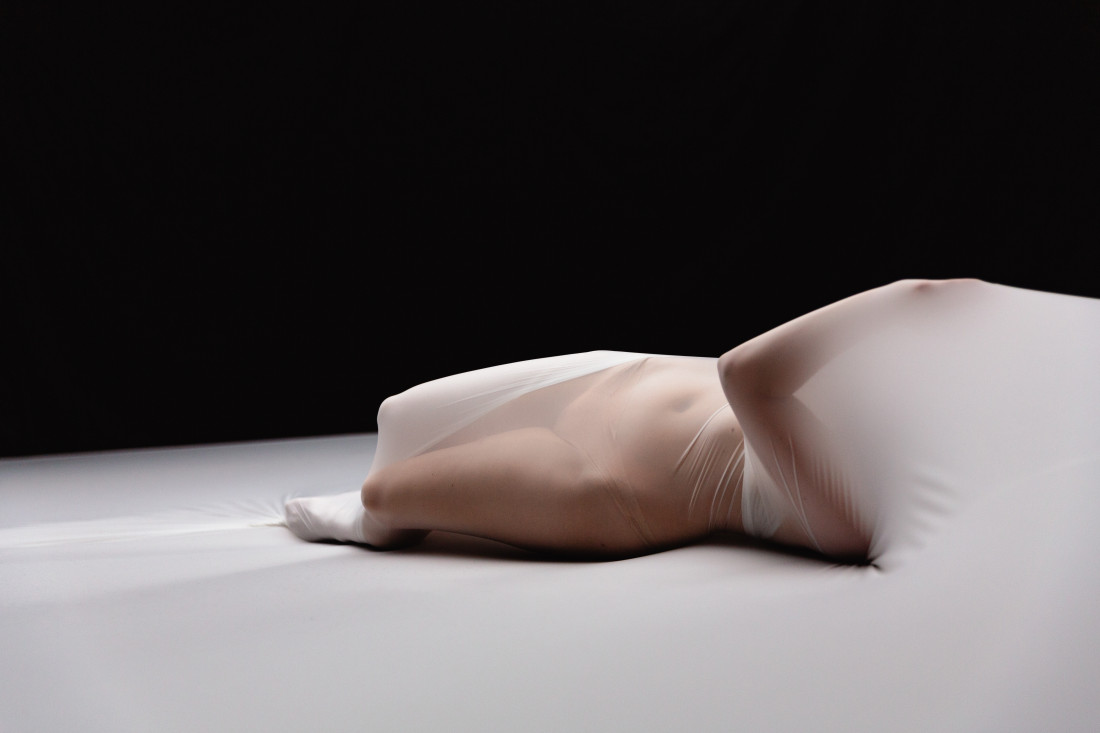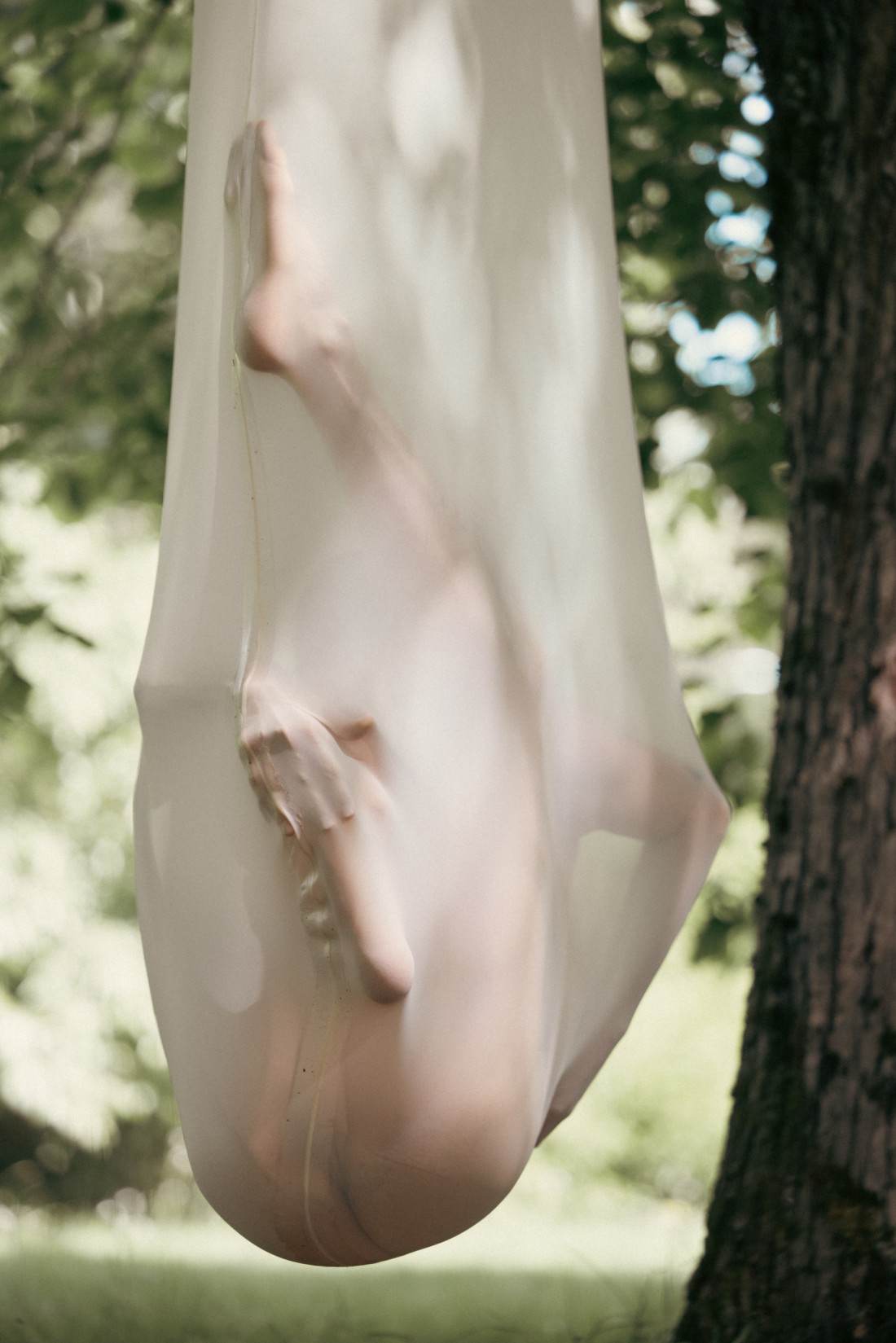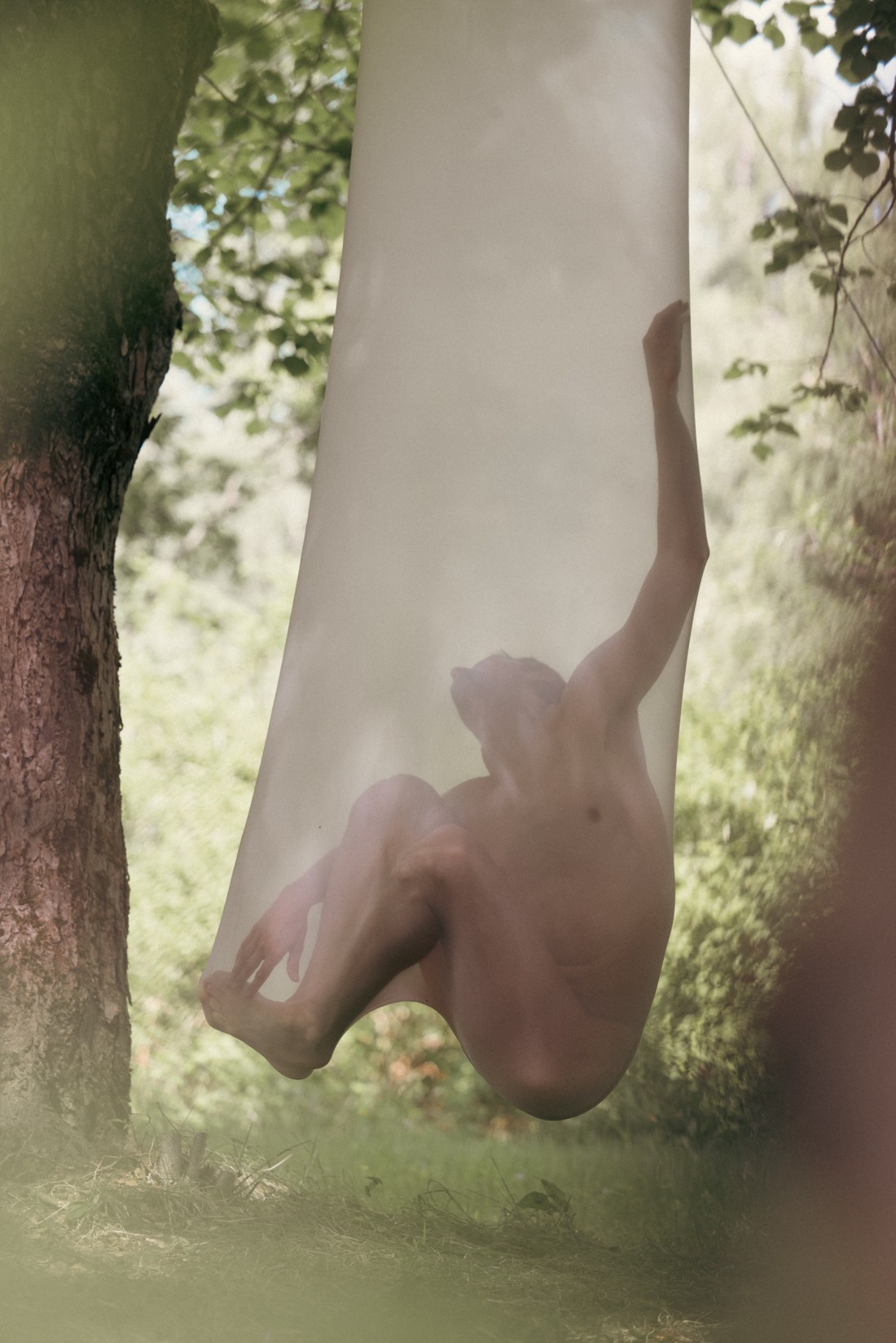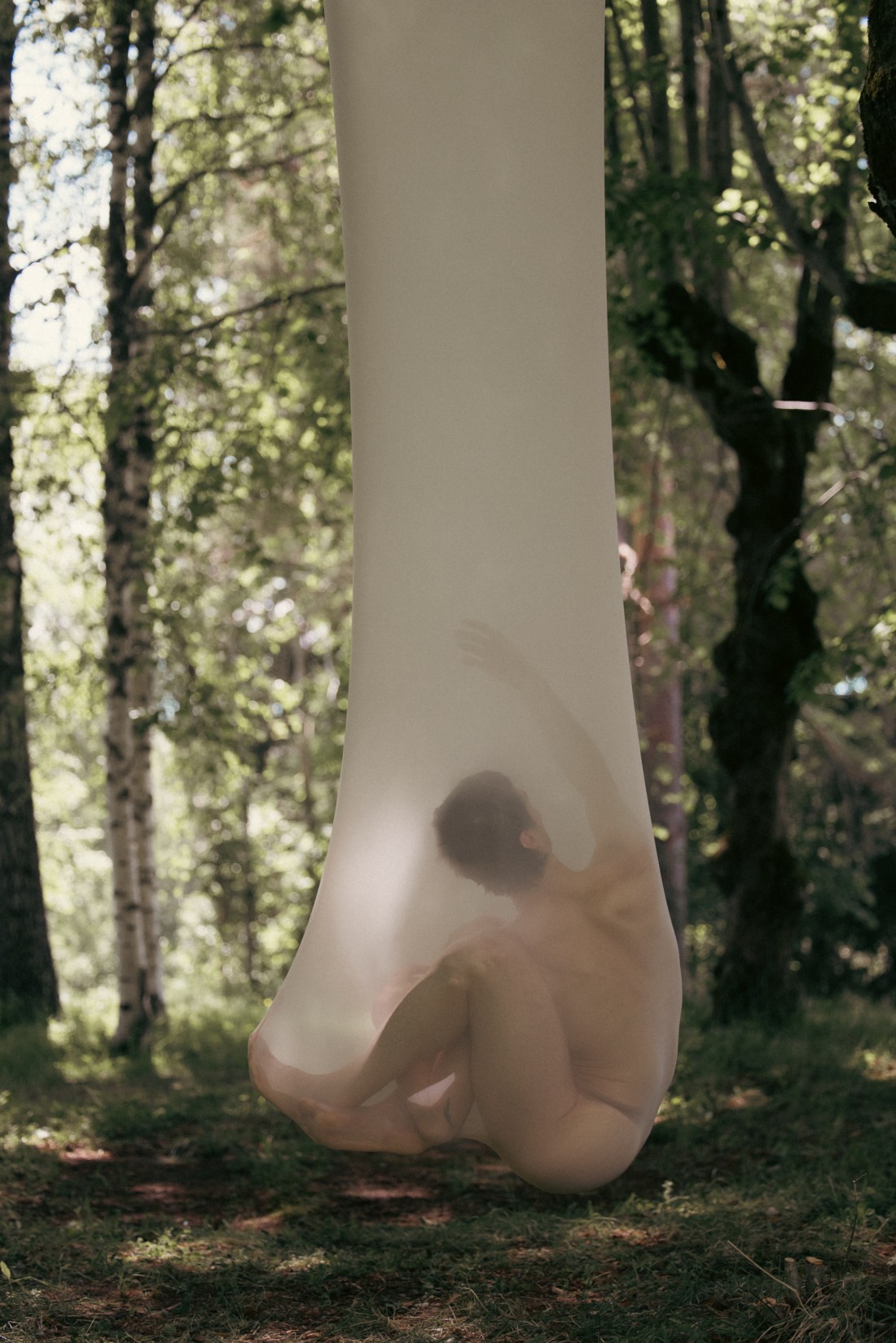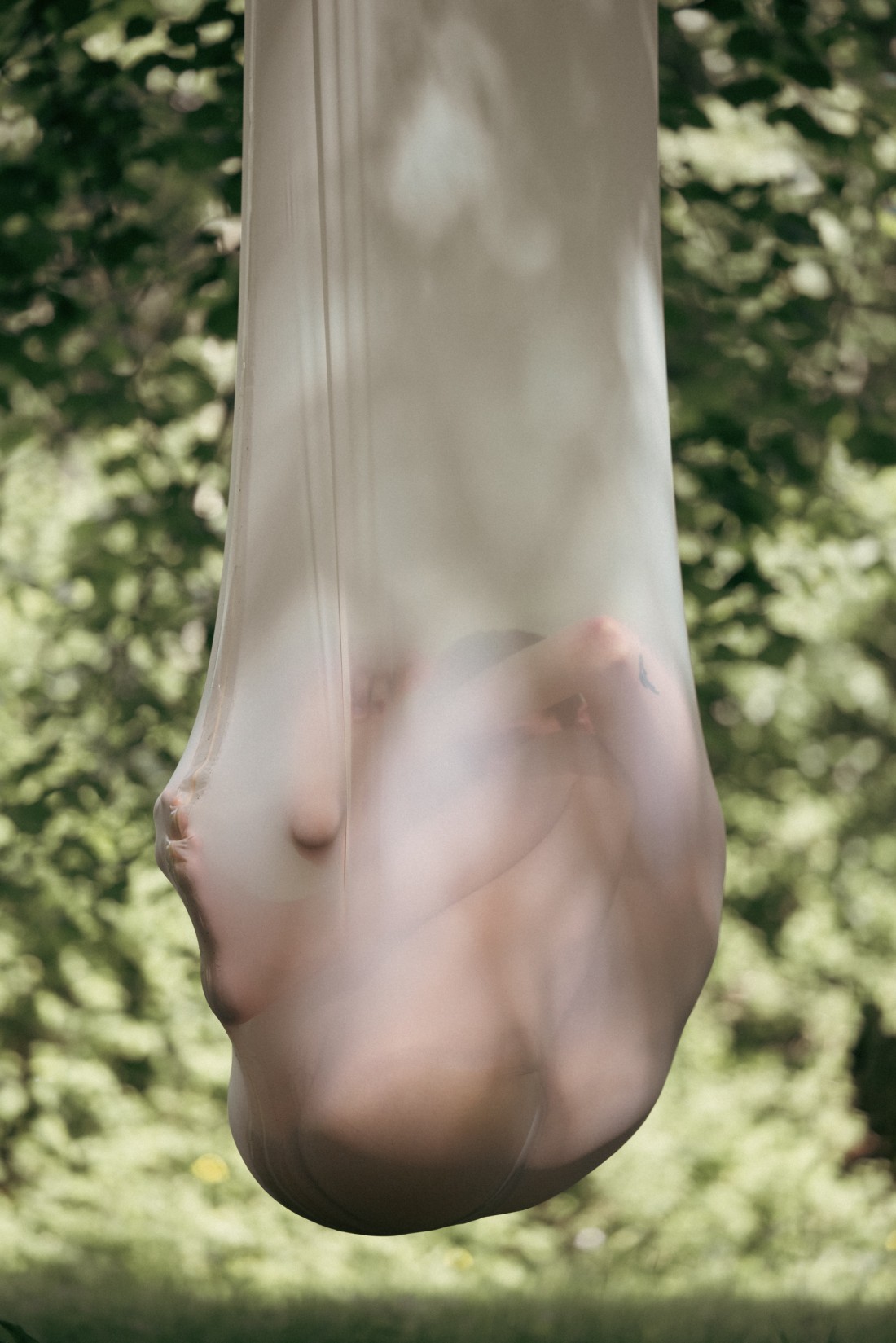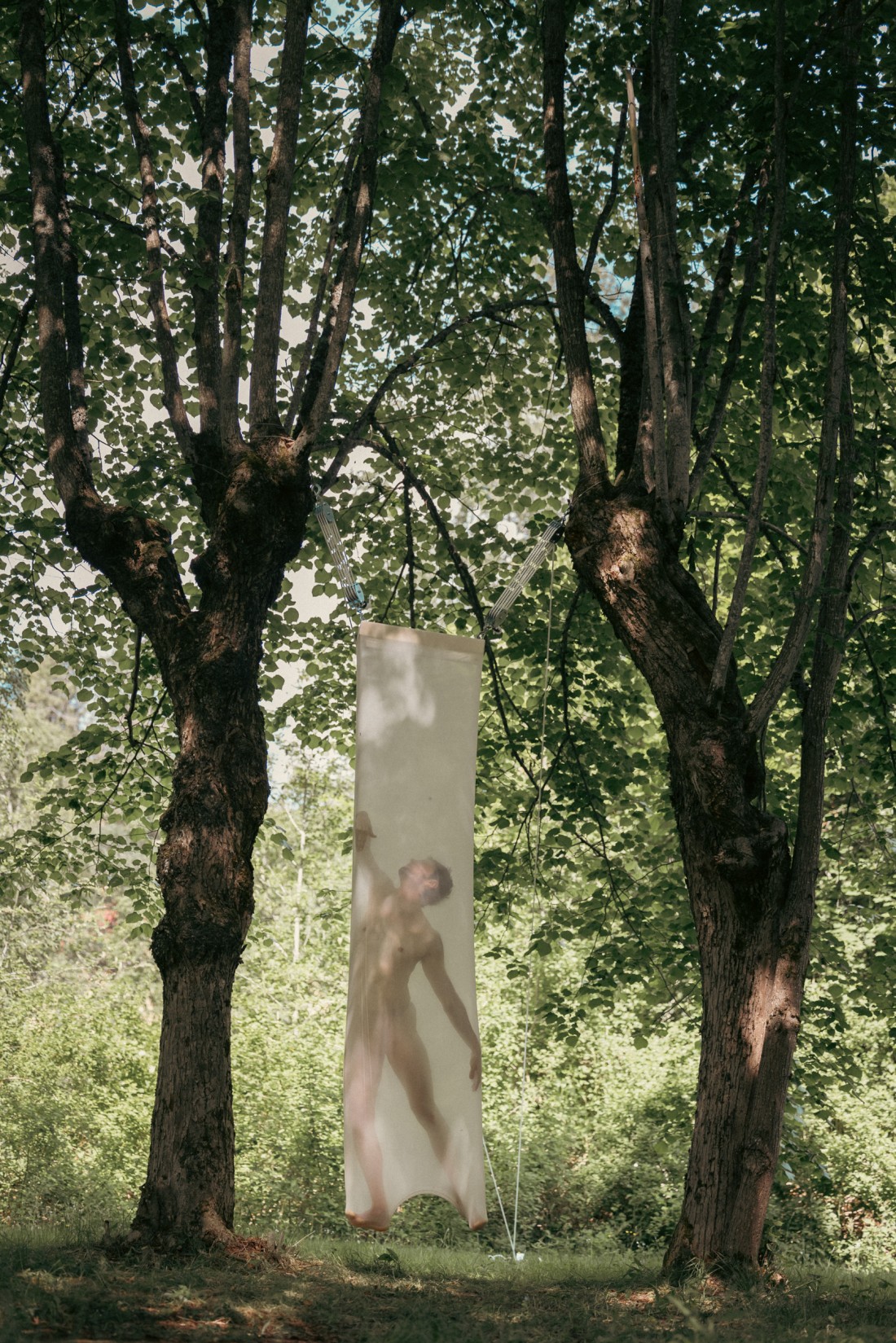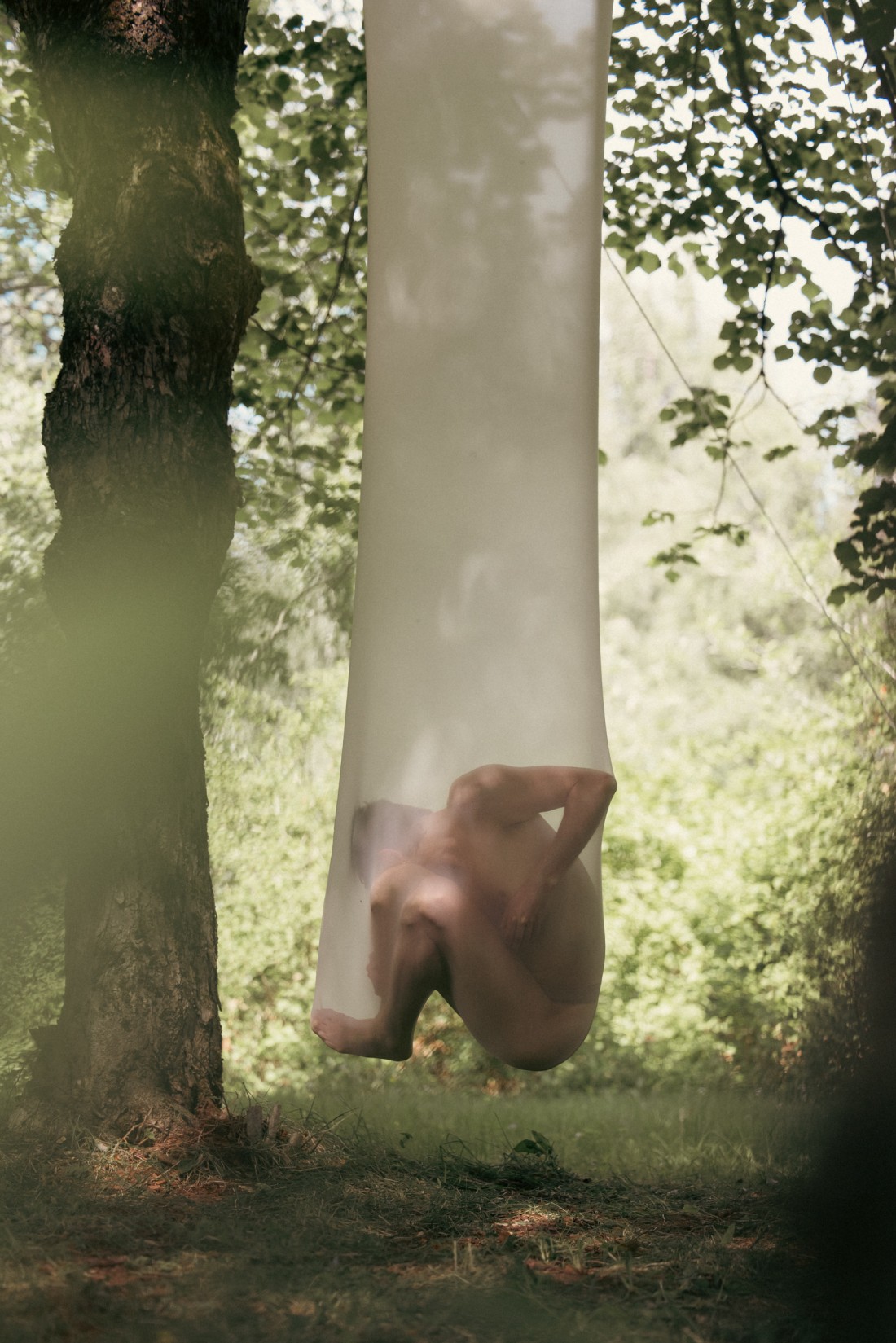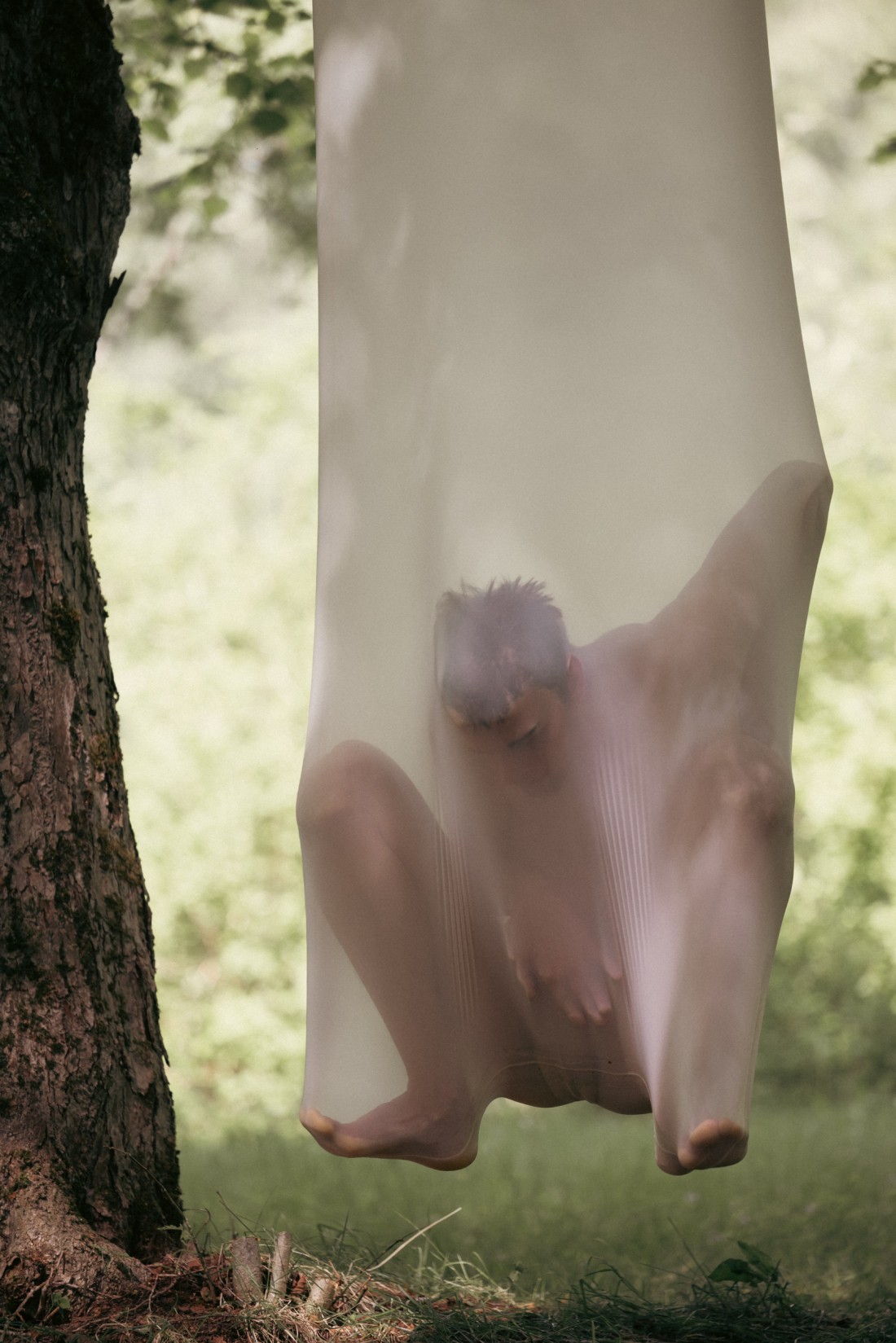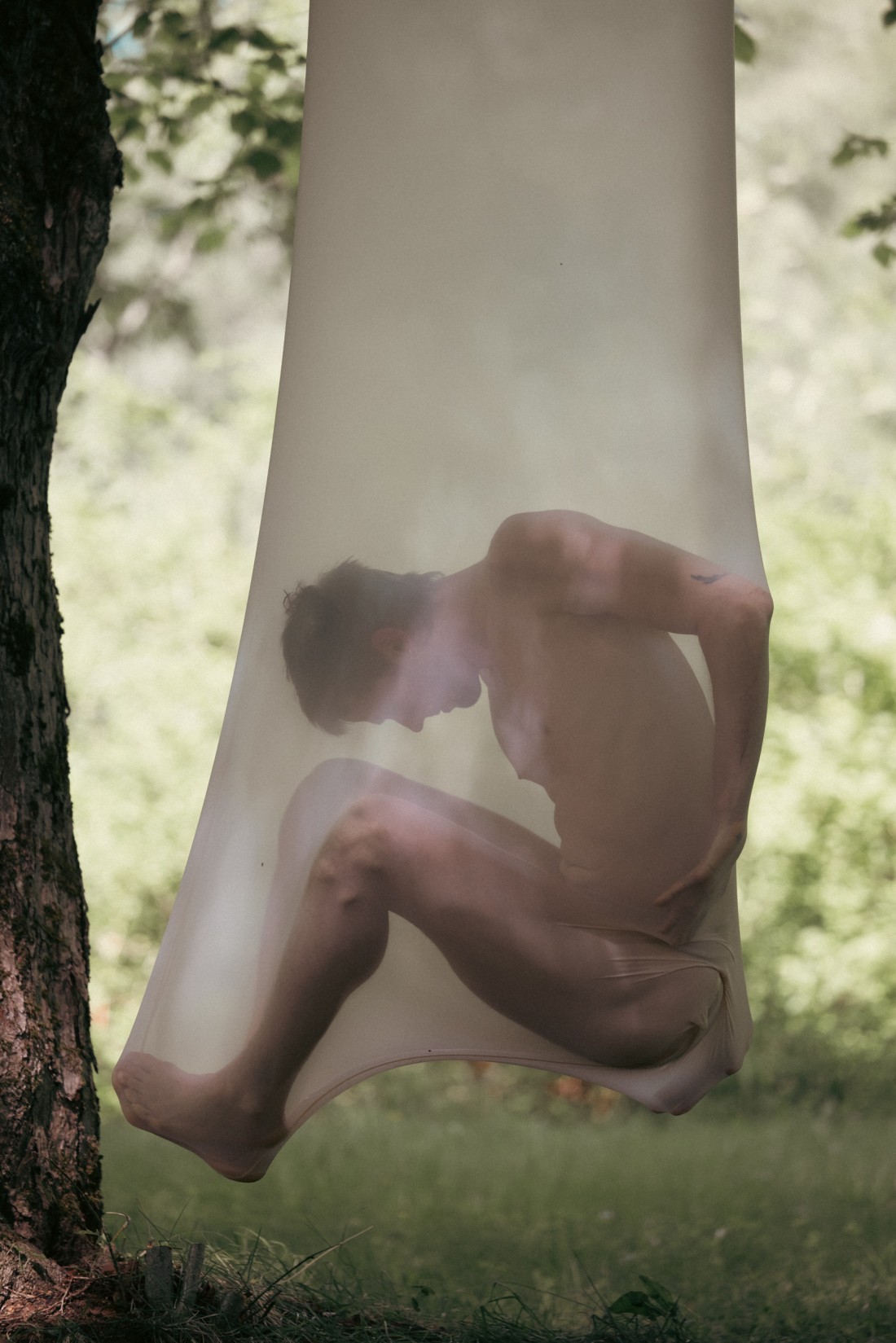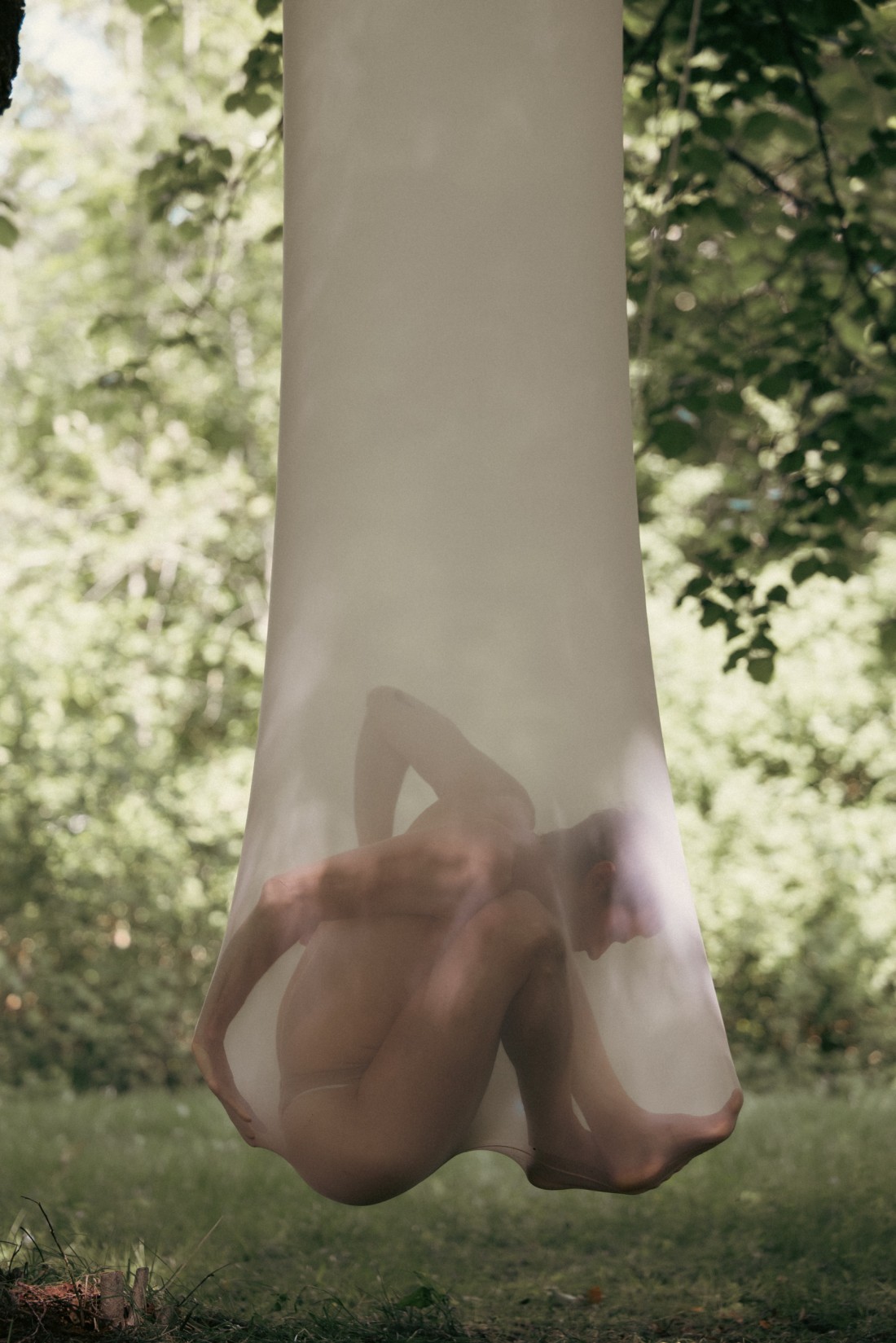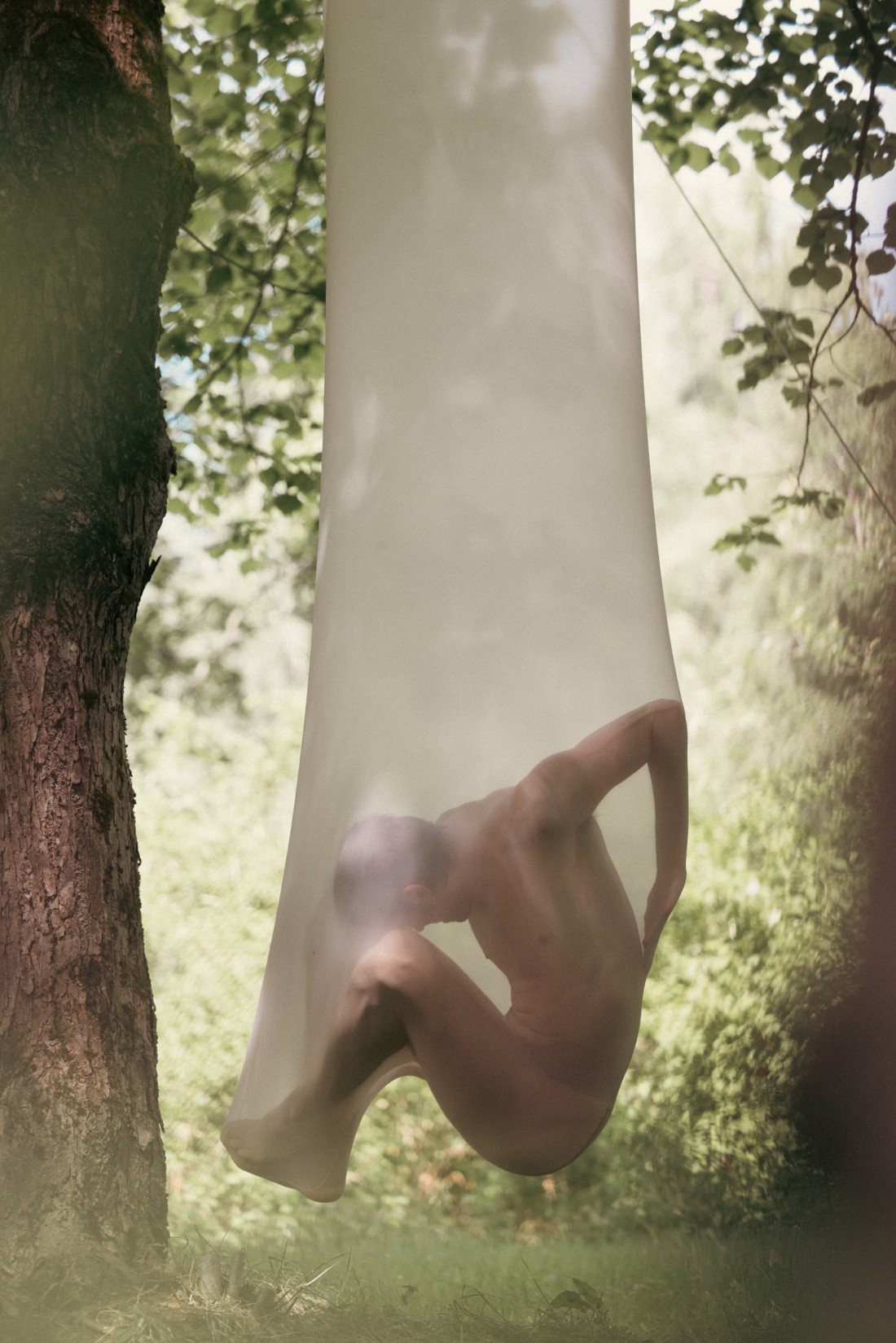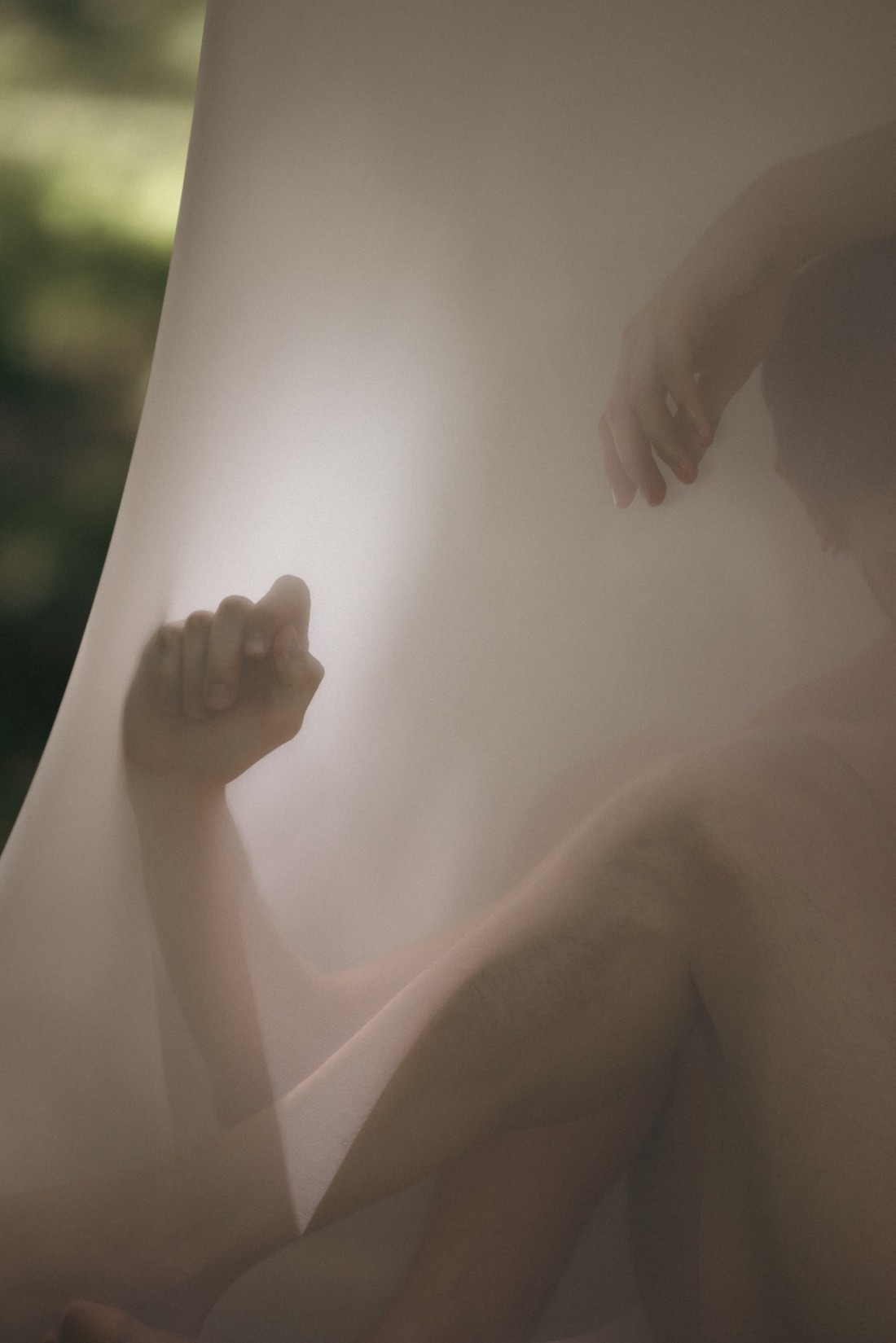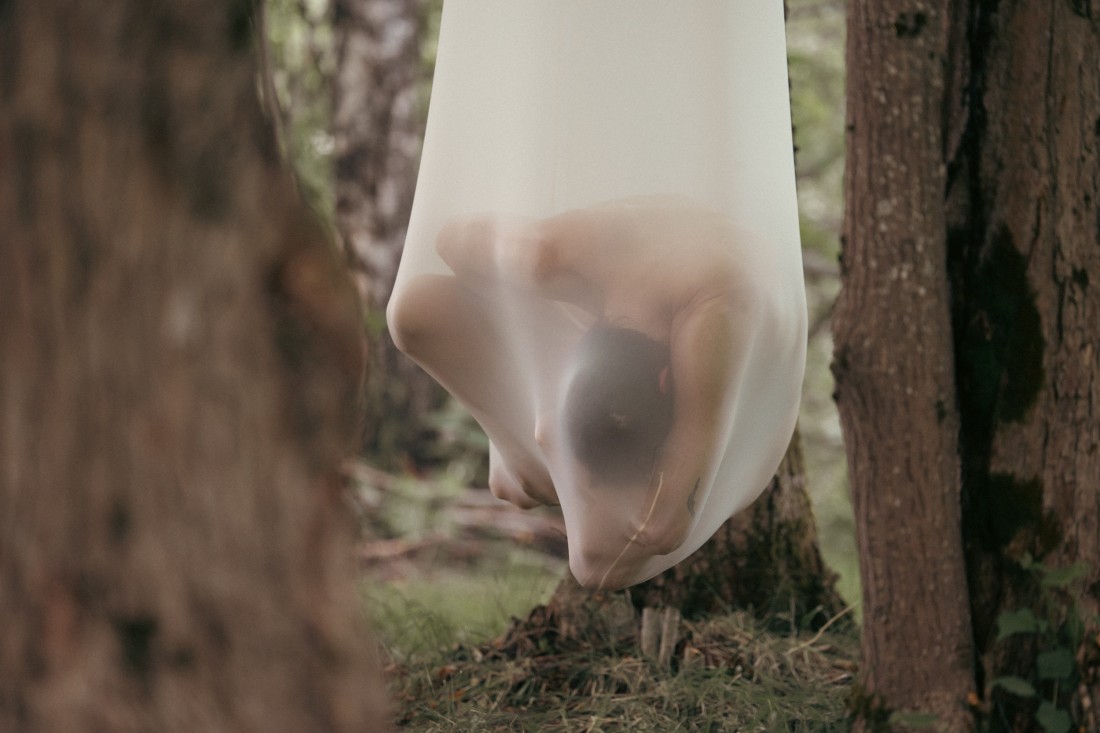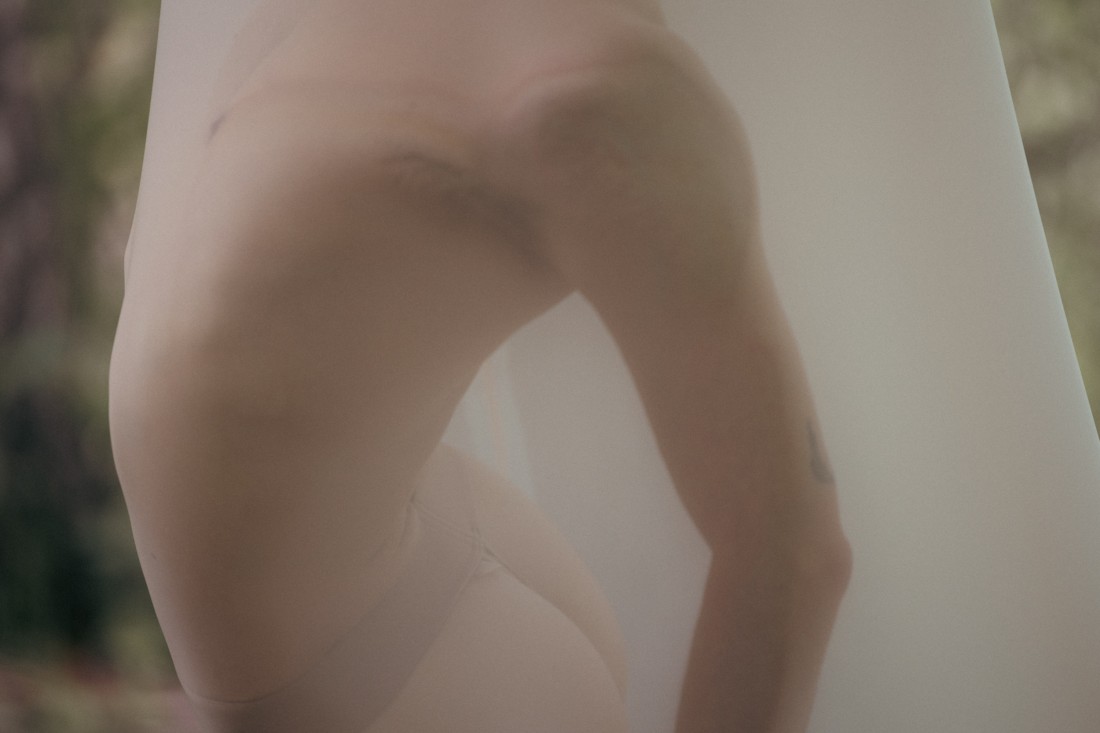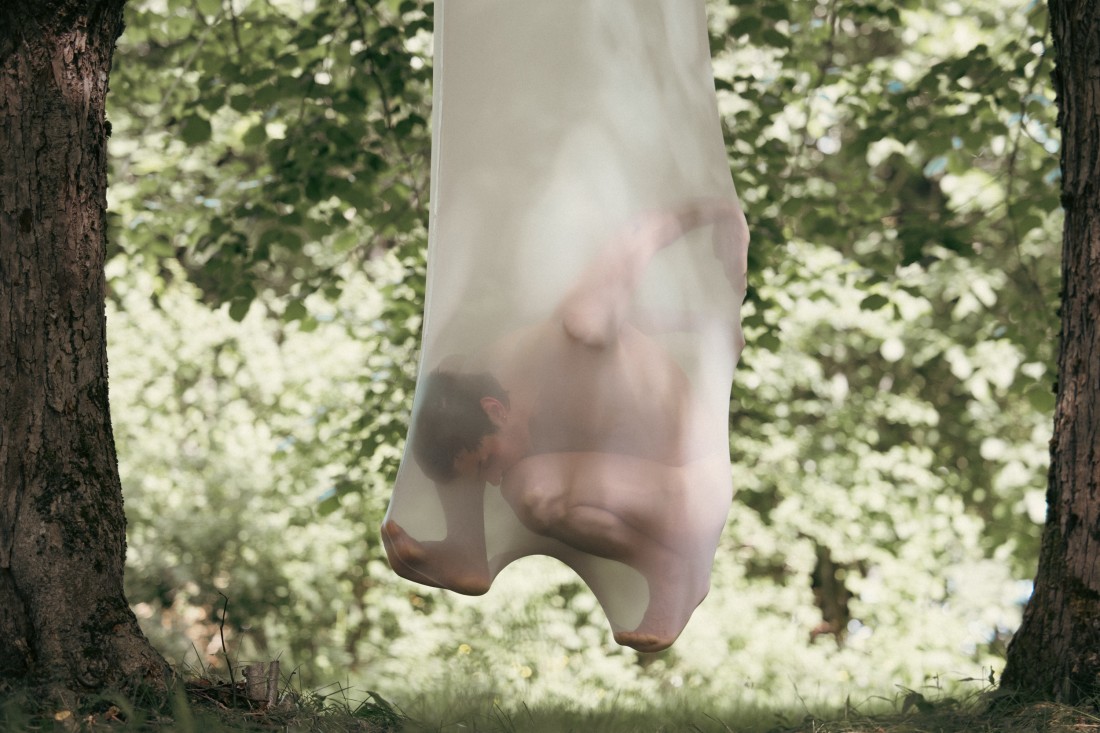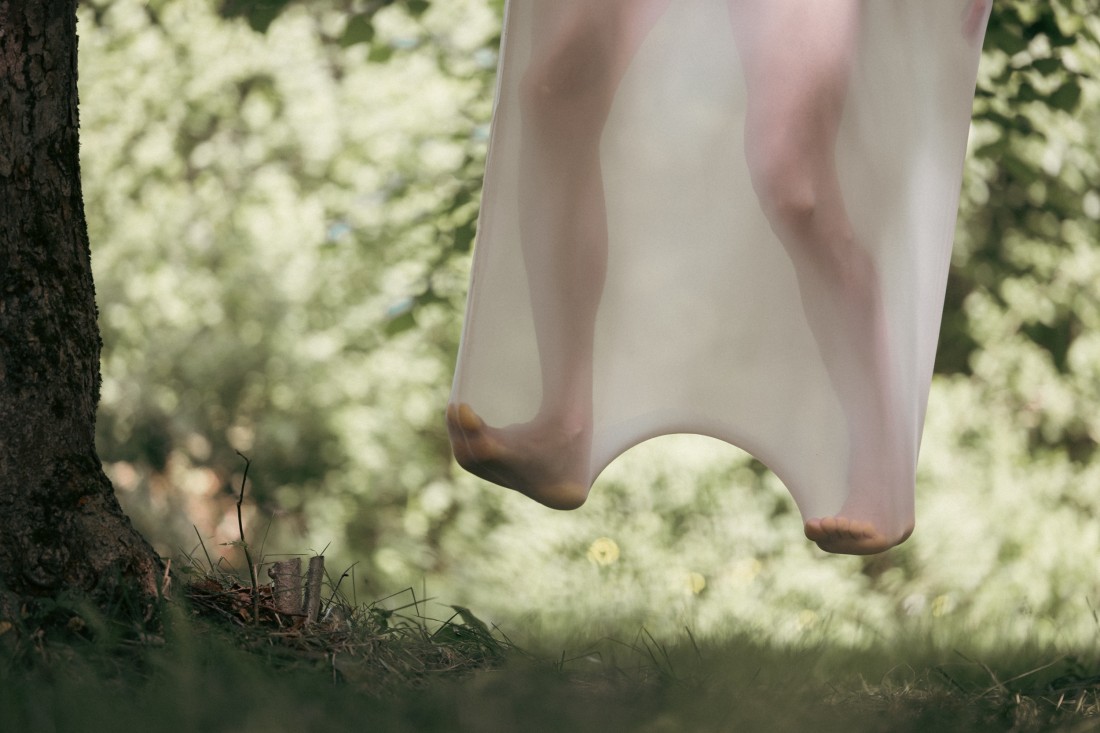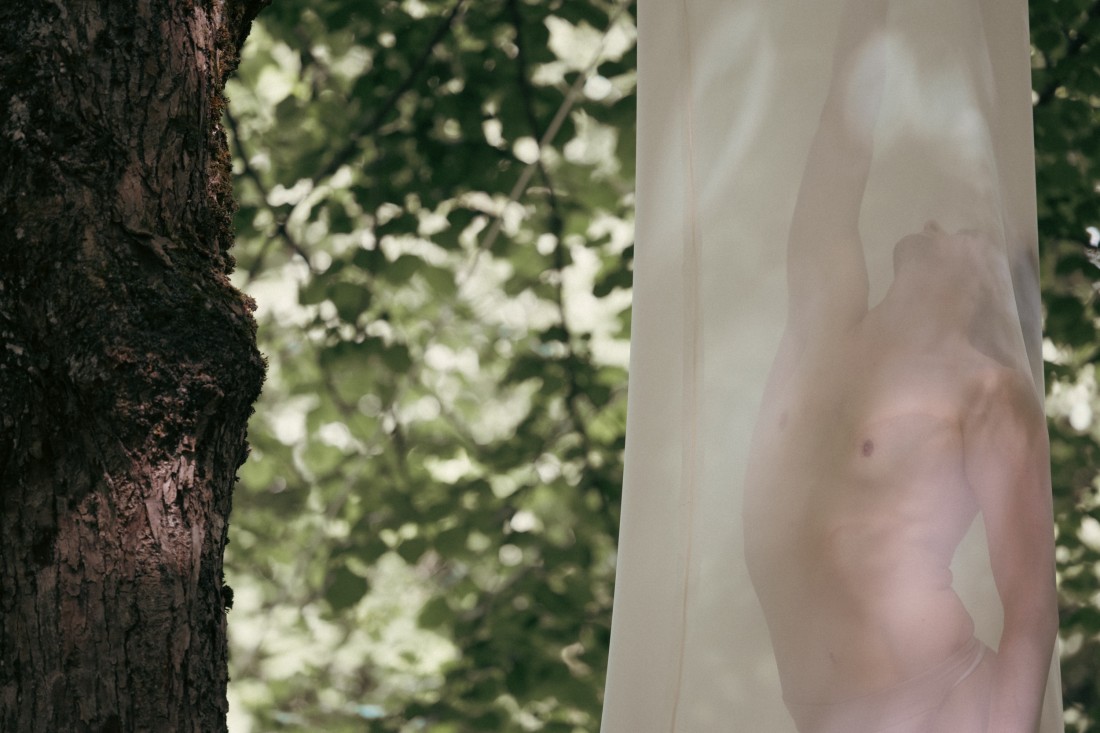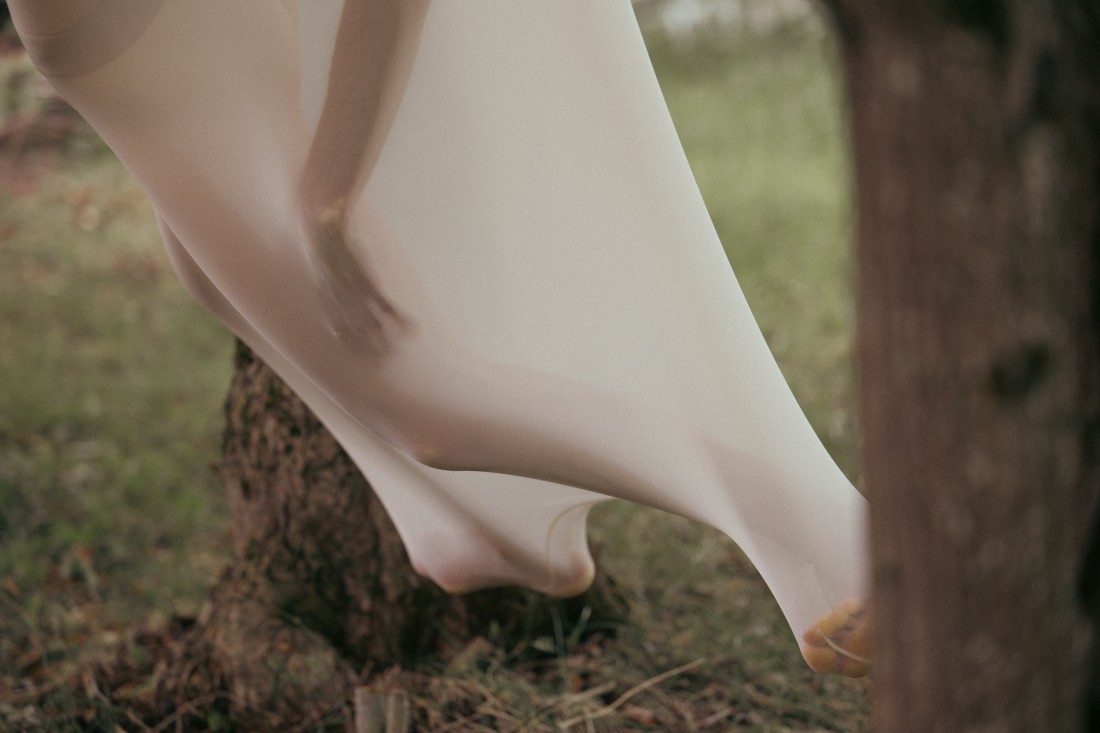En Caul Octet (horizontal # 3)
2024
Espacio de Reflexión / Taller de Arquitectura X - Alberto Kalach, Tecnológico de Monterrey, Monterrey (MX)
En Caul Octet (horisontal #3) is a site-specific performance installation created for Espacio de Reflexión at Tecnológico de Monterrey, a building designed and built by Alberto Kalach and Taller de Arquitectura X. A textile membrane is stretched around a tubular stainless steel frame, forming a perfect circle that aligns with the upper frustum of a cone. Light passes through the frustum, filtering through a layer of water above before casting onto the membrane surface on the floor. Inside the circle, eight bodies, interact with the membrane from beneath, continuously altering its form in a slow, fluid motion.
Performed by: The Company, Tecnológico de Monterrey
Sound: Erik Hasan Gomez
Material: Transparent lycra, tubular steel
Dimensions: Size circle: 5 m (diameter), 12 cm (height)
Funded by: Norwegian Ministry of Foreign Affairs, Norwegian Crafts, Laboratorio Arte AC
Images: Michelle Lartigue
En Caul Octet (horizontal # 3)
2024
Espacio de Reflexión / Taller de Arquitectura X - Alberto Kalach, Tecnológico de Monterrey, Monterrey (MX)
En Caul Octet (horisontal #3) is a site-specific performance installation created for Espacio de Reflexión at Tecnológico de Monterrey, a building designed and built by Alberto Kalach and Taller de Arquitectura X. A textile membrane is stretched around a tubular stainless steel frame, forming a perfect circle that aligns with the upper frustum of a cone. Light passes through the frustum, filtering through a layer of water above before casting onto the membrane surface on the floor. Inside the circle, eight bodies, interact with the membrane from beneath, continuously altering its form in a slow, fluid motion.
Performed by: The Company, Tecnológico de Monterrey
Sound: Erik Hasan Gomez
Material: Transparent lycra, tubular steel
Dimensions: Size circle: 5 m (diameter), 12 cm (height)
Funded by: Norwegian Ministry of Foreign Affairs, Norwegian Crafts, Laboratorio Arte AC
Images: Michelle Lartigue
En Caul Octet (horizontal # 3)
2024
Espacio de Reflexión / Taller de Arquitectura X - Alberto Kalach, Tecnológico de Monterrey, Monterrey (MX)
En Caul Octet (horisontal #3) is a site-specific performance installation created for Espacio de Reflexión at Tecnológico de Monterrey, a building designed and built by Alberto Kalach and Taller de Arquitectura X. A textile membrane is stretched around a tubular stainless steel frame, forming a perfect circle that aligns with the upper frustum of a cone. Light passes through the frustum, filtering through a layer of water above before casting onto the membrane surface on the floor. Inside the circle, eight bodies, interact with the membrane from beneath, continuously altering its form in a slow, fluid motion.
Performed by: The Company, Tecnológico de Monterrey
Sound: Erik Hasan Gomez
Material: Transparent lycra, tubular steel
Dimensions: Size circle: 5 m (diameter), 12 cm (height)
Funded by: Norwegian Ministry of Foreign Affairs, Norwegian Crafts, Laboratorio Arte AC
Images: Michelle Lartigue
En Caul Octet (horizontal # 3)
2024
Espacio de Reflexión / Taller de Arquitectura X - Alberto Kalach, Tecnológico de Monterrey, Monterrey (MX)
En Caul Octet (horisontal #3) is a site-specific performance installation created for Espacio de Reflexión at Tecnológico de Monterrey, a building designed and built by Alberto Kalach and Taller de Arquitectura X. A textile membrane is stretched around a tubular stainless steel frame, forming a perfect circle that aligns with the upper frustum of a cone. Light passes through the frustum, filtering through a layer of water above before casting onto the membrane surface on the floor. Inside the circle, eight bodies, interact with the membrane from beneath, continuously altering its form in a slow, fluid motion.
Performed by: The Company, Tecnológico de Monterrey
Sound: Erik Hasan Gomez
Material: Transparent lycra, tubular steel
Dimensions: Size circle: 5 m (diameter), 12 cm (height)
Funded by: Norwegian Ministry of Foreign Affairs, Norwegian Crafts, Laboratorio Arte AC
Images: Michelle Lartigue
En Caul Twin (vertical # 4)
2024
Parque Central, Tecnológico de Monterrey, Monterrey (MX)
En Caul Twin (Horizontal #3) is a site-specific performance installation created for Parque Central at Tecnológico de Monterrey. Three rectangular cuboid structures are installed along three of the five lines of symmetry, dividing the space into six identical sections. Semi-transparent, elastic membranes cover the two large faces of each cuboid, creating a dynamic, interactive surface. Inside each structure, two dancers interact with the membrane, the rectangular form, and each other, exploring the highly confined space.
Performed by: The Company, Tecnológico de Monterrey
Sound: Erik Hasan Gomez
Material: Transparent lycra, construction wood, lamina
Dimensions: Installation size: 80*10 m. Rectangular cuboids: 150*220*20 cm
Funded by: Norwegian Ministry of Foreign Affairs, Norwegian Crafts, Laboratorio Arte AC
Images: Michelle Lartigue
En Caul Twin (vertical # 4)
2024
Parque Central, Tecnológico de Monterrey, Monterrey (MX)
En Caul Twin (Horizontal #3) is a site-specific performance installation created for Parque Central at Tecnológico de Monterrey. Three rectangular cuboid structures are installed along three of the five lines of symmetry, dividing the space into six identical sections. Semi-transparent, elastic membranes cover the two large faces of each cuboid, creating a dynamic, interactive surface. Inside each structure, two dancers interact with the membrane, the rectangular form, and each other, exploring the highly confined space.
Performed by: The Company, Tecnológico de Monterrey
Sound: Erik Hasan Gomez
Material: Transparent lycra, construction wood, lamina
Dimensions: Installation size: 80*10 m. Rectangular cuboid: 150*220*20 cm
Funded by: Norwegian Ministry of Foreign Affairs, Norwegian Crafts, Laboratorio Arte AC
Images: Michelle Lartigue
En Caul Twin (vertical # 4)
2024
Parque Central, Tecnológico de Monterrey, Monterrey (MX)
En Caul Twin (Horizontal #3) is a site-specific performance installation created for Parque Central at Tecnológico de Monterrey. Three rectangular cuboid structures are installed along three of the five lines of symmetry, dividing the space into six identical sections. Semi-transparent, elastic membranes cover the two large faces of each cuboid, creating a dynamic, interactive surface. Inside each structure, two dancers interact with the membrane, the rectangular form, and each other, exploring the highly confined space.
Performed by: The Company, Tecnológico de Monterrey
Sound: Erik Hasan Gomez
Material: Transparent lycra, construction wood, lamina
Dimensions: Installation size: 80*10 m. Rectangular cuboid: 150*220*20 cm
Funded by: Norwegian Ministry of Foreign Affairs, Norwegian Crafts, Laboratorio Arte AC
Images: Michelle Lartigue
En Caul Twin (vertical # 4)
2024
Parque Central, Tecnológico de Monterrey, Monterrey (MX)
En Caul Twin (Horizontal #3) is a site-specific performance installation created for Parque Central at Tecnológico de Monterrey. Three rectangular cuboid structures are installed along three of the five lines of symmetry, dividing the space into six identical sections. Semi-transparent, elastic membranes cover the two large faces of each cuboid, creating a dynamic, interactive surface. Inside each structure, two dancers interact with the membrane, the rectangular form, and each other, exploring the highly confined space.
Performed by: The Company, Tecnológico de Monterrey
Sound: Erik Hasan Gomez
Material: Transparent lycra, construction wood, lamina
Dimensions: Installation size: 80*10 m. Rectangular cuboid: 150*220*20 cm
Funded by: Norwegian Ministry of Foreign Affairs, Norwegian Crafts, Laboratorio Arte AC
Images: Michelle Lartigue
En Caul Twin (vertical # 4)
2024
Parque Central, Tecnológico de Monterrey, Monterrey (MX)
En Caul Twin (Horizontal #3) is a site-specific performance installation created for Parque Central at Tecnológico de Monterrey. Three rectangular cuboid structures are installed along three of the five lines of symmetry, dividing the space into six identical sections. Semi-transparent, elastic membranes cover the two large faces of each cuboid, creating a dynamic, interactive surface. Inside each structure, two dancers interact with the membrane, the rectangular form, and each other, exploring the highly confined space.
Performed by: The Company, Tecnológico de Monterrey
Sound: Erik Hasan Gomez
Material: Transparent lycra, construction wood, lamina
Dimensions: Installation size: 80*10 m. Rectangular cuboid: 150*220*20 cm
Funded by: Norwegian Ministry of Foreign Affairs, Norwegian Crafts, Laboratorio Arte AC
Images: Michelle Lartigue
En Caul Twin (vertical # 4)
2024
Parque Central, Tecnológico de Monterrey, Monterrey (MX)
En Caul Twin (Horizontal #3) is a site-specific performance installation created for Parque Central at Tecnológico de Monterrey. Three rectangular cuboid structures are installed along three of the five lines of symmetry, dividing the space into six identical sections. Semi-transparent, elastic membranes cover the two large faces of each cuboid, creating a dynamic, interactive surface. Inside each structure, two dancers interact with the membrane, the rectangular form, and each other, exploring the highly confined space.
Performed by: The Company, Tecnológico de Monterrey
Sound: Erik Hasan Gomez
Material: Transparent lycra, construction wood, lamina
Dimensions: Installation size: 80*10 m. Rectangular cuboid: 150*220*20 cm
Funded by: Norwegian Ministry of Foreign Affairs, Norwegian Crafts, Laboratorio Arte AC
Images: Michelle Lartigue
Suspended
2024
Færderbiennalen, Brøtsøbruddet, Færder (NO)
Suspended for Færderbiennalen is installed in a quarry of larvakite. Suspended consists of three identical structures anchored to a skyline of metal wire running from one side of the quarry to the other. Three bodies float inside each of the structures made of elastic, semi-transparent lycra. The weight of the bodies stretches the membranes to such an extent that it reaches a stage of immaculate transparency, seemingly dissolving and melting into the skin of the performer.
Performed by: Even Eileraas, Jonathan Ibsen, Lisa Colette Bysheim
Sound: Fredrik Petrov
Material: Lycra, silicone, pulley, metal wire, climbing rope, construction wood
Dimensions: Installation size: 60*20*25 m. Membrane size: 70*10*1400 cm.
Funded by: Arts and Culture Norway
Images: Alam Ali
Suspended
2024
Færderbiennalen, Brøtsøbruddet, Færder (NO)
Suspended for Færderbiennalen is installed in a quarry of larvakite. Suspended consists of three identical structures anchored to a skyline of metal wire running from one side of the quarry to the other. Three bodies float inside each of the structures made of elastic, semi-transparent lycra. The weight of the bodies stretches the membranes to such an extent that it reaches a stage of immaculate transparency, seemingly dissolving and melting into the skin of the performer
Performed by: Even Eileraas, Jonathan Ibsen, Lisa Colette Bysheim
Sound: Fredrik Petrov
Material: Lycra, silicone, pulley, metal wire, climbing rope, construction wood
Dimensions: Installation size: 60*20*25 m. Membrane size: 70*10*1400 cm.
Funded by: Arts and Culture Norway
Images: Alam Ali
Suspended
2024
Færderbiennalen, Brøtsøbruddet, Færder (NO)
Suspended for Færderbiennalen is installed in a quarry of larvakite. Suspended consists of three identical structures anchored to a skyline of metal wire running from one side of the quarry to the other. Three bodies float inside each of the structures made of elastic, semi-transparent lycra. The weight of the bodies stretches the membranes to such an extent that it reaches a stage of immaculate transparency, seemingly dissolving and melting into the skin of the performer.
Performed by: Even Eileraas, Jonathan Ibsen, Lisa Colette Bysheim
Sound: Fredrik Petrov
Material: Lycra, silicone, pulley, metal wire, climbing rope, construction wood
Dimensions: Installation size: 60*20*25 m. Membrane size: 70*10*1400 cm.
Funded by: Arts and Culture Norway
Images: Alam Ali
Strained Resilience (double membrane)
2023
Piero Atchugarry Gallery / Pablo Atchugarry Foundation, Miami (US)
Strained Resilience (double membrane) is made for the main exhibition space at Piero Atchugarry Gallery / Pablo Atchugarry Foundation in Miami. Extending between two opposing walls, it conjures a static tension, a soft geometry that creates a room within the room. The performers interact with the giant translucent membrane from its interstitial space, inducing a gradual yet perpetual transformation of shapes.
Performed by: Gabriela Burdsall, Kenzo Carrión Rodríguez, Enrique Villacreses
Material: Lycra, construction wood, stainless steel rods, connector clamps
Dimensions: Installation size: 930*335*750 cm. Square # 1: 930*335 cm. Square # 2: 300*250 cm. Length of stretched tube: 750 cm.
Funded by: Pablo Atchugarry Foundation and Arts and Culture Norway
Images: Michael R Lopez
Strained Resilience (double membrane)
2023
Piero Atchugarry Gallery / Pablo Atchugarry Foundation / Miami (US)
Strained Resilience (double membrane) is made for the main exhibition space at Piero Atchugarry Gallery / Pablo Atchugarry Foundation in Miami. Anchored between two opposing wall spaces it creates a soft geometry and static tension. The performers interact with the giant translucent membrane from its interstitial space, producing a slow, but continuous shape-shift.
Performed by: Gabriela Burdsall, Kenzo Carrión Rodríguez, Enrique Villacreses
Material: Lycra, construction wood, stainless steel rods, connector clamps
Dimensions: Installation size: 930*335*750 cm. Square # 1: 930*335 cm. Square # 2: 300*250 cm. Length of stretched tube: 750 cm.
Funded by: Arts and Culture Norway, Pablo Atchugarry Foundation
Images: Michael R Lopez
Levitation # 1 (grey membrane)
2023
Piero Atchugarry Gallery / Pablo Atchugarry Foundation, Miami (US)
Levitation # 1 (grey membrane) is a serie of six photographs made for the exhibition Strained Resilience at Piero Atchugarry Gallery / Pablo Atchugarry Foundation; Suspended Weight, Stretched Heave, Contracted Arc, Flexed Arc, and Balanced Strain, all based on the performance installation Levitation which is a vertical installation of a body suspended in an elastic, semi-translucent membrane. The weight of the body stretches the membrane to its tensile threshold as they floats inside the cocoon-like space. Converging the brink of rupture, the membrane reaches a stage of immaculate transparency, seemingly dissolving and melting into the skin of the performer.
Performed by: Jonathan Ibsen
Material: Dibond print
Dimensions: 57*94 inch; 144,8*238,8 cm
Funded by: Pablo Atchugarry Foundation and Arts and Culture Norway
Images: Dusan Reljin
Levitation # 2
2023
Piero Atchugarry Gallery / Pablo Atchugarry Foundation / Miami (US)
Videos: Levitation (rehearsals)
Levitation is a vertical installation of a body suspended in an elastic, semi-translucent membrane. The weight of the body stretches the membrane to its tensile threshold as they floats inside the cocoon-like space. Converging the brink of rupture, the membrane reaches a stage of immaculate transparency, seemingly dissolving and melting into the skin of the performer.
Performed by: Gabriela Burdsall
Material: Lycra, stainless steel pipes, connector clamps, ratchet straps, construction wood, mdf
Dimensions: Installation size: 500*290*250 cm. Levitation structure: 285*150*125 cm. Pedestal platform: 244*110*120 cm
Funded by: Arts and Culture Norway, Pablo Atchugarry Foundation
Images: Michael Lopez
Levitation #2
2023
Piero Atchugarry Gallery / Pablo Atchugarry Foundation / Miami (US)
Videos: Levitation (rehearsals)
Levitation is a vertical installation of a body suspended in an elastic, semi-translucent membrane. The weight of the body stretches the membrane to its tensile threshold as they floats inside the cocoon-like space. Converging the brink of rupture, the membrane reaches a stage of immaculate transparency, seemingly dissolving and melting into the skin of the performer.
Performed by: Gabriela Burdsall
Material: Lycra, stainless steel pipes, connector clamps, ratchet straps, construction wood, mdf
Dimensions: Installation size: 500*290*250 cm. Levitation structure: 285*150*125 cm. Pedestal platform: 244*110*120 cm
Funded by: Arts and Culture Norway, Pablo Atchugarry Foundation
Images: Michael Lopez
Static Tensions, Structure # 1
2020
BO - Billedkunstnerne i Oslo / Oslo (NO)
Static Tensions are site specific textile constructions that stretches through all three exhibition rooms at galleri BO in Oslo. Transparent, white lycra is used to convert the spaces into a serie of voids. Stainless steel pipes and connector clamps in Structure # 1 and construction wood in Structure # 2 form the squared structures to which the textile membranes adhere. Sharp led-lights emphasize the inner structures. At several occasions during the exhibition period a dancer interacts with the textile forms, pressing her limbs, extremities and body toward the membrane. The bodily forms become an integrated part of the textile membranes, dissolving the boarders between inside and outside.
Performed by: Marie Rechsteiner
Material: Transparent lycra, stainless steel pipes, connector clamps, construction wood, neoprene and led lights
Dimensions: Inner framework stainless steel: 600 * 250 cm; Outer framework stainless steel: 180*230 cm. Length of textile membrane: 700 cm. Installation area: 650 * 800 cm
Funded by: BO - Billedkunstnerne i Oslo
Images: Adrian Bugge
Static Tensions, Structure # 1
2020
Galleri BO (Billedkunstnerne i Oslo) / Oslo (NO)
tatic Tensions are site specific textile constructions that stretches through all three exhibition rooms at galleri BO in Oslo. Transparent, white lycra is used to convert the spaces into a serie of voids. Stainless steel pipes and connector clamps in Structure # 1 and construction wood in Structure # 2 form the squared structures to which the textile membranes adhere. Sharp led-lights emphasize the inner structures. At several occasions during the exhibition period a dancer interacts with the textile forms, pressing her limbs, extremities and body toward the membrane. The bodily forms become an integrated part of the textile membranes, dissolving the boarders between inside and outside.
Performed by: Marie Rechsteiner
Material: Transparent lycra, stainless steel pipes, connector clamps, construction wood, neoprene and led lights
Dimensions: Structure # 1: Inner framework stainless steel: 600 * 250 cm; Outer framework stainless steel: 180*230 cm. Length of textile membrane: 700 cm. Installation area: 650 * 800 cm.
Funded by: Billedkunstnerne i Oslo
Images: Adrian Bugge
Static Tensions, Structure # 1
2020
Galleri BO (Billedkunstnerne i Oslo) / Oslo (NO)
Static Tensions are site specific textile constructions that stretches through all three exhibition rooms at galleri BO in Oslo. Transparent, white lycra is used to convert the spaces into a serie of voids. Stainless steel pipes and connector clamps in Structure # 1 and construction wood in Structure # 2 form the squared structures to which the textile membranes adhere. Sharp led-lights emphasize the inner structures. At several occasions during the exhibition period a dancer interacts with the textile forms, pressing her limbs, extremities and body toward the membrane. The bodily forms become an integrated part of the textile membranes, dissolving the boarders between inside and outside.
Performed by: Marie Rechsteiner
Material: Static Tensions are site specific textile constructions that stretches through all three exhibition rooms at galleri BO in Oslo. Transparent, white lycra is used to convert the spaces into a serie of voids. Stainless steel pipes and connector clamps in Structure # 1 and construction wood in Structure # 2 form the squared structures to which the textile membranes adhere. Sharp led-lights emphasize the inner structures. At several occasions during the exhibition period a dancer interacts with the textile fo
Dimensions: Structure # 1: Inner framework stainless steel: 600 * 250 cm; Outer framework stainless steel: 180*230 cm. Length of textile membrane: 700 cm. Installation area: 650 * 800 cm.
Funded by: Billedkunstnerne i Oslo
Images: Adrian Bugge
Squared Elasticity
2017
Kunstbanken, Hedmark Art Senter, Hamar, (NO)
Squared Elasticity, Construction # 2 is a textile performance installation created specifically for Kunstbanken. Two frames dressed with elastic lycra, completely cover the hall´s only openings, confining the audience for the duration of the performance. The audience enter the space through one of the grey tubes, each equipped with a small, yet stretchable opening, designed to accommodate one person at a time. Once the audience is inside, the dancers connect themselves to the tubes sealing off any means of exit. As the tubes expand during stretch, they assume a monumental presence, somehow transforming the soft material into an illusion of hardness. Gradually, the dancers explore positions that probe the tension and elasticity of the material, evoking an ambivalent interplay between rigidity and flexibility."
Performed by: Aslak Aune Nygård, Karen Lynne Bjerknesli, Wanda Breistrand
Material: Lycra, construction wood
Dimensions: Installation size: 7*16 m. Squared openings: 276*247 cm. Length of stretched tubes: 4,5 m and 8 m.
Images: Malin Bülow and Fruzsina Berkes
Firkanta Elastisitet (version 2)
2017
Kunstbanken - Hedmark Kunstsenter / Hamar (NO)
Firkanta Elastisitet – Skulptur i spenn, construction # 3, consists of three frames mounted on the gallery wall. Each frame is dressed in an elastic membrane that creates elongated rhombic pyramids as the bodies stretches the membrane. Very slowly the bodies seek positions that investigates the tension and elasticity of the materiality, using it as a medium for movement, something that initiates an ambivalent sense of rigidity and elasticity.
Performed by: Aslak Aune Nygård , Karen Lynne Bjerknesli, Wanda Breistrand
Material: lycra, construction wood
Dimensions: Tube length: 10 m. Frames: 75*75 cm. Installation area: 6*16 m.
Funded by: Billedkunstnernes Vederlagsfond
Images: Fruzsina Berkas
Elastic Bonding
2019
Multiplié Dance Festival, LKV Project Space, Trondheim, (NO)
This vertical version of Elastic Bonding was made site specifically for the Project Space at Lademoen Kunstnerverksteder in Trondheim. It was shown as part of Multiplié dance festival, an annual festival of contemporary dance in Norway. The project was a collaboration between Babel visningsrom and DansiT. Three frames corresponding to the size of the windows were mounted in the ceiling. Textile structures made of neoprene and stretch lamé were attached to the frameworks creating vertical cones to which three bodies were connected on the ground. Silicone tubing filled with water and titanium dioxide literally connects the bodies on the ground with the frameworks in the ceiling. The tubes and the liquid moves as the bodies change their positions. Gravity, elasticity and deep breathing are used as initiators of movement.
Performed by: Marie Rechsteiner, , Gunhild Løhre and, Karoline Begh Ellingsen
Material: Stretch lamé, neoprene, silicone tubing, water, titanium dioxide, construction wood
Dimensions: Size: Frameworks ceiling: 158 * 243 cm. Frameworks ground: 130 * 230 cm. Elastic tubes: 4,5 m. Installation area: 6 * 15 m.
Funded by: Co-production: DansiT , Arts and Culture Norway, Billedkunstnernes Vederlagsfond, Trondheim Kommune, Trøndelag Fylkeskommune
Images: Susann Jamtøy
Elastic Bonding
2019
Babel Visningsrom / Trondheim (NO)
This version of Elastic Bonding uses the three openings of Babel visningsrom as a starting point and reference for creating three voids that is converted into elongations from the opposing walls. The elongations are stretched toward the main exhibition space by the connected bodies at the other end. Three frames are fastened in the three openings from the main exhibitions space at Babel visningsrom. Stretch lamé is fastened and stretched inward toward a framework attached at the opposing walls of the adjoining rooms. This creates three voids that cut the entrance to the other rooms. From the inner frames elongations made of transparent stretch mesh are strained toward the main exhibition space by the bodies connected at the other end. The bodies lean on the elasticity and use it as a medium for movement. The three bodies are all connected through a network of silicone tubing filled with water, air and titanium dioxide. The tubing runs through the body suit and its opening in the belly and at the transition between body and elongation. One of the bodies breathes into the tube system which causes a movement of water and air inside the tubes.
Performed by: Marie Rechsteiner , Karoline Bergh Ellingsen, Gunhild Løhre
Material: Stretch lamé, silicone tubing, water, titanium dioxide, construction wood
Dimensions: Outer frameworks; 129*263 cm, 166*290 cm, 110*218 cm; Inner frameworks: 65*109 cm; 102*240 cm, 20*20 cm; Length of textile voids: 443 cm, 322 cm, 443 cm; Length of textile elongations: 7 m, 11 m.
Funded by: Arts and Culture Norway, Billedkunstnernes Vederlagsfond, Trondheim Kommune, Trøndelag Fylkeskommune
Images: Susann Jamtøy
Working title: Ovulation, Gestation, Proliferation, Lactation (2024) Malin Bülow, Trafo Kunsthall, Asker (NO)
2024
Trafo Kunsthall, Asker (NO)
Working title: Ovulation, Gestation, Proliferation, Lactation (2024) Malin Bülow, Trafo Kunsthall, Asker (NO)
Performed by: Jonathan Ibsen
Levitation is a vertical installation of a body suspended in an elastic, semi-translucent membrane. The weight of the body stretches the membrane to its tensile threshold as they floats inside the cocoon-like space. Converging the brink of rupture, the membrane reaches a stage of immaculate transparency, seemingly dissolving and melting into the skin of the performer.
Performed by: Jonathan Ibsen
Material: Lycra, stainless steel pipes, connector clamps, ratchet straps, construction wood, mdf,
Dimensions: Installation size: 500*102*282 cm. Levitation structure: 370*105*125 cm. Pedestal platform: 300*62*120 cm
Funded by: Arts and Culture Norway
Images: Istvan Virag
Levitation is a vertical installation of a body suspended in an elastic, semi-translucent membrane. The weight of the body stretches the membrane to its tensile threshold as they floats inside the cocoon-like space. Converging the brink of rupture, the membrane reaches a stage of immaculate transparency, seemingly dissolving and melting into the skin of the performer.
Performed by: Jonathan Ibsen
Material: Lycra, stainless steel pipes, connector clamps, ratchet straps, construction wood, mdf
Dimensions: Installation size: 500*102*282 cm. Levitation structure: 370*105*125 cm. Pedestal platform: 300*62*120 cm
Funded by: Arts and Culture Norway
Images: Istvan Virag
Levitation #3
2023
Haugar Kunstmuseum / Tønsberg (NO)
Levitation is a vertical installation of a body suspended in an elastic, semi-translucent membrane. The weight of the body stretches the membrane to its tensile threshold as they floats inside the cocoon-like space. Converging the brink of rupture, the membrane reaches a stage of immaculate transparency, seemingly dissolving and melting into the skin of the performer.
Performed by: Torill Kolsrud
Material: Lycra, stainless steel pipes, connector clamps, ratchet straps, construction wood, mdf
Dimensions: Installation size: 350*102*275 cm. Levitation structure: 300*102*125 cm. Pedestal platform: 300*62*120 cm
Funded by: Arts and Culture Norway, Haugar Art Museum
Images: Georg Aamodt
Levitation #3
2023
Haugar Kunstmuseum / Tønsberg (NO)
Levitation is a vertical installation of a body suspended in an elastic, semi-translucent membrane. The weight of the body stretches the membrane to its tensile threshold as they floats inside the cocoon-like space. Converging the brink of rupture, the membrane reaches a stage of immaculate transparency, seemingly dissolving and melting into the skin of the performer.
Performed by: Torill Kolsrud
Material: Lycra, stainless steel pipes, connector clamps, ratchet straps, construction wood, mdf
Dimensions: Installation size: 350*102*275 cm. Levitation structure: 300*102*125 cm. Pedestal platform: 300*62*120 cm
Funded by: Arts and Culture Norway, Haugar Art Museum
Images: Georg Aamodt
En Caul is designed for Scene 2 at Rosendal Teater. Two square structures measuring 600*600*10 cm are installed along the same axis; one on the floor, the other 400 cm above. Both frameworks are covered by an elastic, semi-transparent membrane. Beneath the floor-membrane is a single body. Above the top membrane are lights. The audience is seated on stage-elements surrounding the floor-structure, allowing them to observe the interaction between body and membrane from above.
Performed by: Marie Rechsteiner
Sound: Pernille Meidell
Light: Philip Isaksen
Material: Lycra, construction wood, stainless steel rods, connector clamps, steel wire, stage elements, stage lighting
Dimensions: Installation size: 800*600*800 cm. Floor square: 600*600*10 cm. Top square: 600*600*10 cm.
Funded by: Arts and Culture Norway, The Audio and Visual Fund, FFUK – Fond for Utøvende Kunstnere, Trøndelag fylkeskommune – Arts and Culture, Trondheim kommune – Project Support, Sparebankstiftelsen
Images: Josh Lake
Press: Eline Bjerkan, Tilfeldighetenes spillerom, Scenekunst
Detail images from En Caul designed for Scene 2 at Rosendal Teater. Two square structures measuring 600*600*10 cm are installed along the same axis; one on the floor, the other 400 cm above. Both frameworks are covered by an elastic, semi-transparent membrane. Beneath the floor-membrane is a single body. Above the top membrane are lights. The audience is seated on stage-elements surrounding the floor-structure, allowing them to observe the interaction between body and membrane from above.
Performed by: Marie Rechsteiner
Sound: Pernille Meidell
Light: Philip Isaksen
Material: Lycra, construction wood, stainless steel rods, connector clamps, steel wire, stage elements, stage lighting
Dimensions: Installation size: 800*600*800 cm. Floor square: 600*600*10 cm. Top square: 600*600*10 cm.
Funded by: Arts and Culture Norway, The Audio and Visual Fund, FFUK – Fond for Utøvende Kunstnere, Trøndelag fylkeskommune – Arts and Culture, Trondheim kommune – Project Support, Sparebankstiftelsen
Images: Josh Lake
Press: Eline Bjerkan, Tilfeldighetenes Spillerom, Scenekunst
Detail images from En Caul designed for Scene 2 at Rosendal Teater. Two square structures measuring 600*600*10 cm are installed along the same axis; one on the floor, the other 400 cm above. Both frameworks are covered by an elastic, semi-transparent membrane. Beneath the floor-membrane is a single body. Above the top membrane are lights. The audience is seated on stage-elements surrounding the floor-structure, allowing them to observe the interaction between body and membrane from above.
Performed by: Marie Rechsteiner
Sound: Pernille Meidell
Light: Philip Isaksen
Material: Lycra, construction wood, stainless steel rods, connector clamps, steel wire, stage elements, stage lighting
Dimensions: Installation size: 800*600*800 cm. Floor square: 600*600*10 cm. Top square: 600*600*10 cm.
Funded by: Arts and Culture Norway, The Audio and Visual Fund, FFUK – Fond for Utøvende Kunstnere, Trøndelag fylkeskommune – Arts and Culture, Trondheim kommune – Project Support, Sparebankstiftelsen
Images: Josh Lake
Press: Eline Bjerkan, Tilfeldighetenes Spillerom, Scenekunst
En Caul
2024
Artissima Art Fair, Torino (IT)
Elastic Bonding
2019-2020
Lyon Contemporary Art Biennale / Lyon (FR)
Elastic Bonding is a monumental site-specific performative installation for the 15th edition of Lyon Contemporary Art Biennale Where Water Comes Together with Other Water. The biennale was held in the deserted halls of the former Fagor factory in the Gerland district from September 18, 2019 - January 5, 2020. Five tentacular bodies were affixed to vertical textile formations that emanated from the ceiling windows on a 12 m height aiming to blend into the building’s architecture and conjure a landscape commensurate with the scale of the site. Rectangular frames, (4*2 m) was fastened directly onto the window-frames, fully covering them, so that the transparent, elastic lycra created a cone-like structure, funneling the light downward, toward the body on the ground. In cooperation with 20 students from the Conservatoire National Supérieur Musique et Danse de Lyon, the installation was activated regularly through the full length of the exhibition period.
Performed by: Anli Adel Ahmadi, Inès Aïdat, Sara Andrieu, Enzo Blond, Raul Calin, Louise Carriere, Bastien Charmette, Titouan Crozier, Vladimir Duparc, Léa Ferec-Pourias, Thomas Fontain, Mio Fusho, Margot Guigoet, Aurélien Labenne, Tom Lesne, Jade Logmo, Mélissande Tono
Material: Transparent lycra, construction wood, plaster, clay
Dimensions: Window framework in the ceiling: 400 * 200 cm; Height: 13 m; Installation area: 100 * 50 m.
Funded by: Arts and Culture Norway, OCA – Office for Contemporary Art Norway, Royal Norwegian Embassy , with kind collaboration with CNSMD - the Conservatoire National Supérieur Musique et Danse de Lyon.
Images: Jeff Pachoud / AFP / NTB scanpix
Elastic Bonding
2019
Lyon Contemporary Art Biennale / Lyon (FR)
Elastic Bonding is a monumental site-specific performative installation for the 15th edition of Lyon Contemporary Art Biennale Where Water Comes Together with Other Water. The biennale was held in the deserted halls of the former Fagor factory in the Gerland district from September 18, 2019 - January 5, 2020. Five tentacular bodies were affixed to vertical textile formations that emanated from the ceiling windows on a 12 m height aiming to blend into the building’s architecture and conjure a landscape commensurate with the scale of the site. Rectangular frames, (4*2 m) was fastened directly onto the window-frames, fully covering them, so that the transparent, elastic lycra created a cone-like structure, funneling the light downward, toward the body on the ground. In cooperation with 20 students from the Conservatoire National Supérieur Musique et Danse de Lyon, the installation was activated regularly through the full length of the exhibition period.
Material: Transparent lycra, construction wood, plaster, clay
Dimensions: Window framework in the ceiling: 400 * 200 cm; Height: 13 m; Installation area: 100 * 50 m.
Funded by: Arts and Culture Norway, OCA – Office for Contemporary Art Norway, Royal Norwegian Embassy, with kind collaboration with CNSMD - the Conservatoire National Supérieur Musique et Danse de Lyon.
Images: Blaise Adilon
AER
2022
Bodø Biennale / Bodø (NO)
AER is a commissioned work for Bodø Biennale 2022. It is a vertical stretch reaching about 30 m up in the sky. The membrane is attached around a spreader, lifted, and held by a mobile crane. On the bottom, a body cocooned inside the giant membrane is anchoring the structure. The wind, being the main choreographic element, sets the membrane in movements. Installed outside of Stormen and Beddingen in Bodø.
Performed by: Marie Rechsteiner
Material: Lycra, spreader beam, mobile crane
Dimensions: Spreader beam: 4*4 m. Stretched membrane: 25-30 m.
Funded by: Arts and Culture Norway, KIN - Kunstsentrene i Norge, NTK - Norske Tekstilkunstnere, Bodø 2024, Nordland fylkeskommune, with kind support of Nordlandskrana
Images: Neil Nisbeth
AER
2022
Bodø Biennale / Bodø (NO)
AER is a commissioned work for Bodø Biennale 2022. It is a vertical stretch reaching about 30 m up in the sky. The membrane is attached around a spreader, lifted, and held by a mobile crane. On the bottom, a body cocooned inside the giant membrane is anchoring the structure. The wind, being the main choreographic element, sets the membrane in movements. Installed outside of Stormen and Beddingen in Bodø.
Performed by: Marie Rechsteiner
Material: Lycra, spreader beam, mobile crane
Dimensions: Spreader beam: 4*4 m. Stretched membrane: 25-30 m
Funded by: Arts and Culture Norway, KIN - Kunstsentrene i Norge, NTK - Norske Tekstilkunstnere, Bodø 2024, Nordland fylkeskommune, with kind support of Nordlandskrana
Images: Neil Nisbeth
AER
2022
Plassen / MRK - Møre og Romsdal Kunstsenter / Molde (NO)
AER is a vertical stretch reaching about 30 m up in the sky. The membrane is attached around a spreader beam, lifted, and held by a mobile crane placed on ground level reaching the highest level at Plassen Kulturhus in Molde. At the bottom of the textile structure, a body cocooned inside the membrane is anchoring the structure. The wind is the main choreographic element.
Performed by: Marie Rechsteiner
Material: Lycra, spreader beam, mobile crane
Dimensions: Spreader beam: 4*4 m. Stretched membrane: 25-30 m.
Funded by: Arts and Culture Norway, KIN - Kunstsentrene i Norge, Billedkunstnernes Vederlagsfond, Sparebankstiftelsen
Images: Mateo Chrsitensen
En Caul Vertical
2021
Brief Encounters, Lustwarande - Platform for Contemporary Sculpture, Tilburg (NL)
En Caul is an elongated rectangular shape, installed along one of the birch lanes in the park, de Oude Warande in Tilburg. Along the midline of the rectangular structure runs a wall (not seen from the outside) that blocks the light from flowing through the inside. The midwall, this way, allows for invisibility behind the thin, elastic, semi-transparent membrane, which is mounted around all four sides of the structure. The midwall also works as support for the bodies. From each side the bodies lean onto the membrane, sculpting ephemeral organic forms in the elsewise rigid rectangular shape.
Performed by: Vera Goetzee, Christian Guerematchi, Rob Polmann , Emma Bogerd
Material: Construction wood, mdf, paint, hooks, elastic lycra, neoprene, polyester grosgrain, paint, hook and loop fastener
Dimensions: 560 * 125 * 250 cm
Funded by: Arts and Culture Norway , the Royal Norwegian Embassy, the Hague
Images: Gert Jan van Rooij
En Caul Vertical
2021
Brief Encounters, Lustwarande - Platform for Contemporary Sculpture / Tilburg (NL)
En Caul, vertical is an elongated rectangular shape, installed along one of the birch lanes in the park, de Oude Warande in Tilburg. Along the midline of the rectangular structure runs a wall (not seen from the outside) that blocks the light from flowing through the inside. The midwall, this way, allows for invisibility behind the thin, elastic, semi-transparent membrane, which is mounted around all four sides of the structure. The midwall also works as support for the bodies. From each side the bodies lean onto the membrane, sculpting ephemeral organic forms in the elsewise rigid rectangular shape.
Performed by: Vera Goetzee, Christian Guerematchi, Rob Polmann, Emma Bogerd
Material: Construction wood, mdf, paint, hooks, elastic lycra, neoprene, polyester grosgrain, paint, hook and loop fastener
Dimensions: 560 * 125 * 250 cm
Funded by: Arts and Culture Norway, the Royal Norwegian Embassy, the Hague
Images: Gert Jan van Rooij
Peeled
2022
Blylageret, Oslo (NO)
Peeled consists of two performance installations; site-specifically made for Blylageret at the old Fort in Oslo. The first performance installation occupies the narrow and lengthy entrance of this section of the fort. As you enter you directly meet an elastic textile void attached around wooden beams which anchors to cavities in the old stone wall. At the end of the void a body leans with the elasticity of the semi-translucent membrane, stretching it to its tensile threshold. In the adjacent room the second performance installation is constructed around a low structure, fully covering the floor, except from a thin corridor of 50 cm on each side, leaving room for the audience. The floor structure is clad with an elastic semi-transparent membrane. The body is placed inunder the membrane interacting from below.
Performed by: Jonathan Ibsen, Marie Rechsteiner
Material: Lycra, construction wood, mdf, paint
Dimensions: Installation size #1: 950*200*250 cm. Installation size # 2: 303*206*25 cm.
Funded by: Collective Oslo and Arts and Culture Norway
Images: Dusan Reljin
Peeled
2022
Blylageret / Collective Oslo / Oslo (NO)
Peeled consists of two performance installations; site-specifically made for Blylageret at the old Fort in Oslo. The first performance installation occupies the narrow and lengthy entrance of this section of the fort. As you enter you directly meet an elastic textile void attached around wooden beams which anchors to cavities in the old stone wall. At the end of the void a body leans with the elasticity of the semi-transluscent membrane, stretching it to its tensile threshold. In the adjacent room the second performance installation is constructed around a low structure, fully covering the floor, except from a thin corridor of 50 cm on each side, leaving room for the audience. The floor structure is clad with an elastic semi-transparent membrane. The body is placed inunder the membrane interacting from below.
Performed by: Jonathan Ibsen, Marie Rechsteiner
Material: Lycra, construction wood, mdf, paint, aluminuim pipes
Dimensions: Installation size #1: 950*200*250 cm. Installation size # 2: 303*206*25 cm.
Funded by: Arts and Culture Norway
Images: Dusan Reljin
Amnion
2022
Bodø Biennale / Bodø (NO)
Performed by: Karianne Andreassen, Marie Rechsteiner
Material: Lycra, aluminium rods
Funded by: Arts and Culture Norway, KIN - Kunstsentrene i Norge, NTK - Norske Tekstilkunstnere, Nordland Fylkeskommune, Bodø 2024
Images: Neil Nisbeth
Amnion
2022
Bodø Biennale / Bodø (NO)
Amnion
Performed by: Karianne Andreassen
Material: Lycra, aluminium rods
Images: Neil Nisbeth
MARE
2022
Bodø Biennale / Bodø (NO)
Mare is a performance installation situated on Moloen in Bodø with the sea, sky and mountains as backdrop. Three bodies move inunder the elastic, semitransparent membrane which makes up a rectangular “lid” fully covering a diesel cistern. While the bodies move the membrane seemingly resembles the surface of the sea.
Performed by: Karianne Andreassen, Oliver Paulsson, Marie Rechsteiner
Material: Transparent lycra, construc- tion wood
Dimensions: 500*1000*40 cm
Funded by: Arts and Culture Norway, KIN - Kunstsentrene i Norge, Billedkunstnernes Vederlagsfond, Norske Tekstilkunstnere, Bodø 2024, Nordland fylkeskommune
Images: Audun Selnes
MARE
2022
Bodø Biennale / Bodø (NO)
Mare is a performance installation situated on Moloen in Bodø with the sea, sky and mountains as backdrop. Three bodies move inunder the elastic, semitransparent membrane which makes up a rectangular “lid” fully covering a diesel cistern. While the bodies move the membrane seemingly resembles the surface of the sea.
Performed by: Karianne Andreassen, Oliver Paulsson, Marie Rechsteiner
Material: Transparent lycra, construc- tion wood
Dimensions: 500*1000*40 cm
Funded by: Arts and Culture Norway, KIN - Kunstsentrene i Norge, Norske tekstilkunstnere, Bodø 2024, Nordland FYylkeskommune
Images: Neil Nisbeth
MARE
2022
Bodø Biennale / Bodø (NO)
Mare is a performance installation situated on Moloen in Bodø with the sea, sky and mountains as backdrop. Three bodies move inunder the elastic, semitransparent membrane which makes up a rectangular “lid” fully covering a diesel cistern. While the bodies move the membrane seemingly resembles the surface of the sea
Performed by: Karianne Andreassen, Marie Rechsteiner, Oliver Paulsson
Material: Transparent lycra, construc- tion wood
Dimensions: 5*10*0,4 m
Funded by: Arts and Culture Norway, KIN - Kunstsentrene i Norge, NTK - Norske Tekstilkunstnere, Nordland Fylkeskommune, Bodø 2024
Images: Neil Nisbeth
MARE
2022
Bodø Biennale / Bodø (NO)
Mare is a performance installation situated on Moloen in Bodø with the sea, sky and mountains as backdrop. Three bodies move inunder the elastic, semitransparent membrane which makes up a rectangular “lid” fully covering a diesel cistern. While the bodies move the membrane seemingly resembles the surface of the sea.
Performed by: Karianne Andreassen, Marie Rechsteiner, Oliver Paulsson
Material: Transparent lycra, construc- tion wood
Dimensions: 5*10*0,4 m
Funded by: Arts and Culture Norway, KIN - Kunstsentrene i Norge, NTK - Norske Tekstilkunstnere, Bodø 2024, Nordland fylkeskommune
Images: Neil Nisbeth
Firkanta Elastisitet
2017
Sted Søker Kunst / Ski (NO)
Firkanta elastisitet - Skulptur i spenn, Construction # 1 is a site-specific textile construction involving five dancers that are connected to squared openings in a former military building in Ski, outside of Oslo. Slowly the dancers seek positions that investigates the tension and elasticity created over the extended tube. The materiality of the tube is used as a medium for movement. This creates an ambivalent sense of rigidity and elasticity. The bodies are locked within their own framework, they literally are fixed to and become one with their squared anchoring. At the same time their positions possess stretch effects and they are plastic in relation to each other. The pattern of movement is so slow that the work is best described as an elastic sculpture.
Performed by: Aslak Aune Nygård , Karen Lynne Bjerknesli , Anne Oortwijn , Wanda Breistrand , Daniel Rodrigo Nilsen
Material: Lycra, wooden frames, ratchet straps
Dimensions: Wooden frames: 130*230 cm. Lycra stetched/relaxed: 16/9 m.
Funded by: Billedkunstnernes Vederlagsfond
Images: Adrian Bugge
Fluid Tensions
2020
Operataket / Oslo Opera House / Oslo (NO)
Fluid Tensions is a site-specific performance installation made for the opera roof in Oslo. Two textile membranes attached around stainless steel pipes form two irregular polygons related to the lines of the Opera roof. The textile membranes are stretched and held in place by stainless-steel wires connected to heavy squared structures in the same size as the marble slabs of the opera roof. Two bodies interact with the membranes from in under, leaving ephemeral imprints while pressing their limbs, extremities and bodies toward the membrane. The bodies seemingly float as the wind sets the membranes in motion and the human forms become an integrated part of the textile membrane as it heaves and breathes, dissolving the boarders between inside and outside.
Performed by: Tone Kittelsen, Marie Rechsteiner
Material: Transparent lycra, stainless steel pipes, connector clamps, stainless steel wires, construction wood, cement
Dimensions: Polygon # 1: Textile membrane: 19 * 16,5 * 12 m. Polygon # 2: Textile membrane: 12 * 7,5 * 7,5 * 11 m. Installation area: 30 * 80 m
Funded by: Arts and Culture Norway, Billedkunstnernes Vederlagsfond, Oslo Kommune, The Norwegian National Opera and Ballet, Norske tekstilkunstnere
Images: Adrian Bugge
Fluid Tensions
2020
Operataket / Oslo Opera House / Oslo (NO)
Fluid Tensions is a site-specific performance installation made for the opera roof in Oslo. Two textile membranes attached around stainless steel pipes form two irregular polygons related to the lines of the Opera roof. The textile membranes are stretched and held in place by stainless-steel wires connected to heavy squared structures in the same size as the marble slabs of the opera roof. Two bodies interact with the membranes from in under, leaving ephemeral imprints while pressing their limbs, extremities and bodies toward the membrane. The bodies seemingly float as the wind sets the membranes in motion and the human forms become an integrated part of the textile membrane as it heaves and breathes, dissolving the boarders between inside and outside.
Performed by: Tone Kittelsen, Marie Rechsteiner
Material: Transparent lycra, stainless steel pipes, connector clamps, stainless steel wires, construction wood, cement
Dimensions: Polygon # 1: Textile membrane: 19 * 16,5 * 12 m. Polygon # 2: Textile membrane: 12 * 7,5 * 7,5 * 11 m. Installation area: 30 * 80 m
Funded by: Arts and Culture Norway, Billedkunstnernes Vederlagsfond, Oslo Kommune, The Norwegian National Opera and Ballet, Norske tekstilkunstnere
Images: Adrian Bugge
Fluid Tensions
2020
Operataket / Oslo Opera House / Oslo (NO)
Fluid Tensions is a site-specific performance installation made for the opera roof in Oslo. Two textile membranes attached around stainless steel pipes form two irregular polygons related to the lines of the Opera roof. The textile membranes are stretched and held in place by stainless-steel wires connected to heavy squared structures in the same size as the marble slabs of the opera roof. Two bodies interact with the membranes from in under, leaving ephemeral imprints while pressing their limbs, extremities and bodies toward the membrane. The bodies seemingly float as the wind sets the membranes in motion and the human forms become an integrated part of the textile membrane as it heaves and breathes, dissolving the boarders between inside and outside.
Performed by: Marie Rechsteiner , Tone Kittelsen
Material: Transparent lycra, stainless steel pipes, connector clamps, stainless steel wires, construction wood, cement
Dimensions: Transparent lycra, stainless steel pipes, connector clamps, stainless steel wires, construction wood, cement
Funded by: Arts and Culture Norway, Billedkunstnernes Vederlagsfond, Oslo Kommune, The Norwegian National Opera and Ballet, Norske tekstilkunstnere
Images: Adrian Bugge
Breathing with the Ocean
2018
Laboratory for Aestetics and Ecology / Snekkersten strand / Helsingør (DK)
The exhibition Hydrosphere, curated by Elena Ortiz at the Laboratory for Aesthetics and Ecology in Copenhagen (DK), works in extension of the newly published translation of Astrida Neimanis’ Hydrofeminism: Or, On Becoming a Body of Water, which presents a watery understanding of our bodily connectedness. The exhibition explores what it means to be (in) a body of water, in both a corporeal and planetary sense. As bodies of water, we are always immersed in hydrospheric circulations, where our most intimate bodily fluids become planetary archives. Water connects us across bodies, species and landscapes, but also across scales. The exhibition presents site-specific and performative works that propose new hydrospheric choreographies. Breathing with the ocean stages a symbiopoetic encounter between two bodies of water. Bodies and ecosystems meet in this ecotone for a mutual breathing. How are we mutually implicated by our shared waterways? How are the boundaries of our bodies extended due to their permeable membranes? How can we re-choreograph the space between us? The installation is placed on the beach at Snekkersten in Helsingør. The vinyl and silicone tube system anchored to the stainless steel construction has two open ends, one reaches the water level in the sea, the other the oral cavity of the human body. A subtle movement of water inside the tube system occurs as the flow of air from the body meets the push of air caused by incoming waves. The installation is activated at three occasions during the exhibition period. A performer dressed in white neoprene gets connected via a tube running to her mouth along one of the seams in her suit. Very slow movements.
Performed by: Nathalie Wahlberg
Material: Acid-resisting stainless steel pipes, vinyl tubing, silicone tubing, stainless steel couplings, neoprene, cement, silicone rubbing, water.
Dimensions: Stainless steel construction built in three adaptable sections; 120*250*60 cm. Total size: 380*250*60 cm. Installation / performance area 20*20 m.
Funded by: OCA - Office for Contemporary Art Norway, Nordic Culture Point, Arts Council Norway, Helsingør Municipality, Roskilde Festival Fund
Images: David Stjernholm and Malin Bülow
Breathing with the Ocean
2018
Laboratory for Aestetics and Ecology / Snekkersten strand / Helsingør (DK)
The exhibition Hydrosphere, curated by Elena Ortiz at the Laboratory for Aesthetics and Ecology in Copenhagen (DK), works in extension of the newly published translation of Astrida Neimanis’ Hydrofeminism: Or, On Becoming a Body of Water, which presents a watery understanding of our bodily connectedness. The exhibition explores what it means to be (in) a body of water, in both a corporeal and planetary sense. As bodies of water, we are always immersed in hydrospheric circulations, where our most intimate bodily fluids become planetary archives. Water connects us across bodies, species and landscapes, but also across scales. The exhibition presents site-specific and performative works that propose new hydrospheric choreographies. Breathing with the ocean stages a symbiopoetic encounter between two bodies of water. Bodies and ecosystems meet in this ecotone for a mutual breathing. How are we mutually implicated by our shared waterways? How are the boundaries of our bodies extended due to their permeable membranes? How can we re-choreograph the space between us? The installation is placed on the beach at Snekkersten in Helsingør. The vinyl and silicone tube system anchored to the stainless steel construction has two open ends, one reaches the water level in the sea, the other the oral cavity of the human body. A subtle movement of water inside the tube system occurs as the flow of air from the body meets the push of air caused by incoming waves. The installation is activated at three occasions during the exhibition period. A performer dressed in white neoprene gets connected via a tube running to her mouth along one of the seams in her suit. Very slow movements.
Performed by: Nathalie Wahlberg
Material: Acid-resisting stainless steel pipes, vinyl tubing, silicone tubing, stainless steel couplings, neoprene, cement, silicone rubbing, water
Dimensions: Stainless steel construction built in three adaptable sections; 120*250*60 cm. Total size: 380*250*60 cm. Installation / performance area 20*20 m.
Funded by: OCA - Office for Contemporary Art Norway, Nordic Culture Point, Arts Council Norway, Helsingør Municipality, Roskilde Festival Fund
Images: David Stjernholm and Malin Bülow
Breathing with the Ocean
2018
Laboratory for Aestetics and Ecology / Snekkersten strand / Helsingør (DK)
The exhibition Hydrosphere, curated by Elena Ortiz at the Laboratory for Aesthetics and Ecology in Copenhagen (DK), works in extension of the newly published translation of Astrida Neimanis’ Hydrofeminism: Or, On Becoming a Body of Water, which presents a watery understanding of our bodily connectedness. The exhibition explores what it means to be (in) a body of water, in both a corporeal and planetary sense. As bodies of water, we are always immersed in hydrospheric circulations, where our most intimate bodily fluids become planetary archives. Water connects us across bodies, species and landscapes, but also across scales. The exhibition presents site-specific and performative works that propose new hydrospheric choreographies. Breathing with the ocean stages a symbiopoetic encounter between two bodies of water. Bodies and ecosystems meet in this ecotone for a mutual breathing. How are we mutually implicated by our shared waterways? How are the boundaries of our bodies extended due to their permeable membranes? How can we re-choreograph the space between us? The installation is placed on the beach at Snekkersten in Helsingør. The vinyl and silicone tube system anchored to the stainless steel construction has two open ends, one reaches the water level in the sea, the other the oral cavity of the human body. A subtle movement of water inside the tube system occurs as the flow of air from the body meets the push of air caused by incoming waves. The installation is activated at three occasions during the exhibition period. A performer dressed in white neoprene gets connected via a tube running to her mouth along one of the seams in her suit. Very slow movements.
Performed by: Nathalie Wahlberg
Material: Acid-resisting stainless steel pipes, vinyl tubing, silicone tubing, stainless steel couplings, neoprene, cement, silicone rubbing, water
Dimensions: Stainless steel construction built in three adaptable sections; 120*250*60 cm. Total size: 380*250*60 cm. Installation / performance area 20*20 m.
Funded by: OCA - Office for Contemporary Art Norway, Nordic Culture Point, Arts Council Norway, Helsingør Municipality, Roskilde Festival Fund
Images: David Stjernholm and Malin Bülow
Mjuk Polygon, Elastisk Polyeder
2018
SOFT Galleri, Oslo (NO)
Mjuk polygon, elastisk polyeder – ett rörelseexperiment mellan konkav och konvex” is a physical body in the gallery space, encased inside a textile membrane that is attached to a rectangular frame on the wall via an elastic tube. The choreography of the dancer inside the membrane is languid and repetitive, causing the piece to appear more as an animated elastic sculpture or a performative still life. The elastic material is slick white and thus acts like an extension of the gallery space and when enfolding the body, an extension to our most natural boundary – skin.
Performed by: Wanda Breistrand, Marte Bjørnseth Kristoffersen
Material: Stretch lame, neoprene, stretch mesh, polystyrene, textile tube-system, construction wood
Dimensions: Frame on wall: 160*60 cm. Plateau on ground: 160*60 cm. Installation area: 350*150 cm.
Funded by: Arts and Culture Norway, Norske Tekstilkunstnere
Images: Øystein Thorvaldsen
Papilloma
2013
Black Box Teater / Oslo (NO)
to come
Material: Lycra, sand, chain, ribbon
Dimensions: Installation size: 10*5*20 m. Tube length: 15 m; Tube diameters: 120 cm / 80 cm. Extended anchoring points: various 4-10 m.
Images: Malin Bülow
Papilloma
2013
Black Box Teater / Oslo (NO)
to come
Material: Lycra, sand, chain, ribbon
Dimensions: Installation size: 10*5*20 m. Tube length: 15 m; Tube diameters: 120 cm / 80 cm. Extended anchoring points: various 4-10 m.
Images: Malin Bülow
Framed Elasticity
2017
Cosmoscow International Contemporary Art Fair / Moscow (RU)
Framed Elasticity consists of three frames mounted on a free-standing wall. The frames are dressed in elastic membranes that create elongated rhombic pyramids as the bodies stretch the membranes. Very slowly they seek positions that investigates the tension and elasticity of the materiality, something that initiate an ambivalent sense of rigidity and elasticity. The bodies are literally locked within their own framework, they are anchored to a squared framework. At the same time the elasticity of the materiality is used as a medium for movement
Performed by: Anna Gritsuk, Mariam Nagaichuk , Natalia Obelchak
Material: lycra, construction wood, wooden frames in oak
Dimensions: Wall: 400*350 cm. Tube length: 10 m. Frames: 54*54 cm. Installation area: 4*15 m
Funded by: OCA - Office for Contemporary Art Norway, The Foundation of Vladimir Smirnov and Konstantine Sorokin
Images: Malin Bülow
Kroppslig (in)fusionsestetik
2016
Kunstnernes Hus / Oslo (NO)
Kroppsligt (in) fusionsförfarande is a fluid system of water encapsulated within two intricate tube systems. The first water systems penetrates an open wall structure made of ash, divided into four segments. The segments are connected with webbing and slide release buckles. Stainless steel applications hold the tube system in place. There are two open ends to the system that runs to the mouth of two bodies, forming a bodily activated enclosed system. The water levels move rhythmically and slowly, up and down. The second water system penetrates a solid paraffin wax block from nine angles. An impeller pump moves the water from a plexi-glass cylinder, through the wax block and back to the cyl
Performed by: Aslak Aune Nygård, Karen Lynne Bjerknesli, Anne Oortwijn, Wanda Breistrand
Material: Paraffin wax, ash, pvc tubing, silicone tubing, stainless steel, impeller pump, voltage adapter, webbing, stainless steel slide release buckles, plexi-glass cylinder, water, stainless steel construction clamps
Dimensions: Ash-segment; 215*122*40 cm. Solid wax block: 205*112*7 cm. Total size of four connected ash segments: 215*488*40 cm. Installation area: 215*1500*700 cm.
Images: Malin Bülow
Kroppslig (in)fusionsestetik
2016
Kunstnernes Hus / Oslo (NO)
Kroppsligt (in) fusionsförfarande is a fluid system of water encapsulated within two intricate tube systems. The first water systems penetrates an open wall structure made of ash, divided into four segments. The segments are connected with webbing and slide release buckles. Stainless steel applications hold the tube system in place. There are two open ends to the system that runs to the mouth of two bodies, forming a bodily activated enclosed system. The water levels move rhythmically and slowly, up and down. The second water system penetrates a solid paraffin wax block from nine angles. An impeller pump moves the water from a plexi-glass cylinder, through the wax block and back to the cyl
Performed by: Aslak Aune Nygård, Karen Lynne Bjerknesli, Anne Oortwijn, Wanda Breistrand
Material: Paraffin wax, ash, pvc tubing, silicone tubing, stainless steel, impeller pump, voltage adapter, webbing, stainless steel slide release buckles, plexi-glass cylinder, water, stainless steel construction clamps
Dimensions: Ash-segment; 215*122*40 cm. Solid wax block: 205*112*7 cm. Total size of four connected ash segments: 215*488*40 cm. Installation area: 215*1500*700 cm.
Images: Malin Bülow
Kroppslig (in)fusionsestetik
2016
Kunstnernes Hus / Oslo (NO)
Kroppsligt (in) fusionsförfarande is a fluid system of water encapsulated within two intricate tube systems. The first water systems penetrates an open wall structure made of ash, divided into four segments. The segments are connected with webbing and slide release buckles. Stainless steel applications hold the tube system in place. There are two open ends to the system that runs to the mouth of two bodies, forming a bodily activated enclosed system. The water levels move rhythmically and slowly, up and down. The second water system penetrates a solid paraffin wax block from nine angles. An impeller pump moves the water from a plexi-glass cylinder, through the wax block and back to the cyl
Performed by: Aslak Aune Nygård, Karen Lynne Bjerknesli, Anne Oortwijn, Wanda Breistrand
Material: Paraffin wax, ash, pvc tubing, silicone tubing, stainless steel, impeller pump, voltage adapter, webbing, stainless steel slide release buckles, plexi-glass cylinder, water, stainless steel construction clamps
Dimensions: Ash-segment; 215*122*40 cm. Solid wax block: 205*112*7 cm. Total size of four connected ash segments: 215*488*40 cm. Installation area: 215*1500*700 cm.
Images: Malin Bülow
Elastic Still Lives
2018
Hi Gordon Collecive / Pop-up exhibition Schlossgase / Vienna (AT)
Videos: Elastic Still Lives
Elastic still lives was shown at the pop-up exhibition Before the Beginning and After the End, curated by Ala Glasner and Catharina Bond, in a former cabinet factory in the centre of Vienna. Elastic Still Lives seeks to visualize elasticity in between two, caressing the ceaseless endeavor of interpersonal balance. Two bodies are connected over an extended tube. By molding them I attempt to come closer the idea of body as sculpture. What forms do us create? and Who am I in relation to you? Mutual reliance emerges as the bodies lean on the weight of the other, in constant search for equilibrium
Performed by: Chiara Bartl-Salvi, Pia Wu
Material: Neoprene, lycra and polystyrene
Dimensions: Podium: 70*240*25 cm. Installation area: 270*380 cm.
Funded by: OCA - Office for Contemporary Art Norway
Images: Malin Bülow
Elastic Still Live
2018
Hi Gordon Collecive / Pop-up exhibition Schlossgase / Vienna (AT)
Videos: Elastic Still Lives
Elastic still lives was shown at the pop-up exhibition Before the Beginning and After the End, curated by Ala Glasner and Catharina Bond, in a former cabinet factory in the centre of Vienna. Elastic Still Lives seeks to visualize elasticity in between two, caressing the ceaseless endeavor of interpersonal balance. Two bodies are connected over an extended tube. By molding them I attempt to come closer the idea of body as sculpture. What forms do us create? and Who am I in relation to you? Mutual reliance emerges as the bodies lean on the weight of the other, in constant search for equilibrium
Performed by: Chiara Bartl-Salvi, Pia Wu
Material: Neoprene, lycra and polystyrene
Dimensions: Podium: 70*240*25 cm. Installation area: 270*380 cm.
Funded by: OCA - Office for Contemporary Art Norway
Images: Malin Bülow
Vertebra
2023
Piero Atchugarry Gallery / Pablo Atchugarry Foundation, Miami (US)
Vertebra is a series of three photographs made for the exhibition at Piero Atchugarry Gallery / Pablo Atchugarry Foundation; Cervical, Thoracic and Lumbar. The body presses themself against an elastic membrane, color old-uni-saumon-teint.
Performed by: Hanne Svenning
Material: Dibond print
Dimensions: 22*40 inch; 55,9*101,6 cm
Funded by: Pablo Atchugarry Foundation and Arts and Culture Norway
Images: Dusan Reljin
Levitation # 1 (white membrane
2023
Piero Atchugarry Gallery / Pablo Atchugarry Foundation, Miami (US)
Levitation # 1 (white membrane) is a serie of seven photographs made for the exhibition Strained Resilience at Piero Atchugarry Gallery / Pablo Atchugarry Foundation, all based on the performance installation Levitation which is a vertical installation of a body suspended in an elastic, semi-translucent membrane. The weight of the body stretches the membrane to its tensile threshold as they floats inside the cocoon-like space. Converging the brink of rupture, the membrane reaches a stage of immaculate transparency, seemingly dissolving and melting into the skin of the performer.
Performed by: Jonathan Ibsen
Material: Dibond print
Dimensions: 57*94 inch; 144,8*238,8 cm
Funded by: Pablo Atchugarry Foundation and Arts and Culture Norway
Images: Dusan Reljin
Moniker
2021
Collective Oslo - Moniker / Oslo (NO)
Purple connections for Collective Oslo and Moniker...
Material: Lycra, construction wood, stockings, fabric dye
Dimensions: Membrane stretch: 400 cm
Images: Adrian Bugge
En Caul
2023
Rosendal Teater
En Caul is designed for Scene 2 at Rosendal Teater. Two square structures measuring 600*600*10 cm are installed along the same axis; one on the floor, the other 400 cm above. Both frameworks are covered by an elastic, semi-transparent membrane. Beneath the floor-membrane is a single body. Above the top membrane are lights. The audience is seated on stage-elements surrounding the floor-structure, allowing them to observe the interaction between body and membrane from above. Critique in Scenekunst.no: https://scenekunst.no/artikler/tilfeldighetenes-spillerom Concept, idea and scenography: Malin Bülow Choreography: Malin Bülow and Marie Rechsteiner Sound: Pernille Meidell Light: Phillip Isaksen Outer Eye: Ingri Fiksdal
Performed by: Marie Rechsteiner
Material: Lycra, construction wood, stainless steel rods, connector clamps, steel wire, stage elements, stage lighting
Dimensions: Installation size: 800*600*800 cm. Floor square: 600*600*10 cm. Top square: 600*600*10 cm.
Funded by: Arts and Culture Norway, The Audio and Visual Fund, FFUK – Fond for Utøvende Kunstnere, Trøndelag fylkeskommune – Arts and Culture, Trondheim kommune – Project Support, Sparebankstiftelsen
Images: Josh Lake
Suspended # 1
2024
Dikemark Kunstarena - Trafo Kunsthall / Asker (NO)
Suspended at Dikemark Kunstarena was presented as part of the exhibition Rekreasjon by Trafo Kunsthall. The performance installation consists of a body suspended in an elastic, semi-translucent membrane. The weight of the body stretches the membrane to its tensile threshold as they floats inside the cocoon-like space. Converging the brink of rupture, the membrane reaches a stage of immaculate transparency, seemingly dissolving and melting into the skin of the performer.
Performed by: Even Eileraas
Material: Lycra, silicone, pulley, ratchet straps, construction wood
Dimensions: 60*20*450 cm
Funded by: Arts and Culture Norway
Images: Josh Lake
Suspended # 1
2024
Dikemark Kunstarena - Trafo Kunsthall / Asker (NO)
Suspended at Dikemark Kunstarena was presented as part of the exhibition Rekreasjon by Trafo Kunsthall. The performance installation consists of a body suspended in an elastic, semi-translucent membrane. The weight of the body stretches the membrane to its tensile threshold as they floats inside the cocoon-like space. Converging the brink of rupture, the membrane reaches a stage of immaculate transparency, seemingly dissolving and melting into the skin of the performer.
Performed by: Even Eileraas
Material: Lycra, silicone, pulley, ratchet straps, construction wood
Dimensions: 60*20*450 cm
Funded by: Arts and Culture Norway
Images: Josh Lake
